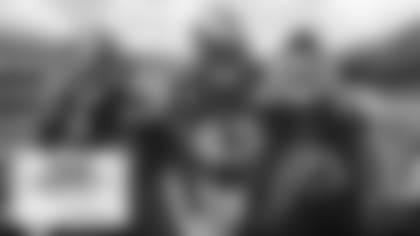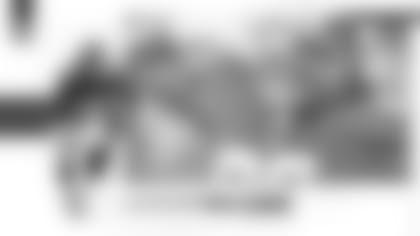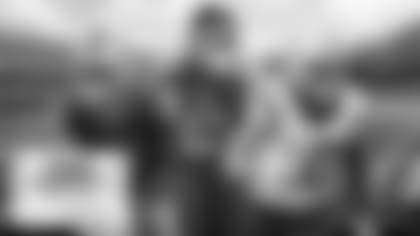Head Coach Joe Judge
Opening Statement: Good to see everybody, it's been a while. Hope everybody's gotten a little bit of rest time and, again, I hope everyone's families are safe and well right now. Just to recap and kind of bring you up to speed on what we've been doing since the end of the season, immediately after the season we took the next week, we did all of our self-scout evaluations on our personnel, on the team. We looked through our roster and each position coach breaks up all the players, the coordinators kind of establish the needs going forward, I meet with the coaches and the coordinators before we break on a vacation. And then we break on the vacation, we came back several weeks later after guys kind of caught their breath a little bit. We recapped our roster – we did that as an entire organization with our personnel departments, management and the coaches. We made sure everybody was on the same page in terms of how we played this year, what we have to do to improve the team, what needs we may need to address personnel-wise, and then we shifted our gear coaching-wise into scheme and we did a self-scout solely based on scheme and what we'd done the last year that was successful and what we can do better. That shifts into not only what we do, but then also studying the league, studying some college and seeing what's productive out there that we can apply into our systems and use to give our players a better advantage. From there, we've carried over, our coaches have been working these last couple of weeks on league studies and presenting to each other right now in terms of finding better ways to incorporate into our own playbook and expand our offense, defense and kicking game schemes that will help going forward. All the while, we've been doing free agent evaluations and our coaches are currently working on the draft. Along with the personnel department, we're trying to replicate as best we can the interviews we have at the Combine with prospects through Zoom. We've been doing that over a week now with several players a day. It's been very productive. I think the difference this year is we're all used to using Zoom, so it doesn't take as long to get on the same page.
In addition, to update you on some staff moves we've made since the end of the season, we've added several coaches to our staff. Rob Sale has joined us as our Offensive Line Coach. I've known Rob for some time now, I've worked with him, I've stayed in very close contact with Rob over the years. He's someone who's always impressed me as a very thorough teacher, as a very detailed and energetic on-the-field coach and he's someone who has a very strong relationship with his players. I thought he was a good fit. We made sure to do our due diligence – I talked to probably over 25 coaches personally, our staff researched an additional probably 15-20, we had several interviews in person and countless interviews over Zoom. I would say that they all did a good job and there were a lot of qualified candidates. At the end of the day, the best move for the New York Giants was adding Rob and I'm excited to add him to our staff.
In addition to that, Jeremy Pruitt, we've added him as our Senior Defensive Assistant. Jeremy's going to work with all levels of the defense, the back end, the linebackers and the front. Jeremy's another guy that I've worked with in the past, I've kept in very close contact. Jeremy's a guy that's coached on all levels, high school, college and now the NFL, and he's always impressed me as somebody who's been able to connect with every player on the field regardless of how they came up, where they're from geographically – doesn't matter, Jeremy just has a good knack of connecting with everyone. He's one of the best teachers I've ever been around and it's been fun to have him in the building and talking ball. I think he's going to help our staff as far as bringing some new ideas and different ways of running our current schemes. One thing you're seeing in the league right now is there are a lot of college schemes that are trickling up to the NFL based on the players and their skillsets and what they're accustomed to doing. Having guys like Jeremy, [Inside Linebackers Coach] Kevin Sherrer and [Defensive Line Coach Sean Spencer] give you a little bit of an avenue of looking into ways they've handled similar things in the college game and being able to do it within our own schemes, so it's something that should help us right there.
We've added Pat Flaherty, he's going to work in a consultant role with both the offensive and defensive staffs. He's going to have responsibilities on both ends. Obviously, Pat's specialty, being an offensive line coach in this league for a long time, a tight ends coach, is really dealing specifically with the front. I'm excited to have Pat here. Part of the strength is we've got two young offensive line coaches with Rob Sale and [Assistant Offensive Line Coach] Ben Wilkerson, and Pat's a good sounding board for those guys to have. He's also someone who can do some extra leg work for us and really break down opponents of what they're doing, as well as share with our defensive staff maybe how some different offenses are running and give [Defensive Coordinator] Patrick Graham a different perspective on what he's seeing on tape.
Offensively, we've had some different assignment changes and, again, Derek Dooley did a great job for us last year as a Senior Offensive Assistant. Really did a nice job as far as preparing for opponents, running our scout teams and breaking down what we're doing. I thought he was a guy that we wanted to get him into a room, get him some guys – we've moved him to Tight Ends Coach at this point. Derek's a guy who's got coordinating experience, he has coached multiple positions, he's been a head coach, he sees things through a big lens and really sees a big picture at the end of the tunnel, which is important for us, so he'll be our Tight Ends Coach.
Freddie Kitchens is going to be our Senior Offensive Assistant. His primary responsibility is going to be working with the front. Freddie has coached quarterbacks, running backs, tight ends, has worked hand in hand with the offensive line. Again, tying into having two young offensive line coaches with Rob and Ben, I think Freddie is going to be an asset up front working directly with them and helping bring together the game planning, like all of our coaches will, but working directly with [Offensive Coordinator] Jason [Garrett] with some of the things that are going to happen up front. All that being said, I'll open up to any questions you may have that I can answer at this point.
Q: Year 1 was about the process and about progress. It was about improvement and development. What is the overall mantra as you get set and look ahead to year 2?
A: Yeah, that doesn't really change. It's still about being committed to the process, that's really the biggest thing right there. Like 31 other teams, we have to start over this year. In terms of the commitment to the team, the development of depth on the roster, continuing to develop our players that are here, the identification of the right fits of players through free agency and the draft to add to our program, the theme remains the same. The process is to build a team internally and then add necessary pieces that can add to your team. So, the mantra for us is to come to work every day, do your job, work hard, be attentive and put the team first. That's going to be the job for every player walking through the door and that's going to be the job for every coach in this building, as well.
Q: Hey Joe, as all these colleges are having these pro days and there's no Combine, how are you handling this? Are you sending people to every site? Is everything being done virtually? Are the guys who are traveling being given kits to stay healthy so they can test themselves?
A: So, in terms of traveling from site to site, I'll let [Senior Vice President and General Manager] Dave [Gettleman] talk about the personnel department and how they're handling that. We will look to put scouts in the right positions to watch these pro days. I would say that the thing to consider with the pro days going on around the country is the protocols or regulations are a little bit different state by state and school by school. The one thing that we've been told that hasn't changed yet is our interaction with players at these pro days will be almost nonexistent. In terms of what school you're at, you may be in the stands in the stadium watching a player operate on the field. Now, we're going to get video tape of all these pro days, so very similar to the Combine, all 32 teams are going to get the same tape of all the players. Really your best view will be the up-close views of the tape that you're given. Now, ideally leading into the Draft, you want to get out there, you want to meet in person with these players, you want to look them in the eye, you want to get on the field with them, you want to put them through drills and you want to really get a feel for these guys on the field – how they respond to your coaching, what they can and can't do on the field and really get a feel for their skillset up close. You know, video tape is good, but there's really no replacing in-person workouts. That being said, because of the travel around the country right now and then also some of the restrictions at the campus, we're going to be selective about where we send coaches as far as being out to work guys out because, again, you're more going there as an observer than you are to actually work out the players. It's definitely different than in the past. I'd say it's not too dissimilar than the Combine itself where you'd sit in the stands in Indy or in a suite and watch the players work out, but to be honest with you, I'd say 90 percent of the coaches and personnel that are in the booths or in the suites are looking at the guy on the field and then they're looking at the replay on the screen on TV to get an up-close look at it. It's not the most ideal view as it is anyway, so, long-winded answer, will there be people out there? There will. Is it going to be as much traveling as in the past or as much interaction? No, it won't. However, I'd say we have a lot of confidence in going through the draft last year without pro days at all, dealing solely with talking to players after the Combine on Zoom and I think we did a good job working as an organization to evaluate them through that process based on their game tape, to get together and make sure that we agreed in how we saw the player and what the best decision for the team going forward was.
Q: Joe, this offseason seems a little bit different in terms of some of the top quarterbacks in the league and their potential to move around. I'm wondering if your stance has changed at all because of the potential availabilities of those players regarding [Quarterback] Daniel [Jones] and why or why not?
A: No, it hasn't at all. It hasn't at all. Again, we have confidence in Daniel, he's a player that we want to work with going forward with this team. He's shown us a lot of improvement, there's a lot of things. I can go on and on about how we respect him and like him and how the locker room responds to him, but the simple answer to that is no.
Q: Last year was obviously about evaluating him and coming to that decision. What do you need to see from him moving forward and what can you do in the next couple of weeks here or the next couple of months as we head toward the draft to help him get there?
A: Well, we're limited on the interaction we can have with the players anyway. We touch base with our players – texts and phone calls. A lot of these guys come through the building, we sit down and have conversations, but it's really not football at this point. It's more just catching up, checking on these guys, making sure that they're good, that their families are healthy, that if there's anything they need from us that we can assist them with, but it's not football at this point. In terms of anything we can do leading up to the draft, until we get clearance to start the offseason program and have the players here and really not get on the field with the players until phase two, that's the first time we're really going to get the chance to work with them on the field. Other than that, it'll be meetings in phase one and some meetings in phase two, and then ideally if we have OTAs again, that's really where they can make the most gains and improvement as a player. And that's for all of our players. In terms of Daniel, like every other player and every coach, we all have things we have to improve on and take strides forward in this year. That's no different for any player on our roster or any player in the league really. But our focus is internally coach some players, we all have to improve, we communicate that directly, I do with all of the coaches, we communicate directly with all of our players in things that we have to improve on both short-term and then long-term throughout their career, and then we put together a system and plan for them to attack that and go forward.
Q: Hey Joe, this offseason, how do you balance trying to plug some holes on your roster to win in 2021 with continuing to rebuild the roster and looking at the long-term picture, like when you're evaluating free agent decisions and that kind of thing?
A: Look, I'm always a long-term picture guy. I think you have success by continuously building your team through the draft, by developing your players, by adding the right players in free agency that not only fits you schematically but fits you personality and culture-wise in the locker room. I think the one thing to keep in mind as we go through this free agency point of the year – and, look, it's very exciting, and there's a lot of press and media and it's all over TV, but the reality is it's not fantasy football. You can't just grab a player, put him on your team and think everything's going to work out. It has to be the right fit for your team going forward and that's a fit culturally and a fit schematically, and it's got to go both ways. There's things that we do here that, look, we don't make it easy on our players and coaches, that's by design. The guys we have in this locker room have bought in, we have a lot of fun here through doing that, but we have a way of doing things. That's not for everyone, to be honest with you. You have to make sure you bring someone in who's going to fit the culture and that's going to buy into what you're doing, and that shares the same principles and values and team goals that you have. In terms of balancing that, to me it's just about continuously adding good players to your roster and then it's our job internally to help those players promote their career through developing and getting better on the field.
Q: You said you evaluated your own team and what you kind of need in regards to personnel, so obviously you're not going to tell me exactly who you want to get or whatever. From a big picture, what are your goals personnel-wise for this offseason?
A: I'm going to give an answer and this is actually as clear and transparent as I can be – and it's going to seem very generic and washed out, but this is as simple as I can put it – the priority is really just to add as many good players to this team that we see helping us down the stretch and building with this. That's the goal. Add good players who fit what we're looking to do, who can add to the skillsets we need as a team and at the same time fit the culture in the locker room that we're building here. I know that sounds very generic, there's guys at all positions that are available throughout the league. Ultimately, what it's going to come down to is making sure that whatever position we bring guys in that they fit us and that we fit them.
Q: Being specific on one position at least, how important is it for you to add a top playmaker in regards to a receiver this offseason?
A: I think we've got to do things to help our players on our roster. We have to make sure we keep putting these guys in position to be successful and part of that is by adding talent and improving the competition on the roster. That can be through the draft, that can be through free agency, that can be a lot of different ways. In terms of adding specifically a receiver, look, if the right situation is up with a guy in free agency, then we'll pursue it. If the right situation is up with a guy in the draft, then we'll pursue it. My focus as a coach is when we get whoever we have in the building to continue to put them in the right position to be successful and use their skillsets.
Q: Hey Joe, you guys obviously added a lot of young offensive linemen last year and I know you made it a point to work them into the rotation throughout the year and get them some experience. I'm curious, how much do those guys play into your decision-making in terms of adding offensive linemen this offseason and how do you feel generally about that group coming out of last year?
A: Well, I think because you play five guys at a time at that position, you're always looking for good offensive linemen to bring into your program and develop. You can never have too many good offensive linemen, nobody's ever upset that they have a good offensive line. So, I'm very pleased with the development our young guys got last year, I'm pleased with the continuity they built in not really being just five guys working together, but really it was seven or eight guys working together through different stretches of the season and really getting a feel for each other. That being said, again, we're always looking to add good players that can add to our roster and every player has to compete for what they get here. Specifically to the offensive line, I'm pleased with the progress those guys made last year and if there's someone at some point to add to the team that's going to be the best move for the team, we'll always consider that.
Q: Where are you on [Defensive Lineman] Dalvin Tomlinson? How would you evaluate a guy who doesn't have the biggest stats because of the position he plays, but certainly seemed to be really important to what your defense was able to do last year?
A: Specific to our players who are free agents, I said it after the season and I'll say it again, I'd love to have all of our guys back, I really would. I'm not going to comment on anything specifically to contracts and obviously we have a lot of love for Dalvin as a person and as a player. To me, I don't think stats are always the overlying factor. You have to understand how you use him in your scheme and the overall production he has sometimes by allowing other people to be productive. Look, in terms of Dalvin, I can't say enough good things about him. I love him as a person, he's a fun guy to coach. All that being said, we'd love to have all of our guys back. There's a process every team has to go through this time of year through free agency and all that stuff will be addressed when the time comes.
Q: Hey Joe, have you talked to [Offensive Tackle] Nate Solder and do you expect him to play this season? Did he give you that indication? And do you need either him or [Guard] Kevin Zeitler around, if not both, to mentor your young offensive linemen?
A: I'd say both those players are players that are under contract and currently on our roster. Look, I'm not going to speak for Nate. The answer is yes, I have talked to Nate. To be honest with you, the majority of our conversations have actually had nothing to do with football. I've talked a good bit with Nate since the end of the season and just checked up on him in terms of how the year off went, how his family is doing, how his son is doing and how he's doing personally. There have been a lot of conversations. We have talked some football. There are other areas of our building as well that are in conversations with Nate, but when the time comes to address all that, we'll know. Obviously, these things don't all happen in one day and we'll see where everything goes, but these are players we'd love to have back, they're guys on our roster.
Q: Hey Joe, this year in particular with the cap being lower, I'm just curious when you look at two positions like pass rusher and wide receiver, how you weigh what's happening in the draft. It's obviously a very deep receiver class, so does that kind of shift your way of thinking about that position and maybe the same goes for pass rusher where it might not be so deep and you might have to dip into free agency?
A: I mean, it's our job to know everybody who's in the draft as well as everybody throughout the league that's a free agent. It's our job to know everyone throughout the league and on rosters, as well. That's just part of the job, knowing the people in the NFL. Speaking specifically on those positions, you're always doing your homework based on what's available in different avenues to add to your team, whether that's in free agency or the draft. Sometimes they do well off each other, other times they may not. I think the decision always comes down to who's available at what times and is it the best decision for the organization.
Q: Hi Joe, just following up on wide receivers. When evaluating them, especially because so much is not in person, what characteristics are you looking for on film or intangibles besides fitting into the culture?
A: For all our players, we're really looking for smart, tough and fundamentally sound. Now, you can evaluate a good bit of that on tape, you can evaluate the smarts or the instincts that you see them play with on tape. You can evaluate the tough through how they play with a physical mentality and how they respond to the tough situations in the game. And fundamentally sound, you have to see on the tape how they play within a positional execution. All that being said, you're evaluating critical factors not to what they've done, but what you think they can do projecting going forward. So, in terms of evaluating anybody simply on tape, you've got to do your best work in terms of really evaluating how they play. Ultimately, the most important evaluation is the game tape. With draft prospects, it's important for us to do our homework on these guys, it's important for us to have good interaction in person and be very intentional in the questions we ask them to find out the information we need.
Q: Coach, just to follow up on something you said in the beginning, you went through an offseason last year like none other. It looks like it's going to be the same kind of parameters in terms of virtual. What kind of improvements have you identified that maybe you want to change going forward into this offseason to get better results?
A: I'd say the first thing is in terms of the makeup of this offseason, nothing's been done officially that we've been communicated to about. I'd say our hope is still to have the players in person, whether that's in intense protocols or whatever it may be. Obviously, it's a voluntary program, so it's on the players and what they want to do with their offseason. I could tell you this, easily over 90 percent of our players talking at the end of the season voiced to me their desire to be here this spring and the importance they know on working here. I think we have a young team who understands that we have to work to improve, but that being said, it's a voluntary program. We want to do everything we can do to help the players when we're allocated the time. Now, I'd say specifically into the virtual part of it, actually we had a long talk about that after the season when we evaluated everything we do as a process. We had a long talk about the virtual element of the program, whether it was spring or in-season, and that's something based on whether or not we have to do it because we're mandated to in the future, whether that's spring or the season. Also, we looked at some of the benefits of using it as a change up like we did some times this year throughout the season. We saw benefits of doing it at different times possibly virtually. Now, that's got to be the right makeup of the team, the right time of the year and the right situation to use it. One thing I thought our staff got very good at and our players as well was being very interactive at the end of the year through Zoom. It wasn't so much just tune in and listen, but it was really the interaction and we were able to really simulate those in-person meetings. The more interactive the meetings got, the more benefit we saw on the back end of the year. I would say that just seeing what we did last year that was beneficial, that would be the main focus to carry into the spring. The other thing too is, we reached out to a lot of people and we tried to find out what they do differently. I'm talking about talking to college programs, what are they doing differently with a younger generation of players? Talking to high school coaches, how do they have to interact with their players? Talking to teachers at high schools and professors in college, what are the things that they found beneficial as far as teaching? What are the tools that are out there that we're not using that can keep players stimulated and engaged throughout meetings? We're always looking to go ahead and do it. To me, the number one thing is interaction.
Q: Hey Coach, I wanted to follow up on Rob Sale. You guys have obviously put so much thought and effort into offensive line with Freddie's new role, with bringing in Pat Flaherty. If you can just expand on why you think Rob Sale is the right guy to come help this young offensive line.
A: Like I said earlier, Rob is an excellent teacher. He's a great, high energy coach and very detailed on the field. His guys respond to him. I've watched him develop a number of players at different places, whether he was at Georgia, Arizona State, Louisiana, I've watched him develop a number of offensive linemen that have been successful. I think the biggest thing is when you look at some of these programs, they start out with these higher recruits and their ceiling is high, but the room to get to the ceiling isn't always as high. What I've seen with Rob is some of the guys he's developed in the programs he's been in where he's truly had to mold them and bring them along both from their physical development as well as their mental understanding and their on-field performance. Look, I'm very pleased with what him and Ben have been doing the last few weeks working together, but tied directly into Rob, his ability to teach, his ability to establish relationships with his players and the response he gets from his guys and how they play on the field. That, to me, they all just line up to be the best fit for us.
Q: Joe, as you self-scouted your pass rush last year, what did you think of it? And now that [Defensive Lineman] Leonard Williams will be back with you guys, how does that impact how you view that area and entering free agency and the draft?
A: Well, look, it's a passing league, truly it is. You have to be able to stop the run to be effective on defense, but when you look at the guys getting paid the most money, it's obviously the quarterbacks. It's a passing league. When you talk about the pass rush, it can never be just one player, you have to have depth at those positions and it has to come from multiple areas. To me, the improvement of the pass rush as the year went on last year was a combination of the improvement made up front with the defensive line and the outside linebackers in our pass rush schemes and then also on the back end with the way our defensive backs improved in the coverage on the back end to give them more time to get to the quarterback. Nothing really happens independently of each other. If the coverage isn't sound, you can't have a pass rush. If the pass rush isn't sound, they have to cover for a long time and then all of a sudden that ends up not being really in your favor. Really, I saw improvement from the defense as a whole. That's what we have to really go ahead and keep emphasizing is making sure all three levels, the defensive backs, the linebackers and the defensive line, continue to improve within our schemes. And then we have to make sure that we use guys in the best situations and matchups to be successful.
Q: In terms of Leonard Williams and him coming back, how does that impact how you view things going into free agency and the draft with your pass rush?
A: Like I said about all of our players, I'd love to have Leonard back. He's a guy that obviously we really value in this building and we'd love to have him around here. When we talk specifically about how that helps the pass rush, I think good players help you play good and it's no secret that he's a very good player.
Q: Hey Coach, you talked about going over schemes and making some adjustments. I'm curious, at the tight end position, you and Jason (Garrett), do you feel that you fully utilized [Tight End] Evan Engram and even a guy like [Tight End] Levine Toilolo in the offense the way you attack defenses? And after looking at every play – I'm sure you looked at every play, how do you feel about Evan Engram still? Do you feel this guy is the future here?
A: I love Evan. I have a ton of confidence in Evan. He's fun to coach, the guys have fun playing with him, he gives everyone in the locker room a ton of confidence. This guy goes out there every day and this guy works tirelessly, I mean tirelessly. This guy is a tank every day, so in terms of confidence within the program, absolutely we have confidence in him, 100 percent. He's a guy that obviously we have to keep continuing to feature in the offense along with [Tight End] Kaden Smith and Levine and all the other tight ends that will be in our program because these are guys with skillsets and we've just got to keep on doing things to use their versatility and skillsets to put them in a position of strength.

SVP and General Manager Dave Gettleman
Opening Statement: Good afternoon, folks. Trust you're all well and your families are great also. Just to catch up on where we've been, what we've done since the season ended, obviously when the season ended, we had a thorough review of our roster and then we've been getting into the UFA's, so we're well on our way there. On the college side, we've had two rounds of Zoom meetings with college scouts. They are out and about at the pro days. Our final prep meetings for the draft, we'll reconvene in early April, hopefully some of it in person and it's not completely Zoom, we're hoping for that. Right now, we're involved with Zoom interview sessions in lieu of the Indy interviews. We started those last week, we're doing three players a day on average in the afternoon, so that's where we're at. Finally, just so you understand, I completely understand why you guys have to ask about contracts and negotiations, I understand that. I hope you understand my stance on this. Philosophically, it's between the player and the club. I think it's very personal and in terms of timelines, contracts get done when they're supposed to get done. That's the way I feel about it and that's the way it'll go when you ask me about negotiations. Let the questions begin.
Q: Last year, you had [Defensive Lineman] Leonard Williams play under the franchise tag number. This year, how debilitating would it be if you have to do that again with Leonard Williams at almost $20 million dollars of cap space?
A: Well, we still don't know what the cap number is going to be. We still don't know that, so that's a hypothetical. Don't know what the number is going to be, but it is what it is.
Q: Theoretically, how much would it hurt you in free agency moving forward if you have to allot all that money to one player on a franchise tag?
A: Well, obviously it certainly makes it a little more difficult, but we'll operate, and we'll manage.
Q: With reference to Leonard and a franchise tag, have you guys officially used the franchise tag on Leonard yet? I know there was a report this morning that you were going to.
A: Today is the last day. We'll see where it goes.
Q: So you haven't made an official decision on that either way?
A: No, we'll make a decision later on.
Q: Just in terms of the way this offseason is shaking out, I know last year you started one way in terms of how you were able to do all your evaluations. You still had the Combine and then obviously everything changed, and you had to really fly by the seat of your pants. Overall, do you feel that it's more challenging or less challenging going into this year having gone through and offseason like last year or are there things that you still are kind of uncertain as to how things are going to play out from a scouting perspective, from free agency because of the uncertainty that's still involved league wide?
A: Well, the uncertainty really doesn't play into unrestricted free agency. Those are players that are in the league, scouting them is not the issue. The uncertainty certainly falls on the college draft piece. Last year, despite the fact that the world essentially closed down mid-March, we had already had Indy, we had the all-star games and obviously had a full college season with full normal access. You had all that. This year, it's obviously different. The way the pro days are set up, each team is only going to be allowed to have three people attend and most likely you're going to be in the stands, whether that's in an indoor facility or in a stadium, who knows. It's going to vary from school to school. We also have to have our scouts tested and show up with negative tests, so there's a lot of that going on. The other problem you're going to have is that critical face-to-face contact, you're not going to be able to have it because even at these pro days you're not going to be allowed to have one-on-ones with the players. It's going to be different. I've had conversations with people in other leagues and how they've handled it and I'll continue those conversations, but really and truly there's always unknowns and there's just more unknowns this year. The one thing that I will say is we're used to Zoom, we're used to operating differently and we're used to trying to be innovative as to how we operate, so that part of it is ongoing.
Q: Even if [Running Back] Saquon [Barkley] comes back 100 percent, do you need playmakers, one or two more? How do you look at that?
A: Every team needs playmakers, let's be honest. Good lord willing, Saquon will be 100 percent and obviously he'll make a huge difference. A healthy Saquon obviously makes a big difference, but, again, you're always looking to add good players. And, oh, by the way, we're not playing until September, so we've got free agency and we've got the draft, and we'll see how it plays out. It's not like we don't realize what we need, but, again, at the end of the day it's also about adding really good players. You can never have too many good players at any positions. Sure, we have our eye out for that, but we also have our eye out for guys that fit us culturally and fit where we're trying to get to.
Q: Seems like this year more than ever there's a lot of potential quarterback moves in the league and certainly a lot of high-ranking draft picks to come out. [Head Coach] Joe [Judge] said a little earlier that you guys haven't changed your stance on [Quarterback] Daniel [Jones]. Was it at all tempting to look at some of those possibilities or how did you handle that situation?
A: Well, you do your evaluations. We've had Daniel for two years; we've done the evaluation on him and we really believe he's the guy. No reason to go look. What we're doing isn't fantasy football, we're not playing, we're not doing that. We've got a conviction on him, he's everything we want, he's got all the physical skills and again I say this all the time, the kid just finished his second year of NFL football. How many of us after two years at our new job were great? No, we all start at point A and we hopefully get to point Z, but the one common denominator is it takes time. Everybody has to understand that. We believe in Daniel and that's where it is.
Q: Do you feel like there's a deadline to get this team to championship caliber before he gets to a second contract? Do you need to try to win on his rookie deal?
A: You giving me the window theory? Microsoft Windows is nice, but I'm not a window theory guy, I'm just not. I never have been, and I never will be, so we're going to keep working the process, keep getting better and we'll get there.
Q: Since you arrived at the Giants, I think this is year four of the rebuild and while I'm sure you might quibble with this, PFF had your offensive line ranked 31st this season in the league. I'm just wondering where you think you guys are in this rebuild and did you think it would be a little quicker, frankly?
A: Well, we've talked about that. I went to Carolina and it worked out well, it worked out quickly. We all want things to happen fast. Just for what it's worth, in terms of where our offensive line is, they're young and they're talented. Things take time. I said it earlier, things take time. We believe in these guys, they all came along, we finished the season fairly strong. One of the things that I would say to you is we were 4-2 in our division and if you look at our division, all of those defensive lines that we play, all those fronts are big, powerful, athletic defensive lines and our guys held up. So, we're getting there. It's the old saying, you've got to run the ball and you've got to obviously be able to protect the passer. We're young and we're getting better.
Q: If I may though, you can only say you're young if you don't have [Guard Kevin] Zeitler and [Offensive Tackle Nate] Solder because they're not young, they're absolute veterans in this league. So, are you implying that they're gone, and the young guys have to make it happen now?
A: I'm not implying that at all.
Q: But Dave, then your offensive line isn't young. Respectfully, you don't have a young offensive line, then.
A: When your center and your left guard and your left tackle are rookies, basically you're young.
Q: With the uncertainty and lack of information in the scouting process this year compared to others, is there an argument for trading back in the draft more this year than other years and acquiring more picks to take more swings at the plate, so to speak? Or even maybe moving and acquiring more picks next year because the process might yield clearer results in the scouting process than it does this year? Or do you try to handle it as normally as possible through all those hurdles?
A: Well, I think that you can make the argument that you're going to have the most information on the top 100-150 guys and as you work backwards because of a lack of touch and whatever, you're not going to have as much information or have as much confidence in your ability to work your way through that group. You can make the argument to trade back because of this thing. There are guys in this draft that when they put pads on in August it'll be the first time in 20 months they'll have put pads on, so you've got to think about that piece and some of those guys are very, very highly rated, so you've got to think about that. Your point about moving picks and trading back and getting 2022 picks is very valid because hopefully we'll be back to somewhat normal and we'll be able to draft in 2022 with that kind of thorough information that we had in 2020, but not in 2021. So you can make that argument for that, you can make that argument to trade back, accumulate picks for next year. You can make the argument that you sit tight. You can make the argument that, knowing that your best information is going to be on the top guys, maybe you trade up. So, who knows? I think what you're saying makes a lot of sense.
Q: Can I refer to you as an old GM?
A: Wow, that's getting personal. Sure, if that makes you happy, have at it.
Q: This year with a reduced salary cap, is renegotiating with guys with existing contracts more of an option this year?
A: The goal to best manage the cap is to get flat contracts. So, if a guy is making $15 million – it's a 3-year deal at $45 million – you'd like to have a $15 million cap number every year, that's the goal. once you start restructuring or renegotiating, you usually back-end load them. What you're doing is you're kicking the can, so it depends upon how much pain you want to deal with. That's really what it is. Some teams philosophically say, 'The heck with it,' and they restructure and some people don't. It's a philosophical conversation, but it's not a good place to get to, to constantly restructure and renegotiate.
Q: Hey Dave, this is your first draft since having to let go of DeAndre Baker. Pre-Dave Gettleman, the Giants were burned by some immaturity issues with Eli Apple and with Ereck Flowers. I'm wondering if in this draft, organizationally you guys have tightened standards to where any hint of a red flag is a no-go for you guys or is that just not possible because too many talented players have at least some hint of a red flag?
A: What I'm going to say to you is, again, you have to remember how young these players are. It's not the old days where you had four guys that played four years, almost everybody red-shirted. [Offensive Tackle] Andrew Thomas just turned 21. I told you before, I drafted two 20-year-old guys when I was in Carolina. They're coming out younger and younger, so there is that piece to them. They've been covered their whole lives and they've been taken care of and they've been covered and they haven't had to be as accountable as maybe they need to have been, so when they get to us they have two things that are very dangerous and it's time and money. Some handle it better than others. At the end of the day, that is something that we really try to work our way through. We talk about maturity all the time with players. Again, you turn around and you interview the players and you ask them the question, 'What do you think is going to be your biggest challenge?' And they turn around and say, 'Well, I shouldn't have any problems.' And I'm saying to myself, 'Well, how much does he know? How aware is he? How self- aware is he? Does he really understand what he's getting into?' When I tell him, 'You're 21 years old and you're going to play against a 28 or 29-year-old man who wants to rip your lungs out.' It's different, you're not in college anymore. The long way around to that answer is the maturity piece is really important and you work on it. At the end of the day, sometimes you're not right.
Q: In regards to a young line, if that's the case, are you comfortable going into the season with two players in their second year like [Offensive Tackle] Matt Peart and Andrew Thomas as your starting tackles?
A: I am, yes.
Q: We didn't see a lot of Matt Peart, so I'm wondering what you saw that gives you that confidence in him.
A: When he played, he played fine. He played pretty damn well. At some point in time, you've got to let the young kids play. Listen, every player was a rookie at some point or a young player at some point. At some point in time, you have to have confidence in who's on your club and you have to put him in there and let him play. Like I've said to some of you, how many of you had Pulitzer Prize-winning articles your first or second year?
Q: You don't have the proverbial number one receiver or dominant edge rusher, the bell cow I think as you said last year. How realistic is it to fill both those spots in one offseason considering how much those positions get paid?
A: Well, there is a draft, right? So, you don't necessarily have to buy them both. We're just going to see how it plays out, see what guys are worth and what the expense costs are, and just keep moving forward.
Q: Hi Dave, you guys added Kyle O'Brien into your front office the other day. I'm curious what went into that decision, what's his role going to be in the front office and what do you think he can bring to the table?
A: Well, what Kyle can bring is a variety of experiences. He's worked in pro, he's obviously been a college scout, a director of college scouting, a vice president of player personnel. Kyle went to Harvard and we're always looking to add smart people. He's a quality evaluator and we had a chance to add him and you want to add quality people, so Kyle will be very involved in what we're doing.
Q: Just wanted to touch on something you were talking about earlier with less information that you guys can get this year. Everybody's in the same boat, but is there a little bit uneasiness going into a draft like this when you don't necessarily have access to the people that are around these players when you don't get to see these players in person? Is there a percentage of less information that you would have on a prospect this year than you normally would?
A: Really, what makes you uncomfortable is the lack of personal contact you have with the players. That's really what it is. Watching them operate, talking to them, just not having that personal touch is very difficult. The other thing that's strange is most of the time when you're talking about players in April once all the smoke has cleared, you've had Indy, you've had your pro days, you have your own personal measurements on these guys. The 40-yard dash times are your times, so there's going to be a lot of information that we're hoping is accurate and crisp. When we talk about players, we talk about play speed. I've been pretty vocal about Indy being the 'underwear Olympics' and last time I checked when you play football you have full pads on. It's not what a guy runs in a 40-yard dash time, it's how fast he plays, so I think that's going to come into focus even more. We can get with the coaches, the assistant coaches and the folks, that's not the problem. The problem is the personal contact with the players and where the measurables are coming from. Especially for me, more so it's the height and the weight, the body measurements. The 40-yard dash is a watch, I really believe in play speed. It is a little unsettling, you know. I've said this before, what we're doing is educated guessing, so this makes us a little more uneducated, not having this personal touch with these players.
Q: With the doctors in particular, the medical stuff, not having your own doctors get a chance to look at them, too. Does that play in?
A: Sure because, like I said, there is going to be an Indy in regards to medical. I believe they're talking about having the top 150 go to Indianapolis and have a full, thorough medical. There's going to be some telehealth interviews involved and whatever, but it's a little unsettling. It is with the medical piece because there's some unknowns. The more unknowns you have, the more unsettling it is.
Q: When it comes to Saquon Barkley's situation coming off the injury, do you guys have to see him on the field before opening up long-term contract talks? Just curious what the injury history plays into that as he goes into his fourth year.
A: Well, I think that's part of the discussion and obviously we're going to have to make a decision in the spring on whether we pick up his fifth-year option or not. You know, again, it comes back to that medical question. It's unknown and what you have to do is get your trainer and your doctors involved and make your best decision.
Q: Dave, last year I don't think you had any undrafted free agents – actually, I take that back, [Defensive End] Niko [Lalos] made the roster later in the season. With that said, do you feel like given the circumstance that you're missing out on maybe some smaller school gems? Have you adjusted how you're going about your scouting process to maybe pick up some of these guys and pay more attention to them?
A: You've got to remember, last year we had ten draft picks. That's an unusual number, so you can make the argument that you take three of the seventh-round picks, the last three, and if we had signed them after the draft – one of them was the inside linebacker from Georgia, Tae [Crowder], one of them was Chris Williamson, who was on the practice squad and the other guy I'm not sure, it wasn't [LB] Cam Brown, Cam Brown was the sixth – but the point is those guys made our club. You can look at those as free agent signings after the draft. The other thing you have to remember is right now some of those schools are playing, some of the smaller school guys are playing and we'll do the best we can with evaluating. There's film available – you're trying to get all the draft information and look at these kids, so it's a challenge. It's a challenge, but we're working at it.
Q: Big picture here, you guys have won five, four and six games in your three seasons here. What are your expectations about how much better this team should be now that you feel like you have kind of settled things at quarterback, which is a big question? How much better should this team be in 2021?
A: Obviously, everybody has expectations. It's about getting better. I'm not going to put a win number on it, I'm just not going to go there. I think we're just about there. Talking to you guys, you've alluded to some of our needs and I believe we're going to get there.
Re-live the most memorable moments and images from the first year of the Joe Judge era.
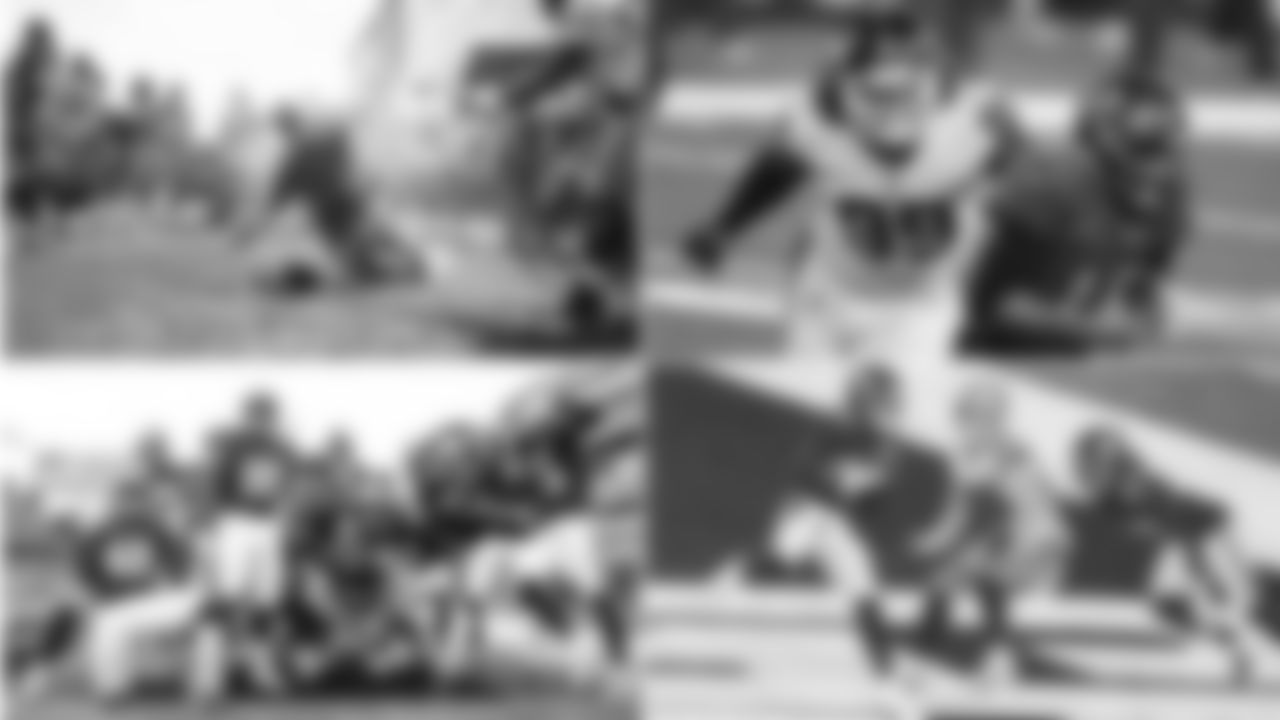
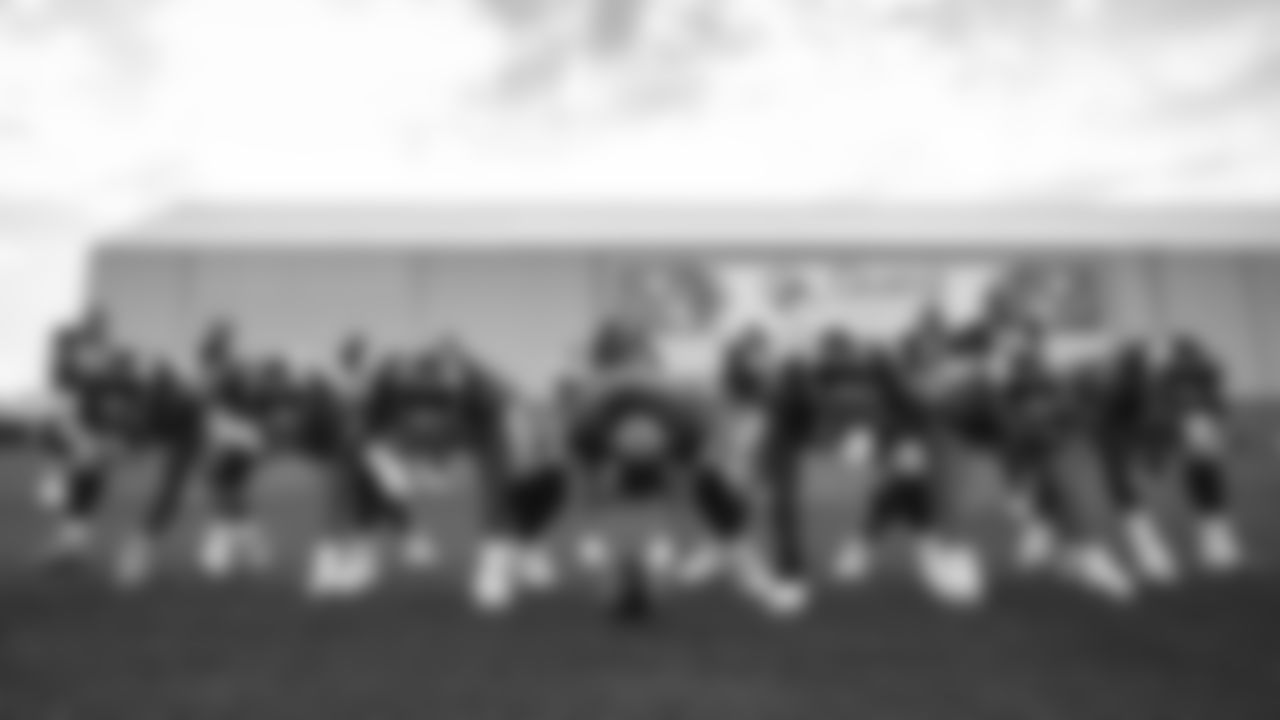

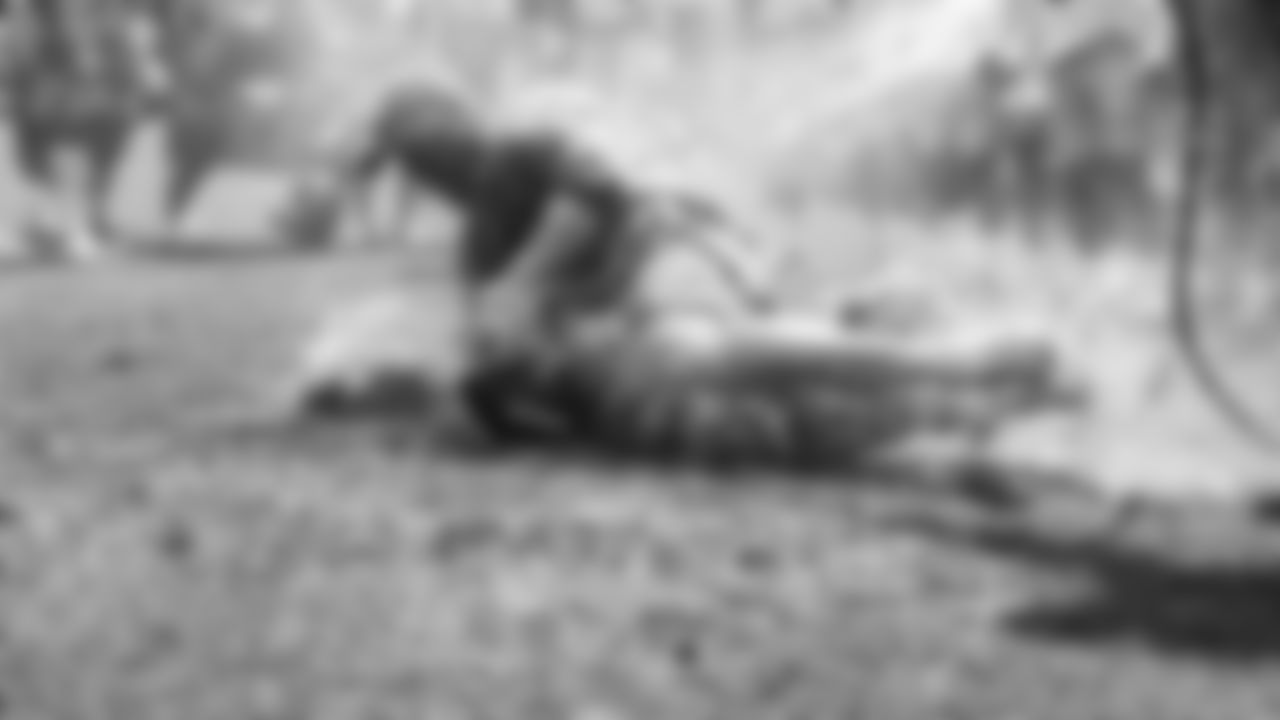

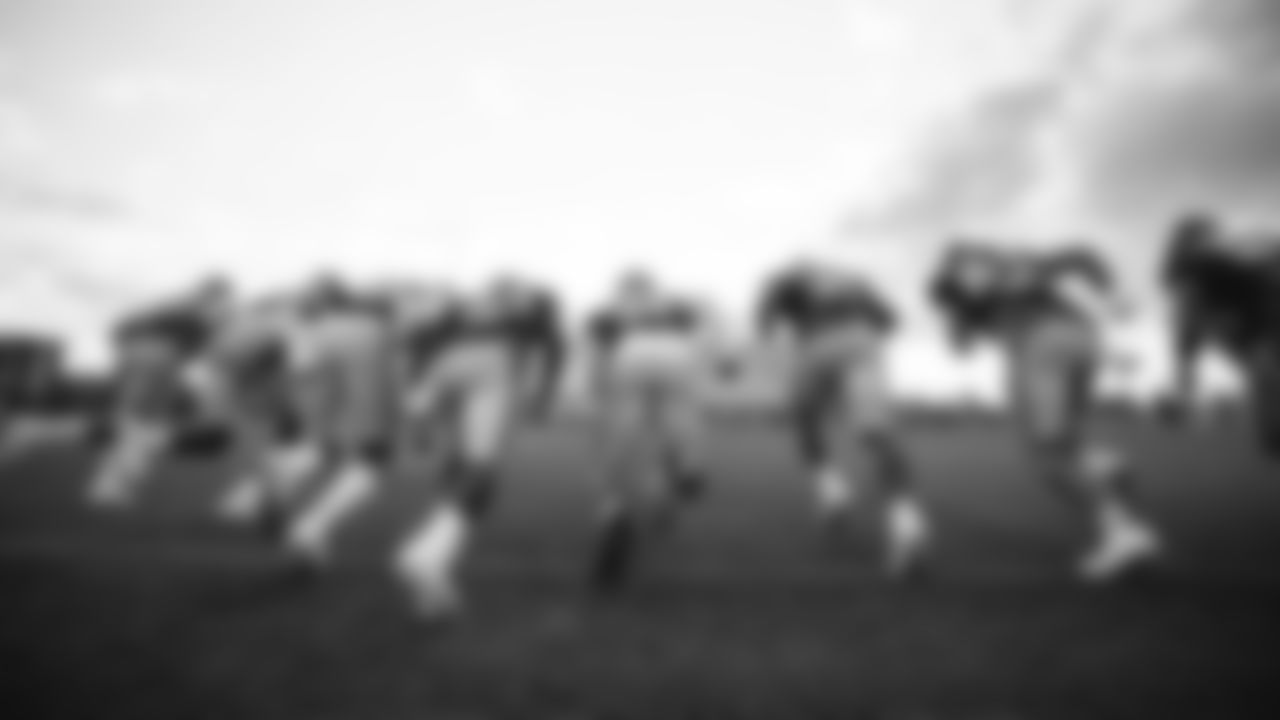
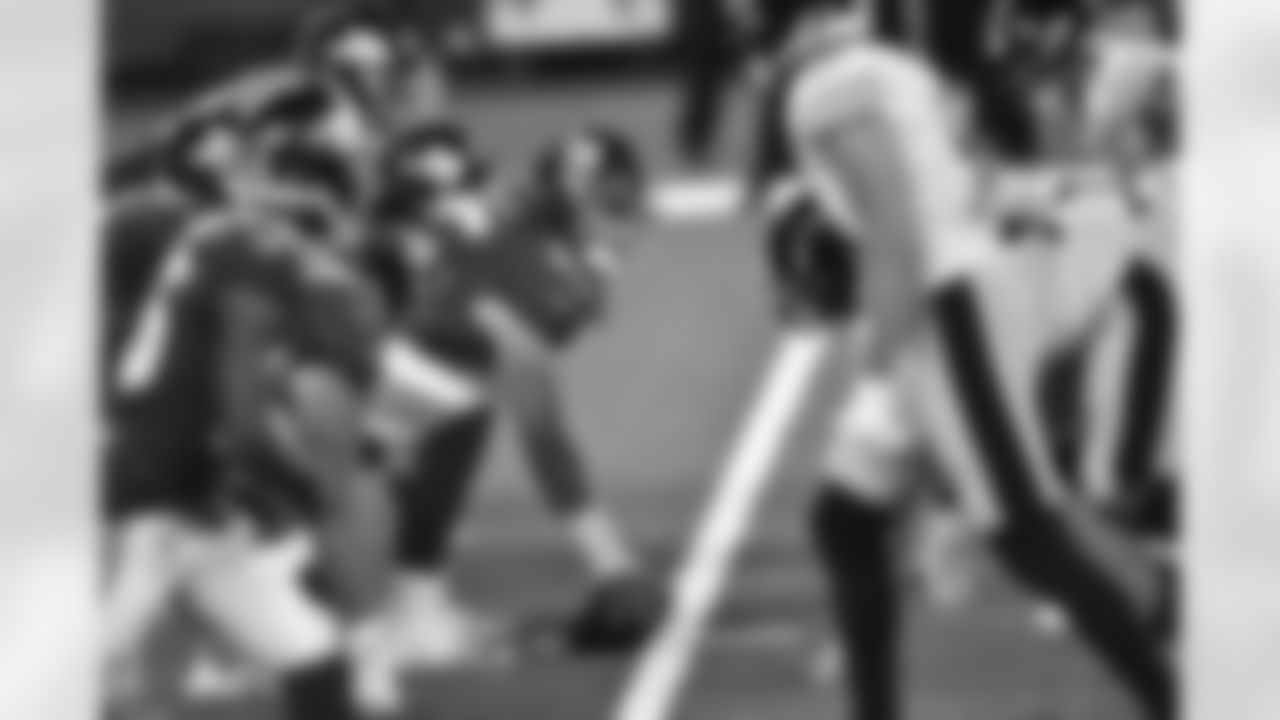
New York Giants guard Nick Gates (65) prepares to snap the ball during an NFL football game against the Pittsburgh Steelers, Monday, Sep. 14, 2020 in East Rutherford, N.J. (Alika Jenner/NFL)
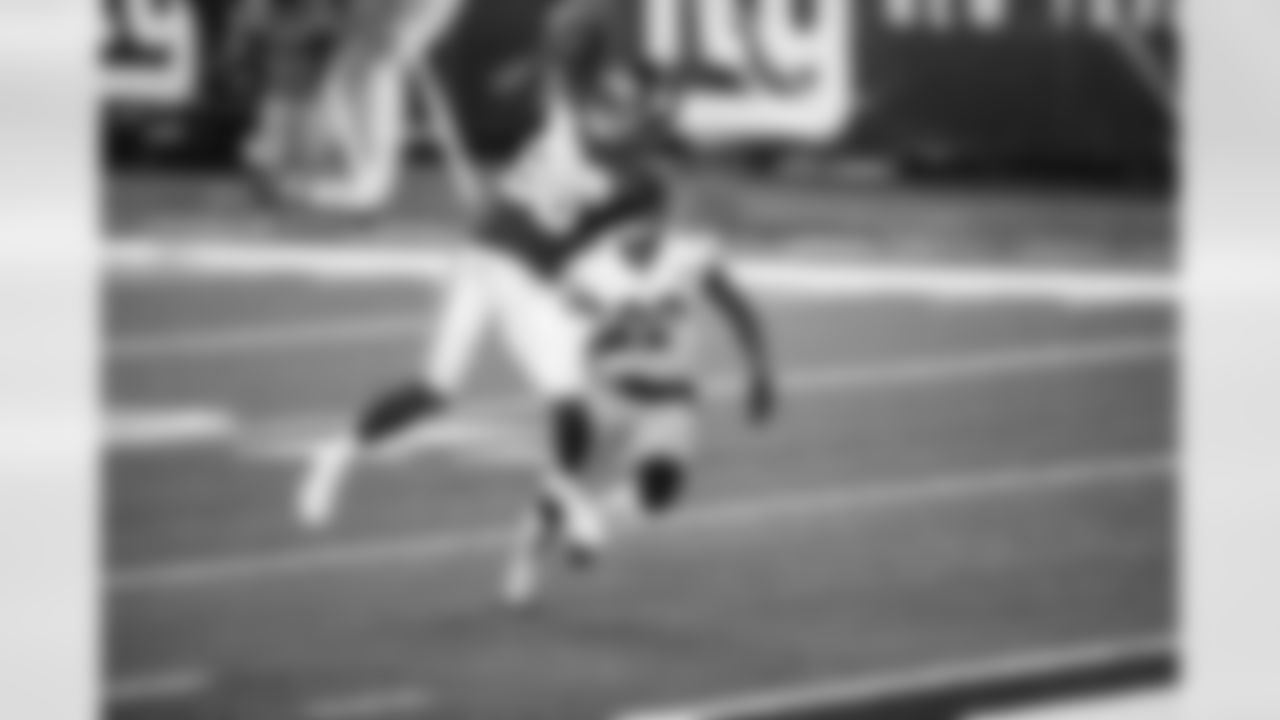
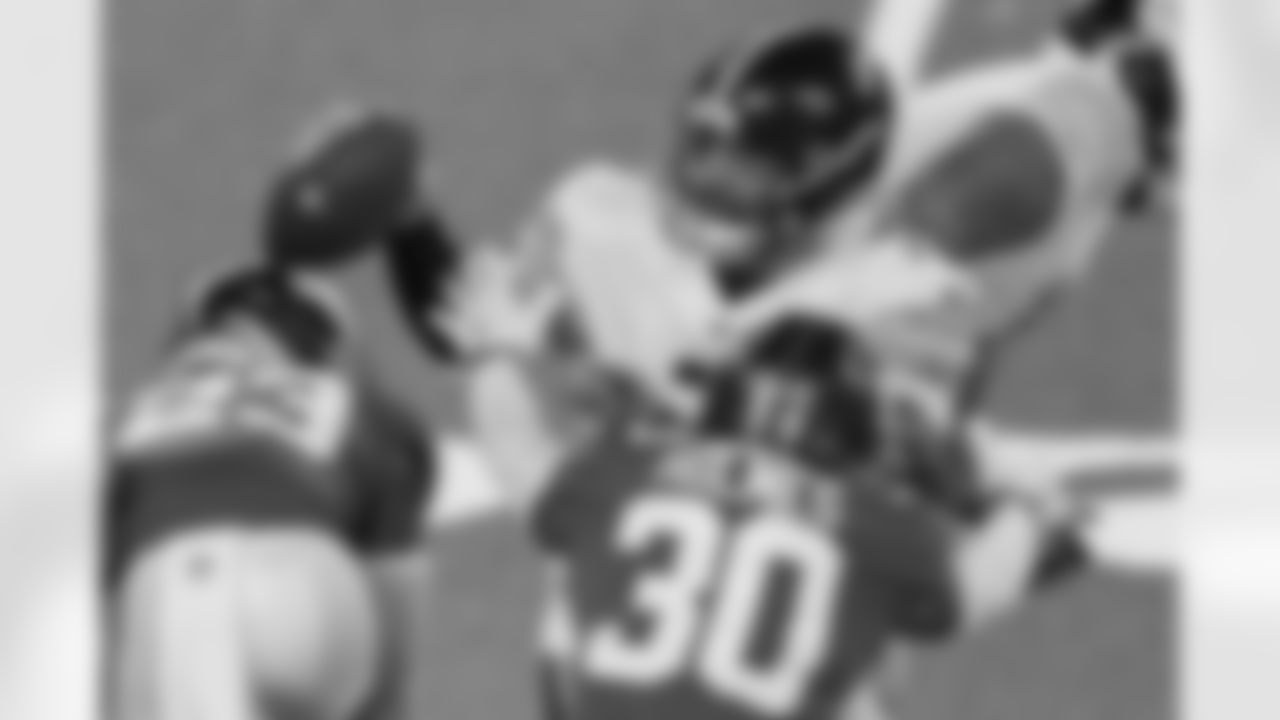
Pittsburgh Steelers quarterback Ben Roethlisberger (7) looks to pass under pressure from New York Giants cornerback Darnay Holmes (30) during the first quarter of an NFL football game Monday, Sept. 14, 2020, in East Rutherford, N.J. (AP Photo/Frank Franklin II)
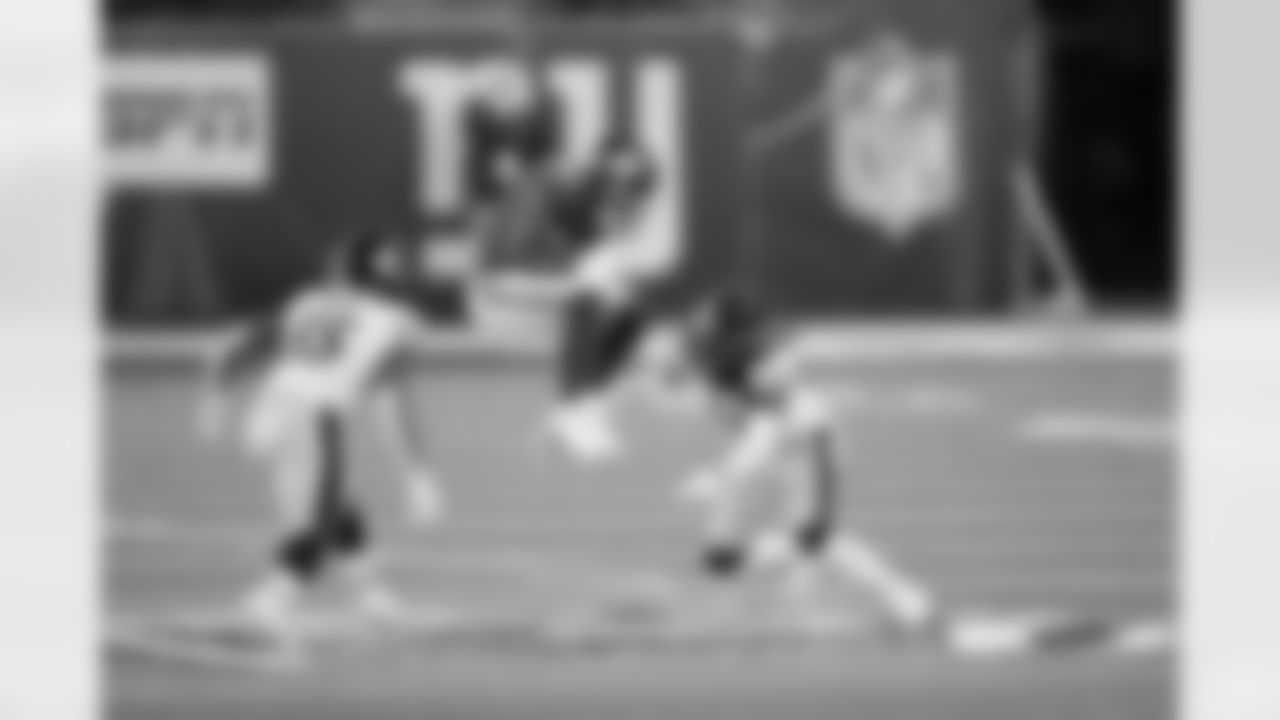
New York Giants wide receiver Sterling Shepard (87) makes a catch during an NFL football game against the Pittsburgh Steelers, Monday, Sep. 14, 2020 in East Rutherford, N.J. (Michael Owens/NFL)
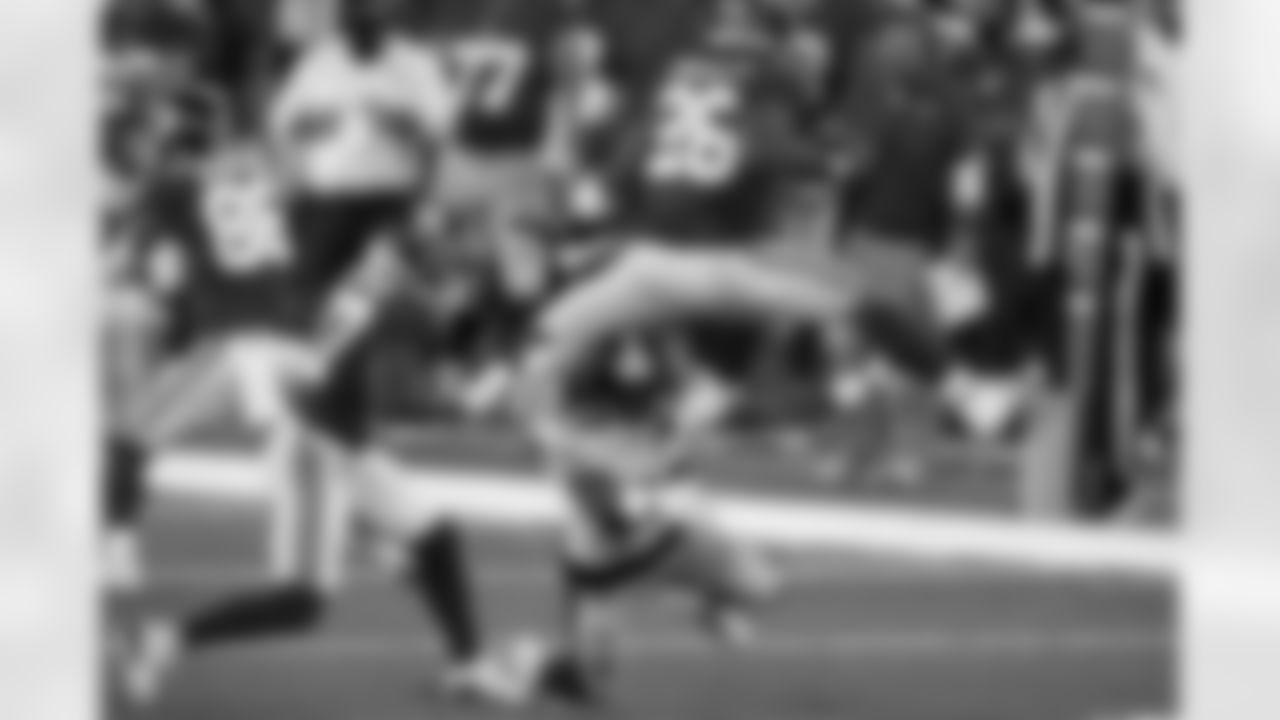
New York Giants running back Saquon Barkley (26) leaps over Pittsburgh Steelers cornerback Mike Hilton (28) during an NFL football game, Monday, Sept. 14, 2020, in East Rutherford, N.J. (AP Photo/Adam Hunger)
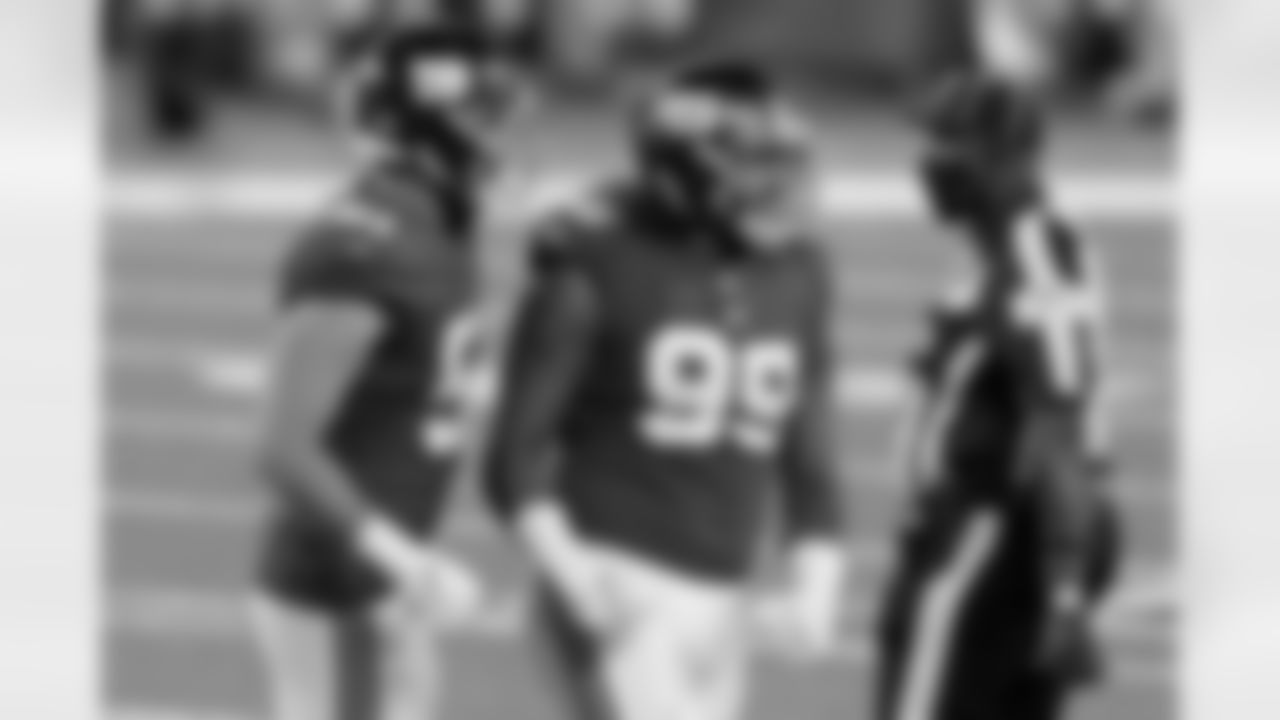
New York Giants defensive end Leonard Williams (99) reacts with linebacker Kyler Fackrell (51) after a defensive play against the Pittsburgh Steelers during the fourth quarter of an NFL football game Monday, Sept. 14, 2020, in East Rutherford, N.J. (AP Photo/Frank Franklin II)
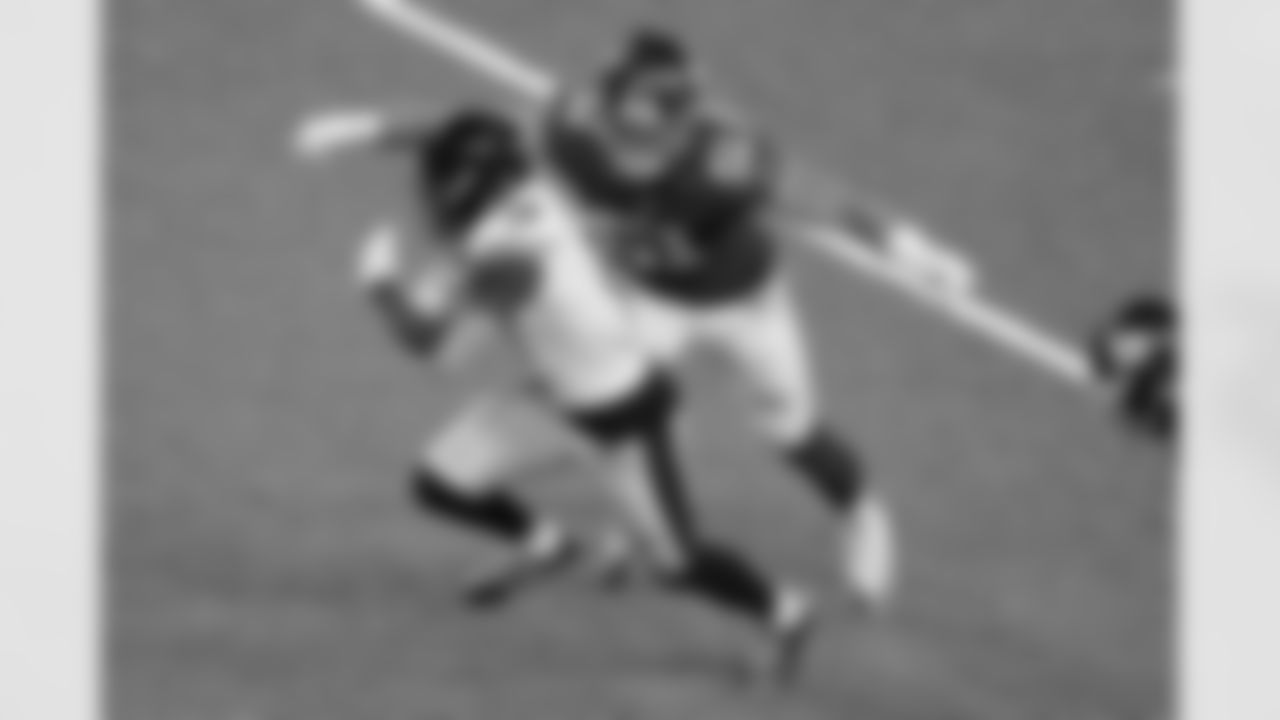
Pittsburgh Steelers wide receiver Diontae Johnson (18) runs the ball against New York Giants linebacker Kyler Fackrell (51) during the fourth quarter of an NFL football game Monday, Sept. 14, 2020, in East Rutherford, N.J. (AP Photo/Frank Franklin II)
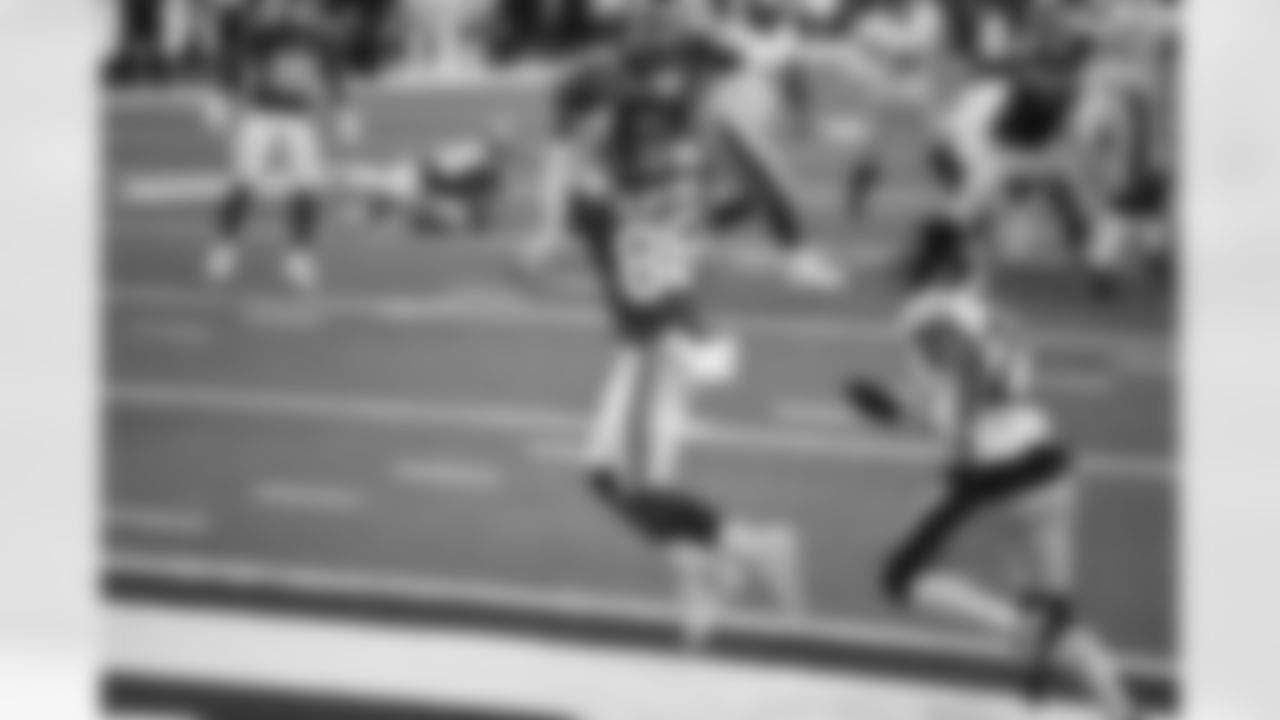
New York Giants wide receiver Darius Slayton (86) catches a touchdown pass during an NFL football game against the Pittsburgh Steelers, Monday, Sep. 14, 2020 in East Rutherford, N.J. (Alika Jenner/NFL)
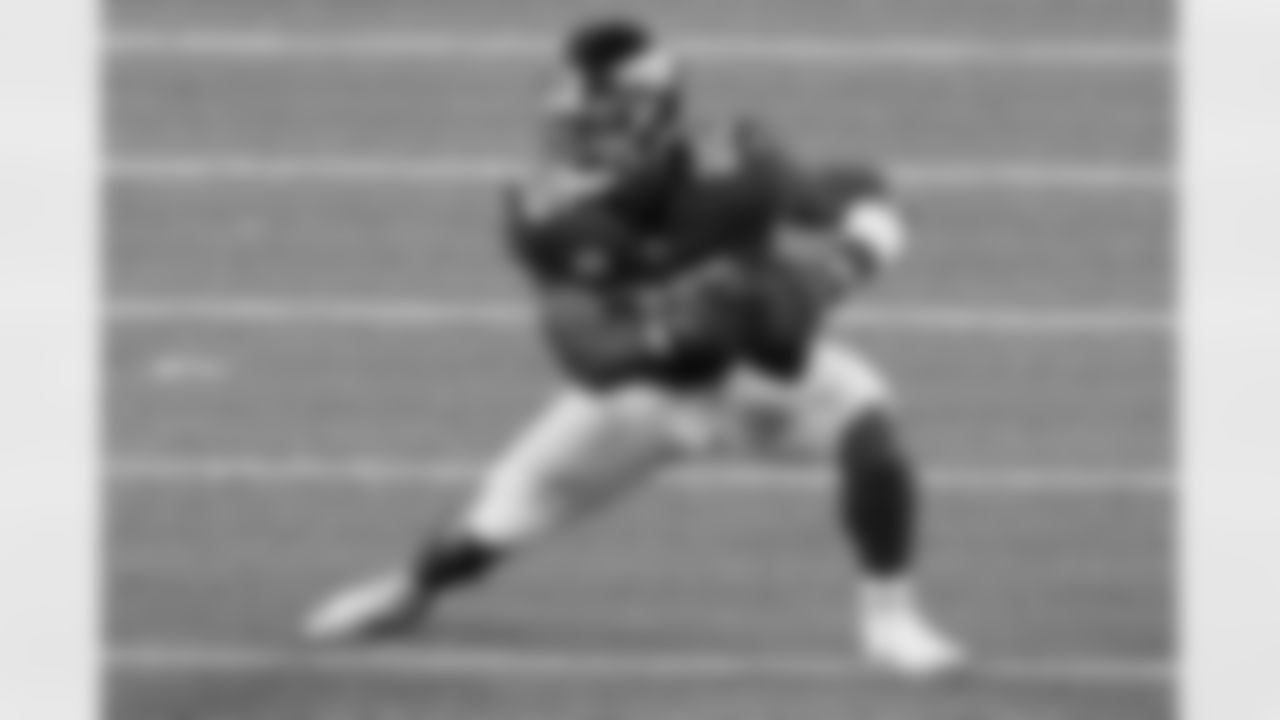
New York Giants running back Saquon Barkley (26) runs the ball against the Pittsburgh Steelers during the third quarter of an NFL football game Monday, Sept. 14, 2020, in East Rutherford, N.J. (AP Photo/Seth Wenig)
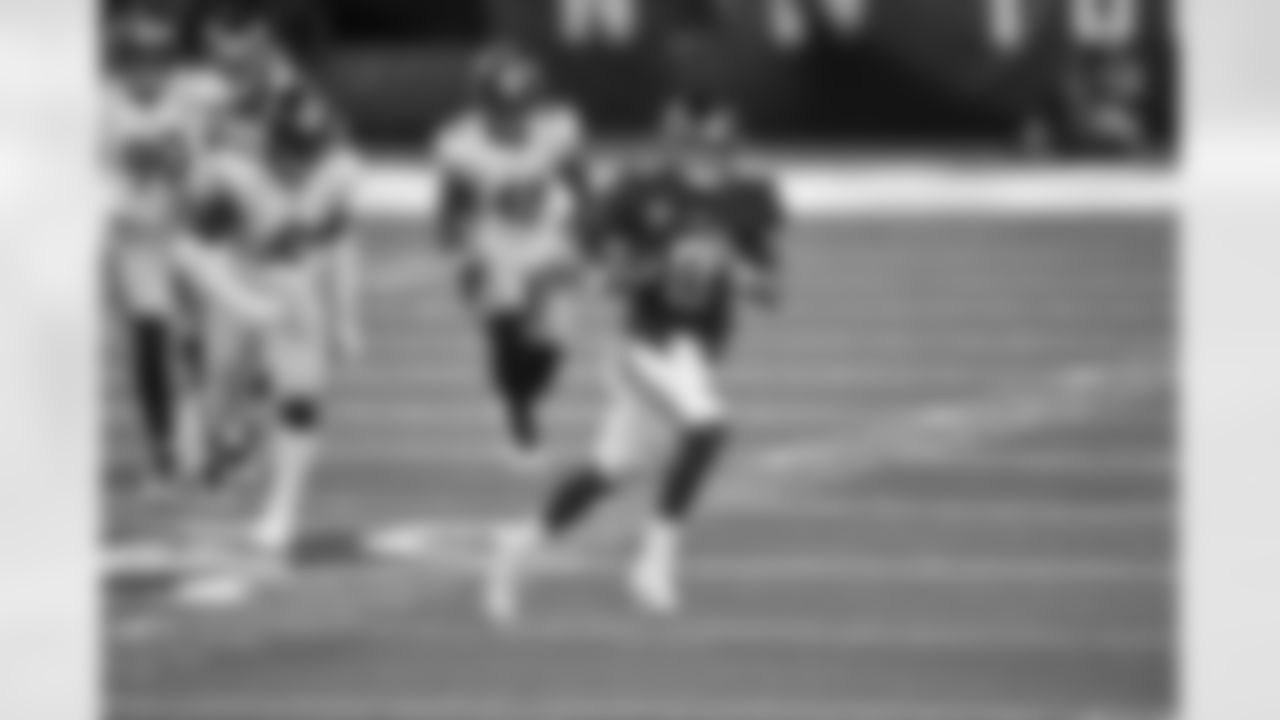
New York Giants quarterback Daniel Jones (8) scrambles during an NFL football game against the Pittsburgh Steelers, Monday, Sep. 14, 2020 in East Rutherford, N.J. (Alika Jenner/NFL)
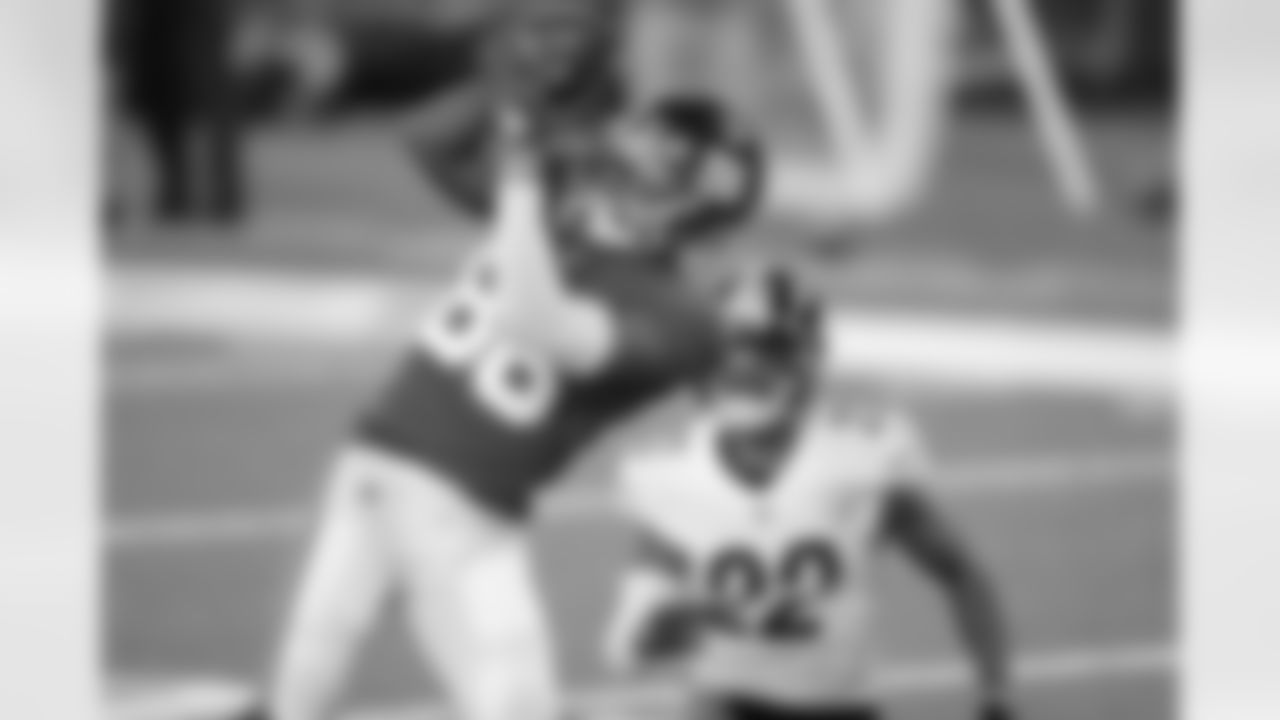
New York Giants wide receiver Darius Slayton (86) catches a touchdown pass during an NFL football game against the Pittsburgh Steelers, Monday, Sep. 14, 2020 in East Rutherford, N.J. (Michael Owens/NFL)
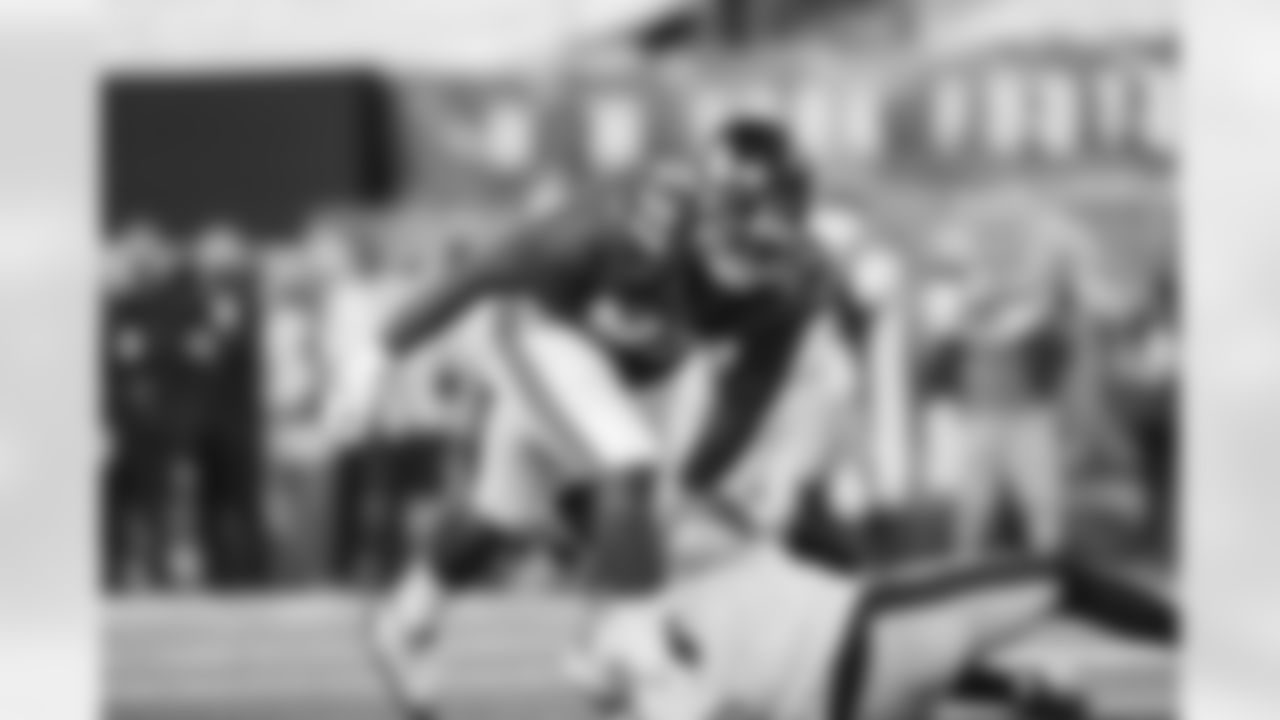
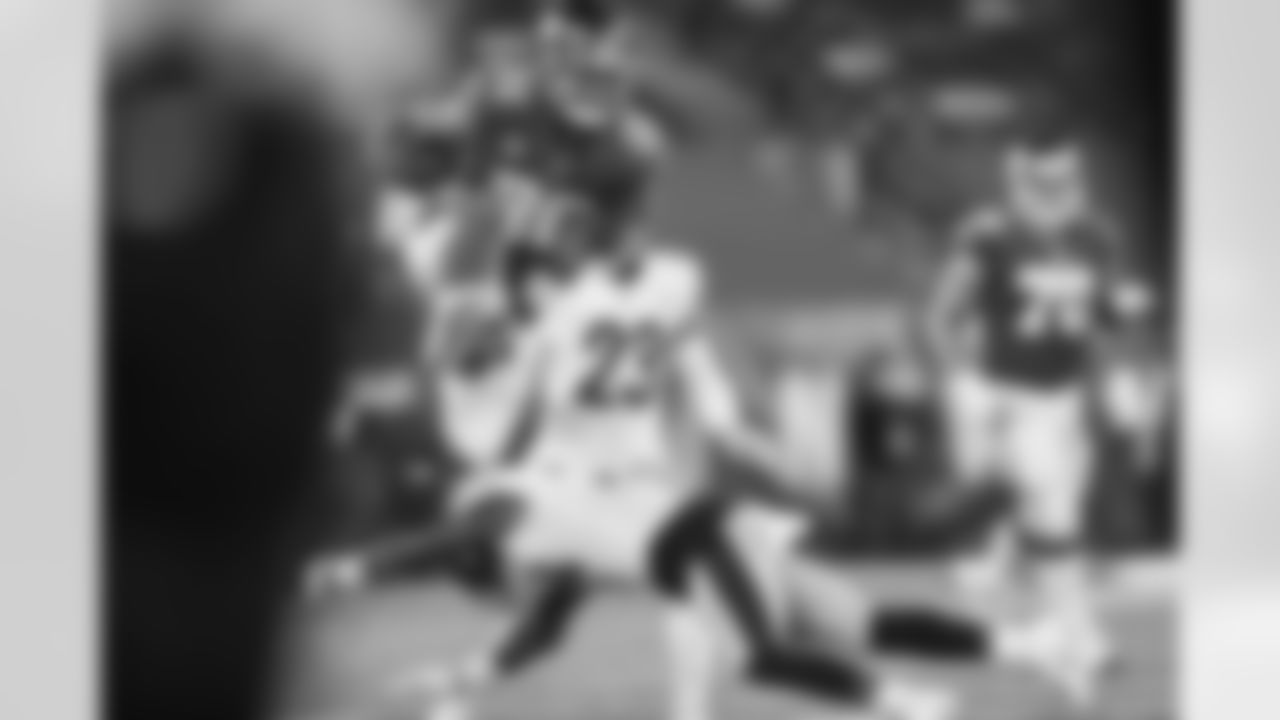
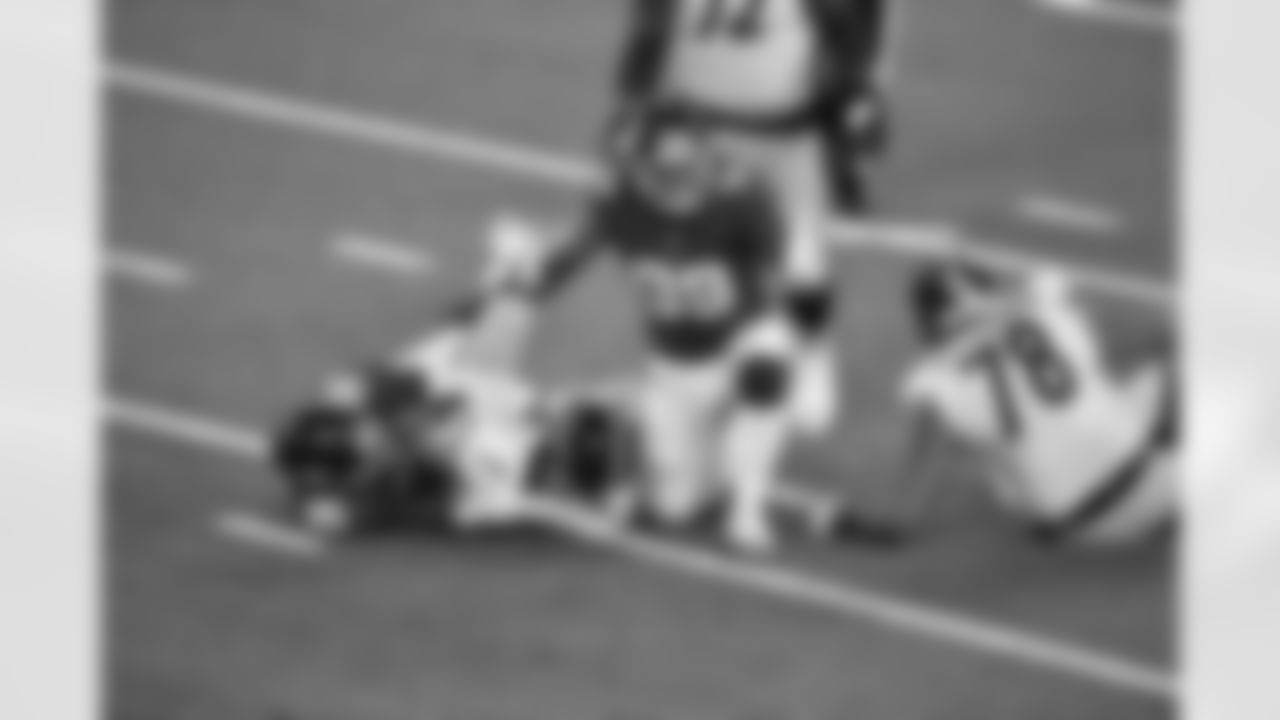
Pittsburgh Steelers quarterback Ben Roethlisberger (7) gets sacked by New York Giants defensive end Leonard Williams (99) and defensive tackle B.J. Hill (95) during an NFL football game, Monday, Sep. 14, 2020 in East Rutherford, N.J. (Alika Jenner/NFL)
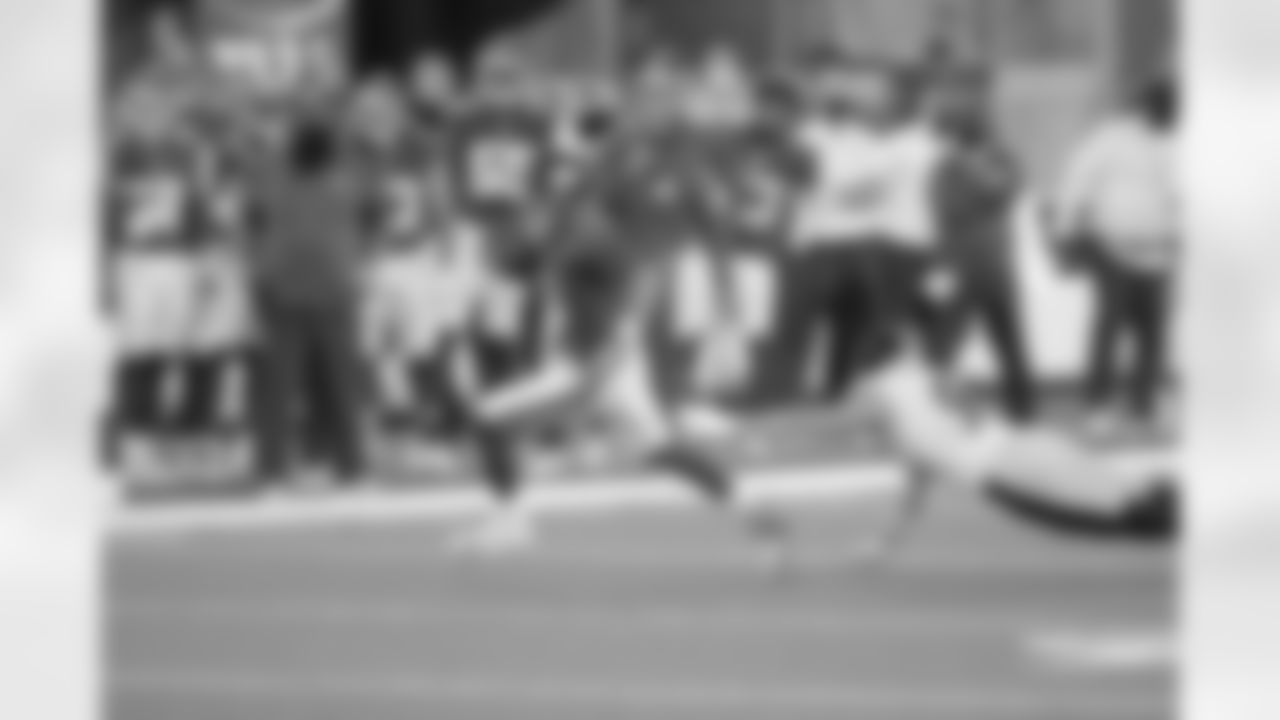
New York Giants quarterback Daniel Jones (8) runs the ball during an NFL football game against the Pittsburgh Steelers, Monday, Sep. 14, 2020 in East Rutherford, N.J. (Michael Owens/NFL)
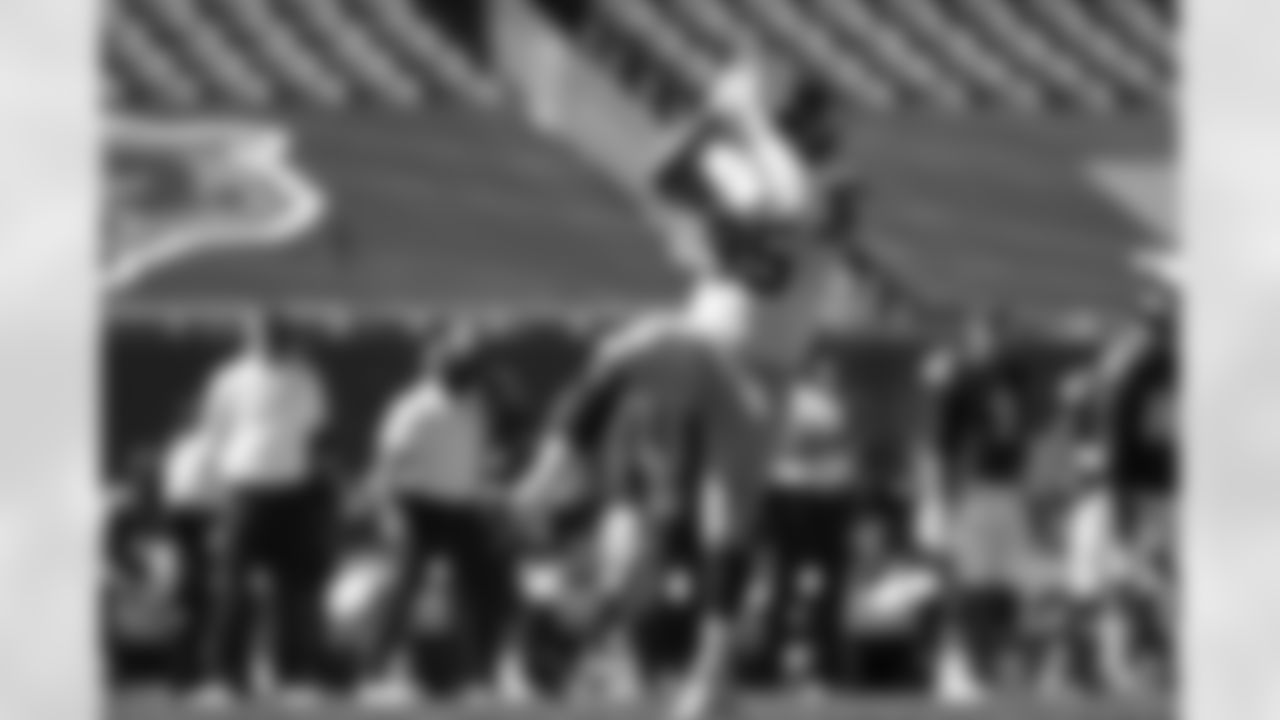
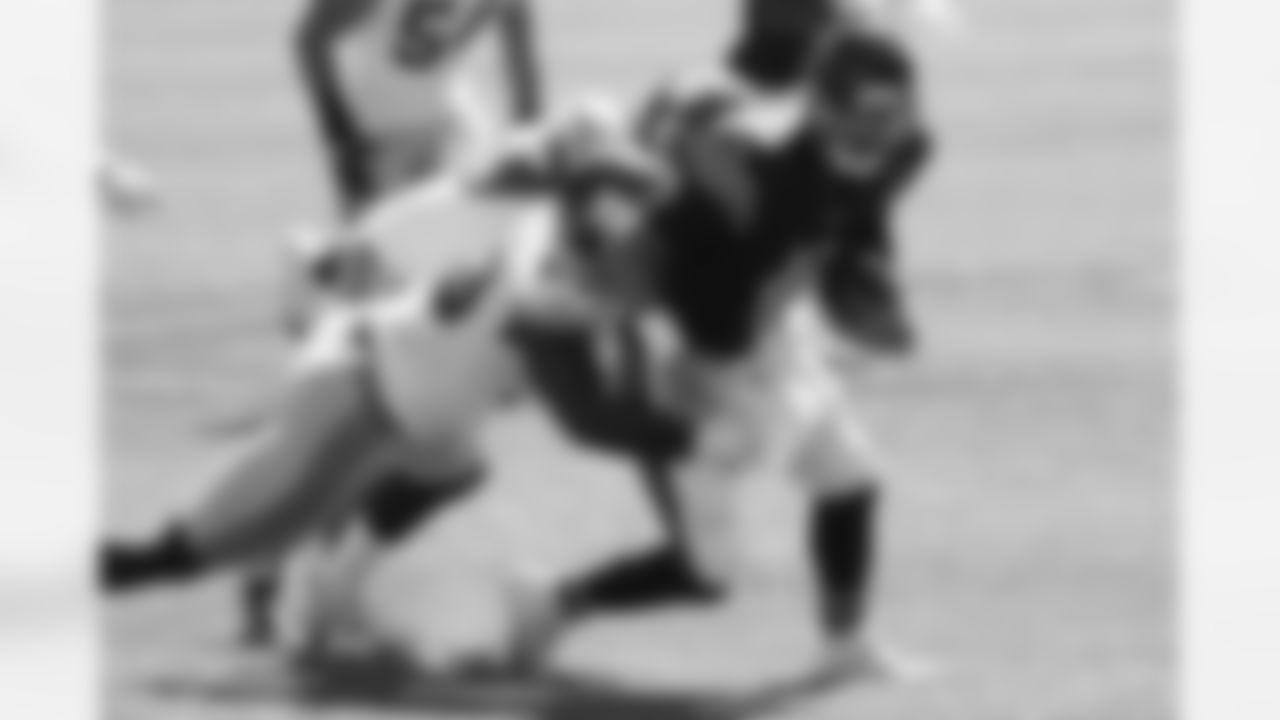
New York Giants linebacker Lorenzo Carter (59) sacks Chicago Bears quarterback Mitchell Trubisky (10) during the first half of an NFL football game in Chicago, Sunday, Sept. 20, 2020. (AP Photo/Nam Y. Huh)
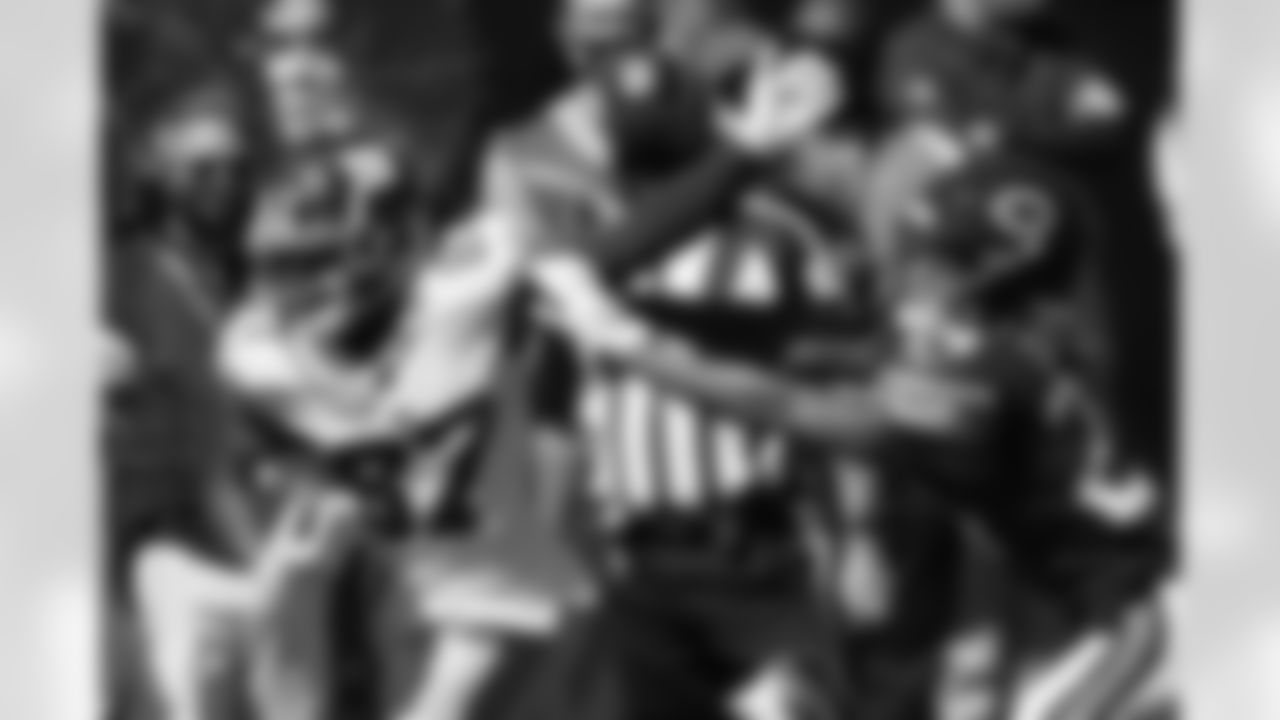
New York Giants wide receiver Sterling Shepard (87) is pushed by Chicago Bears cornerback Buster Skrine (24) during the first half of an NFL football game in Chicago, Sunday, Sept. 20, 2020. (AP Photo/Charles Rex Arbogast)
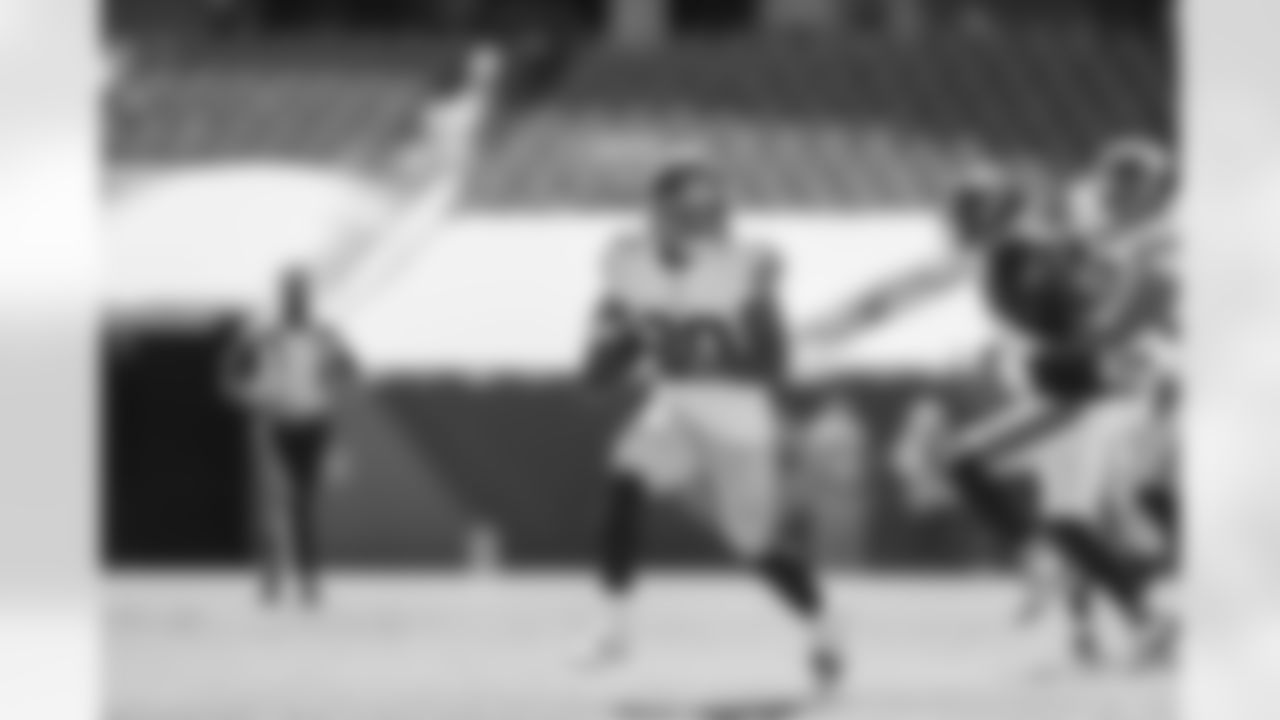
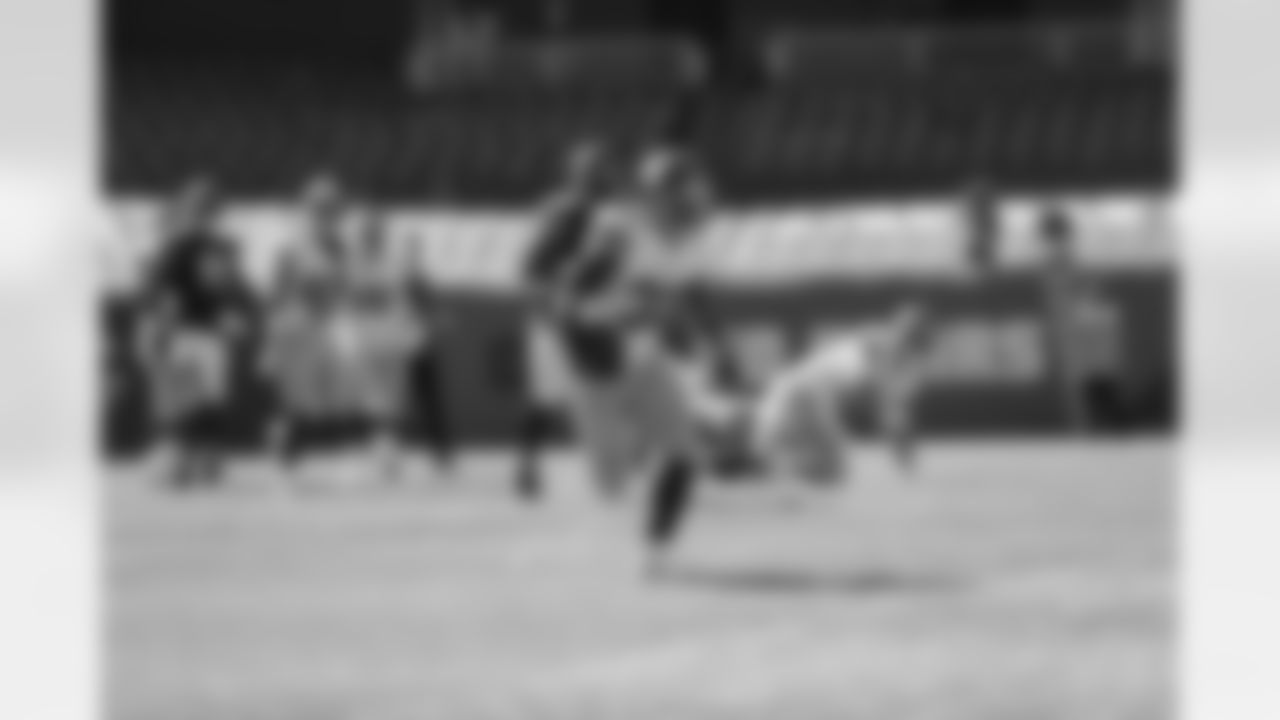
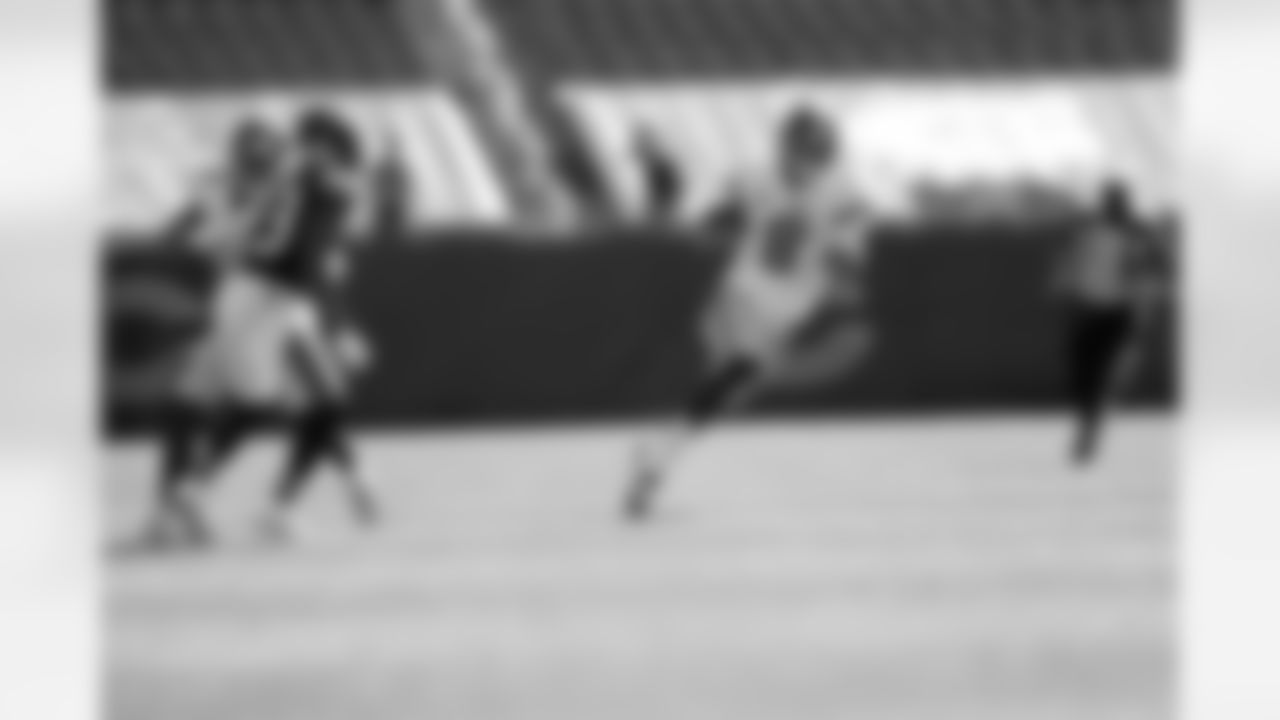
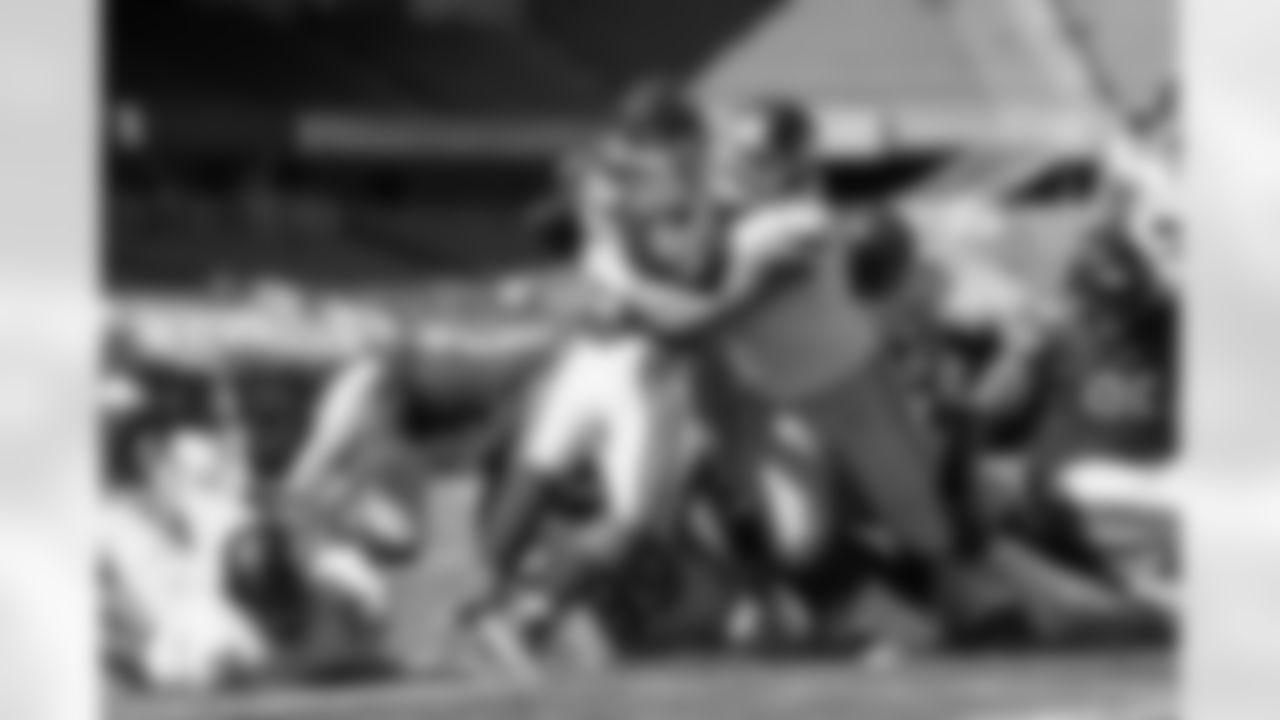
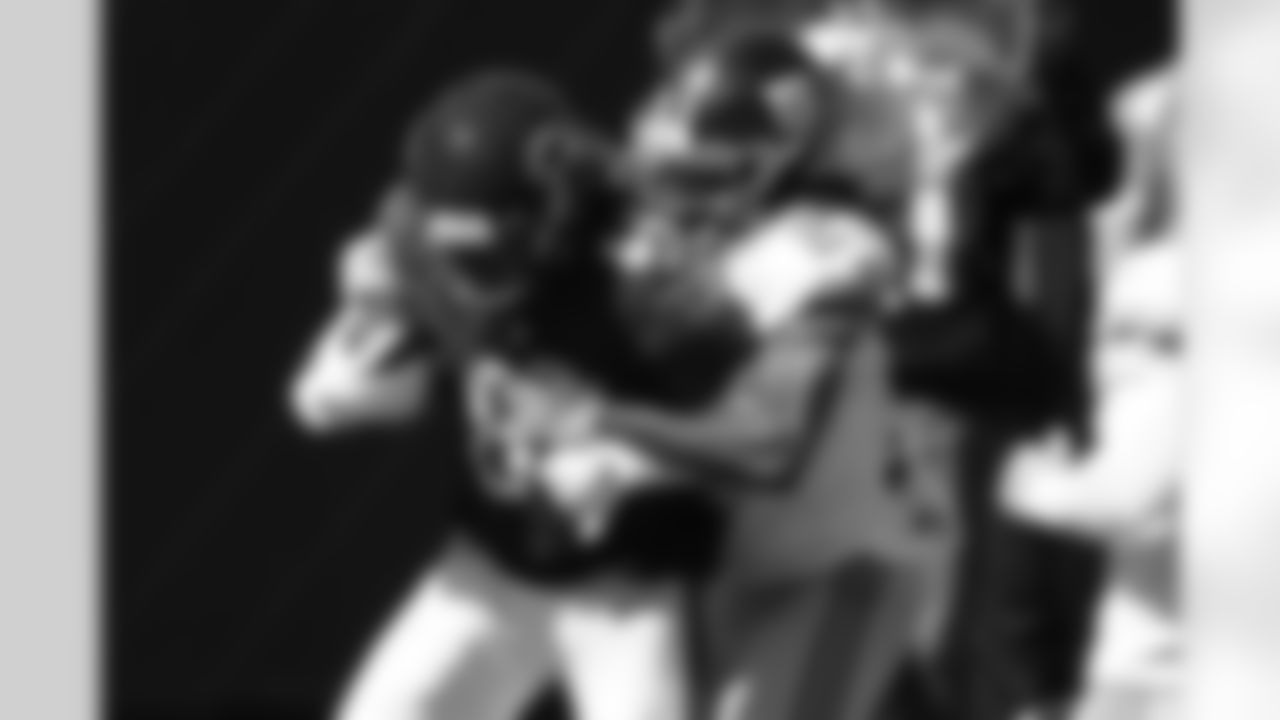
Chicago Bears wide receiver Cordarrelle Patterson (84) is tackled by New York Giants cornerback Isaac Yiadom (27) during the second half of an NFL football game in Chicago, Sunday, Sept. 20, 2020. (AP Photo/Charles Rex Arbogast)
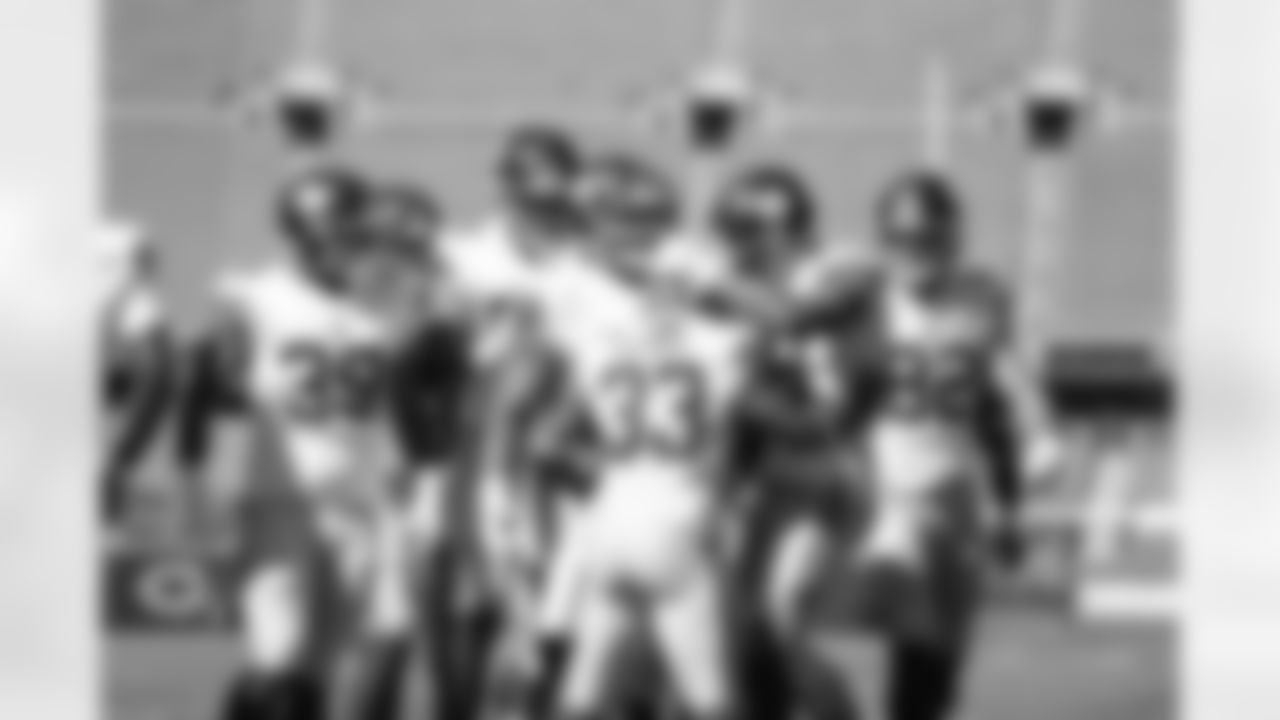
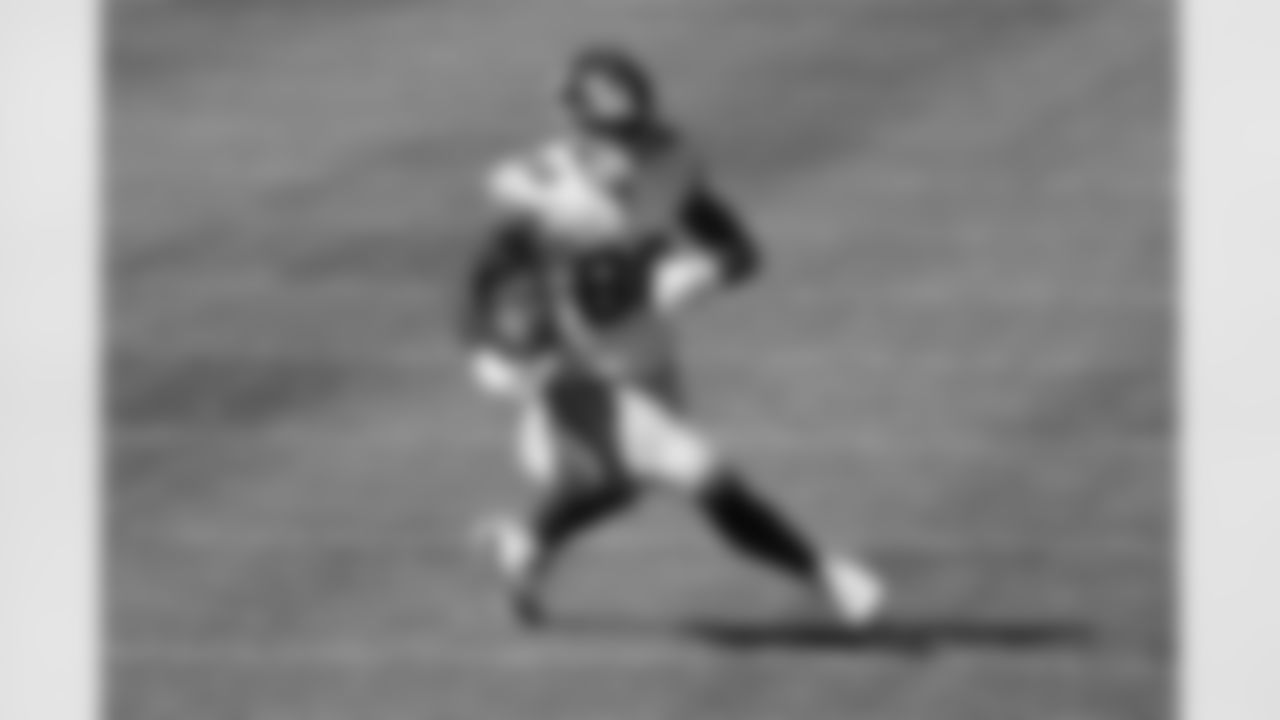
New York Giants tight end Evan Engram (88) runs after a catch against the Chicago Bears during the second half of an NFL football game in Chicago, Sunday, Sept. 20, 2020. (AP Photo/Charles Rex Arbogast)
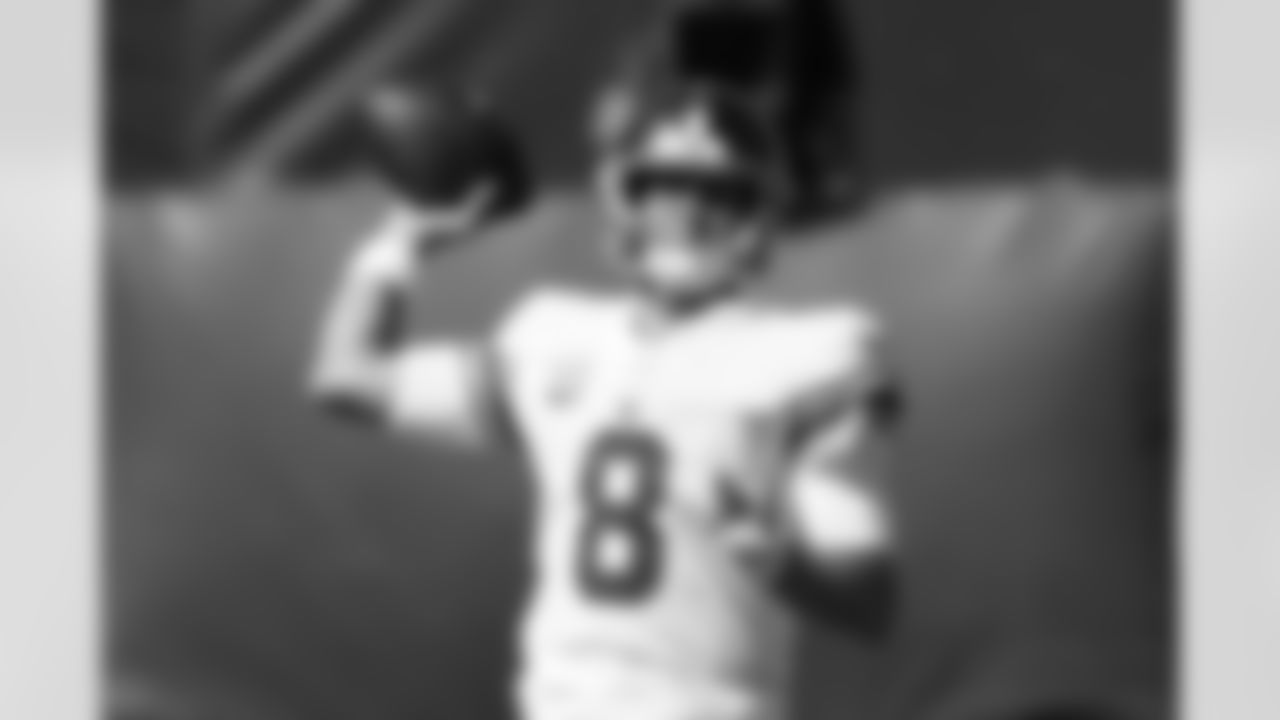
QB Daniel Jones
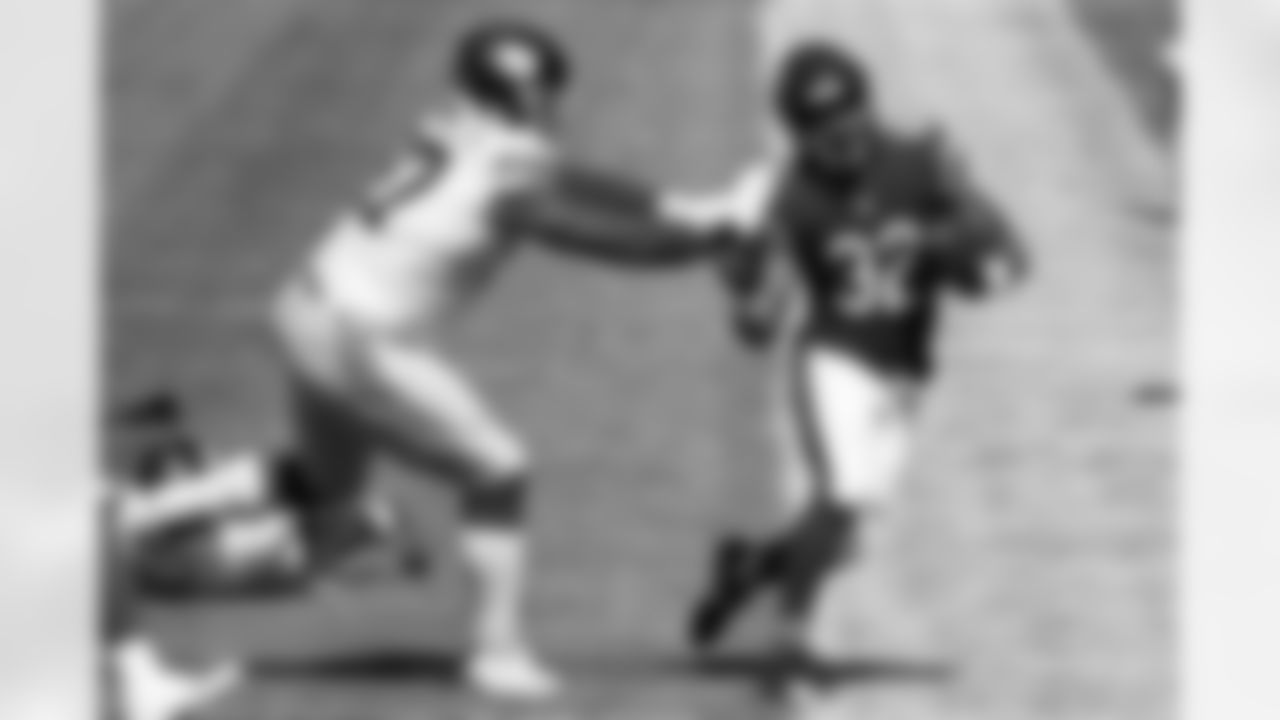
New York Giants defensive tackle Dexter Lawrence (97) pushes Chicago Bears running back David Montgomery (32) out of bounds during the first half of an NFL football game in Chicago, Sunday, Sept. 20, 2020. (AP Photo/Charles Rex Arbogast)
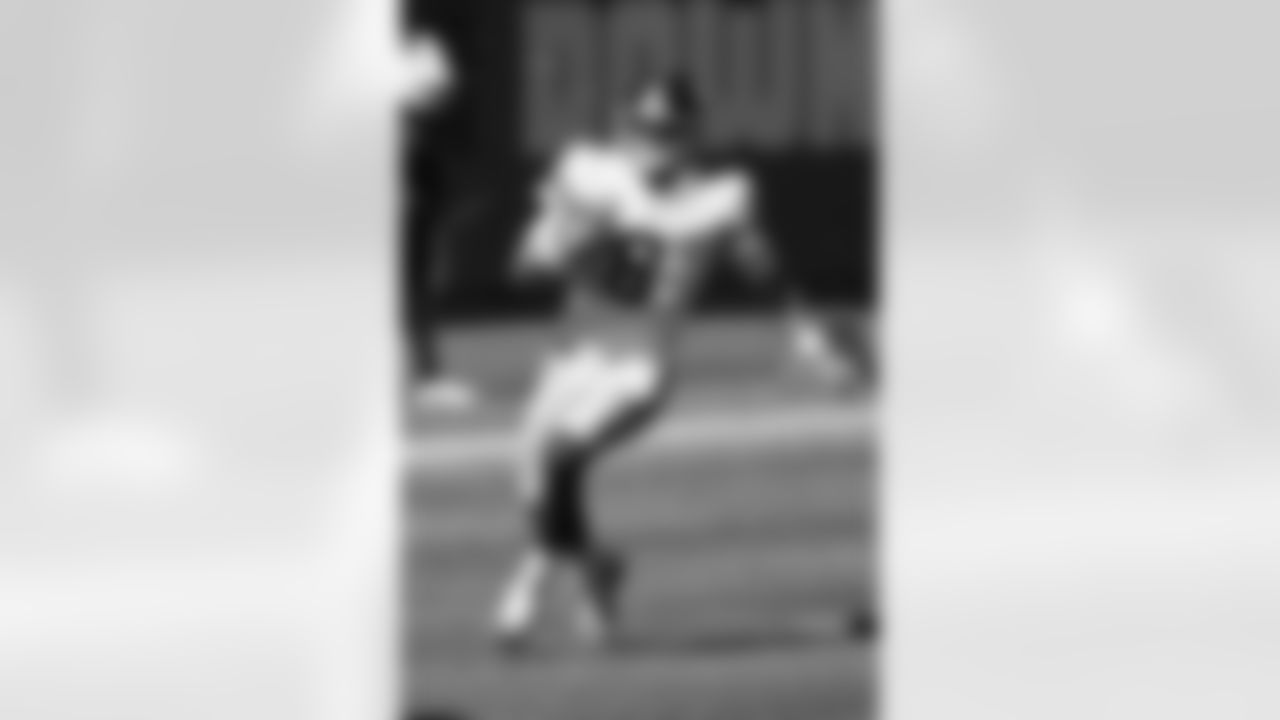
New York Giants quarterback Daniel Jones (8) runs the ball against the Chicago Bears during the first half of an NFL football game in Chicago, Sunday, Sept. 20, 2020. (AP Photo/Charles Rex Arbogast)
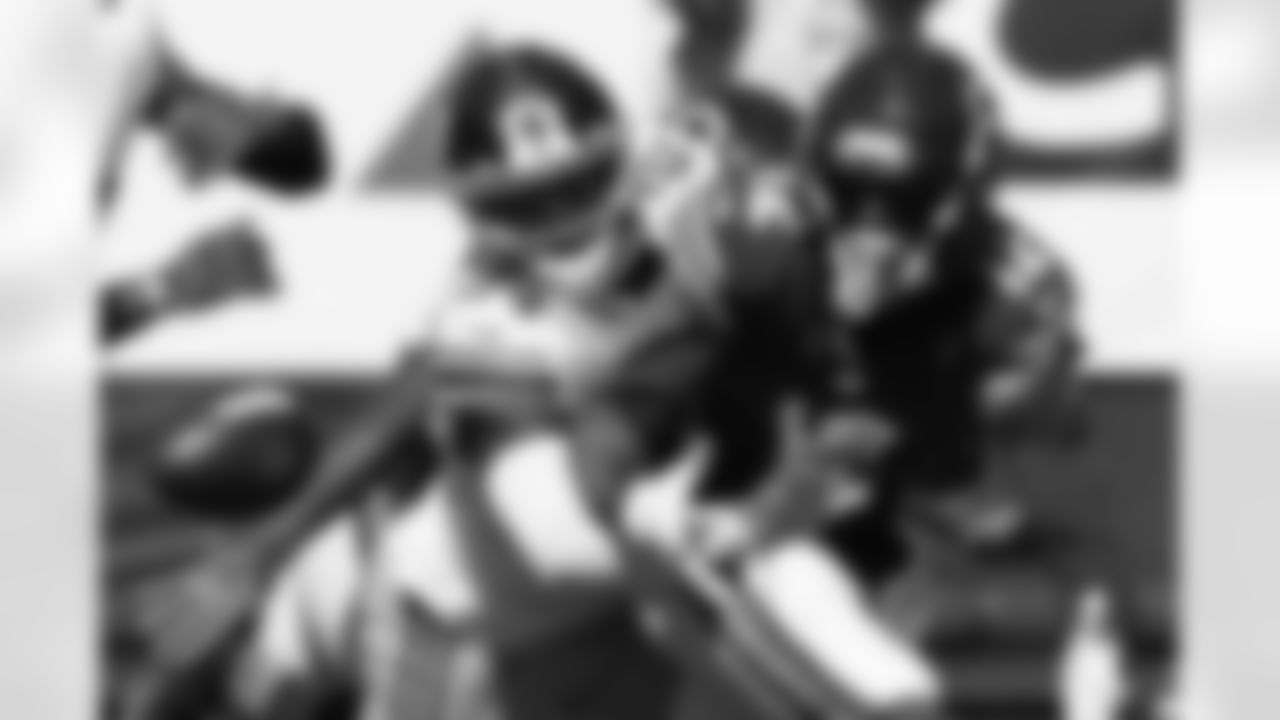
New York Giants cornerback James Bradberry (24) defends Chicago Bears wide receiver Allen Robinson (12) during the first half of an NFL football game in Chicago, Sunday, Sept. 20, 2020. (AP Photo/Charles Rex Arbogast)
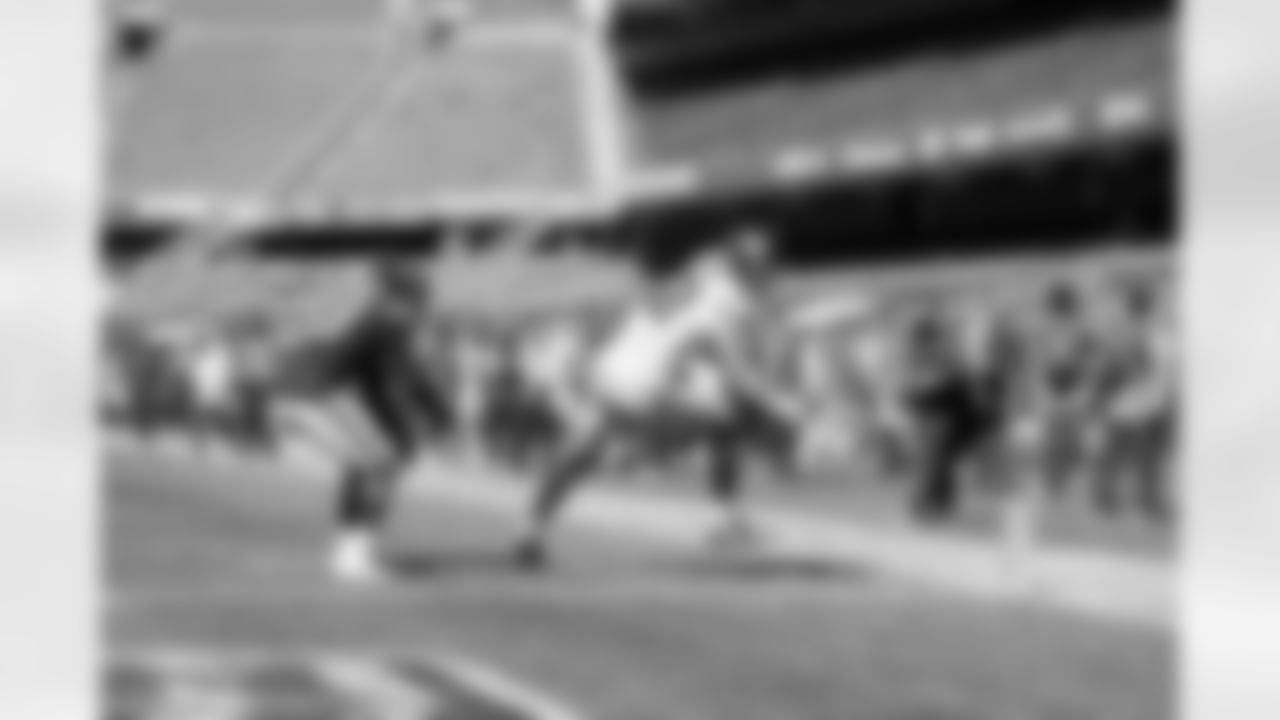
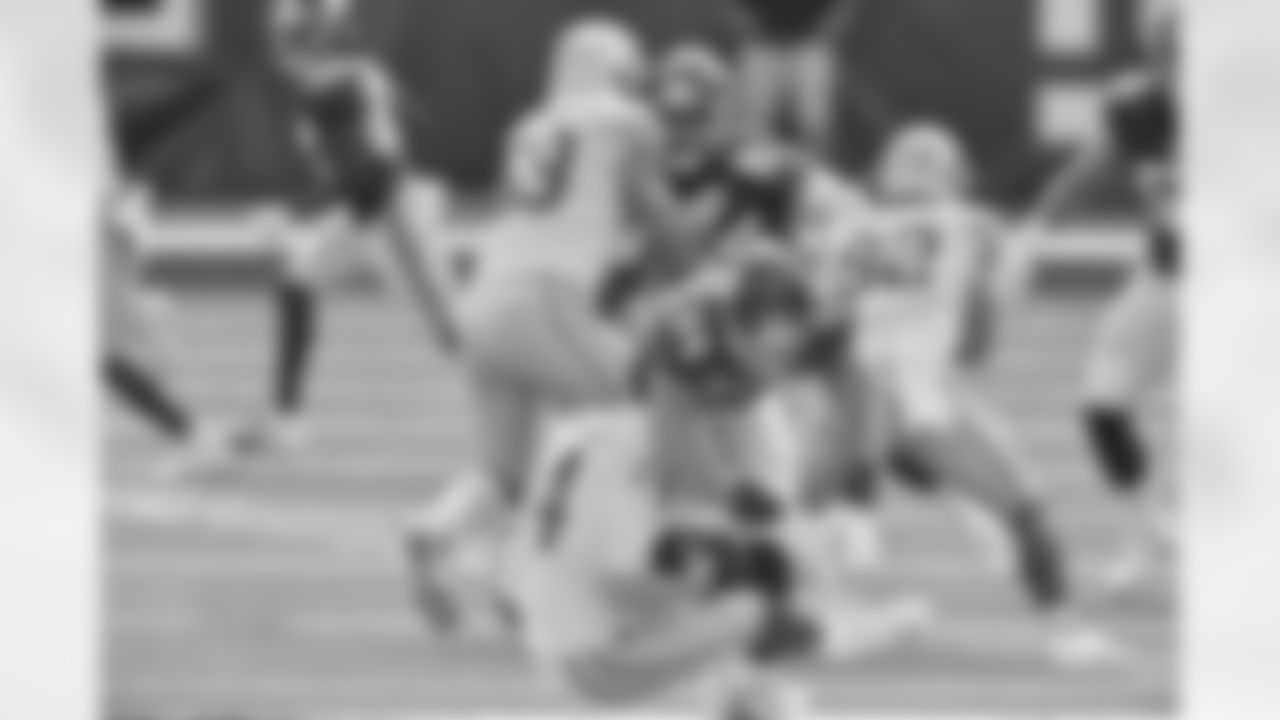
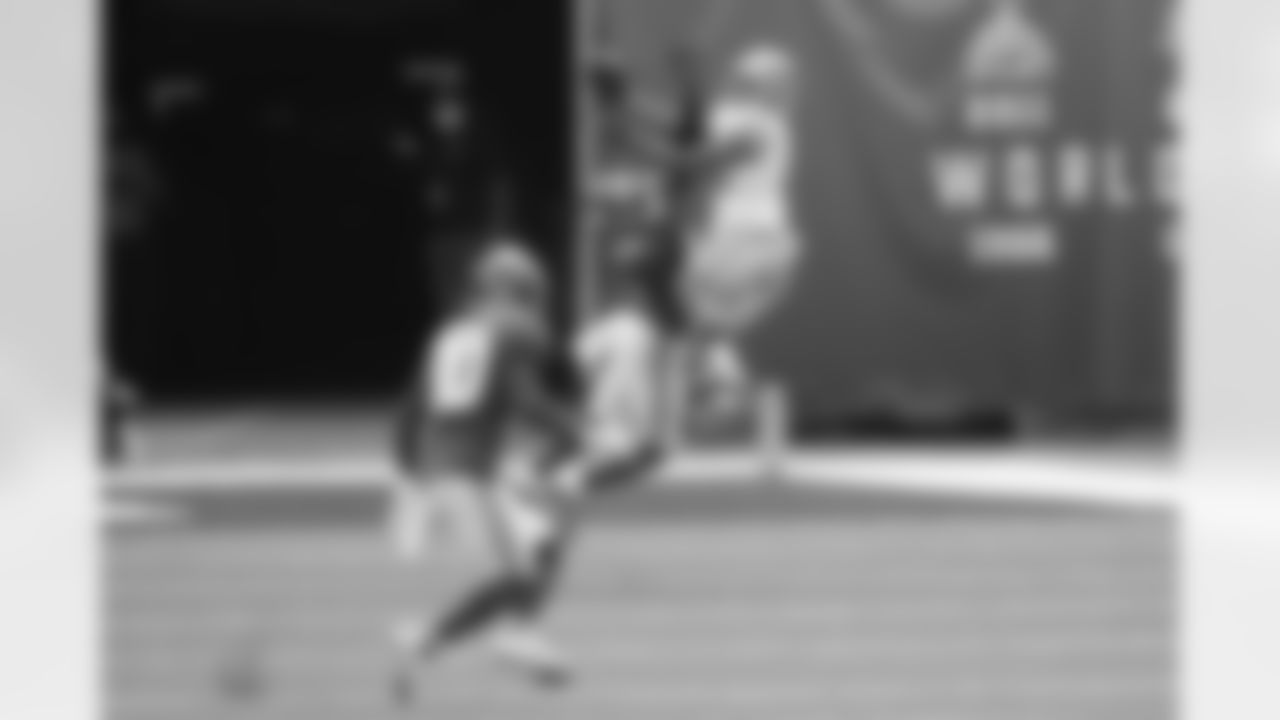
San Francisco 49ers' Jordan Reed, right, tries to grab a pass over New York Giants' Logan Ryan during the first half of an NFL football game, Sunday, Sept. 27, 2020, in East Rutherford, N.J. (AP Photo/Corey Sipkin)
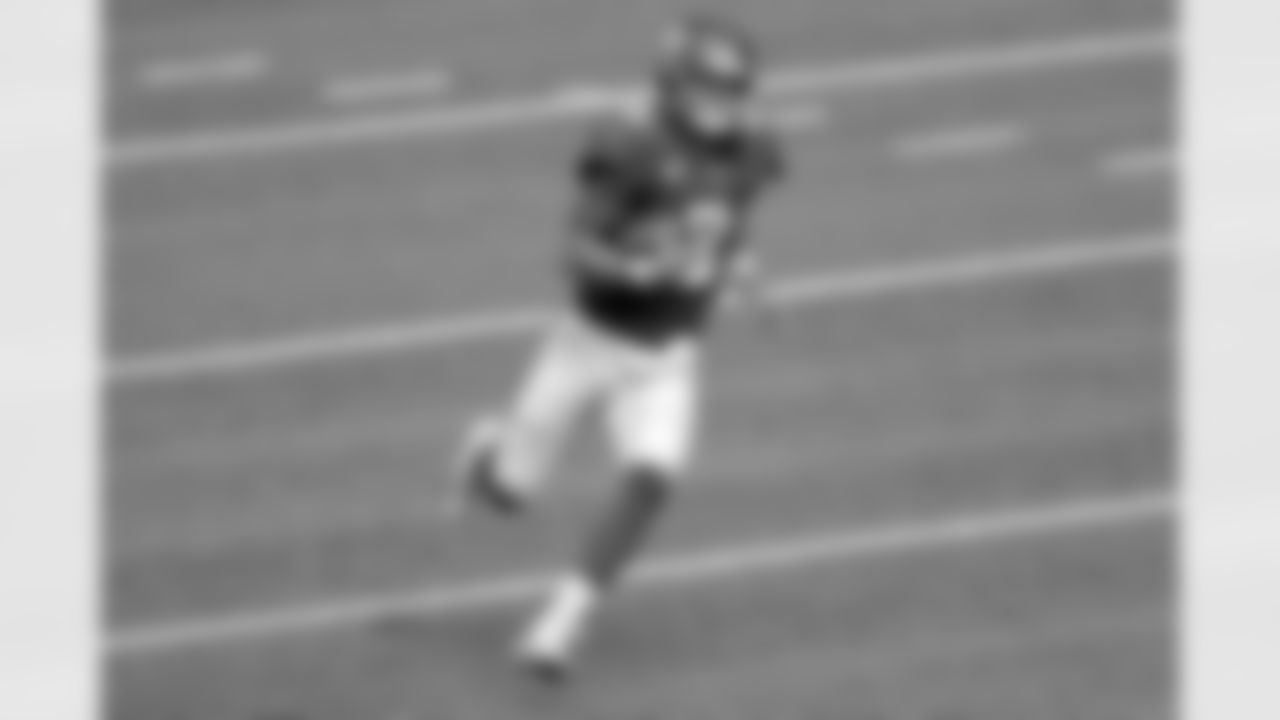
New York Giants quarterback Daniel Jones (8) during NFL football game against the San Francisco 49ers on Sunday, September 27, 2020 in East Rutherford, New Jersey. (Mikey Owens/NFL)
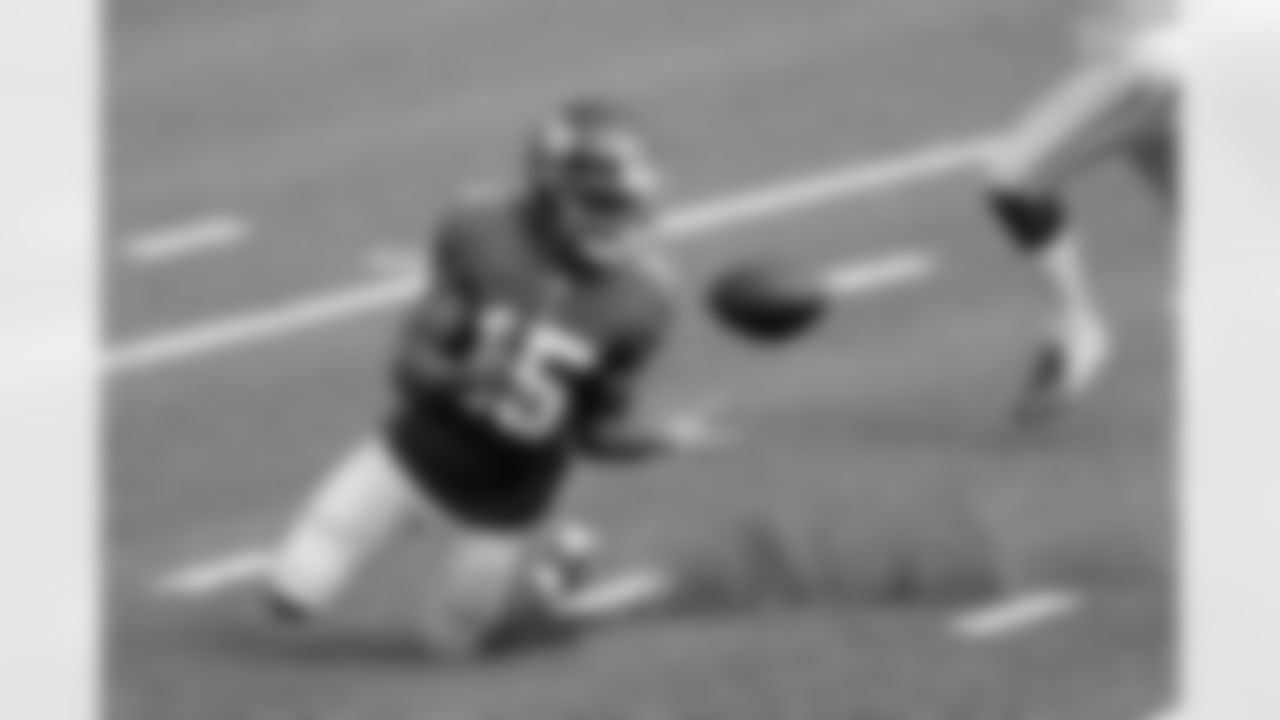
New York Giants wide receiver Golden Tate (15) during NFL football game against the San Francisco 49ers on Sunday, September 27, 2020 in East Rutherford, New Jersey. (Mikey Owens/NFL)
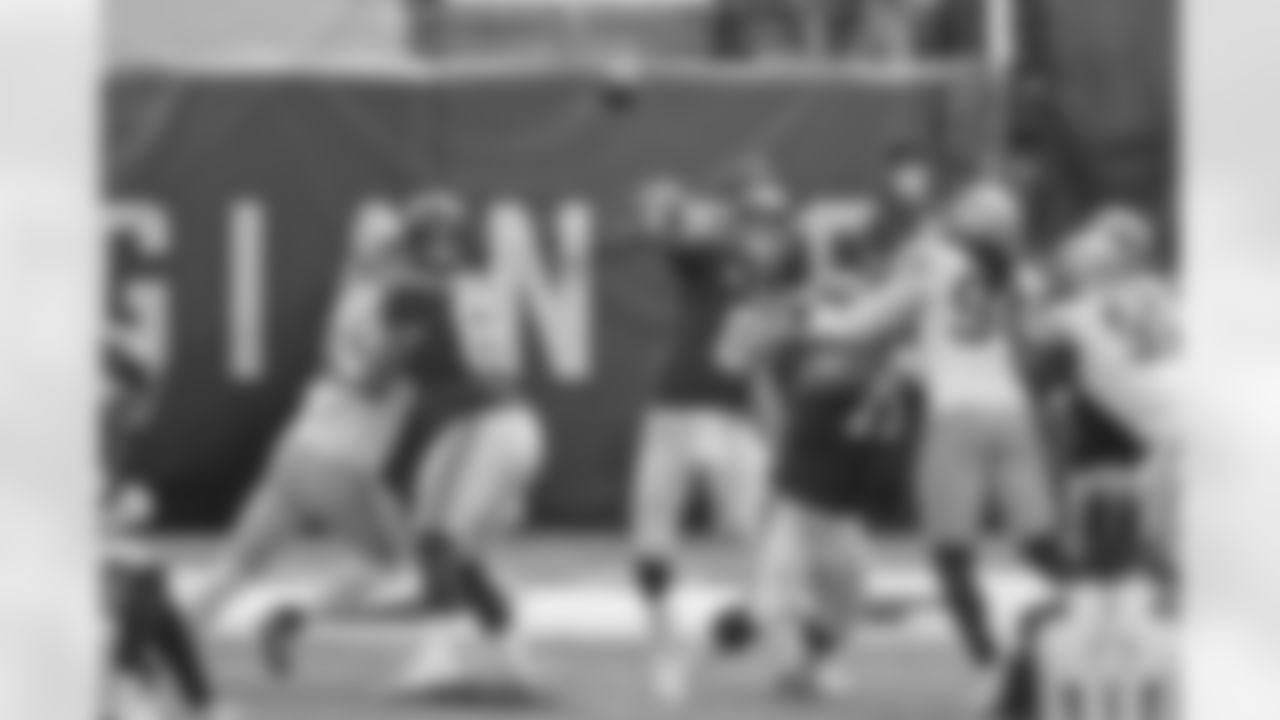
New York Giants quarterback Daniel Jones, center, throws during the first half of an NFL football game against the San Francisco 49ers, Sunday, Sept. 27, 2020, in East Rutherford, N.J. (AP Photo/Corey Sipkin)
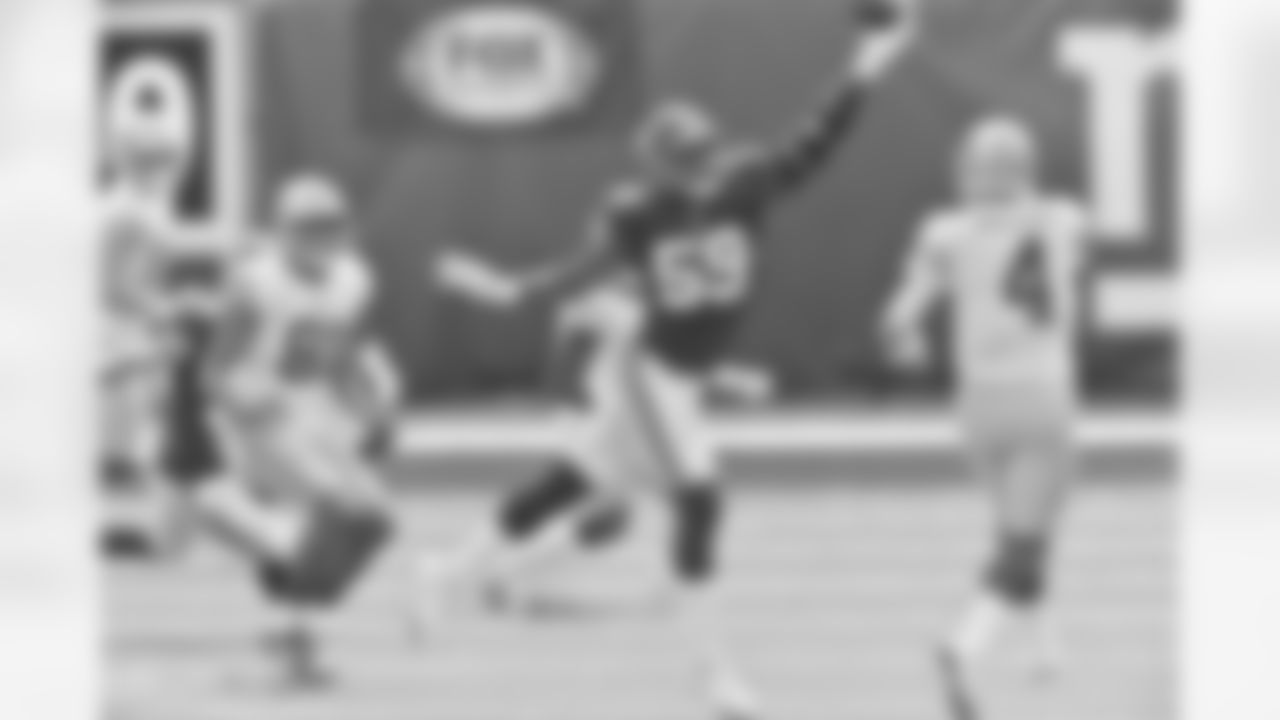
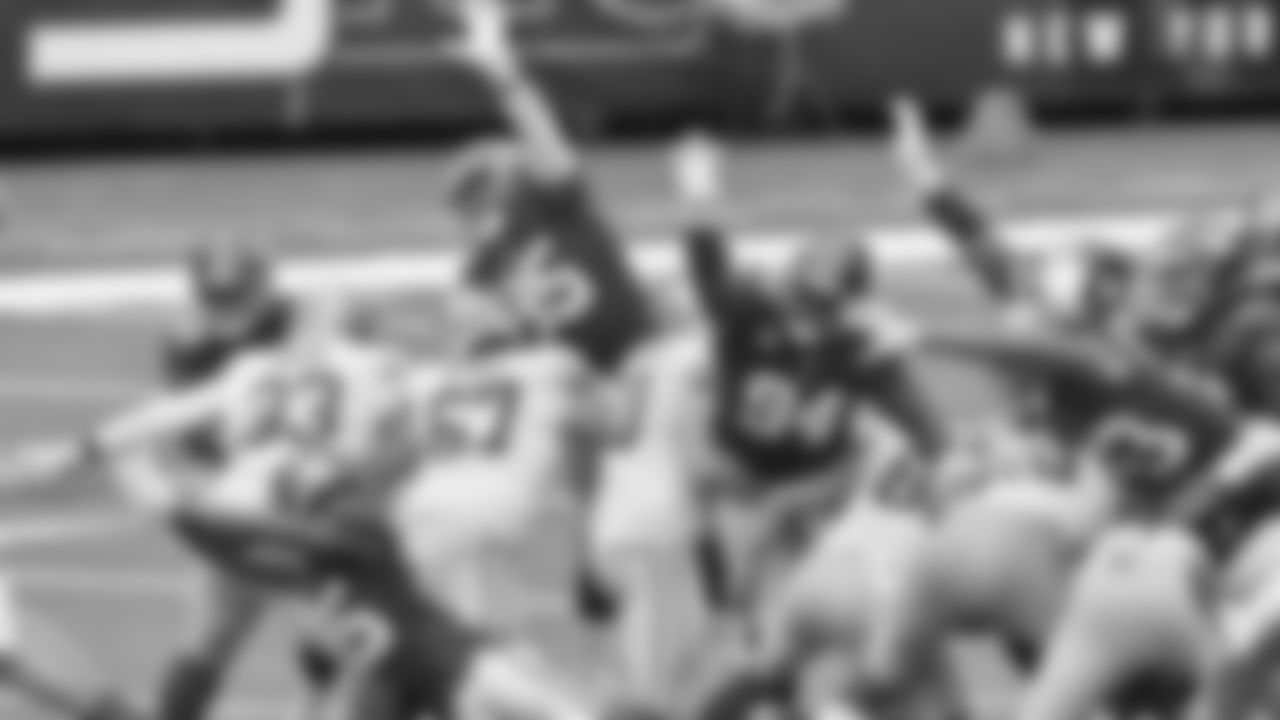
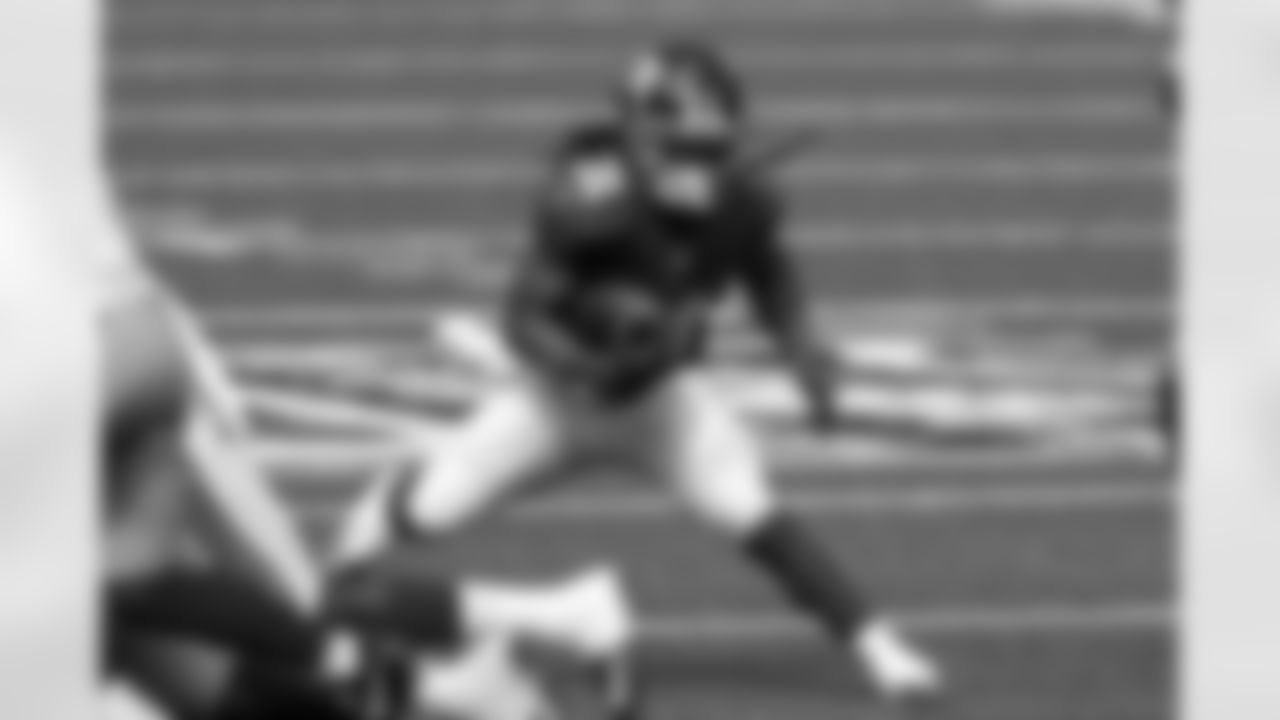
New York Giants running back Devonta Freeman (31) in action against the San Francisco 49ers during an NFL football game, Sunday, Sept. 27, 2020, in East Rutherford, N.J. (AP Photo/Adam Hunger)
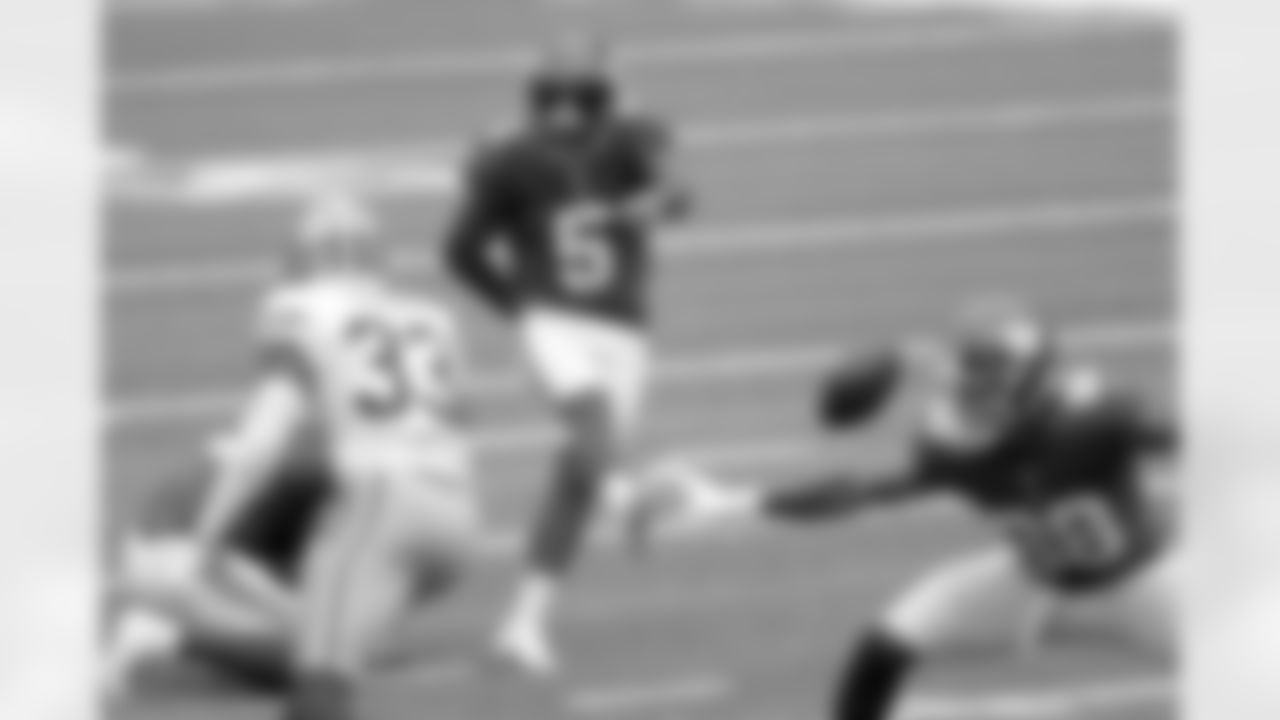
New York Giants place kicker Graham Gano (5) kicks during NFL football game against the San Francisco 49ers on Sunday, September 27, 2020 in East Rutherford, New Jersey. (Mikey Owens/NFL)
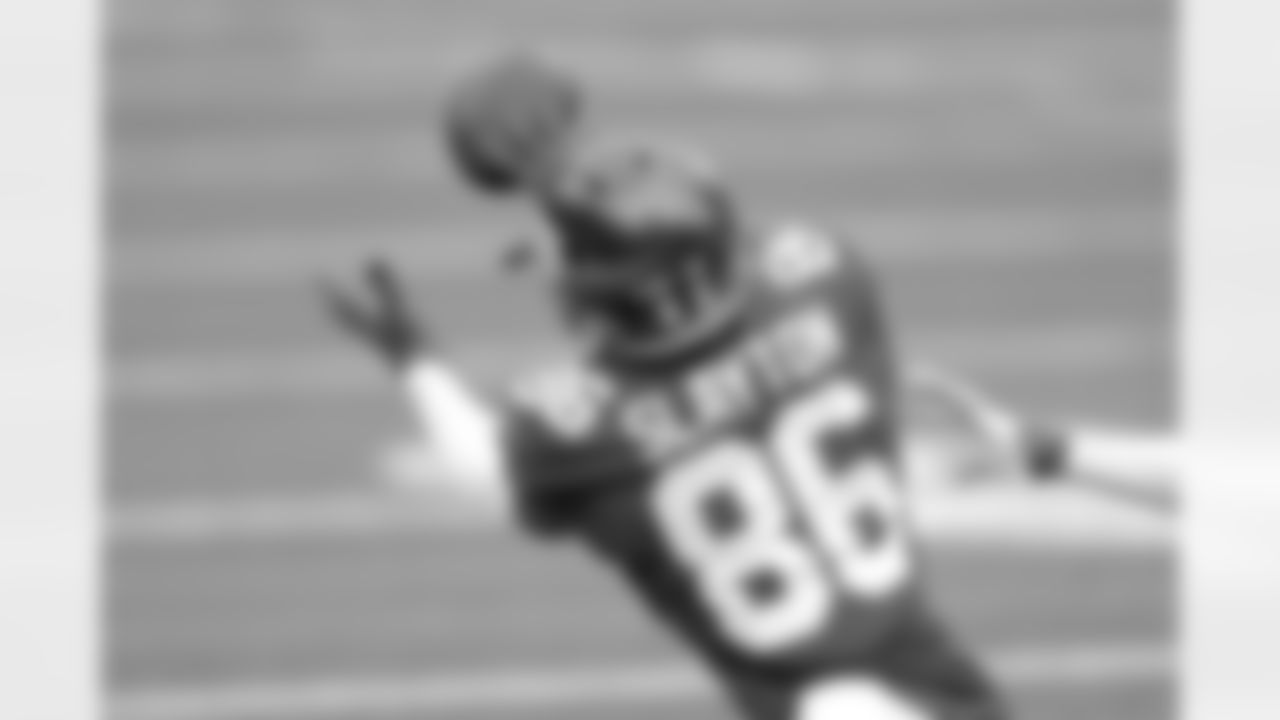
New York Giants wide receiver Darius Slayton (86) during NFL football game against the San Francisco 49ers on Sunday, September 27, 2020 in East Rutherford, New Jersey. (Mikey Owens/NFL)
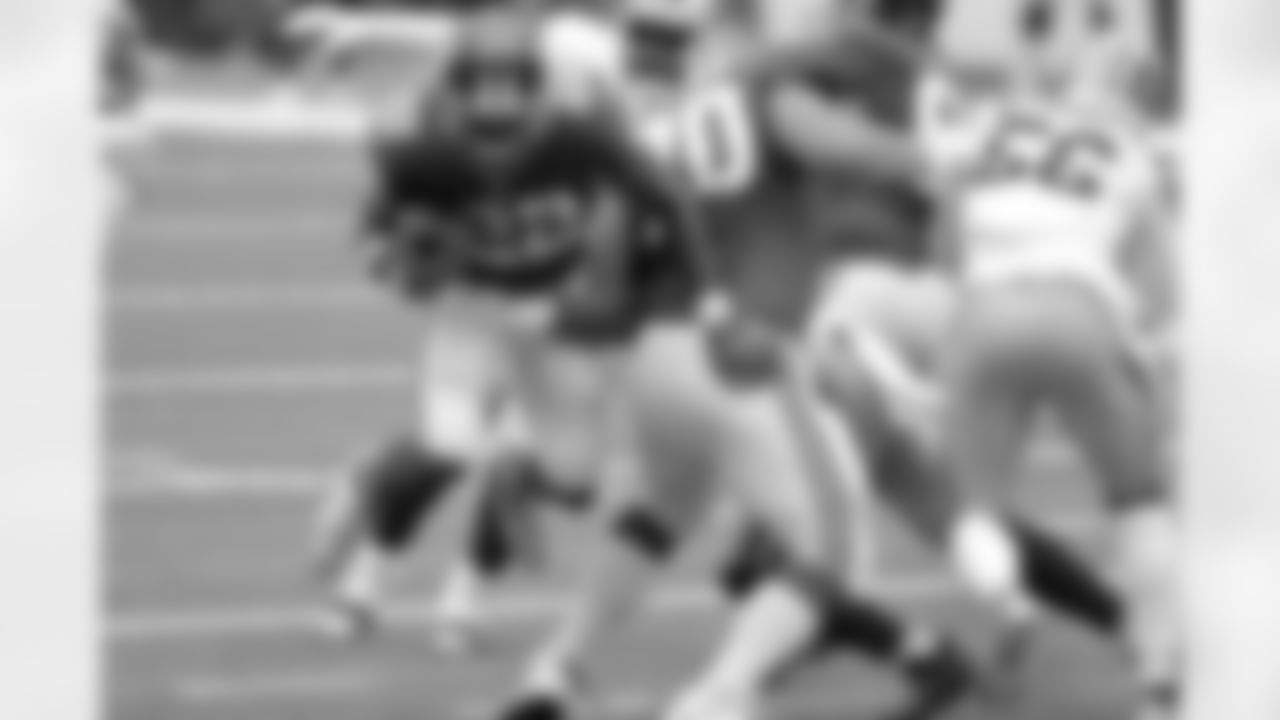
New York Giants running back Wayne Gallman (22) runs with the ball during NFL football game against the San Francisco 49ers on Sunday, September 27, 2020 in East Rutherford, New Jersey. (Mikey Owens/NFL)
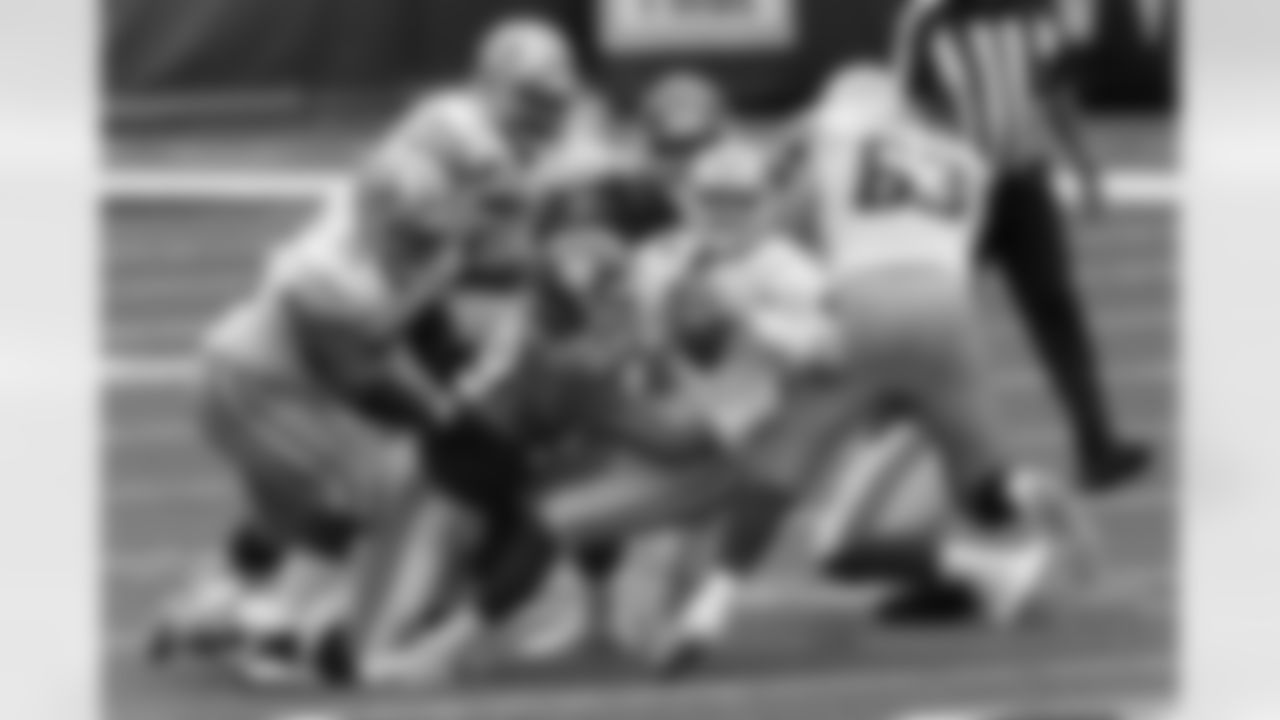
San Francisco 49ers quarterback Nick Mullens, center, is sacked by New York Giants Leonard Williams (99) during the first half of an NFL football game, Sunday, Sept. 27, 2020, in East Rutherford, N.J. (AP Photo/Corey Sipkin)
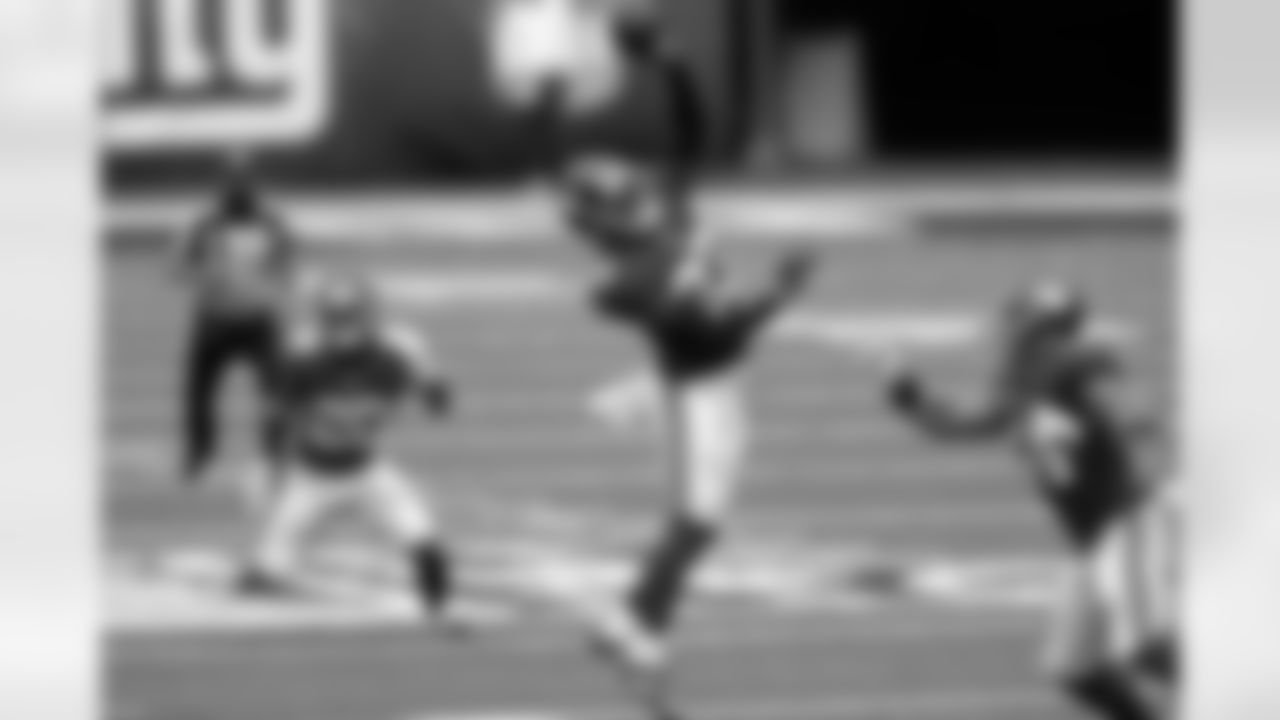
New York Giants cornerback Logan Ryan (23) in action against the San Francisco 49ers during an NFL football game, Sunday, Sept. 27, 2020, in East Rutherford, N.J. (AP Photo/Adam Hunger)
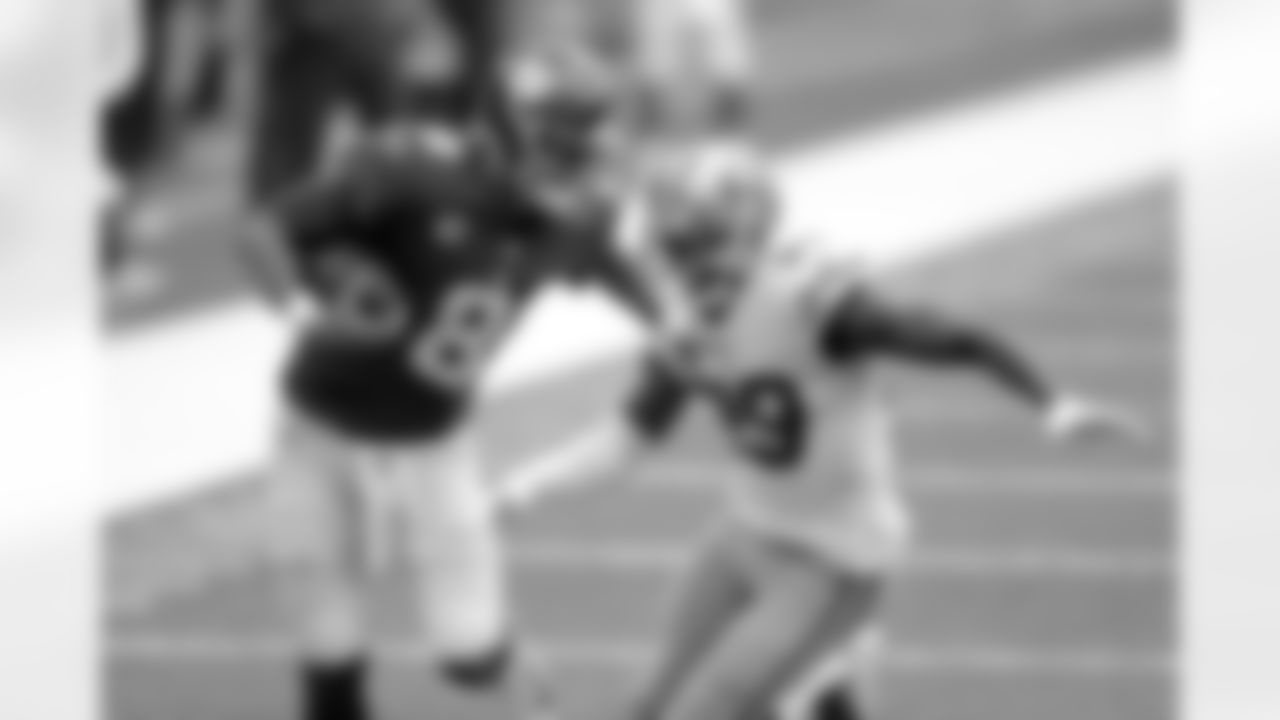
New York Giants quarterback Daniel Jones (8) runs the ball during NFL football game against the San Francisco 49ers on Sunday, September 27, 2020 in East Rutherford, New Jersey. (Mikey Owens/NFL)
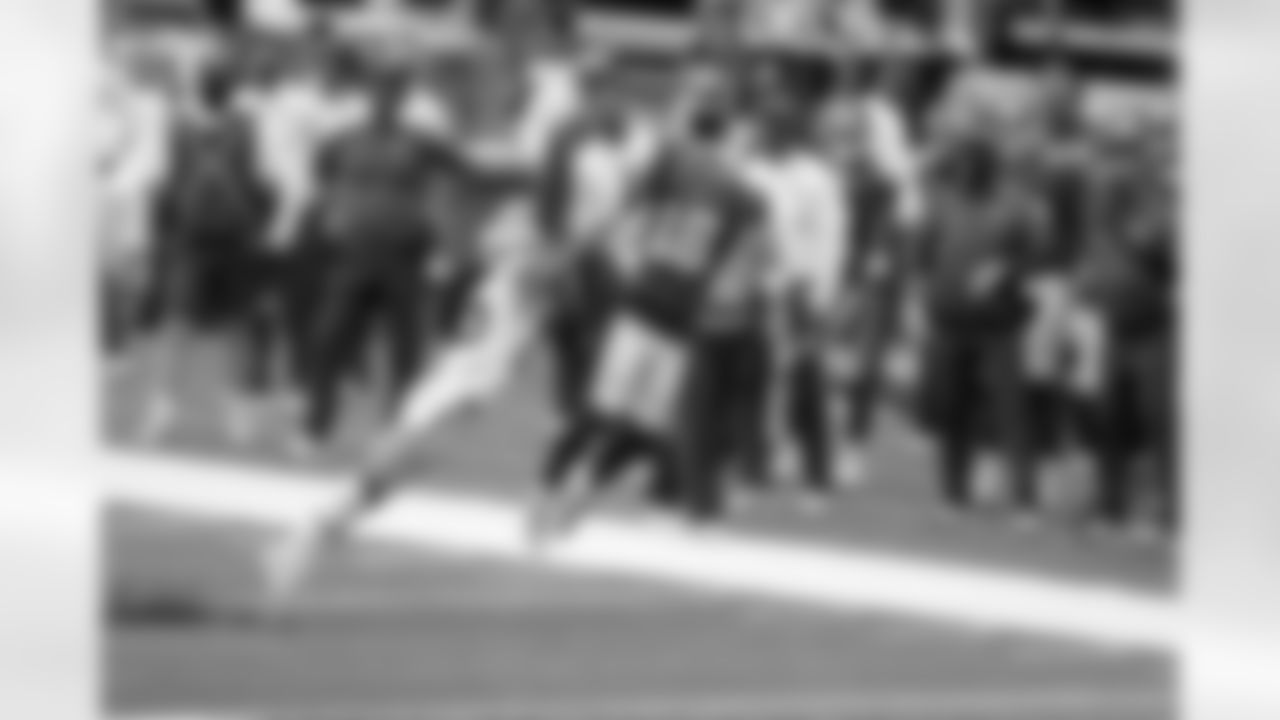
New York Giants wide receiver C.J. Board (18) makes a catch during NFL football game against the San Francisco 49ers on Sunday, September 27, 2020 in East Rutherford, New Jersey. (Mikey Owens/NFL)
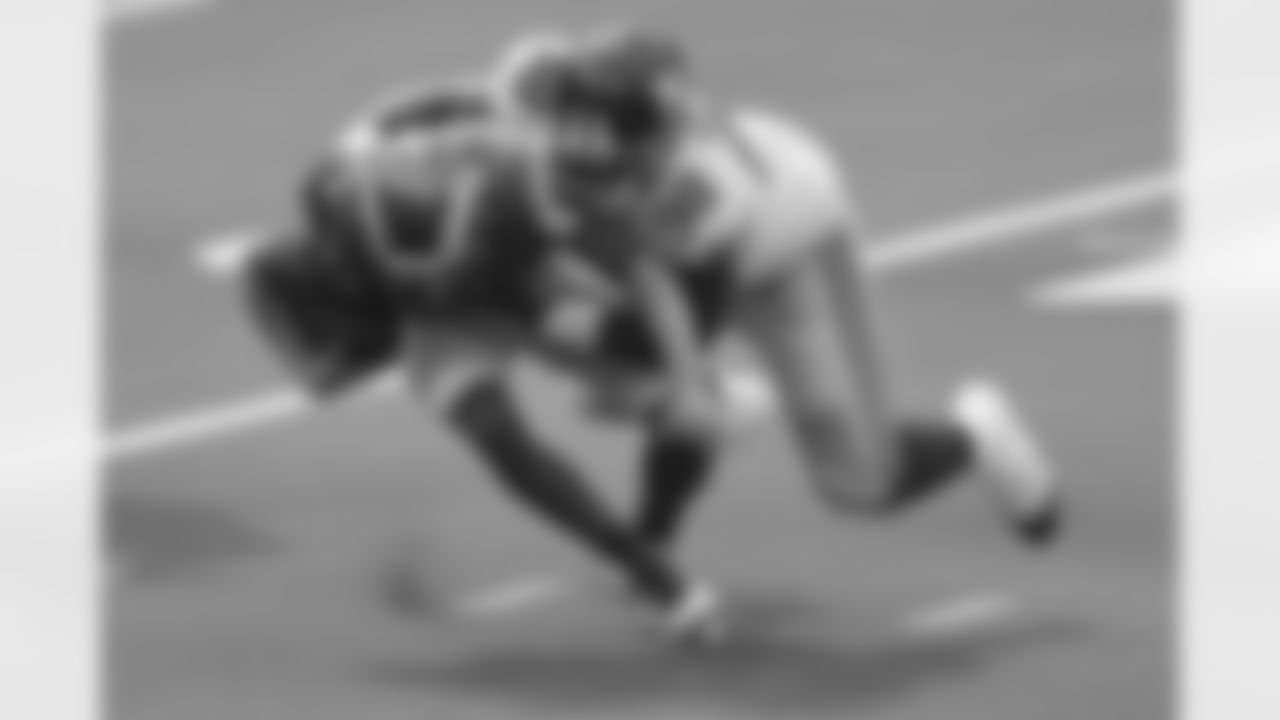
Los Angeles Rams quarterback Jared Goff (16) is sacked by New York Giants defensive tackle Austin Johnson (98) during NFL football game on Sunday, October 4, 2020 in Inglewood, California. (Ben Liebenberg/NFL)
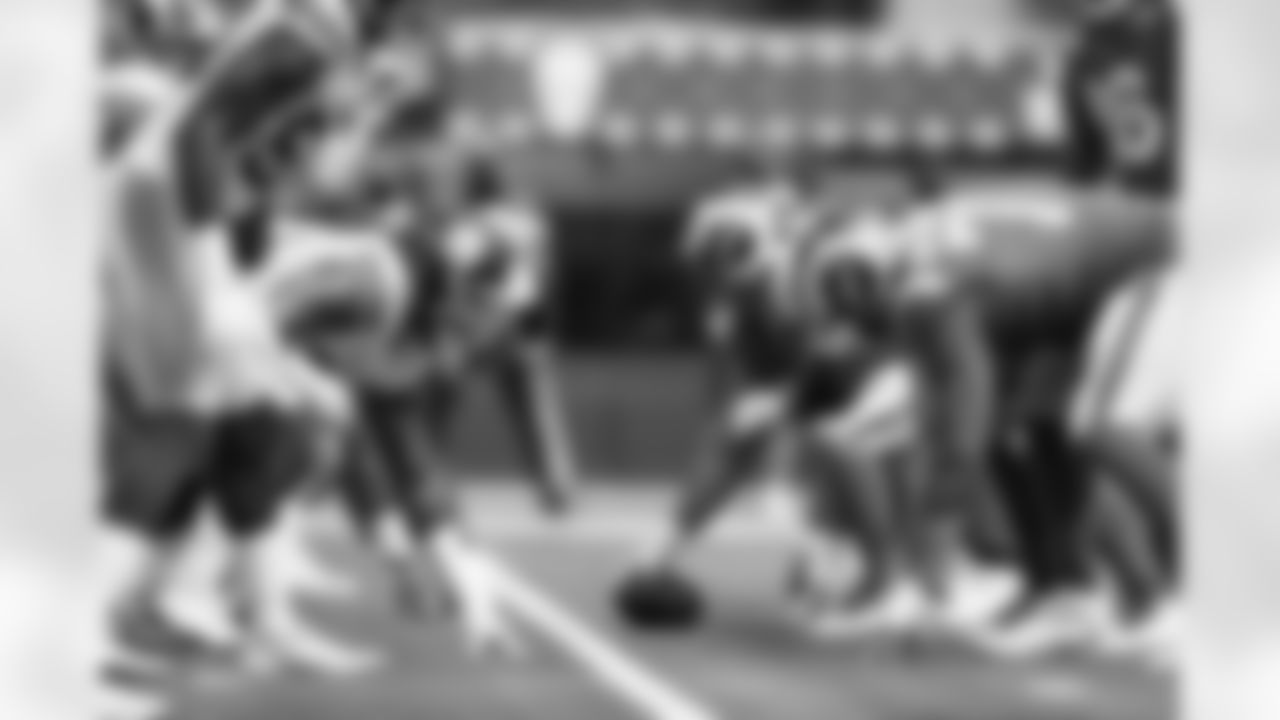
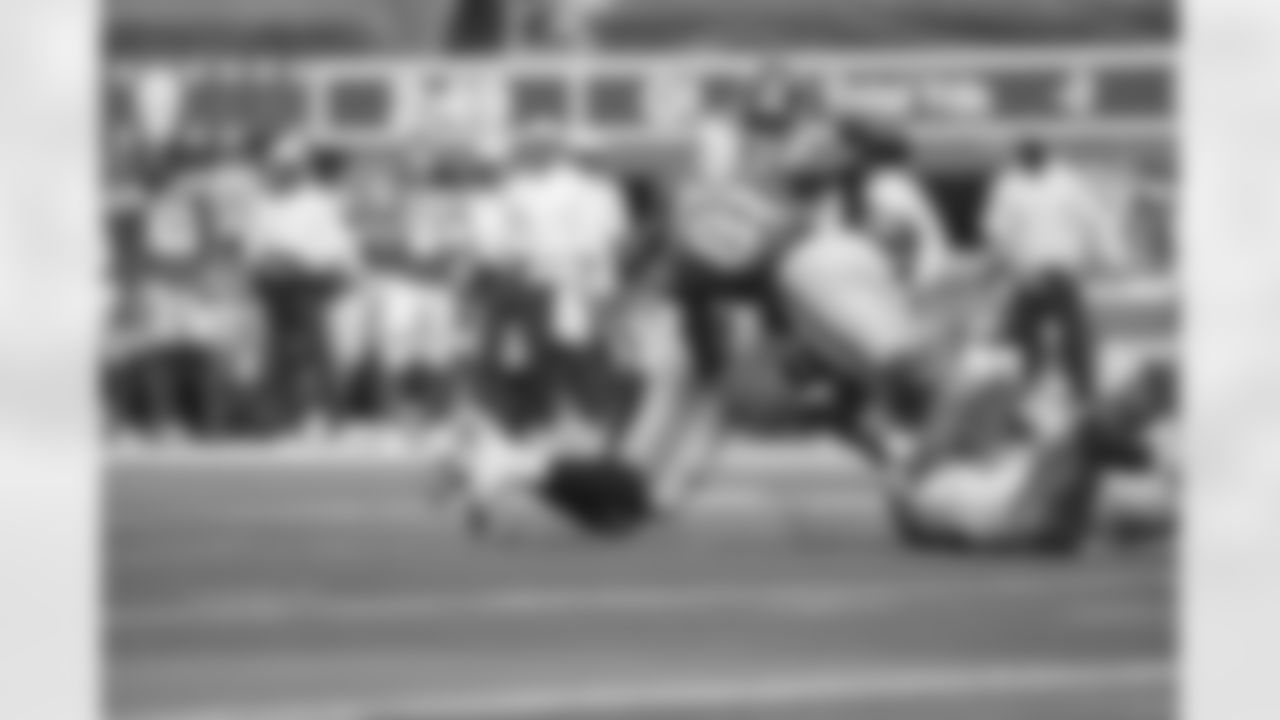
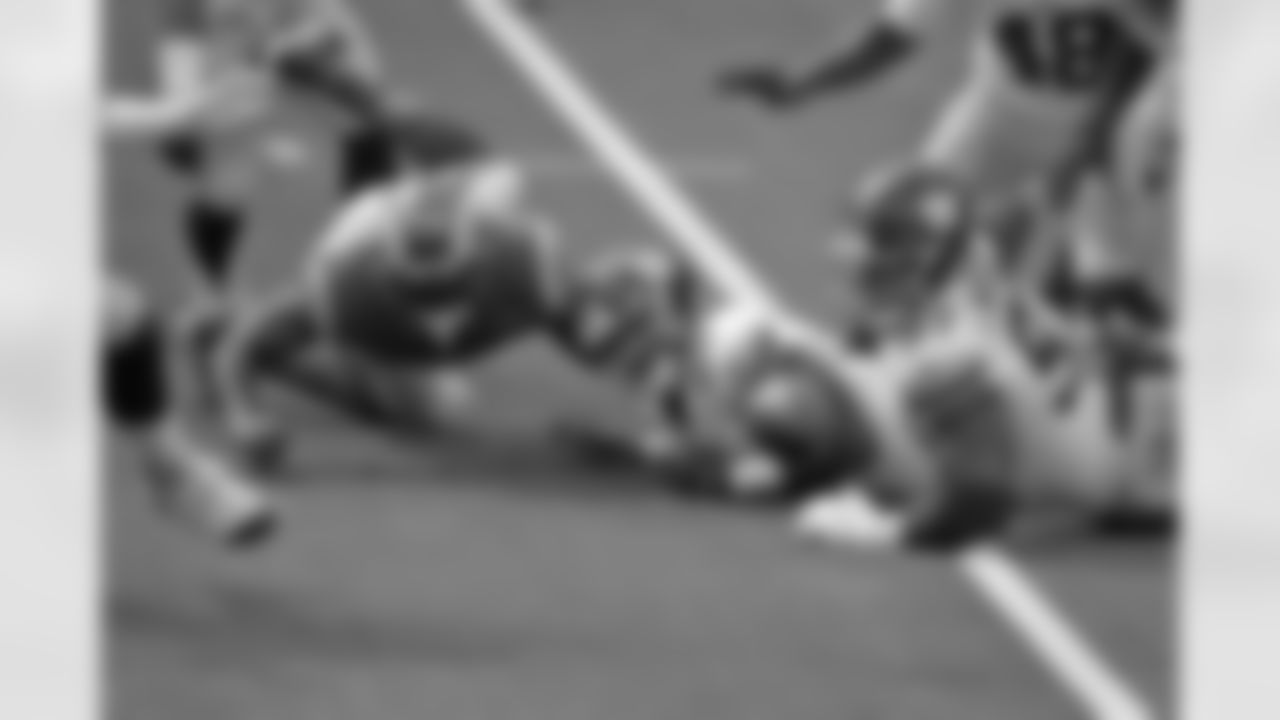
Los Angeles Rams tight end Gerald Everett, left, fumbles the ball which would then be recovered by the New York Giants during the first half of an NFL football game Sunday, Oct. 4, 2020, in Inglewood, Calif. (AP Photo/Jae C. Hong)
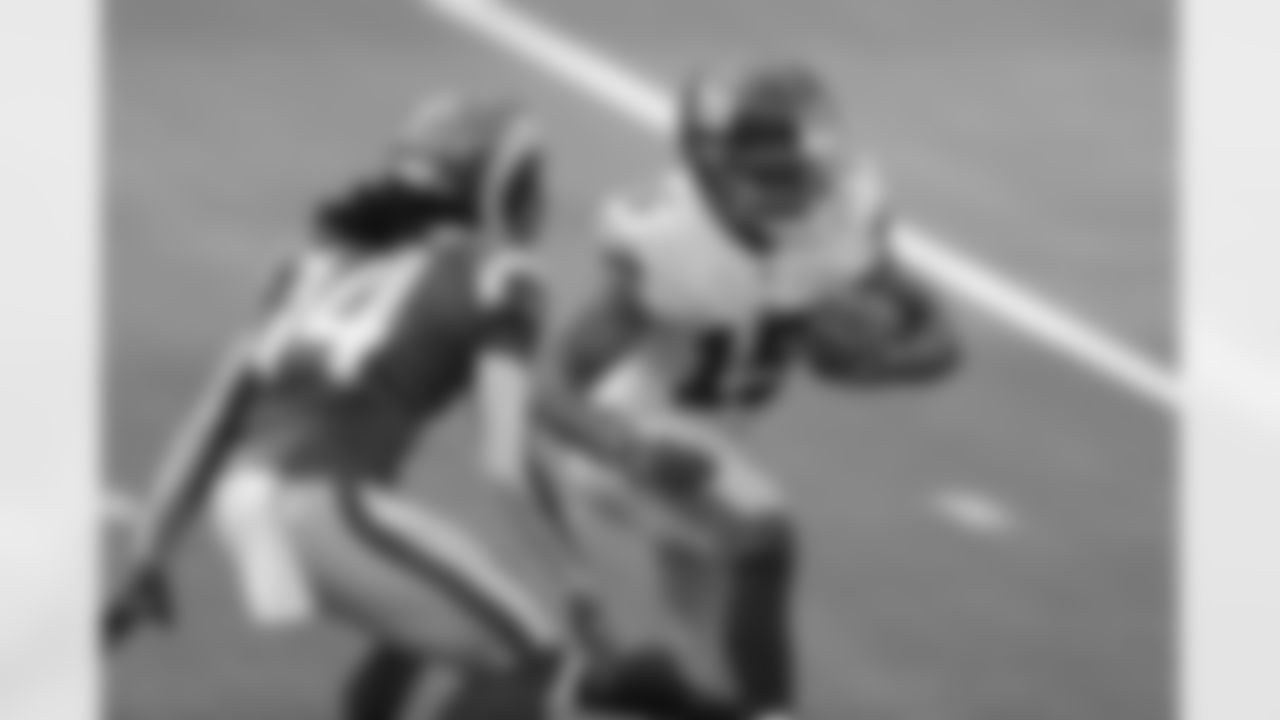
New York Giants wide receiver Golden Tate (15) runs the ball during NFL football game against the Los Angeles Rams on Sunday, October 4, 2020 in Inglewood, California. (Ben Liebenberg/NFL)
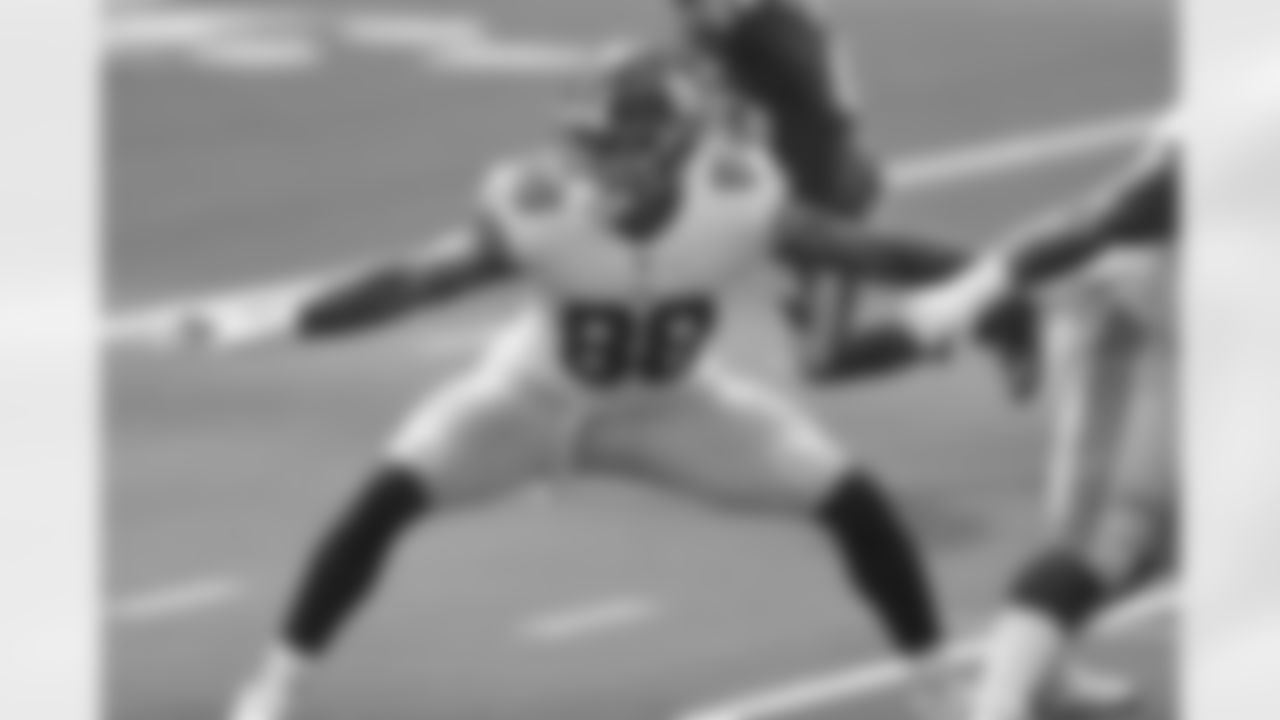
New York Giants tight end Evan Engram (88) is seen in action during NFL football game against the Los Angeles Rams on Sunday, October 4, 2020 in Inglewood, California. (Ben Liebenberg/NFL)

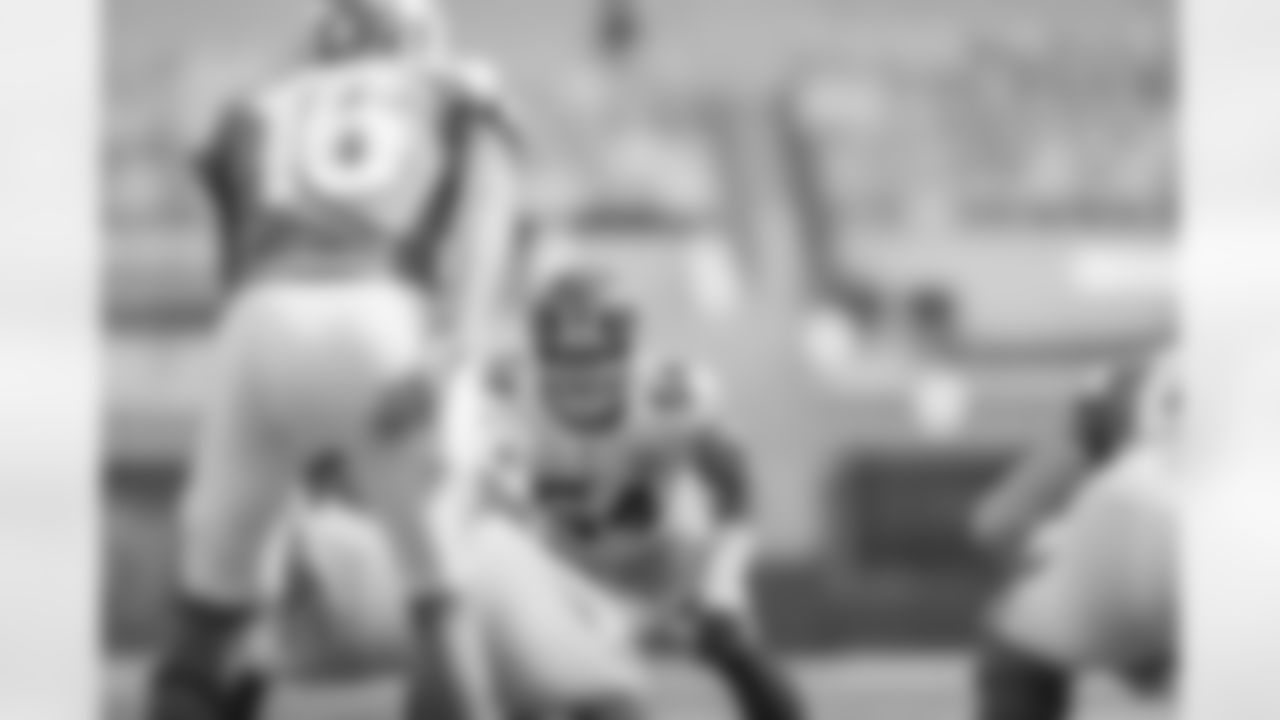
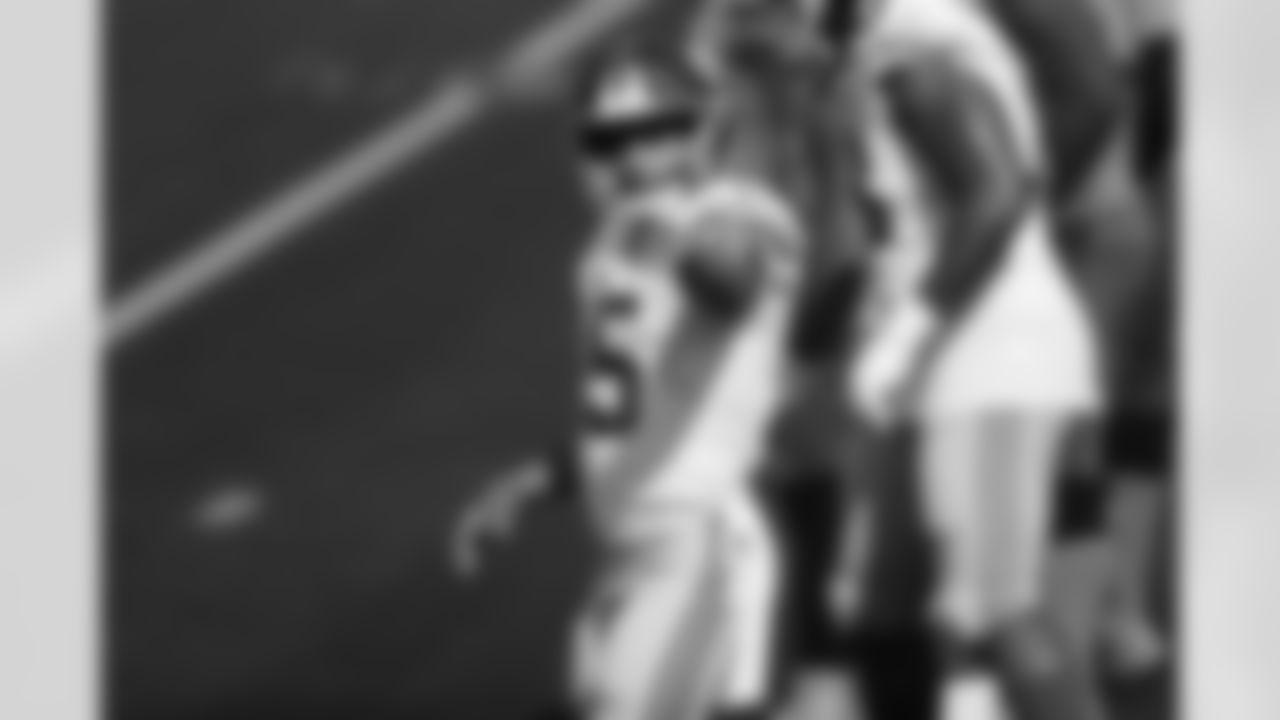
New York Giants wide receiver Golden Tate (15) lines up out wide during an NFL football game against the Los Angeles Rams on Sunday, October 4, 2020 in Inglewood, California. (Ben Liebenberg/NFL)
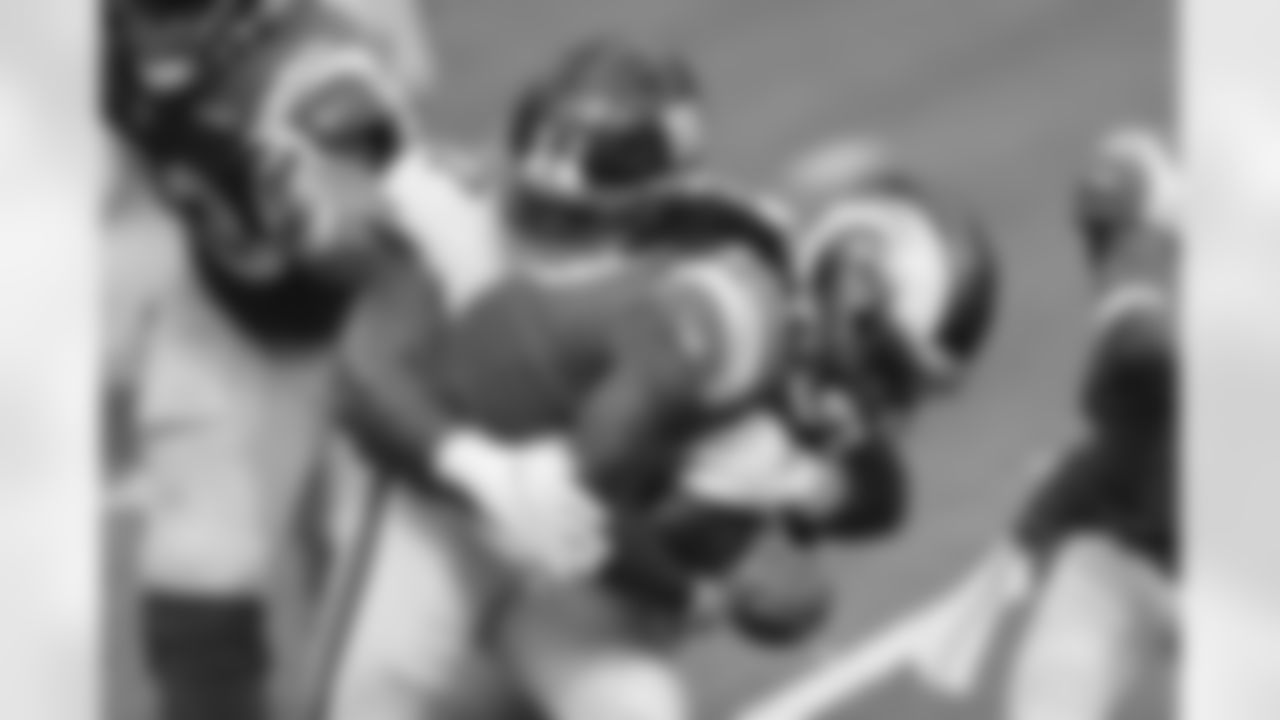
New York Giants defensive tackle Dexter Lawrence (97) tackles Los Angeles Rams running back Darrell Henderson (27) during an NFL football game on Sunday, October 4, 2020 in Inglewood, California. (Ben Liebenberg/NFL)
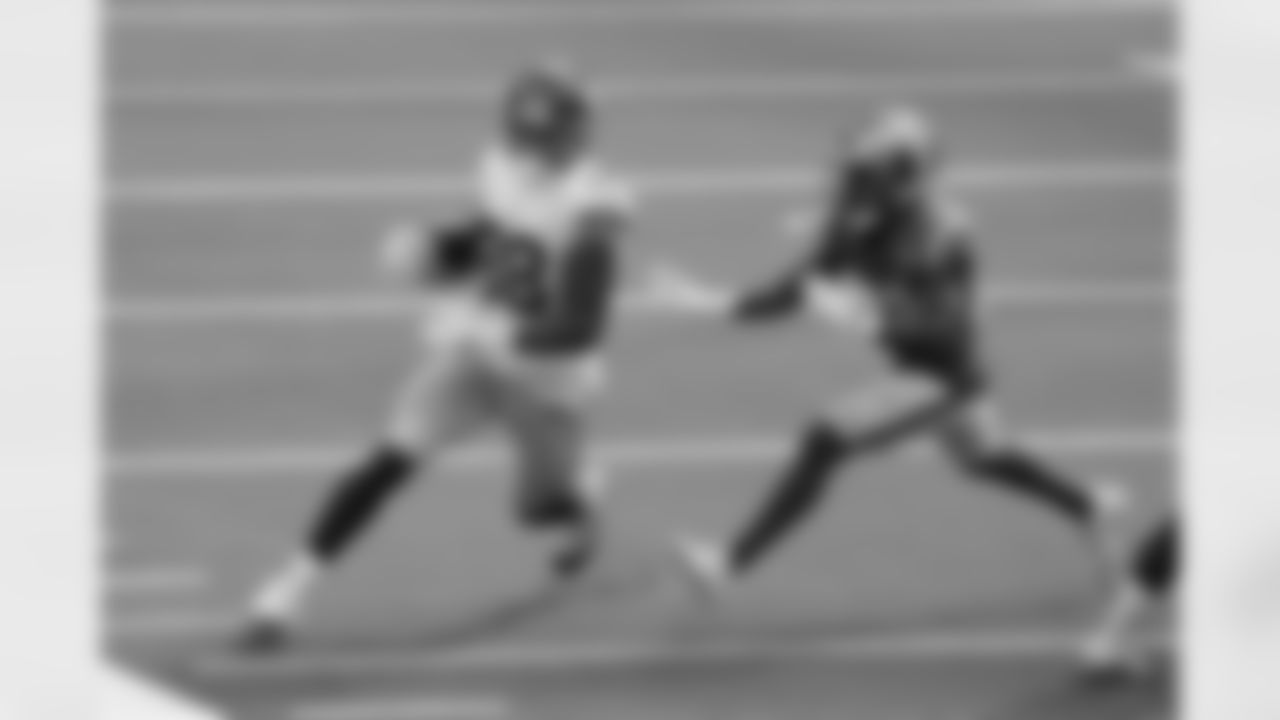
New York Giants tight end Evan Engram (88) runs after a reception against the Los Angeles Rams during the first half of an NFL football game Sunday, Oct. 4, 2020, in Inglewood, Calif. (AP Photo/Jae C. Hong )
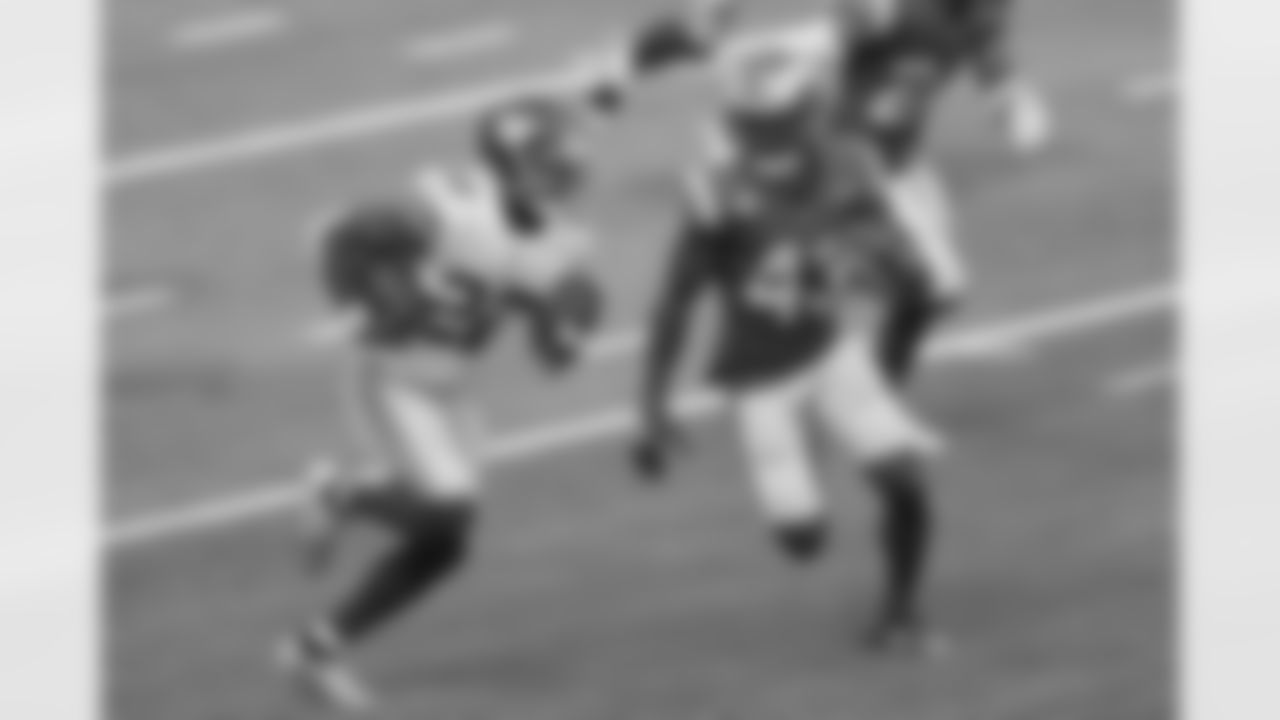
New York Giants running back Wayne Gallman (22) carries the ball in front of Los Angeles Rams free safety John Johnson (43) during an NFL football game on Sunday, October 4, 2020 in Inglewood, California. (Ben Liebenberg/NFL)
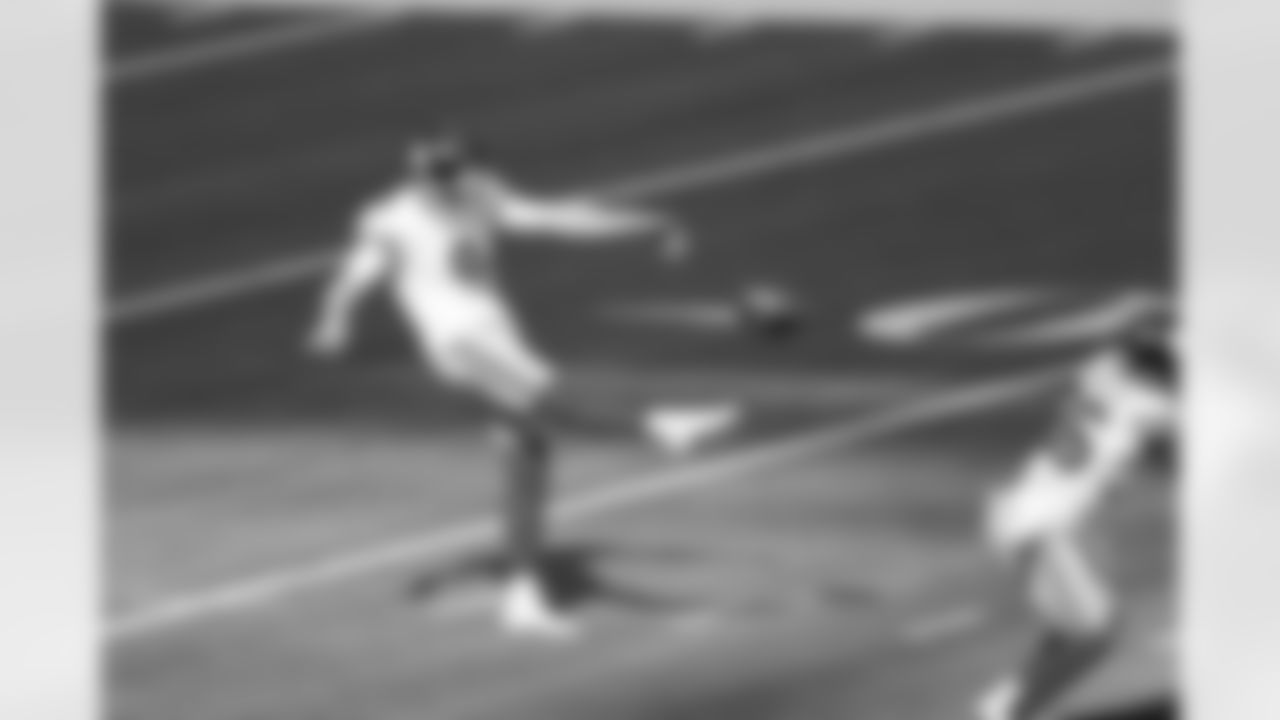
New York Giants punter Riley Dixon (9) punts the ball during an NFL football game against the Los Angeles Rams on Sunday, October 4, 2020 in Inglewood, California. (Ben Liebenberg/NFL)
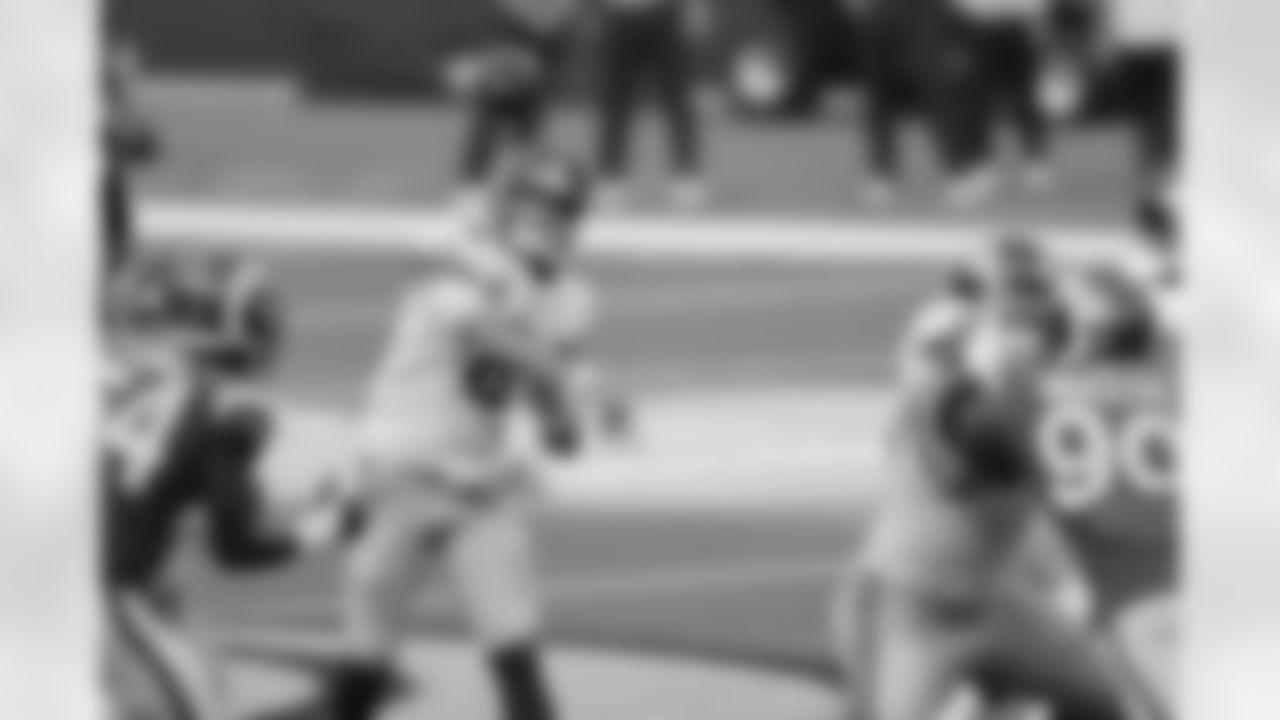
New York Giants quarterback Daniel Jones (8) throws the ball during an NFL football game against the Los Angeles Rams on Sunday, October 4, 2020 in Inglewood, California. (Ben Liebenberg/NFL)
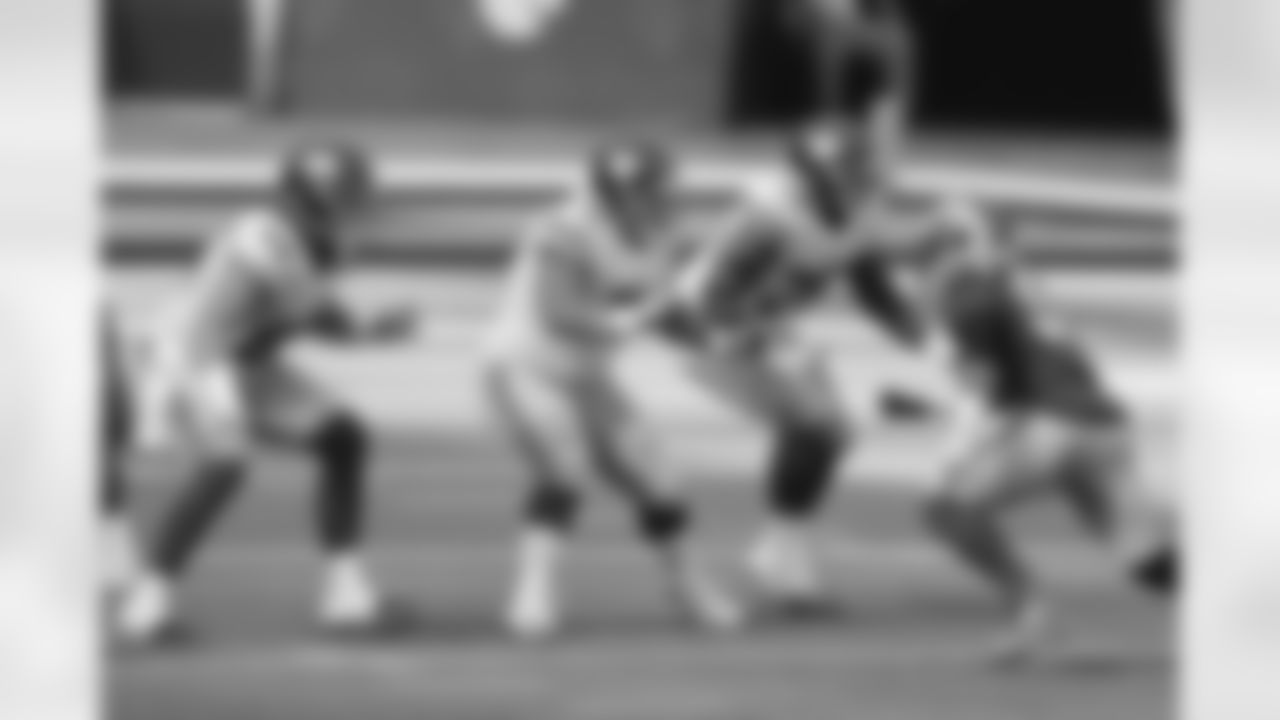
New York Giants center Nick Gates (65) and offensive guard Will Hernandez (71) block during an NFL football game against the Los Angeles Rams on Sunday, October 4, 2020 in Inglewood, California. (Ben Liebenberg/NFL)
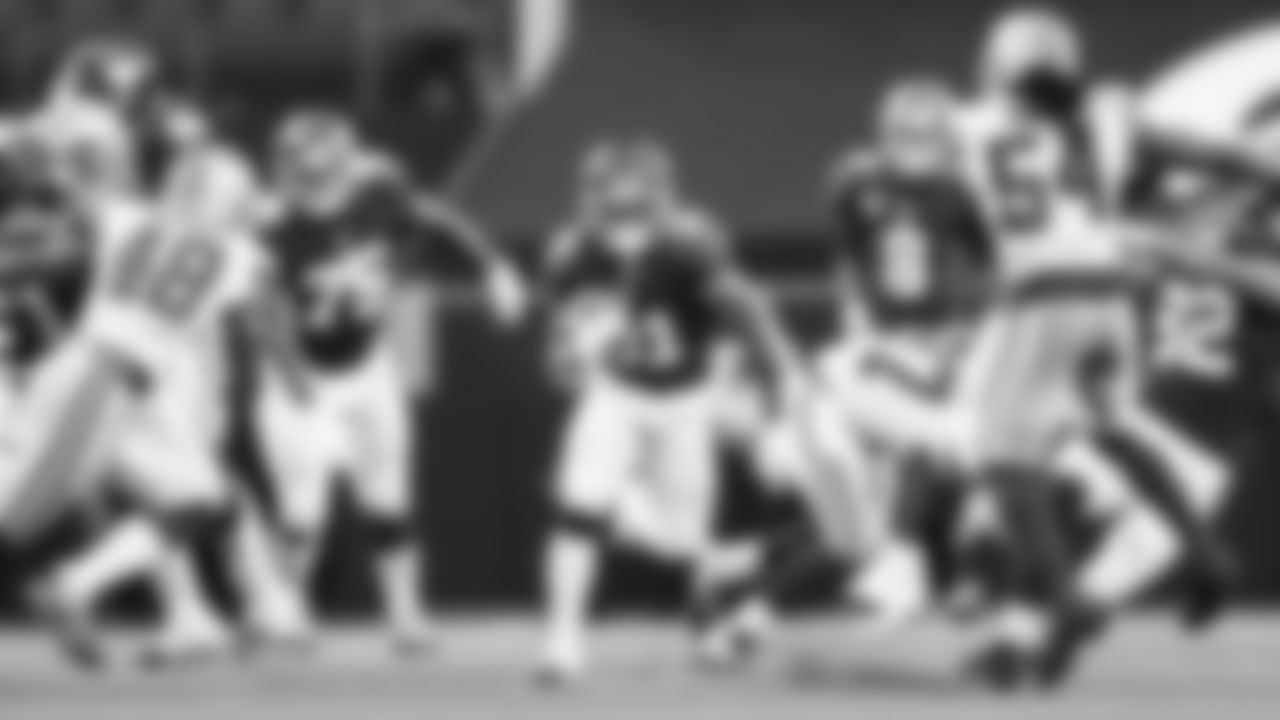
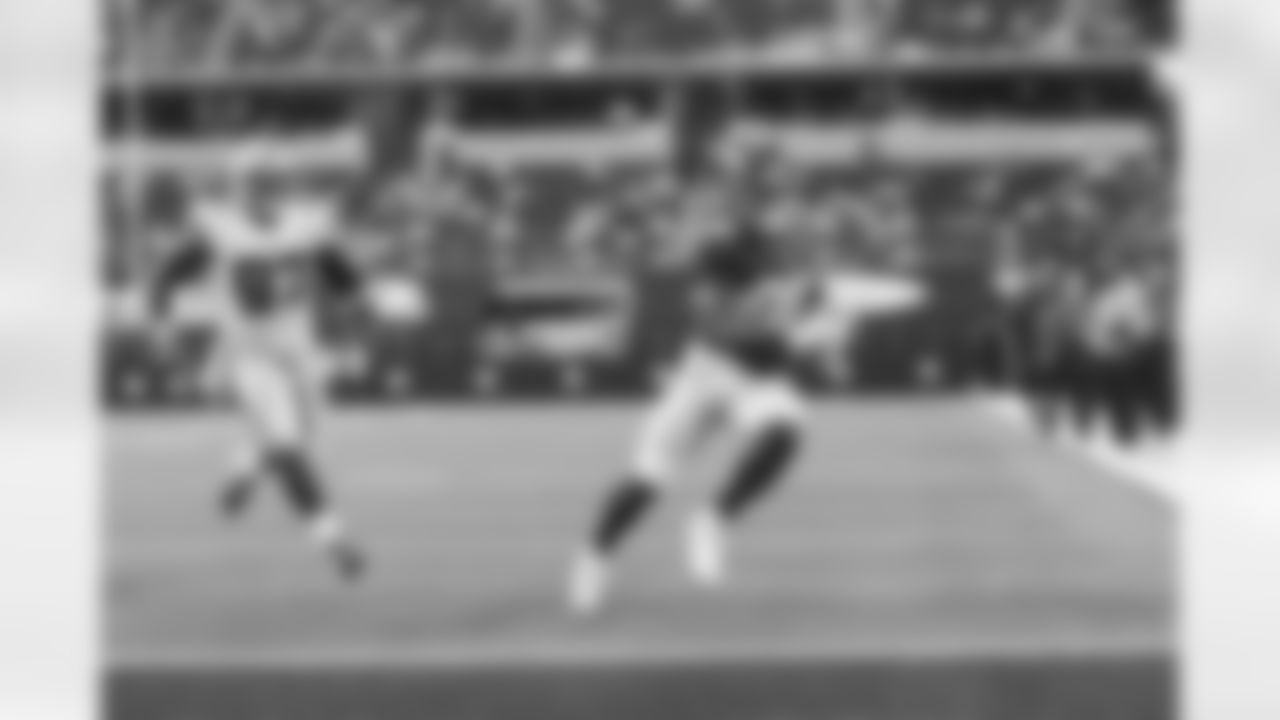
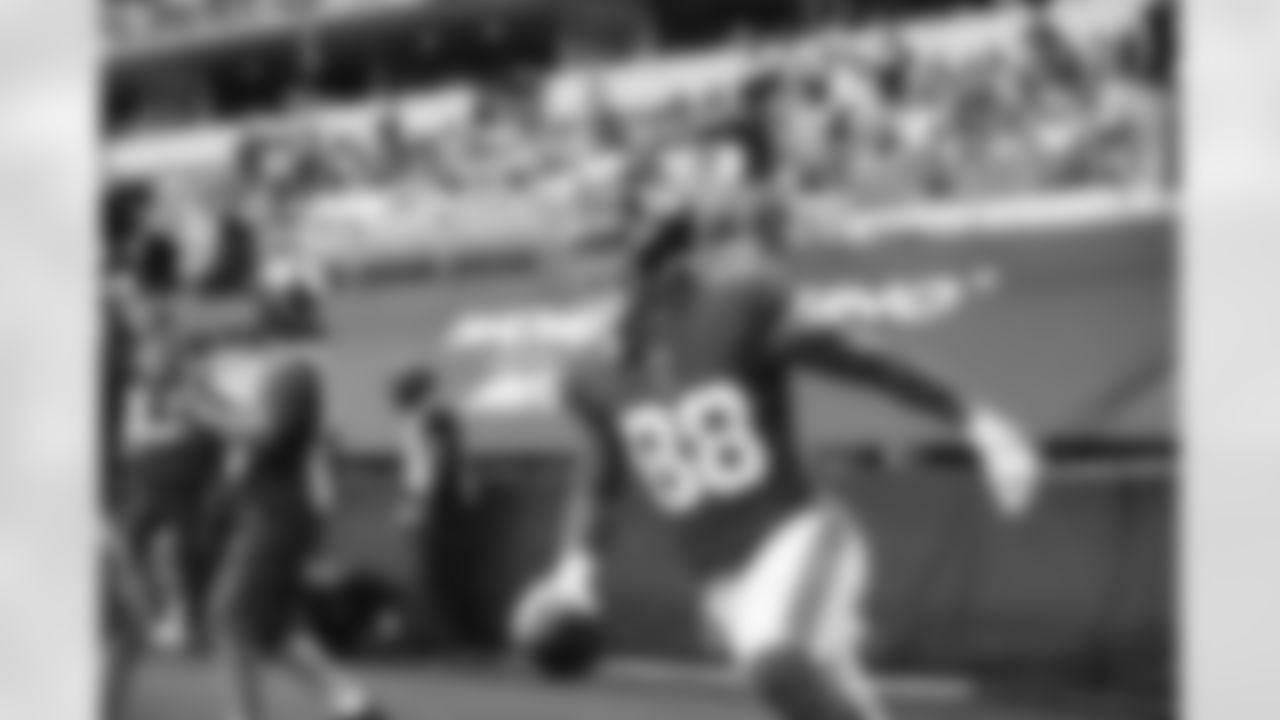
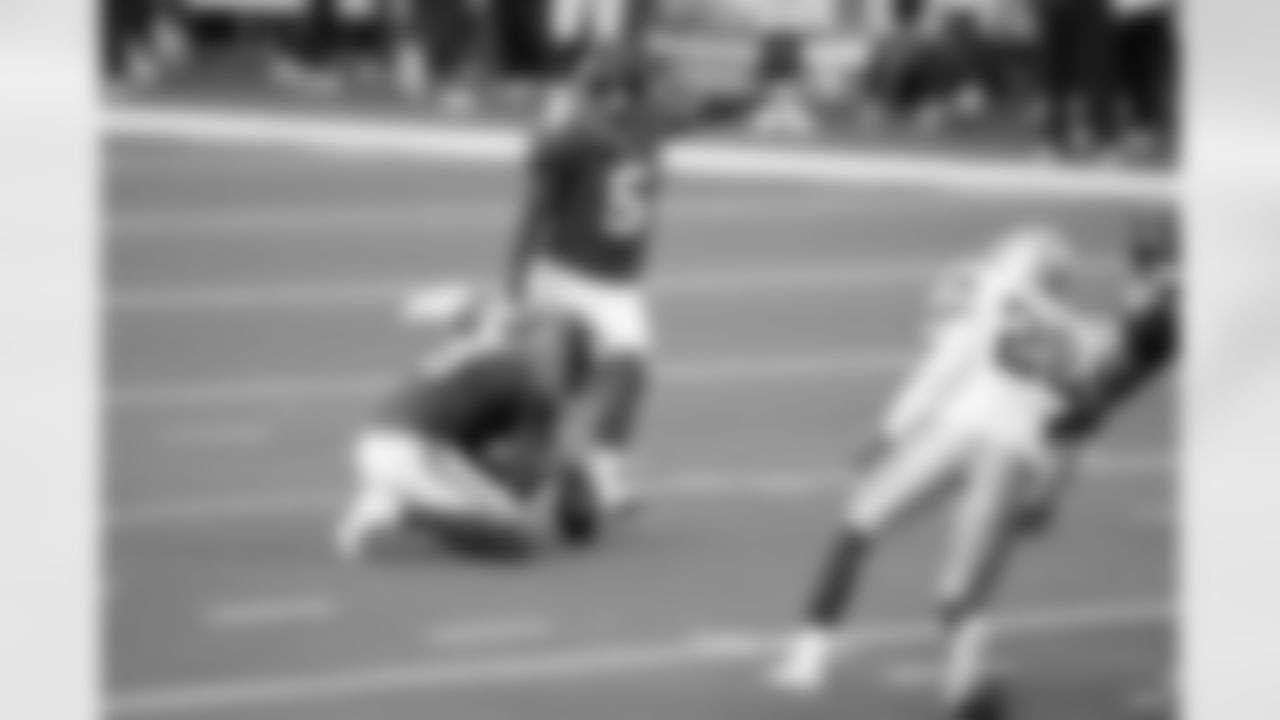
New York Giants kicker Graham Gano (5) kicks an extra point as punter Riley Dixon (9) holds during an NFL football game against the Dallas Cowboys on Sunday, October 11, 2020 in Dallas, Texas. (Cooper Neill/NFL)
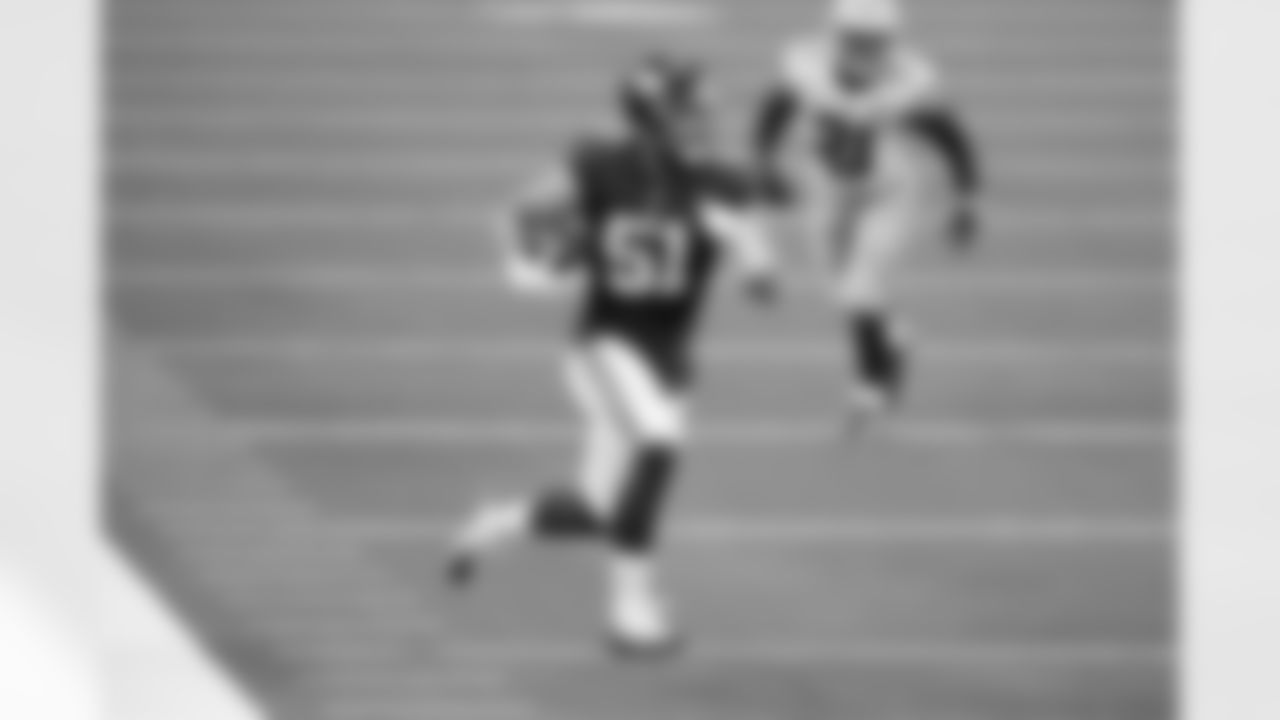
New York Giants outside linebacker Kyler Fackrell (51) runs for a touchdown after intercepting during an NFL football game against the New York Giants on Sunday, October 11, 2020 in Dallas, Texas. (Cooper Neill/NFL)
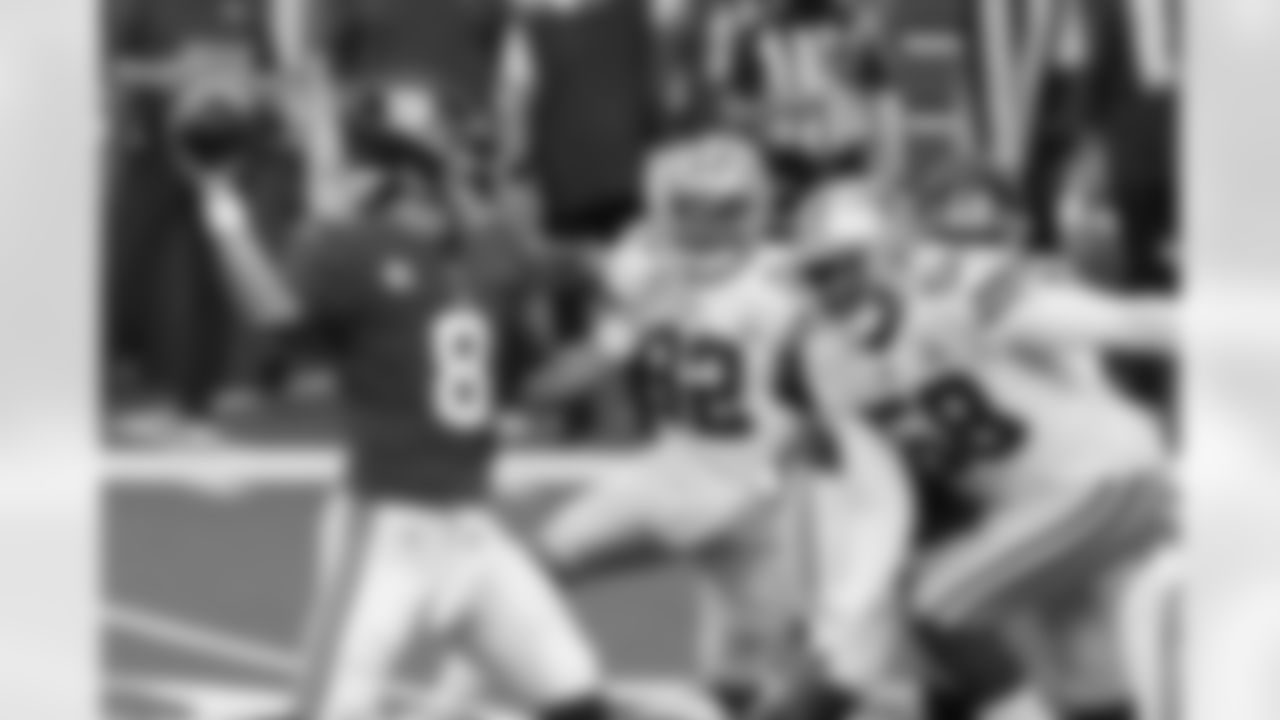
New York Giants quarterback Daniel Jones (8) throws a pass under pressure from Dallas Cowboys defensive end Dorance Armstrong (92) and defensive end Aldon Smith (58) in the first half of an NFL football game in Arlington, Texas, Sunday, Oct. 11, 2020. (AP Photo/Ron Jenkins)
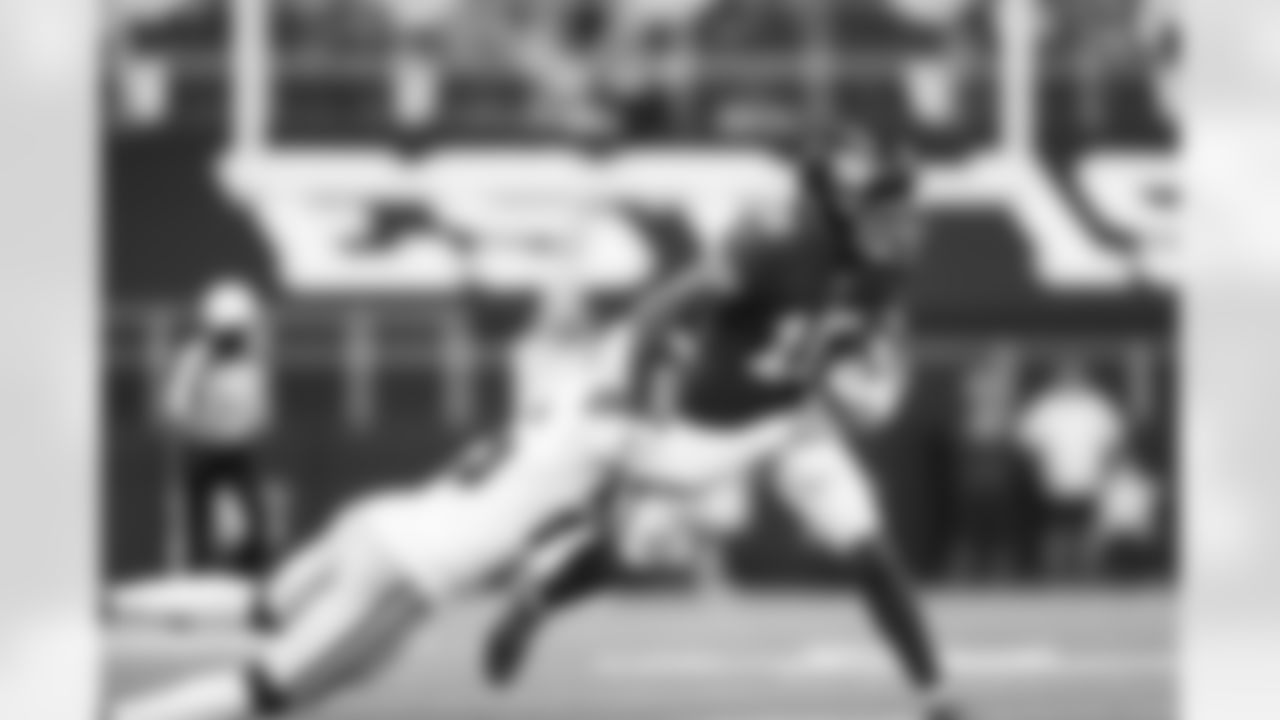
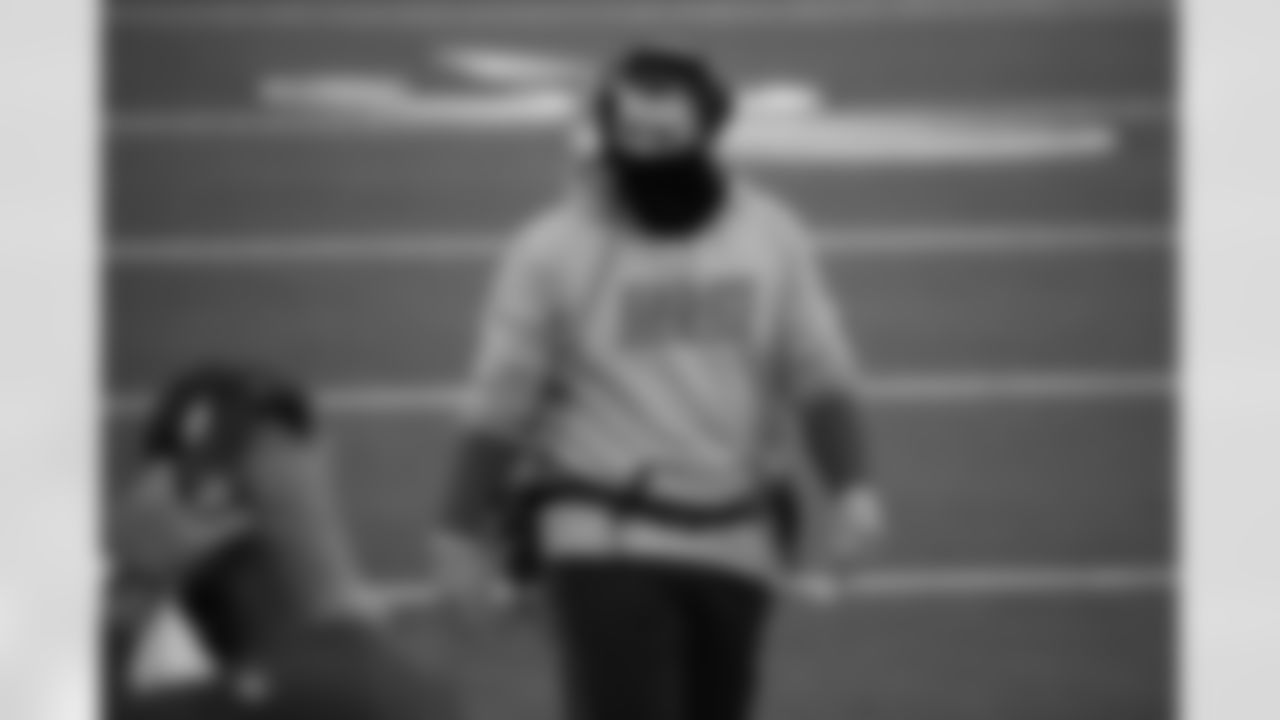
Head Coach Joe Judge picked up his first win as a head coach in this Week 5 victory over the Cowboys.
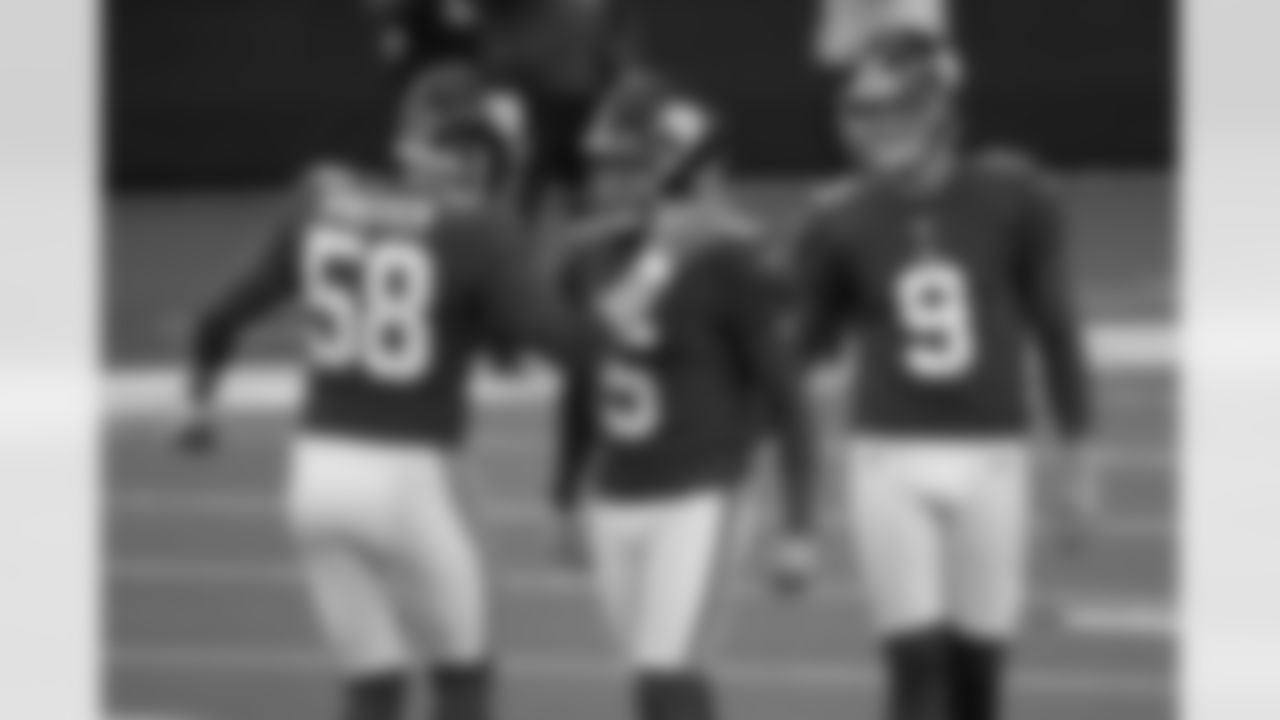
New York Giants' Casey Kreiter (58), place kicker Graham Gano (5) and punter Riley Dixon (9) celebrate a field goal kicked by Gano in the first half of an NFL football game against the Dallas Cowboys in Arlington, Texas, Sunday, Oct. 11, 2020. (AP Photo/Ron Jenkins)
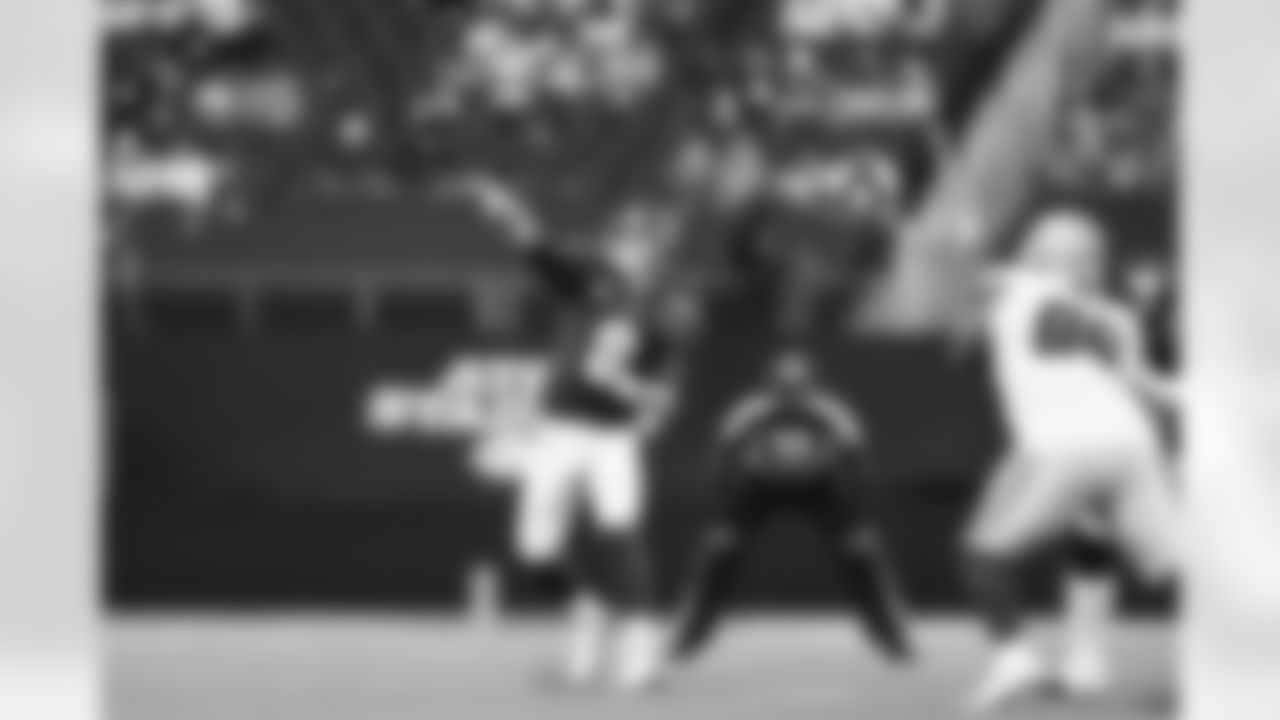
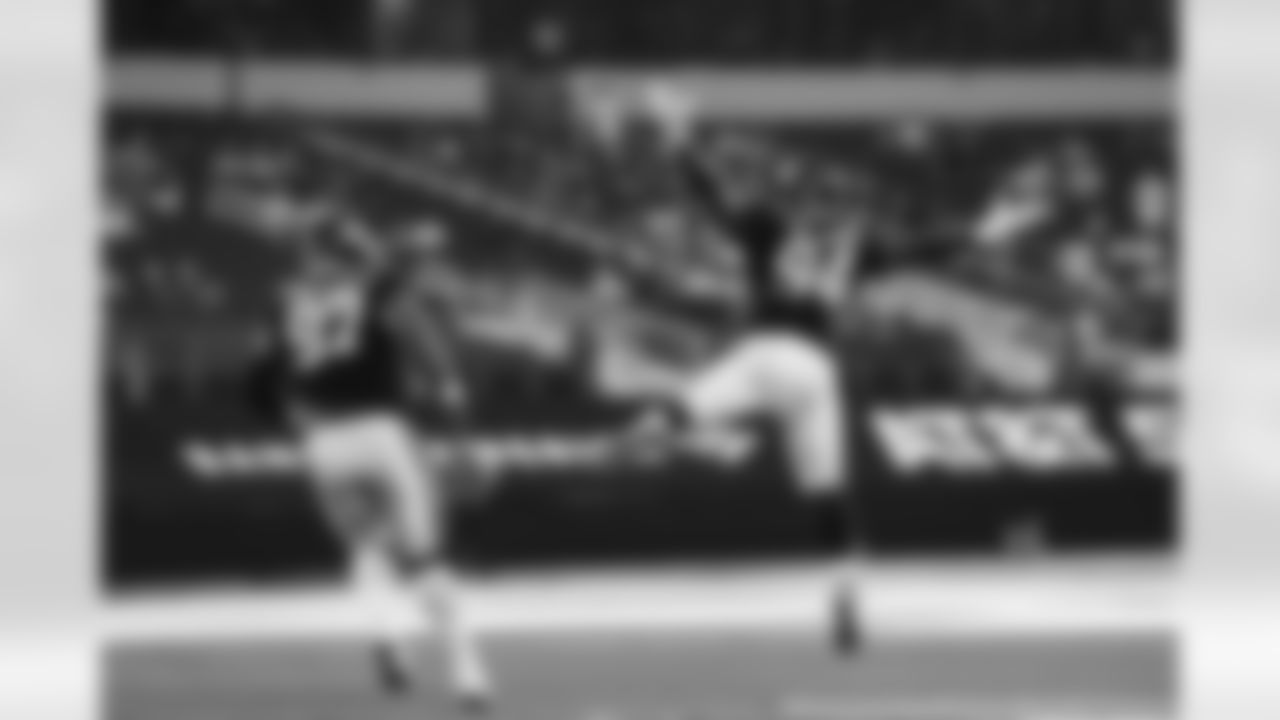
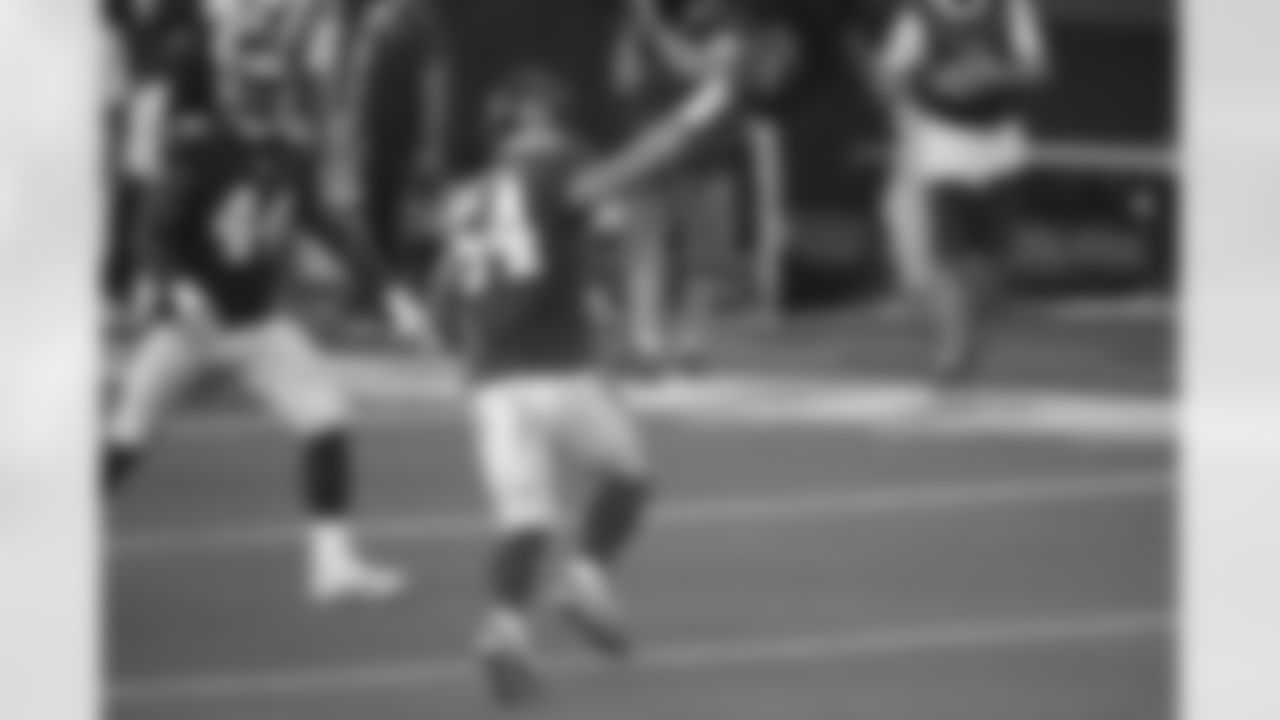
New York Giants linebacker Blake Martinez (54) reacts during an NFL football game against the Dallas Cowboys on Sunday, October 11, 2020 in Dallas, Texas. (Cooper Neill/NFL)
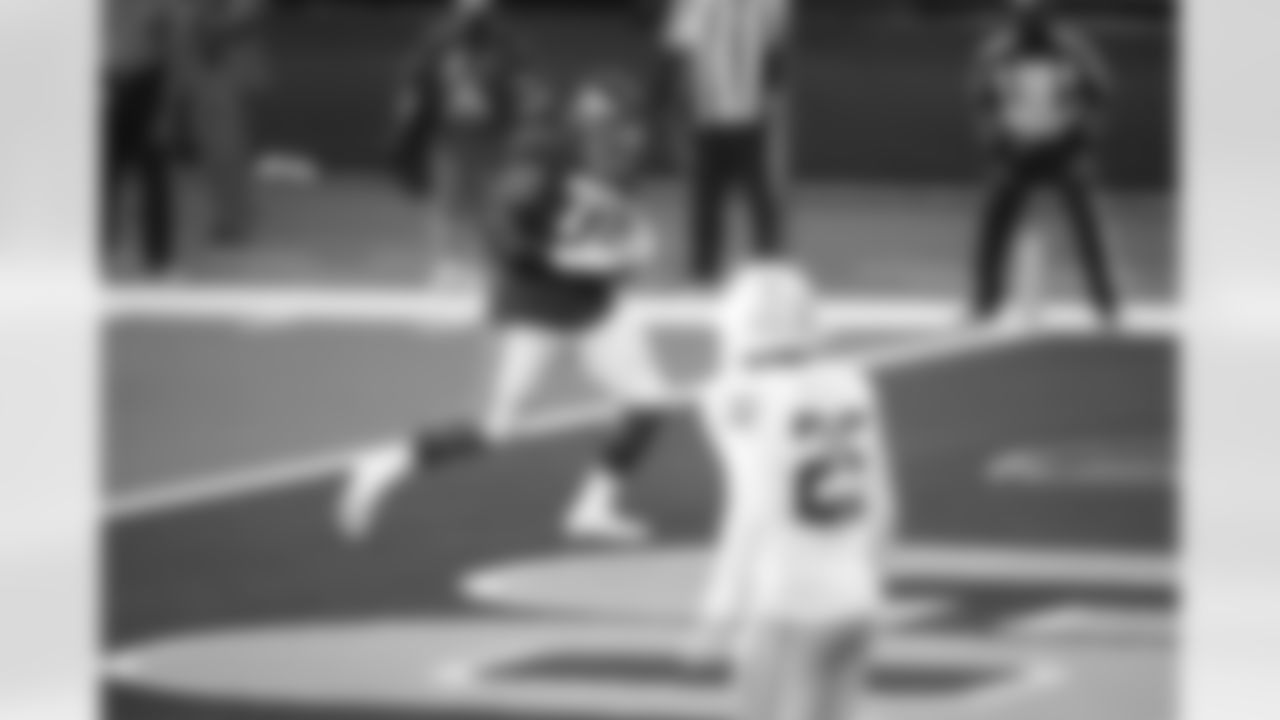
New York Giants offensive tackle Andrew Thomas (78) catches a 2-point conversion pass during an NFL football game against the Dallas Cowboys on Sunday, October 11, 2020 in Dallas, Texas. (Cooper Neill/NFL)
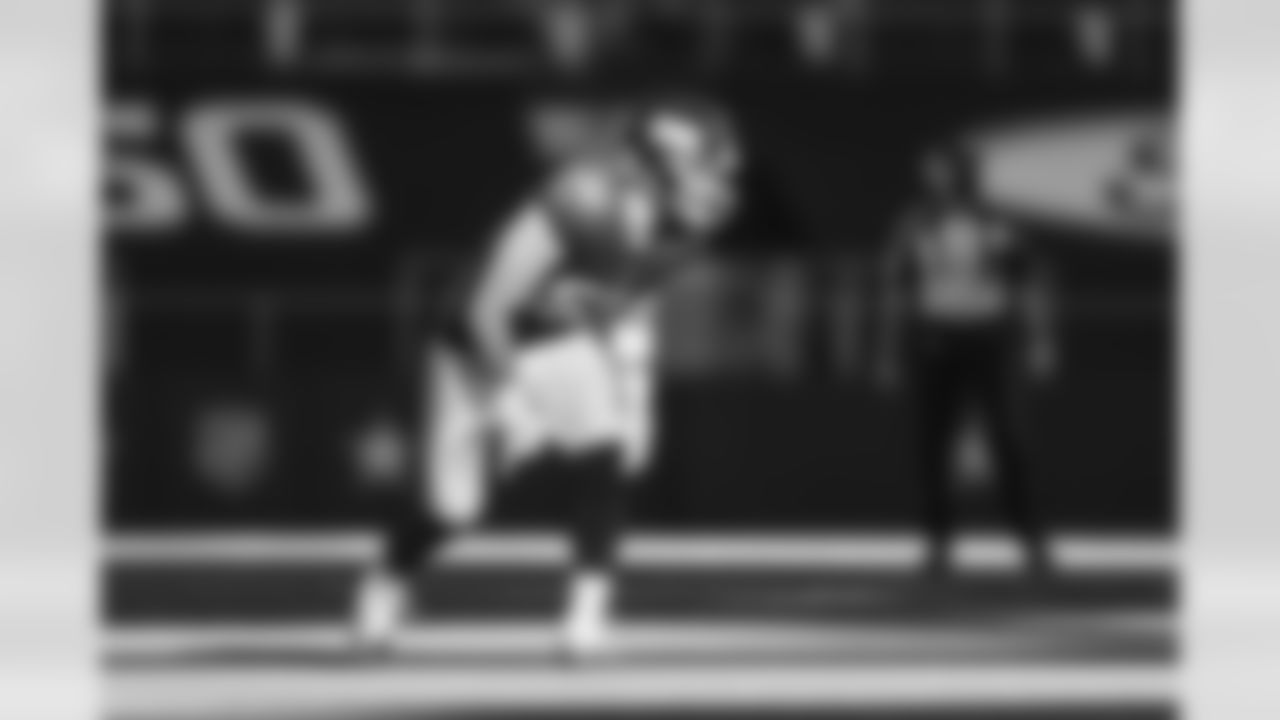
OLB Kyler Fackrell finished the game with 3 tackles (2 solo), 1 tackle for loss, 1 pass defended, 1 quarterback hit and an interception which he returned 46 yards for a touchdown.
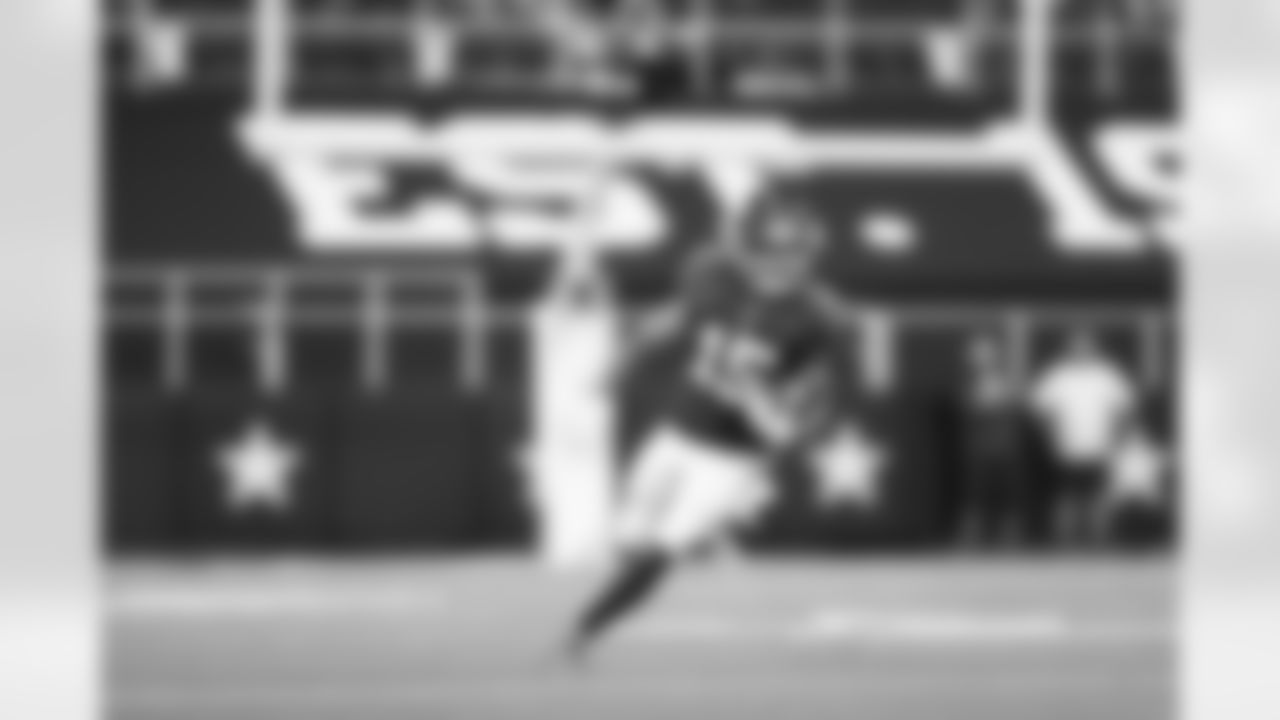
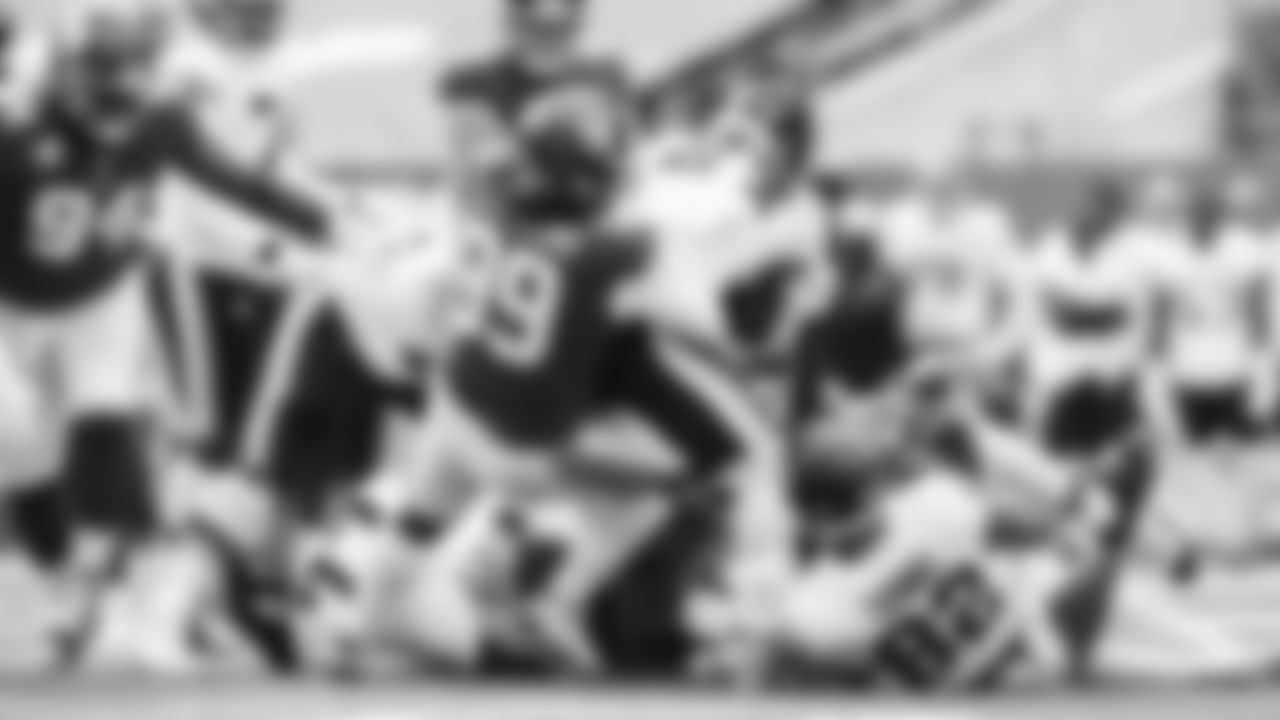
2021: DL Leonard Williams (No. 84)
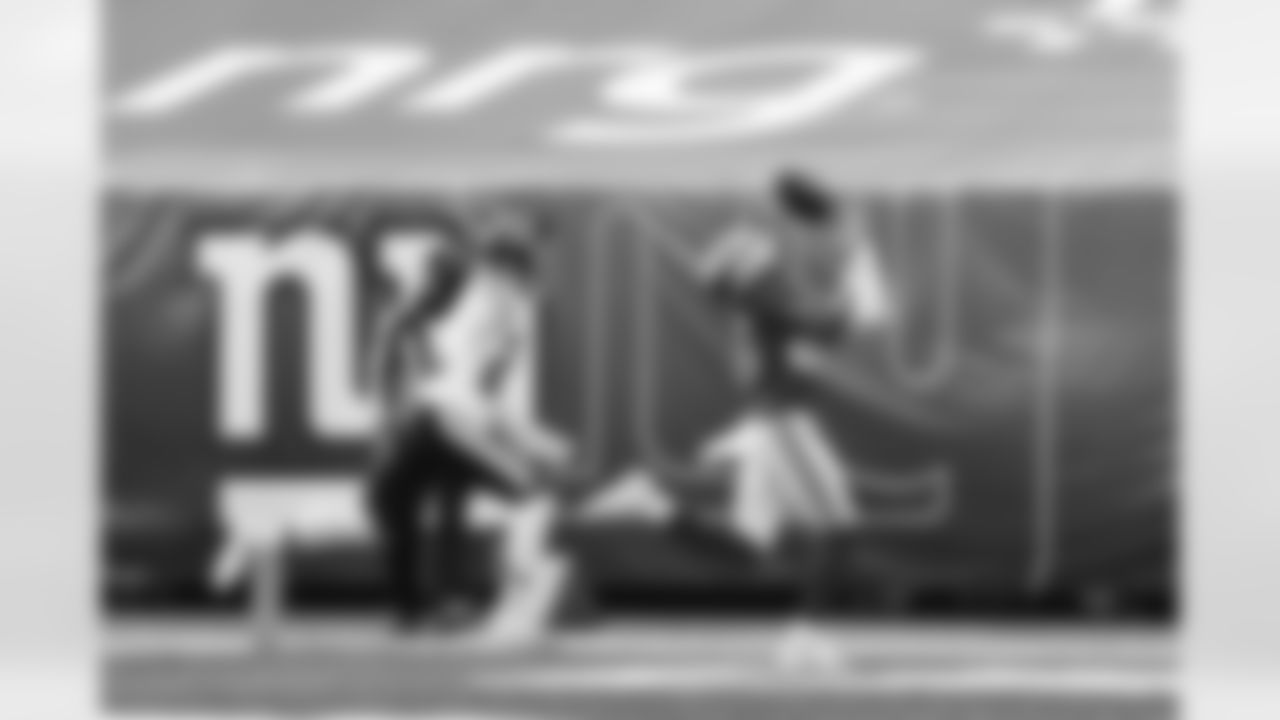
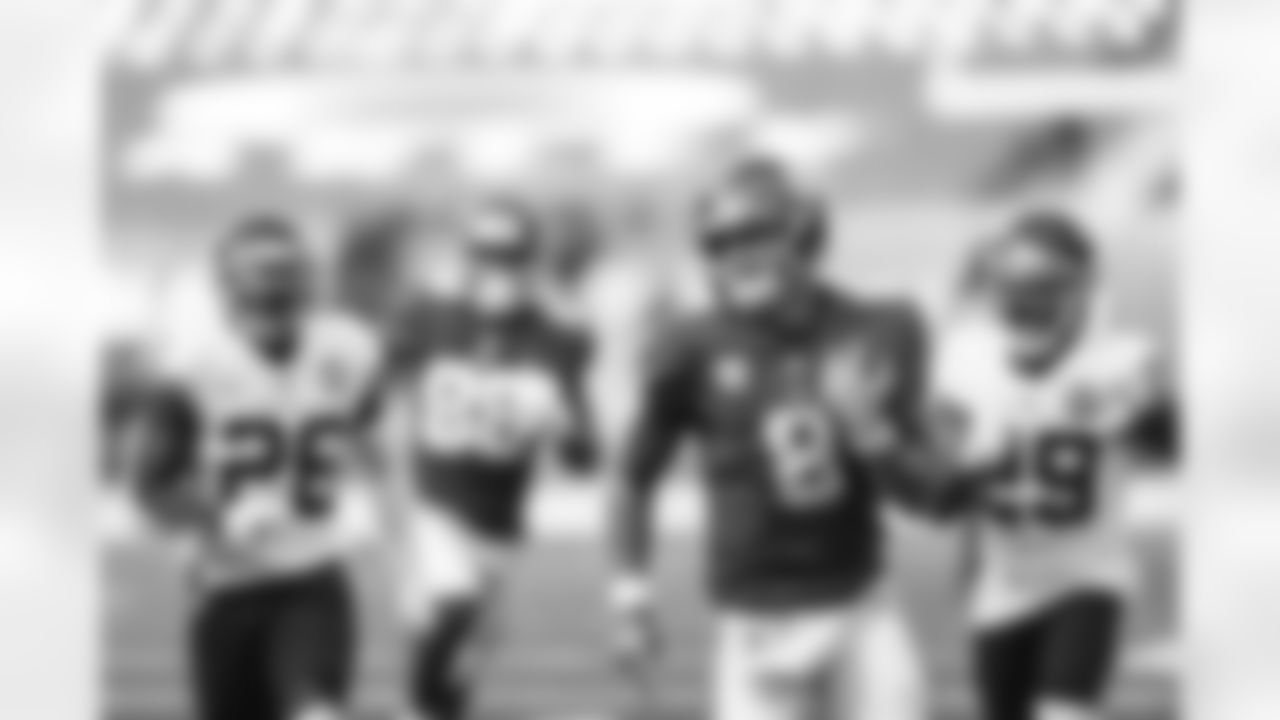
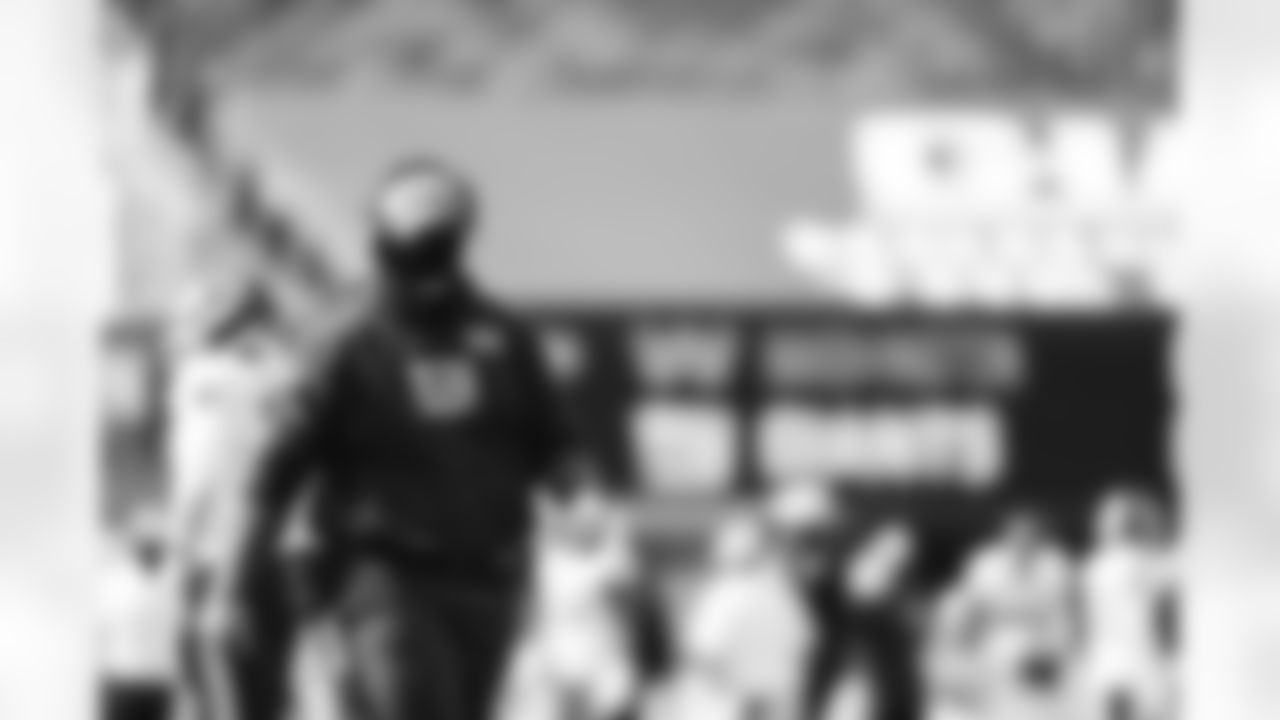
Head Coach Joe Judge picks up his first win as a head coach.
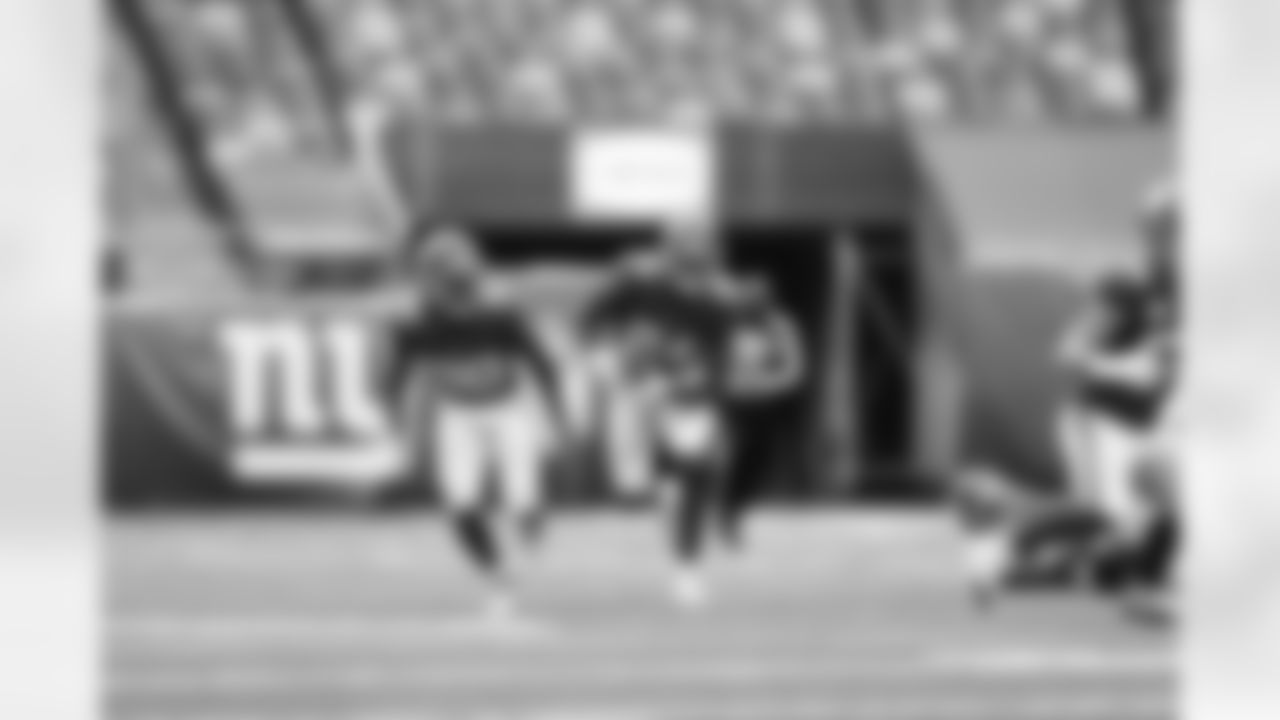
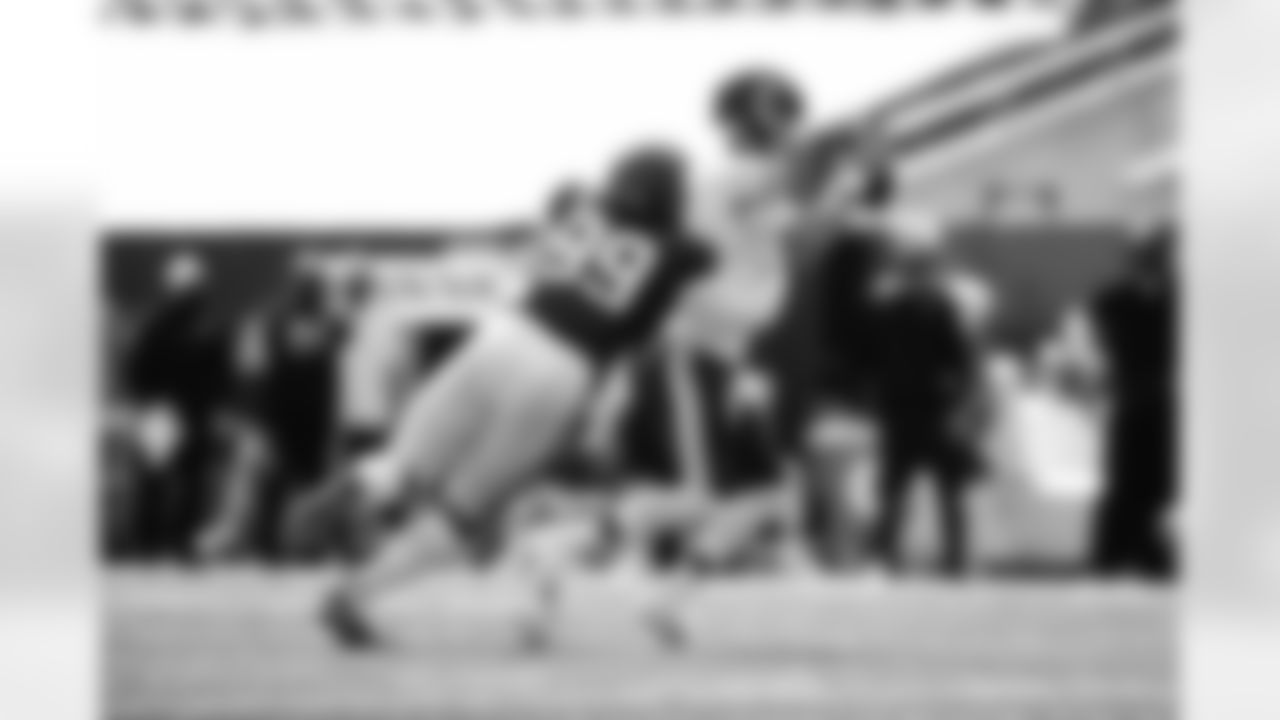
Leonard Williams (99)
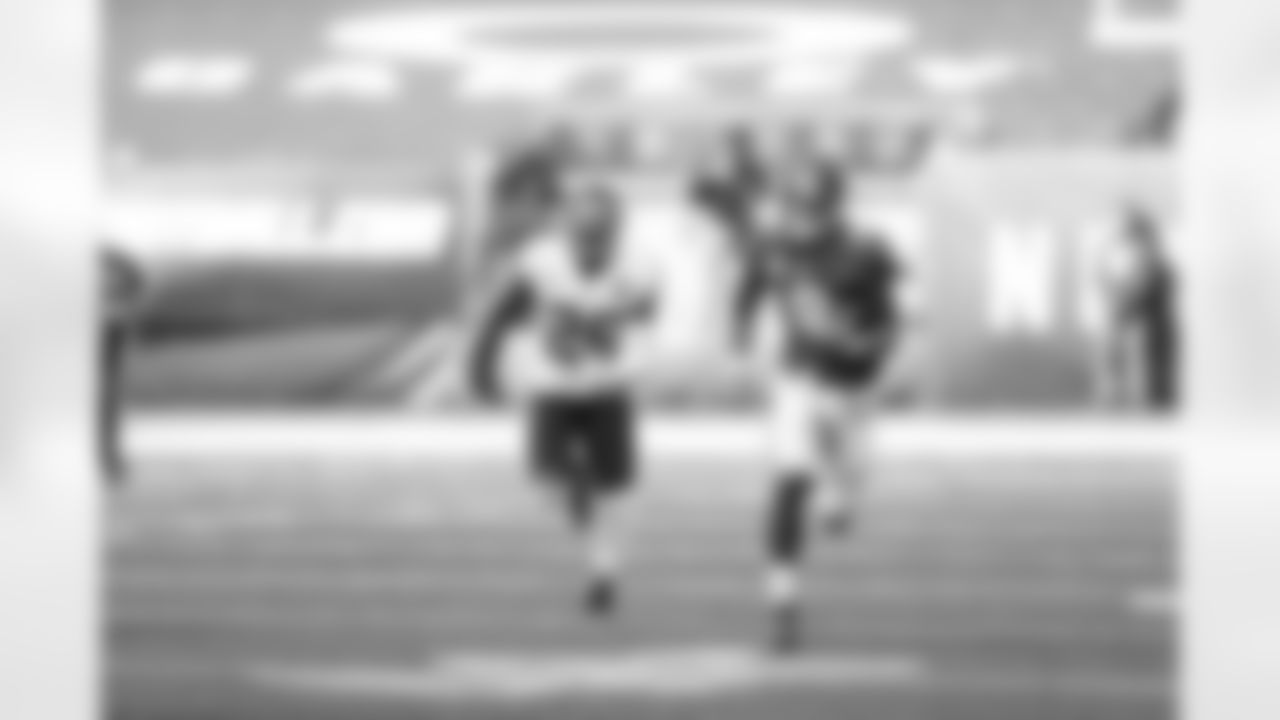
QB Daniel Jones completed 12 of 19 passes for 112 yards and a touchdown, adding seven carries for 74 yards.
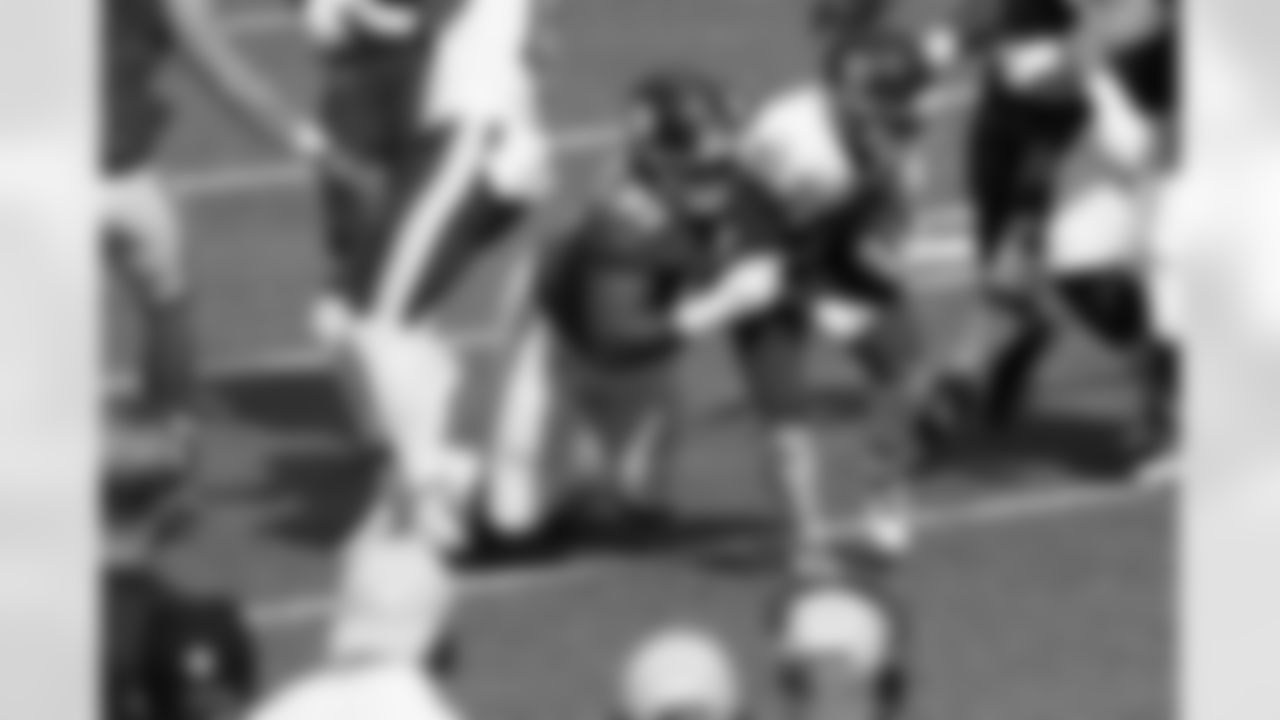
New York Giants' Dexter Lawrence (97) tackles Washington Football Team's J.D. McKissic (41) during the first half of an NFL football game Sunday, Oct. 18, 2020, in East Rutherford, N.J. (AP Photo/Bill Kostroun)
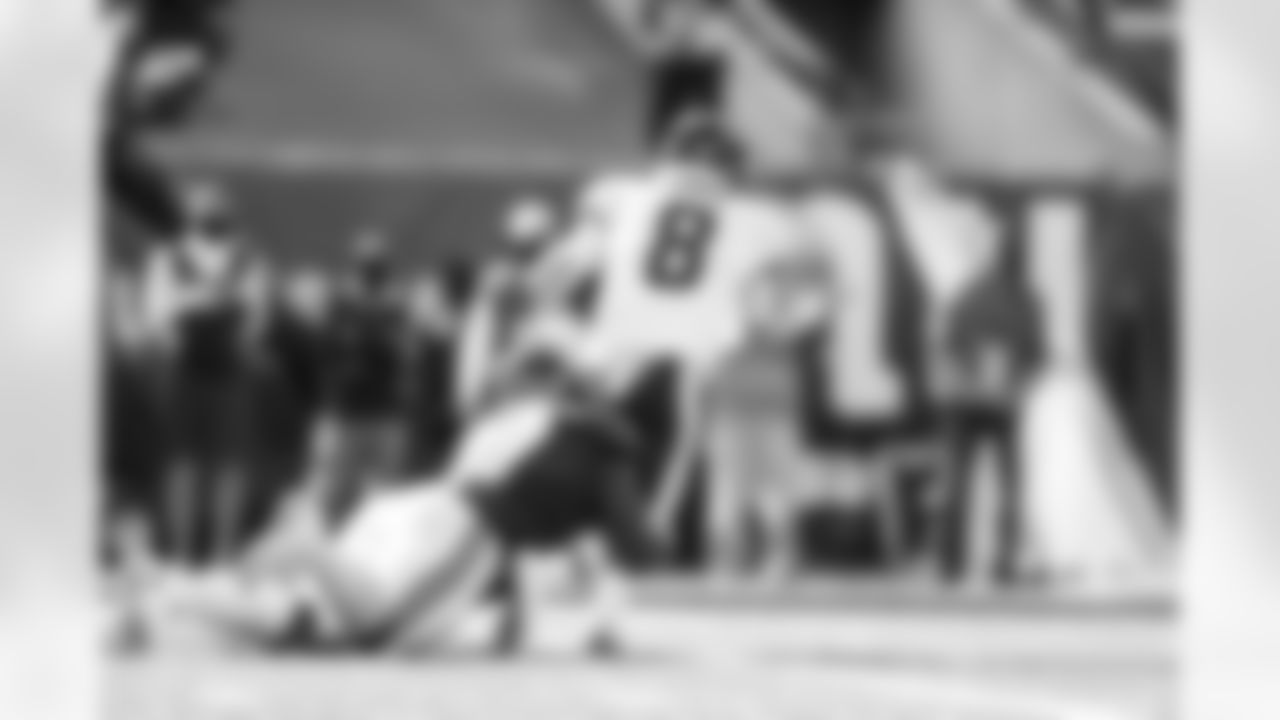
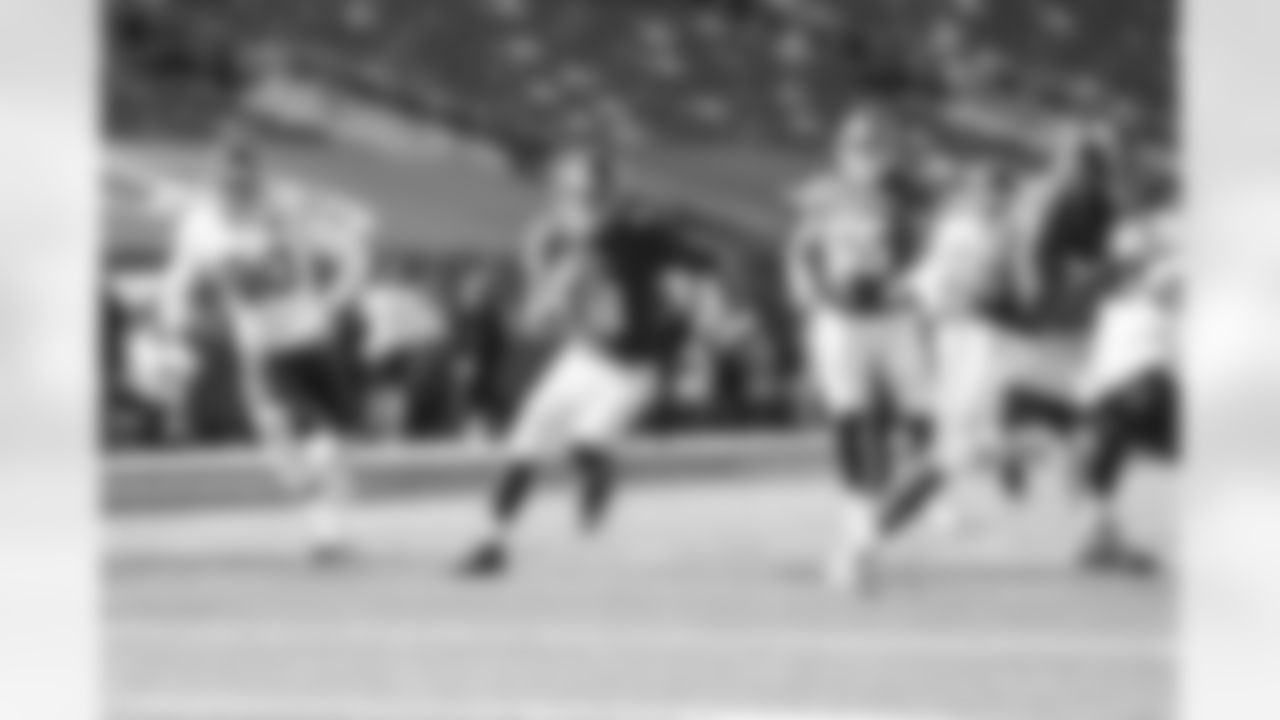
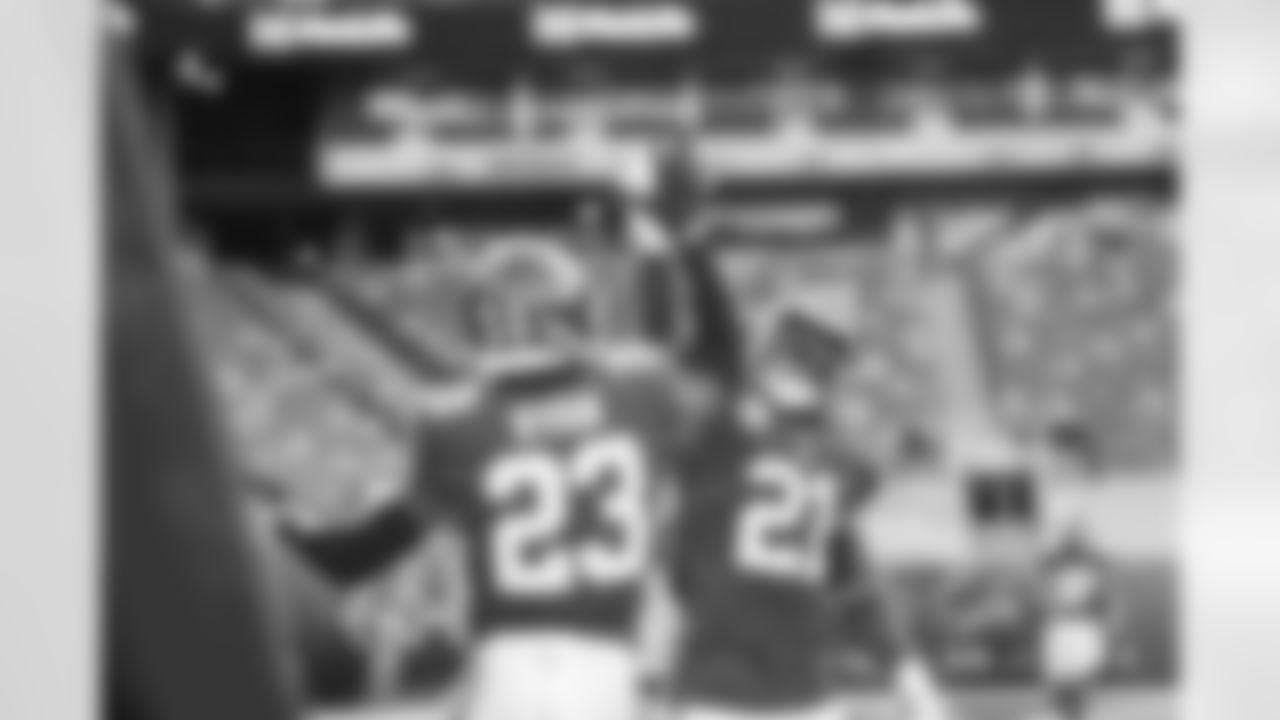
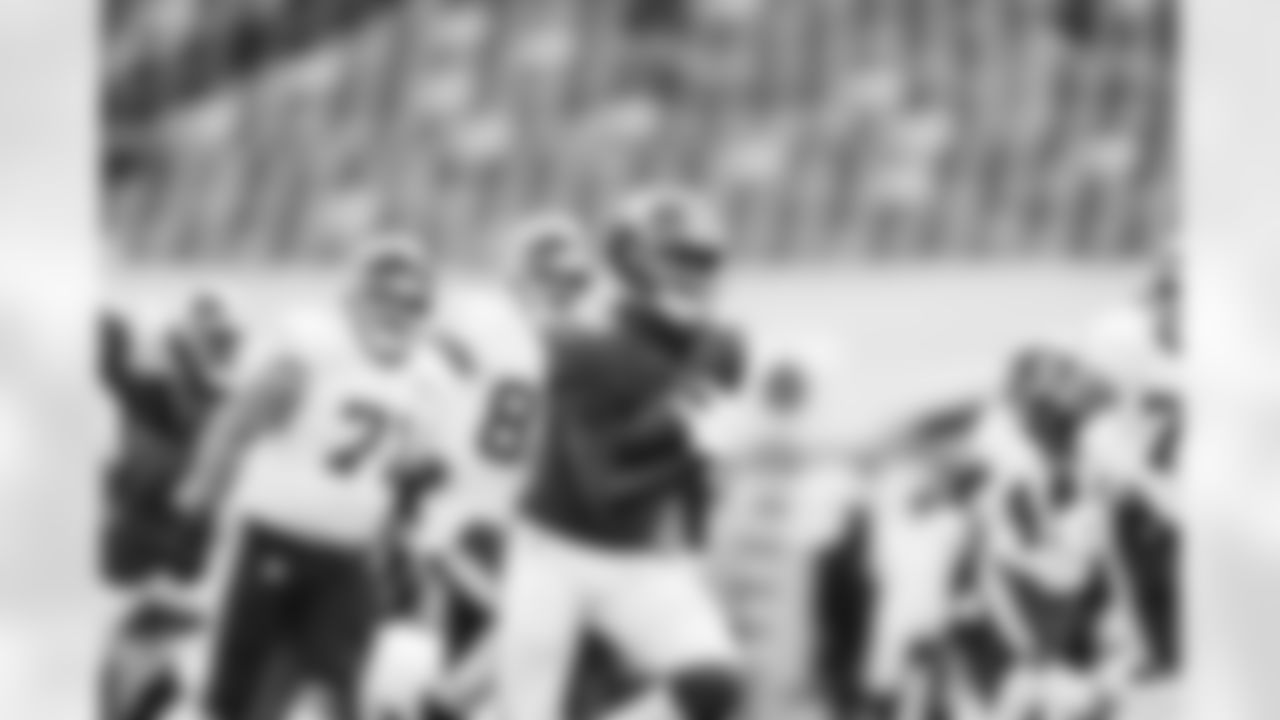
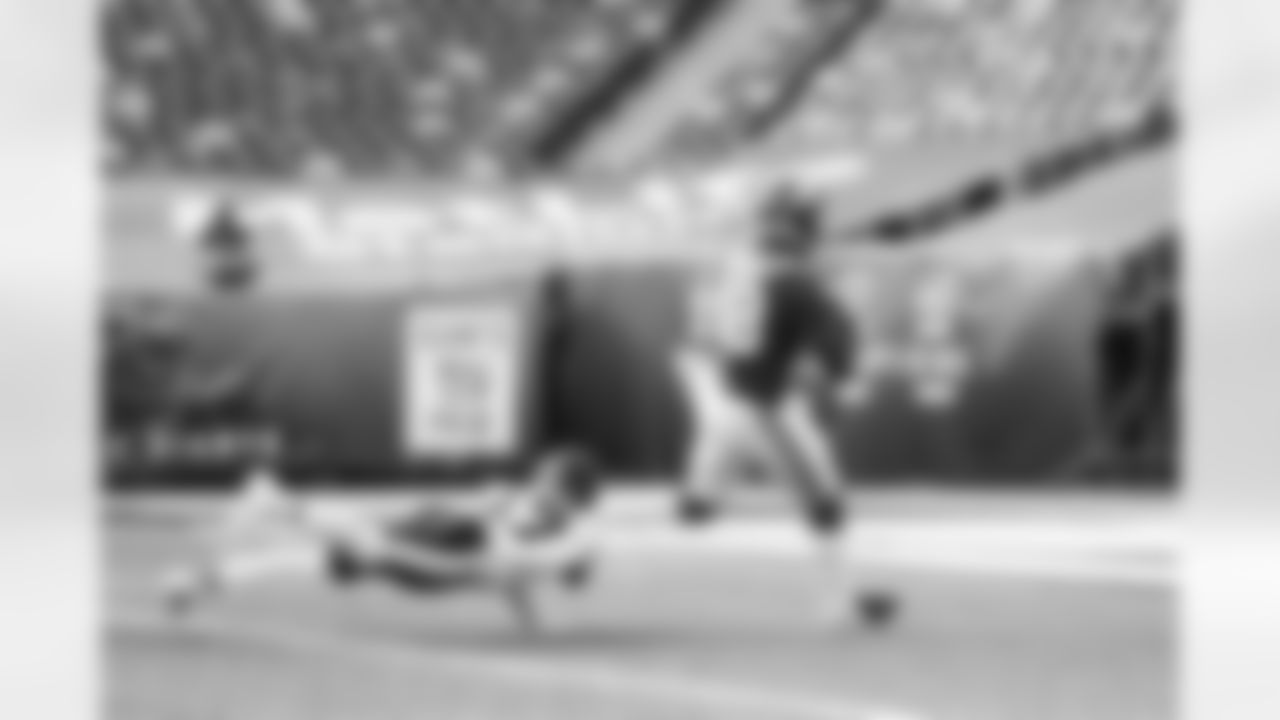
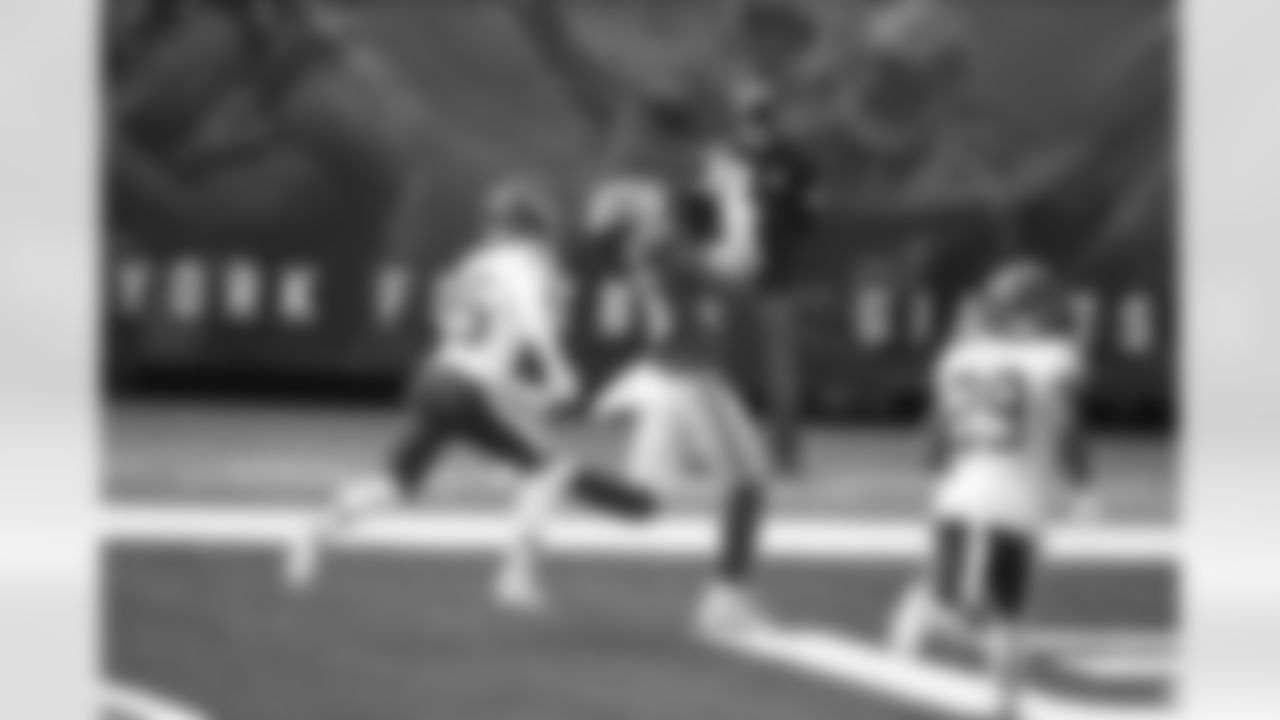
WR Darius Slayton caught two passes for 41 yards and a touchdown.
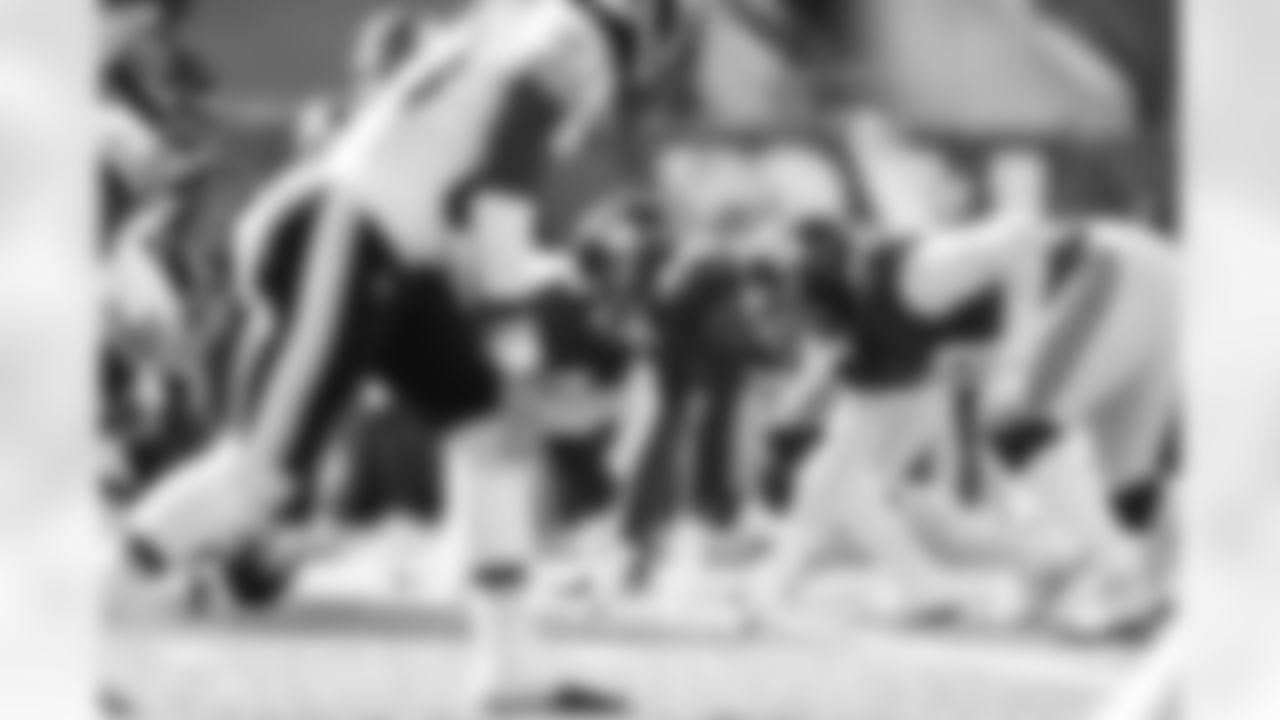
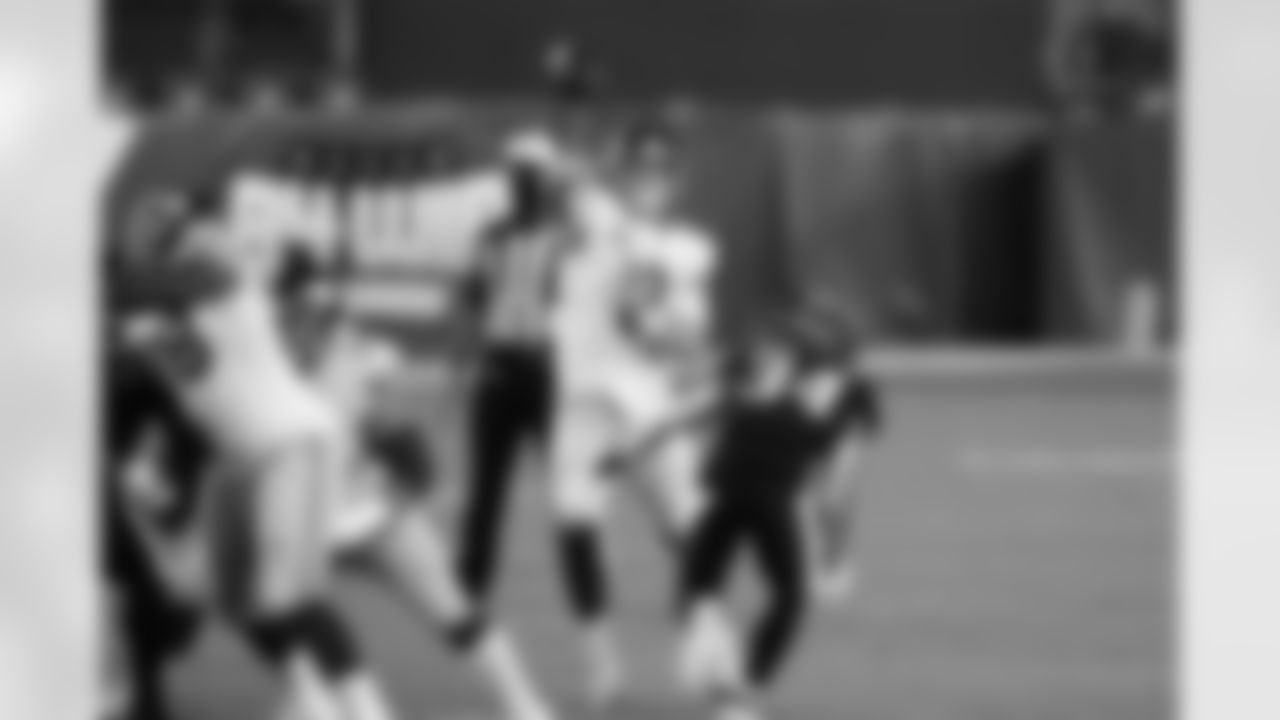
New York Giants' Daniel Jones plays during the first half of an NFL football game against the Philadelphia Eagles, Thursday, Oct. 22, 2020, in Philadelphia. (AP Photo/Chris Szagola)
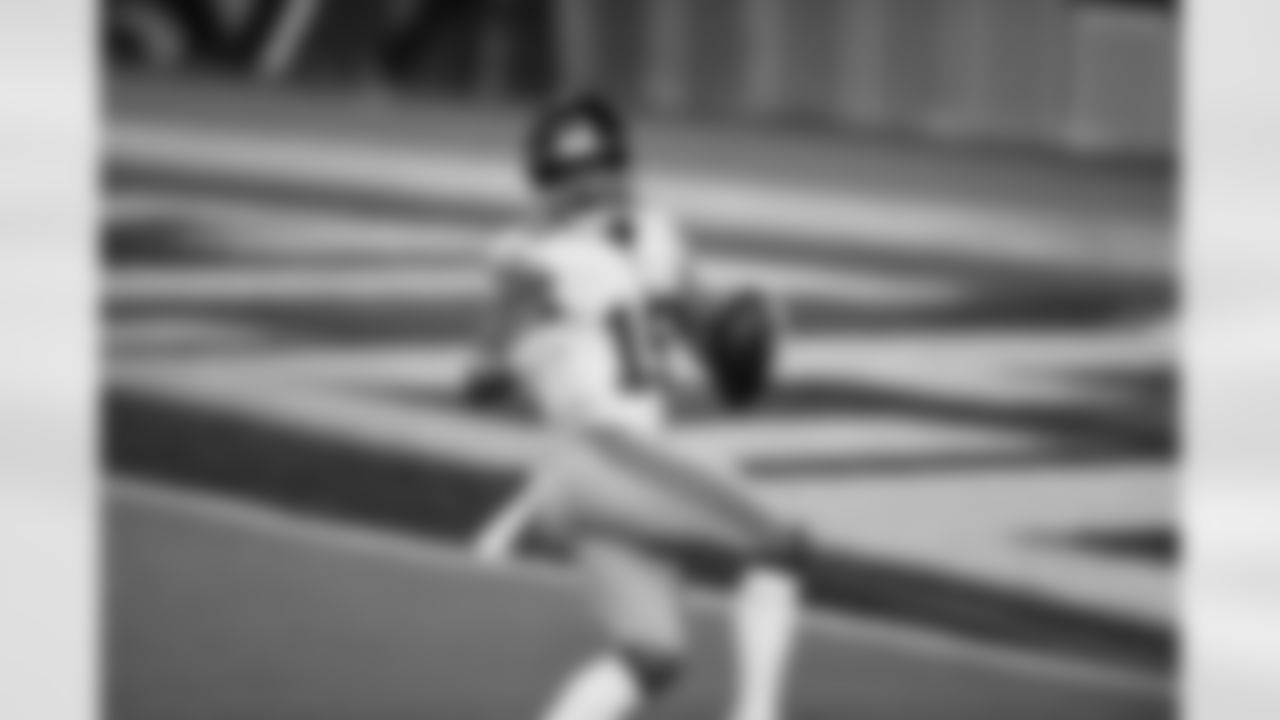
WR Golden Tate caught just one pass but made it count, taking it 39 yards for a touchdown.
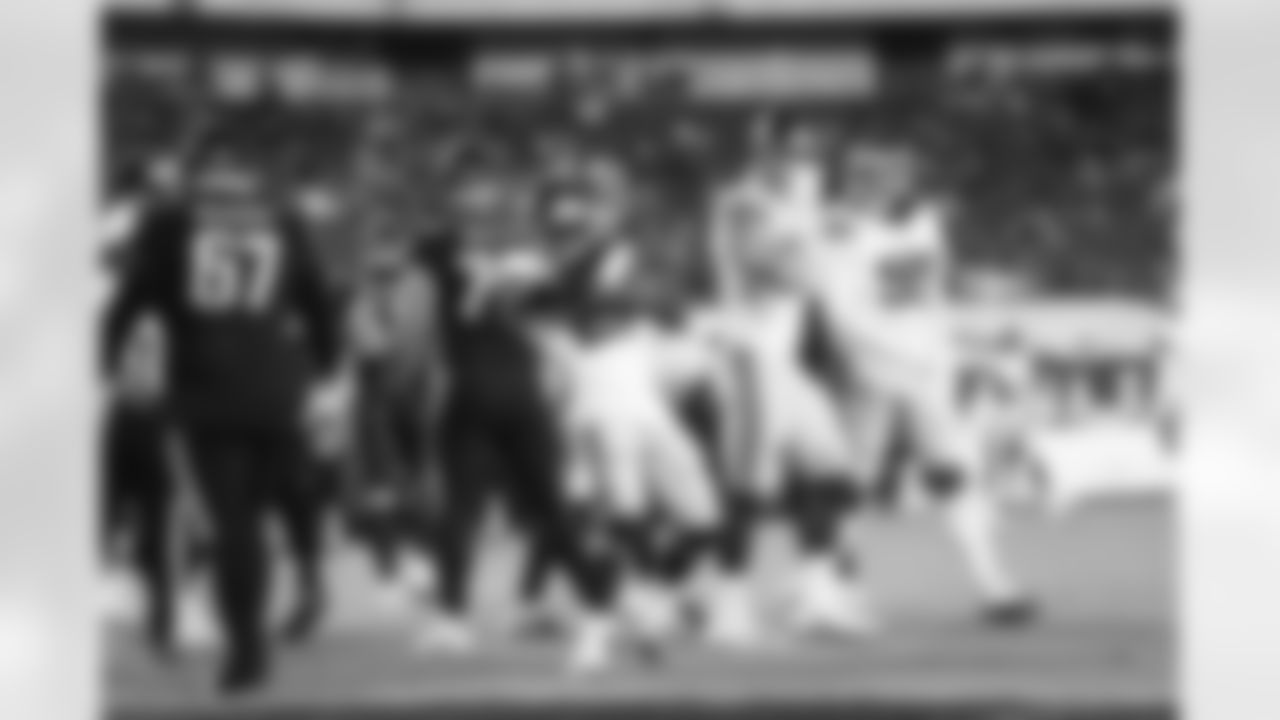
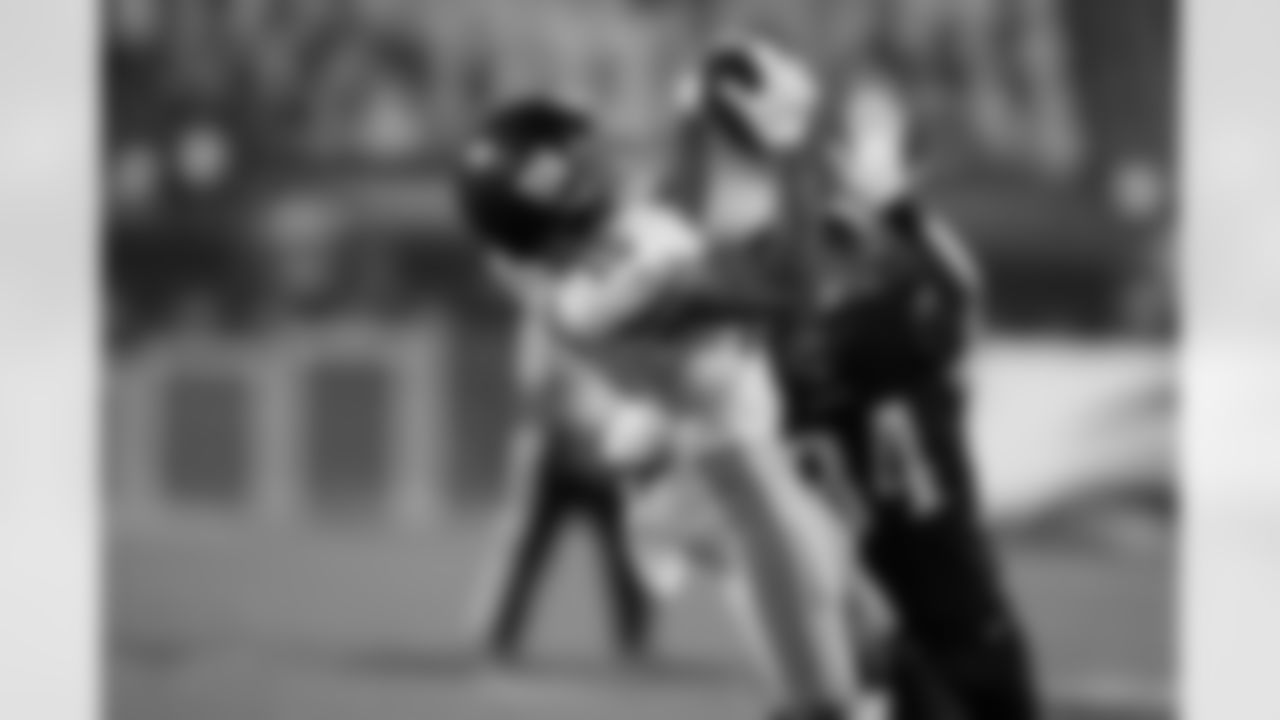
New York Giants wide receiver Golden Tate (15) makes a catch to score a touchdown during an NFL football game against the Philadelphia Eagles on Thursday, October 22, 2020 in Philadelphia, Pennsylvania. (Ric Tapia/NFL)
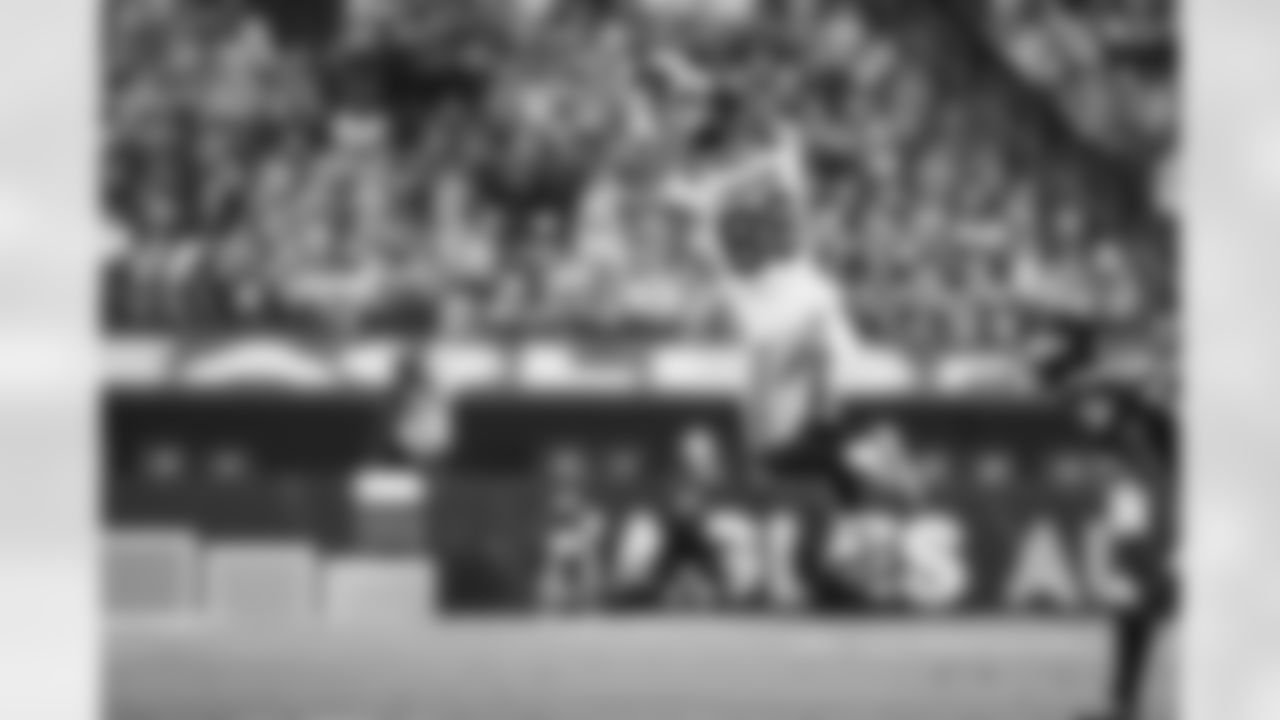

New York Giants' James Bradberry (24) intercepts a pass against Philadelphia Eagles' John Hightower (82) during the first half of an NFL football game, Thursday, Oct. 22, 2020, in Philadelphia. (AP Photo/Derik Hamilton)
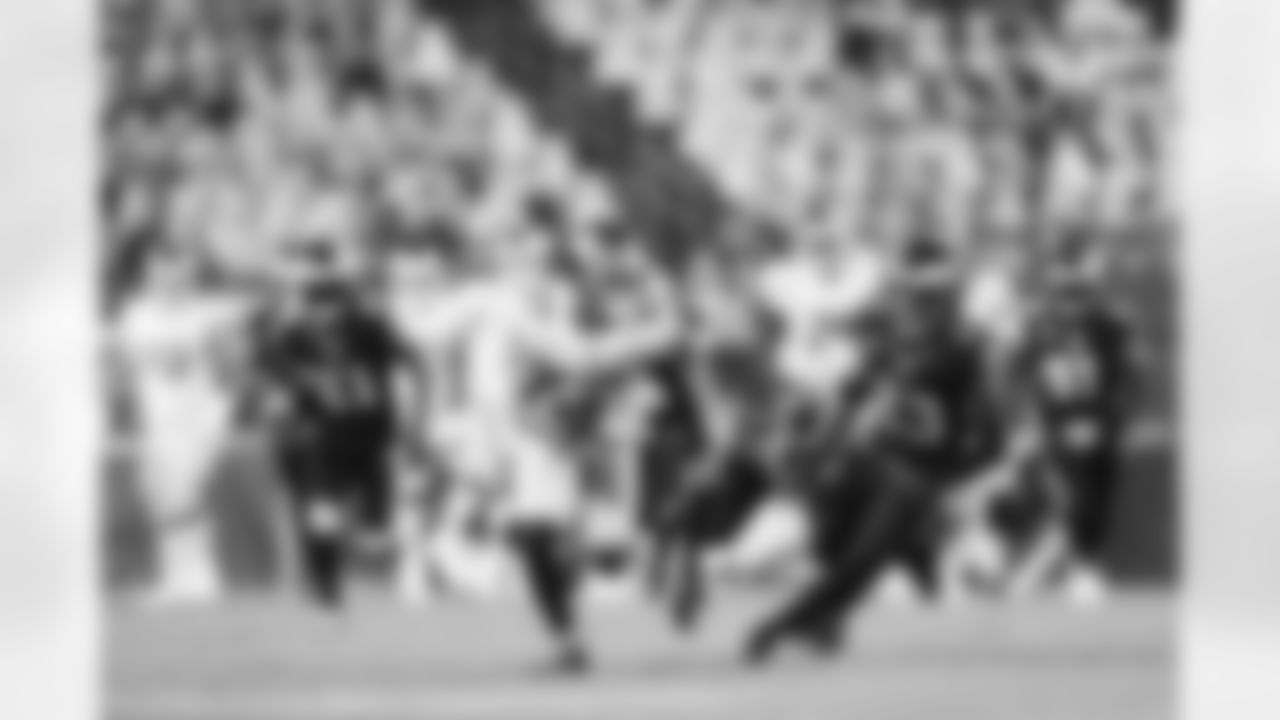
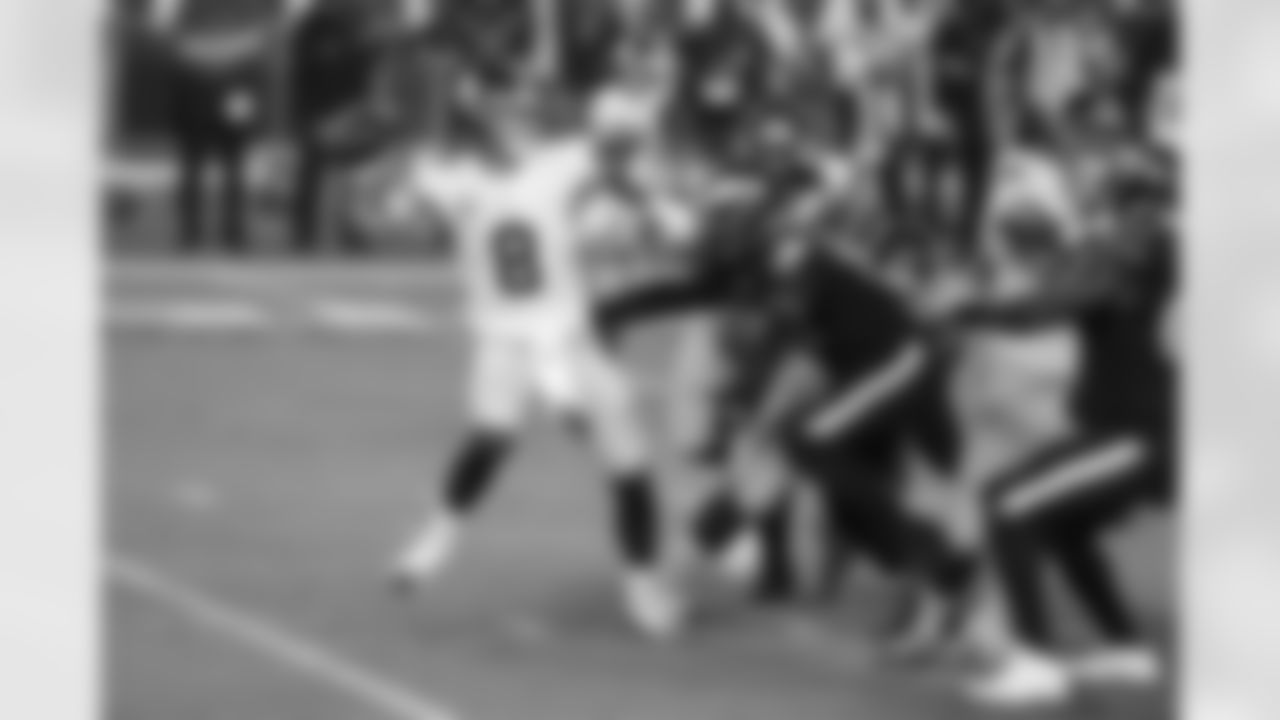
New York Giants quarterback Daniel Jones (8) looks to throw the ball during an NFL football game against the Philadelphia Eagles on Thursday, October 22, 2020 in Philadelphia, Pennsylvania. (Perry Knotts/NFL)
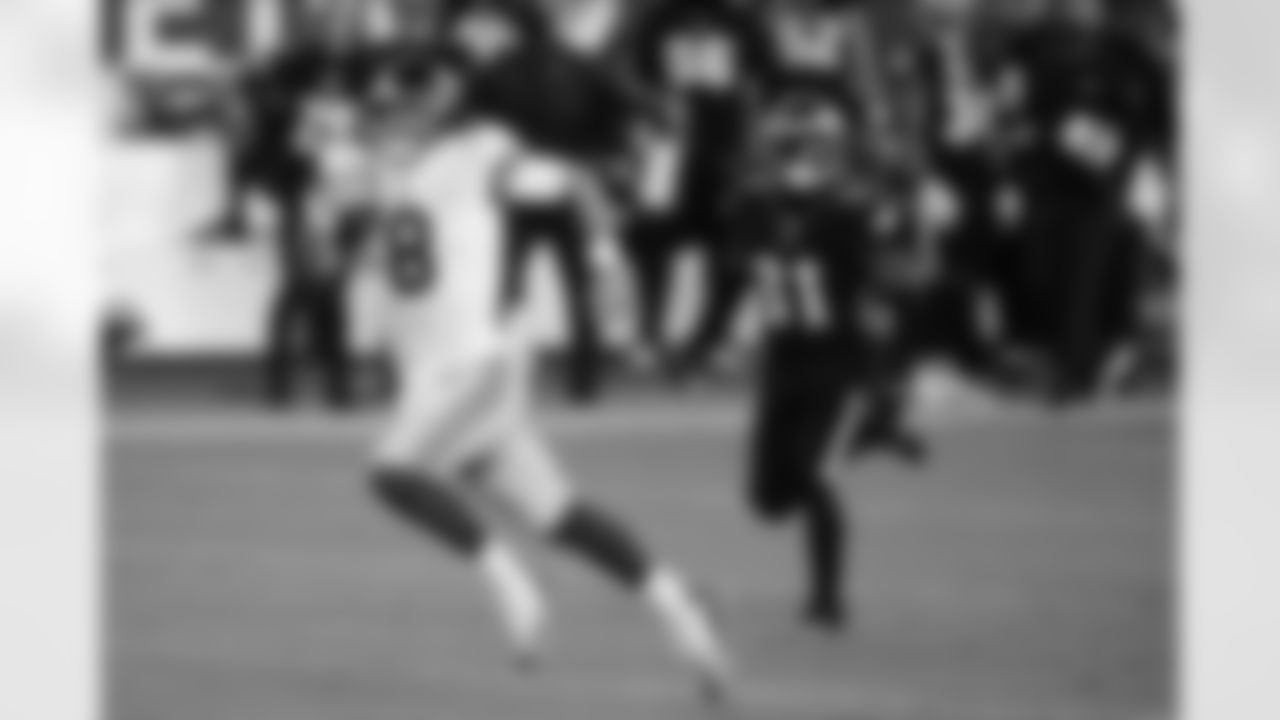
New York Giants' Daniel Jones runs with the ball during the first half of an NFL football game against the Philadelphia Eagles, Thursday, Oct. 22, 2020, in Philadelphia. (AP Photo/Chris Szagola)
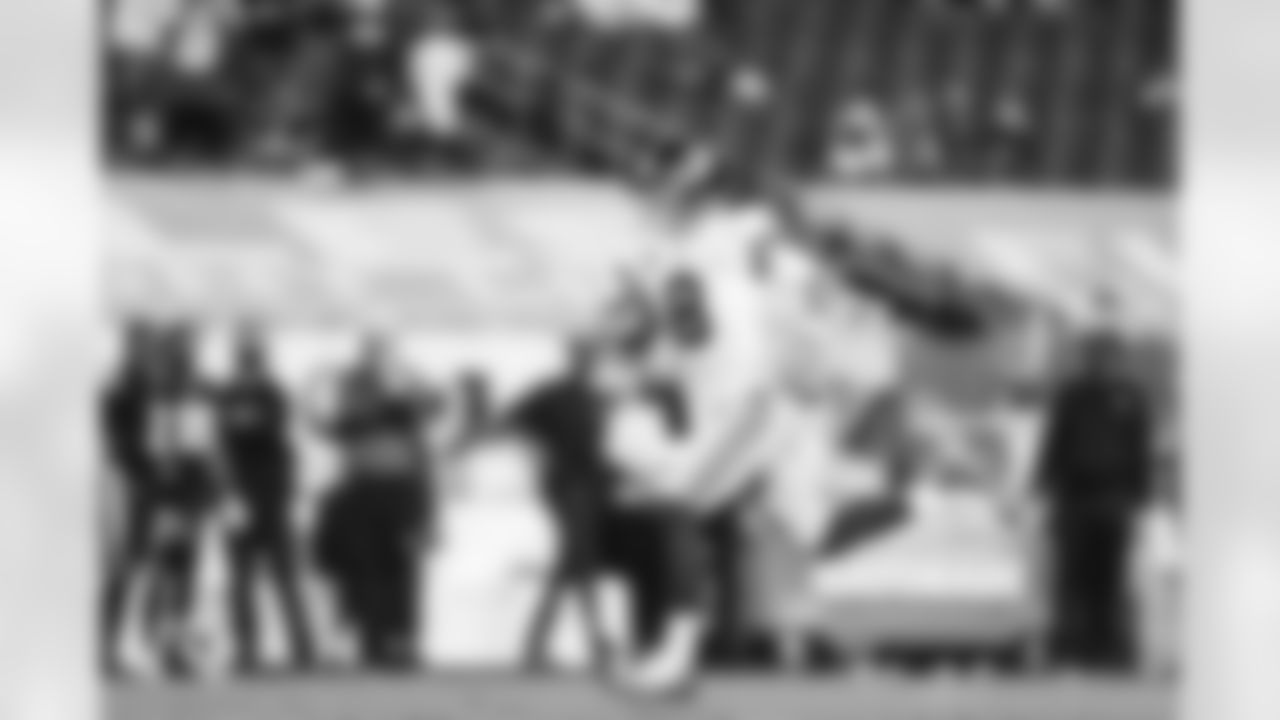
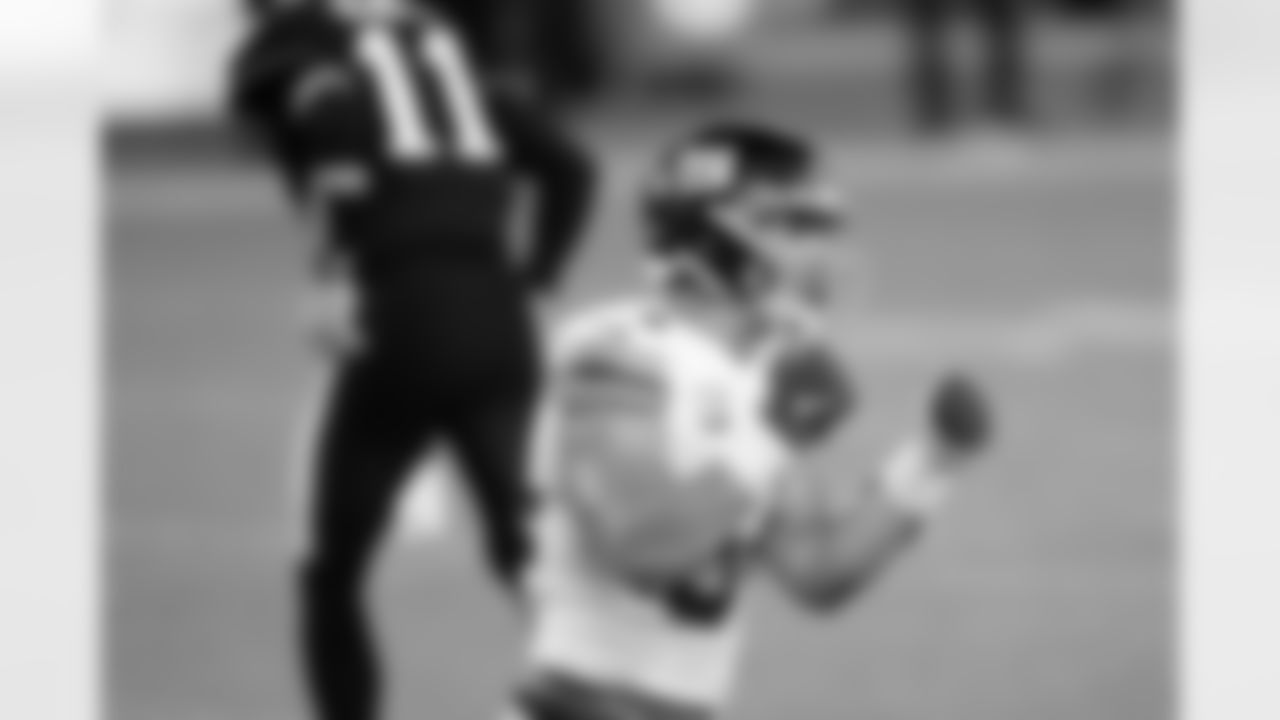
New York Giants' Blake Martinez reacts after a missed sack during the first half of an NFL football game against the Philadelphia Eagles, Thursday, Oct. 22, 2020, in Philadelphia. (AP Photo/Chris Szagola)
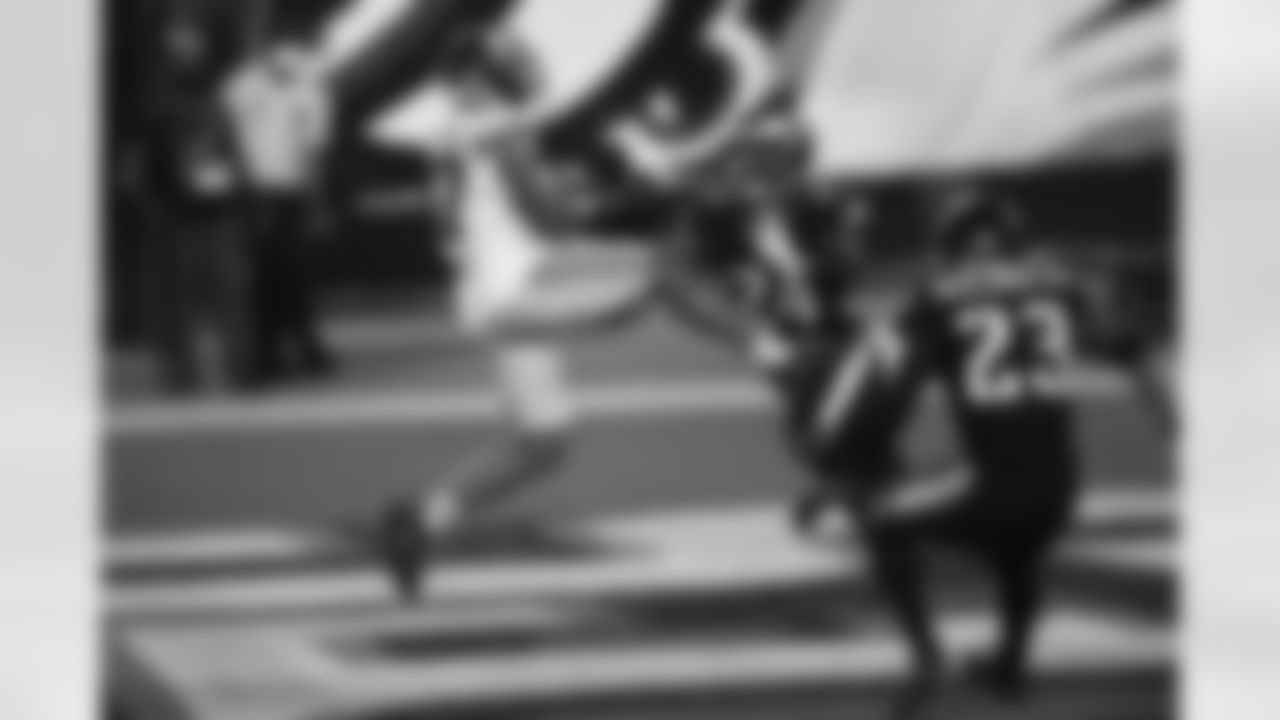
New York Giants' Sterling Shepard (87) catches a touchdown pass against Philadelphia Eagles' Darius Slay (24) and Rodney McLeod (23) during the second half of an NFL football game, Thursday, Oct. 22, 2020, in Philadelphia. (AP Photo/Derik Hamilton)
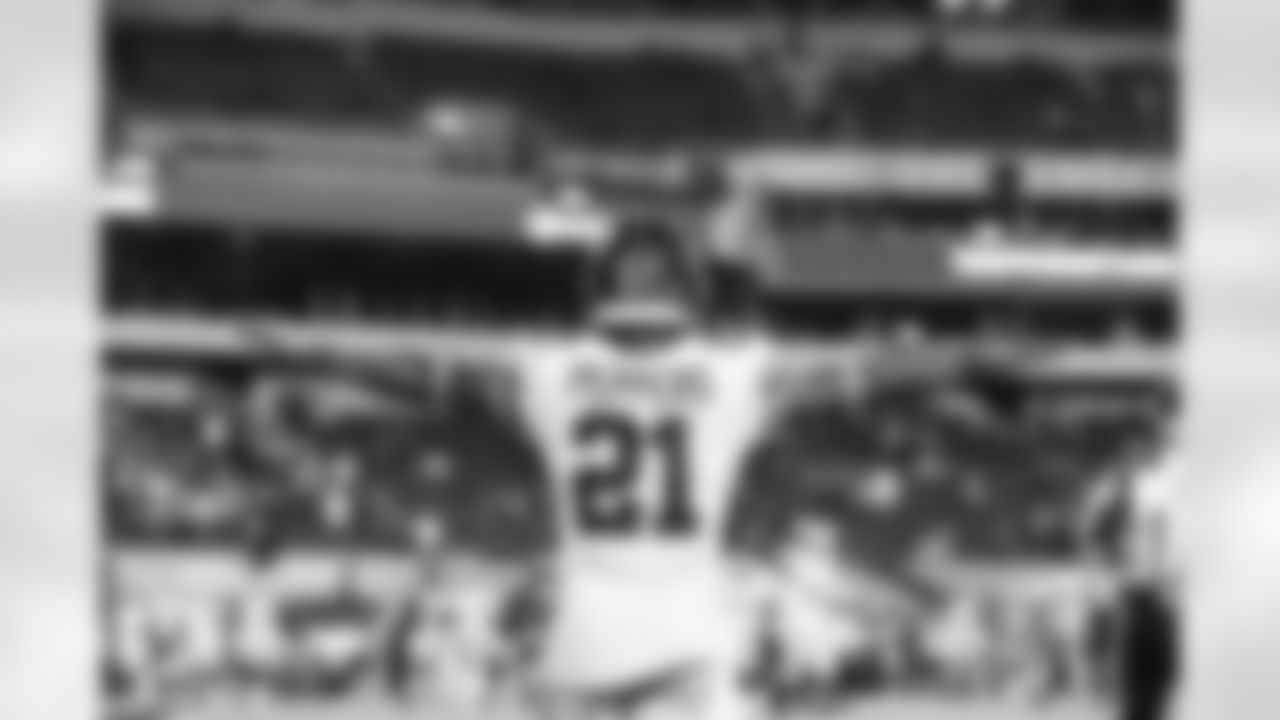
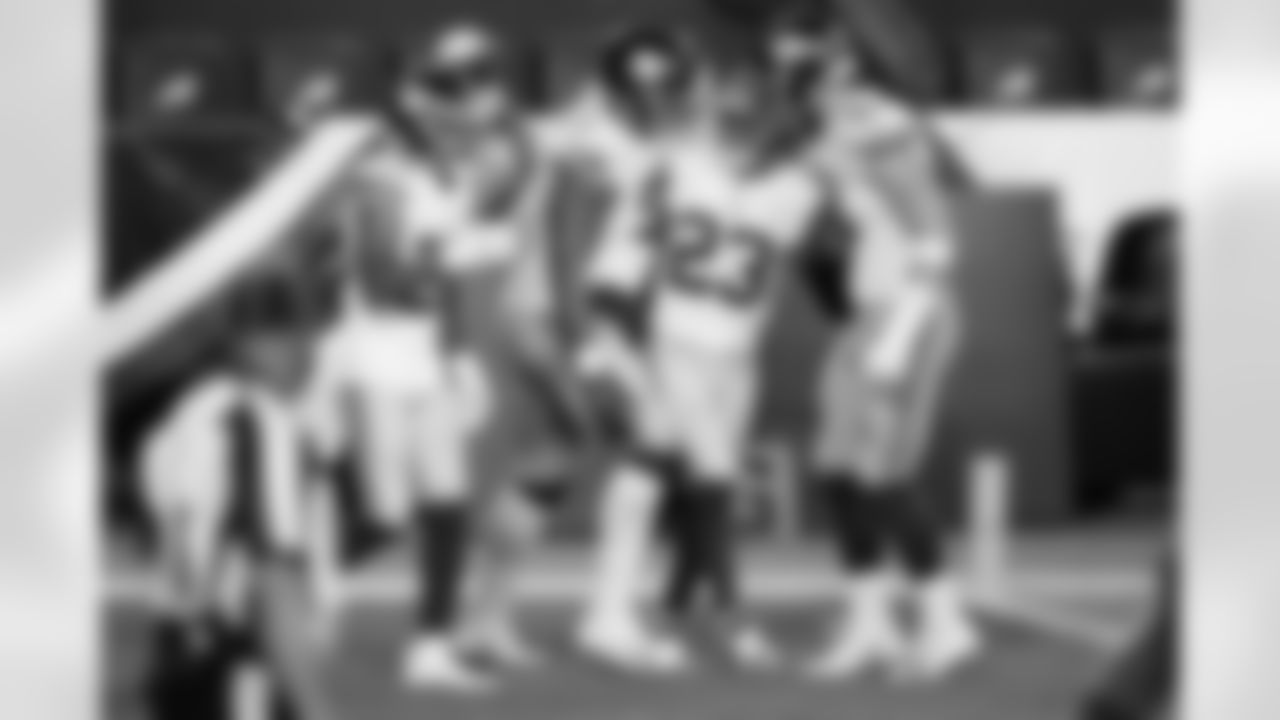
New York Giants' Logan Ryan (23) celebrates with teammates after the Giants forced a turnover on downs during the second half of an NFL football game against the Philadelphia Eagles, Thursday, Oct. 22, 2020, in Philadelphia. (AP Photo/Chris Szagola)
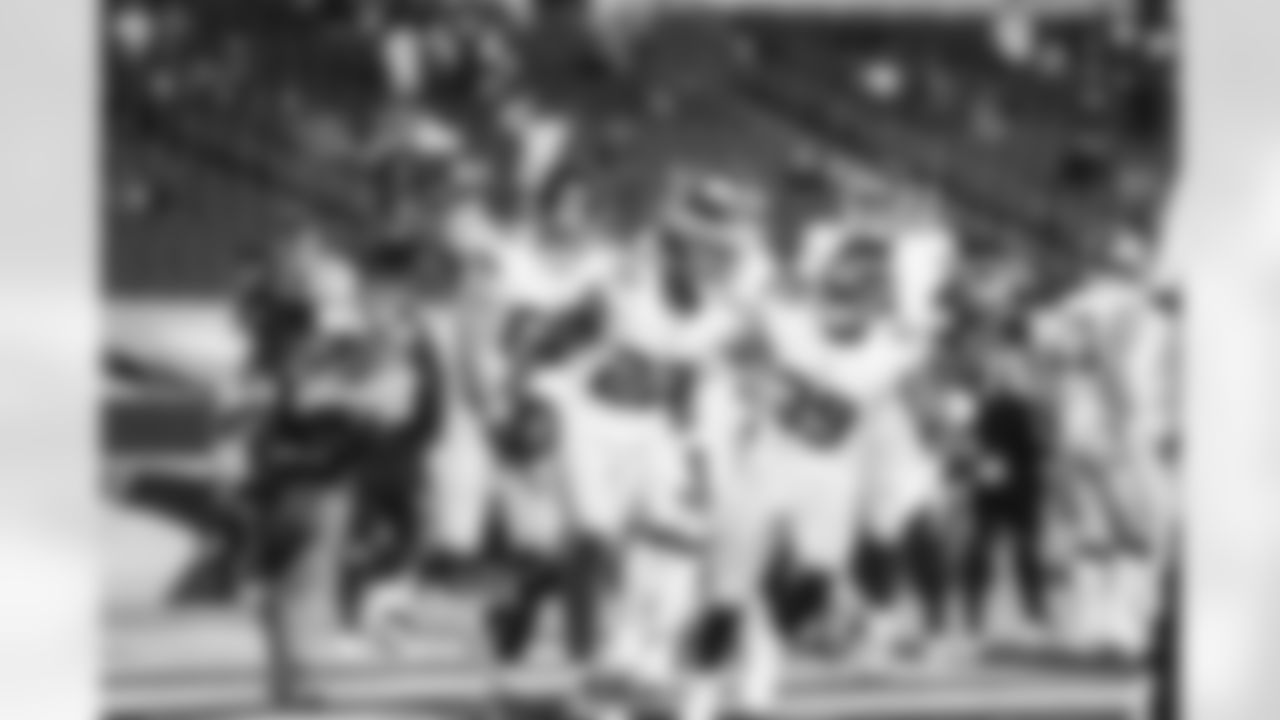
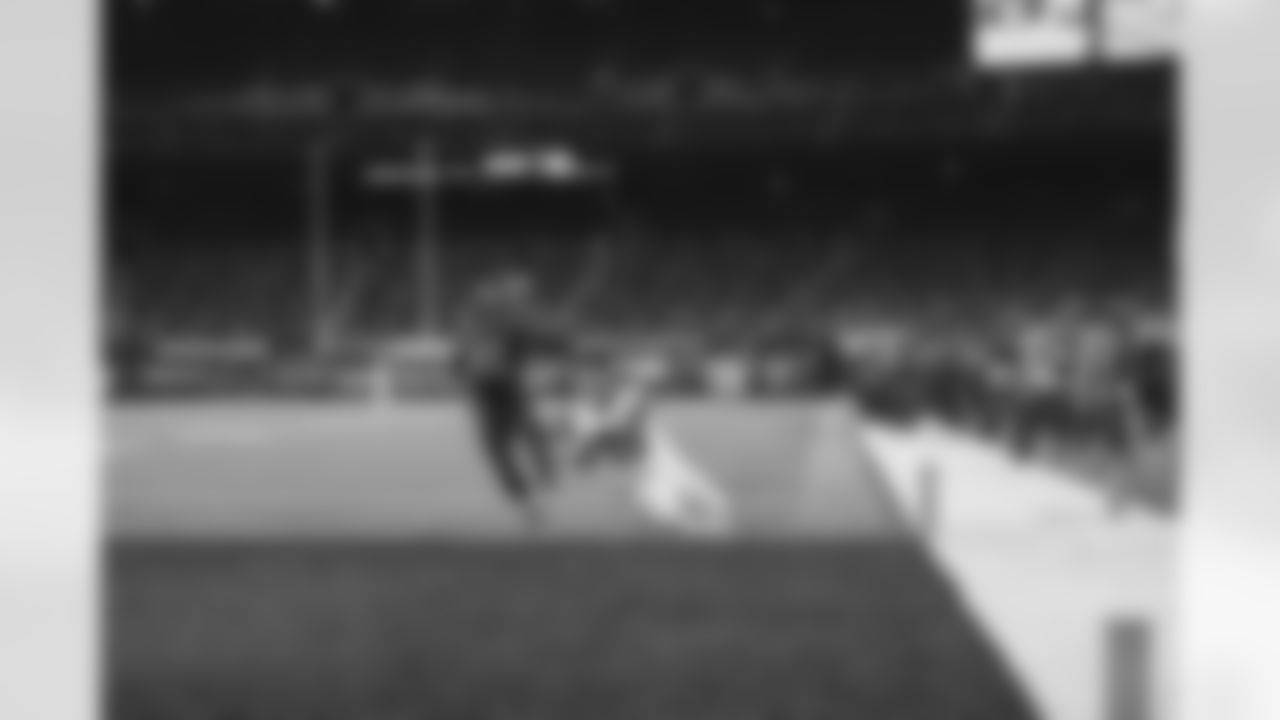
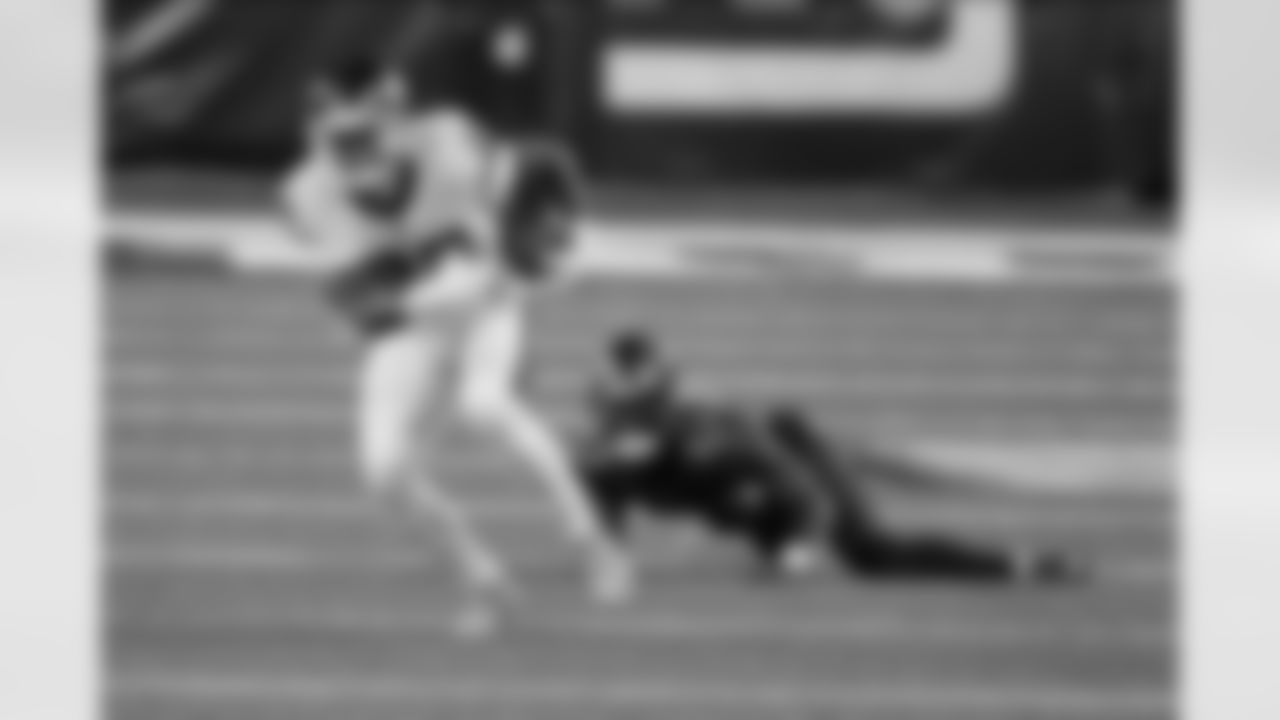
New York Giants' Wayne Gallman runs the ball during the first half of an NFL football game against the Tampa Bay Buccaneers, Monday, Nov. 2, 2020, in East Rutherford, N.J. (AP Photo/Corey Sipkin)
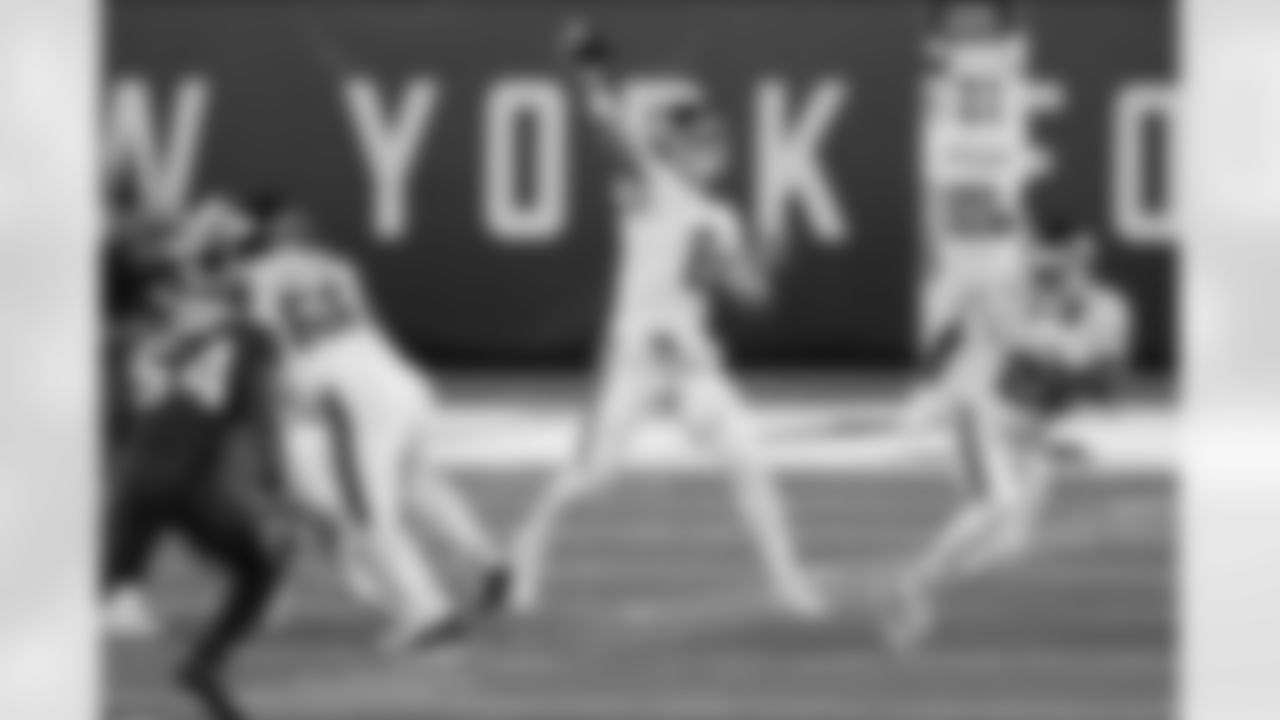
New York Giants quarterback Daniel Jones throws during the first half of an NFL football game against the Tampa Bay Buccaneers, Monday, Nov. 2, 2020, in East Rutherford, N.J. (AP Photo/Corey Sipkin)
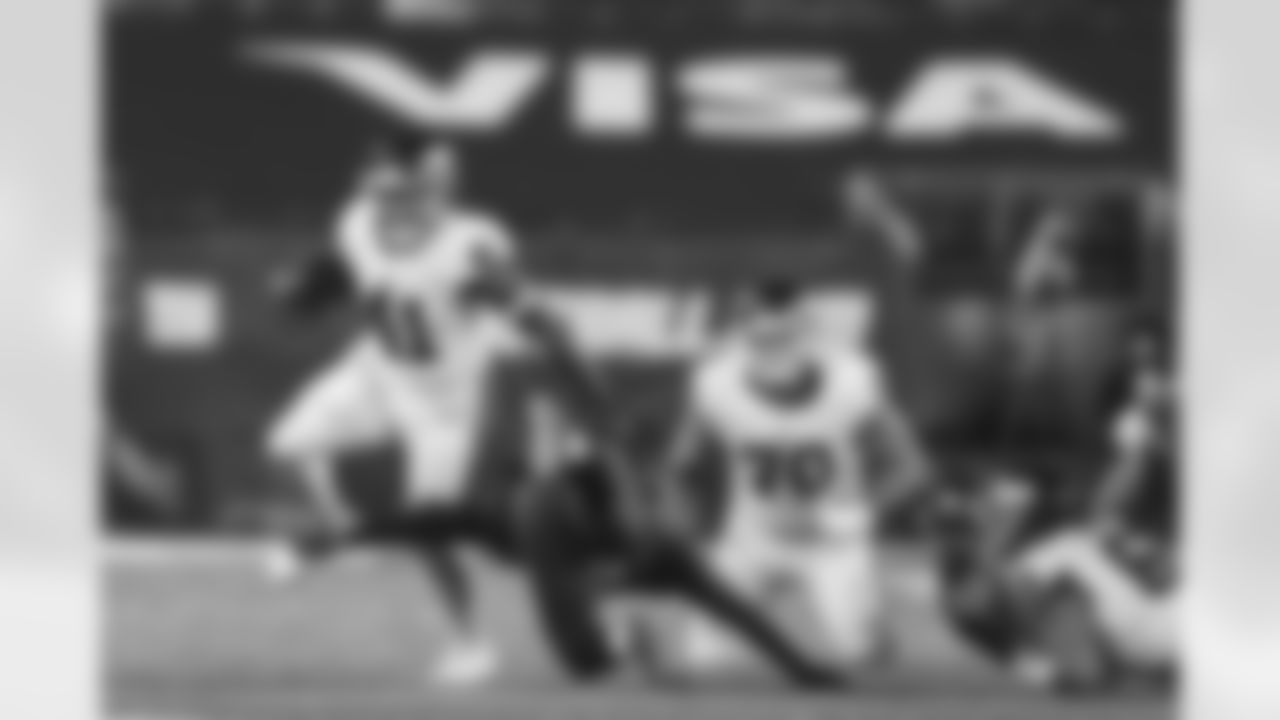
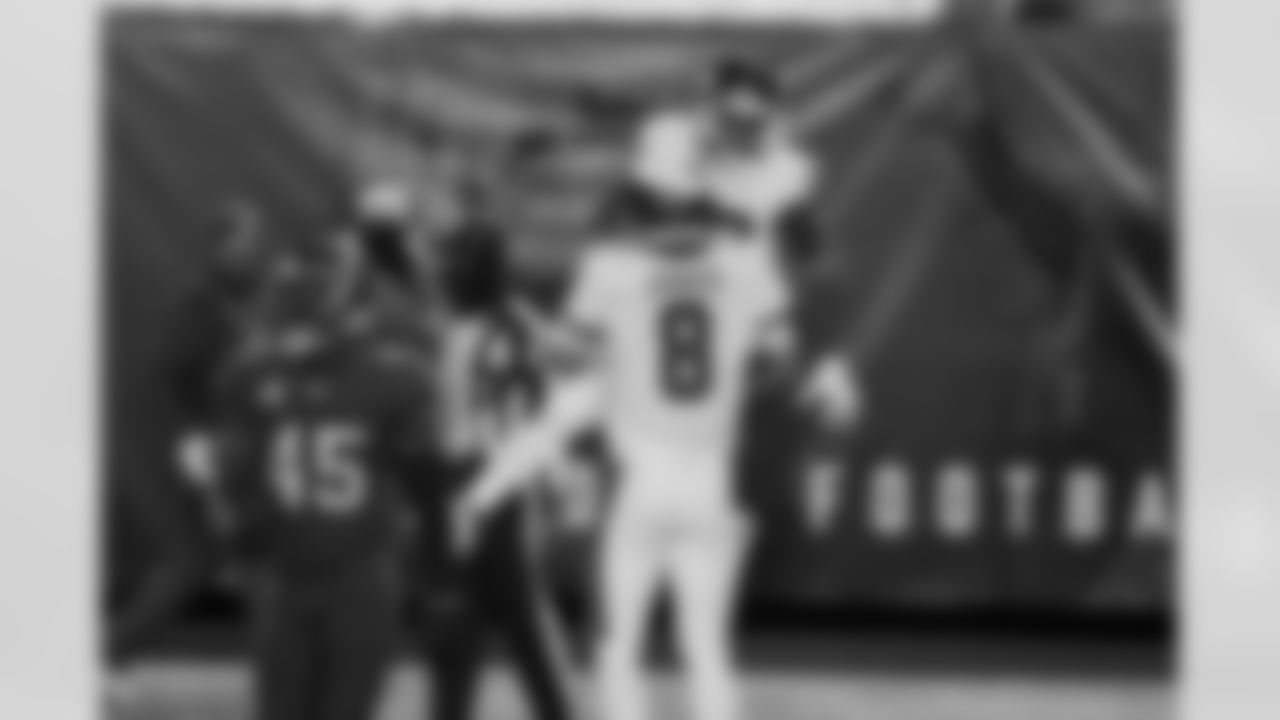
New York Giants running back Dion Lewis (33) celebrates with quarterback Daniel Jones (8) after scoring a touchdown during an NFL football game against the Tampa Bay Buccaneers on Monday, November 2, 2020 in East Rutherford, New Jersey. (Mikey Owens/NFL)
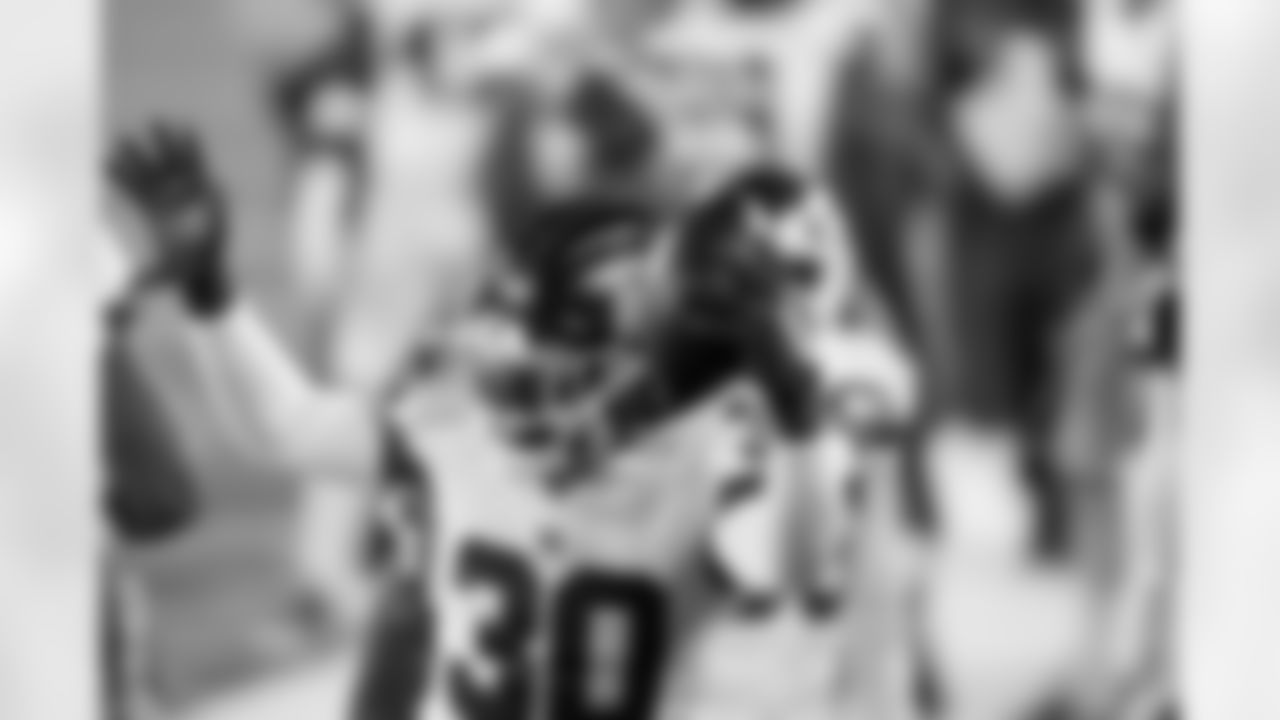
New York Giants cornerback Darnay Holmes (30) celebrates after picking up a fumble during an NFL football game against the Tampa Bay Buccaneers on Monday, November 2, 2020 in East Rutherford, New Jersey. (Cooper Neill/NFL)
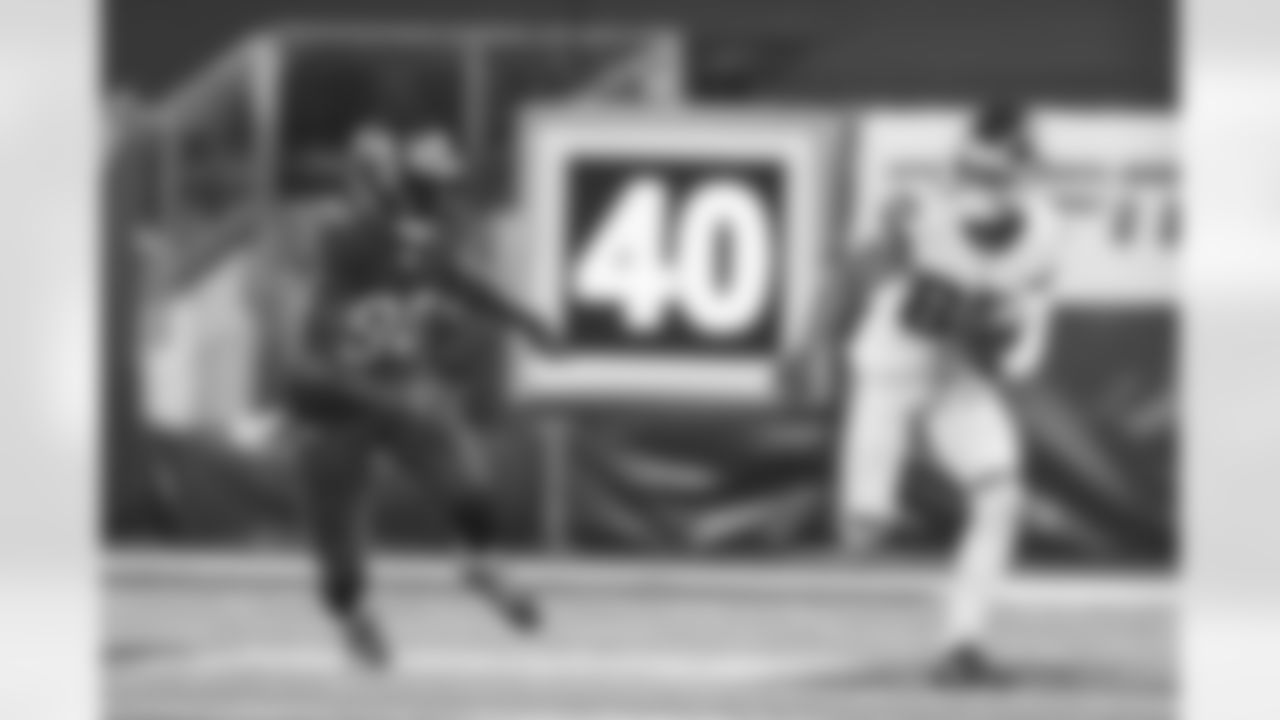
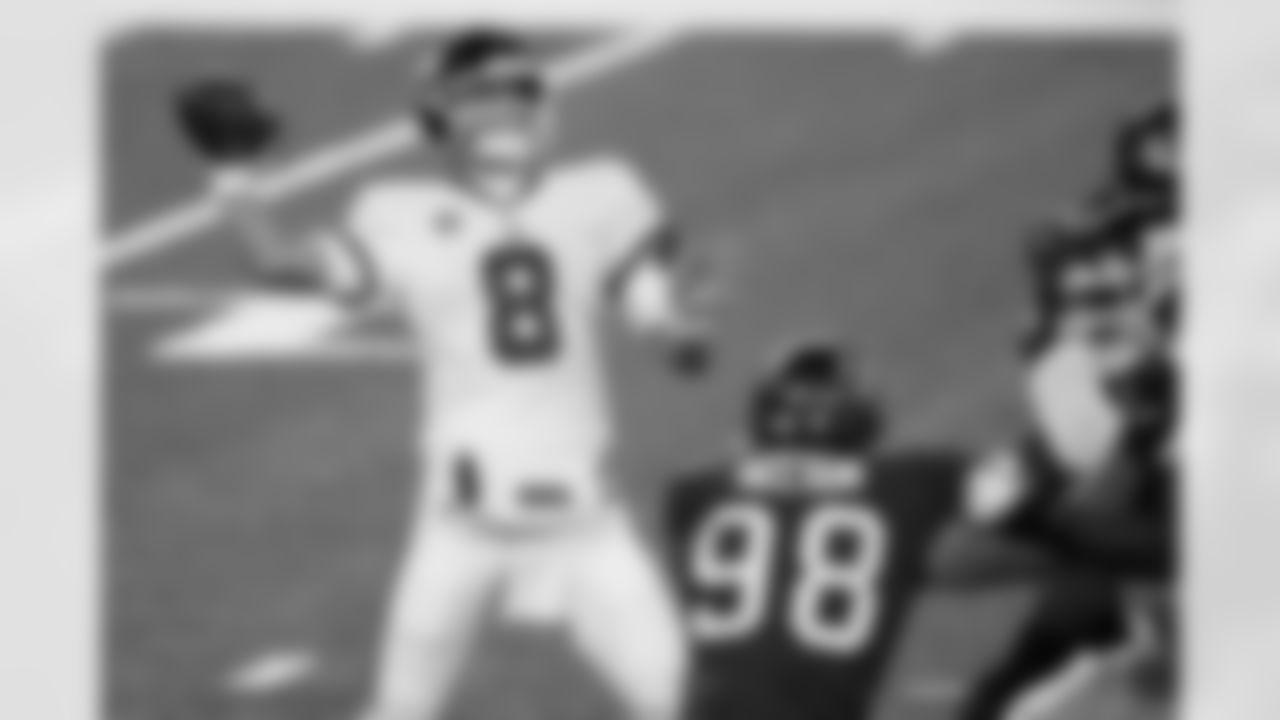
New York Giants quarterback Daniel Jones throws during the first half of an NFL football game against the Tampa Bay Buccaneers, Monday, Nov. 2, 2020, in East Rutherford, N.J. (AP Photo/Corey Sipkin)
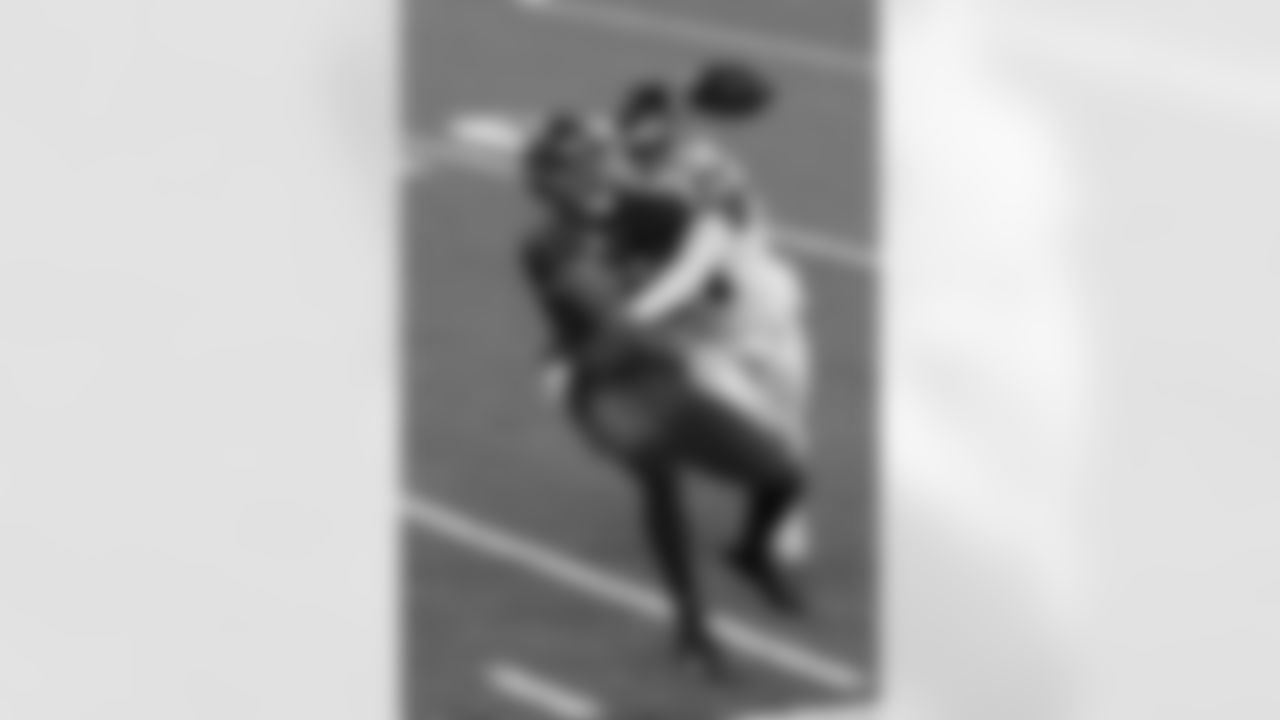
New York Giants' James Bradberry, right, knocks away a pass intended for Tampa Bay Buccaneers' Mike Evans during the first half of an NFL football game, Monday, Nov. 2, 2020, in East Rutherford, N.J. (AP Photo/Corey Sipkin)
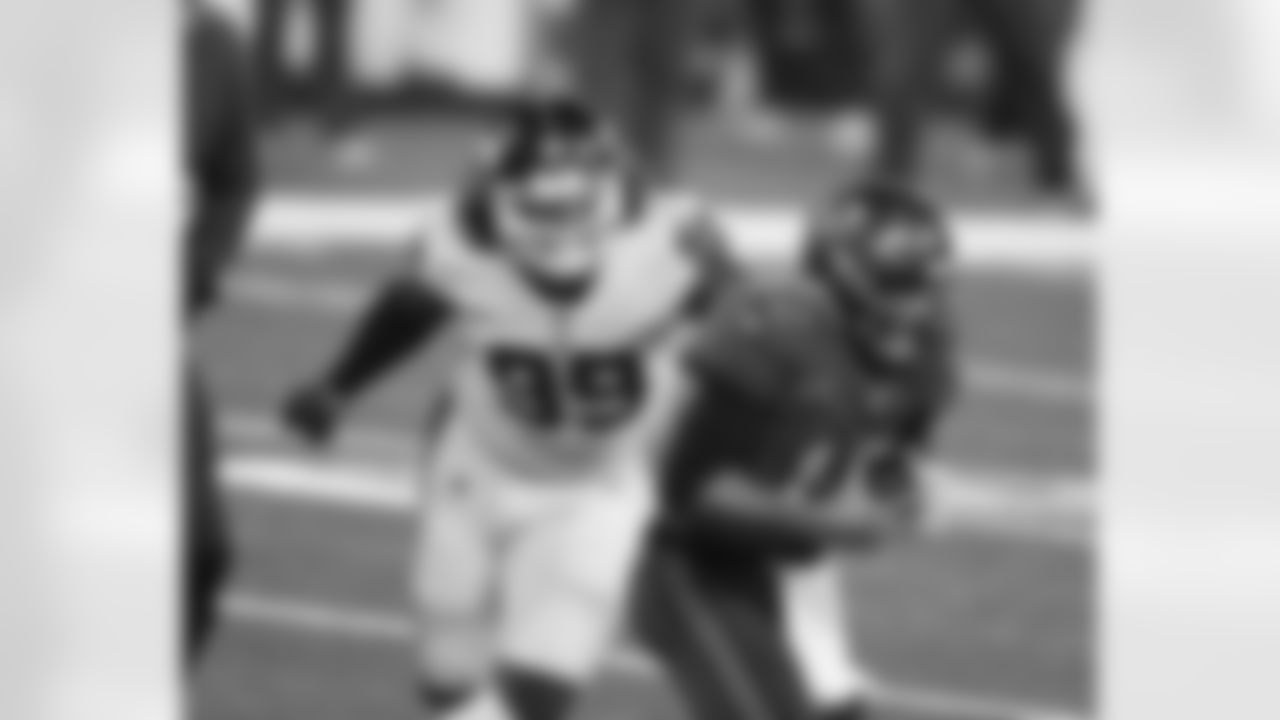
New York Giants defensive end Leonard Williams (99) sacks Tampa Bay Buccaneers quarterback Tom Brady (12) during a week 8 regular season Monday Night football game at MetLife Stadium on November 2nd, 2020 in East Rutherford, New Jersey
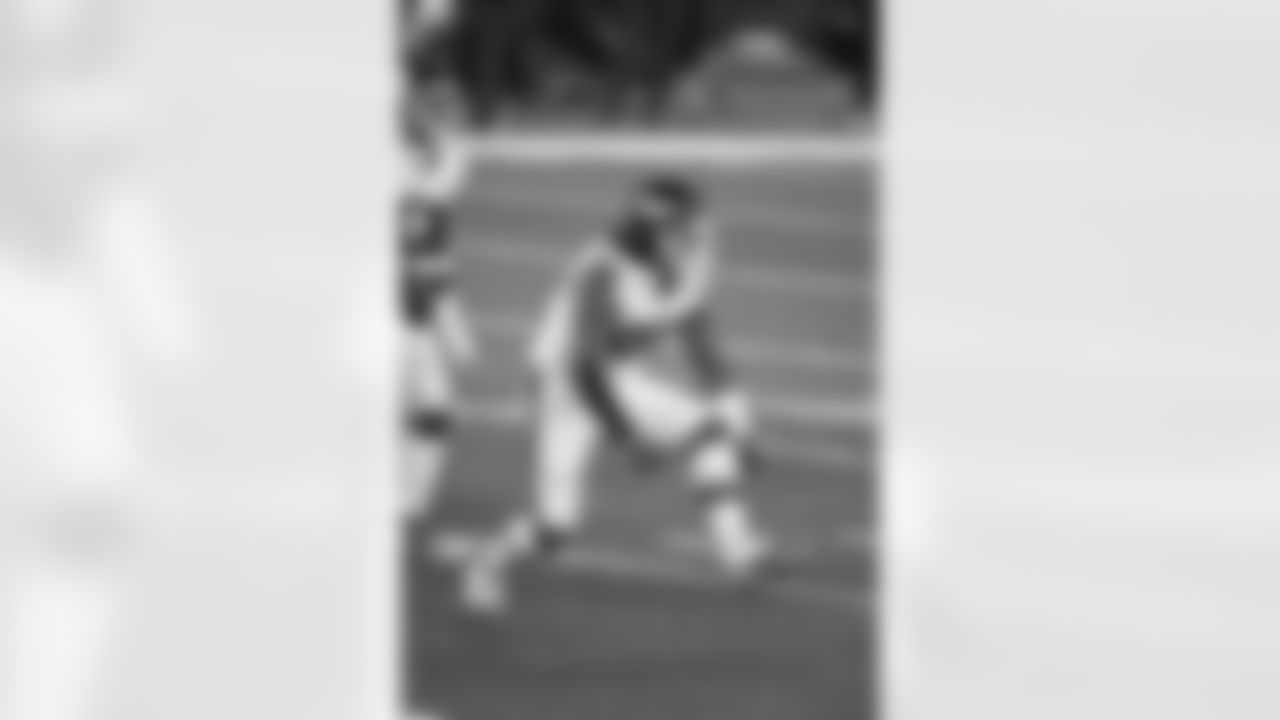
New York Giants defensive end Leonard Williams (99) celebrates sacking Tampa Bay Buccaneers quarterback Tom Brady (12) during a week 8 regular season Monday Night football game at MetLife Stadium on November 2nd, 2020 in East Rutherford, New Jersey
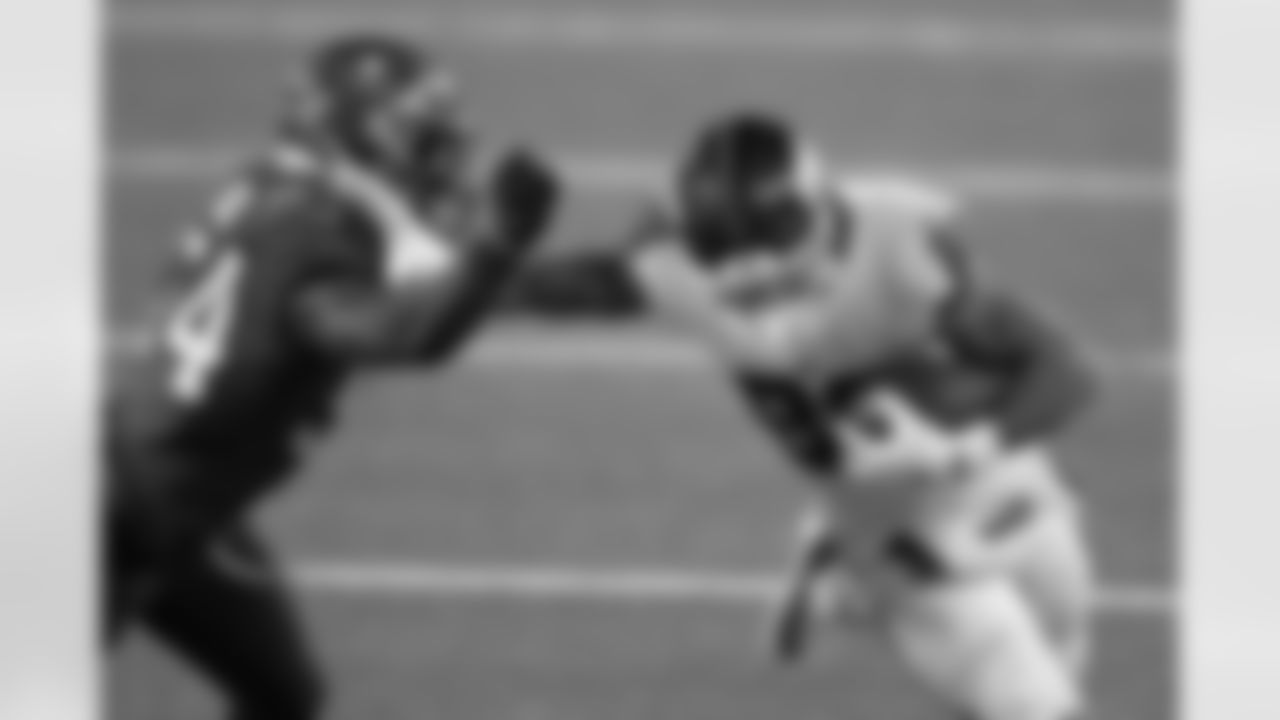
New York Giants' Evan Engram, right, fends off Tampa Bay Buccaneers' Lavonte David during the first half of an NFL football game, Monday, Nov. 2, 2020, in East Rutherford, N.J. (AP Photo/Bill Kostroun)
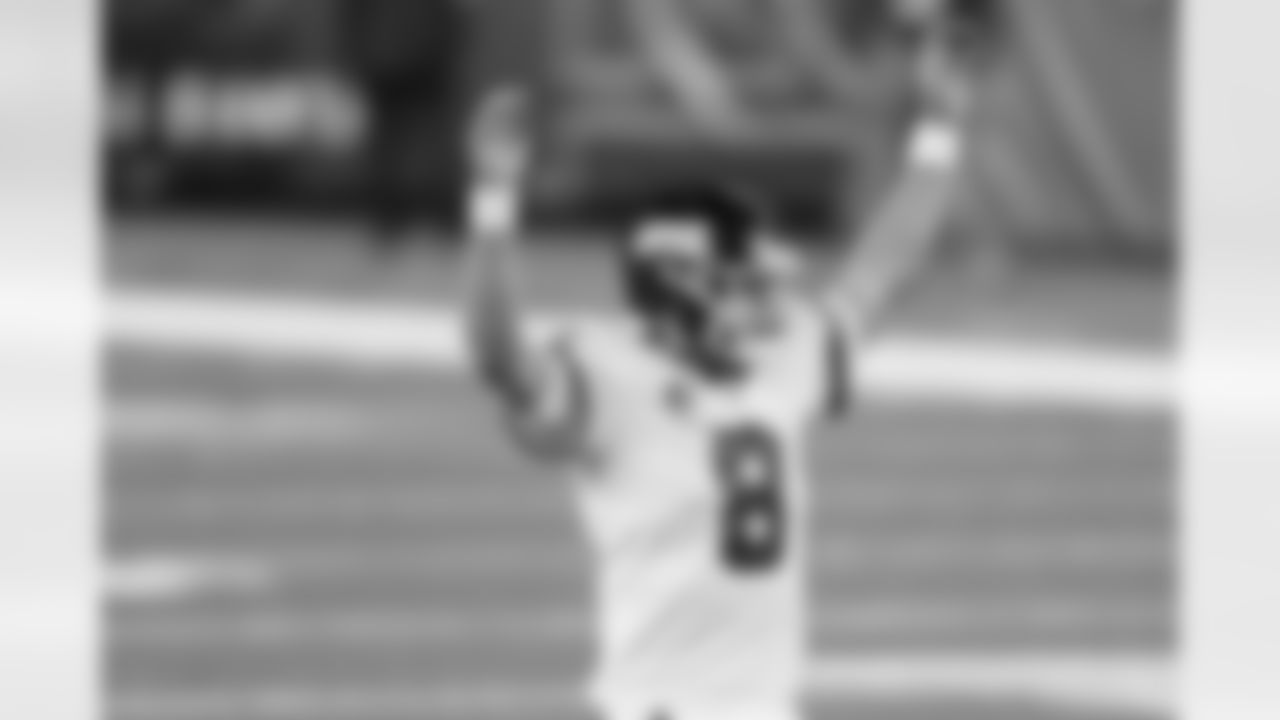
New York Giants quarterback Daniel Jones (8) celebrates during an NFL football game against the Tampa Bay Buccaneers on Monday, November 2, 2020 in East Rutherford, New Jersey. (Cooper Neill/NFL)
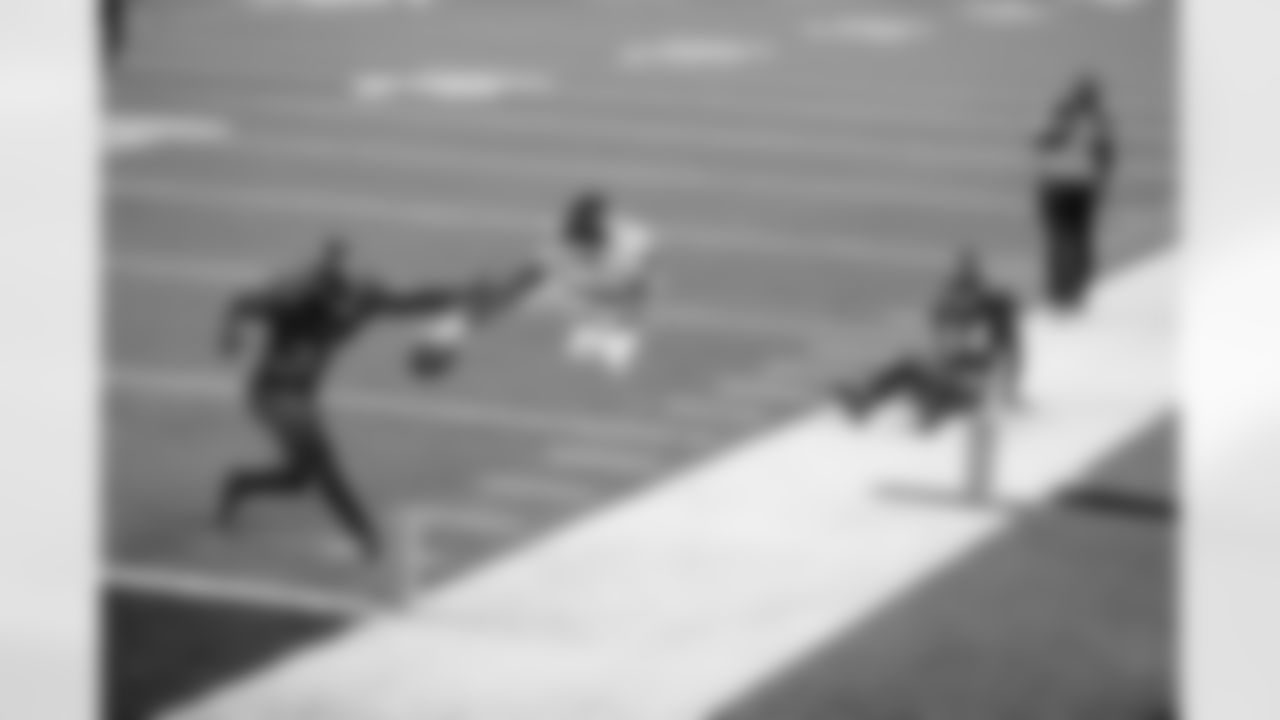
New York Giants tight end Evan Engram (88) dives with the ball during an NFL football game against the Tampa Bay Buccaneers on Monday, November 2, 2020 in East Rutherford, New Jersey. (Mikey Owens/NFL)

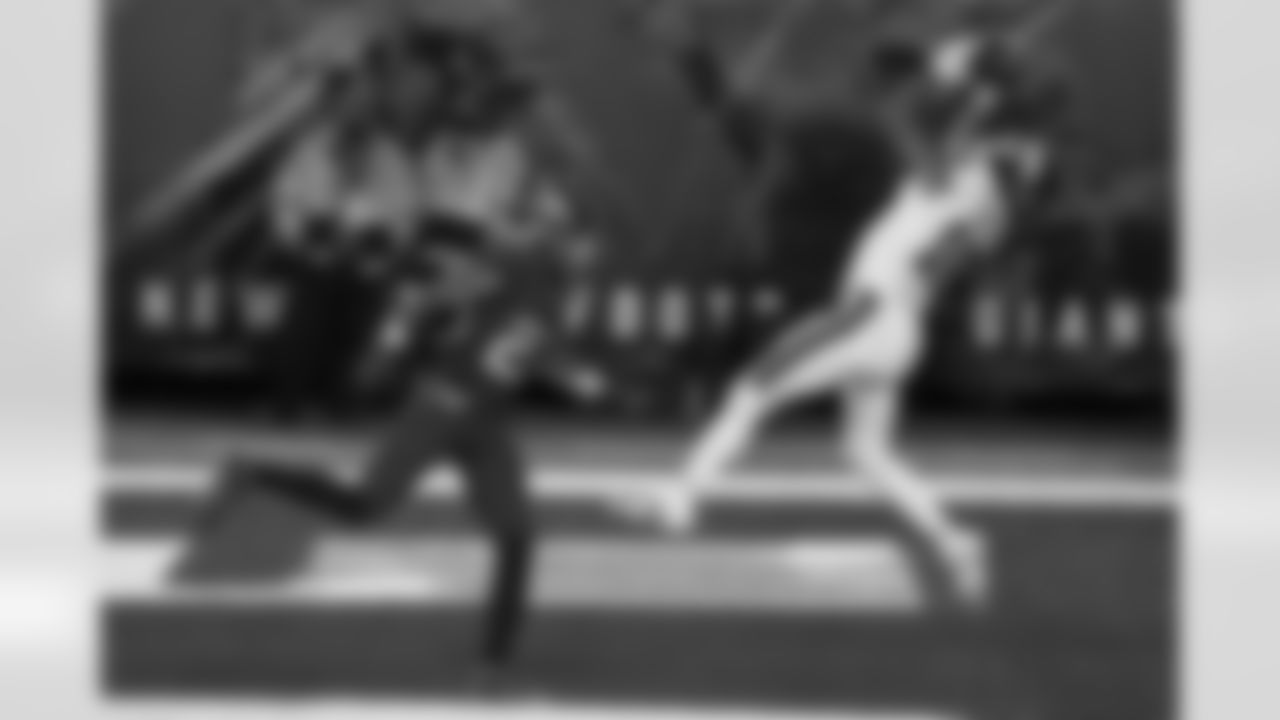
New York Giants' Golden Tate, right, catches a touchdown in front of Tampa Bay Buccaneers' Sean Murphy-Bunting during the second half of an NFL football game, Monday, Nov. 2, 2020, in East Rutherford, N.J. (AP Photo/Corey Sipkin)
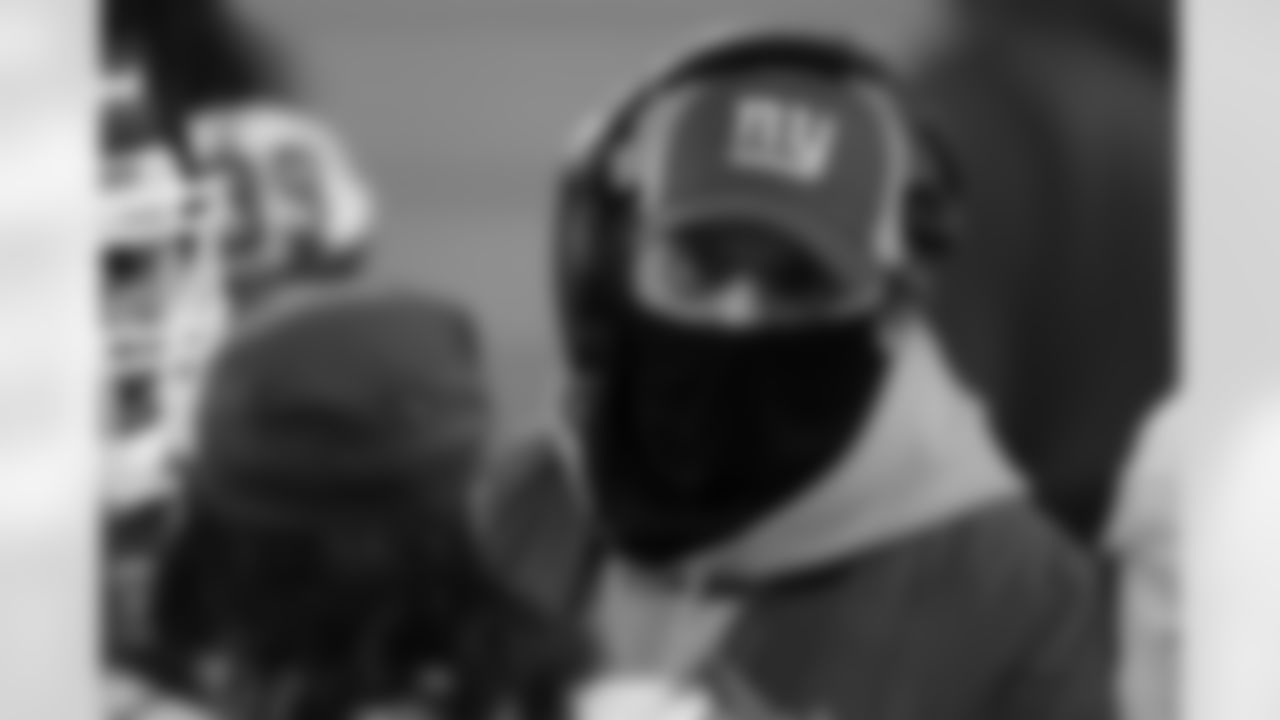
New York Giants head coach Joe Judge on the sidelines during the second half of an NFL football game against the Tampa Bay Buccaneers, Monday, Nov. 2, 2020, in East Rutherford, N.J. (AP Photo/Corey Sipkin)
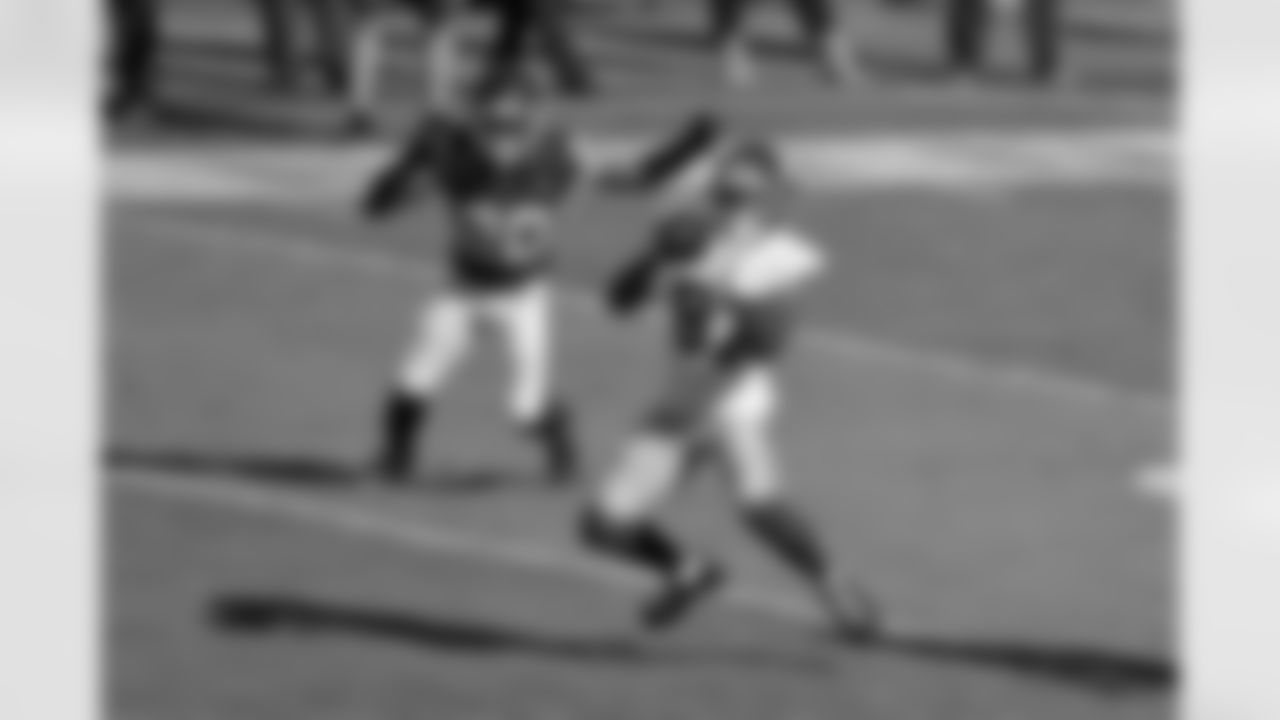
New York Giants wide receiver Sterling Shepard (87) makes a catch during an NFL football game against the Washington Football Team on Sunday, November 8, 2020 in Landover, Maryland. (Mikey Owens/NFL)
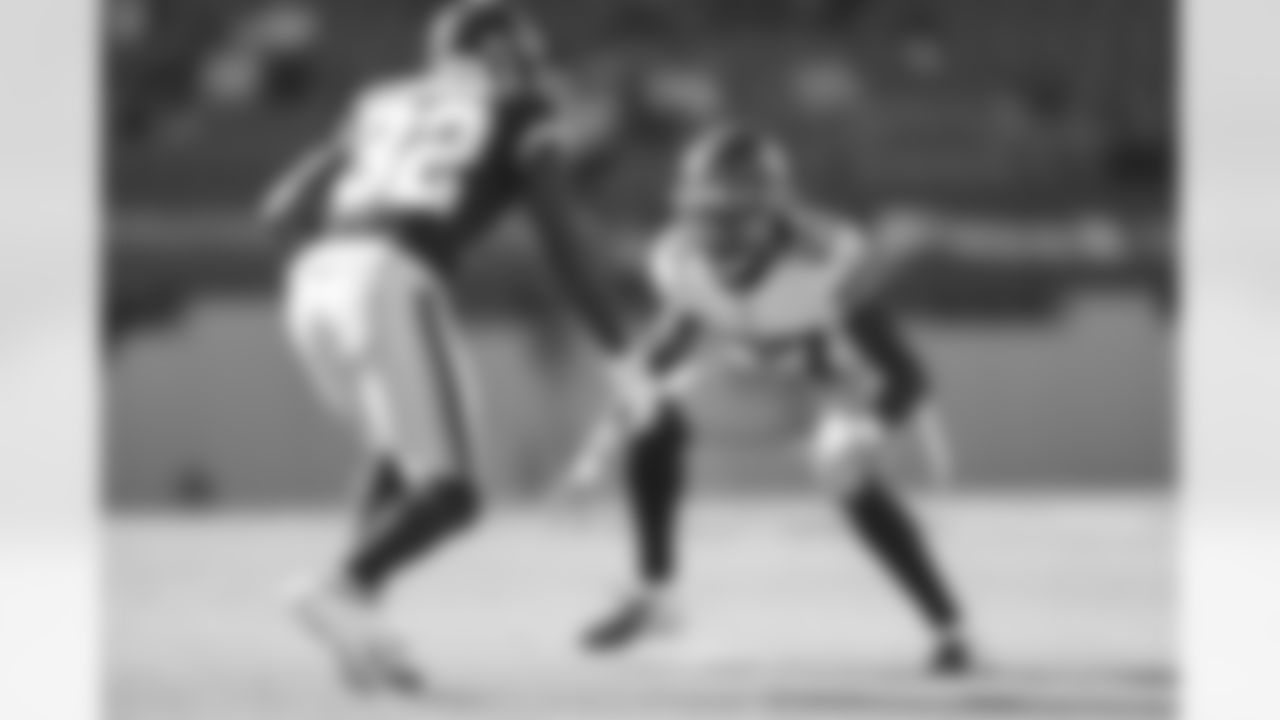
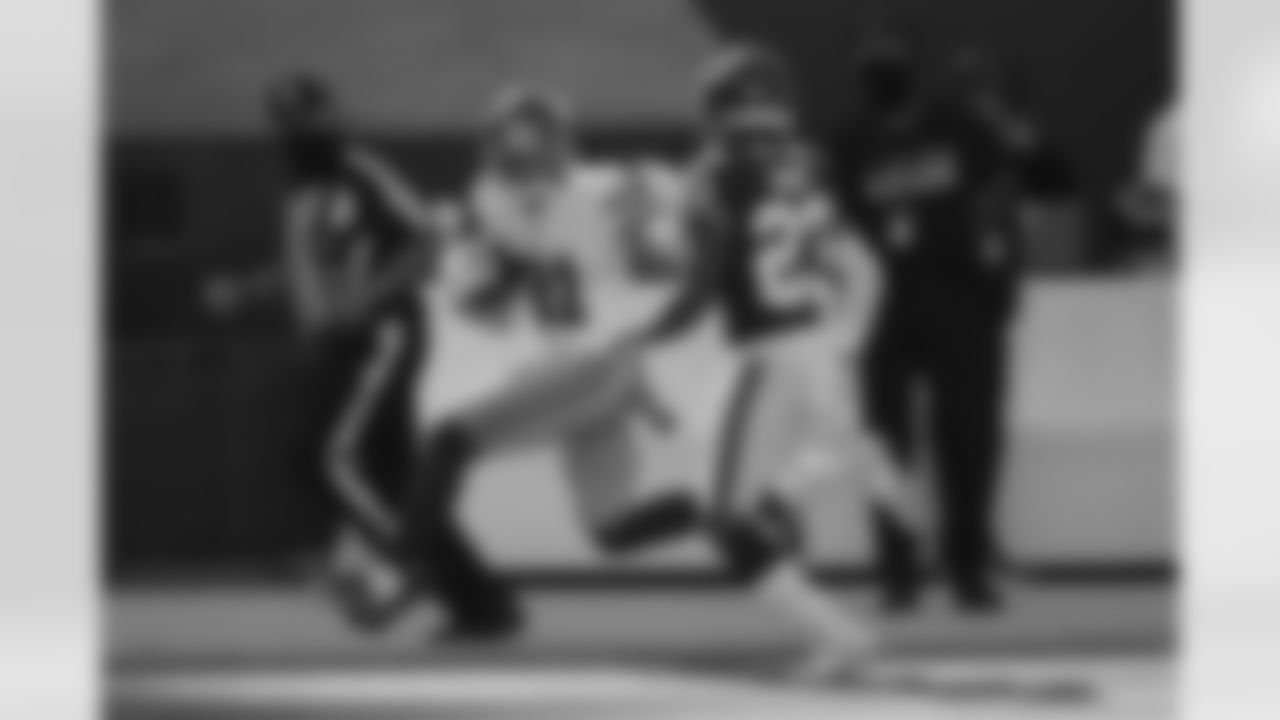
New York Giants wide receiver Austin Mack (81) runs down field against Washington Football Team cornerback Ronald Darby (23) in the first half of an NFL football game between the New York Giants and Washington Football Team, Sunday, Nov. 8, 2020, in Landover, Md. (AP Photo/Patrick Semansky)
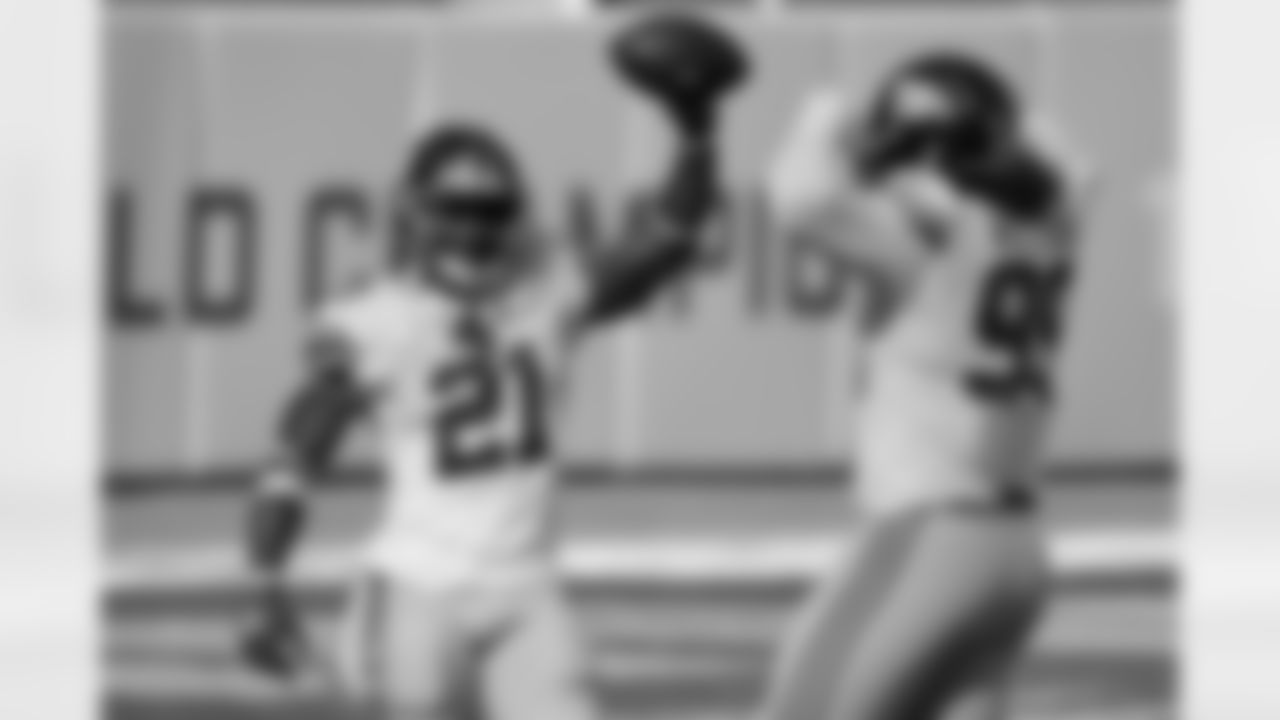
New York Giants safety Jabrill Peppers (21) celebrates with New York Giants defensive end Leonard Williams (99) during an NFL football game against the Washington Football Team on Sunday, November 8, 2020 in Landover, Maryland. (Mikey Owens/NFL)
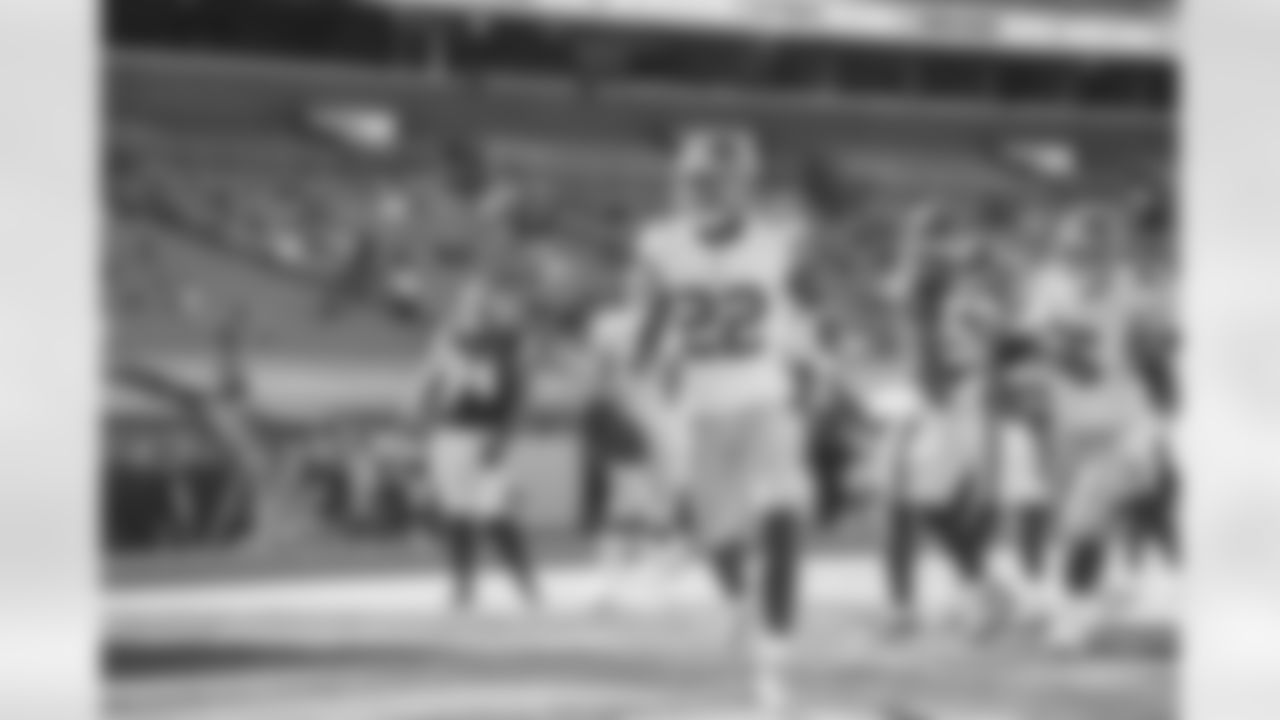
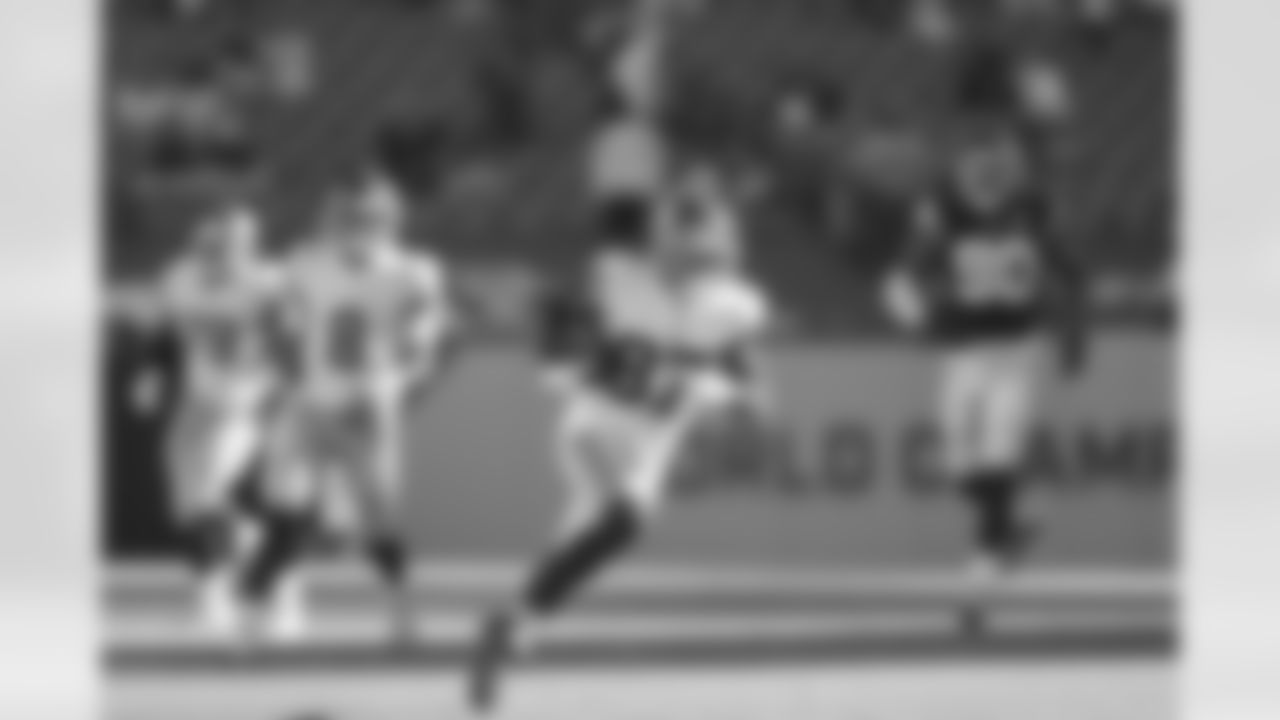
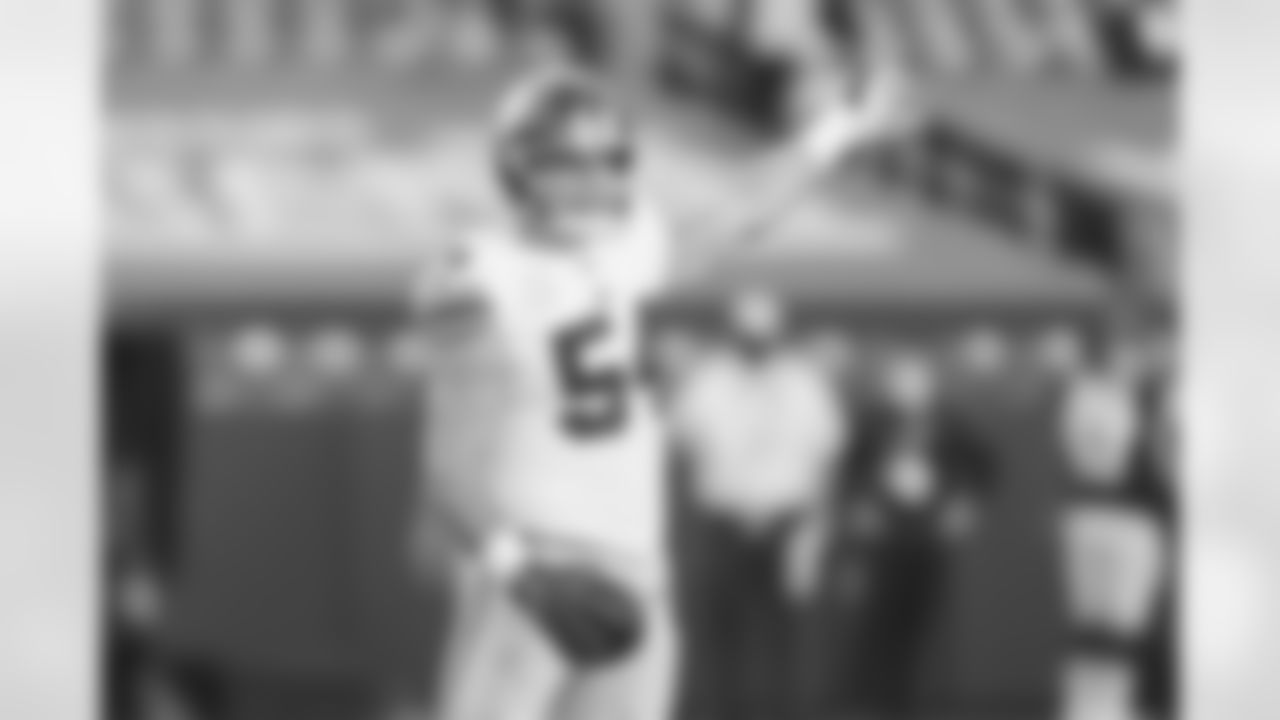
LB Blake Martinez finished with a team-high 10 tackles (three solo), two passes defended and an interception.
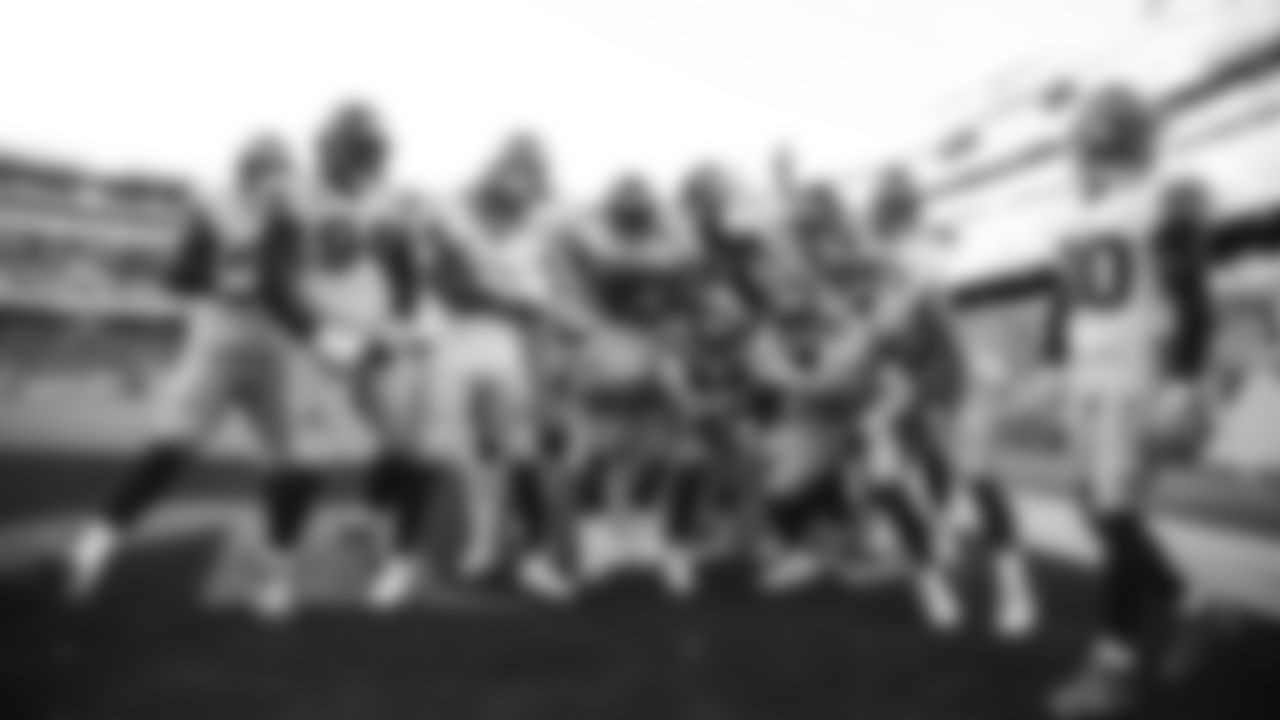
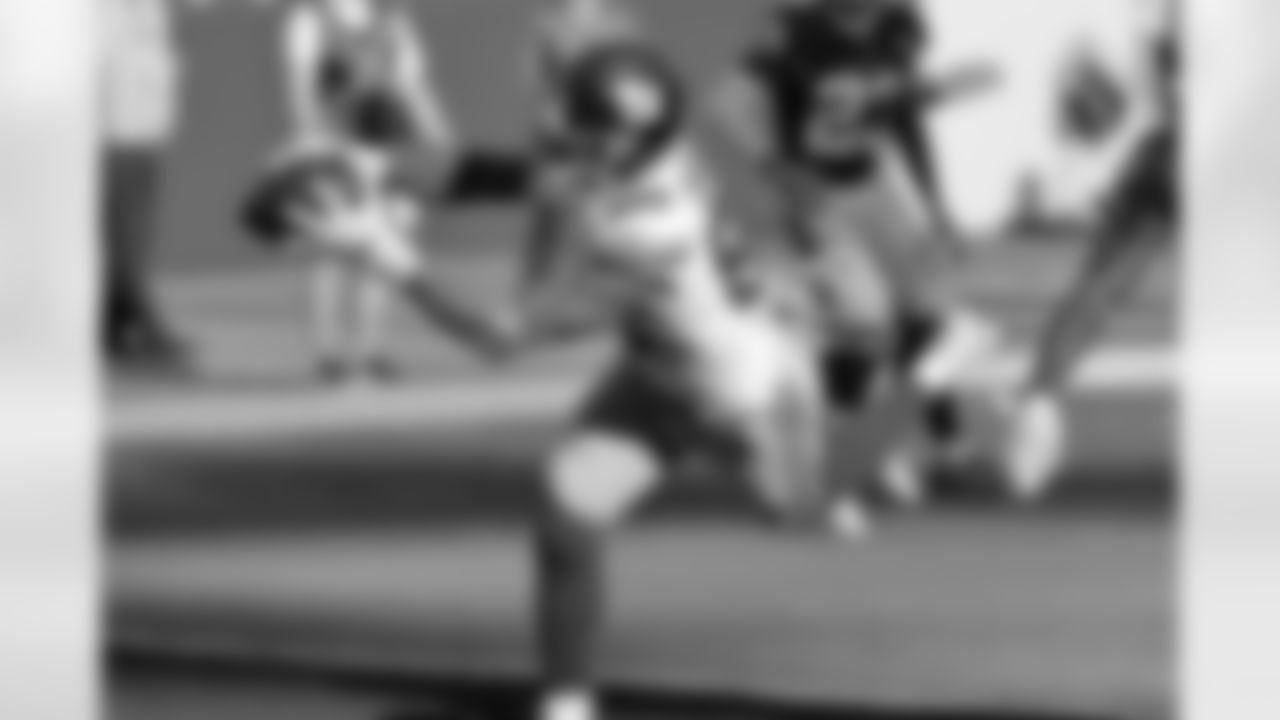
TE Evan Engram recorded five receptions for 48 yards and a touchdown on a team-high 10 targets.
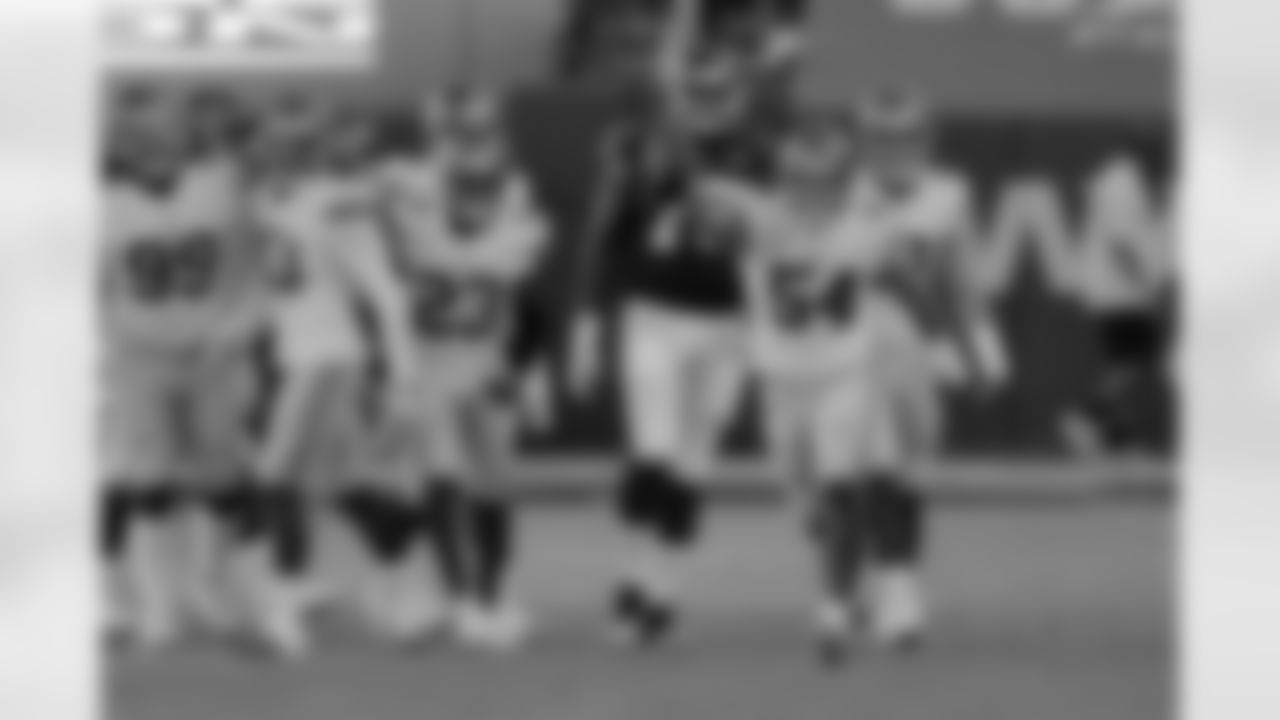
New York Giants linebacker Blake Martinez (54) celebrates during an NFL football game against the Washington Football Team on Sunday, November 8, 2020 in Landover, Maryland. (Mikey Owens/NFL)
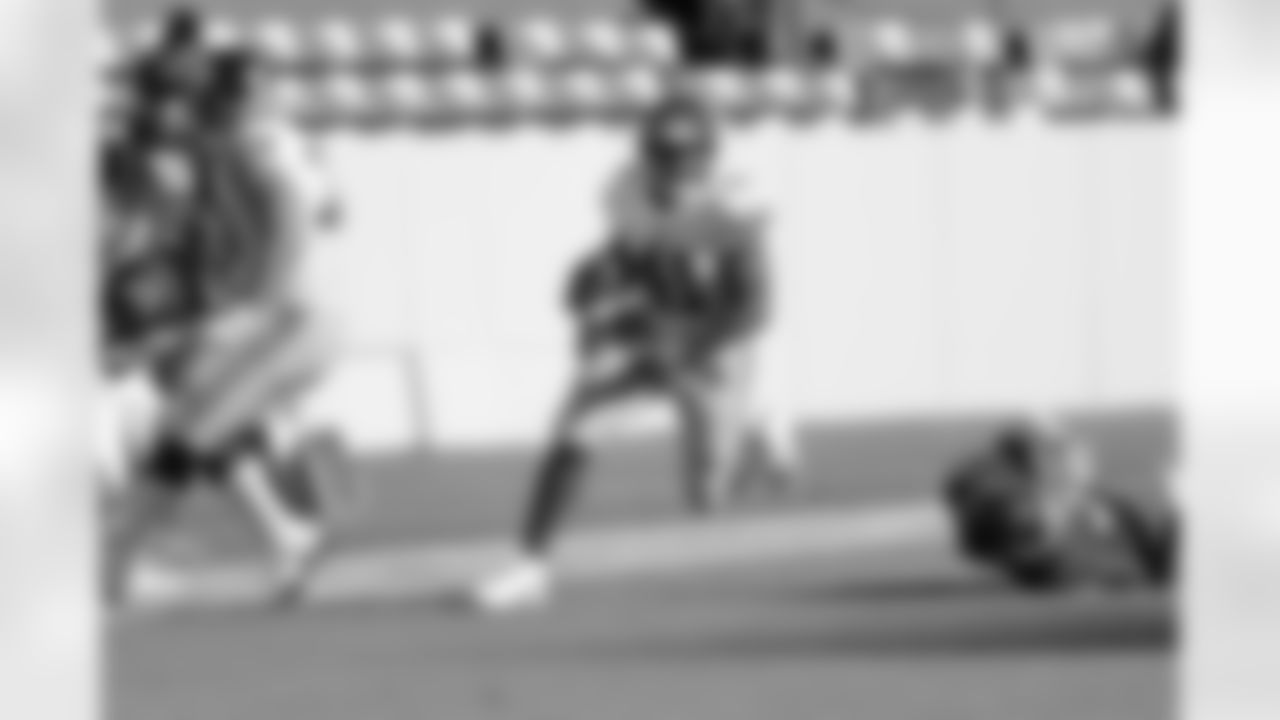
RB Alfred Morris carried the ball nine times for 67 yards (7.4 yards per carry) and caught one pass for four yards.
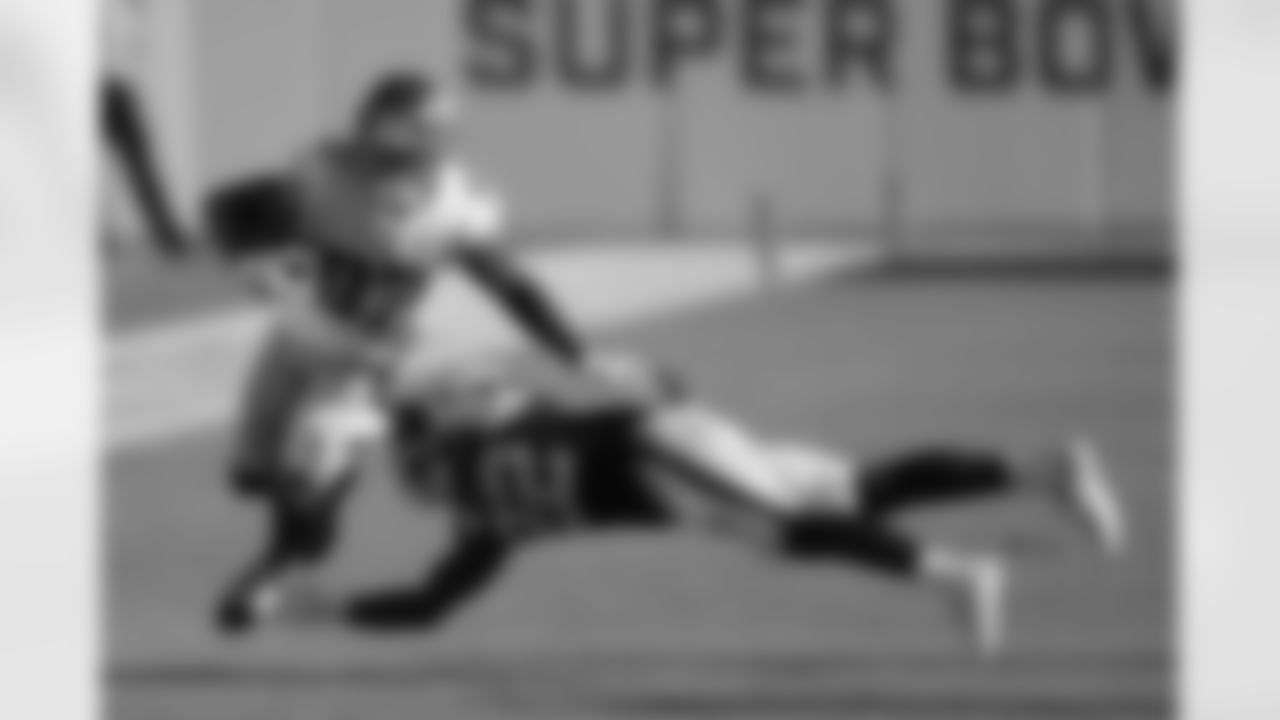
New York Giants wide receiver Sterling Shepard (87) tries to runs past Washington Football Team safety Deshazor Everett (22) in the first half of an NFL football game, Sunday, Nov. 8, 2020, in Landover, Md. (AP Photo/Al Drago)
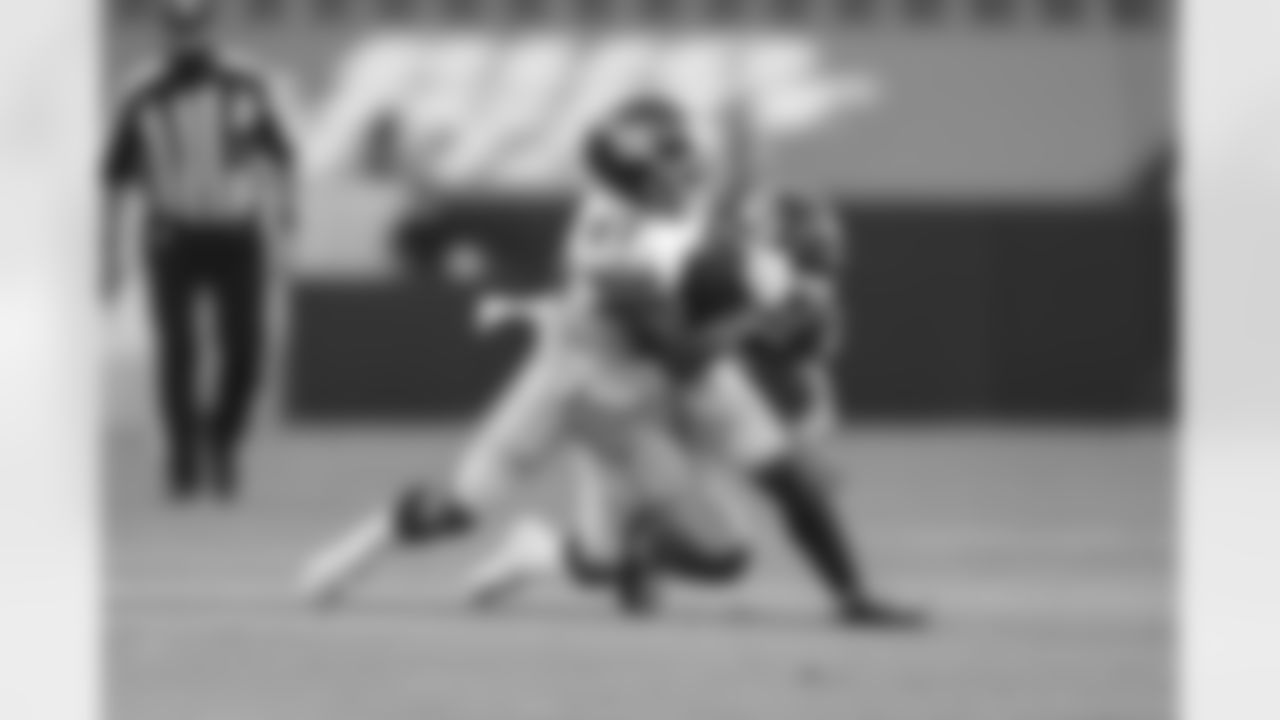
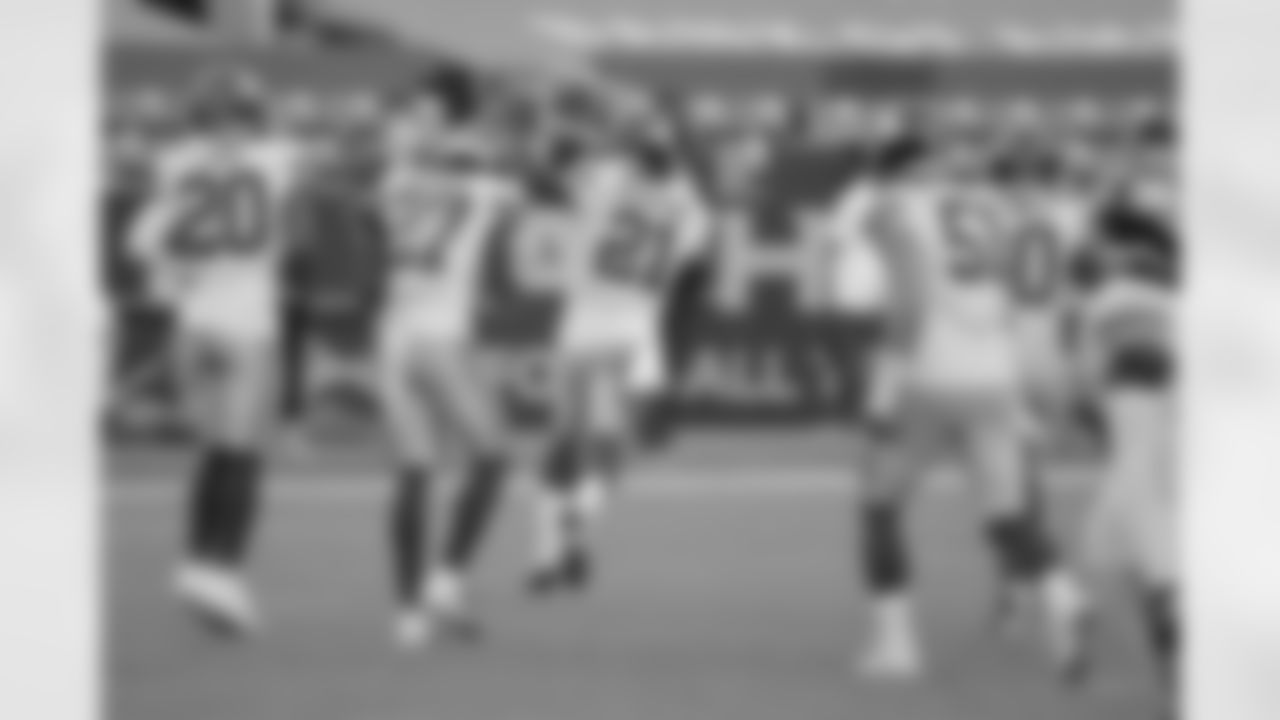
New York Giants safety Jabrill Peppers (21) celebrates during an NFL football game against the Washington Football Team on Sunday, November 8, 2020 in Landover, Maryland. (Mikey Owens/NFL)
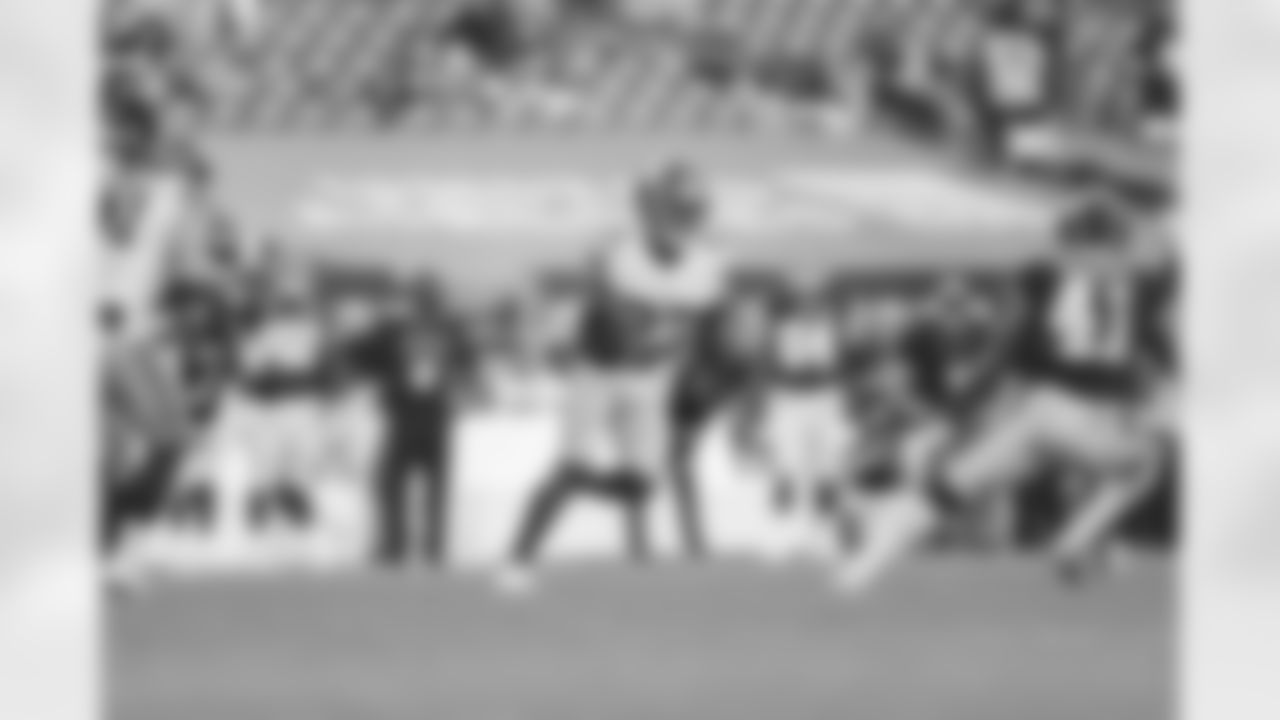
DB Logan Ryan registered six tackles (five solo), two passes defended, a forced fumble and the game-clinching interception at the end of the fourth quarter.
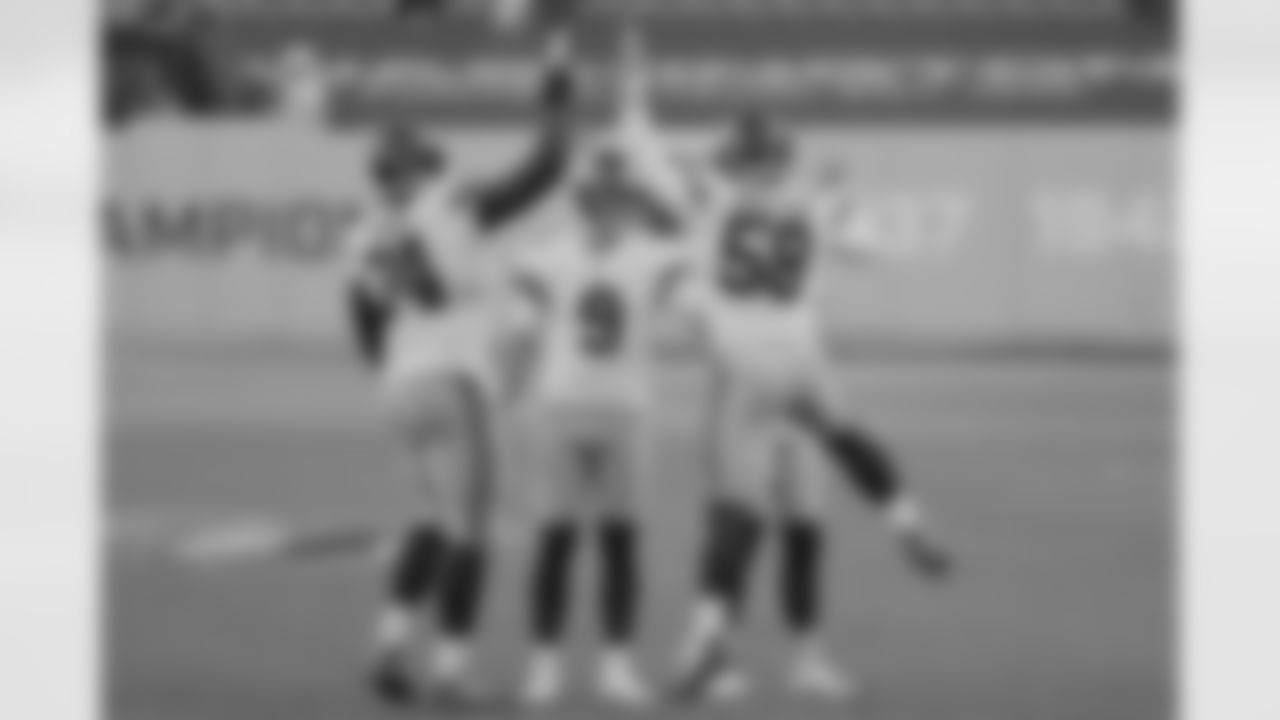
New York Giants offensive tackle Matt Peart (74) celebrates with long snapper Casey Kreiter (58) and punter Riley Dixon (9) during an NFL football game against the Washington Football Team on Sunday, November 8, 2020 in Landover, Maryland. (Mikey Owens/NFL)
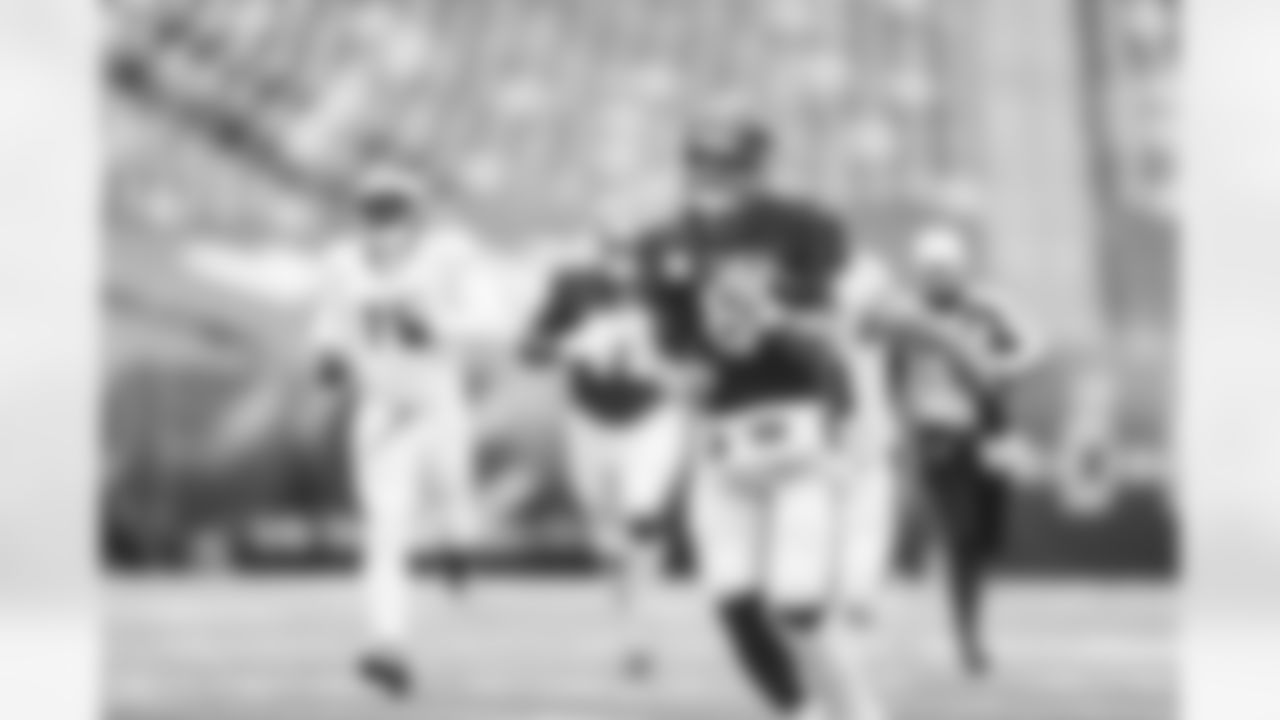
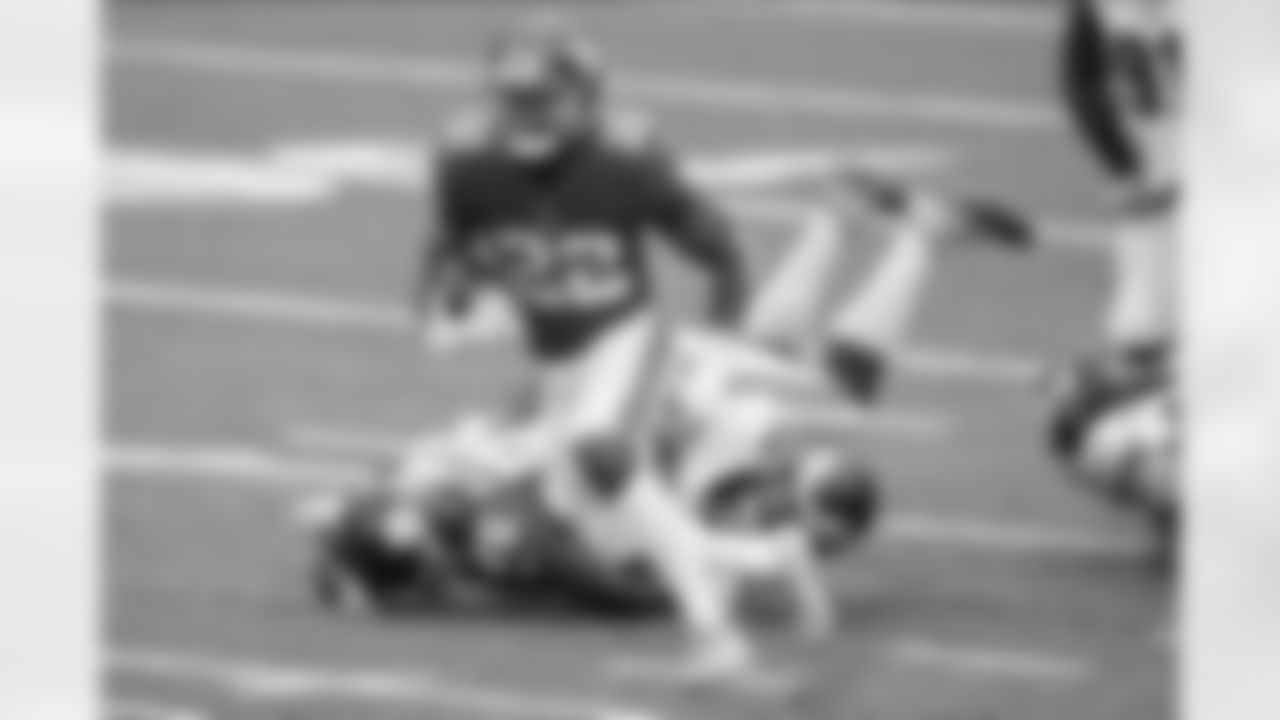
New York Giants' Wayne Gallman (22) rushes during the first half of an NFL football game against the Philadelphia Eagles Sunday, Nov. 15, 2020, in East Rutherford, N.J. (AP Photo/Seth Wenig)
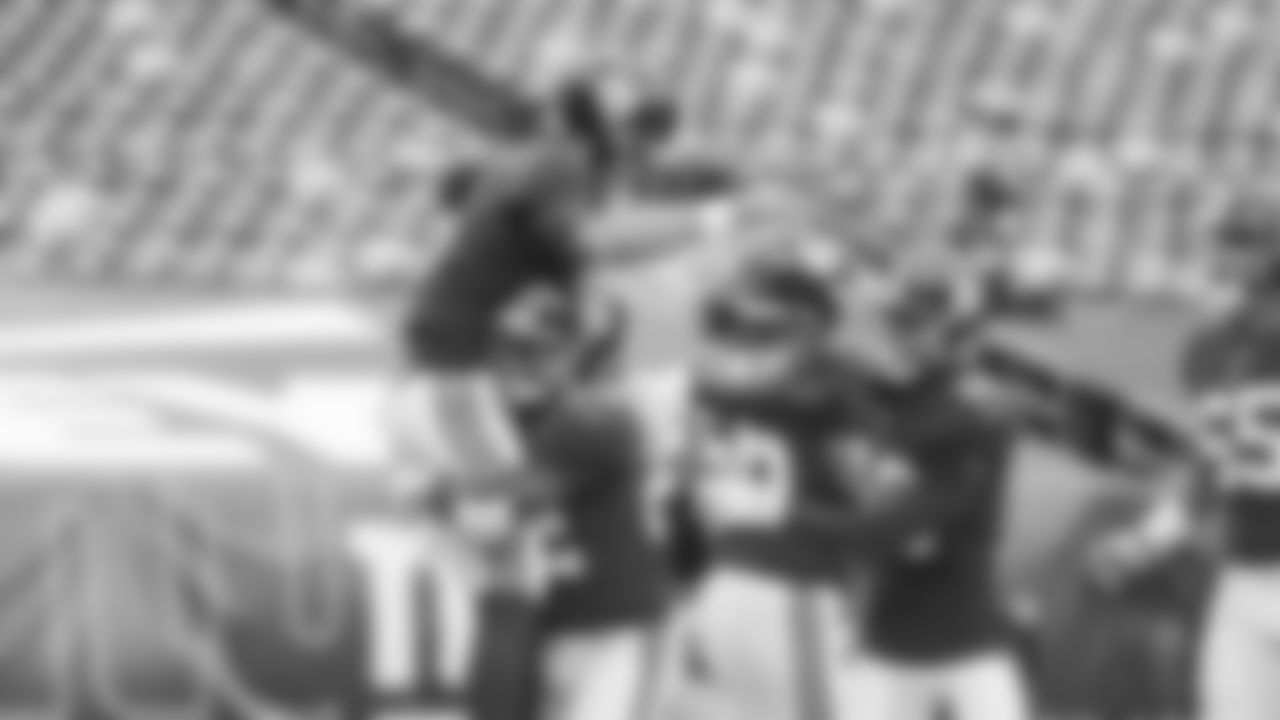
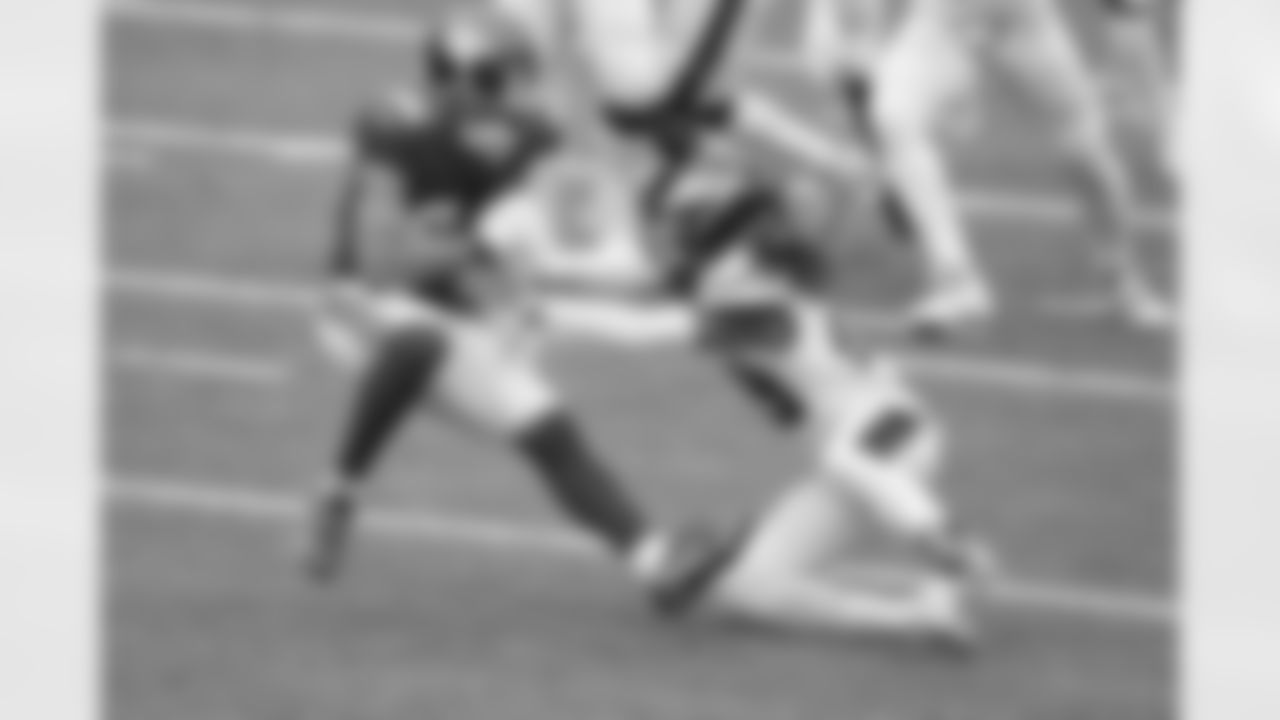
Philadelphia Eagles' Avonte Maddox (29) tackles New York Giants' Austin Mack (81) during the first half of an NFL football game Sunday, Nov. 15, 2020, in East Rutherford, N.J. (AP Photo/Seth Wenig)
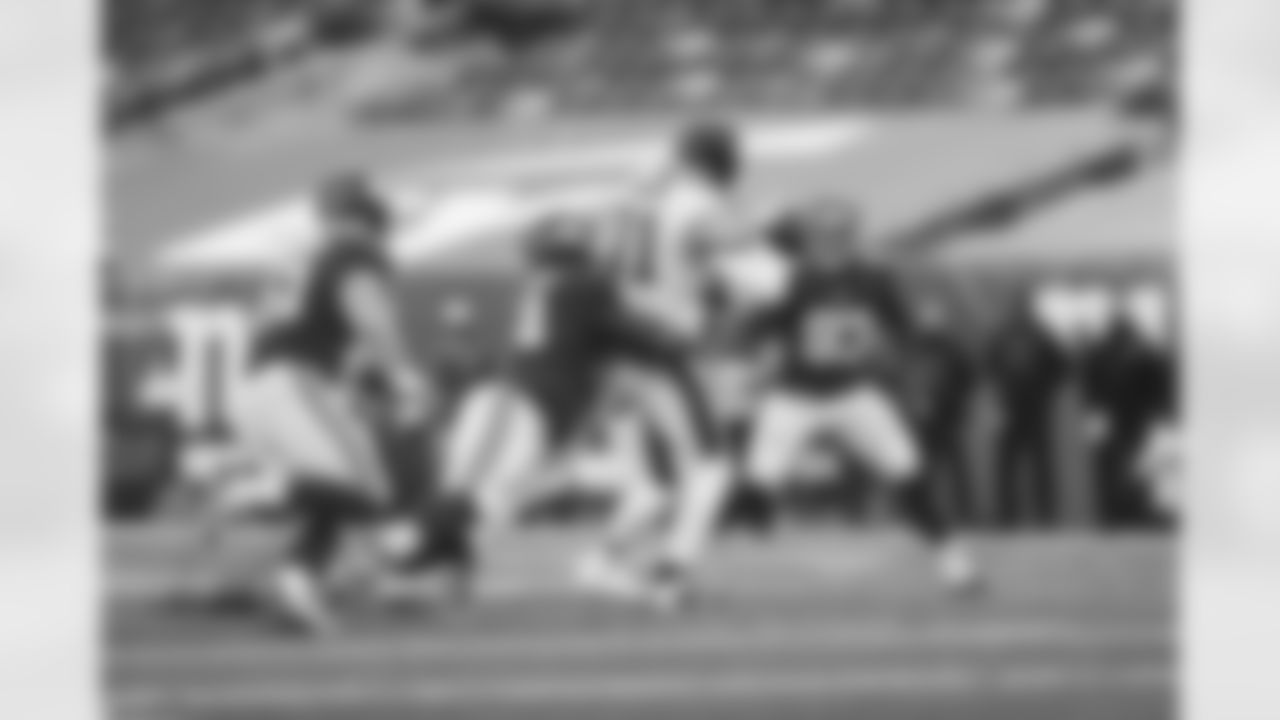
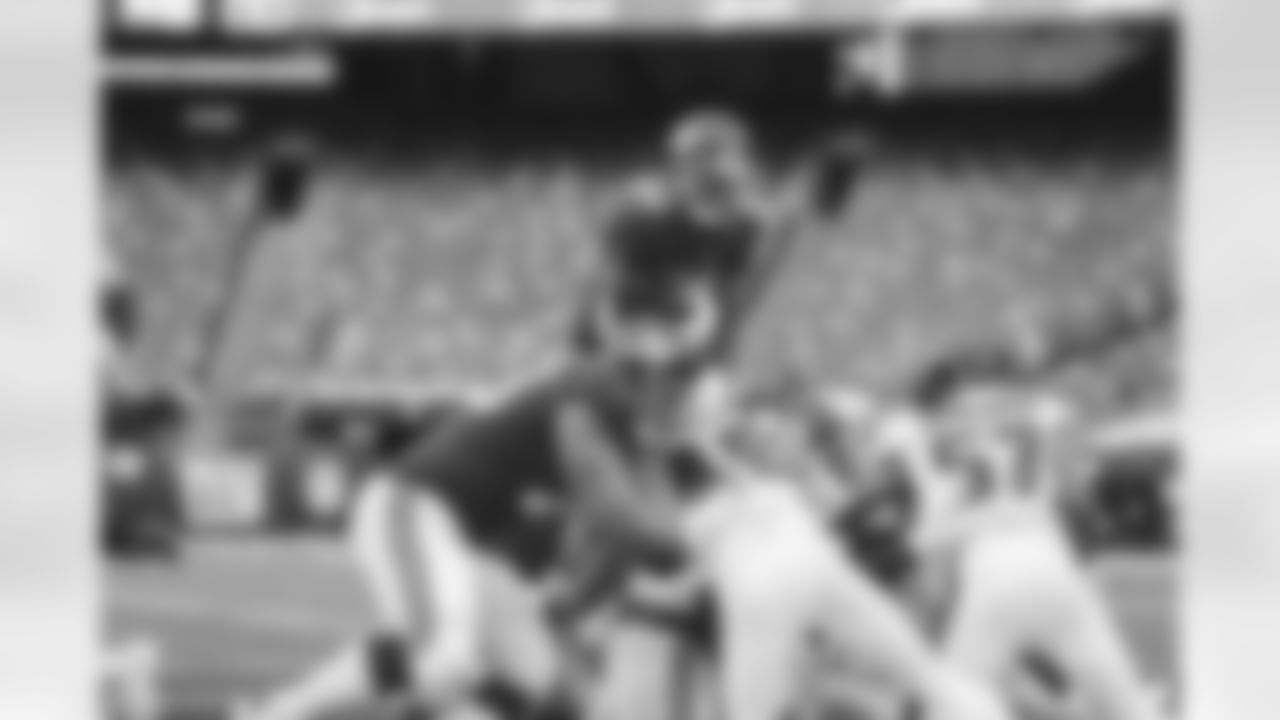
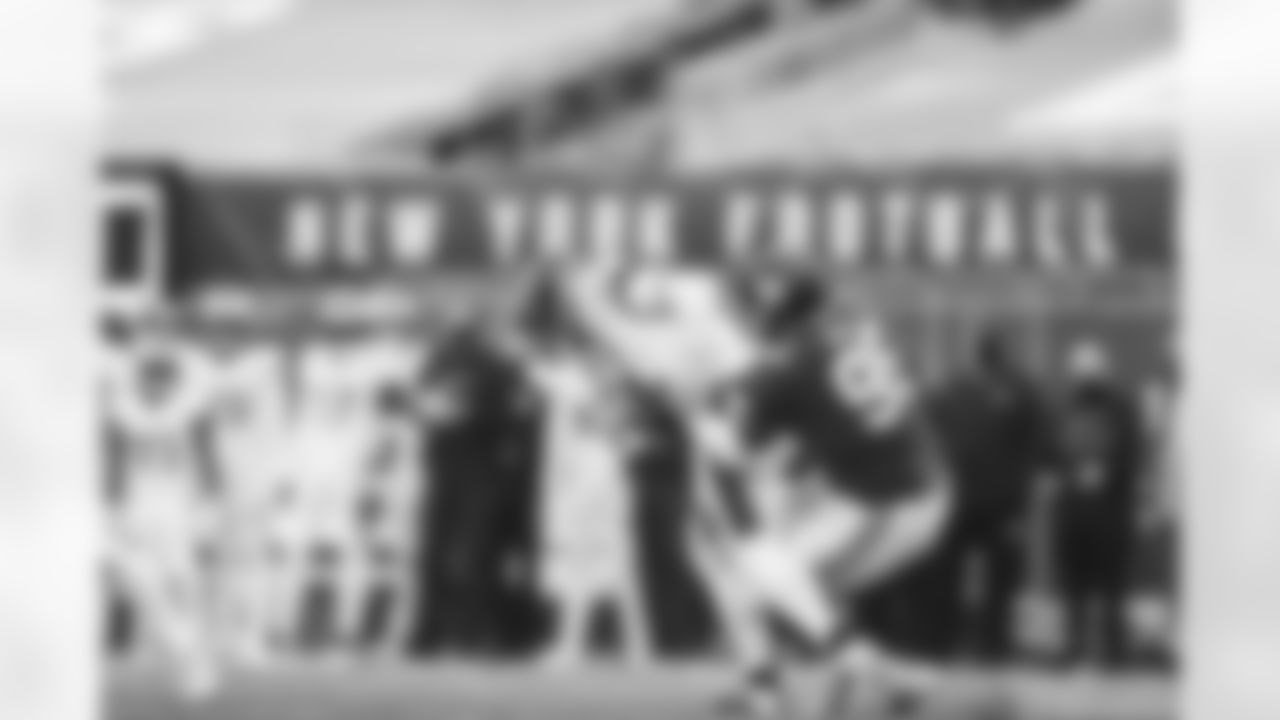
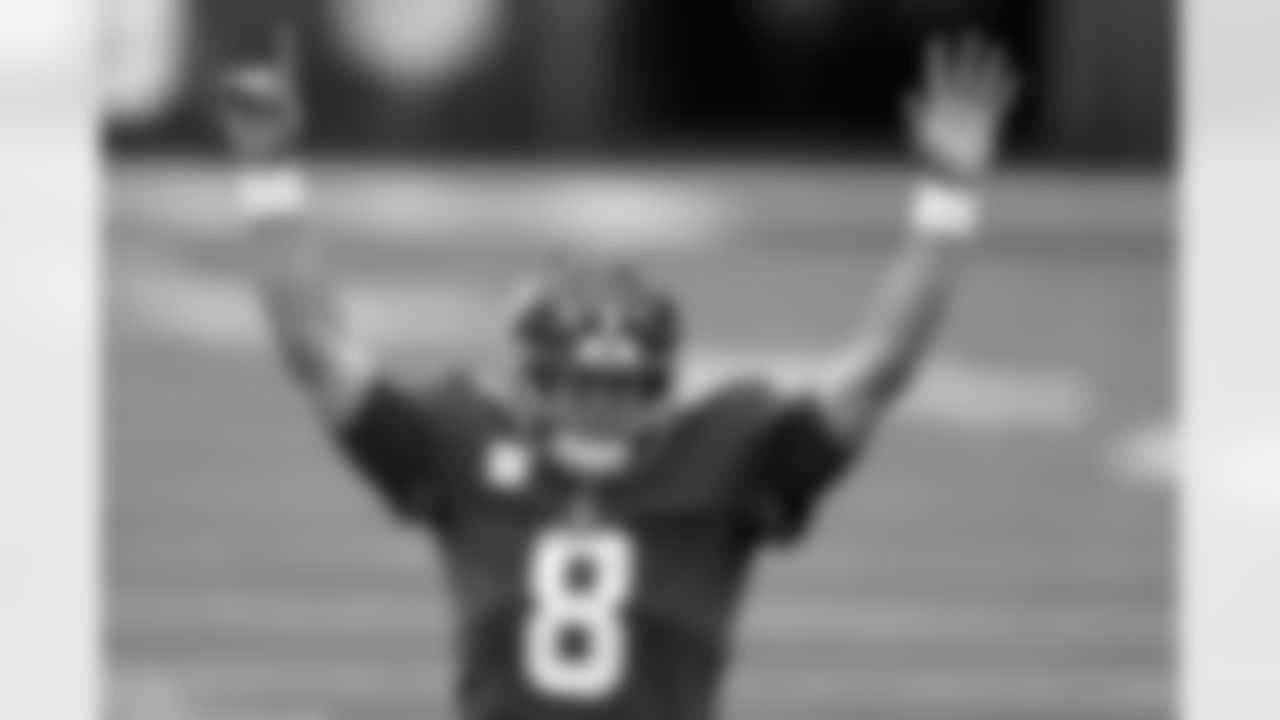
New York Giants quarterback Daniel Jones (8) reacts to a touchdown during an NFL football game against the Philadelphia Eagles, Sunday, Nov. 15, 2020, in East Rutherford, N.J. (AP Photo/Adam Hunger)
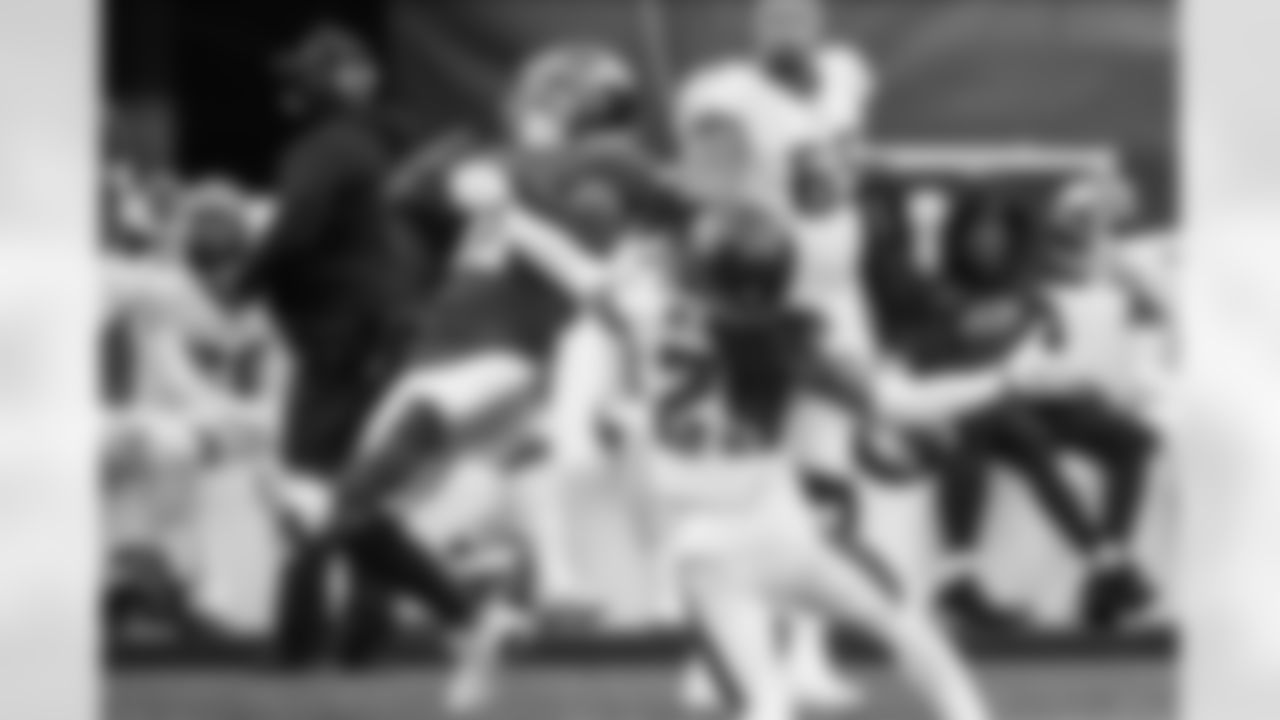
New York Giants' Sterling Shepard (87) catches a pass in front of Philadelphia Eagles' Avonte Maddox (29) during the second half of an NFL football game Sunday, Nov. 15, 2020, in East Rutherford, N.J. (AP Photo/Seth Wenig)
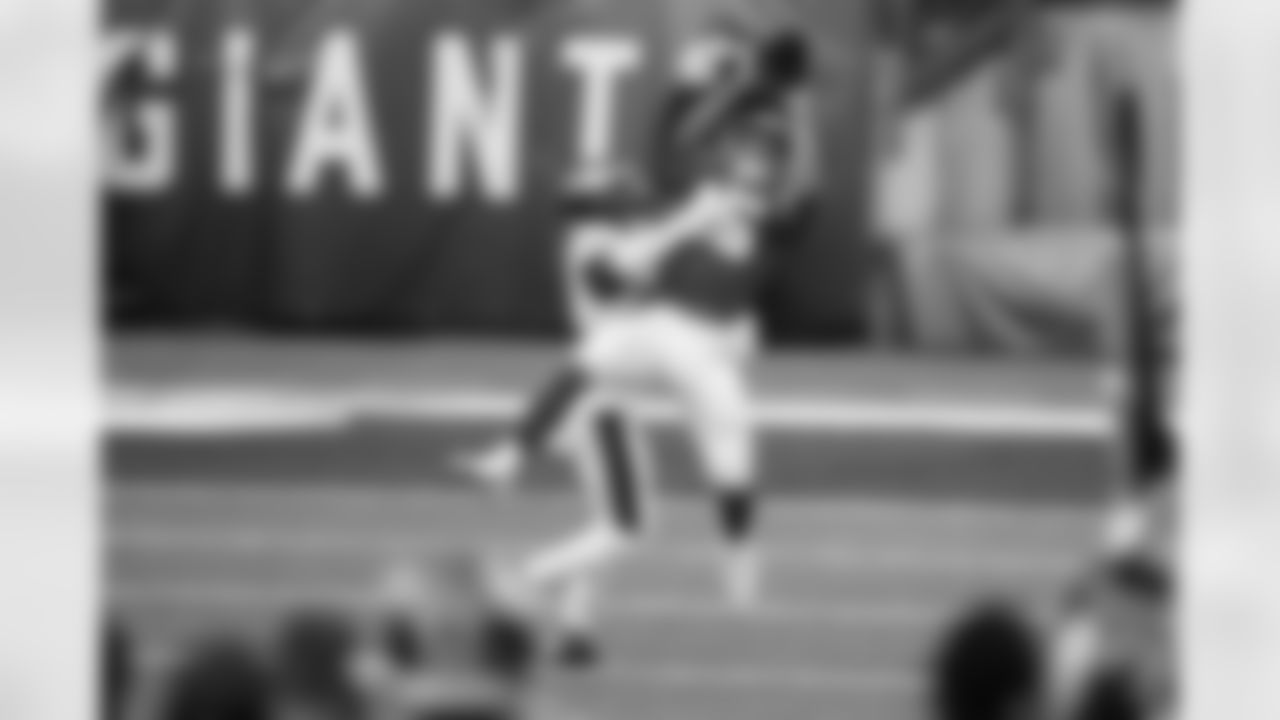
New York Giants' Golden Tate (15) catches a pass in front of Philadelphia Eagles' Nickell Robey-Coleman during the second half of an NFL football game against the Philadelphia Eagles Sunday, Nov. 15, 2020, in East Rutherford, N.J. (AP Photo/Seth Wenig)
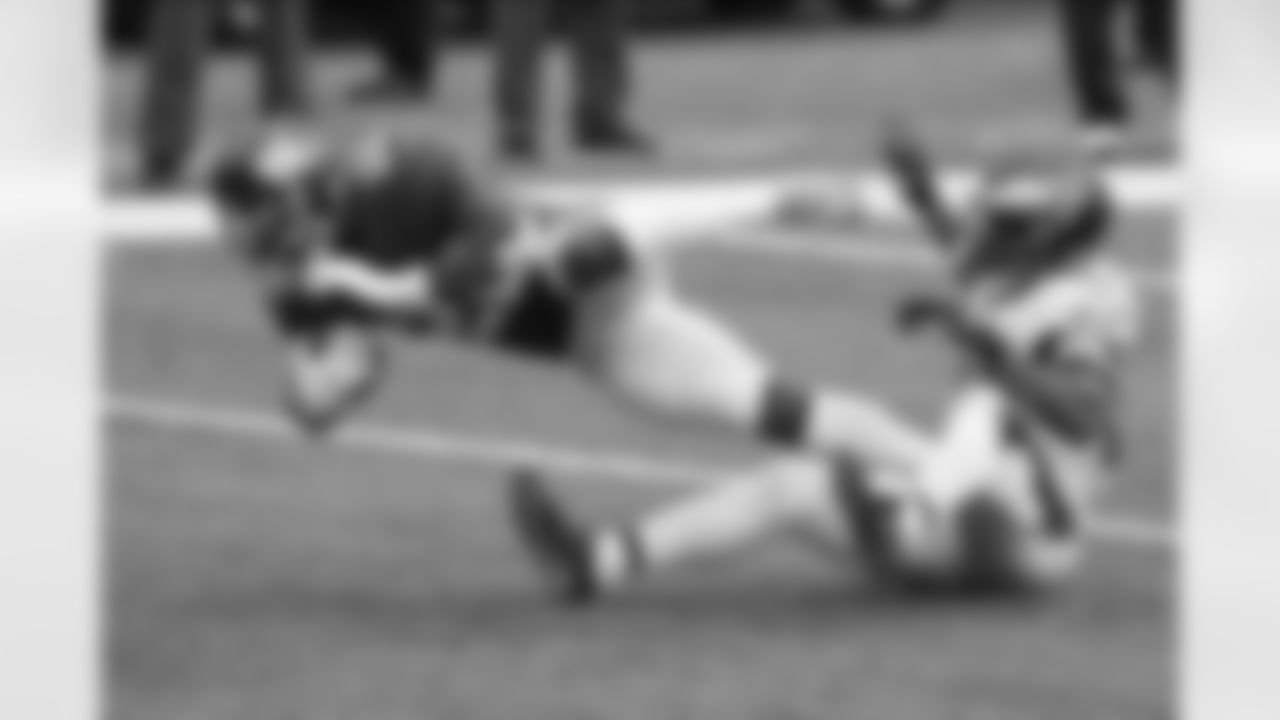
New York Giants' Wayne Gallman (22) jumps over Philadelphia Eagles' Rodney McLeod (23) during the second half of an NFL football game Sunday, Nov. 15, 2020, in East Rutherford, N.J. (AP Photo/Corey Sipkin)
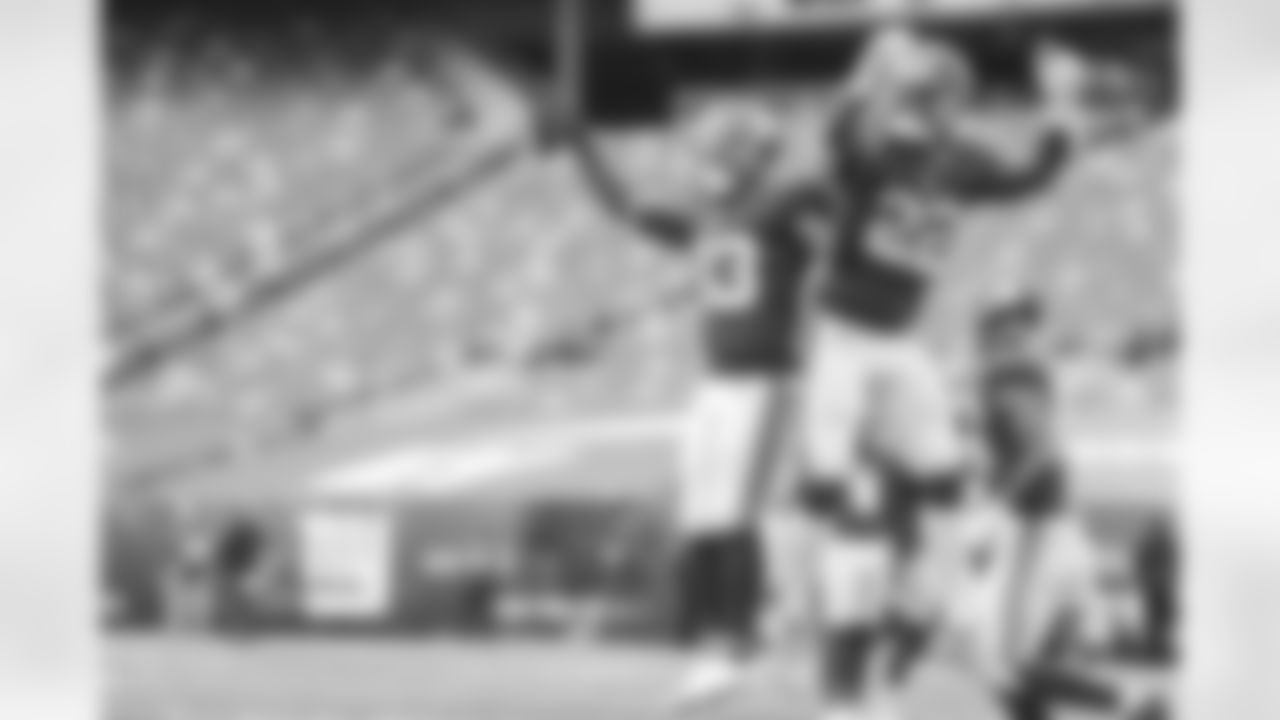
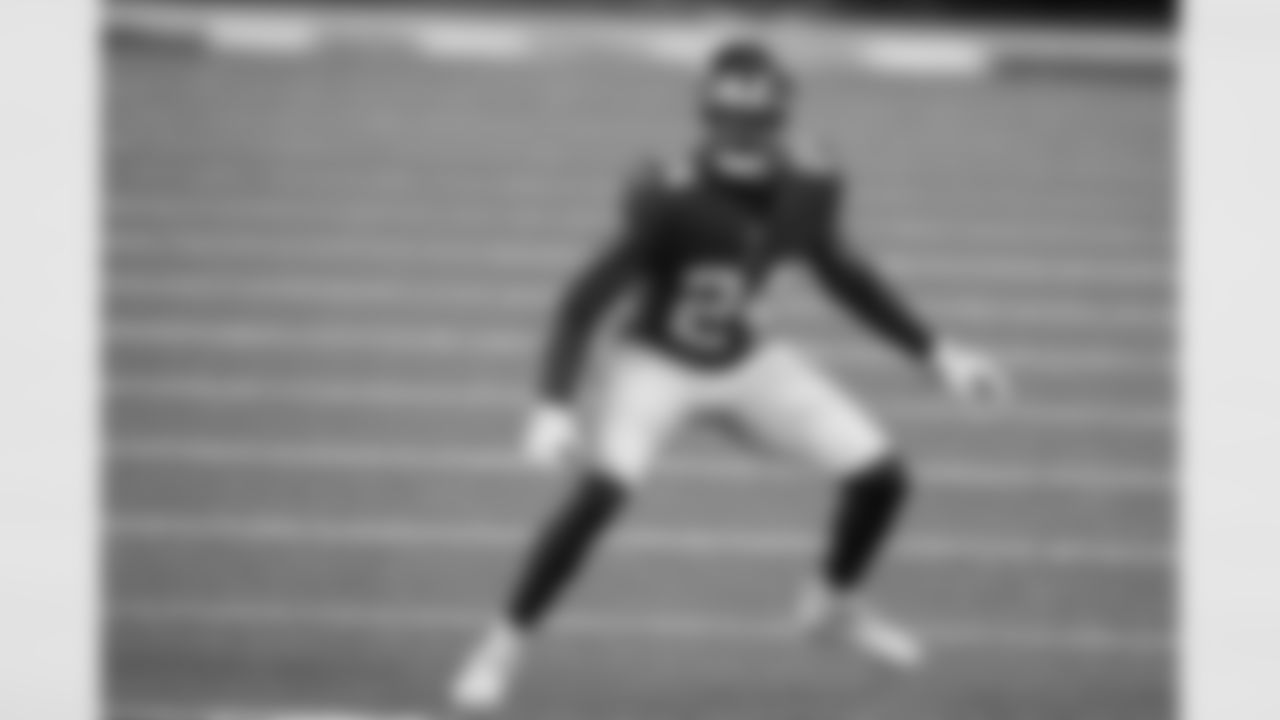
CB James Bradberry registered four solo tackles and two pass breakups.
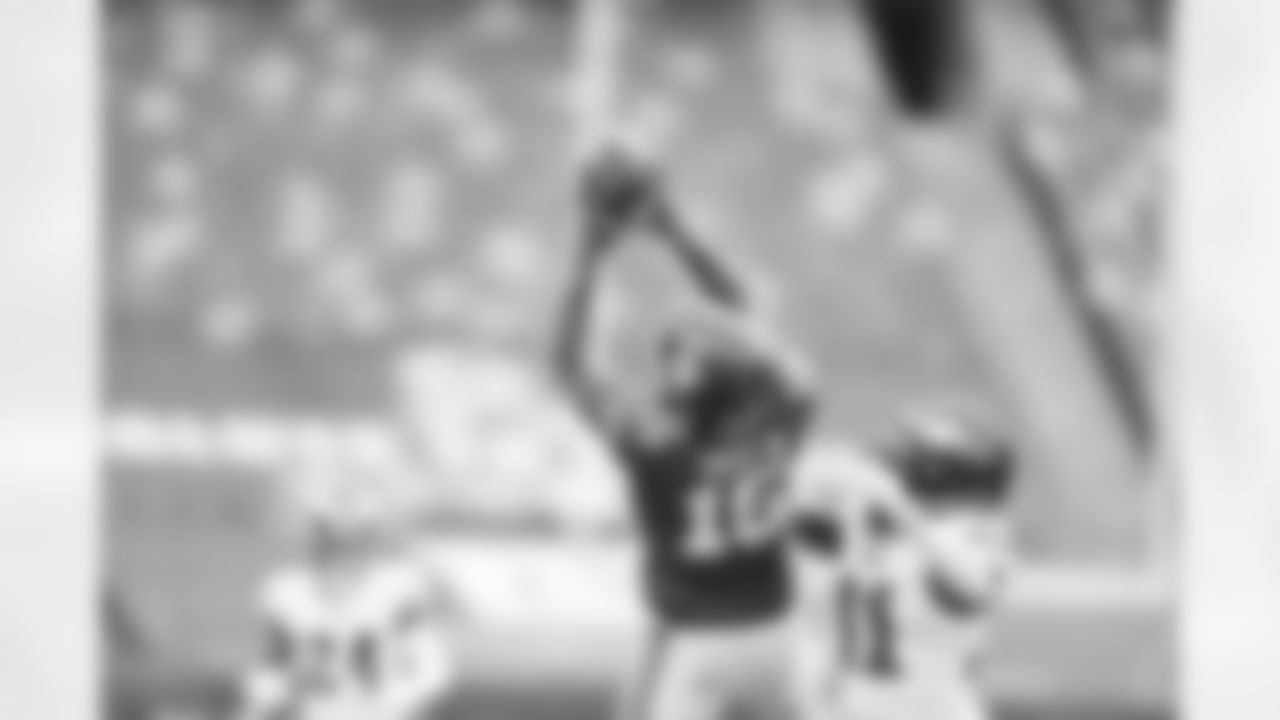
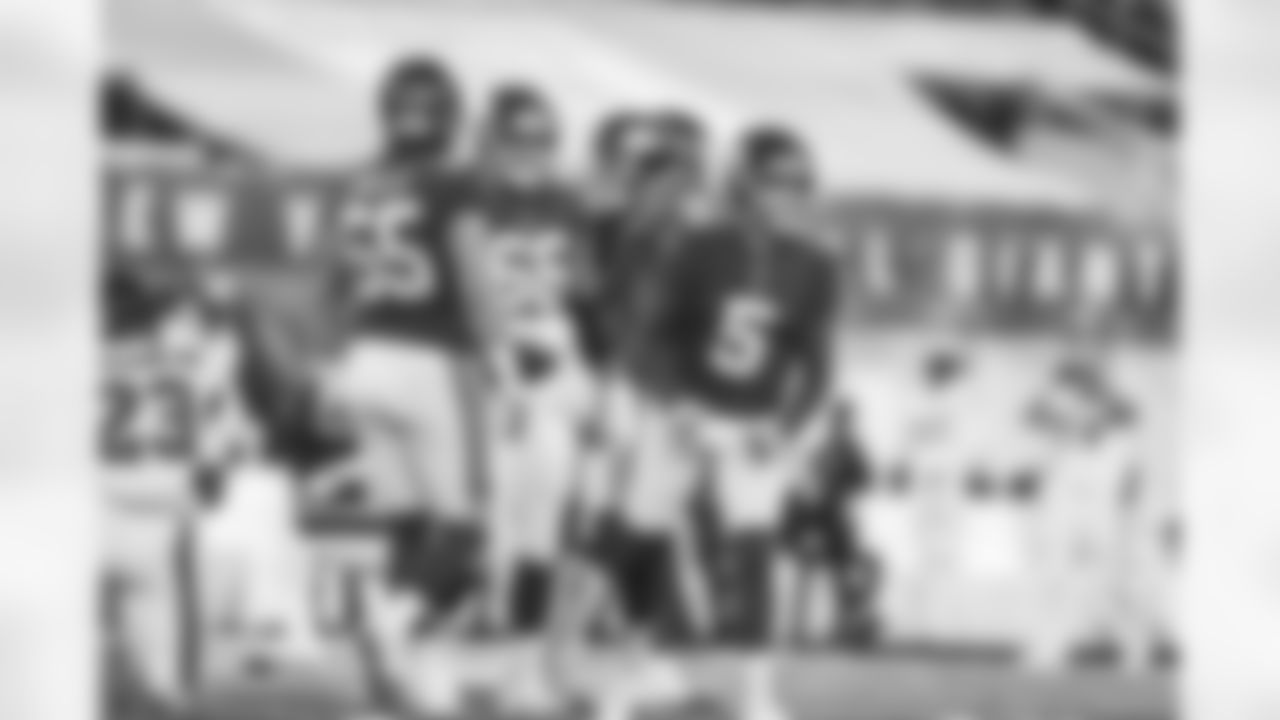
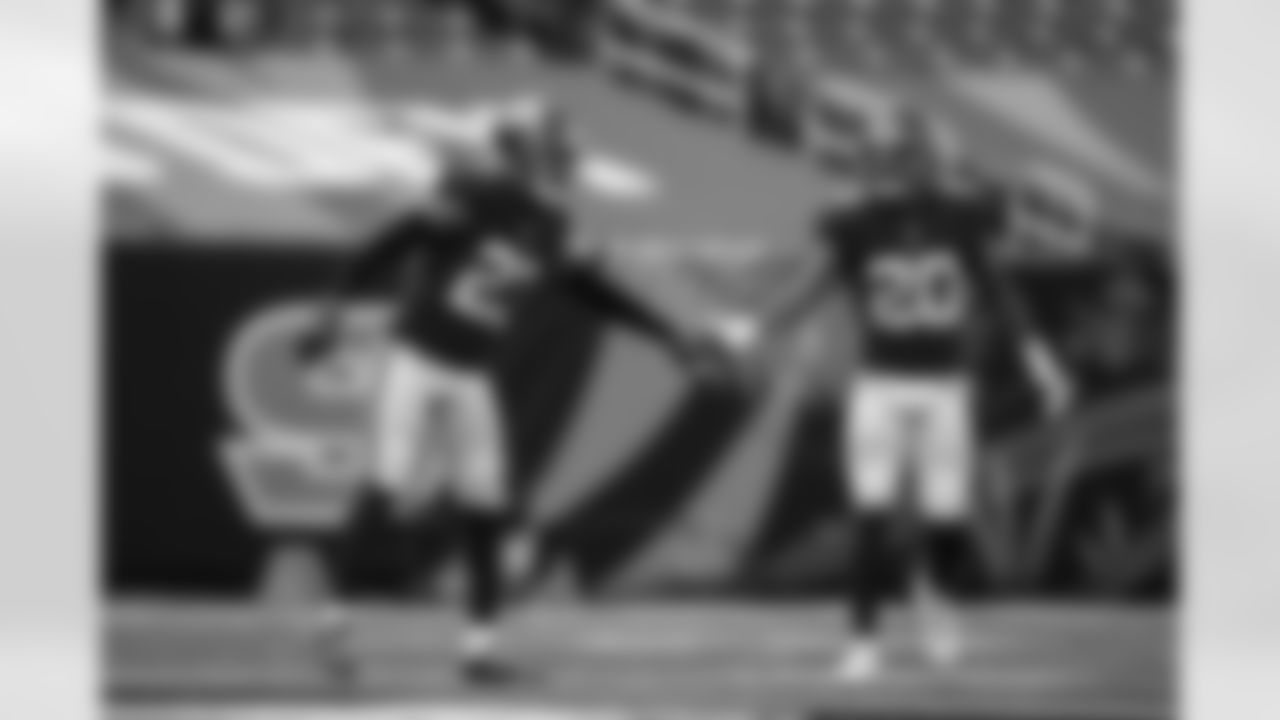
Logan Ryan (23), Julian Love (20)
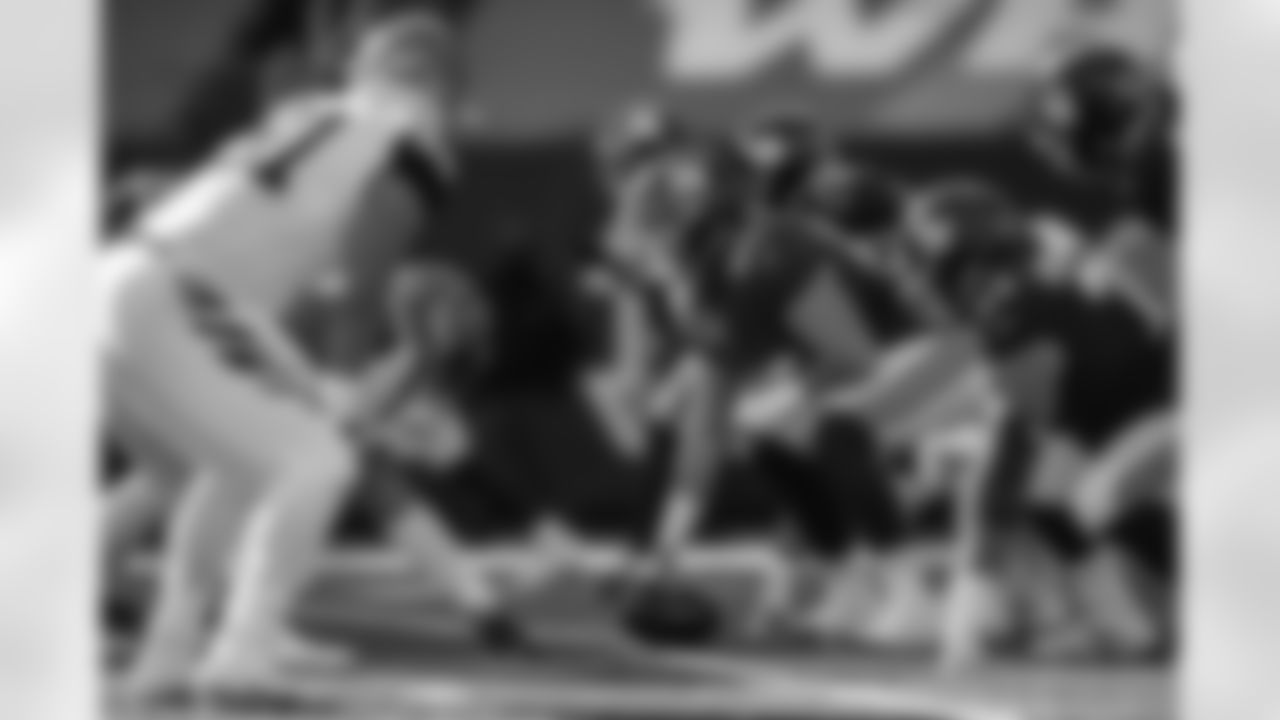
Nick Gates (65)
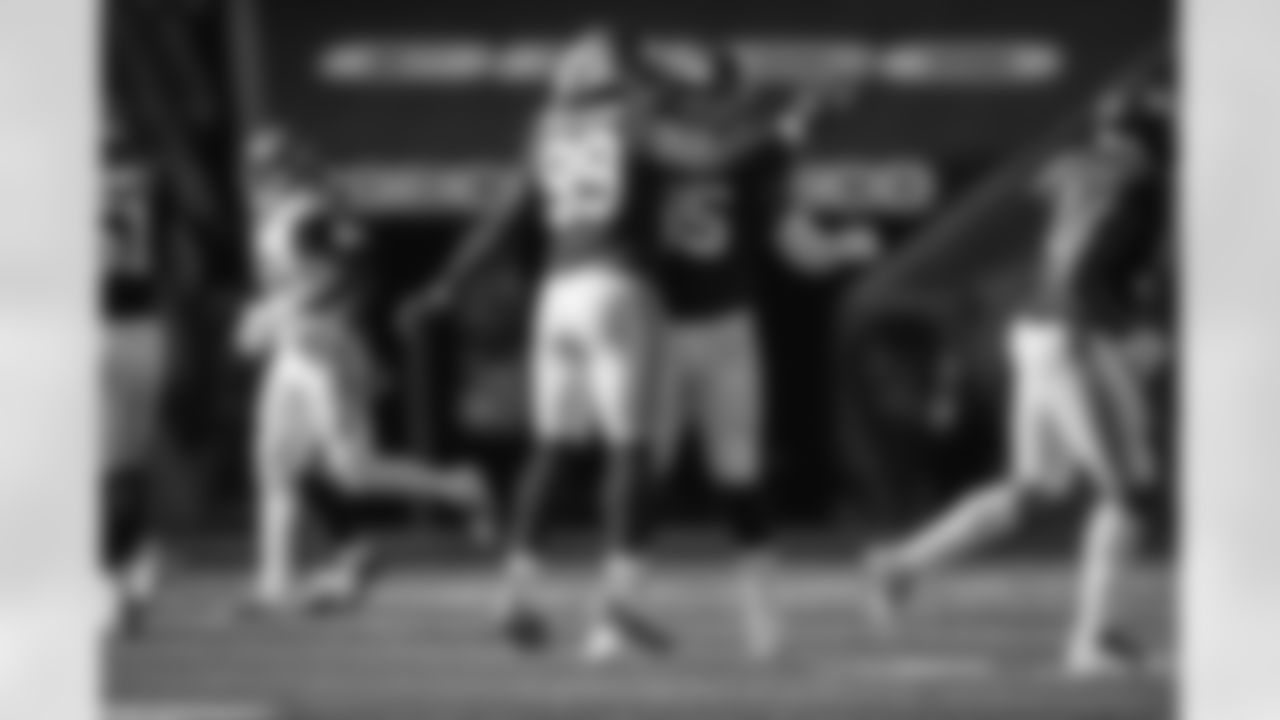
Leonard Williams (99), B.J. Hill (95)
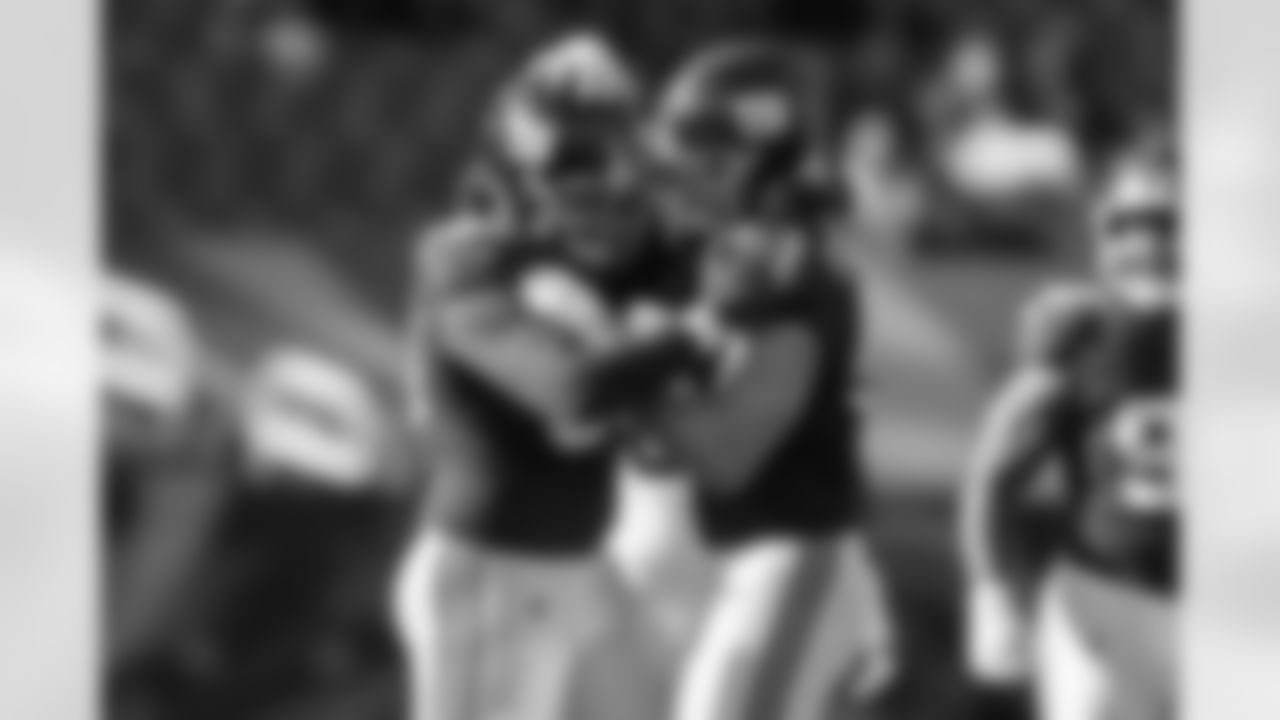
Leonard Williams (99), Kyler Fackrell (51)
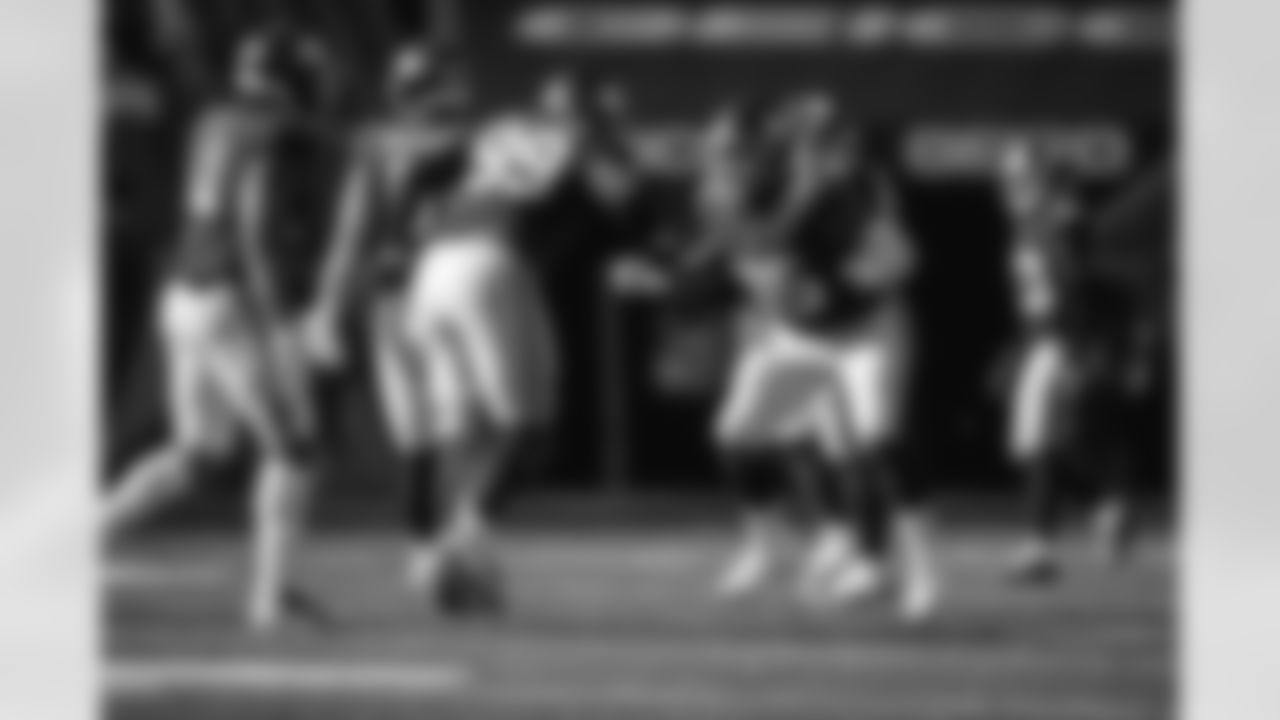
Leonard Williams (99), B.J. Hill (95)
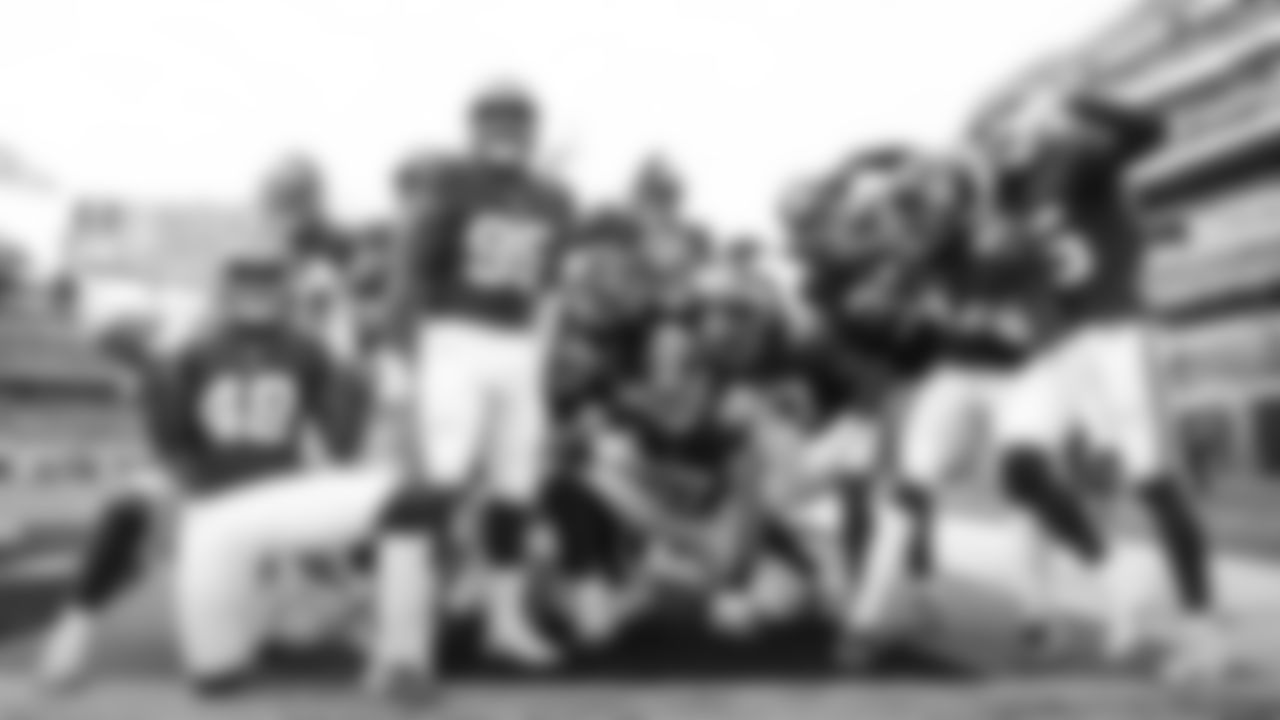
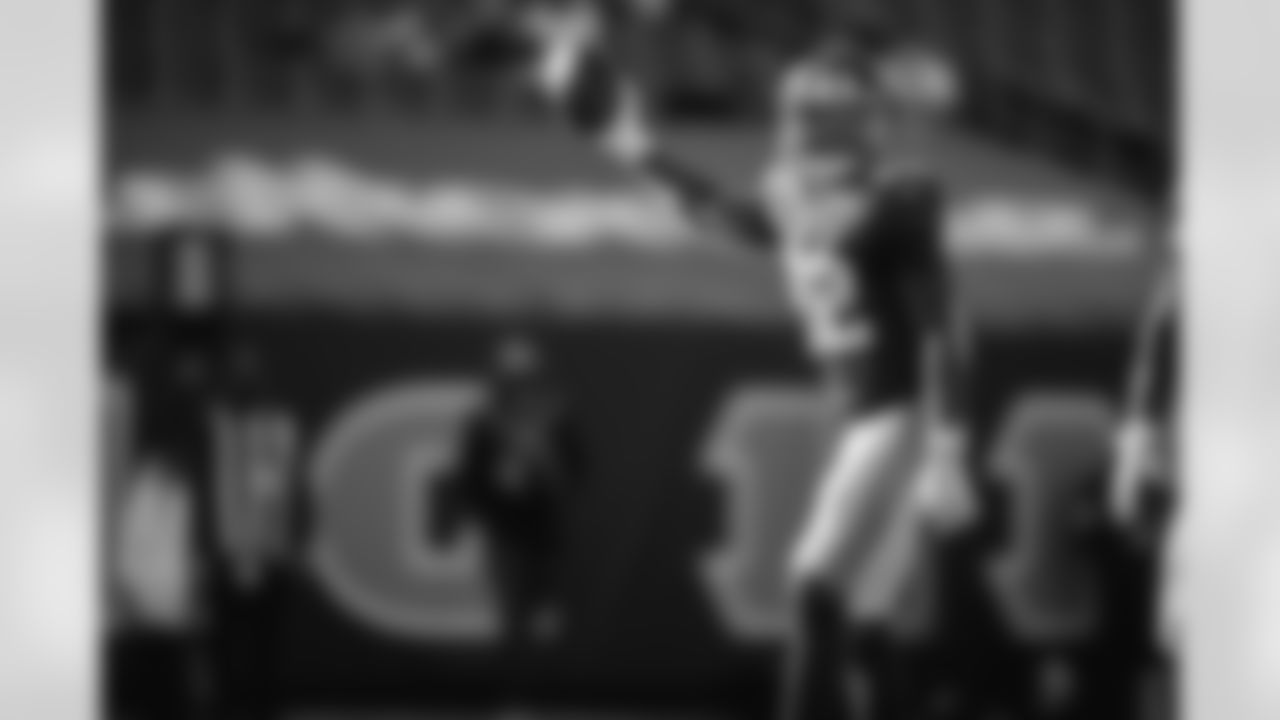
Wayne Gallman (22)
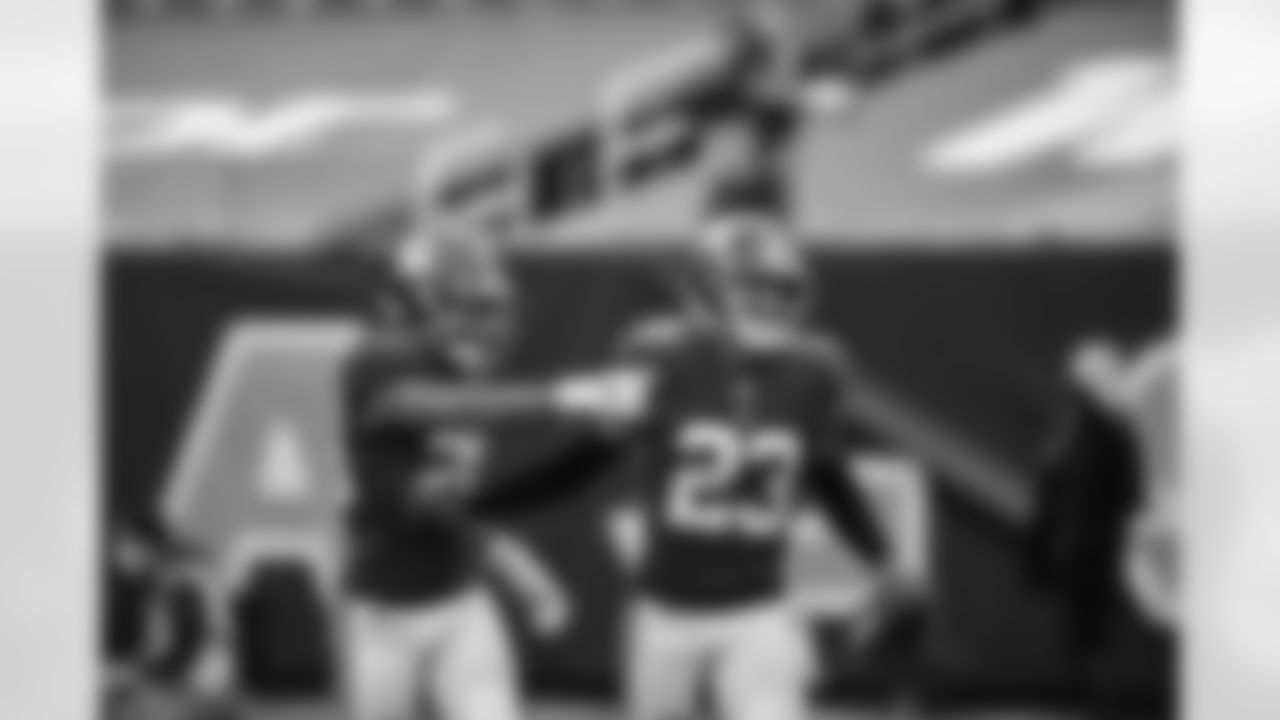
Julian Love (20), Logan Ryan (23)
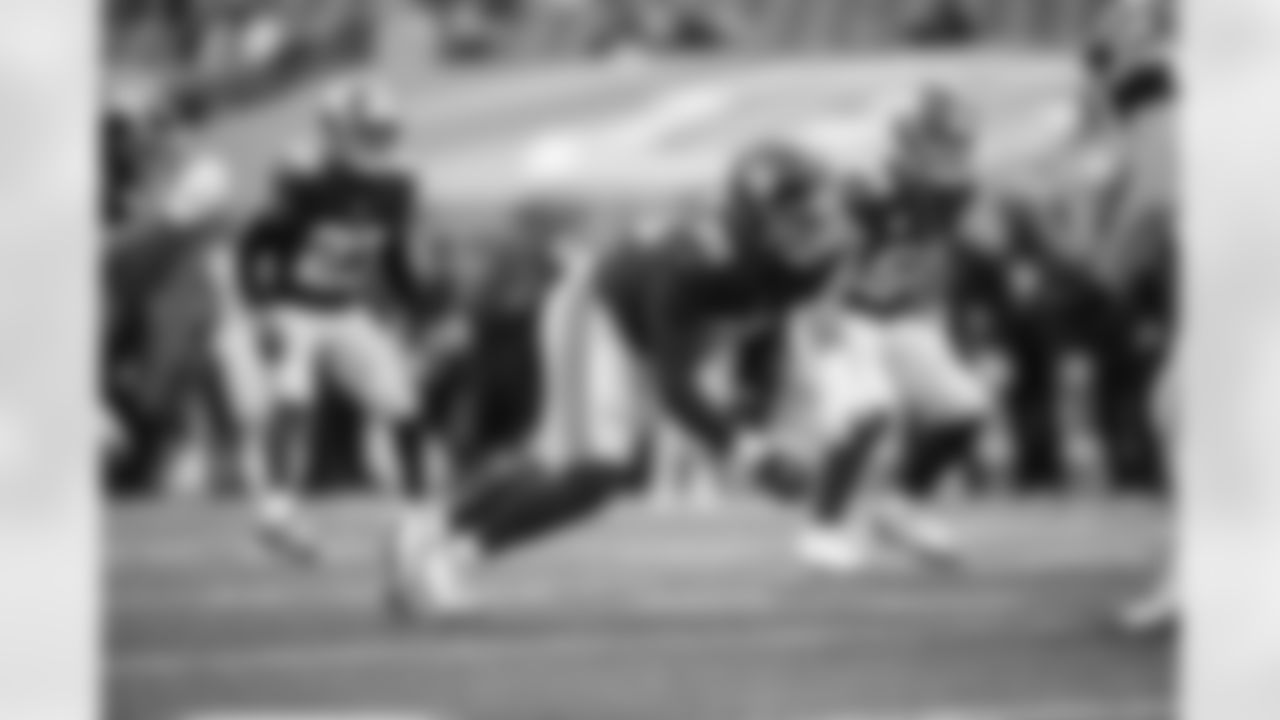
Leonard Williams (99)
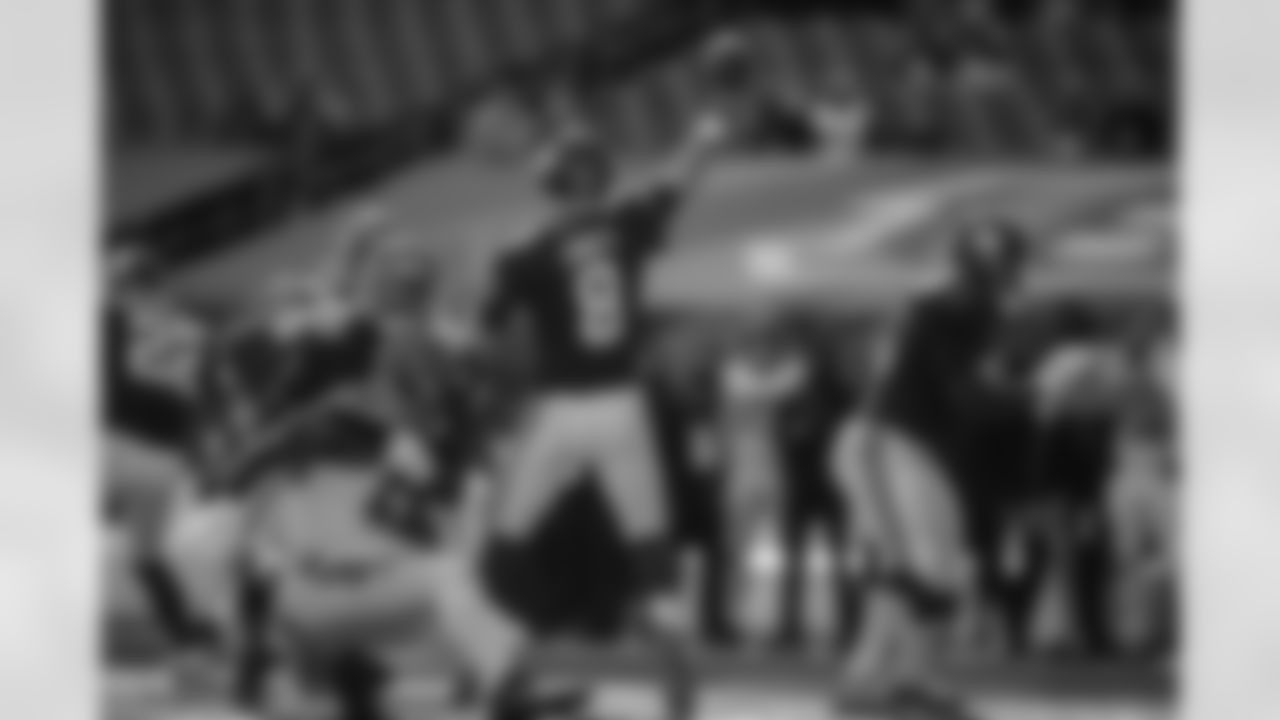
Daniel Jones (8)
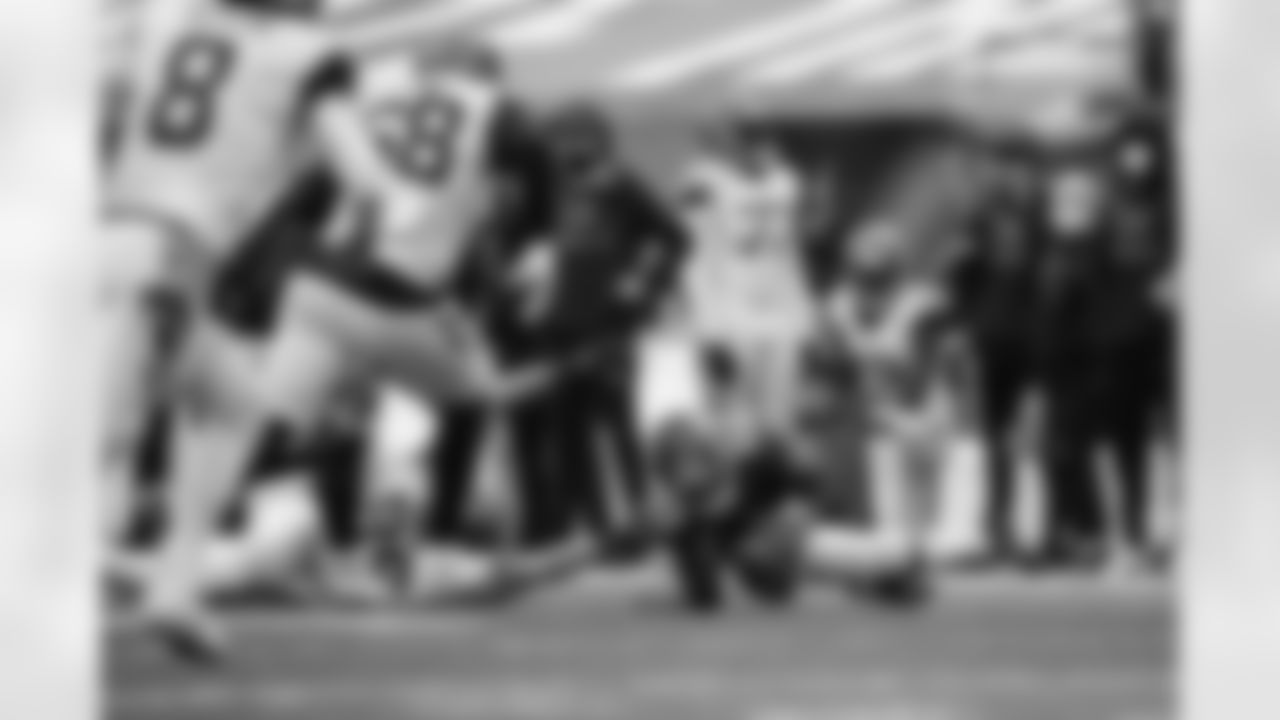
Logan Ryan (23)
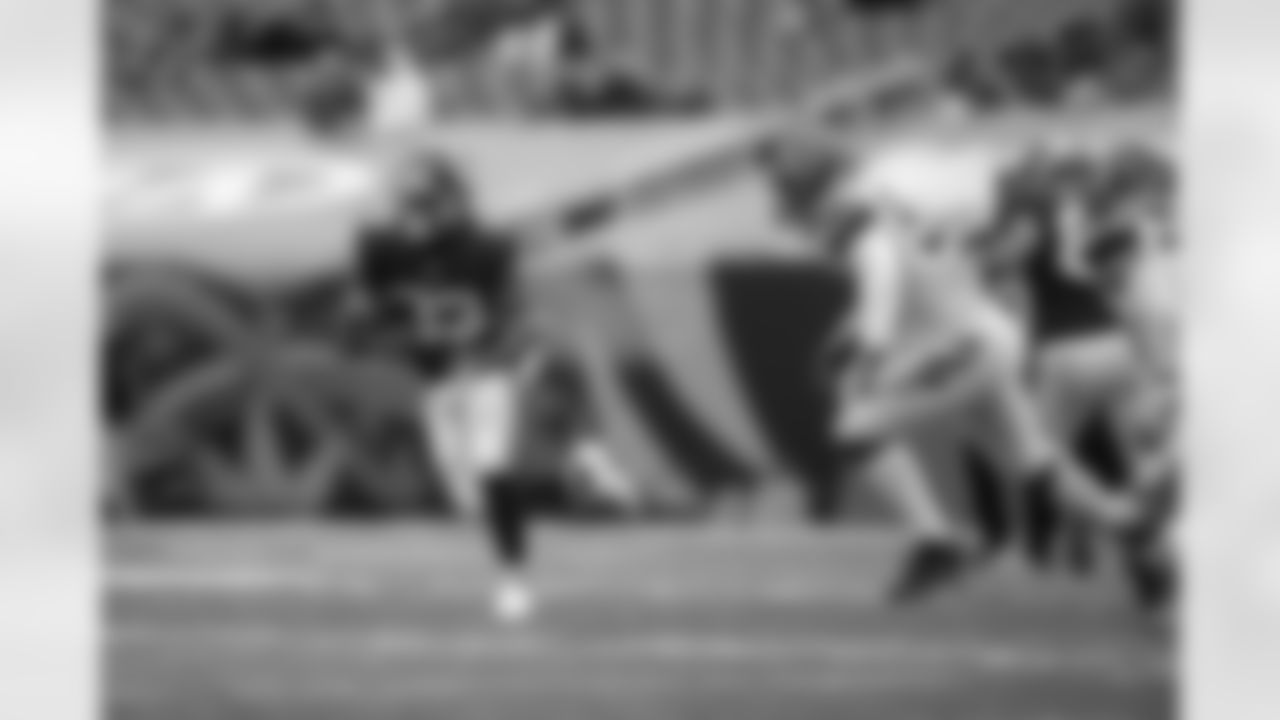
Dion Lewis (33)
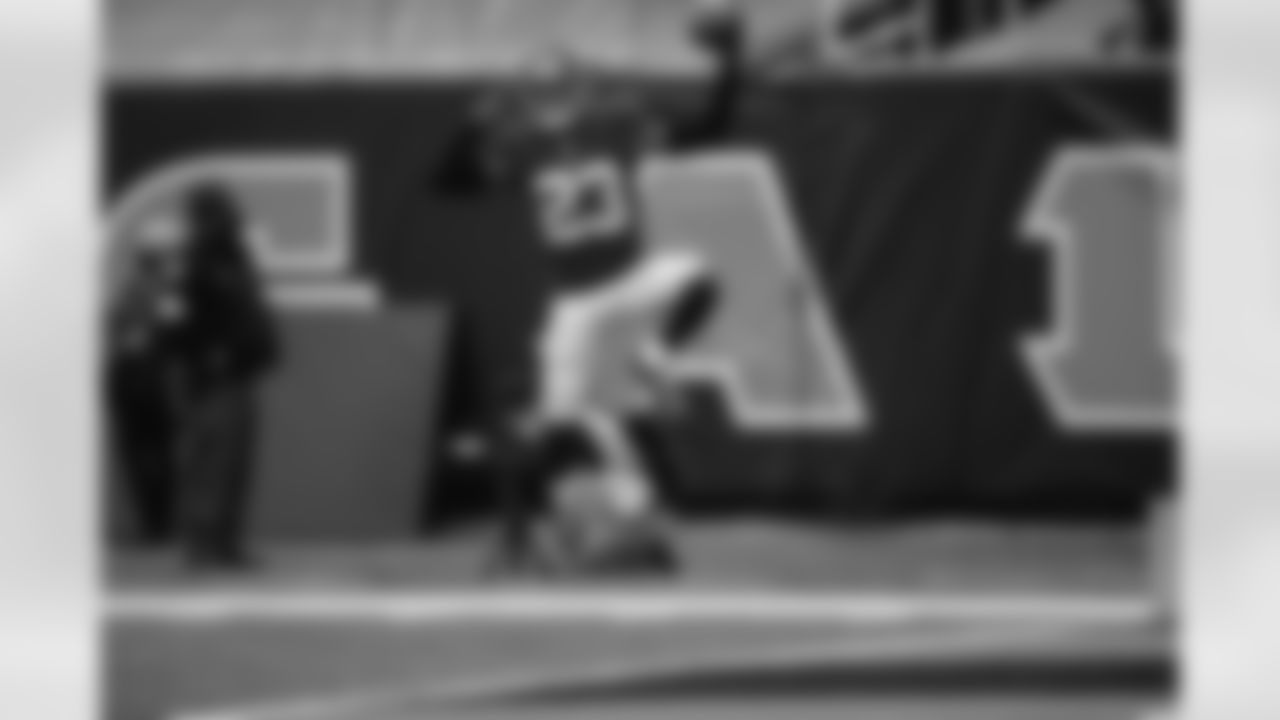
Logan Ryan (23)
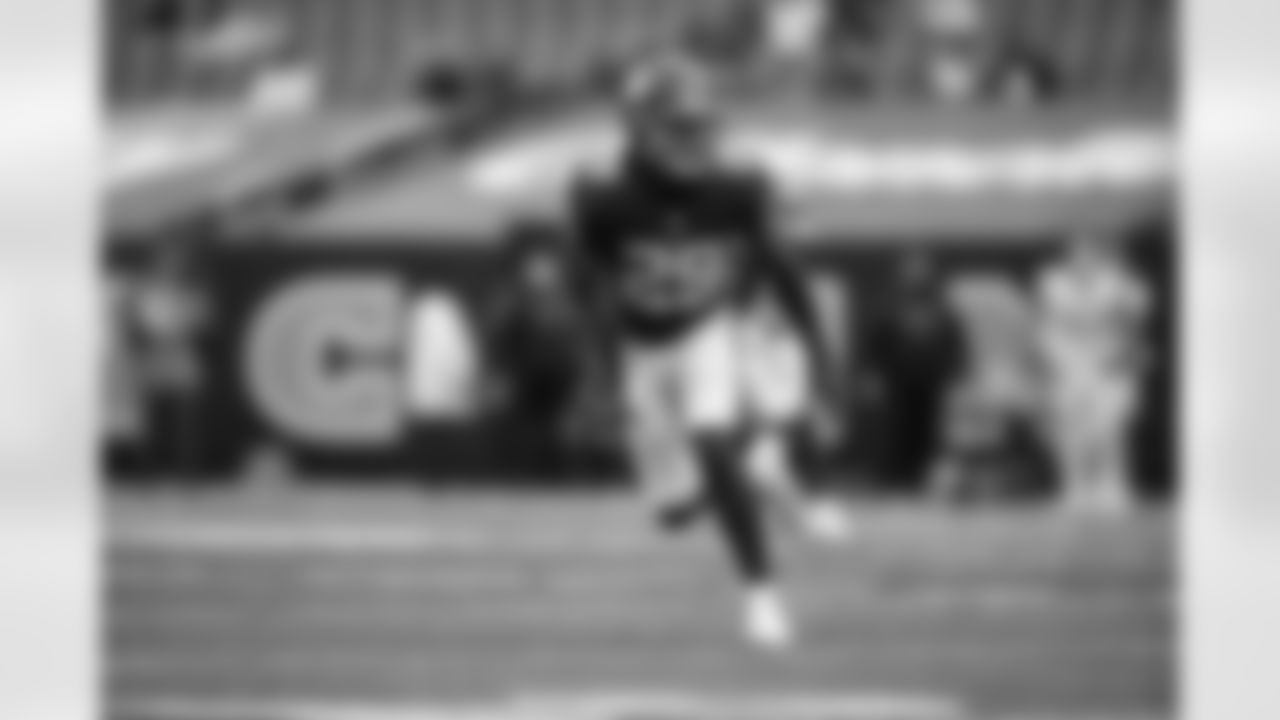
Xavier McKinney (29)
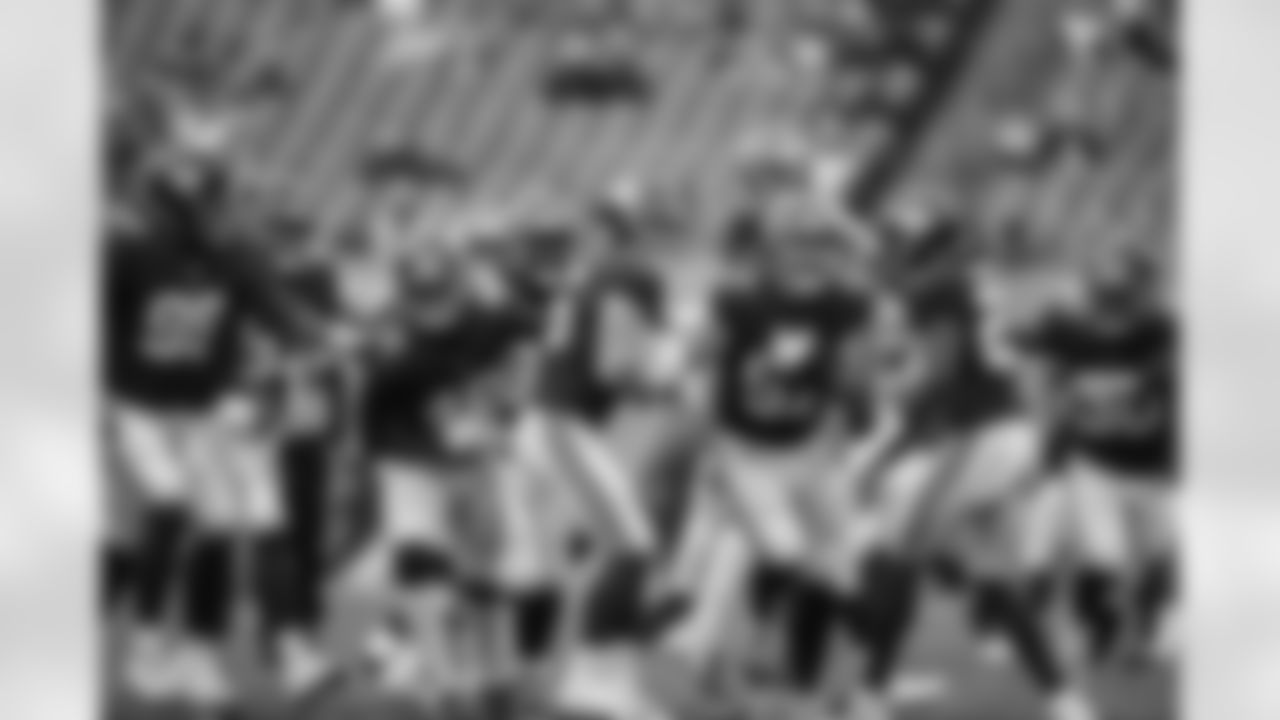
Isaac Yiadom (27), Dalvin Tomlinson (94), Niko Lalos (57), Tae Crowder (48), Darnay Holmes (30), David Mayo (55)
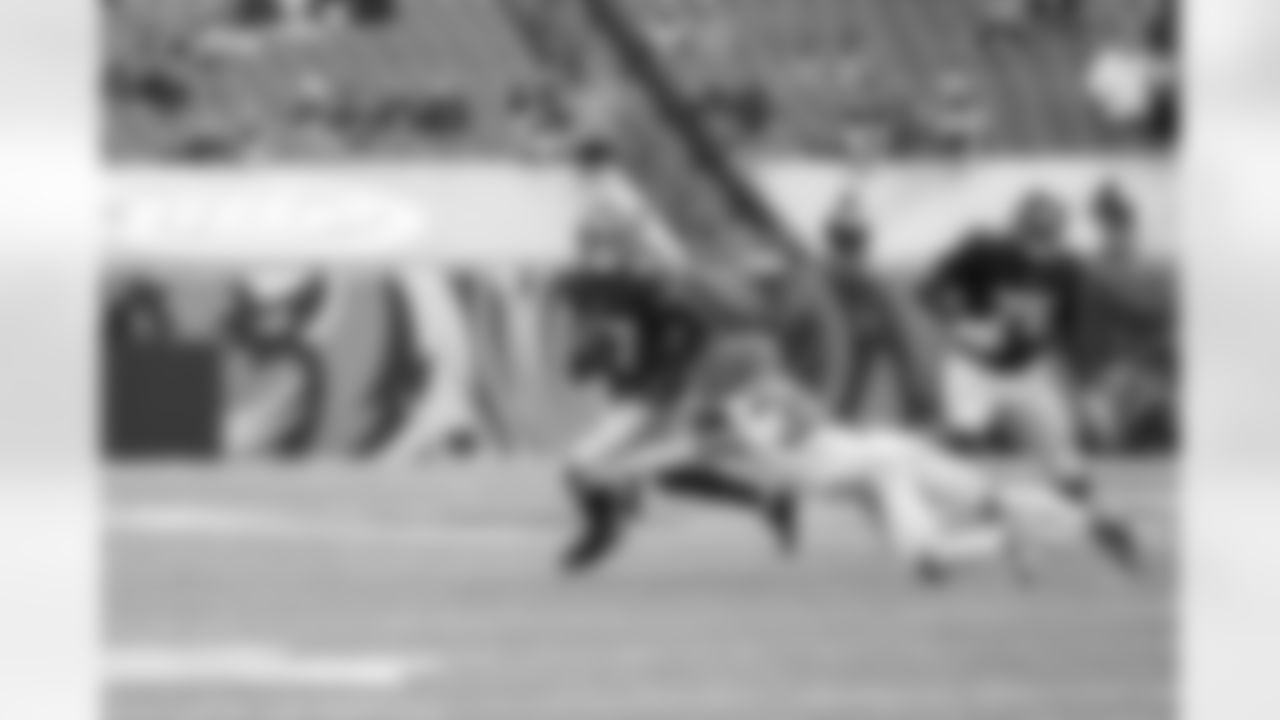
Sterling Shepard (87)
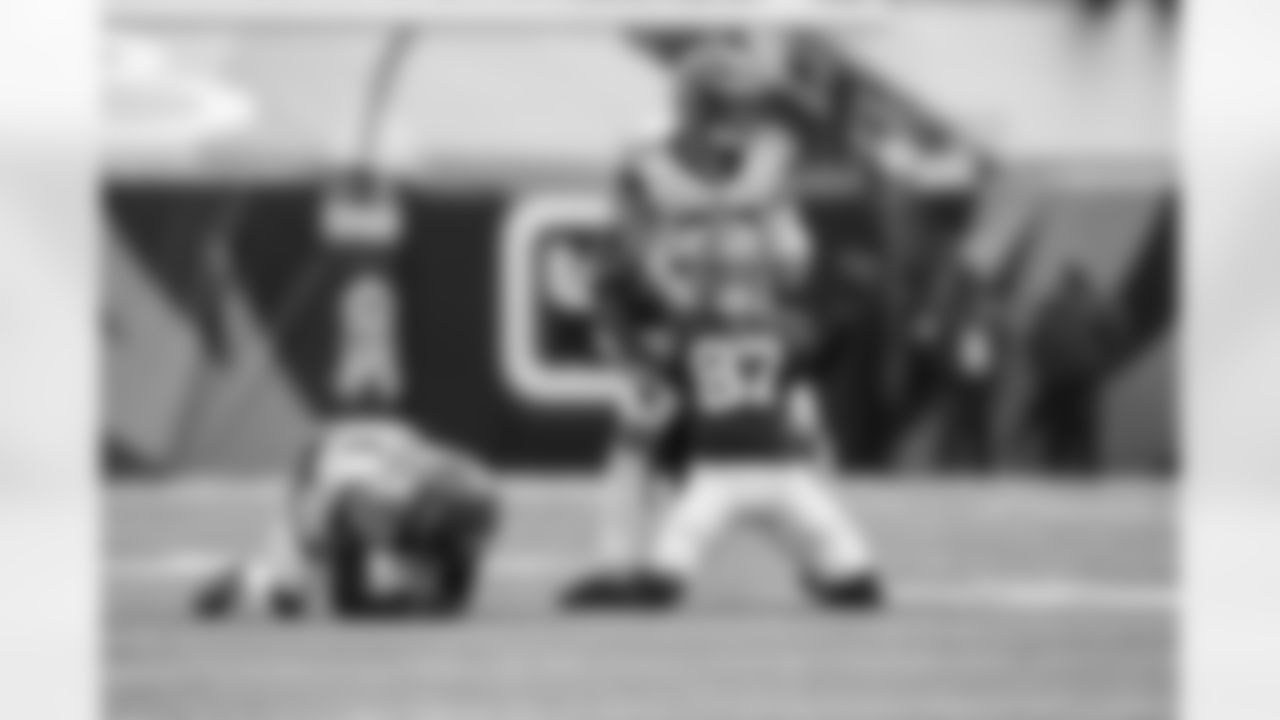
Sterling Shepard (87)
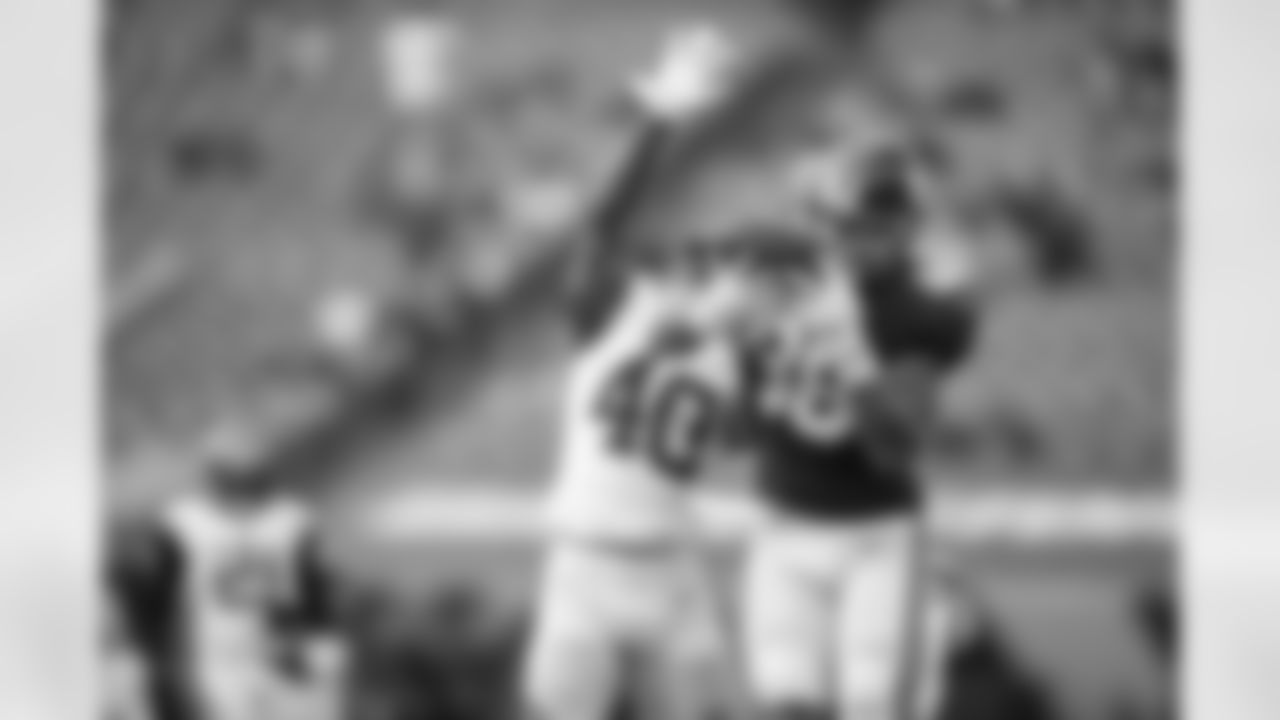
Evan Engram (88)
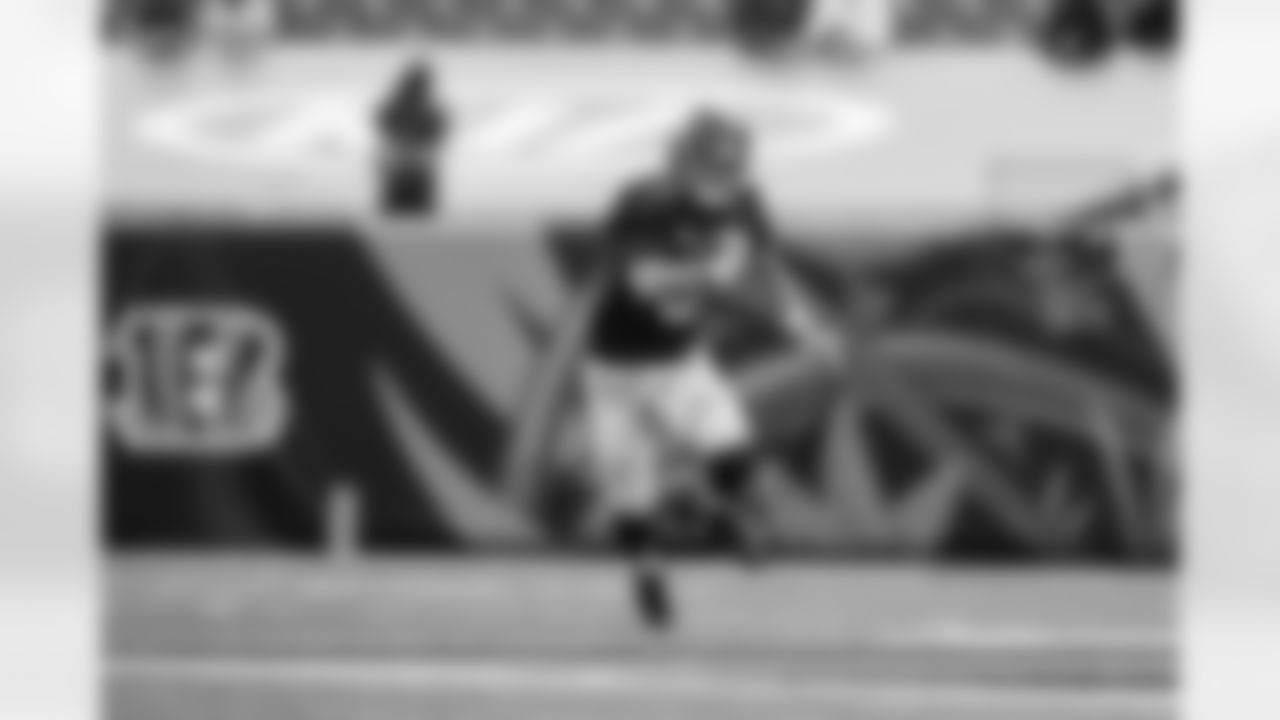
Daniel Jones (8)
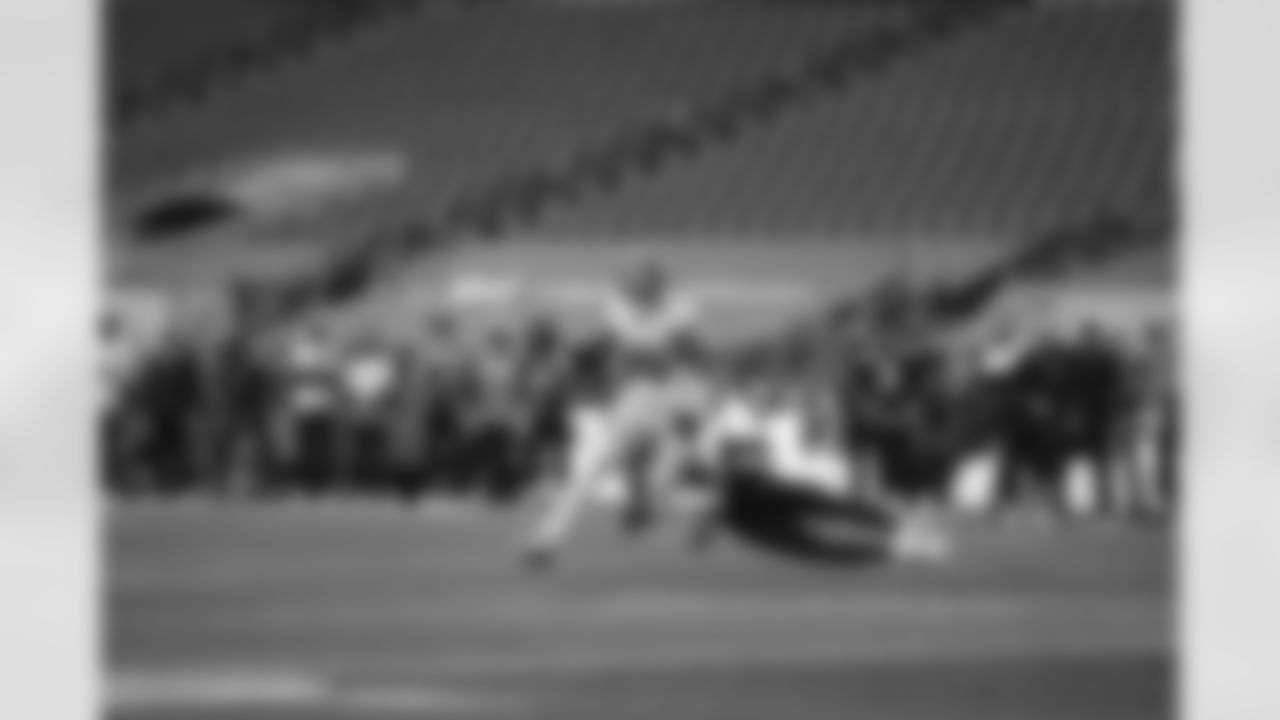
Evan Engram (88)
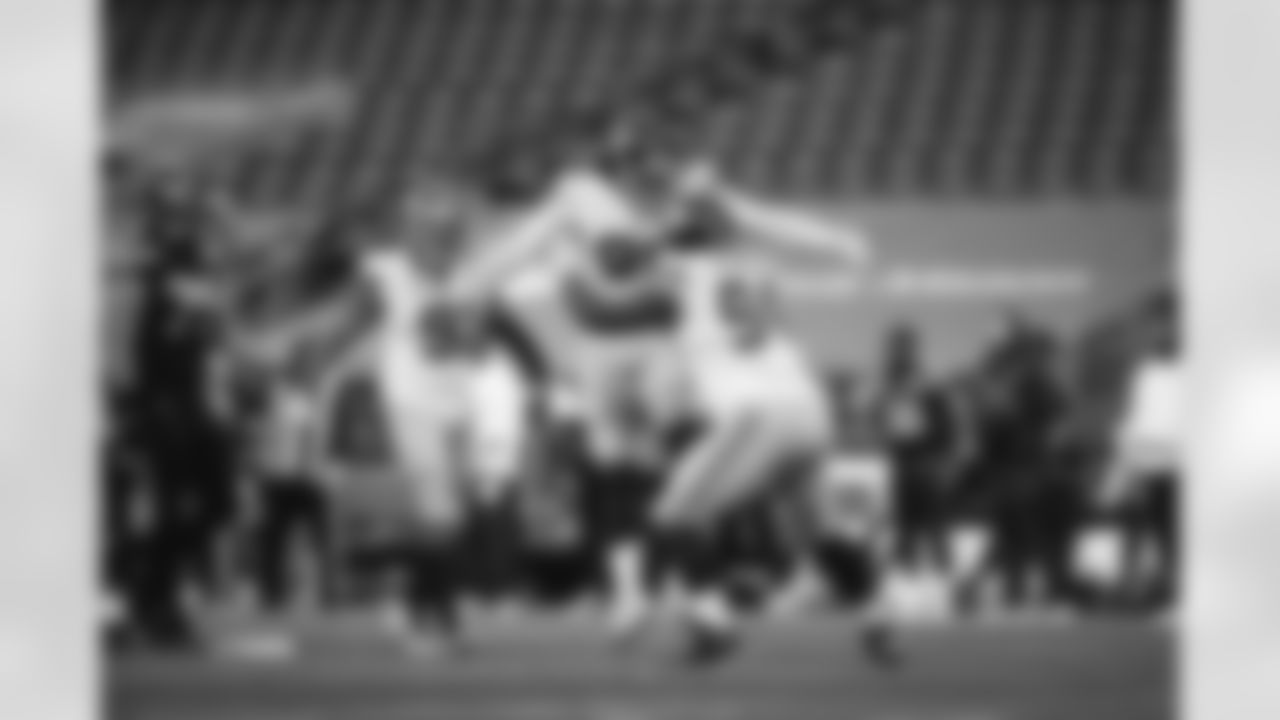
Leonard Williams (99), Dalvin Tomlinson (94)
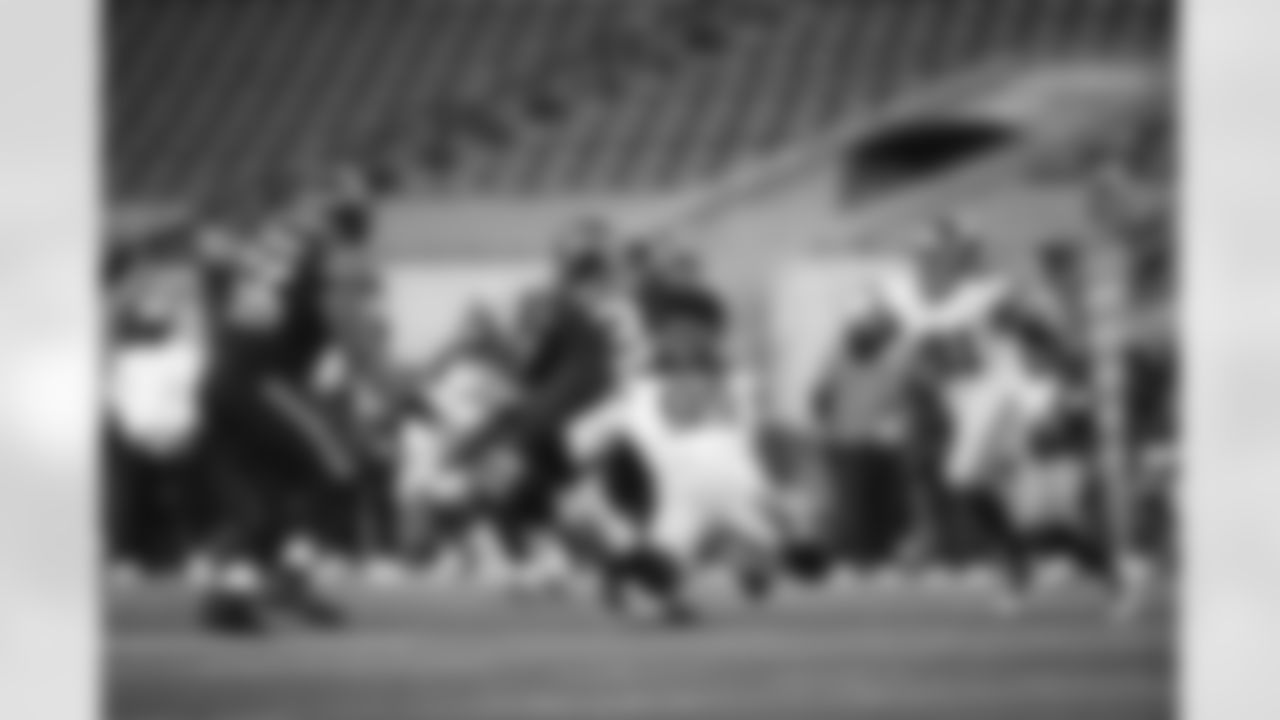
Leonard Williams (99)
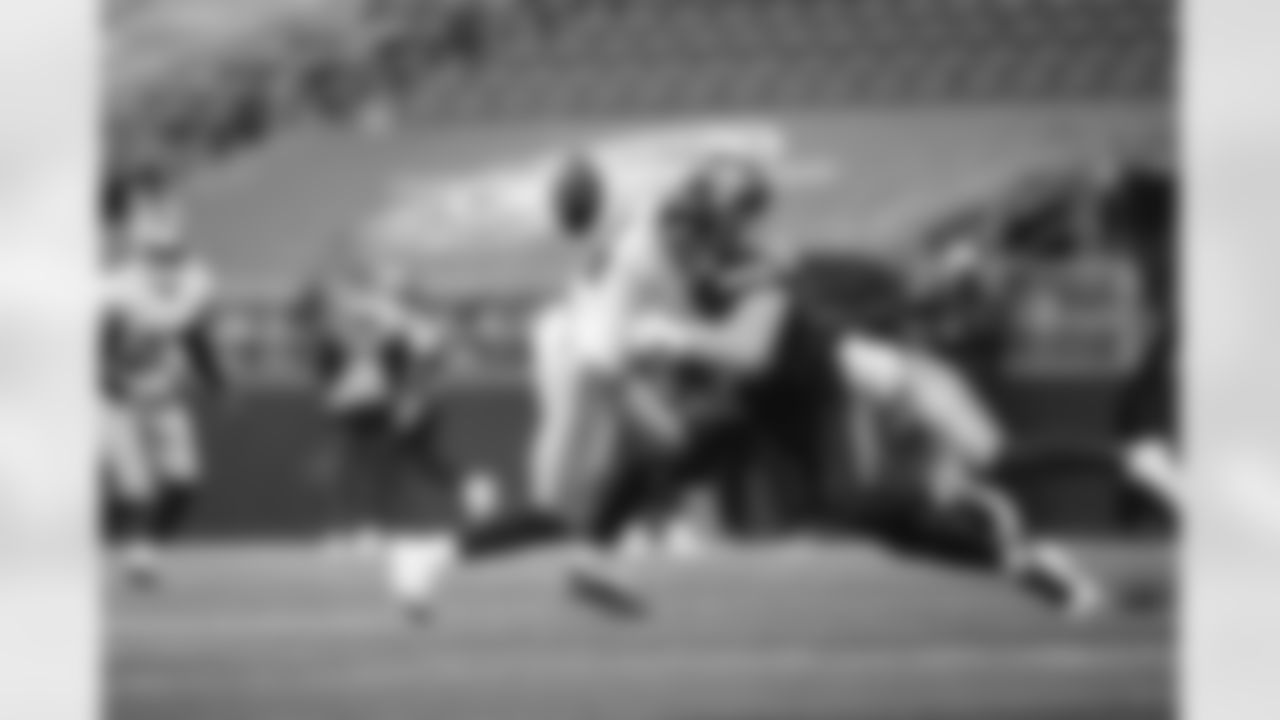
Blake Martinez (54)
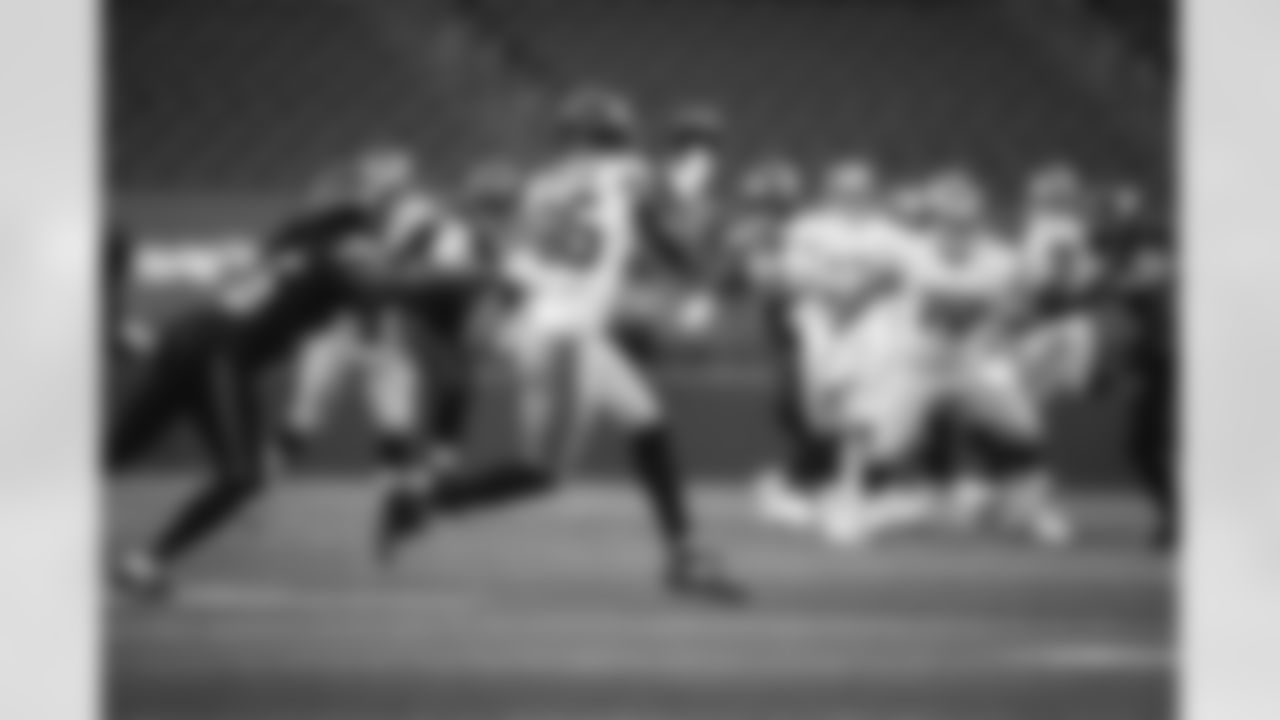
Darius Slayton (86)
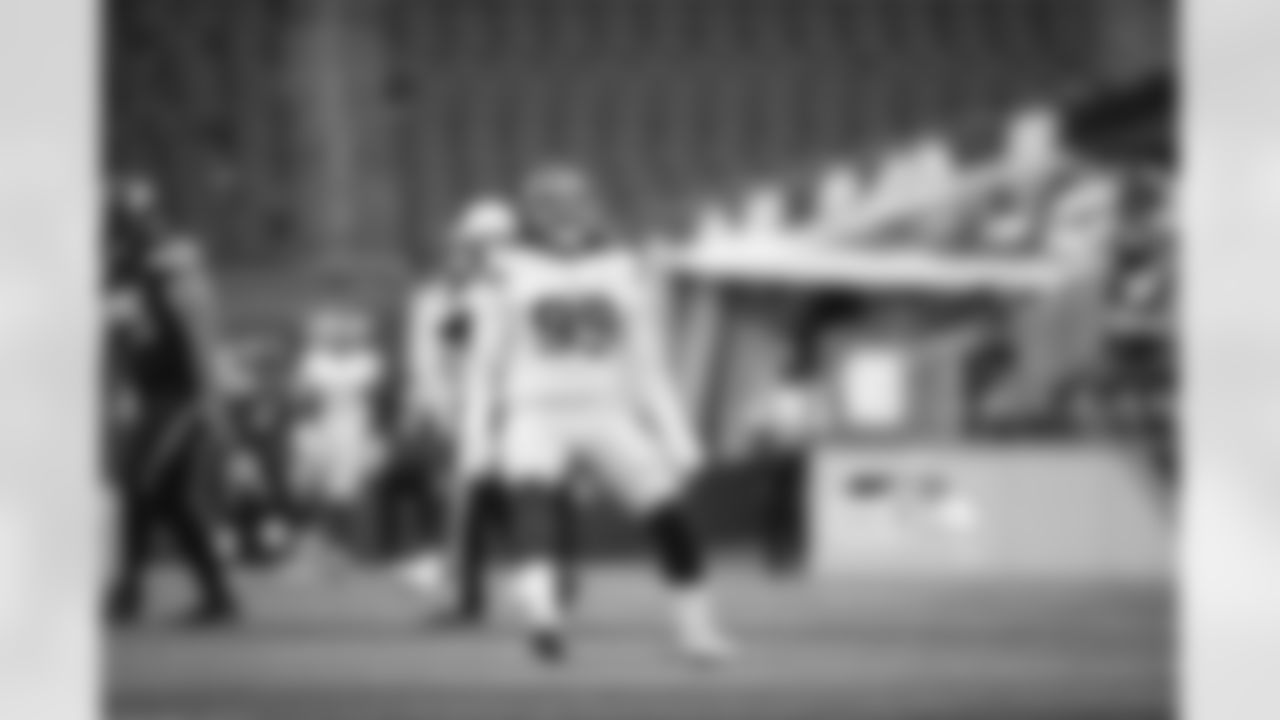
Leonard Williams (99)
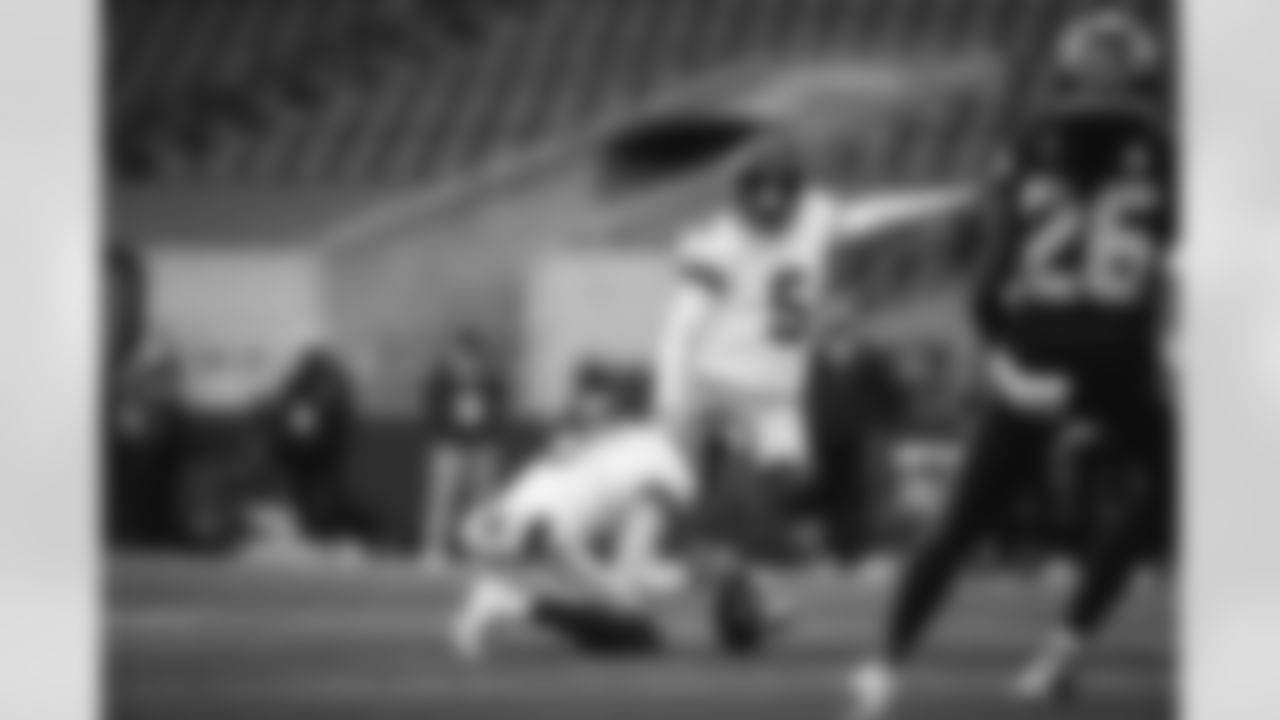
Graham Gano (5), Riley Dixon (9)
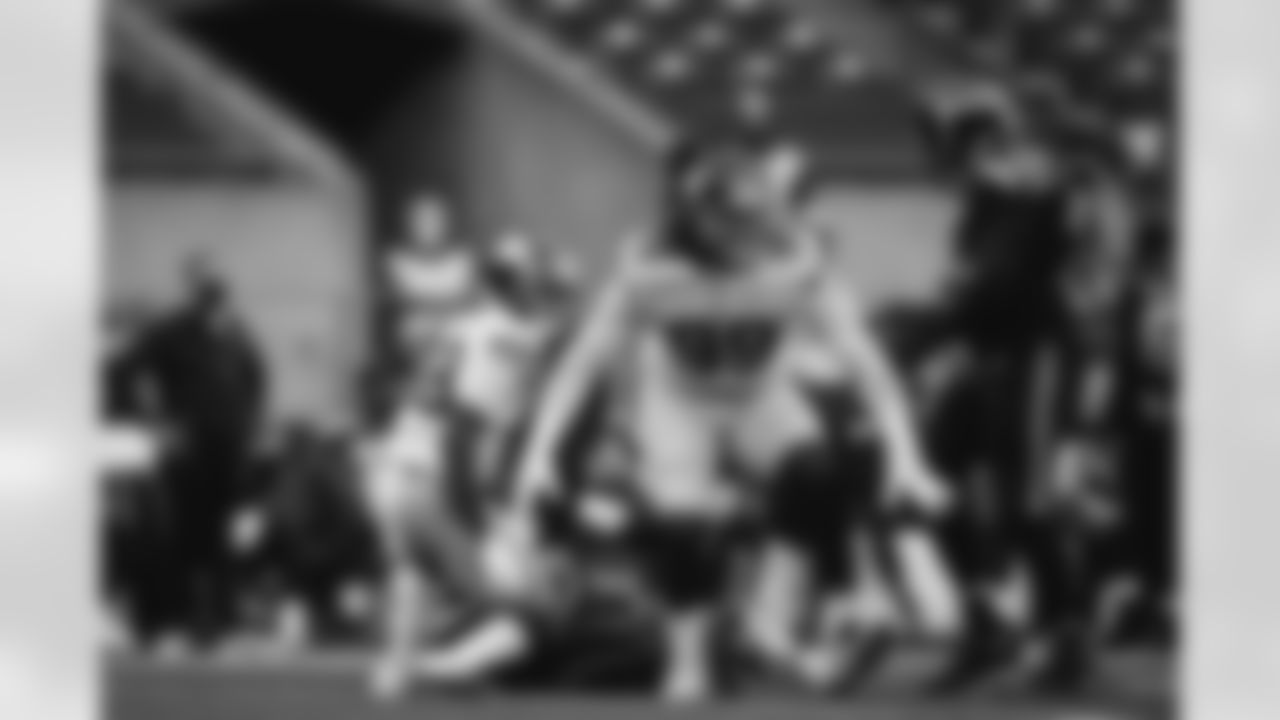
Leonard Williams (99)
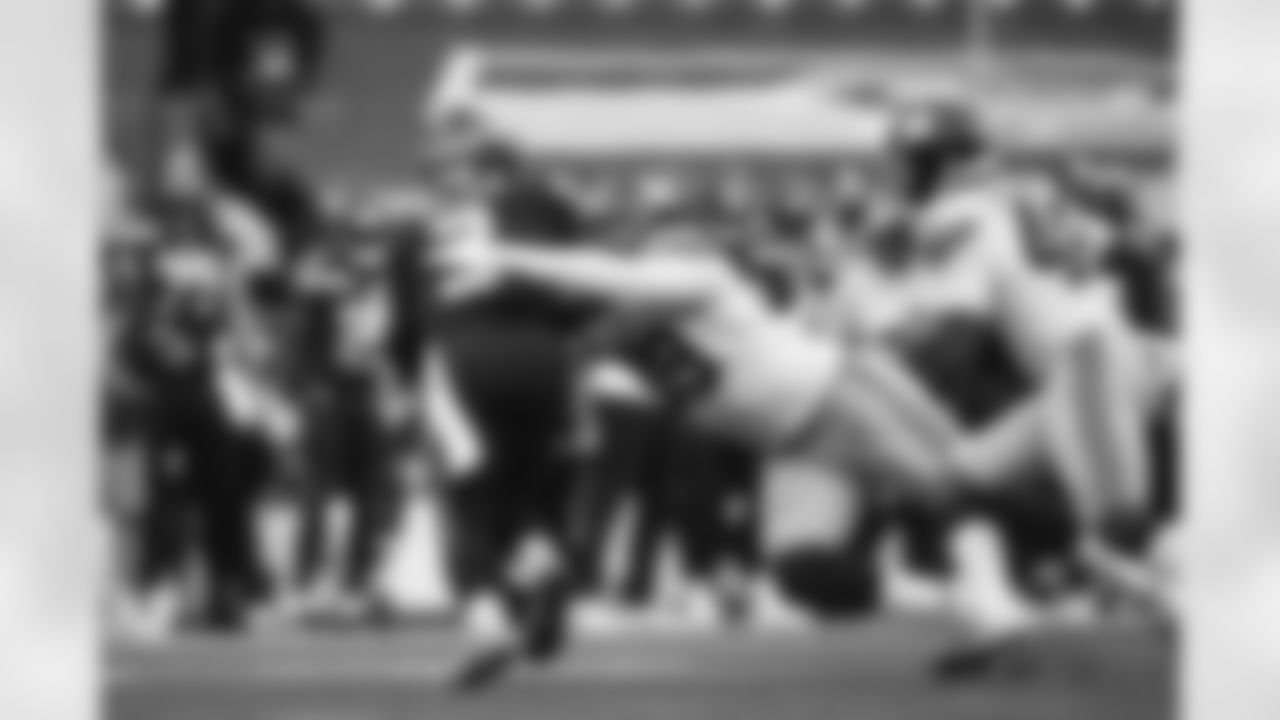
Leonard Williams (99)
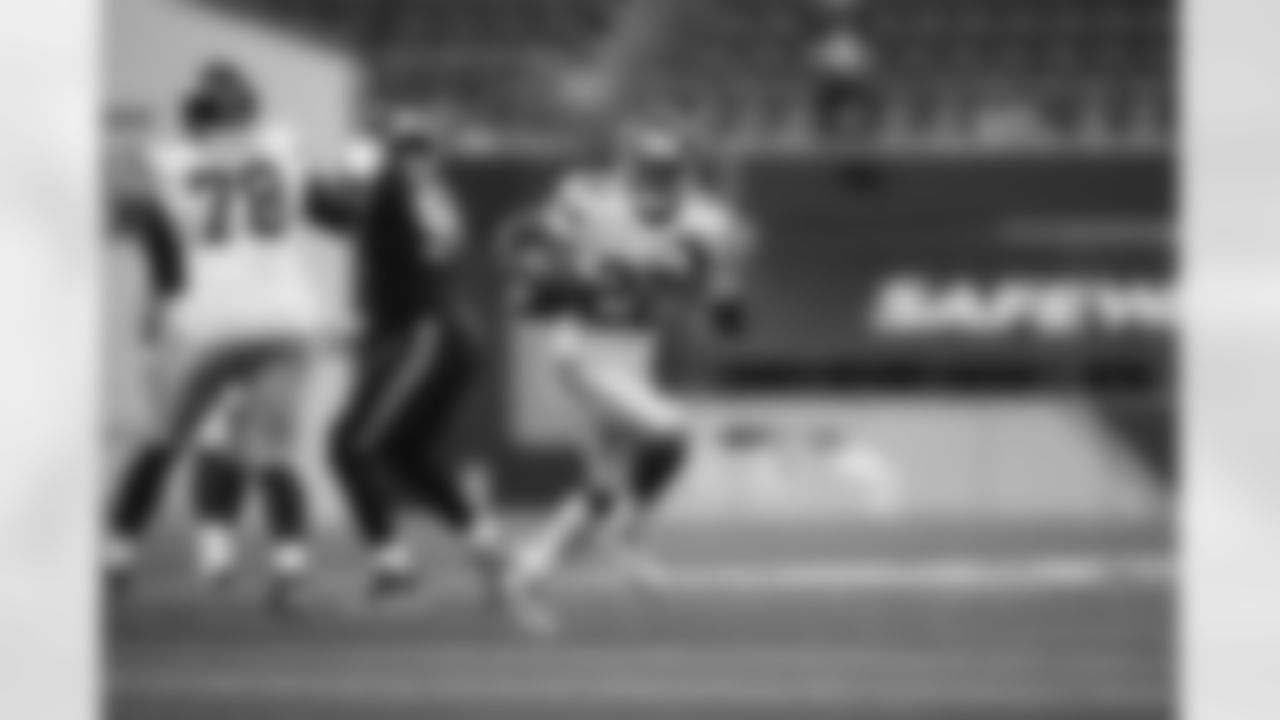
Wayne Gallman (22)
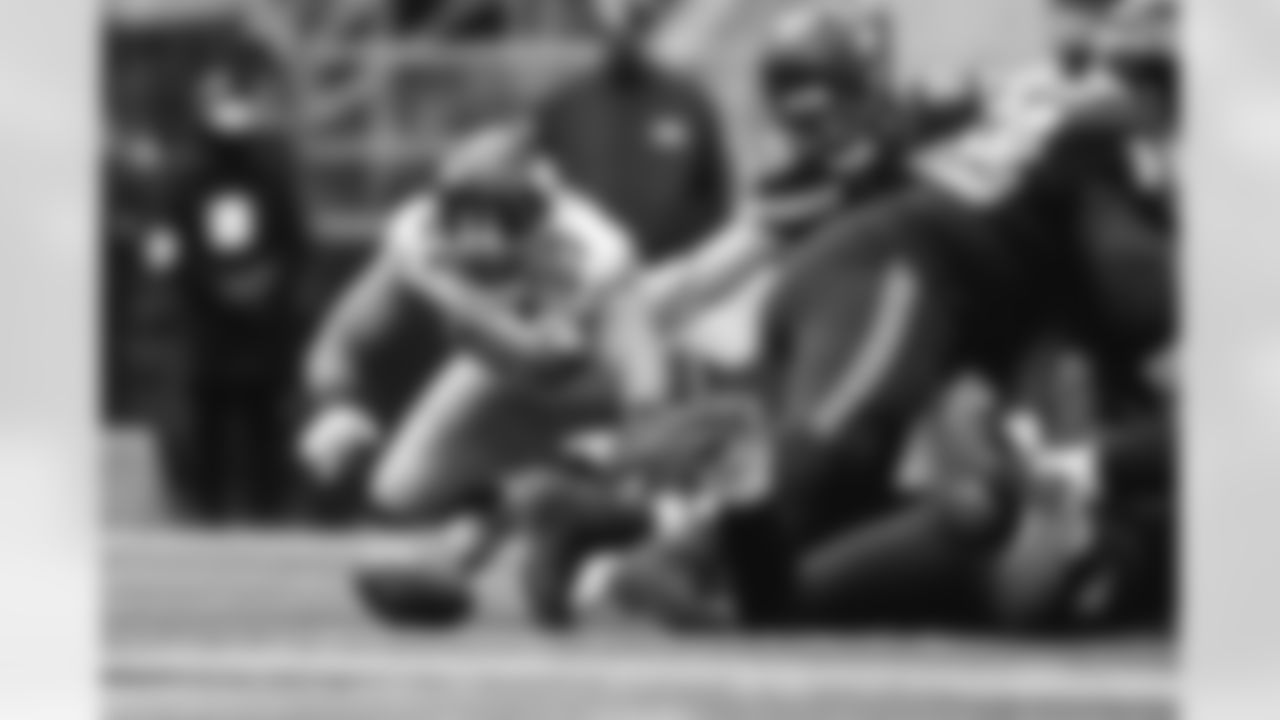
Niko Lalos (57)
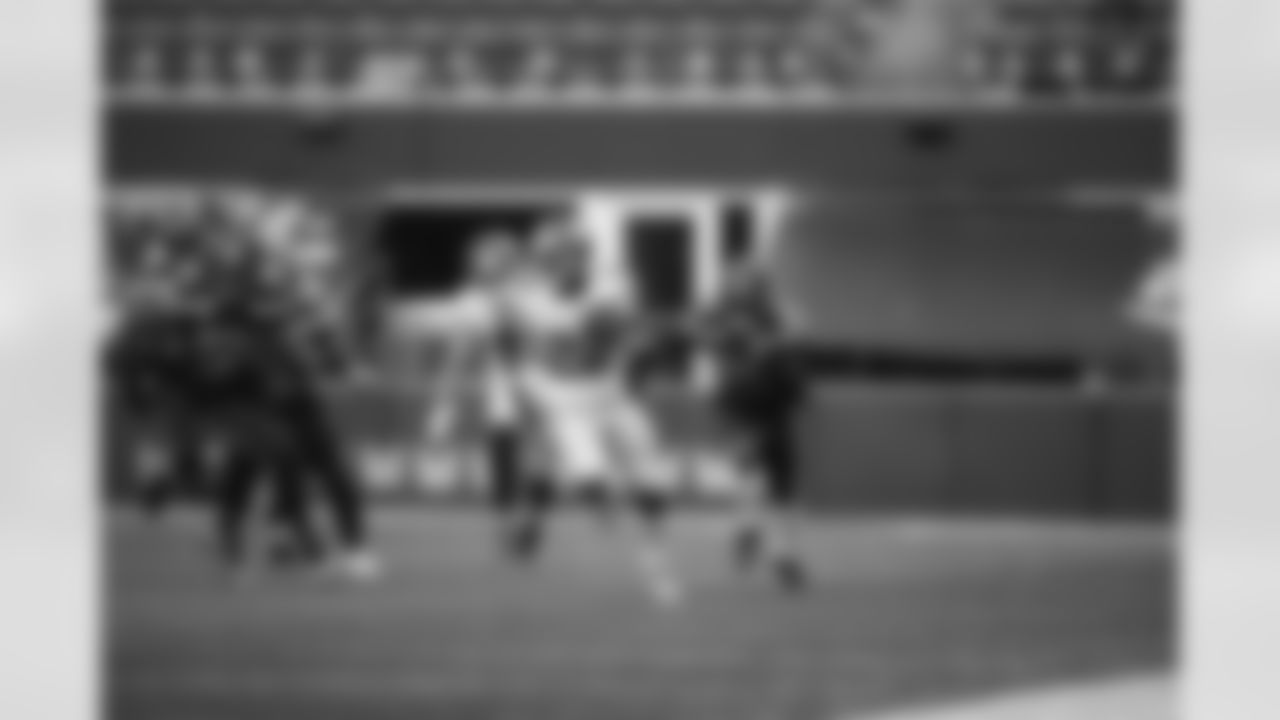
Wayne Gallman (22)
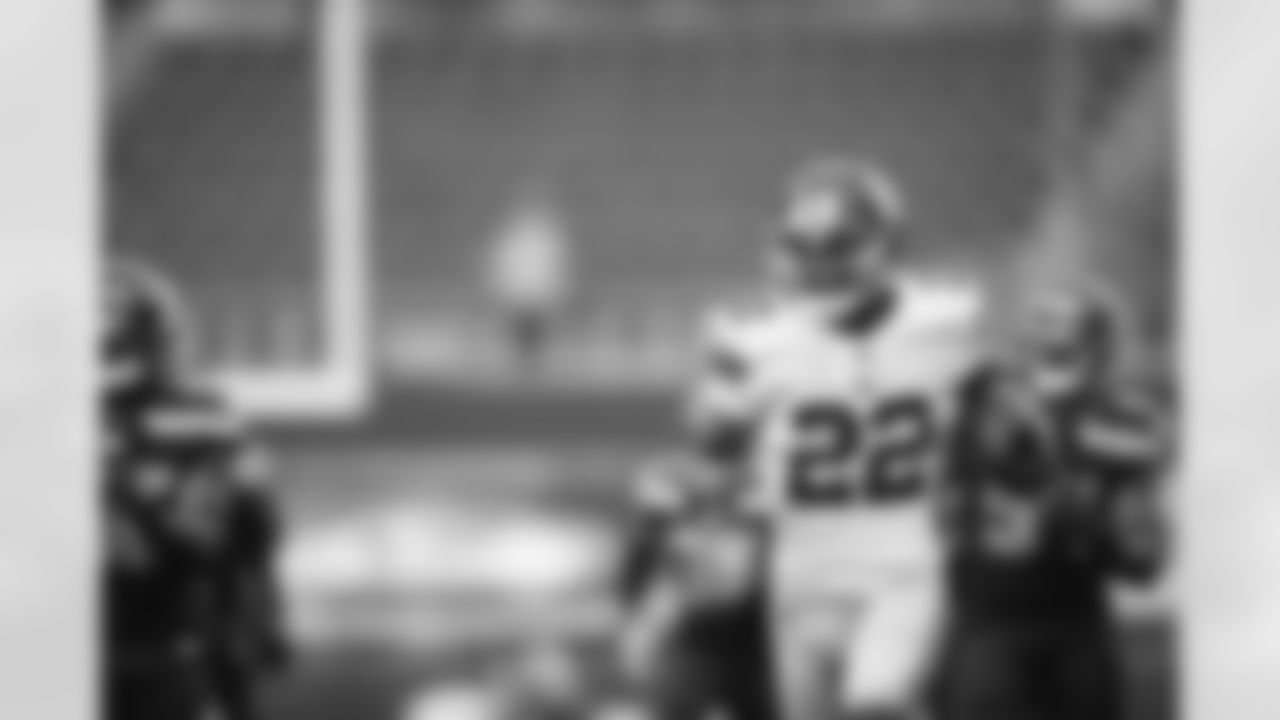
Wayne Gallman (22)
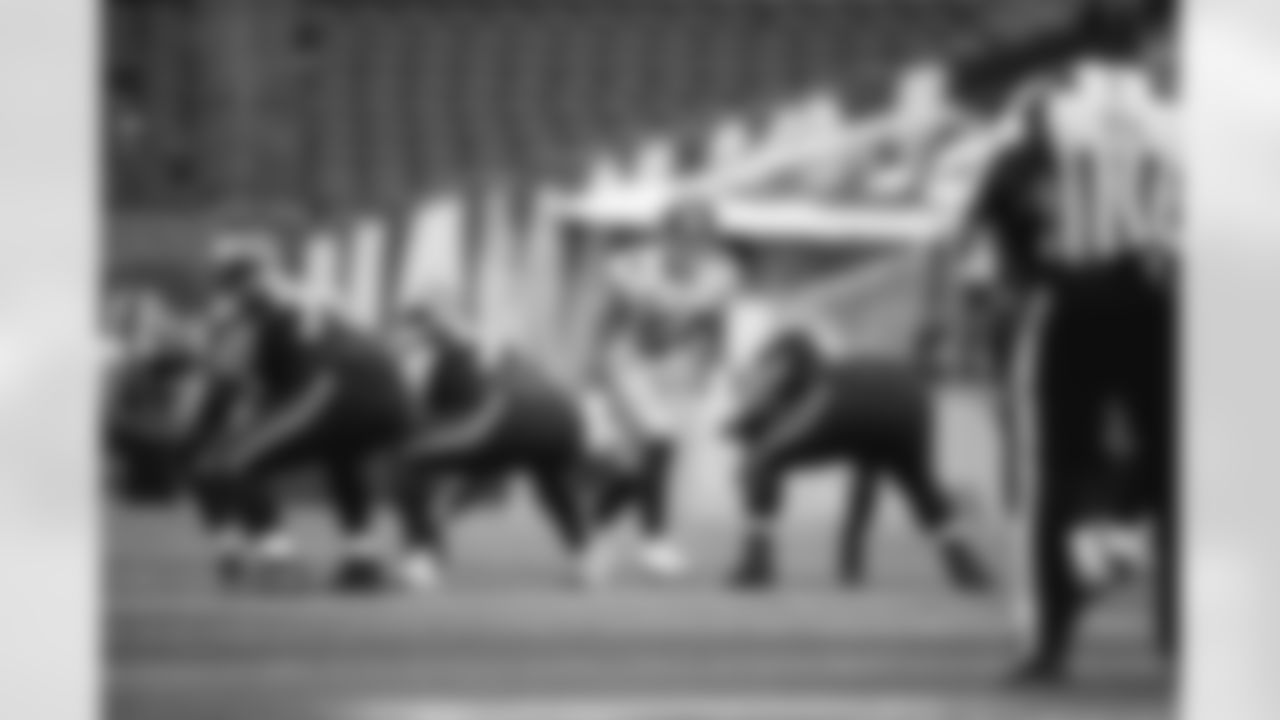
Blake Martinez (54)
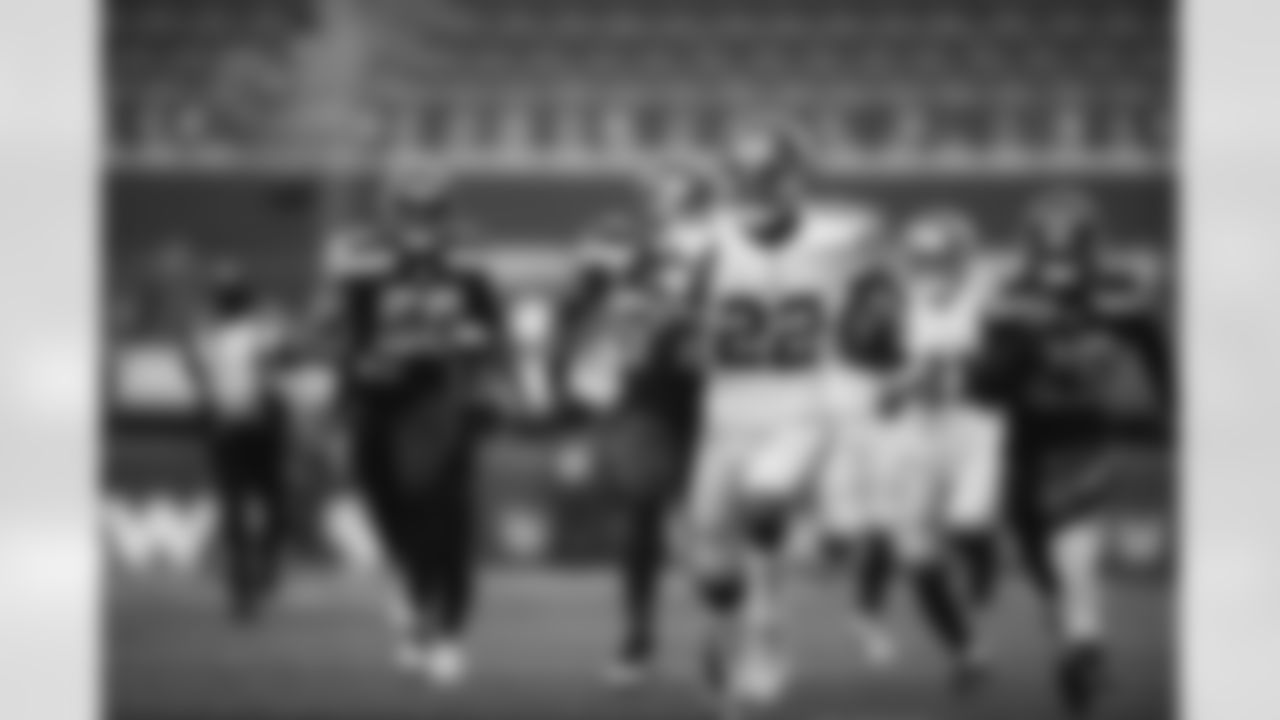
Wayne Gallman (22)
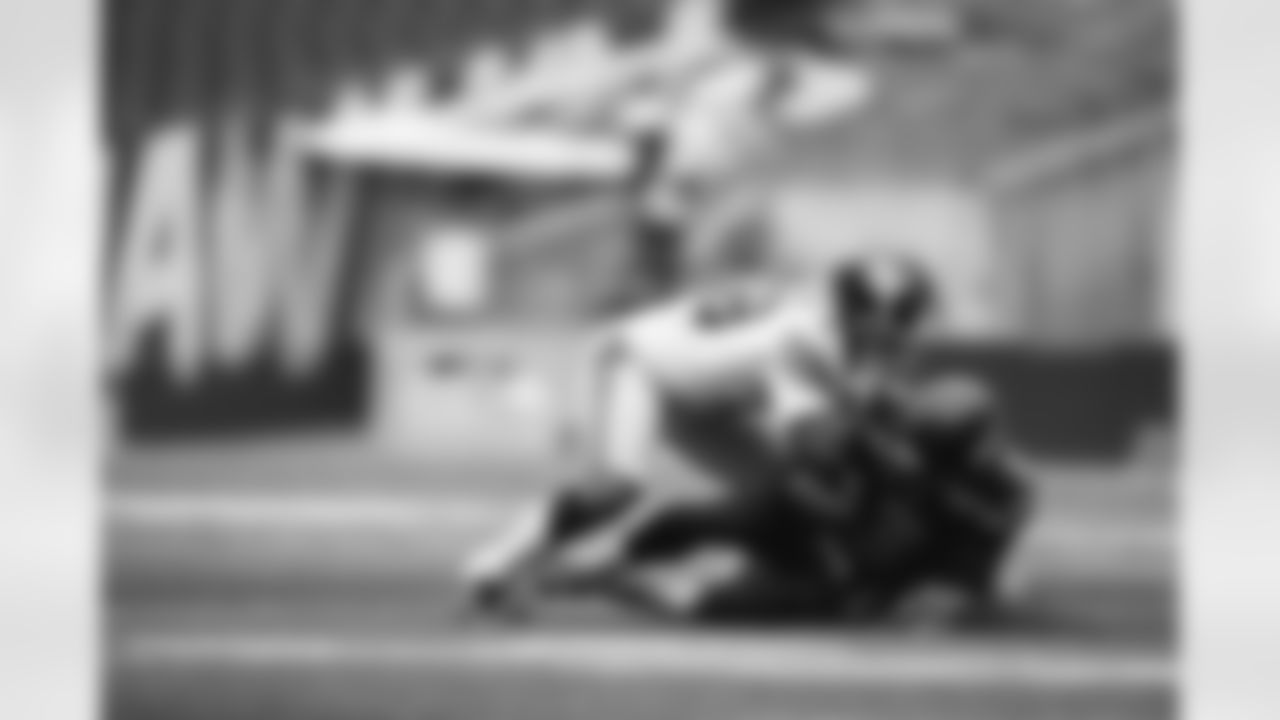
Tae Crowder (48)
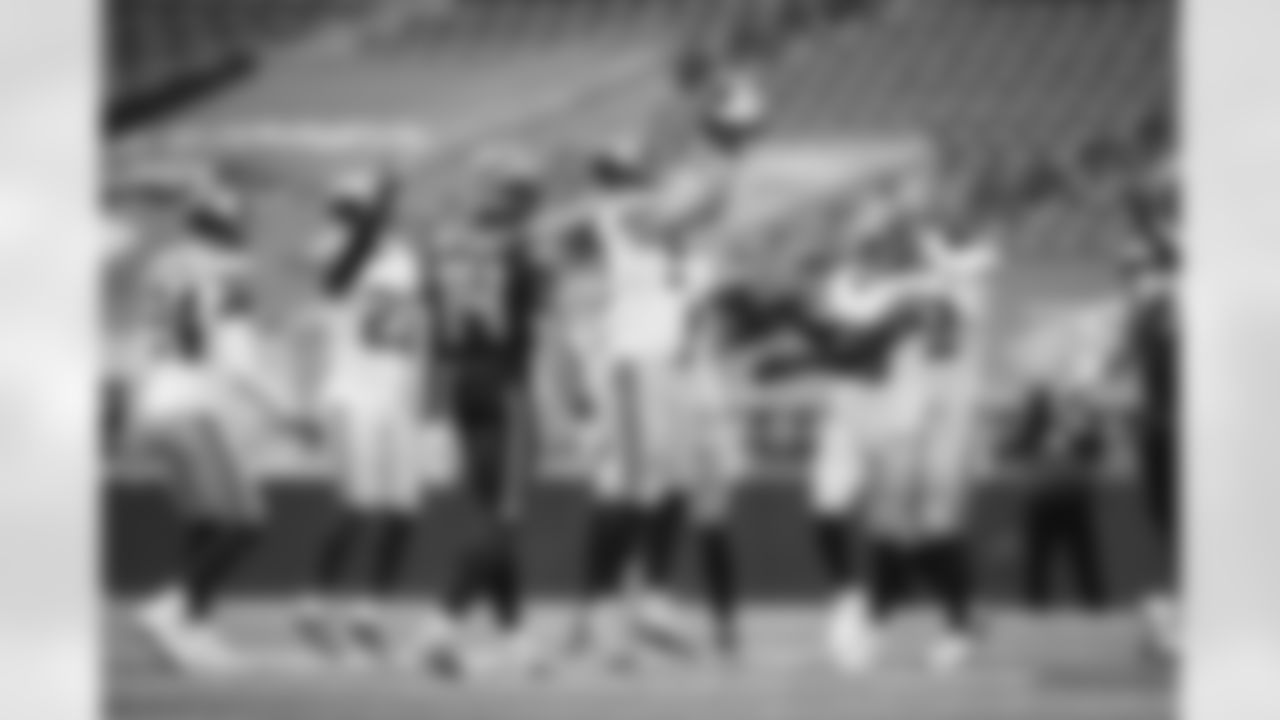
Niko Lalos (57), Logan Ryan (23), James Bradberry (24), Darnay Holmes (30)
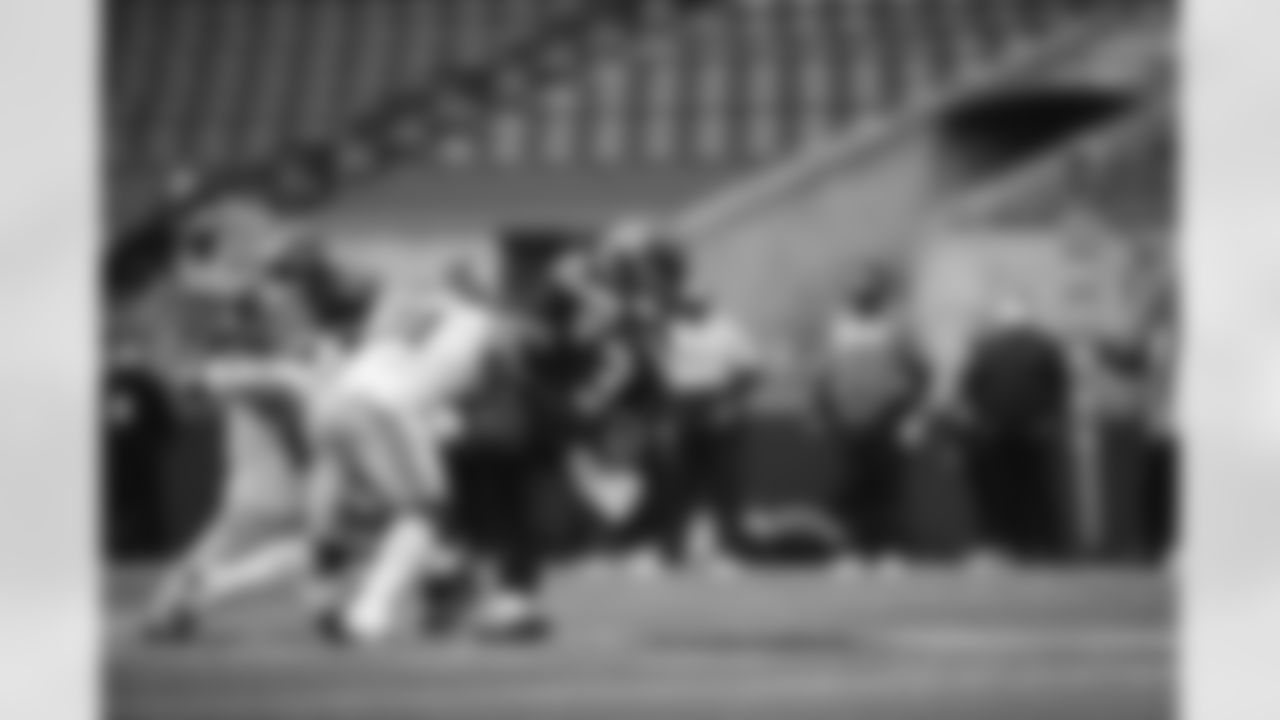
Jabrill Peppers (21), Carter Coughlin (49)
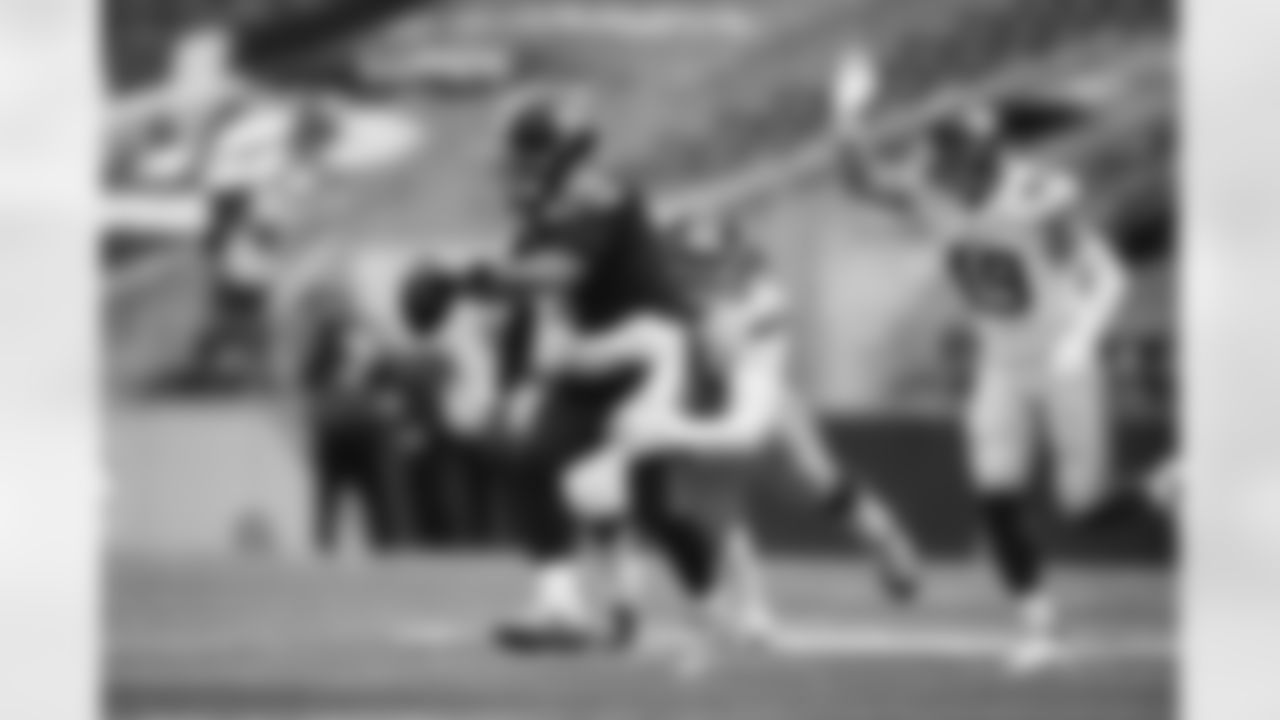
Leonard Williams (99), Carter Coughlin (49)
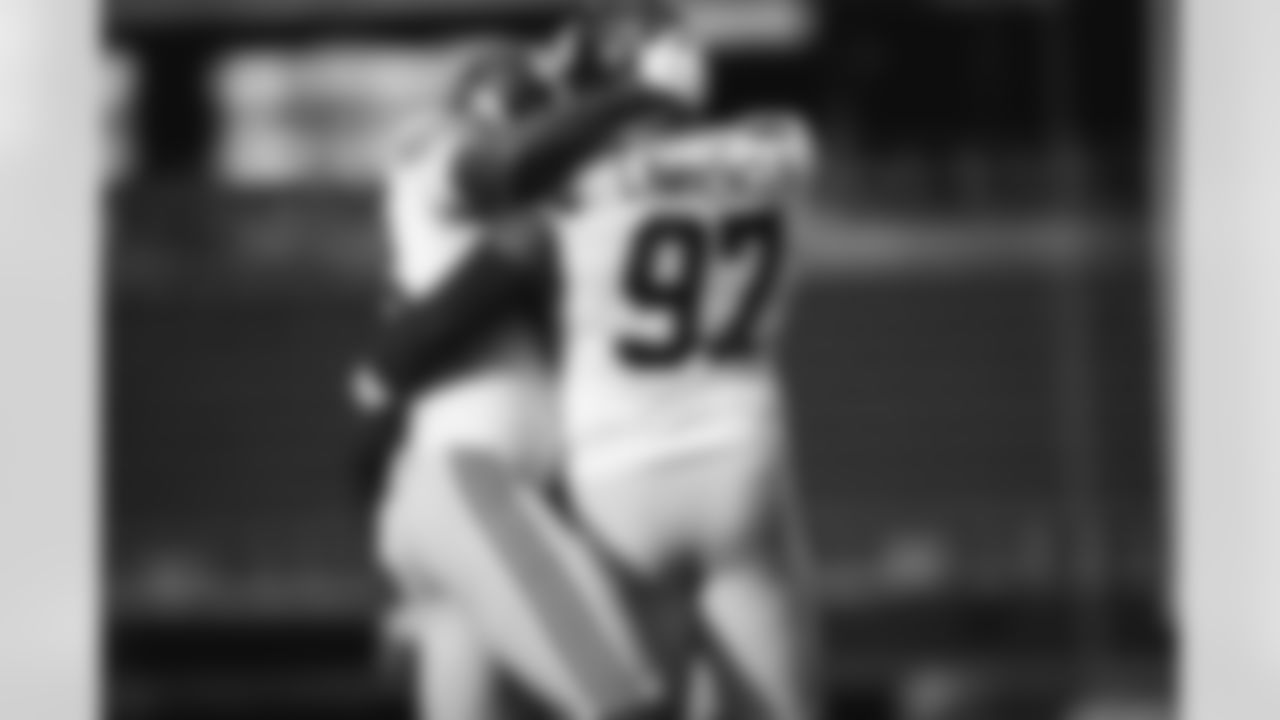
Tae Crowder (48), Dexter Lawrence (97)
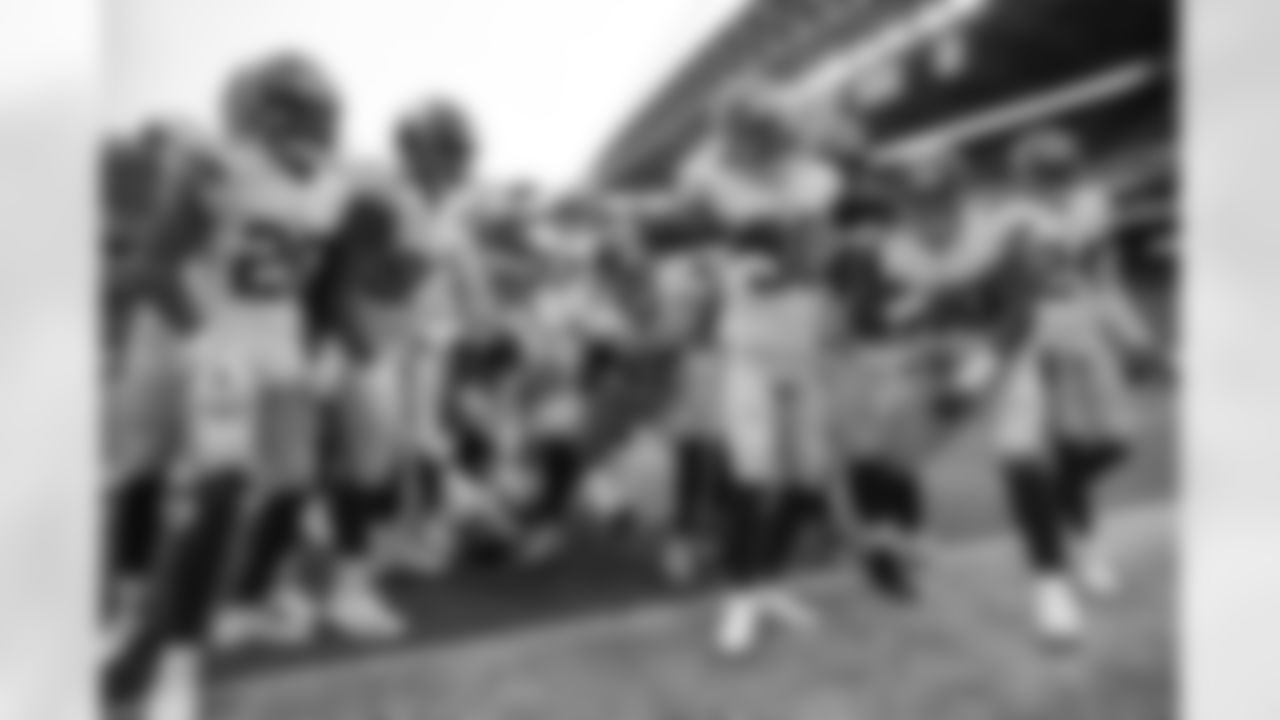
Carter Coughlin (49), Julian Love (20), B.J. Hill (95), Niko Lalos (57), Xavier McKinney (29), Dexter Lawrence (97), Jabaal Sheard (91), Jabrill Peppers (21), Tae Crowder (48), Darnay Holmes (30), Austin Johnson (98), James Bradberry (24), Dalvin Tomlinson (94), Madre Harper (45)
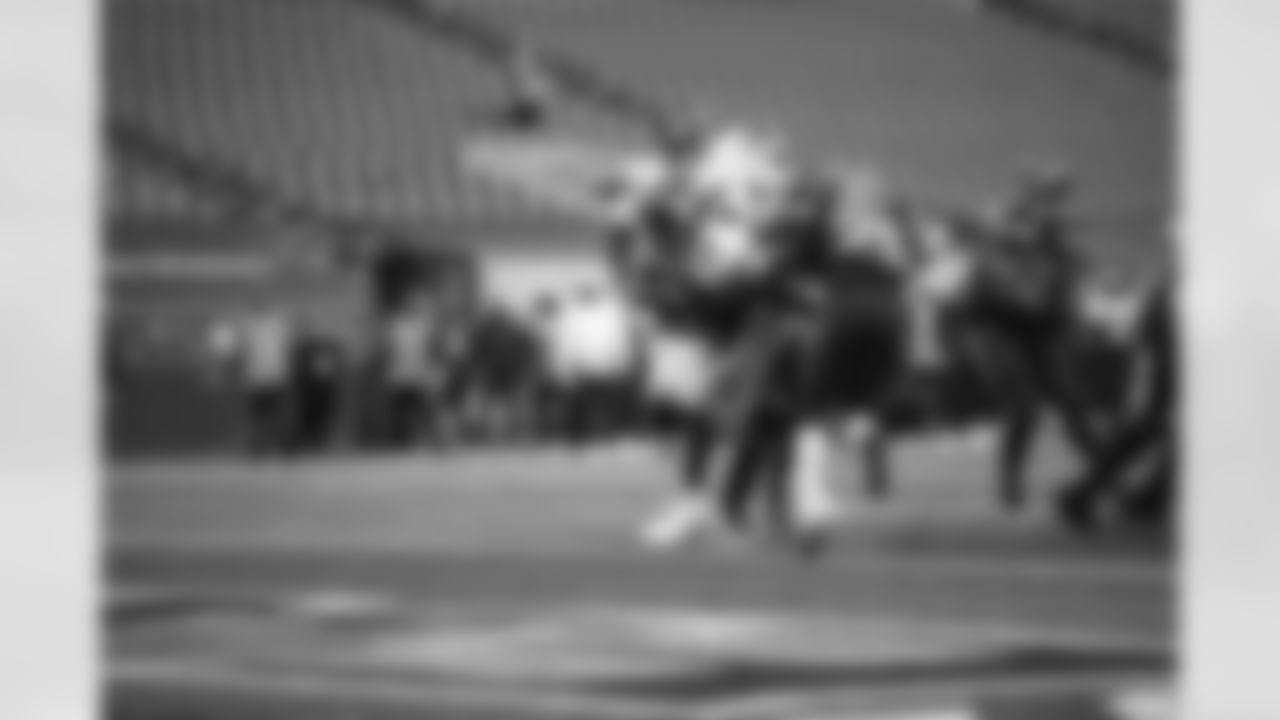
Alfred Morris (41)
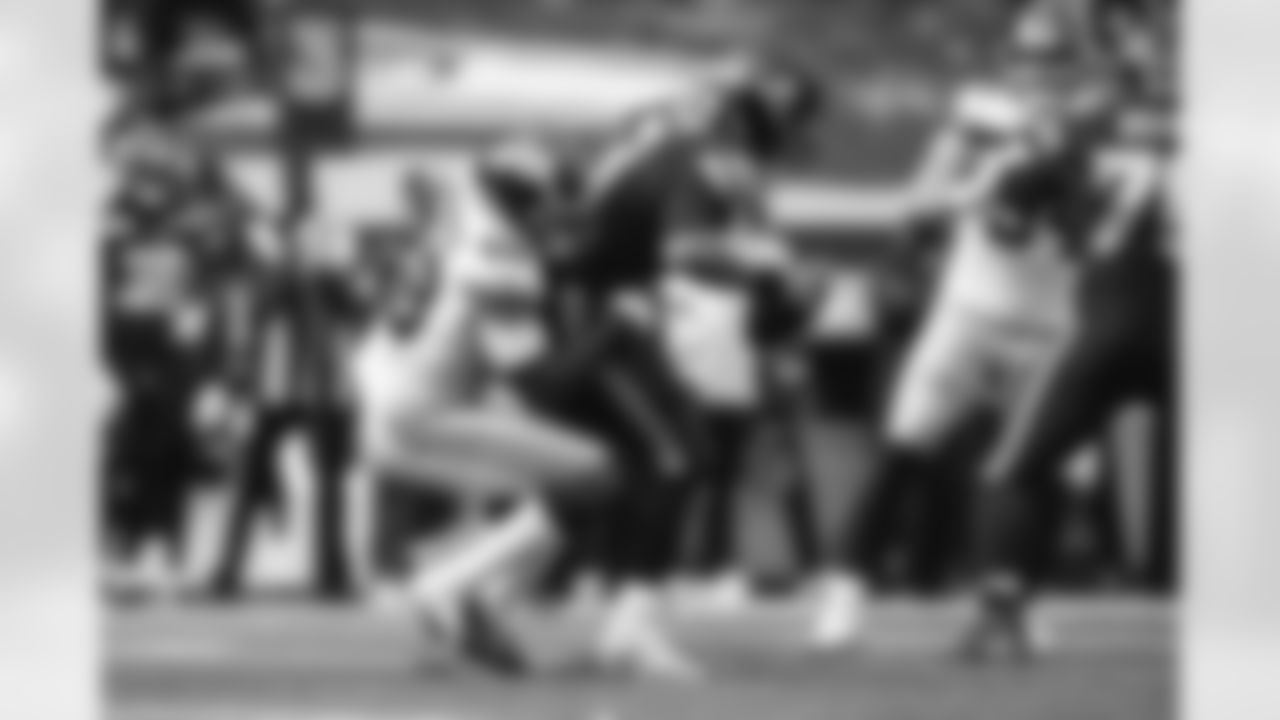
Tae Crowder (48)
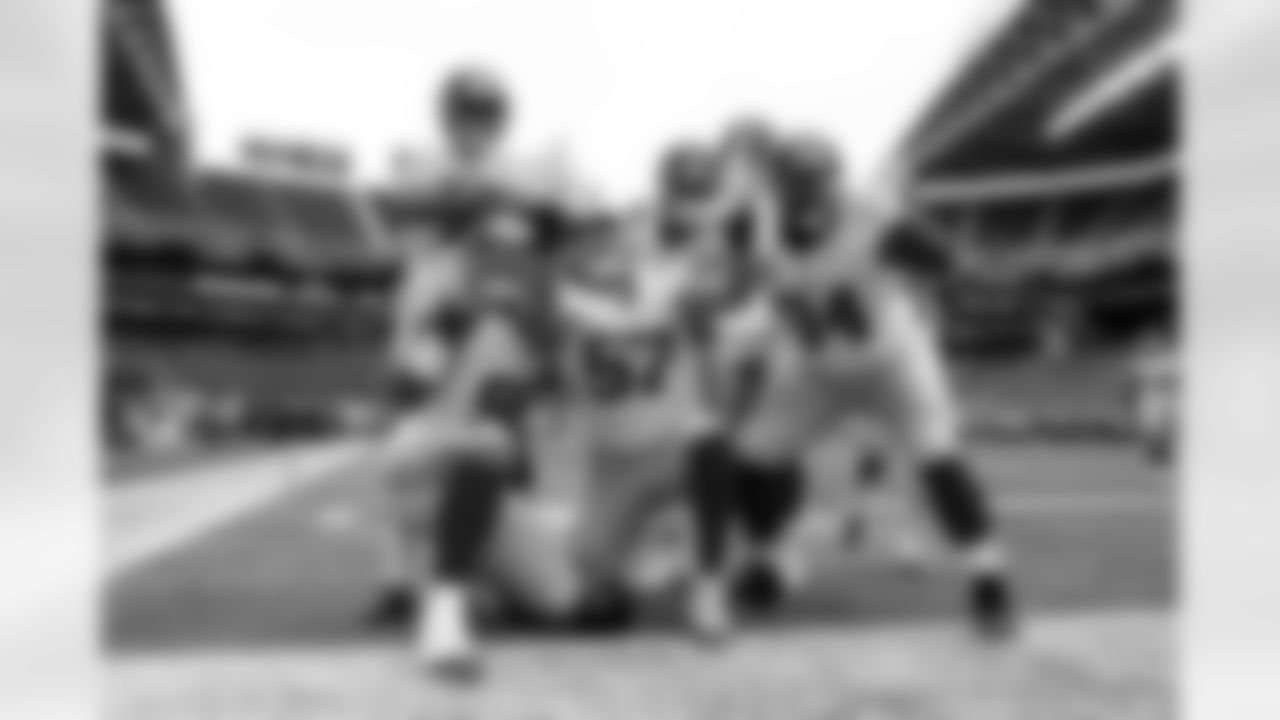
Austin Johnson (98), Tae Crowder (48), Niko Lalos (57), Xavier McKinney (29), David Mayo (55), Dalvin Tomlinson (94)
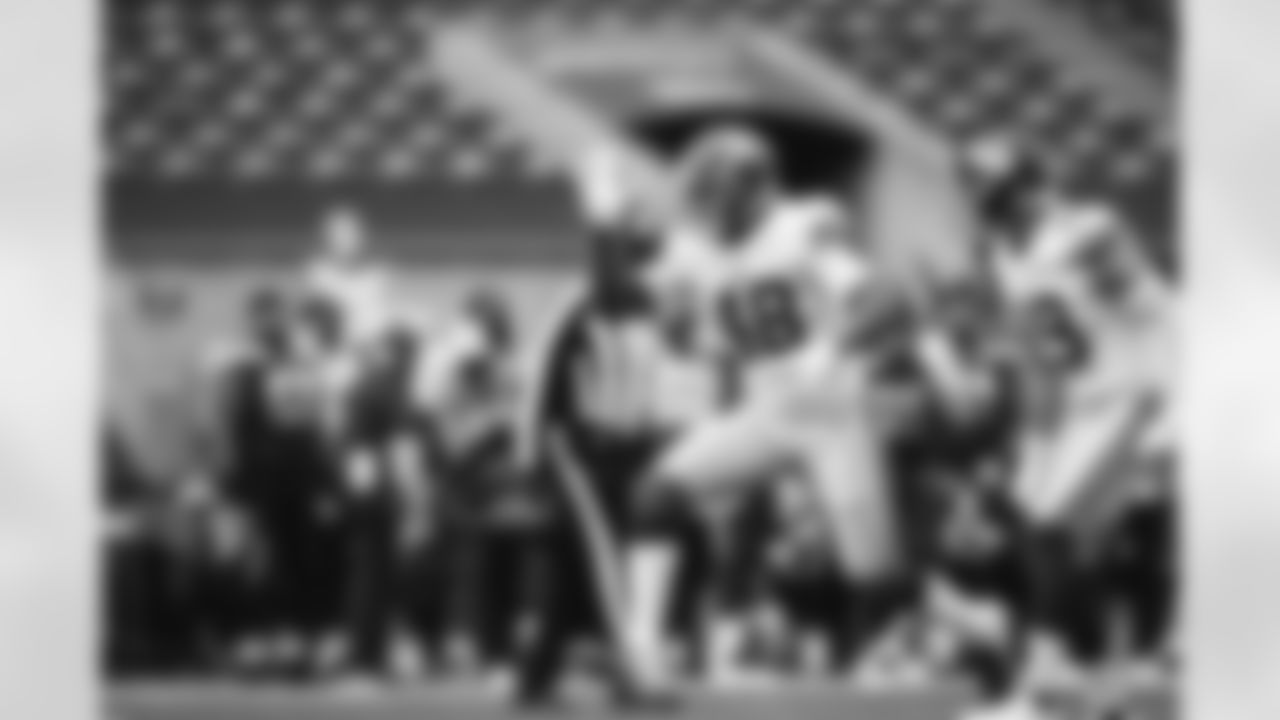
Tae Crowder (48), Carter Coughlin (49)
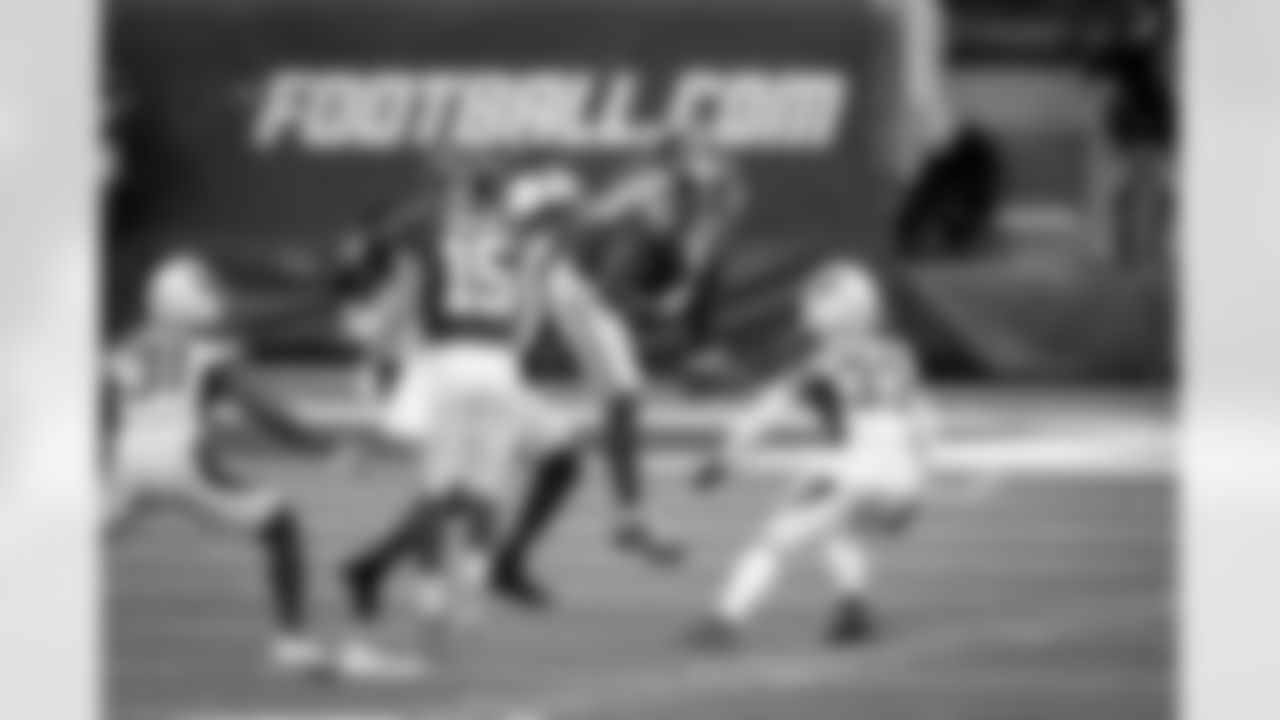
Sterling Shepard (87)
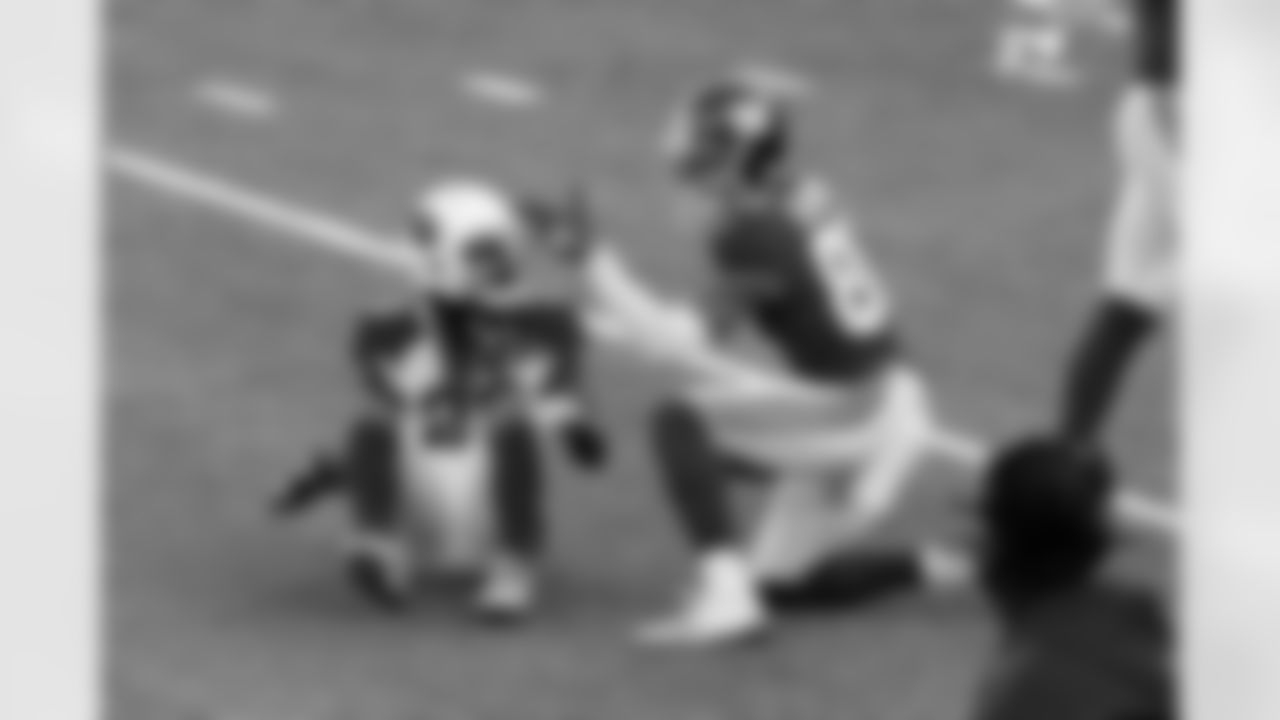
Darius Slayton (86)
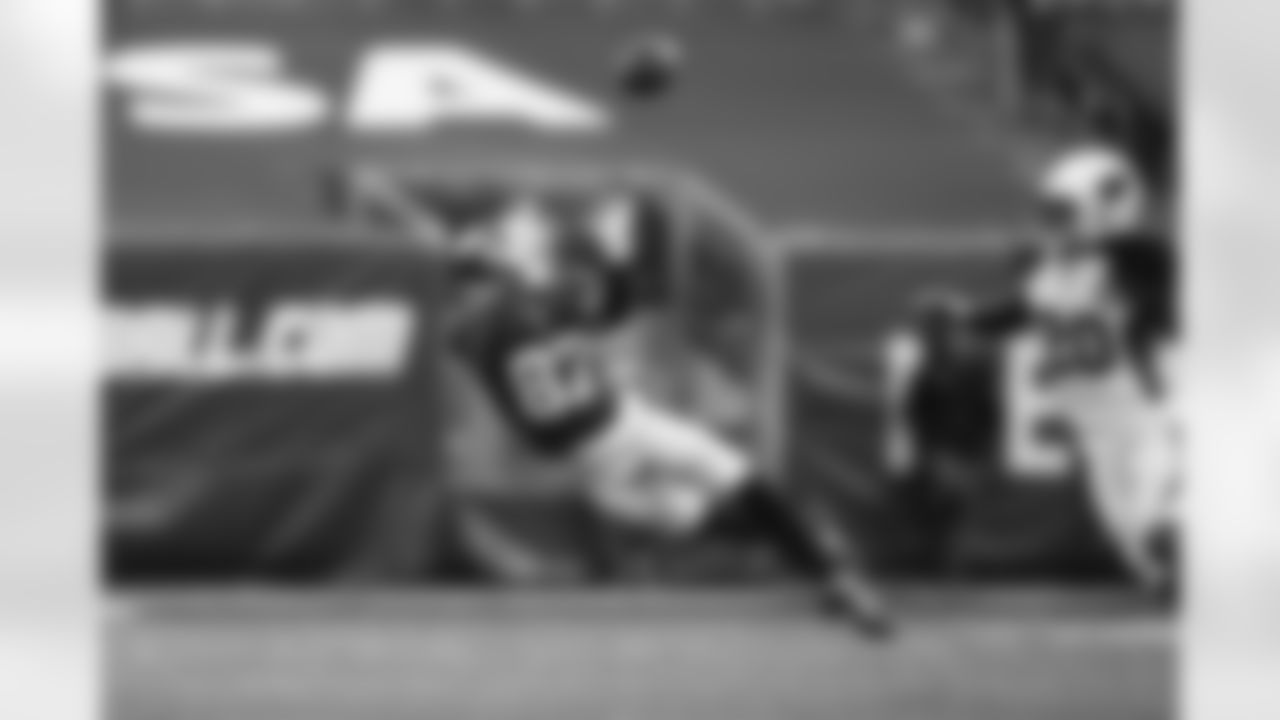
Sterling Shepard (87)

Evan Engram (88)
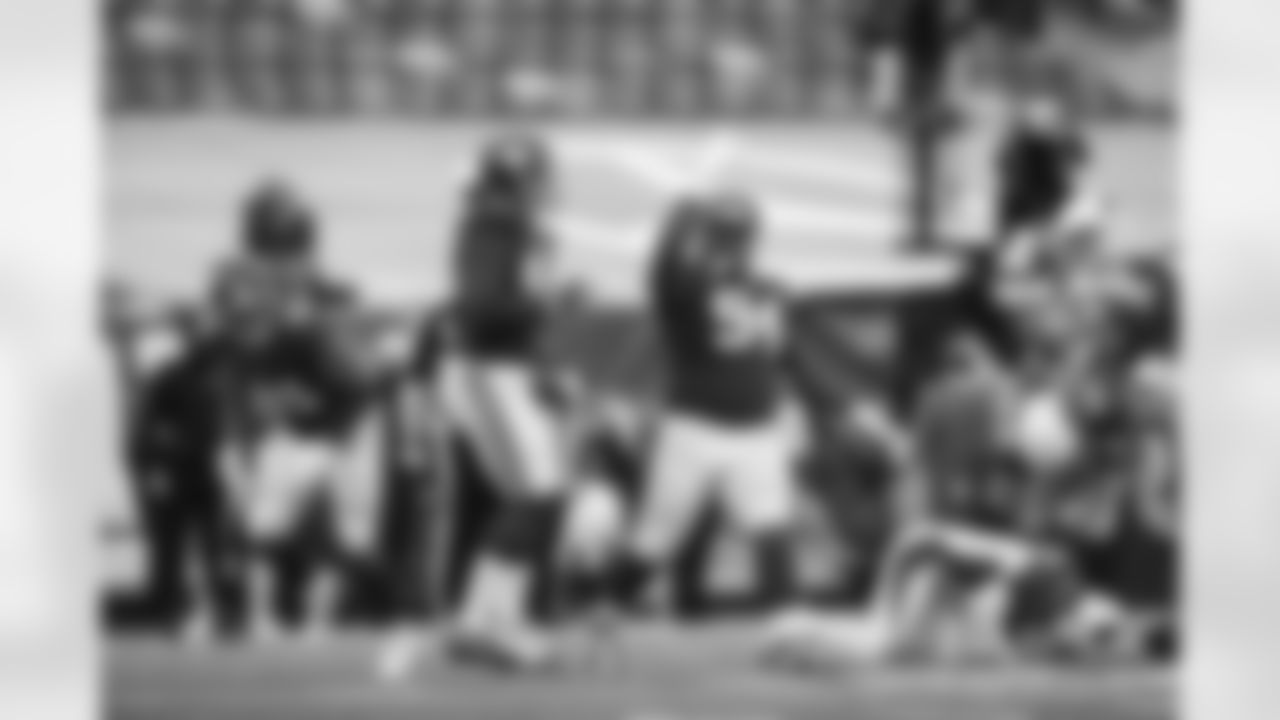
Dalvin Tomlinson (94), Leonard Williams (99)
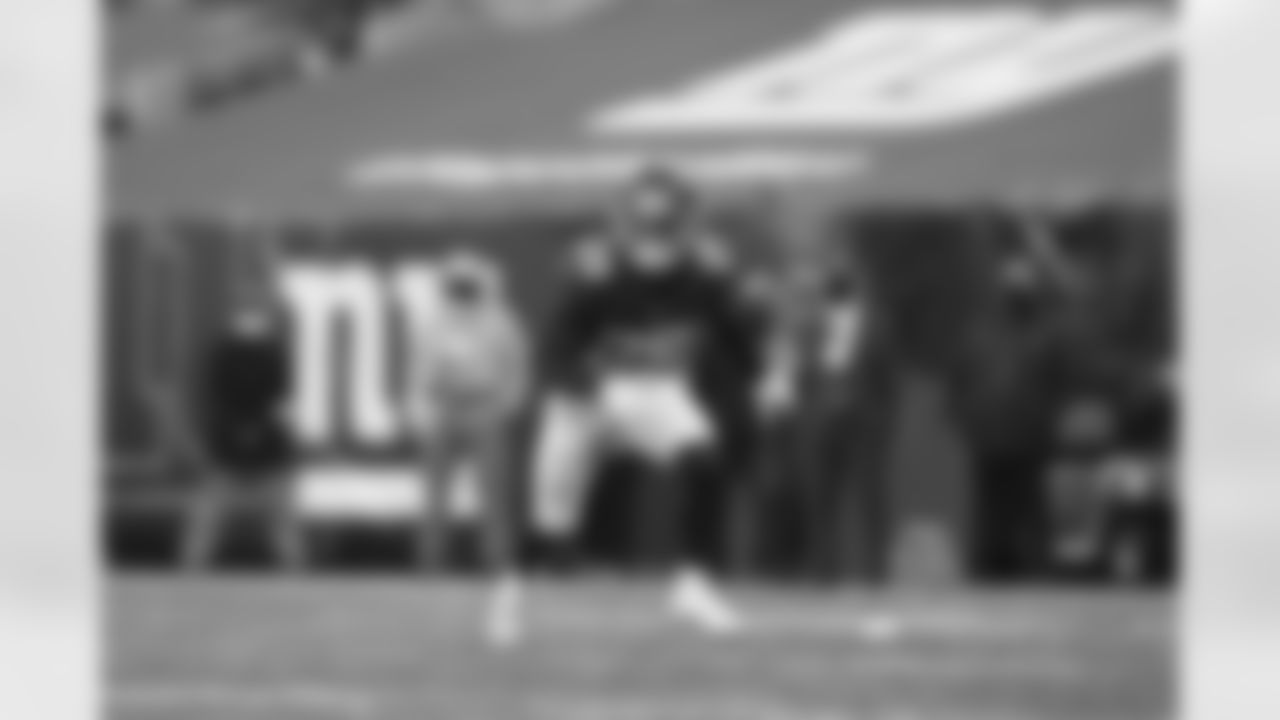
S Xavier McKinney
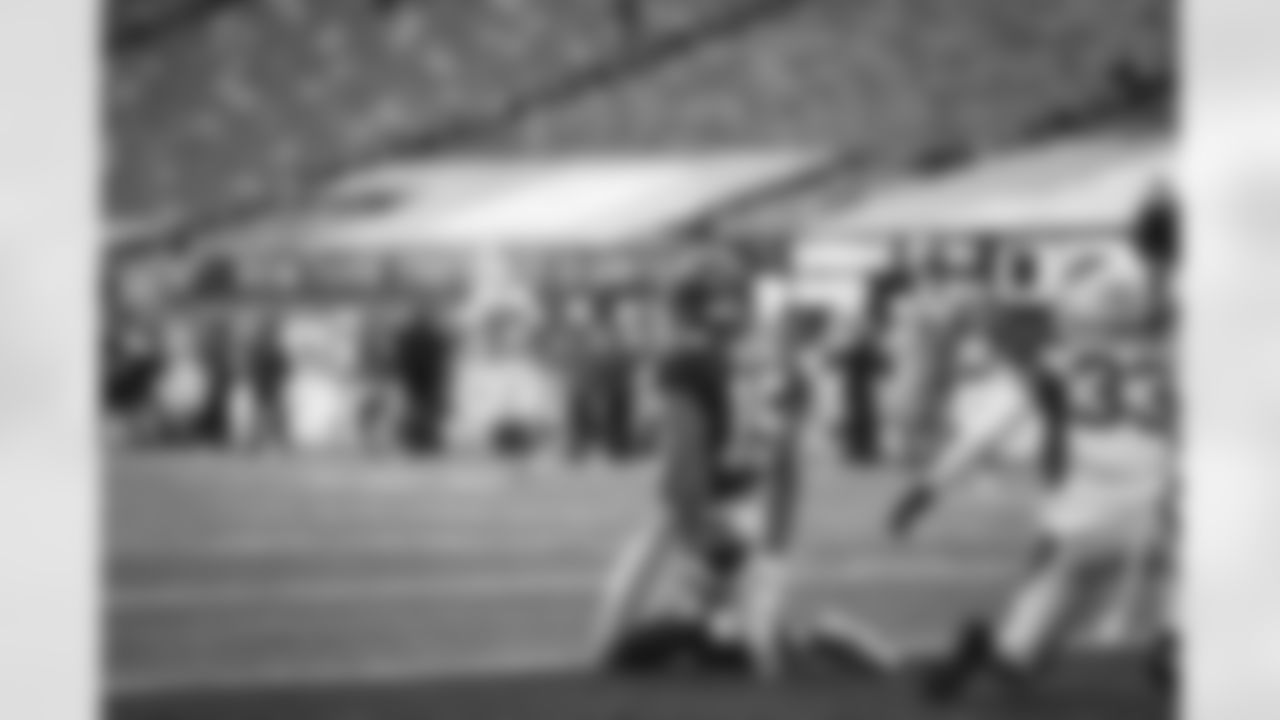
Golden Tate (15)
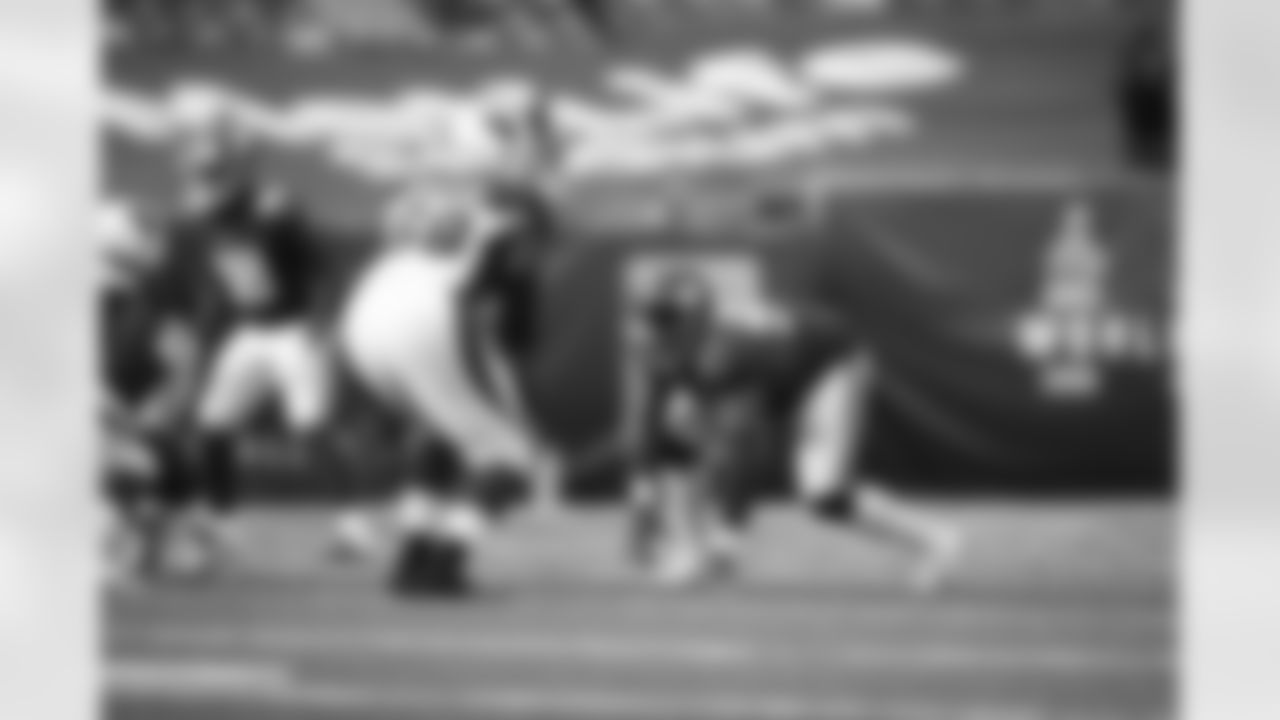
Dexter Lawrence (97),
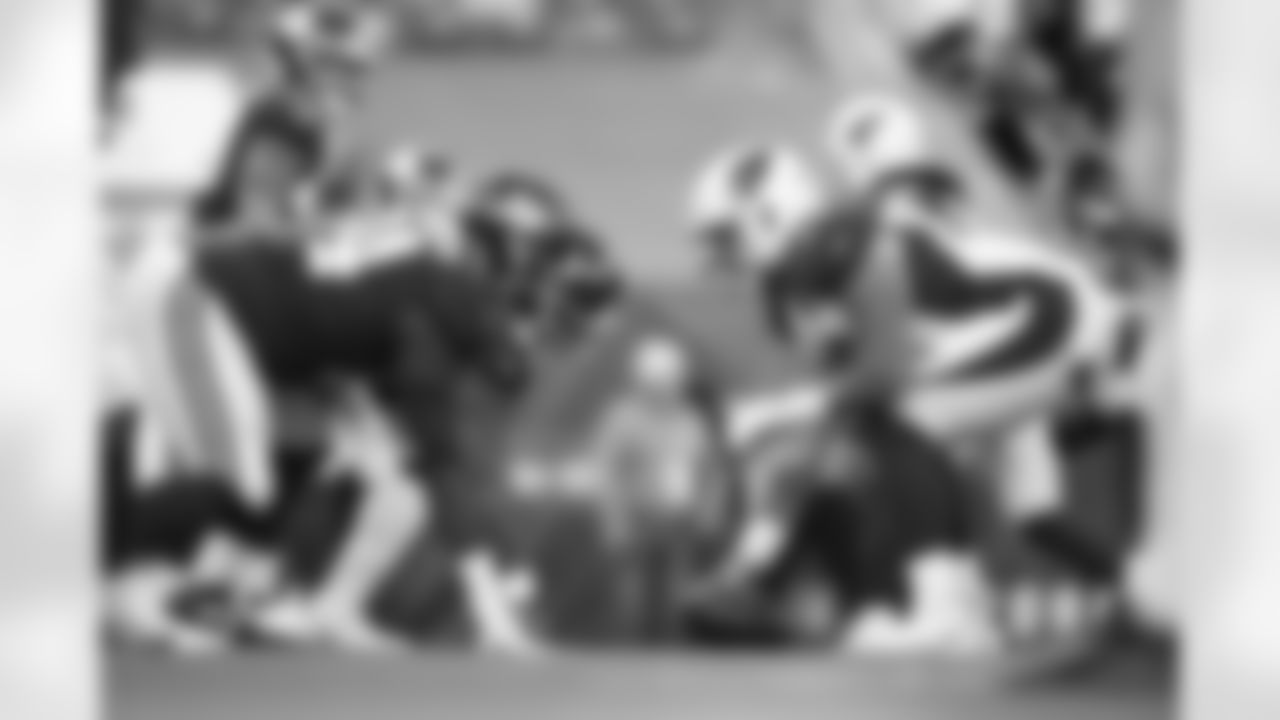
Dalvin Tomlinson (94)
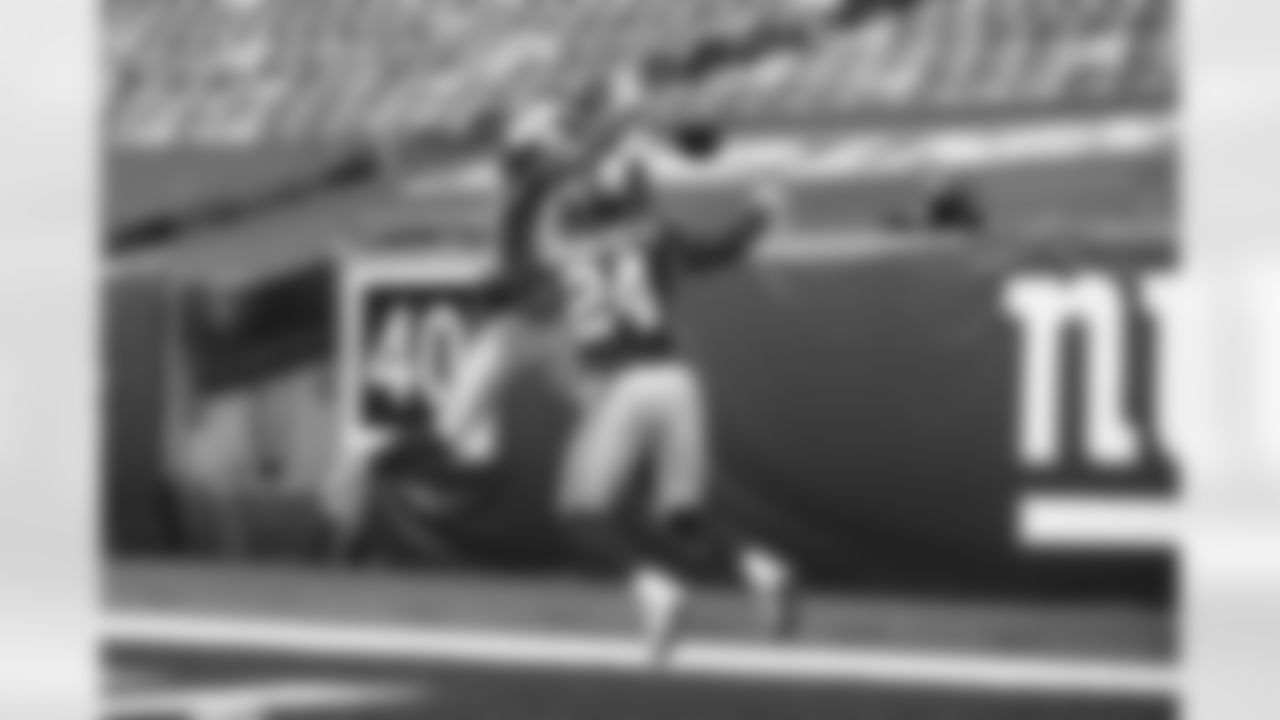
James Bradberry (24)
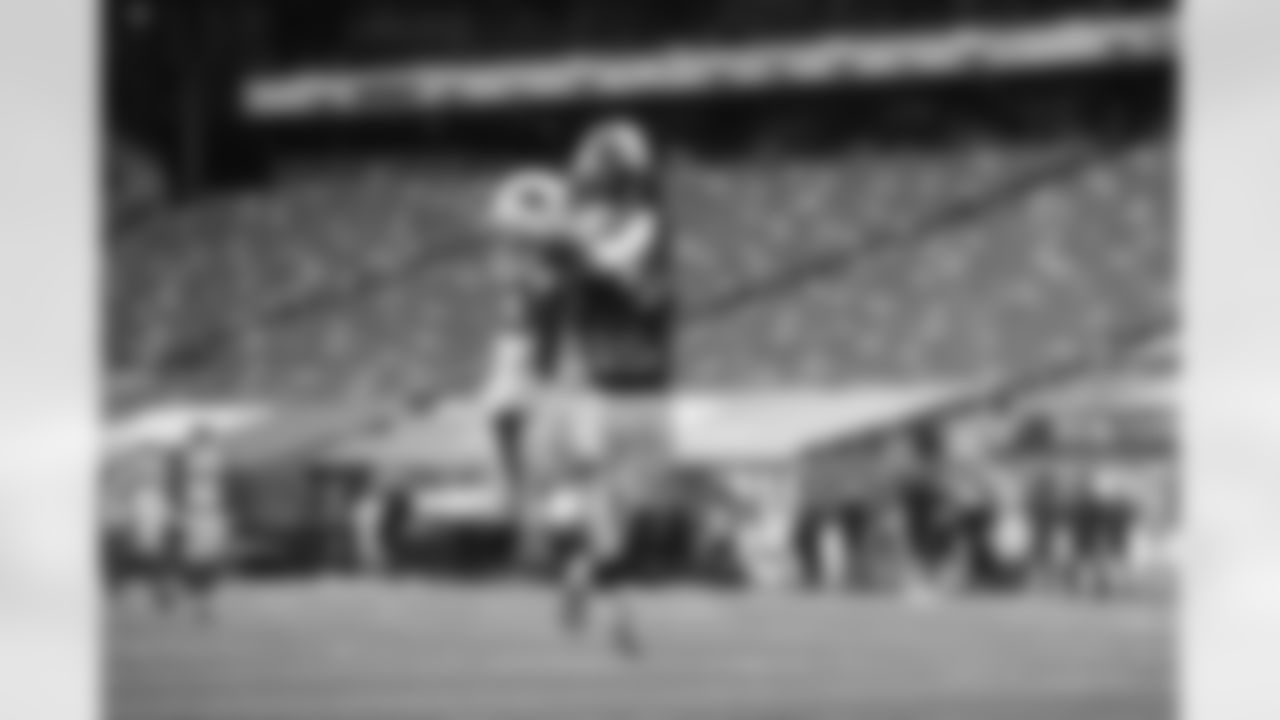
Golden Tate (15)
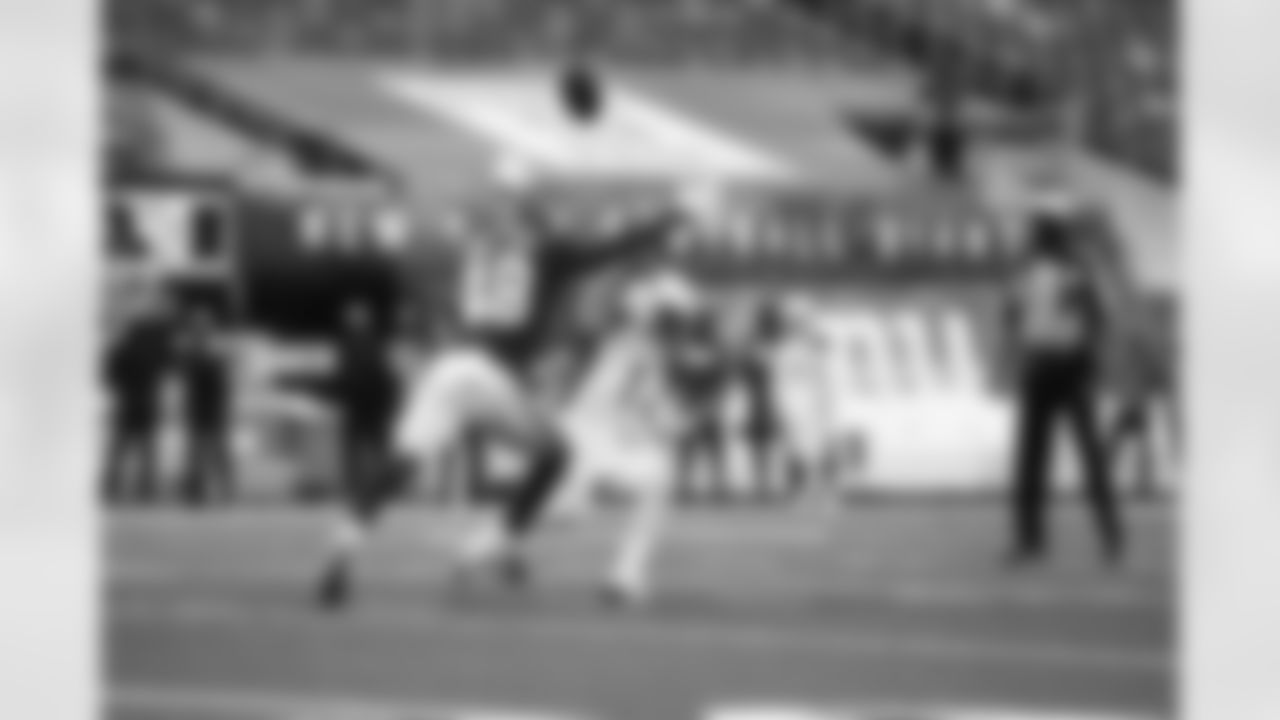
Tae Crowder (48)
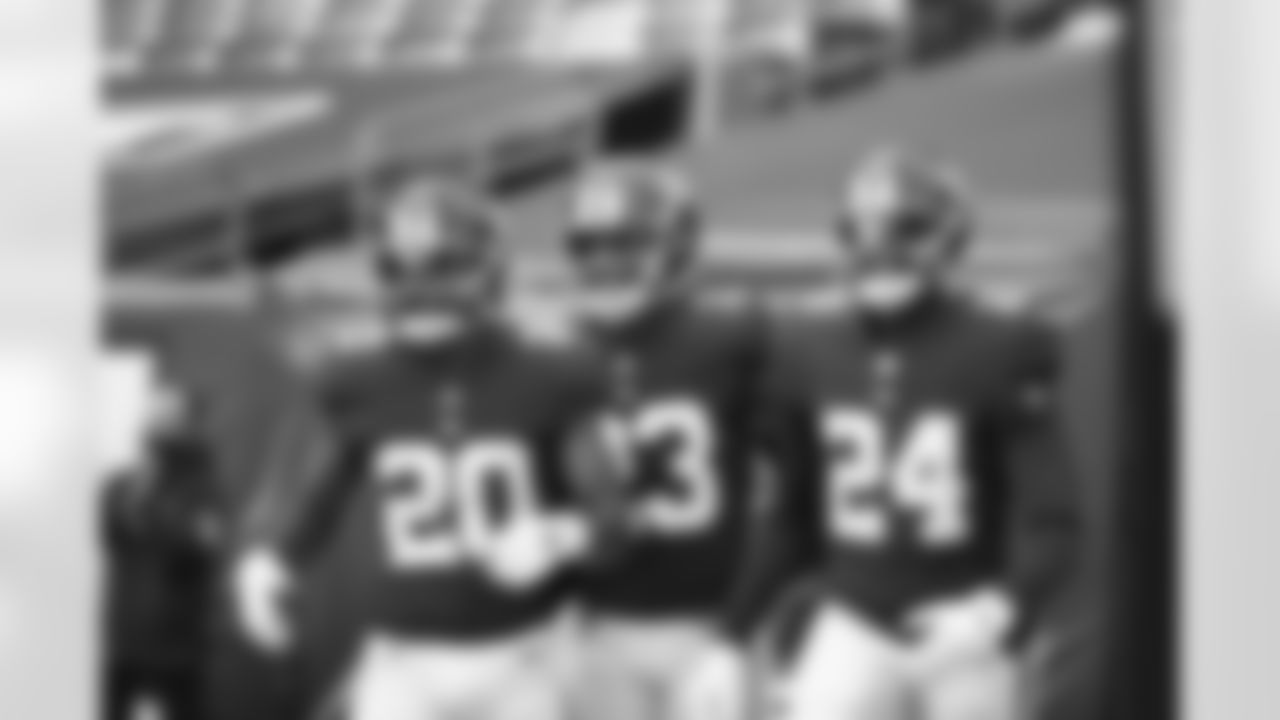
Julian Love (20), Logan Ryan (23), James Bradberry (24)
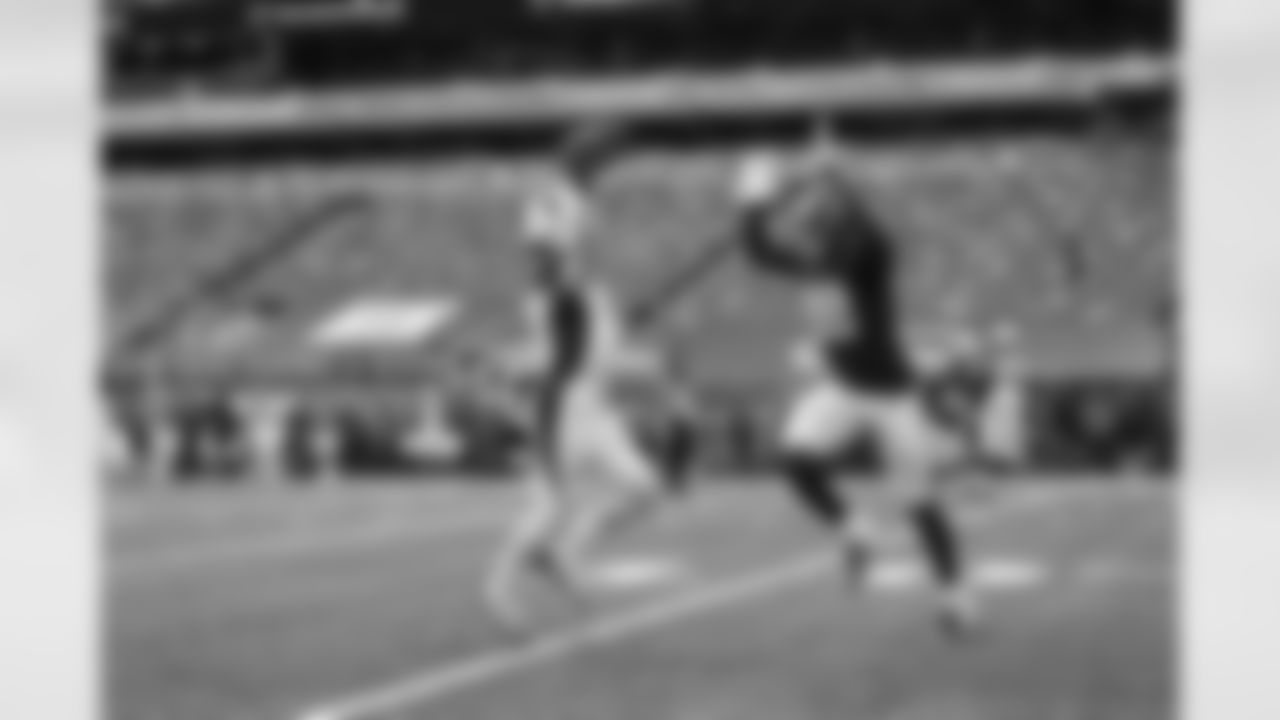
Tae Crowder (48)
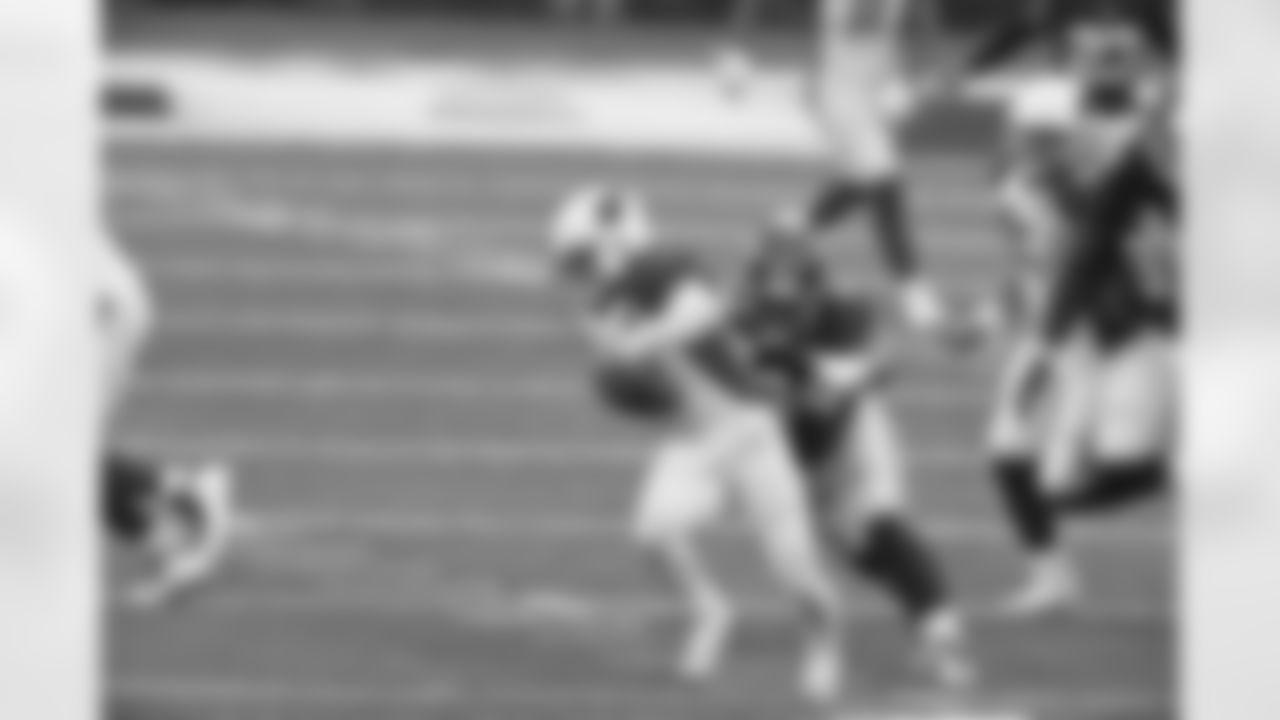
New York Giants defensive tackle Dexter Lawrence (97) during a week 14 regular season football game against the Arizona Cardinals at MetLife Stadium on December 13th, 2020 in East Rutherford, New Jersey
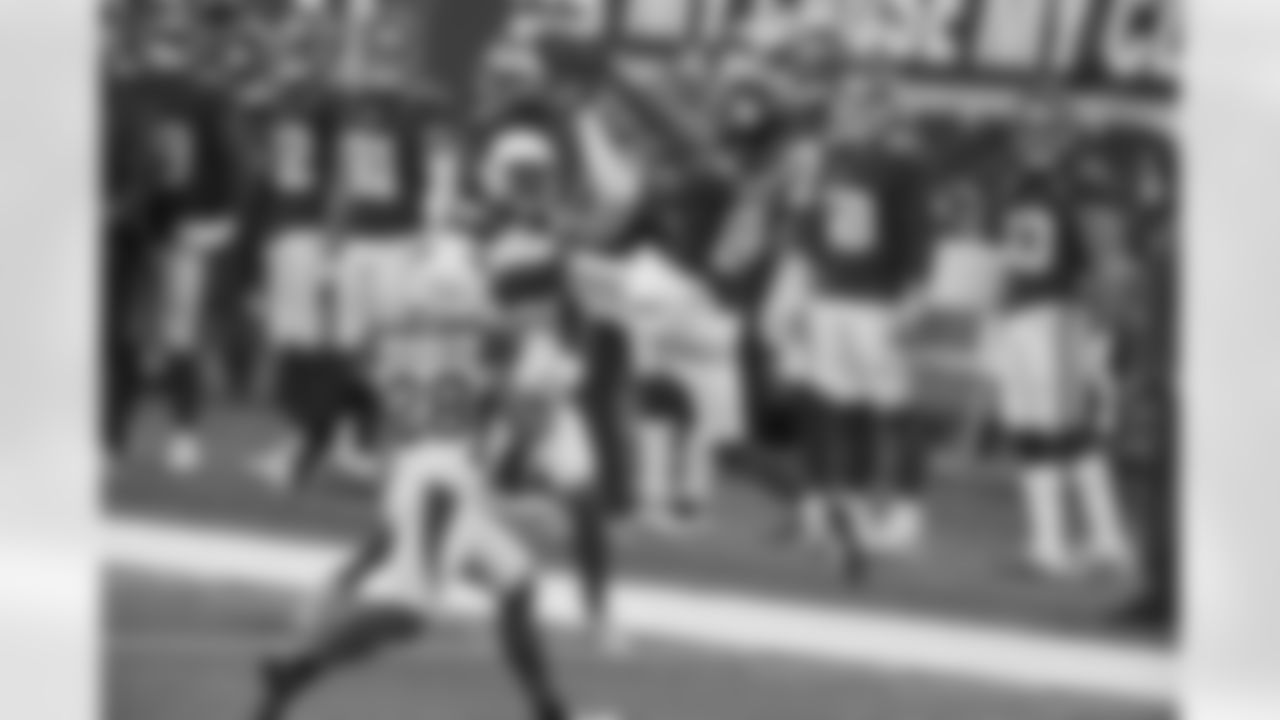
New York Giants wide receiver Darius Slayton (86) during a week 14 regular season football game against the Arizona Cardinals at MetLife Stadium on December 13th, 2020 in East Rutherford, New Jersey
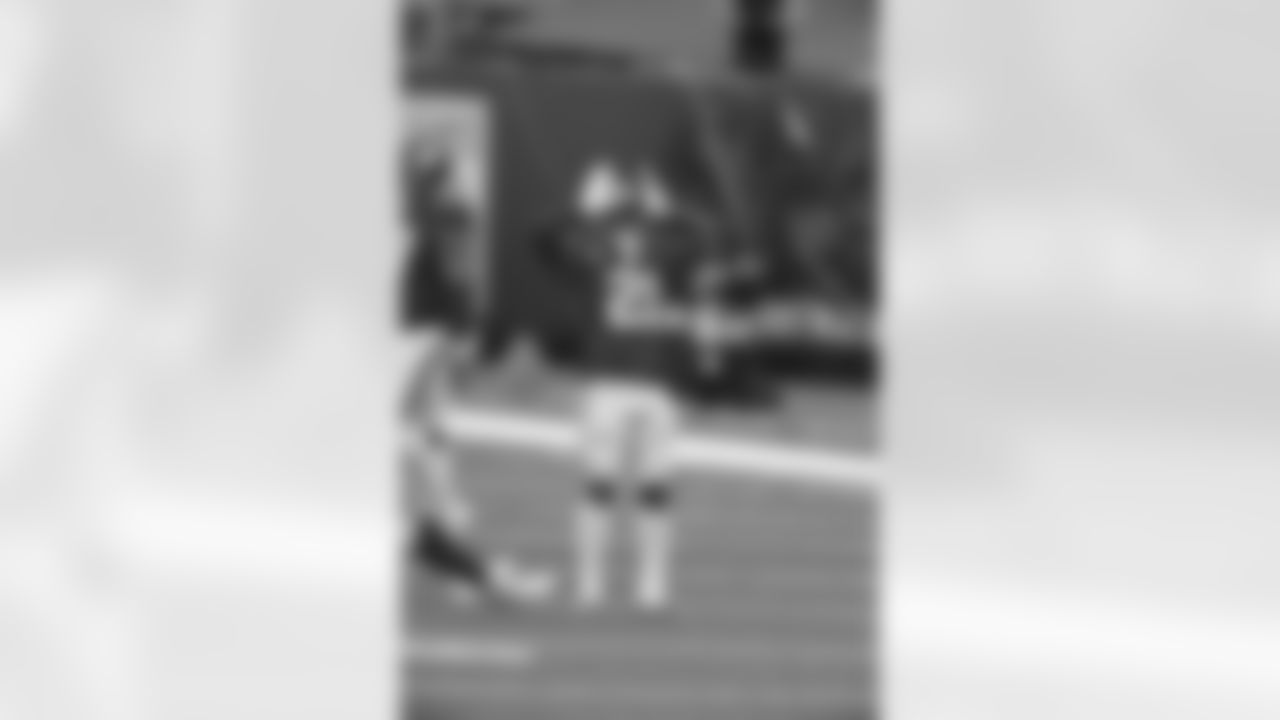
New York Giants safety Jabrill Peppers (21) during a week 14 regular season football game against the Arizona Cardinals at MetLife Stadium on December 13th, 2020 in East Rutherford, New Jersey
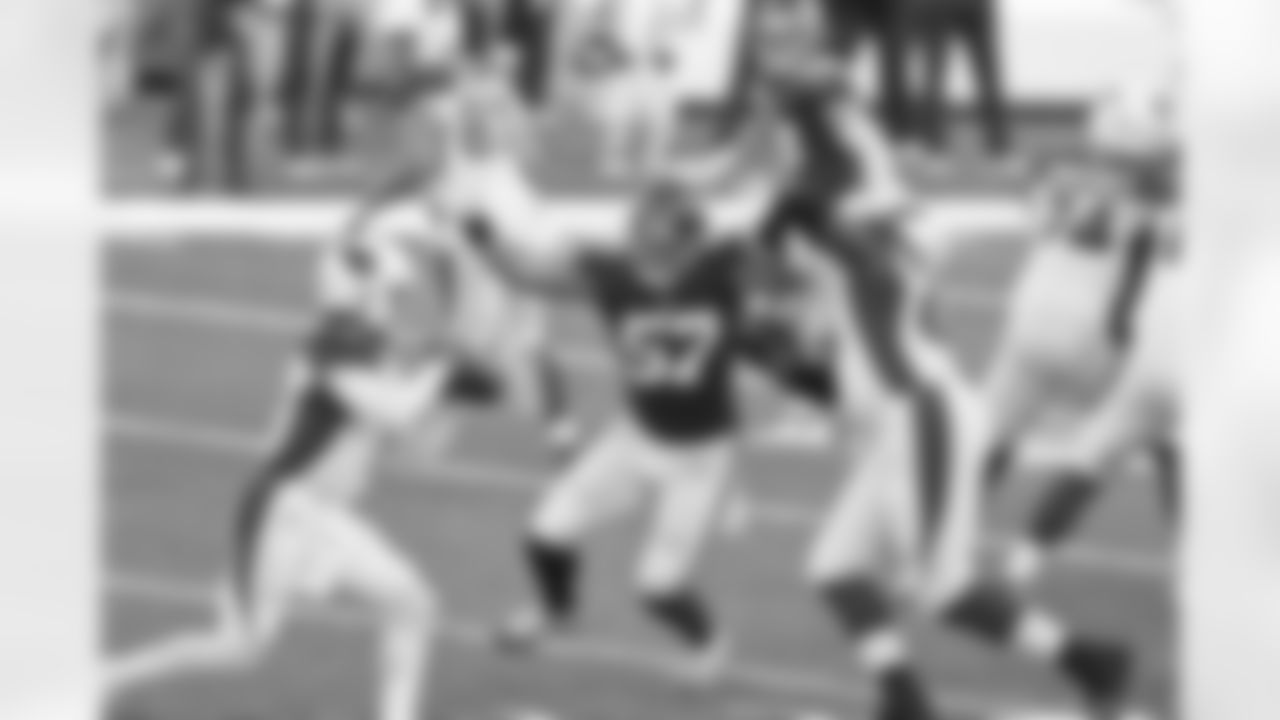
New York Giants defensive end Niko Lalos (57) during a week 14 regular season football game against the Arizona Cardinals at MetLife Stadium on December 13th, 2020 in East Rutherford, New Jersey
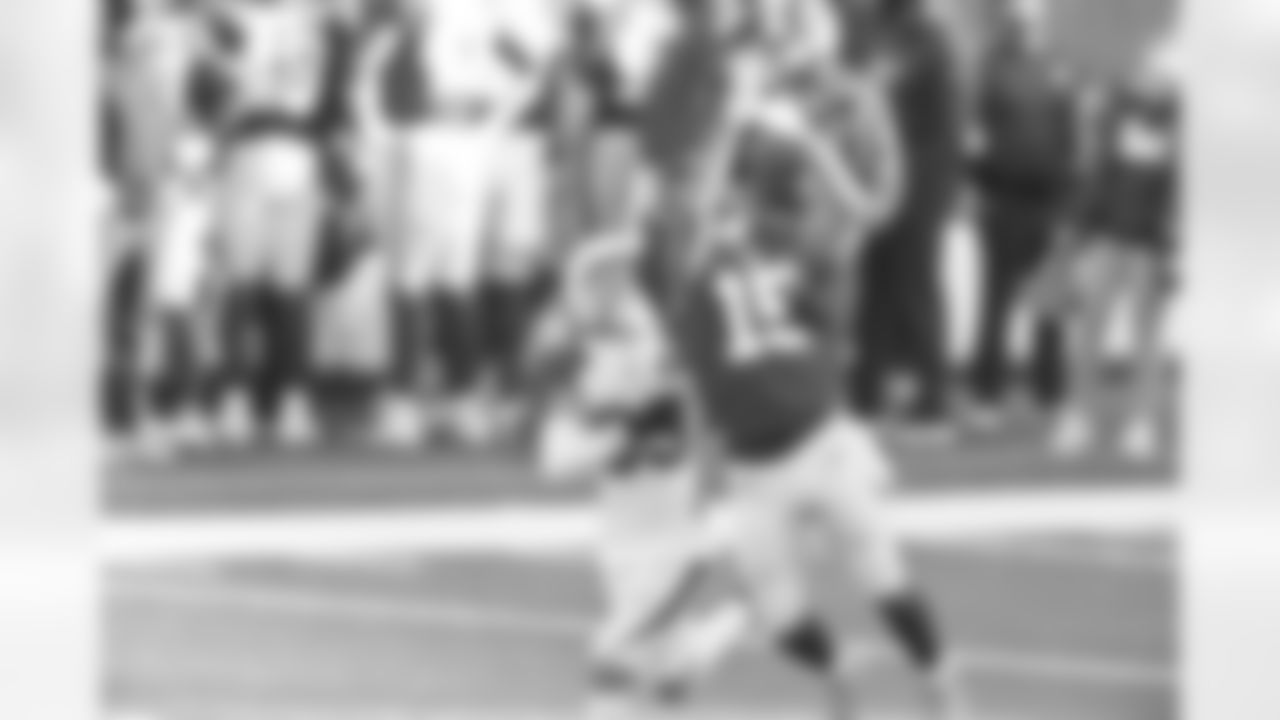
New York Giants wide receiver Golden Tate (15) during a week 14 regular season football game against the Arizona Cardinals at MetLife Stadium on December 13th, 2020 in East Rutherford, New Jersey
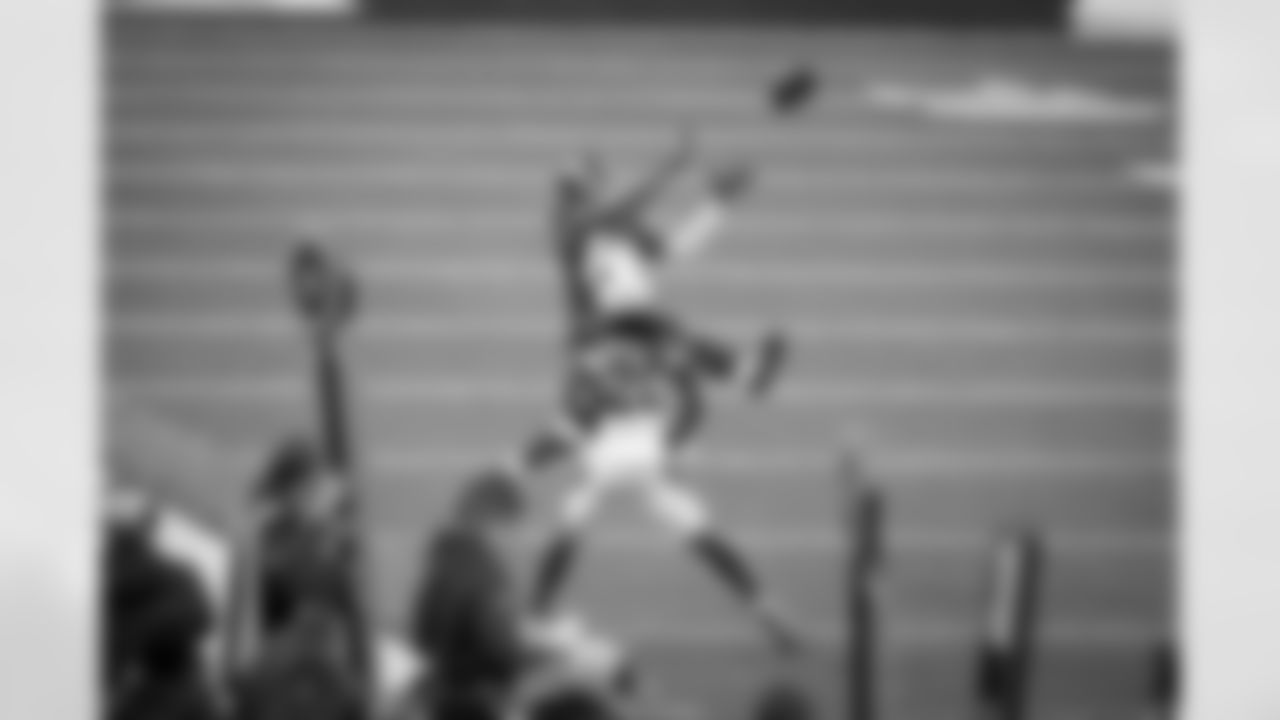
Darius Slayton (86)
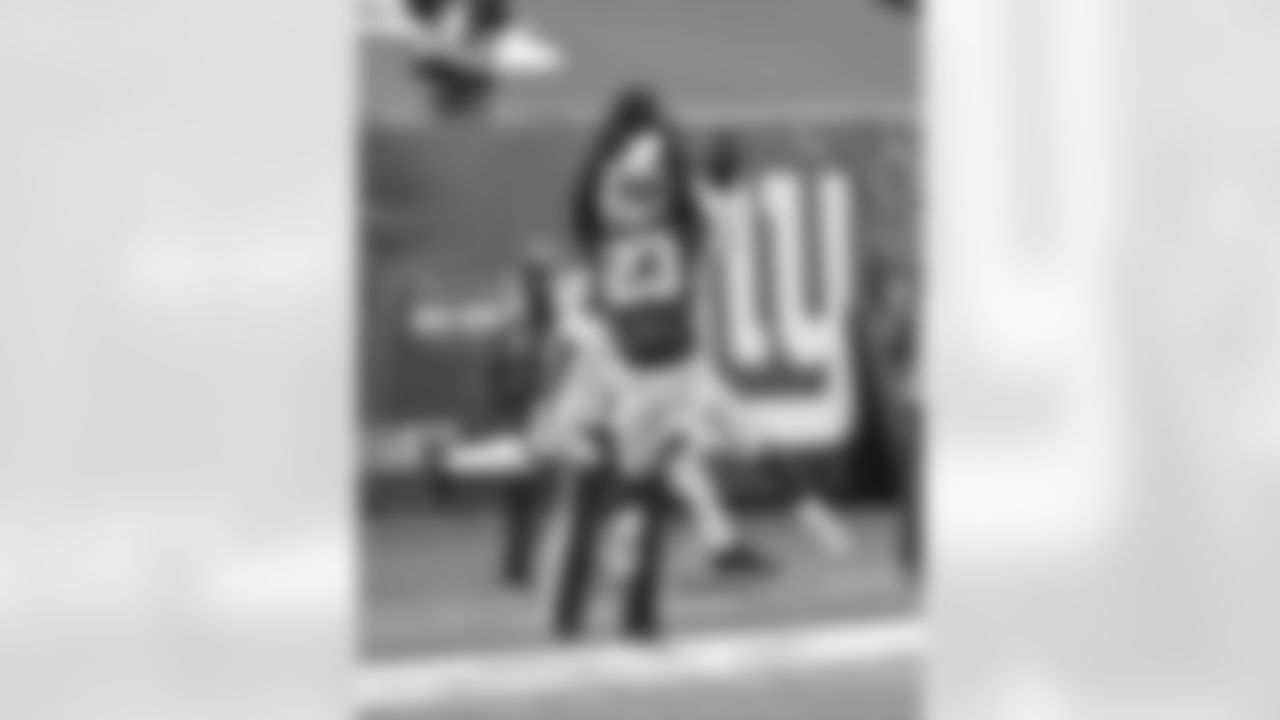
New York Giants cornerback Logan Ryan (23) breaks up a pass during a week 14 regular season football game against the Arizona Cardinals at MetLife Stadium on December 13th, 2020 in East Rutherford, New Jersey
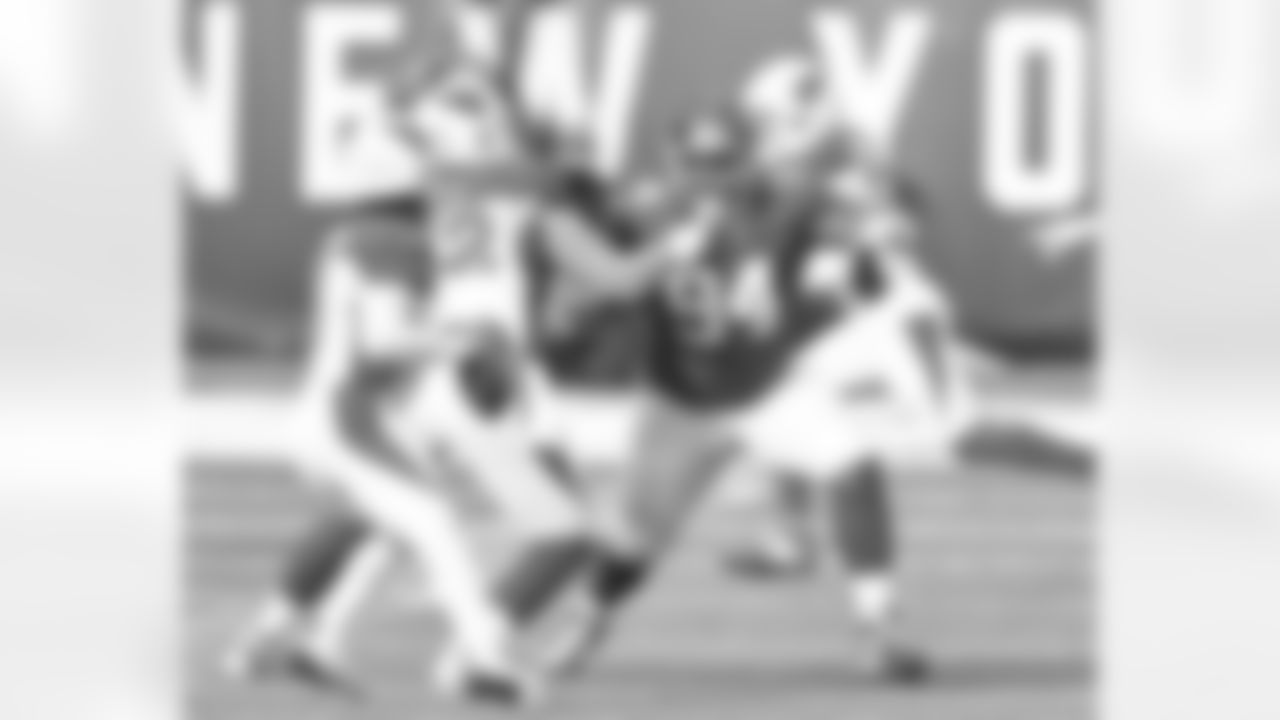
New York Giants defensive tackle Dalvin Tomlinson (94) during a week 14 regular season football game against the Arizona Cardinals at MetLife Stadium on December 13th, 2020 in East Rutherford, New Jersey
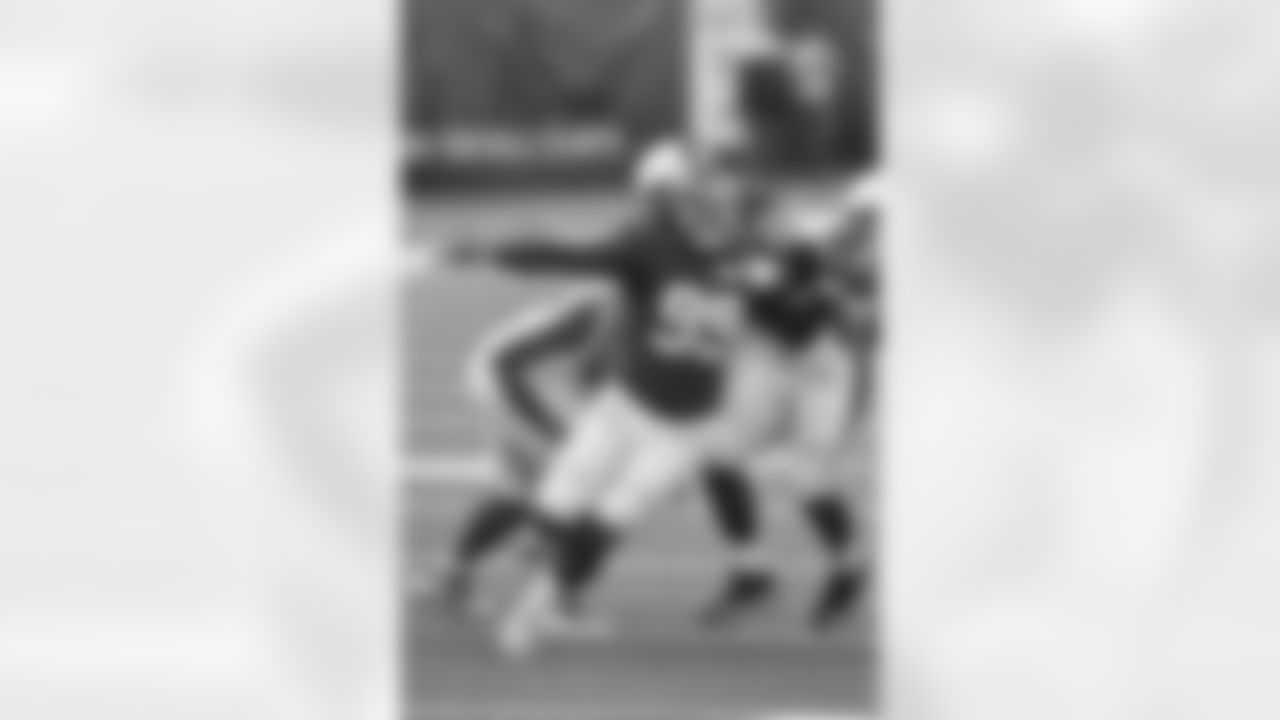
New York Giants defensive end Leonard Williams (99) during a week 14 regular season football game against the Arizona Cardinals at MetLife Stadium on December 13th, 2020 in East Rutherford, New Jersey
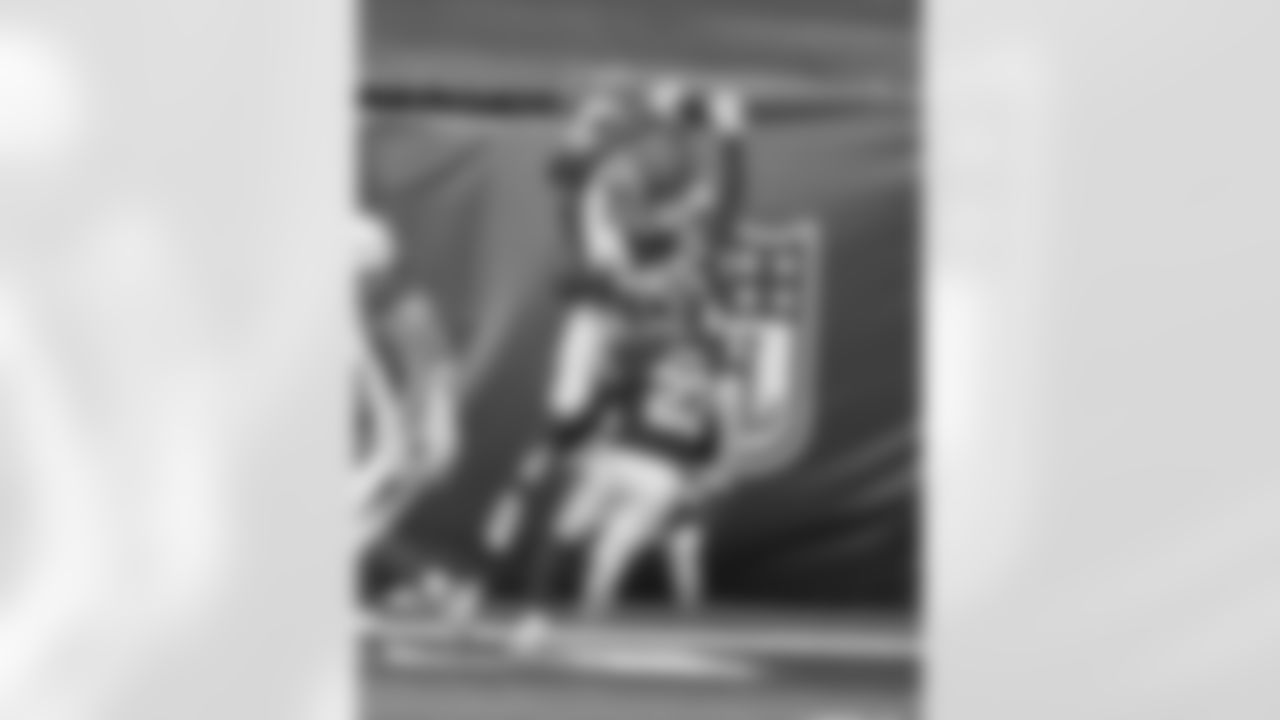
New York Giants cornerback James Bradberry (24)breaks up a pass during a week 14 regular season football game against the Arizona Cardinals at MetLife Stadium on December 13th, 2020 in East Rutherford, New Jersey
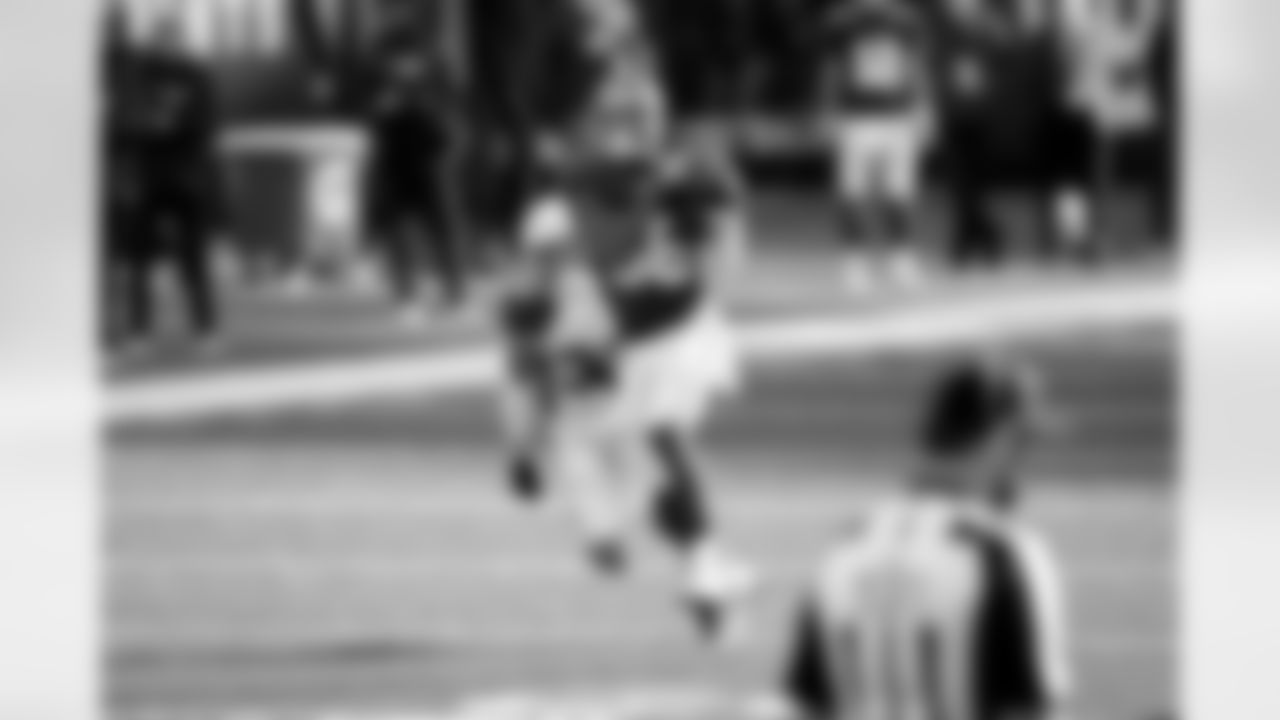
Darius Slayton (86)
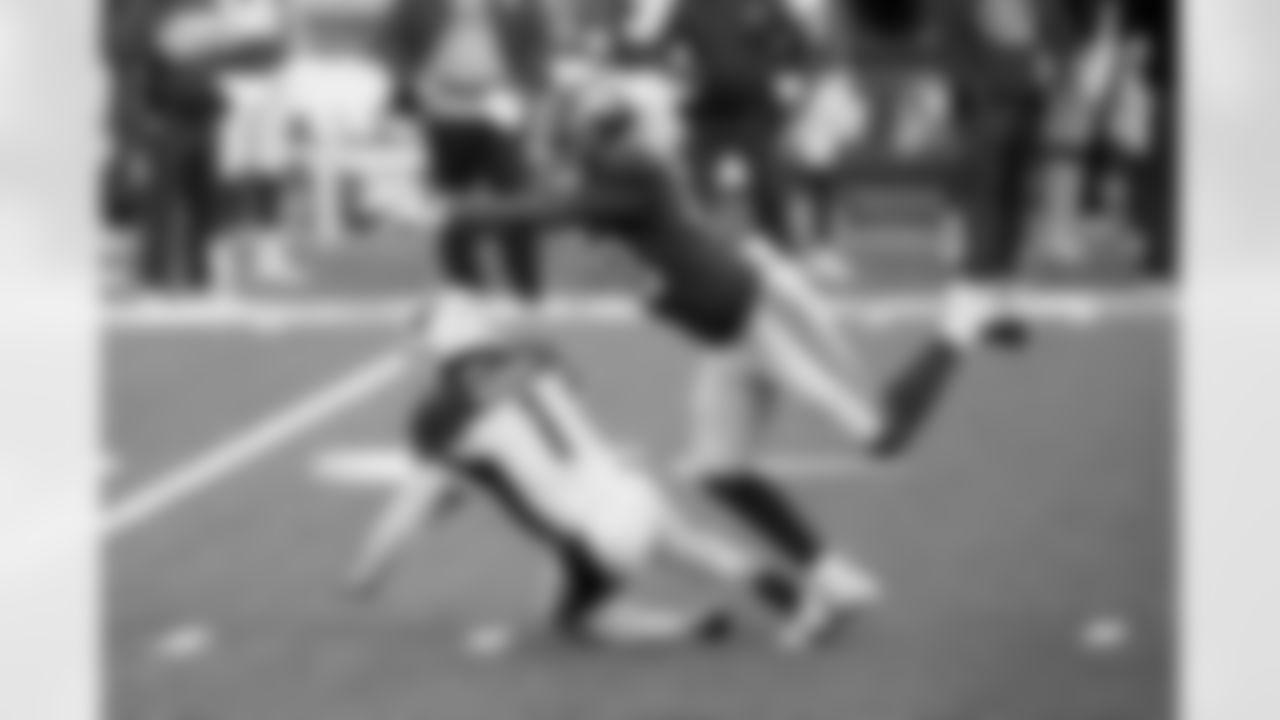
Tae Crowder (48)
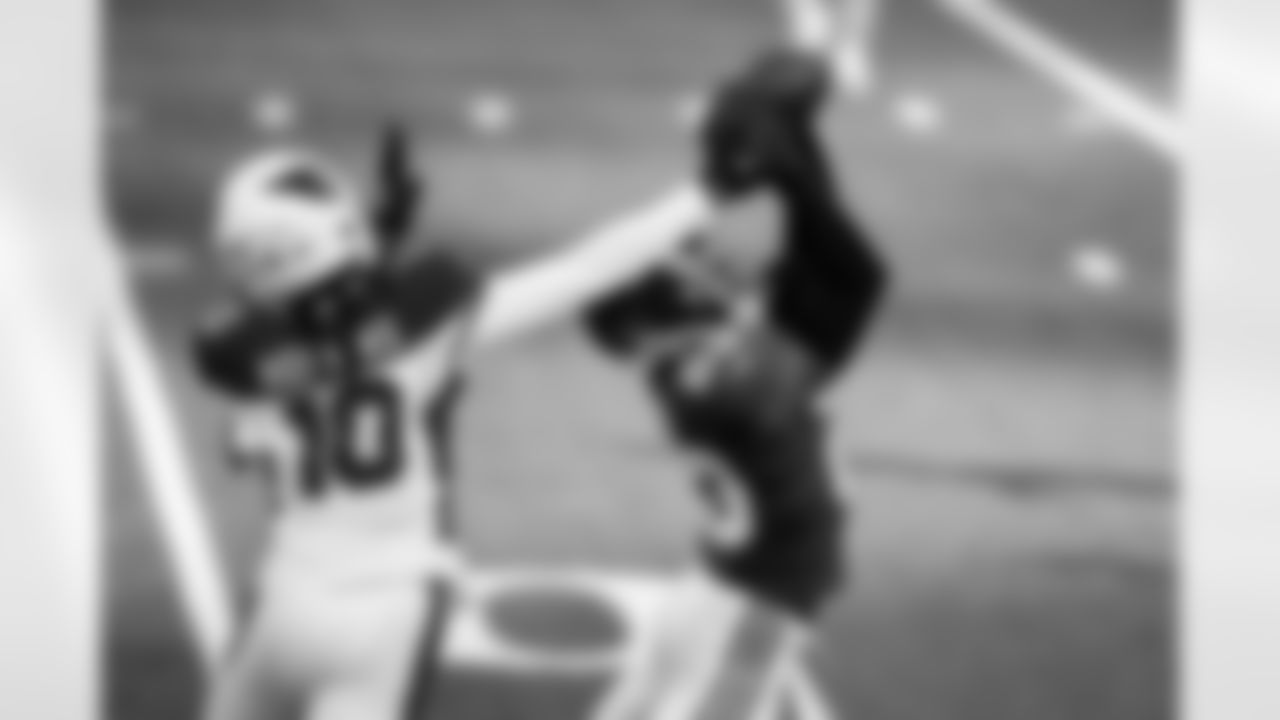
Logan Ryan (23)

Wayne Gallman (22)
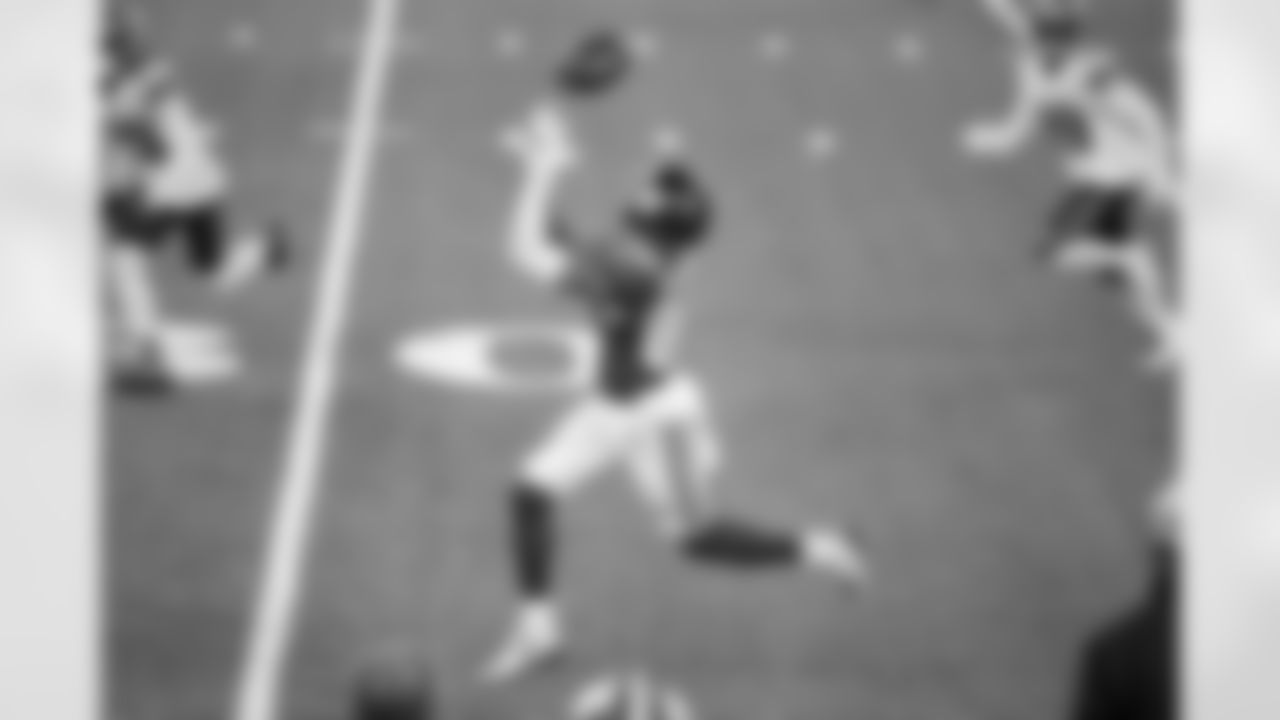
Darius Slayton (86)
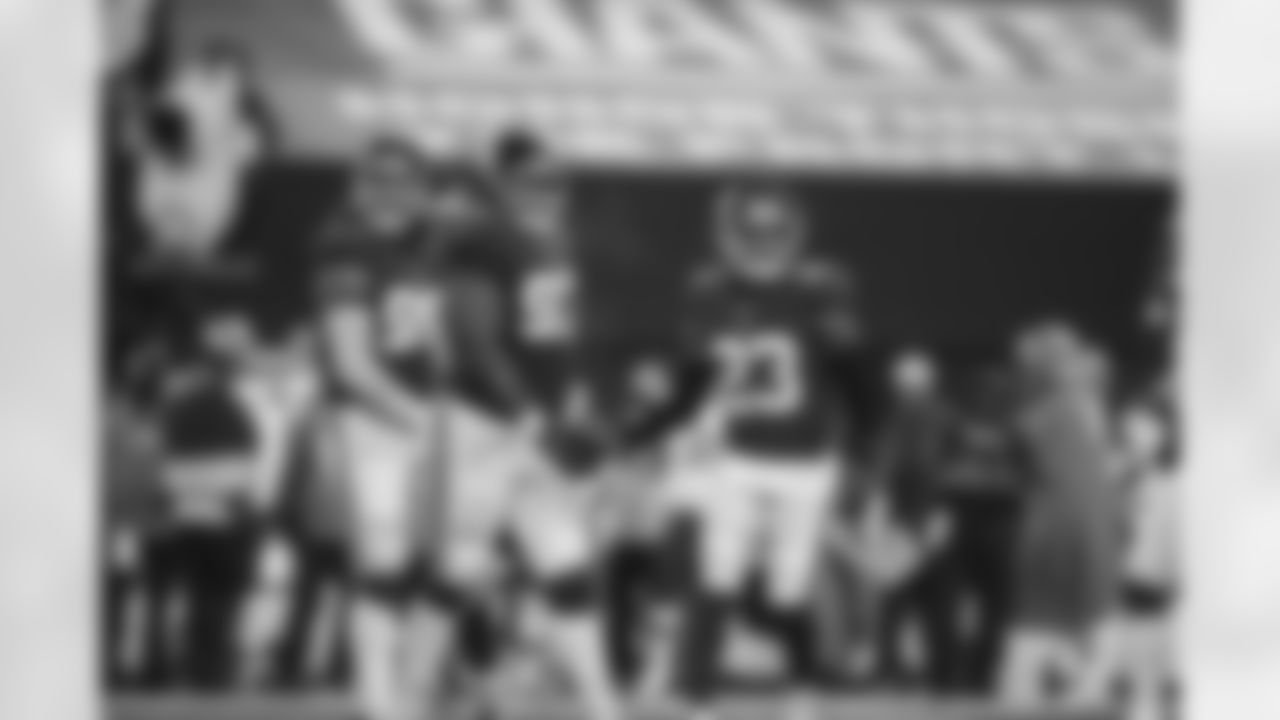
Leonard Williams (99), Dexter Lawrence (97), Logan Ryan (23)
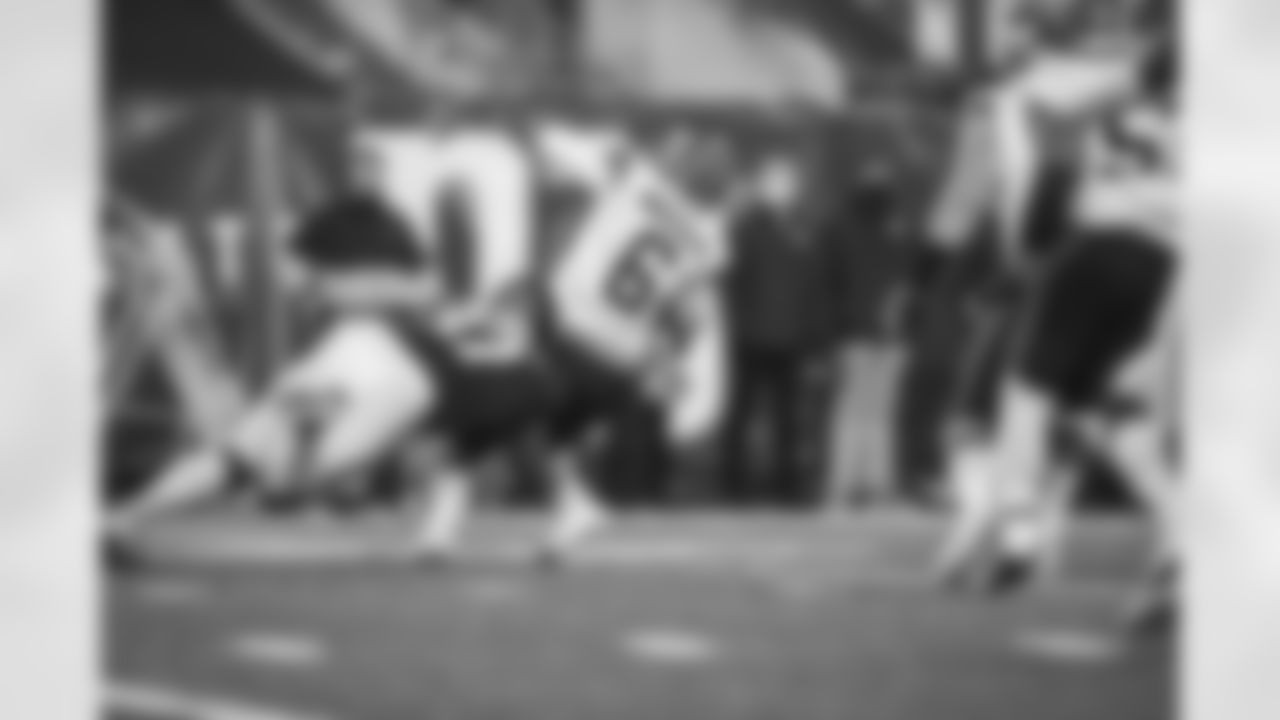
Dexter Lawrence (97)
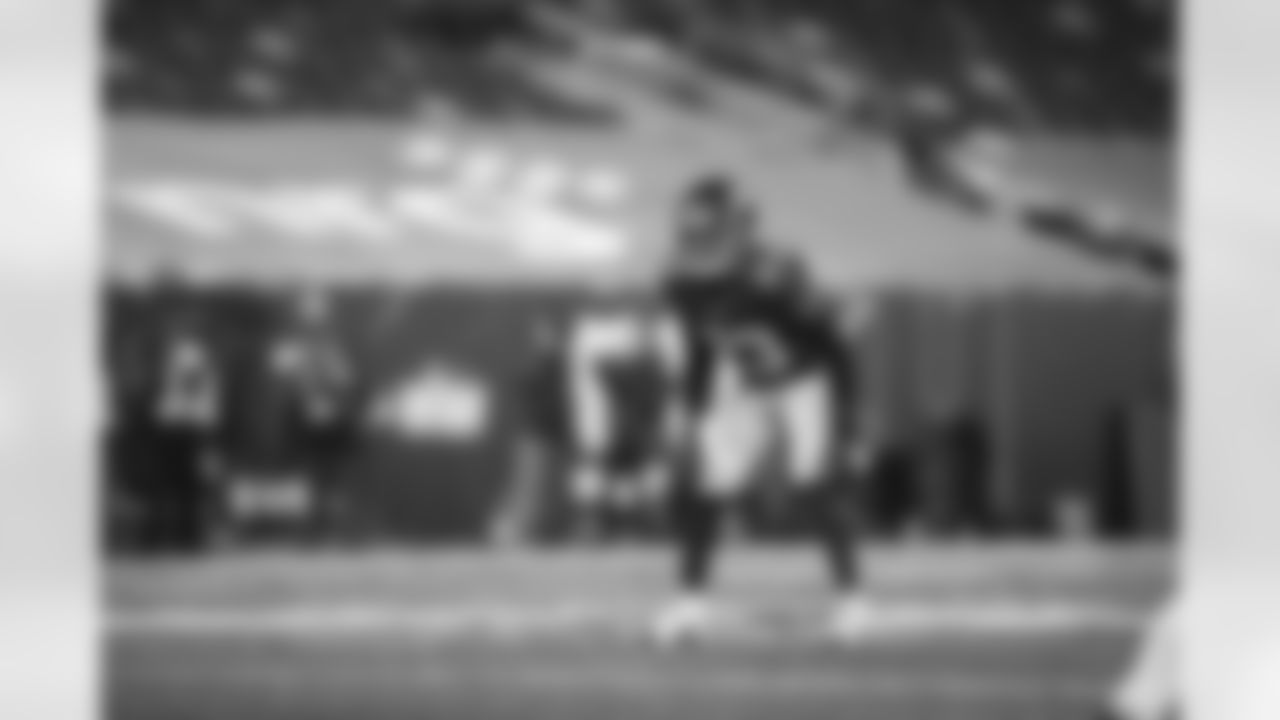
Logan Ryan (23)
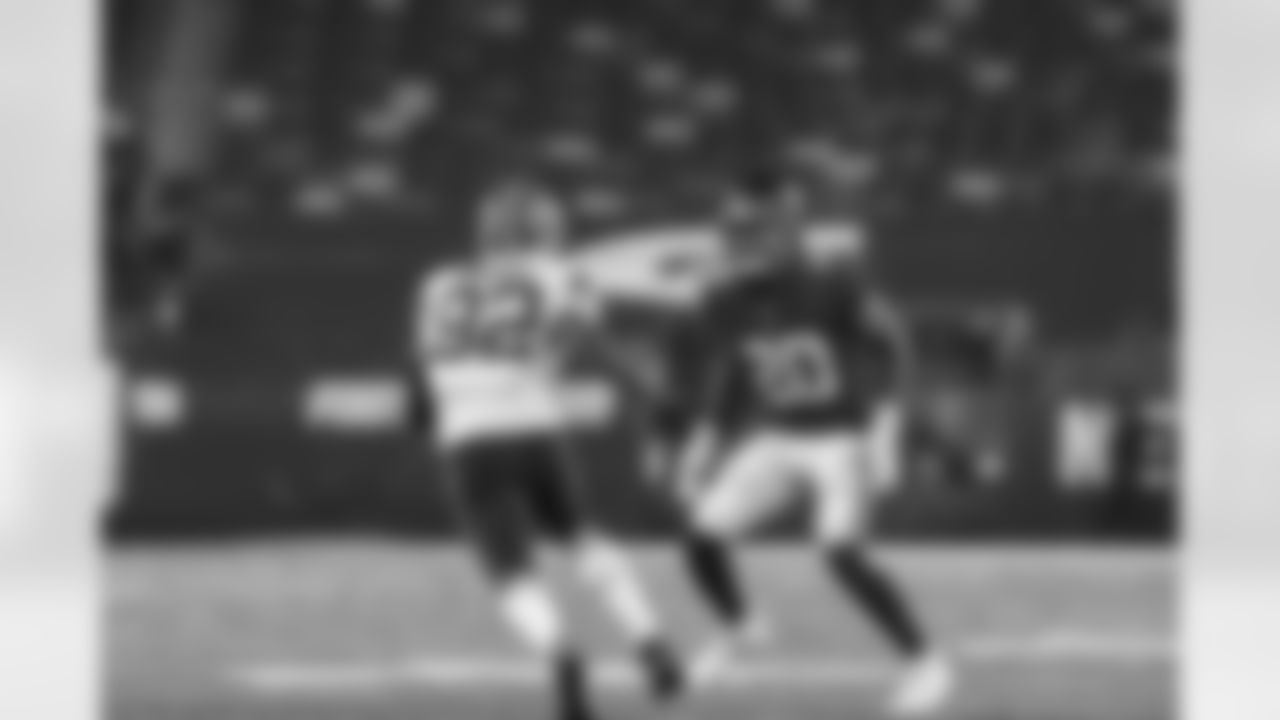
Julian Love (20)
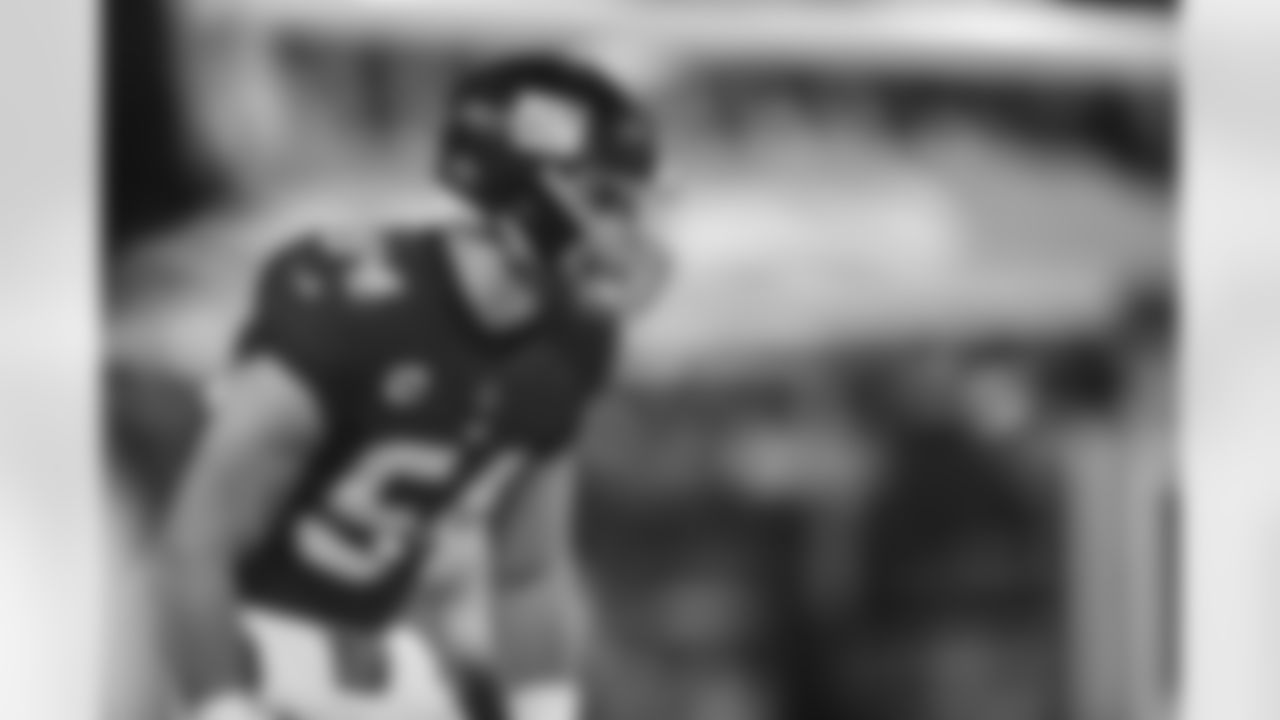
Blake Martinez (54)
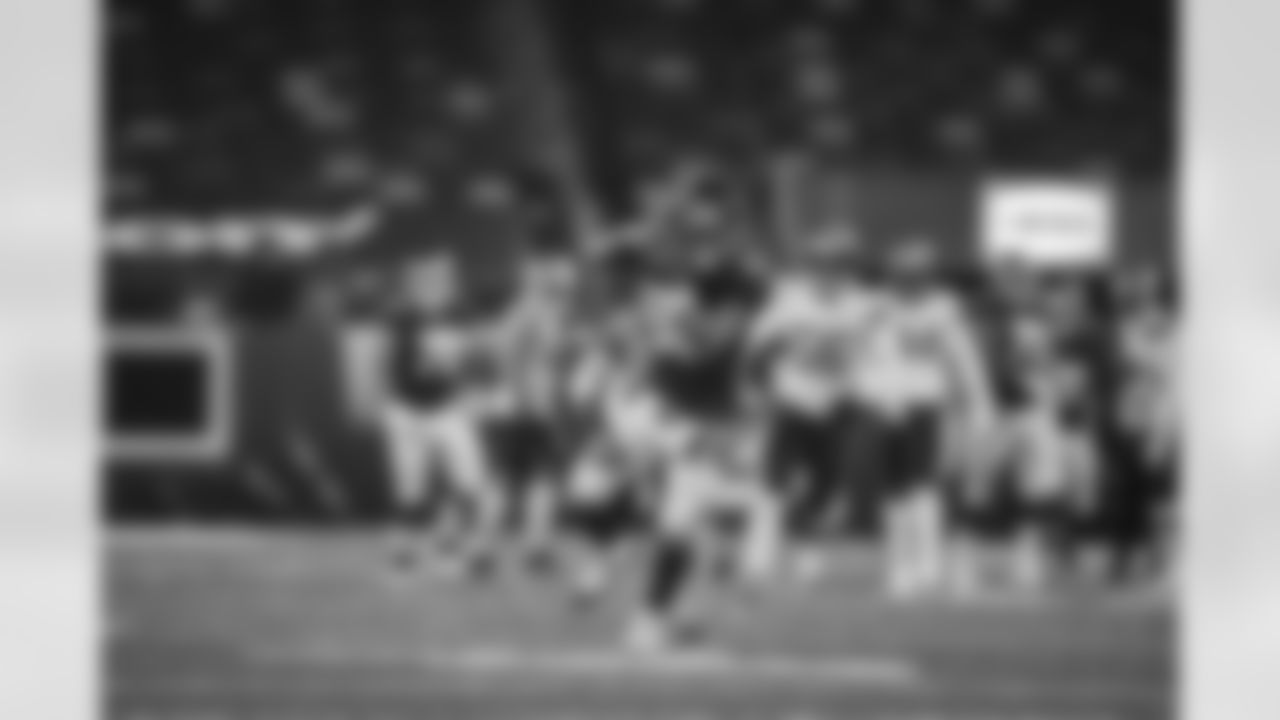
Evan Engram (88)
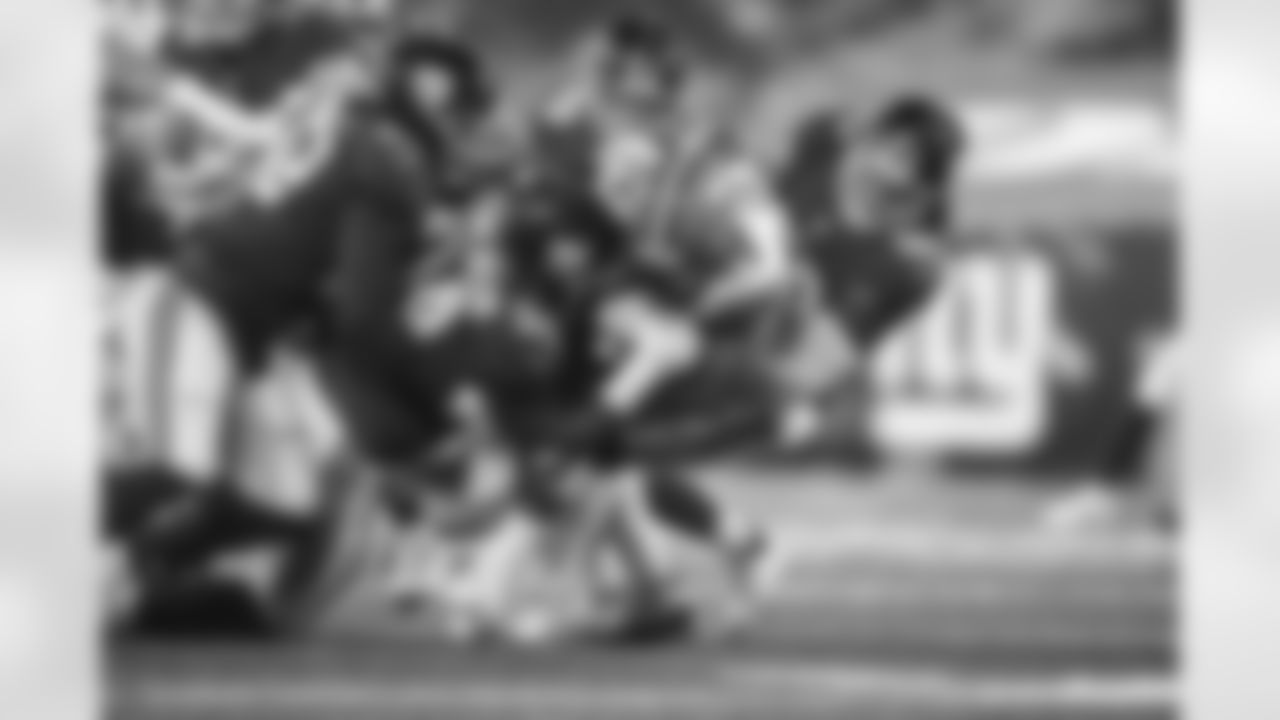
Devante Downs (52), Dalvin Tomlinson (94), Carter Coughlin (49), Leonard Williams (99)
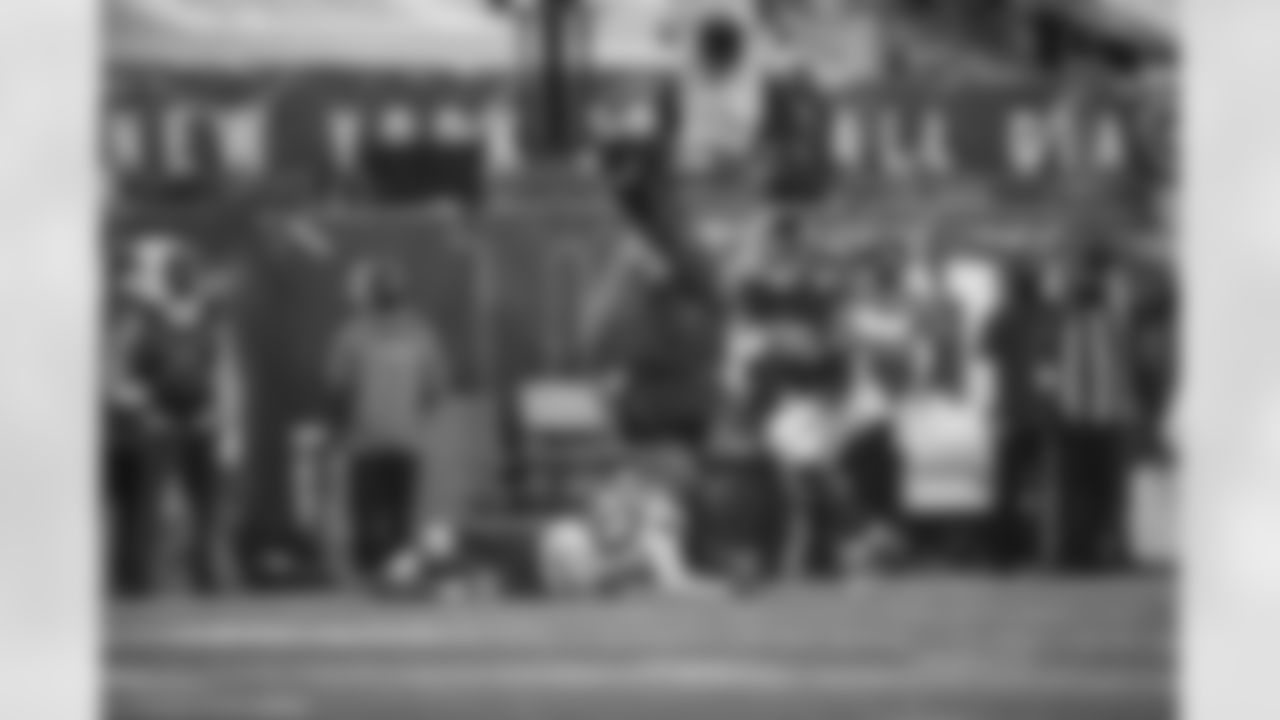
Levine Toilolo (85)
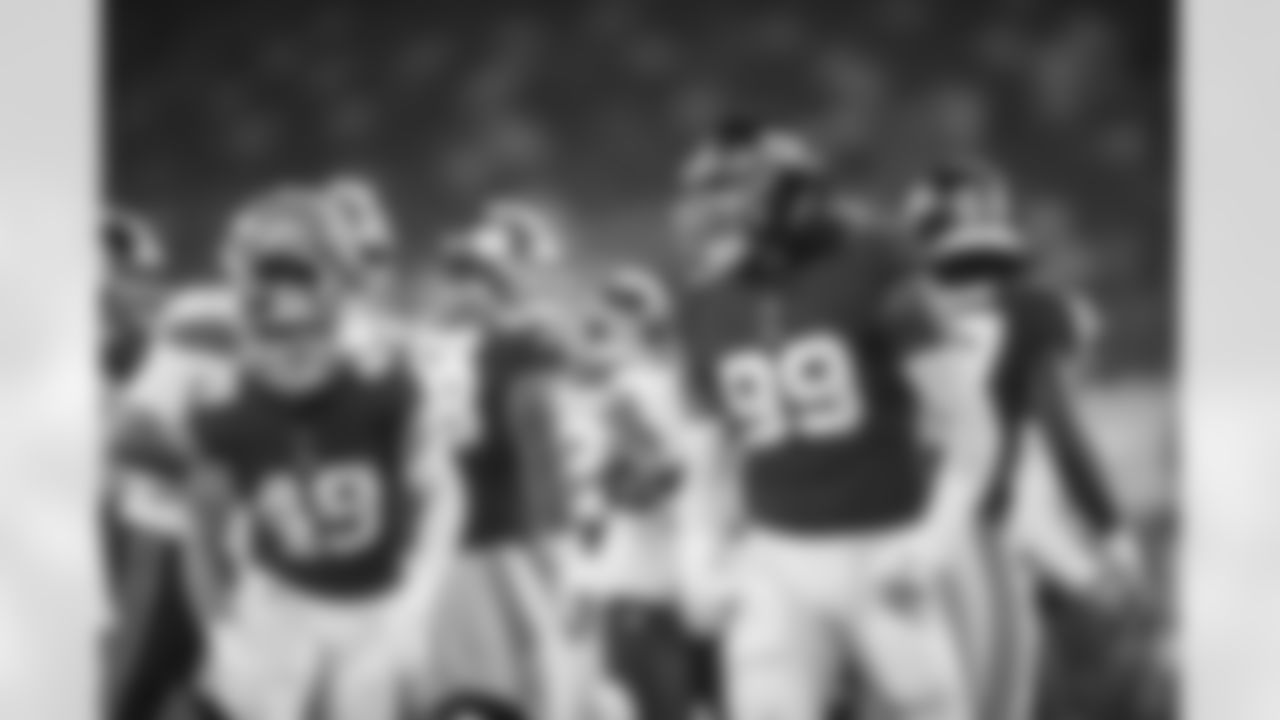
Leonard Williams (99)
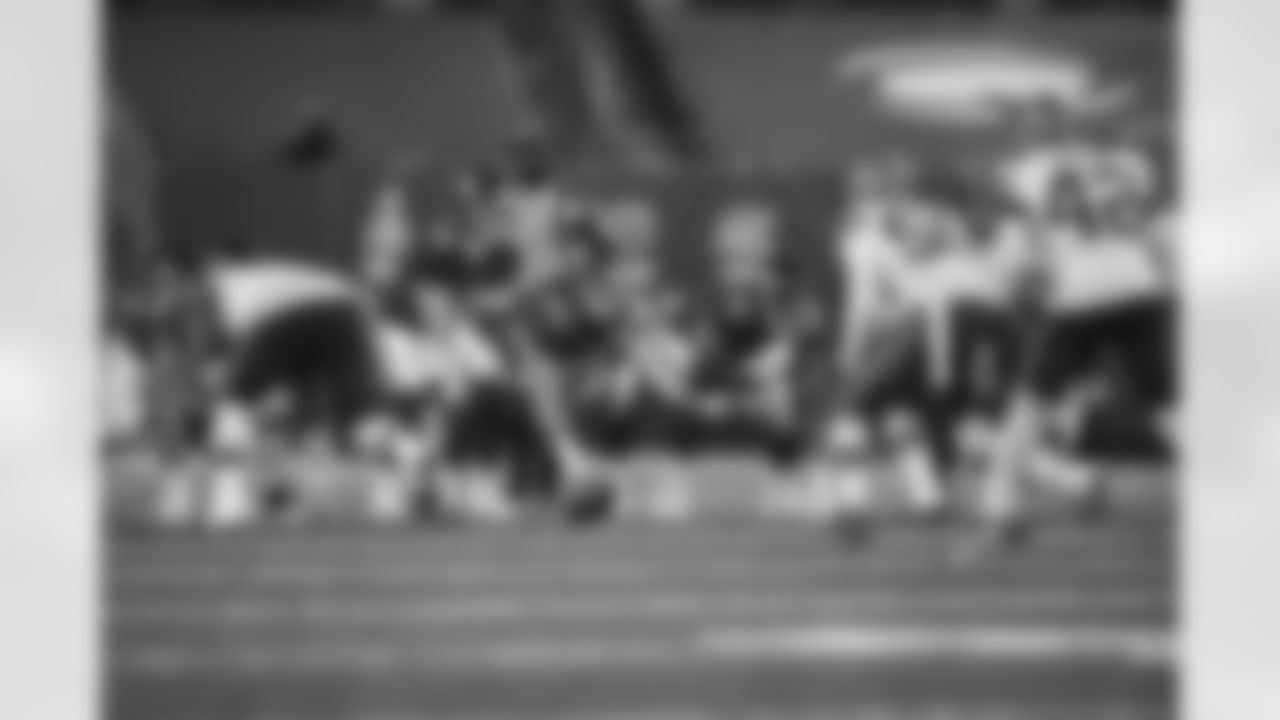
Nick Gates (65), Shane Lemieux (66)
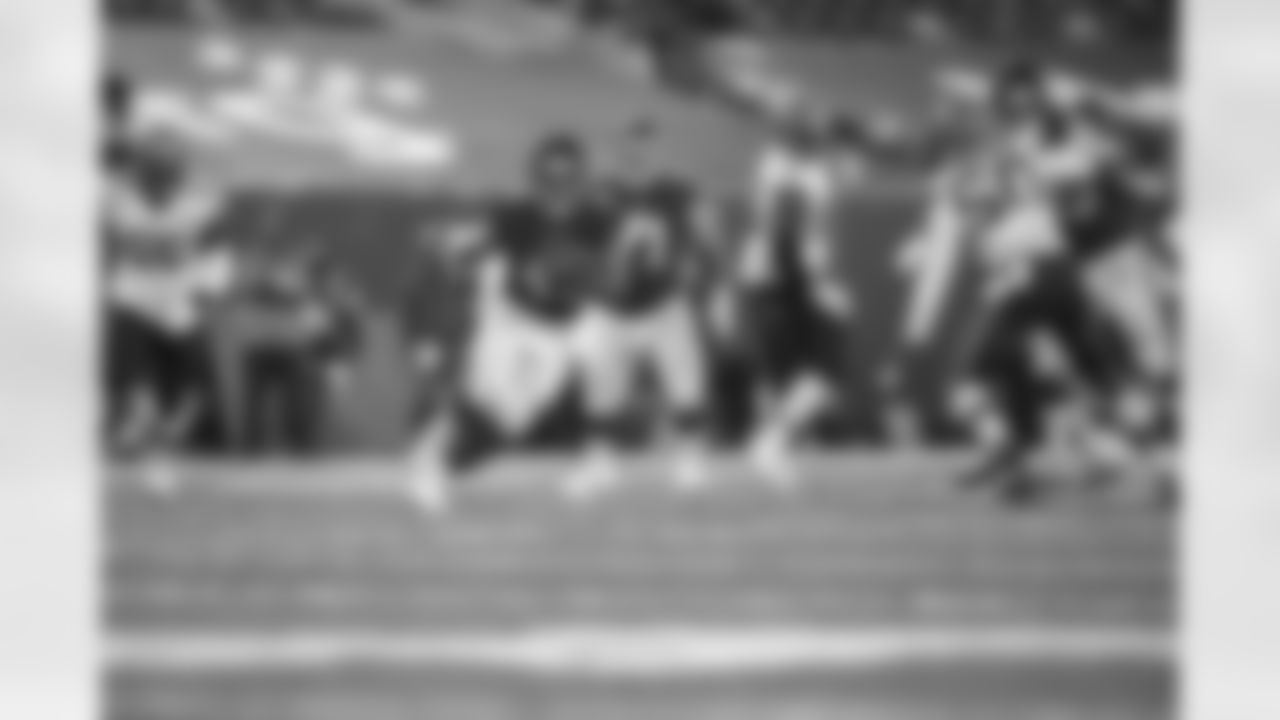
Alfred Morris (41)
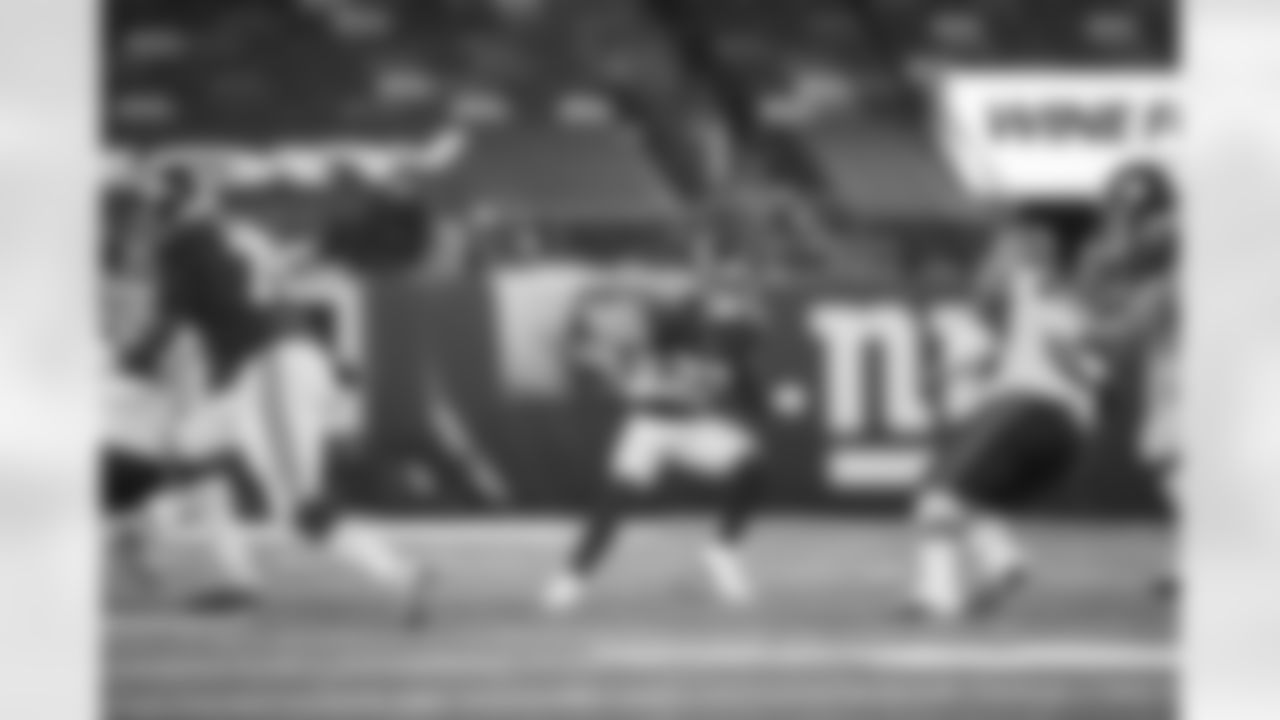
Sterling Shepard (87)
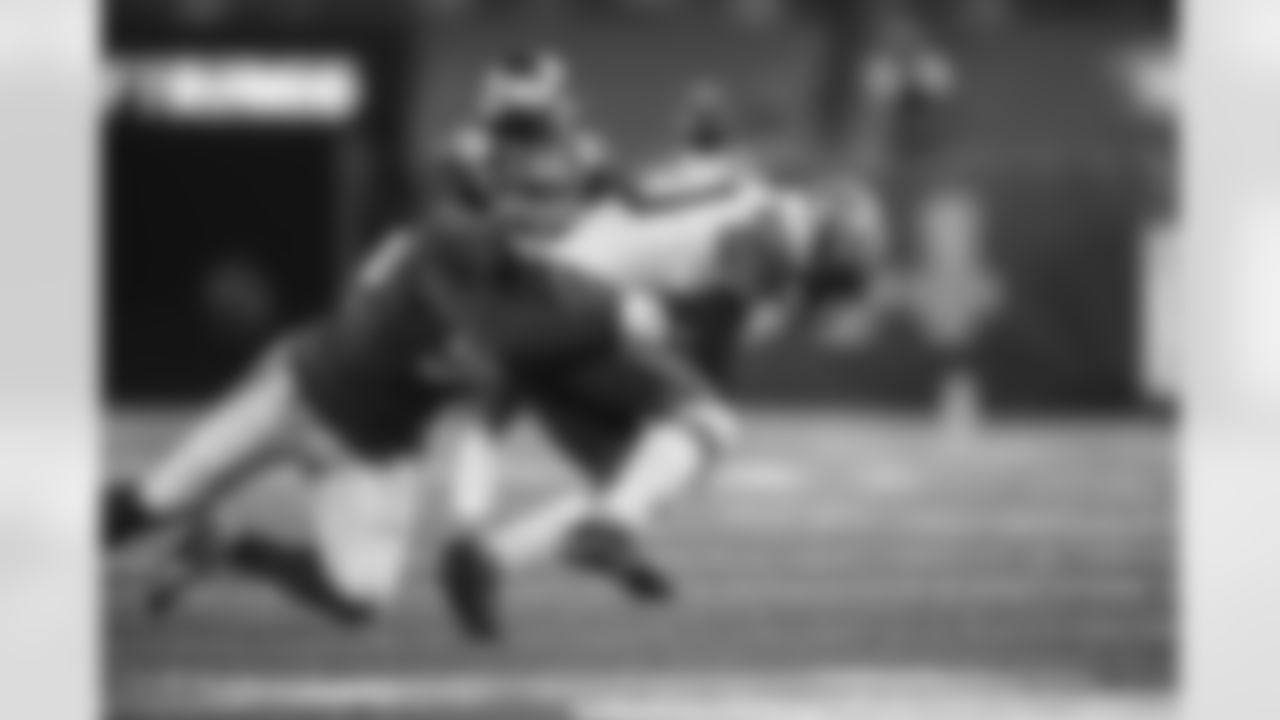
Devante Downs (52)
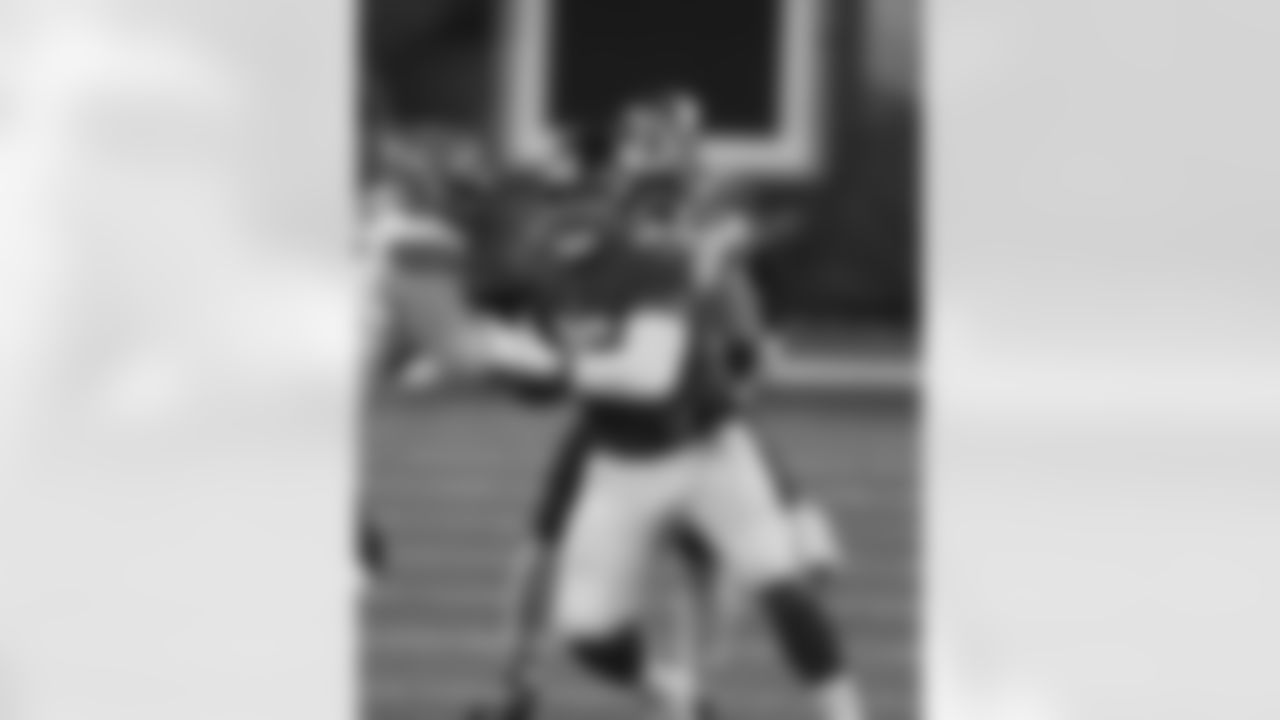
New York Giants defensive tackle B.J. Hill (95) during a week 15 regular season football game against the Cleveland Browns at MetLife Stadium on December 20th, 2020 in East Rutherford, New Jersey
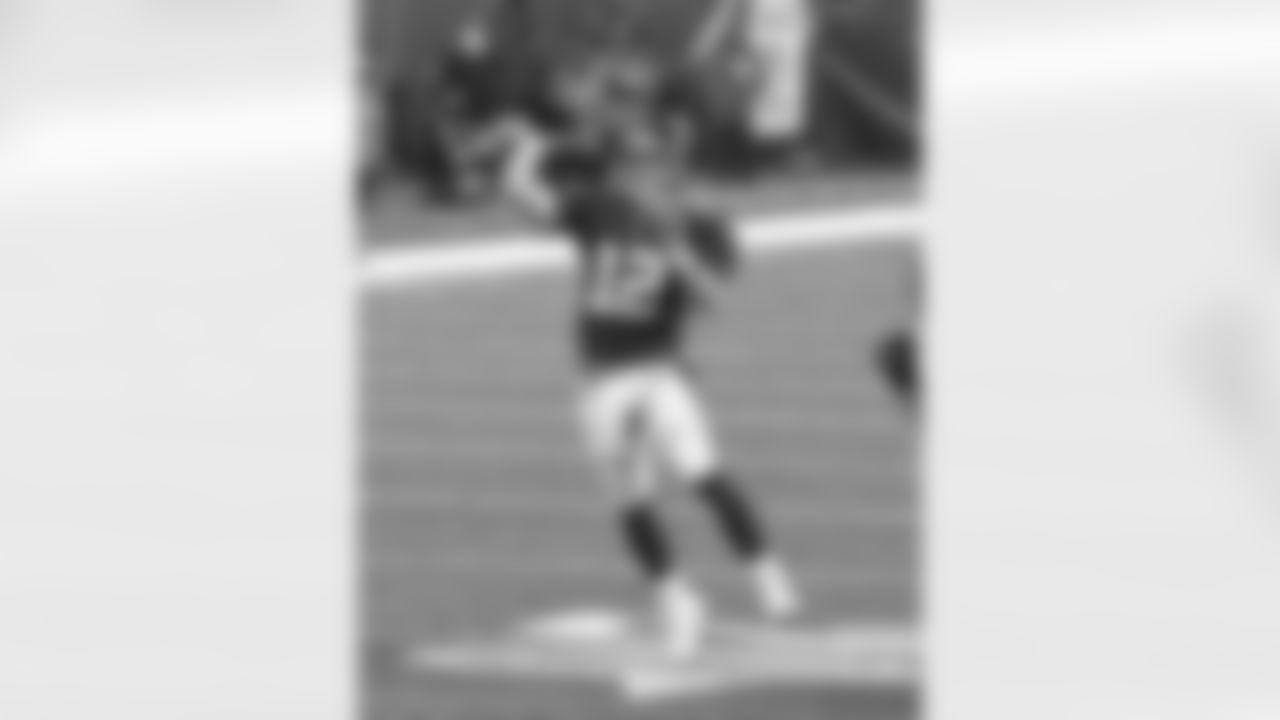
New York Giants quarterback Colt McCoy (12) during a week 15 regular season football game against the Cleveland Browns at MetLife Stadium on December 20th, 2020 in East Rutherford, New Jersey
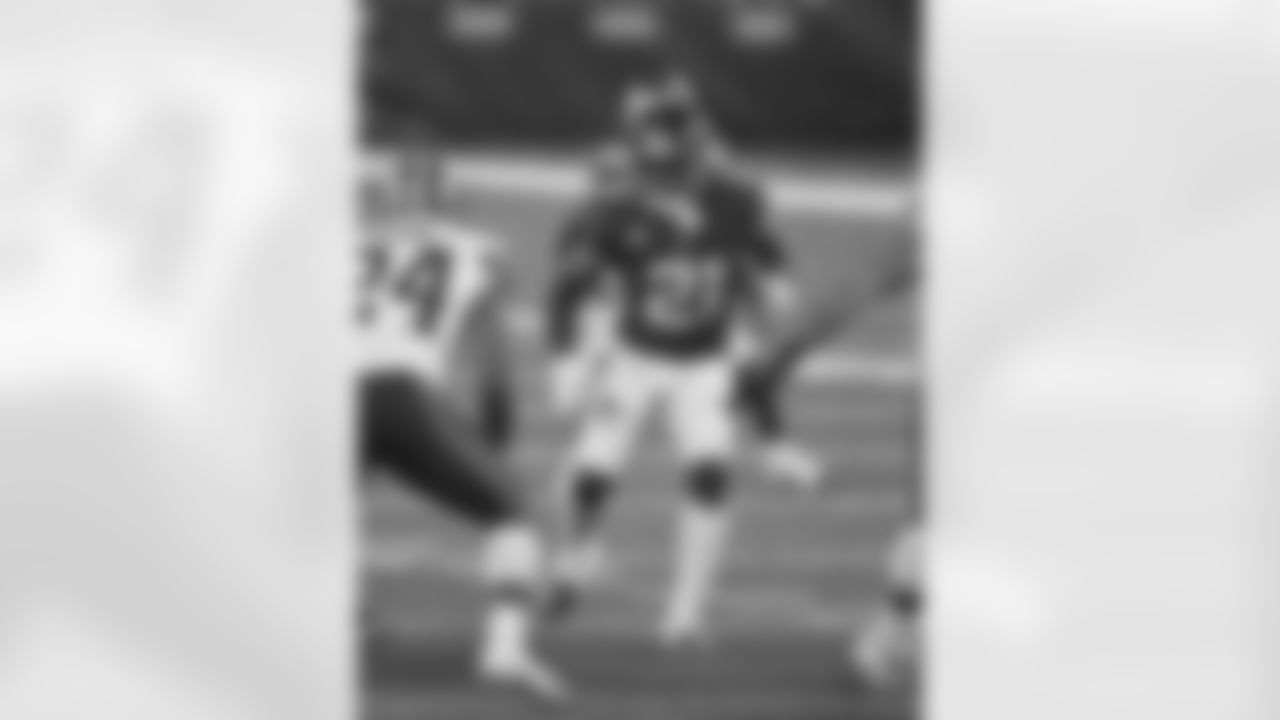
New York Giants safety Jabrill Peppers (21) during a week 15 regular season football game against the Cleveland Browns at MetLife Stadium on December 20th, 2020 in East Rutherford, New Jersey
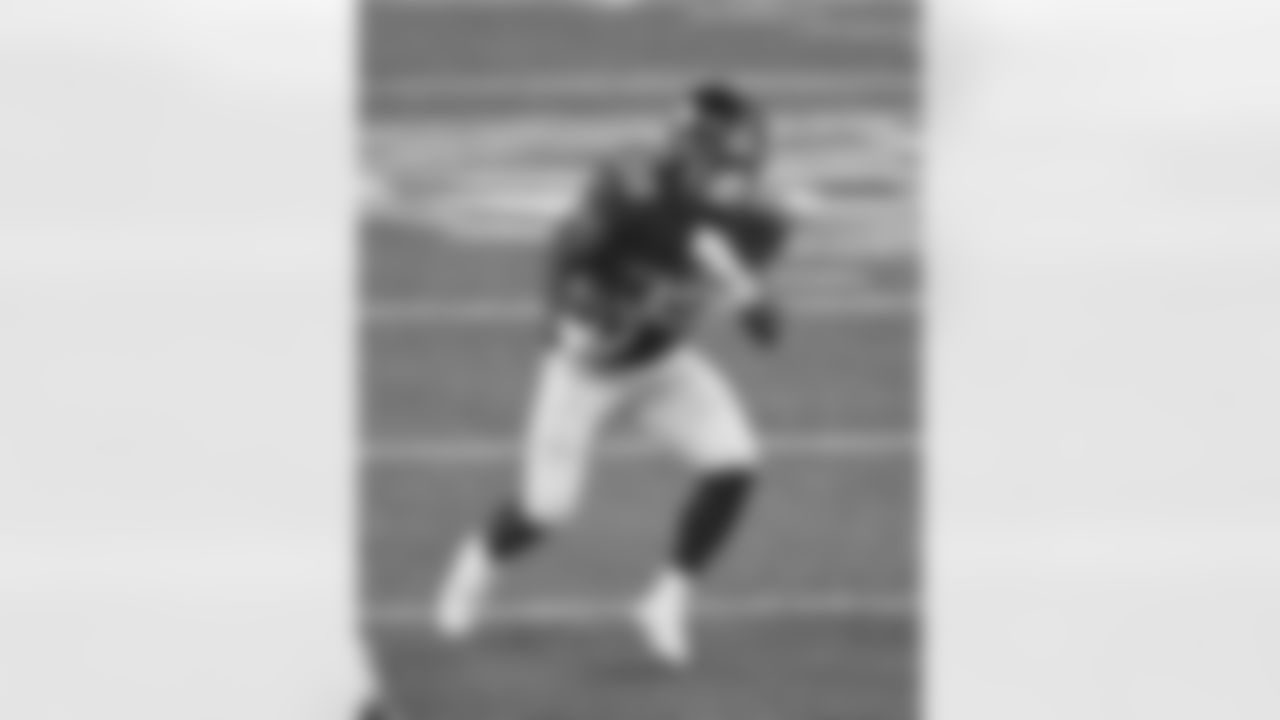
New York Giants running back Elijhaa Penny (39) during a week 15 regular season football game against the Cleveland Browns at MetLife Stadium on December 20th, 2020 in East Rutherford, New Jersey
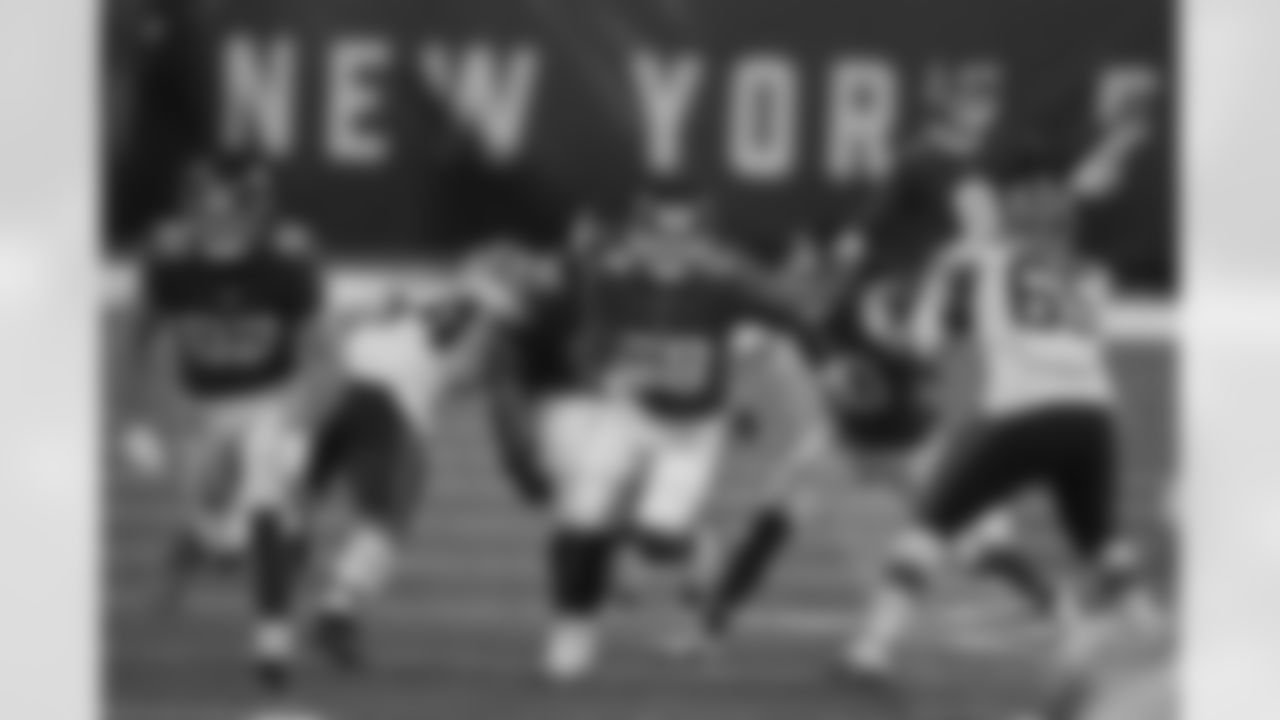
New York Giants long snapper Casey Kreiter (58) during a week 15 regular season football game against the Cleveland Browns at MetLife Stadium on December 20th, 2020 in East Rutherford, New Jersey
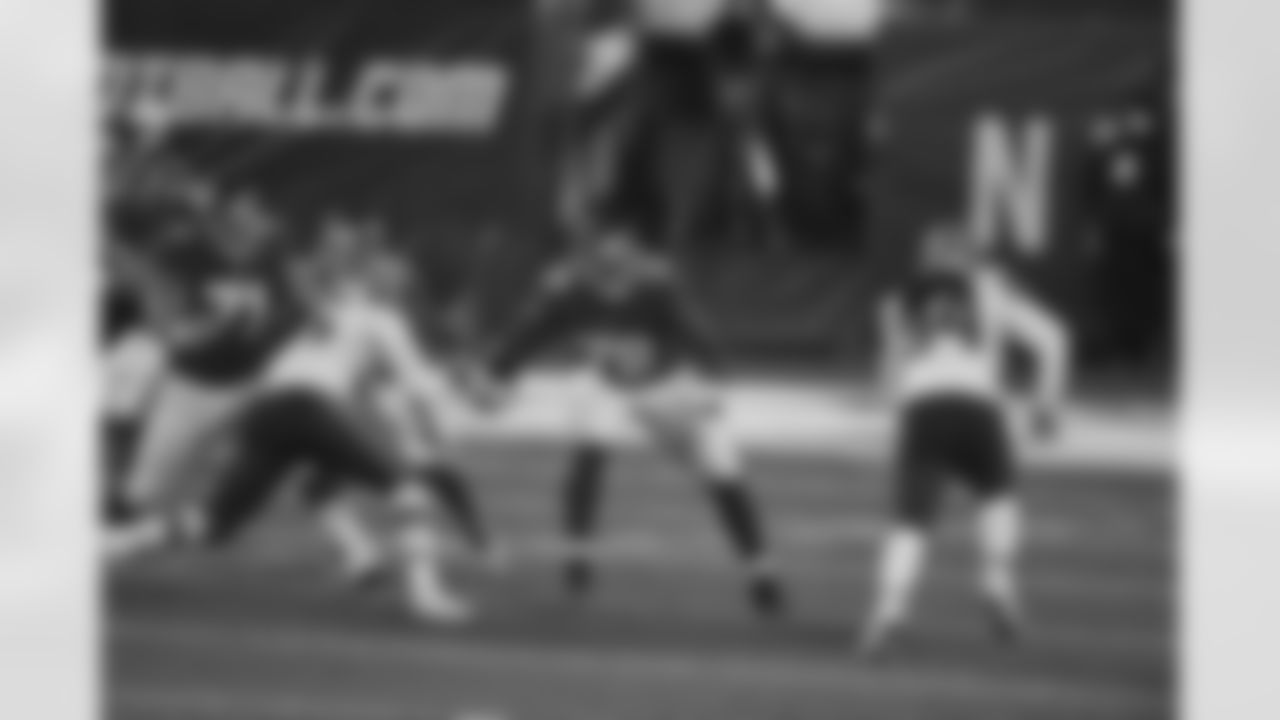
New York Giants offensive tackle Andrew Thomas (78) during a week 15 regular season football game against the Cleveland Browns at MetLife Stadium on December 20th, 2020 in East Rutherford, New Jersey
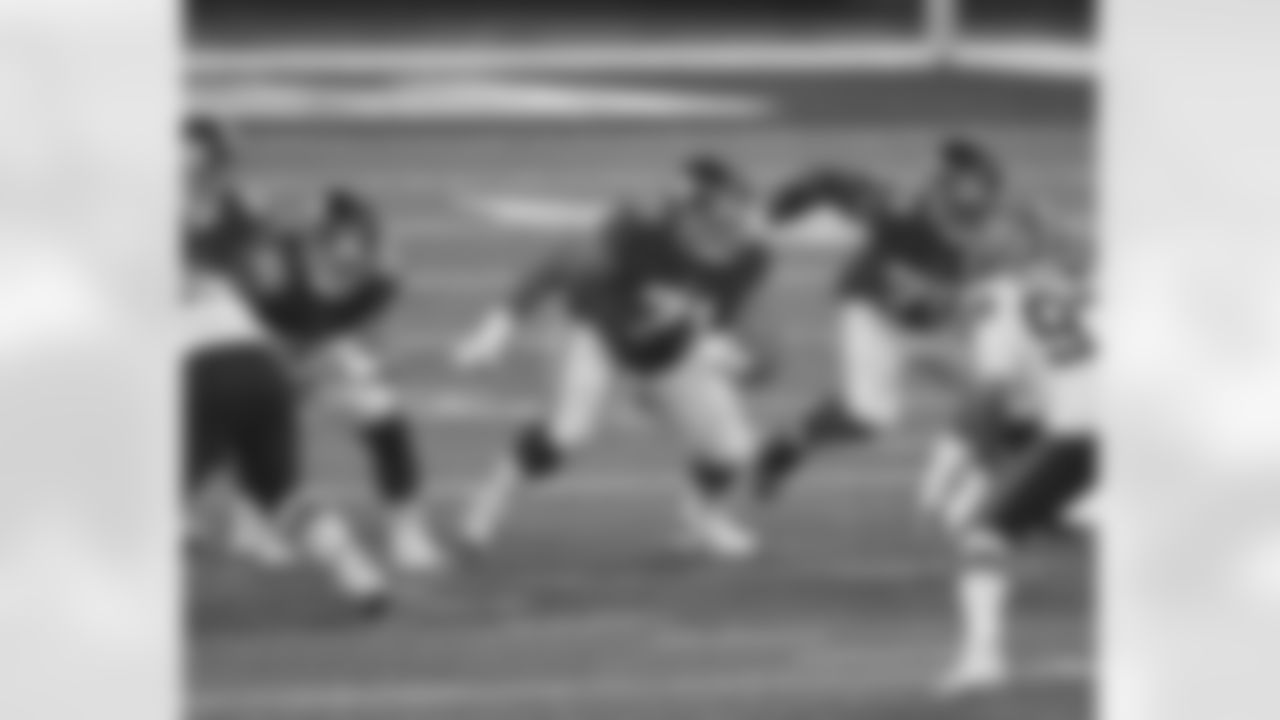
New York Giants center Nick Gates (65) Will Hernandez (71) and Andrew Thomas (78) during a week 15 regular season football game against the Cleveland Browns at MetLife Stadium on December 20th, 2020 in East Rutherford, New Jersey
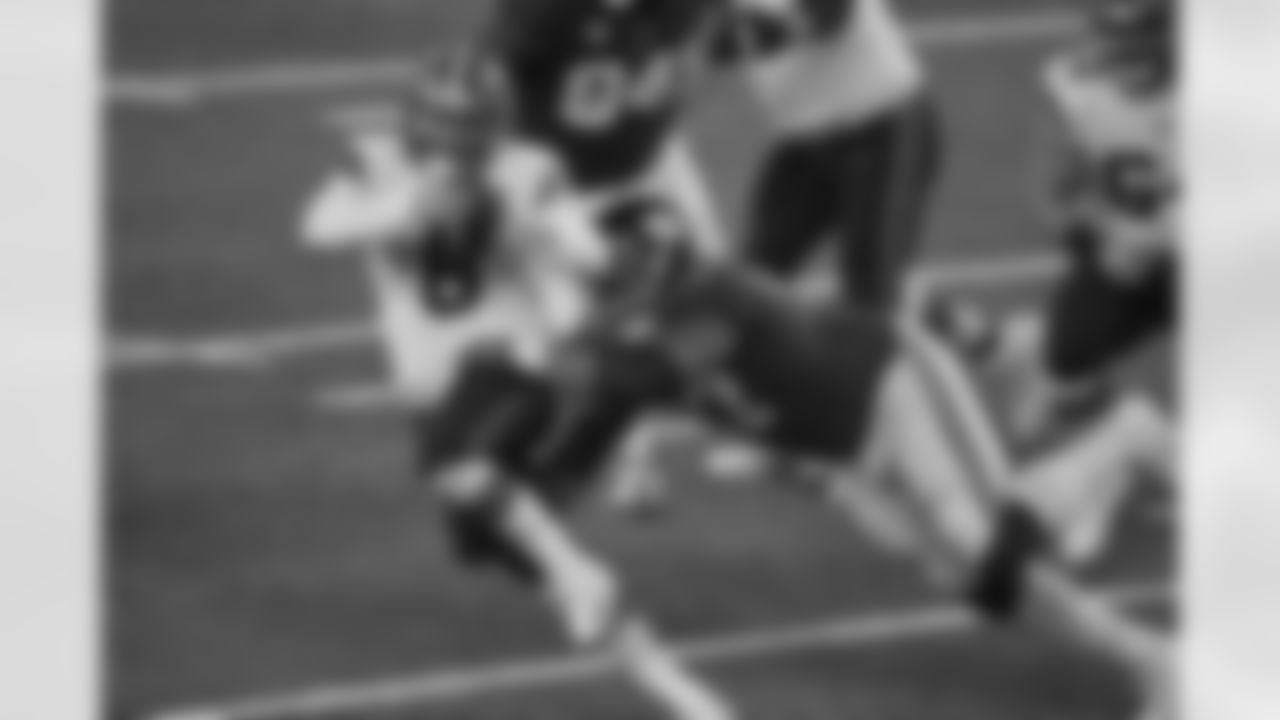
New York Giants defensive tackle Dexter Lawrence (97) sacks Cleveland Browns quarterback Baker Mayfield (6) during a week 15 regular season football game against the Cleveland Browns at MetLife Stadium on December 20th, 2020 in East Rutherford, New Jersey
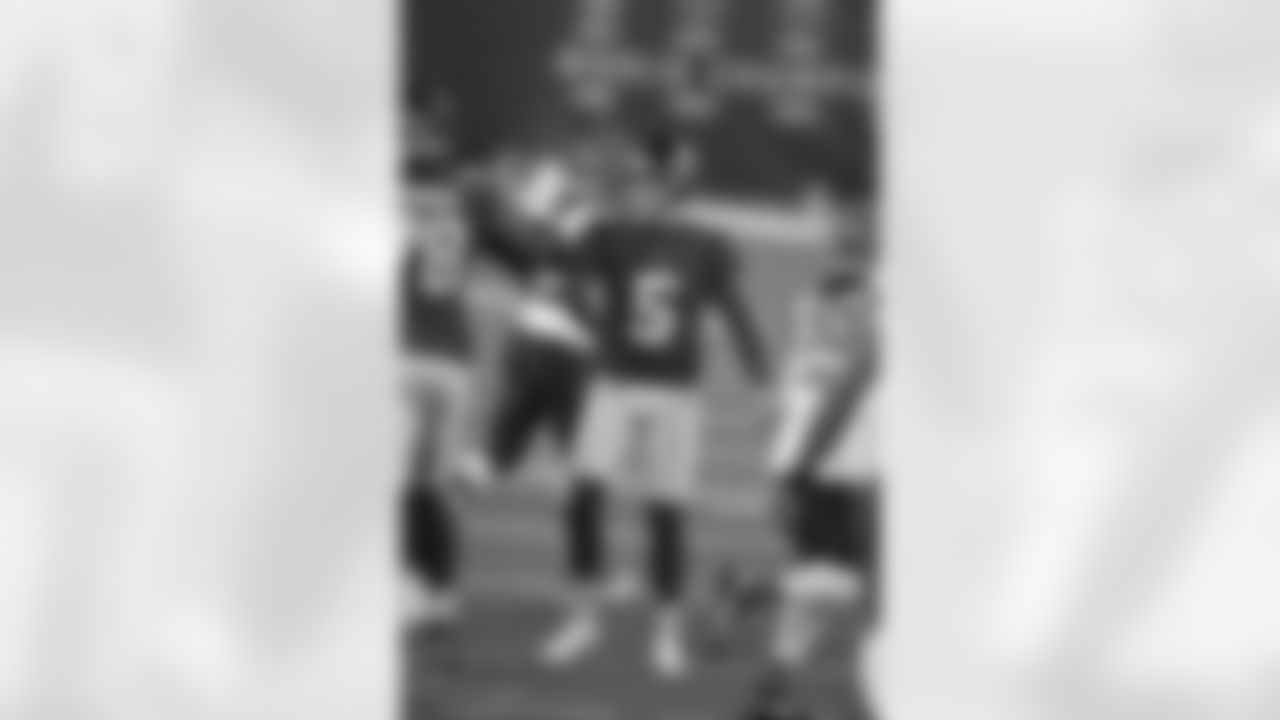
New York Giants place kicker Graham Gano (5) kicks a field goal during a week 15 regular season football game against the Cleveland Browns at MetLife Stadium on December 20th, 2020 in East Rutherford, New Jersey
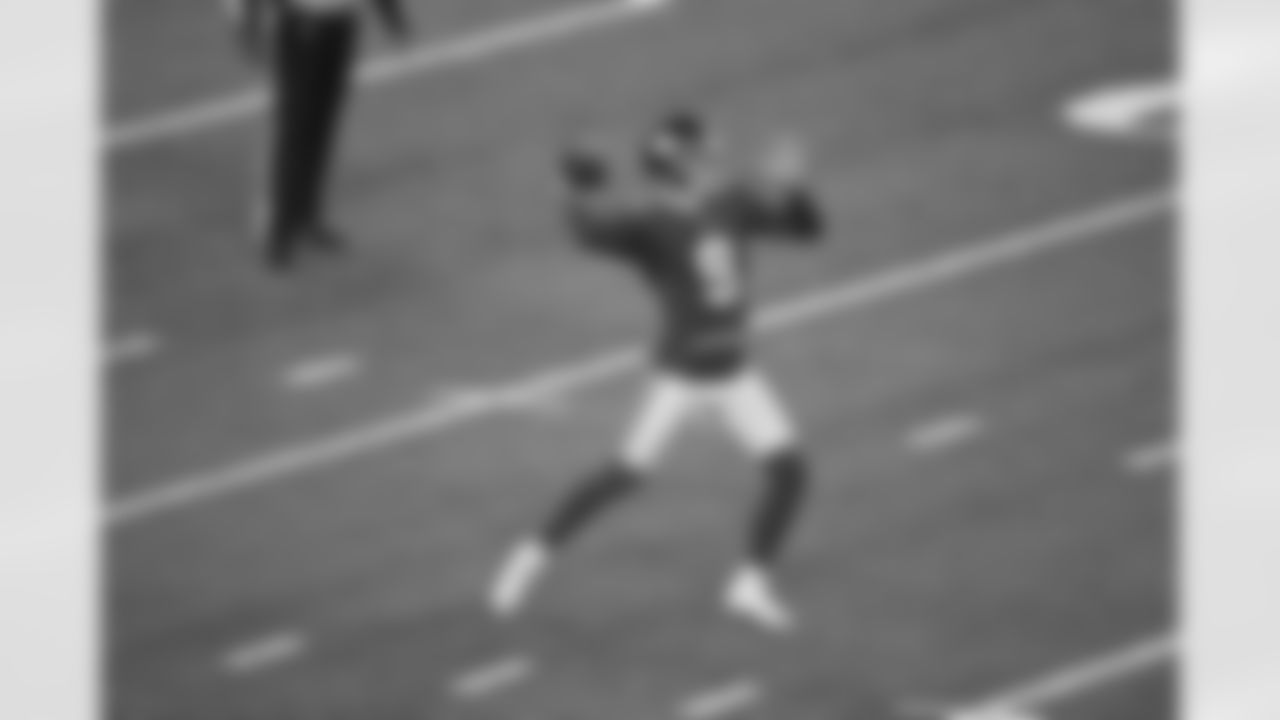
New York Giants punter Riley Dixon (9) throws a pass on a fake field goal during a week 15 regular season football game against the Cleveland Browns at MetLife Stadium on December 20th, 2020 in East Rutherford, New Jersey
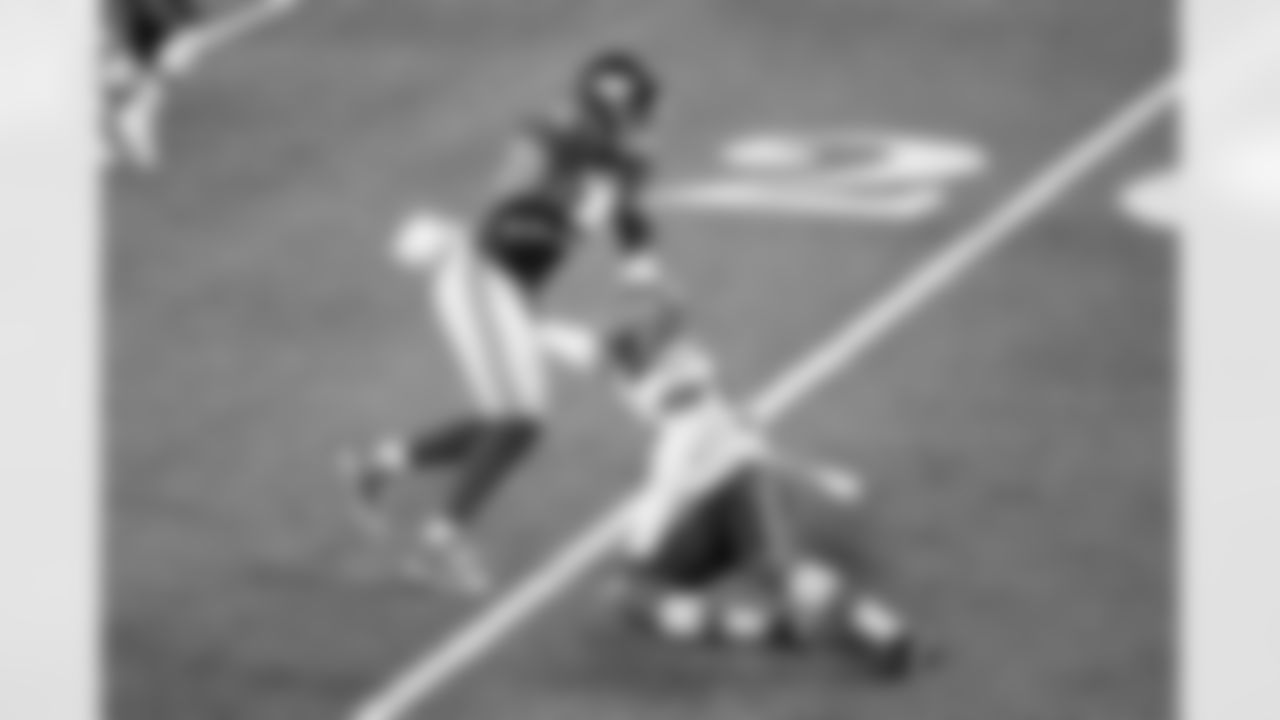
Levine Toilolo (85)
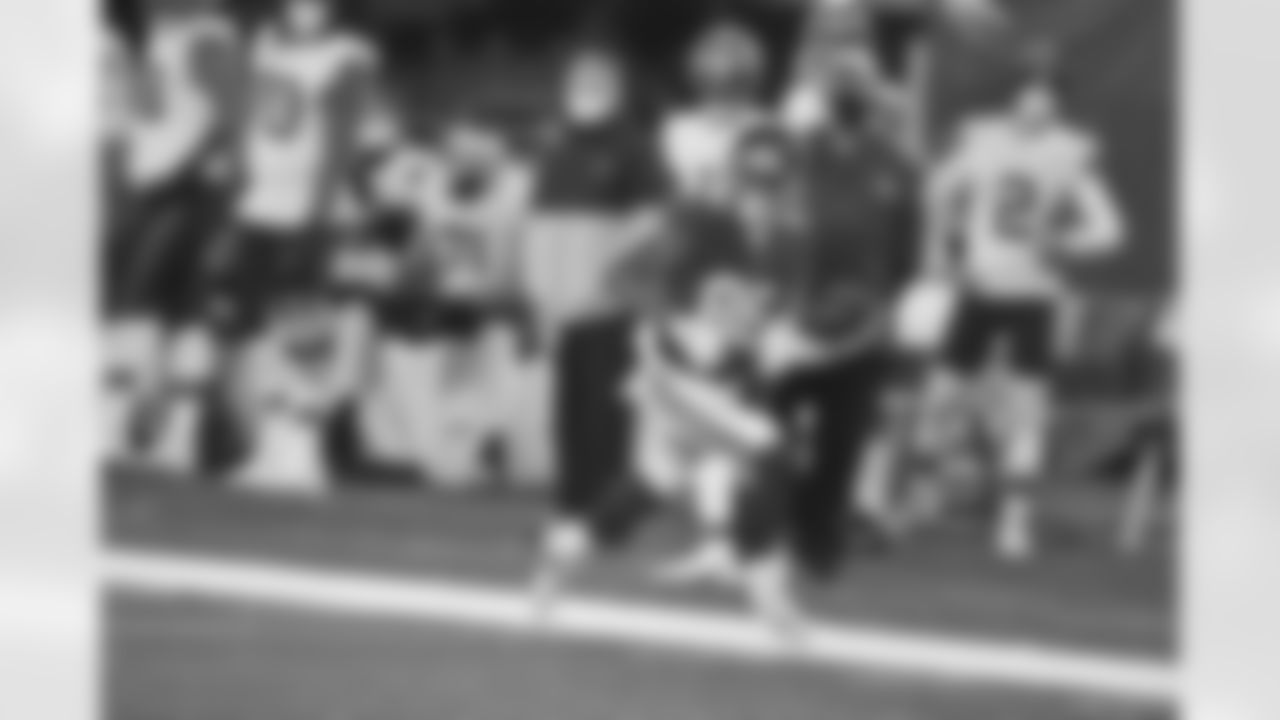
New York Giants wide receiver Darius Slayton (86) makes a catch during a week 15 regular season football game against the Cleveland Browns at MetLife Stadium on December 20th, 2020 in East Rutherford, New Jersey
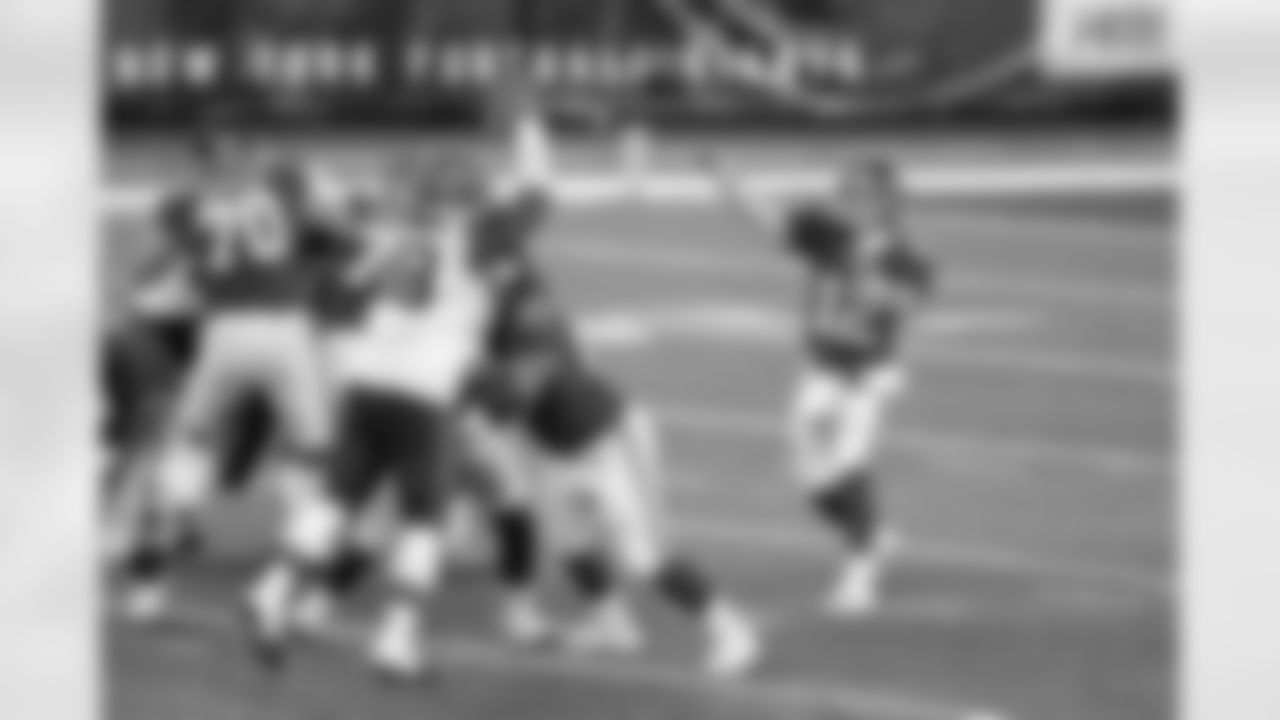
Colt McCoy (12),
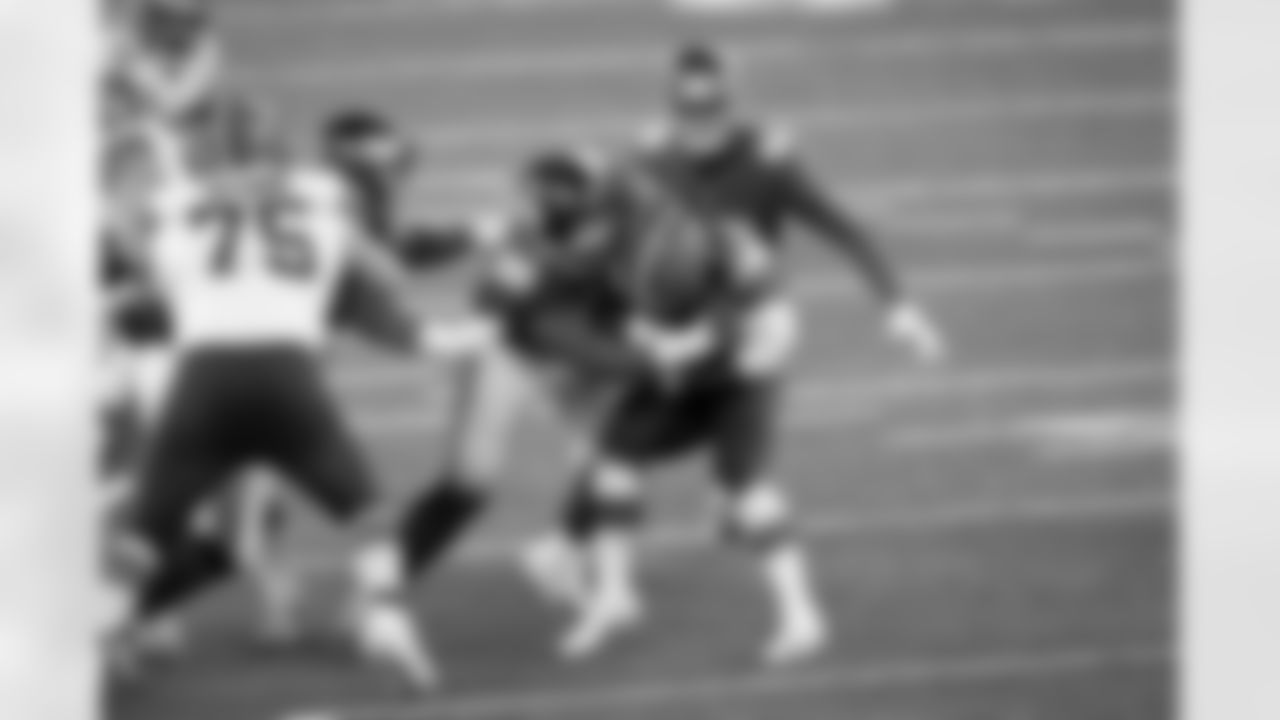
Austin Johnson (98)
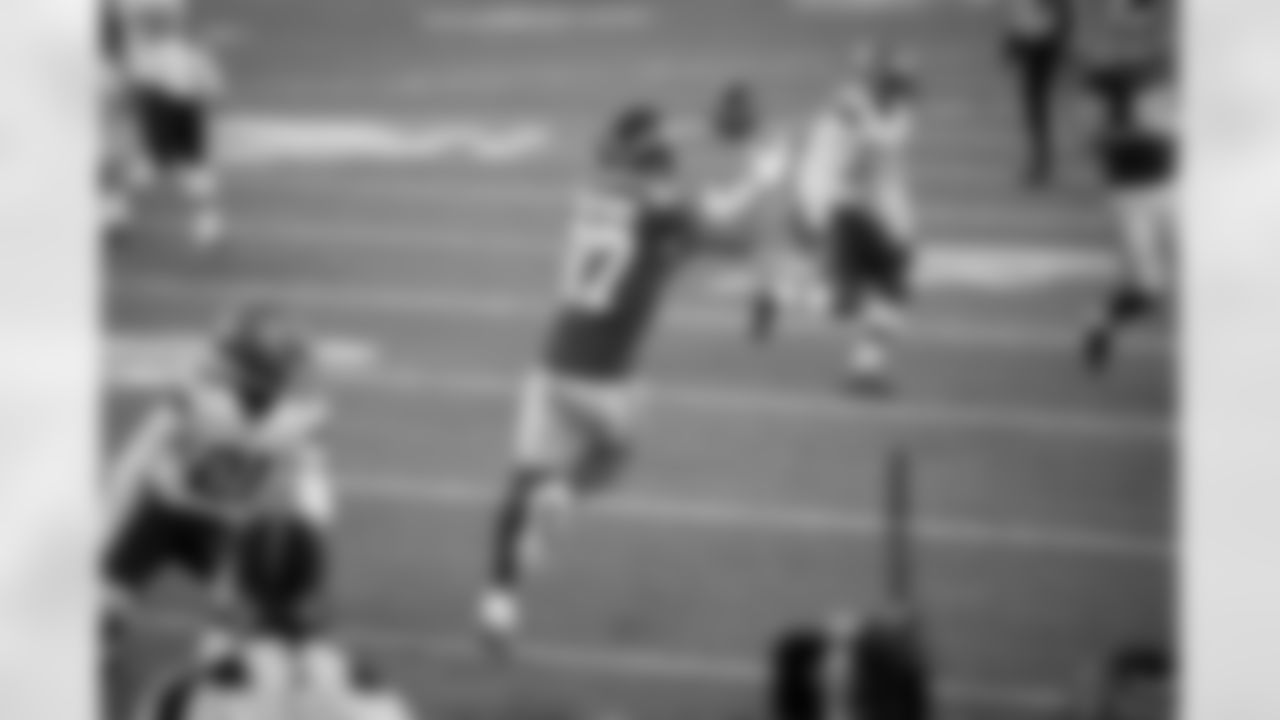
Sterling Shepard (87)
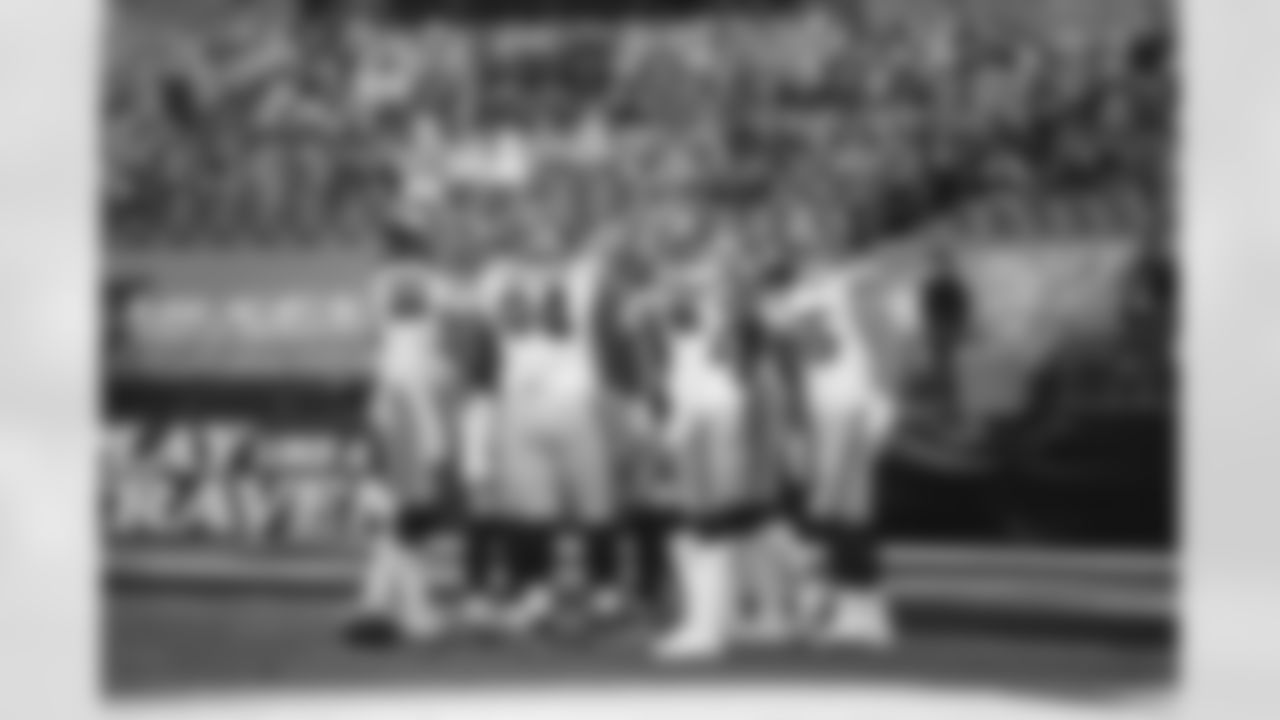
Leonard Williams (99), Dalvin Tomlinson (94), James Bradberry (24), David Mayo (55),
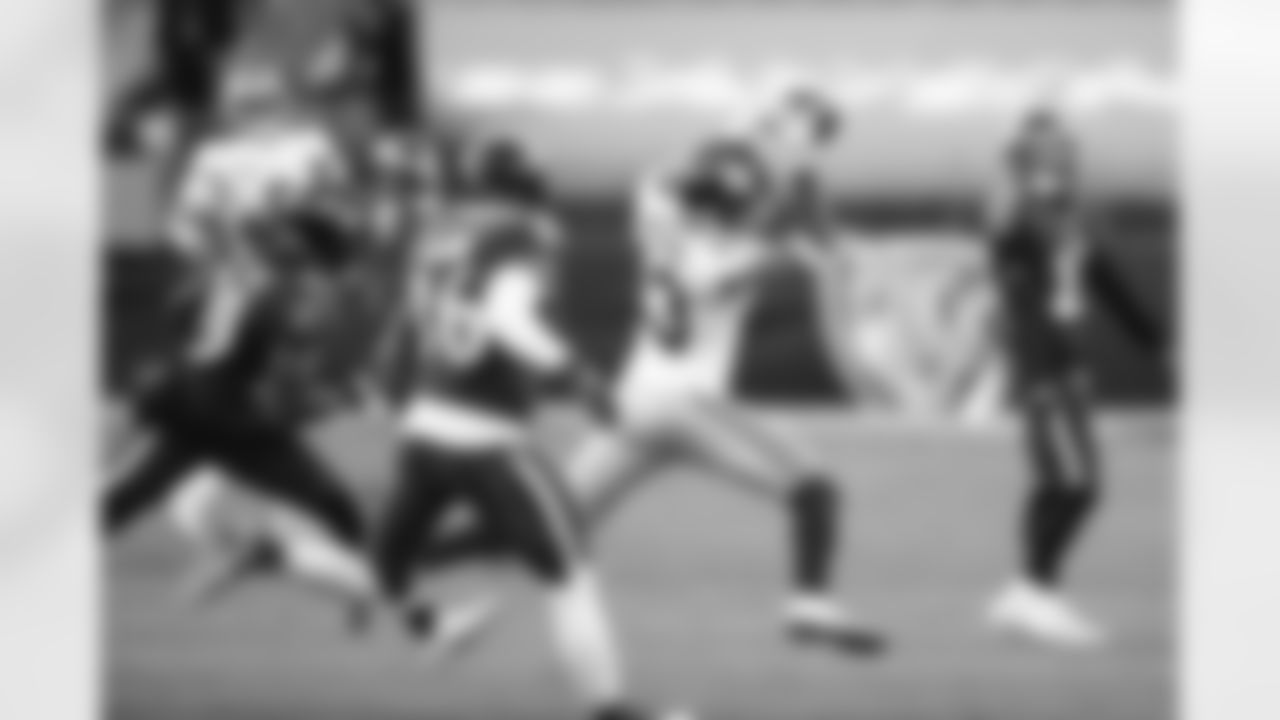
Dante Pettis (13)
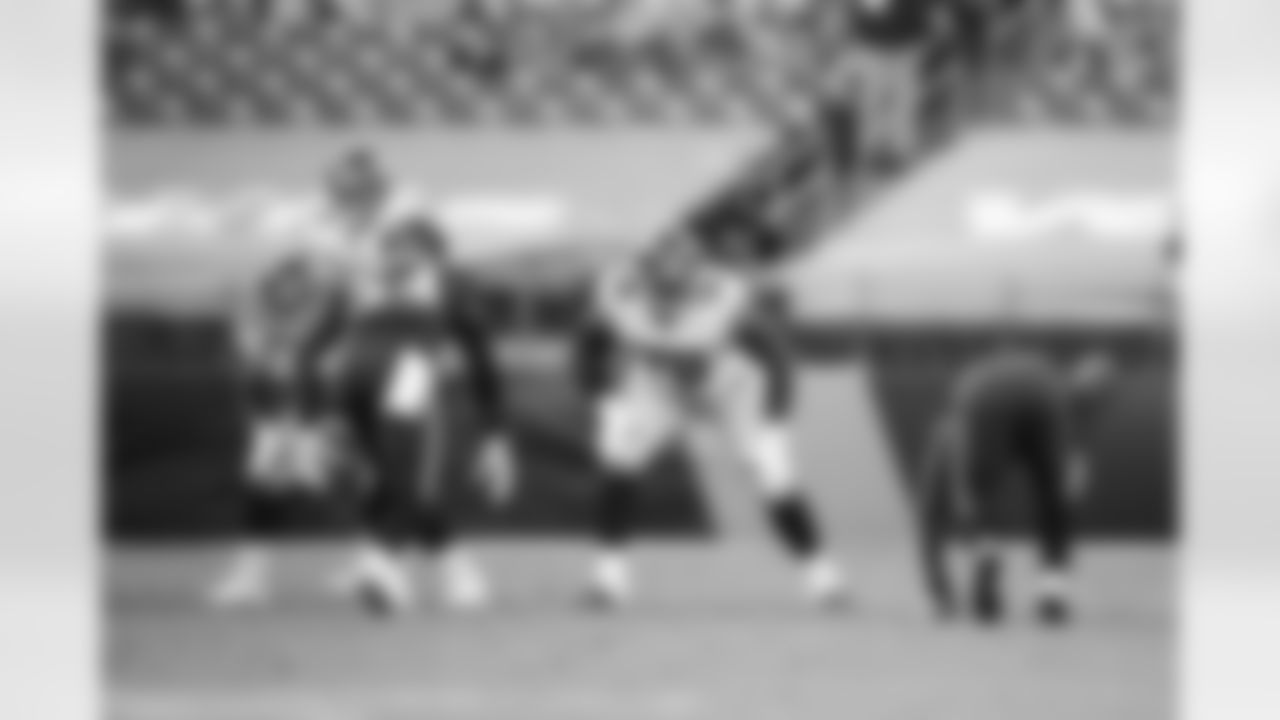
Andrew Thomas (78)
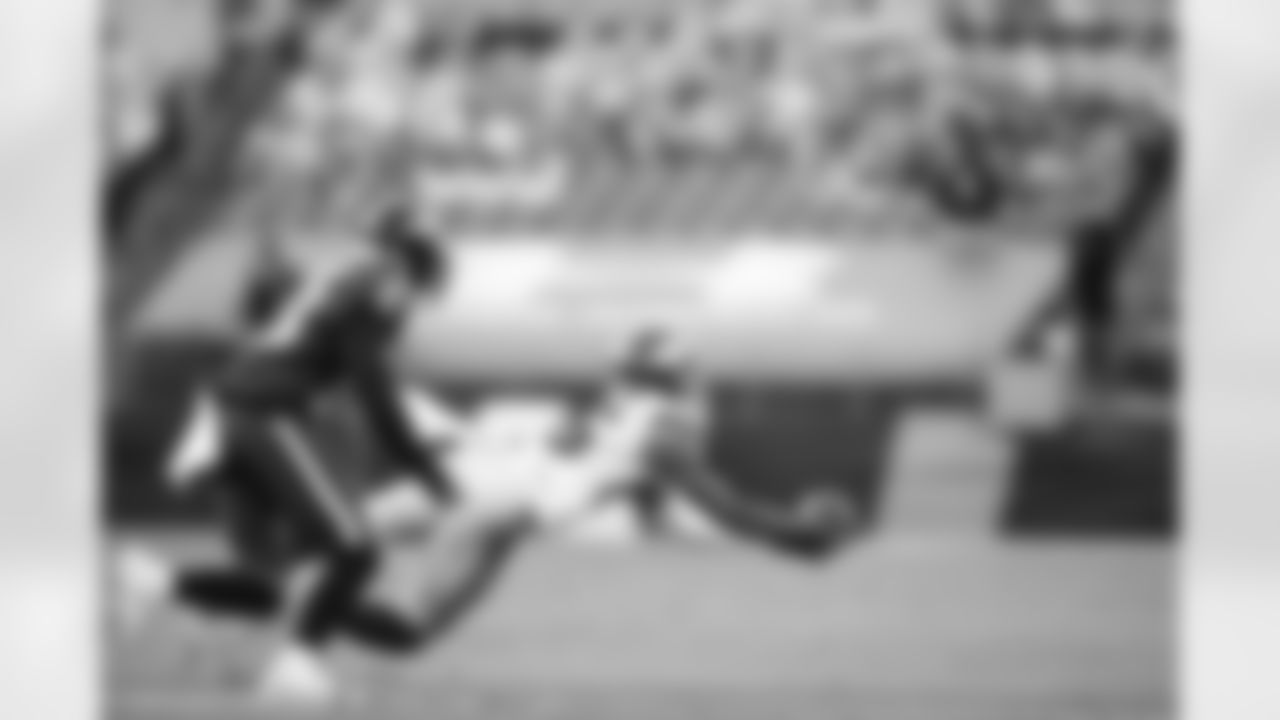
Darius Slayton (86)
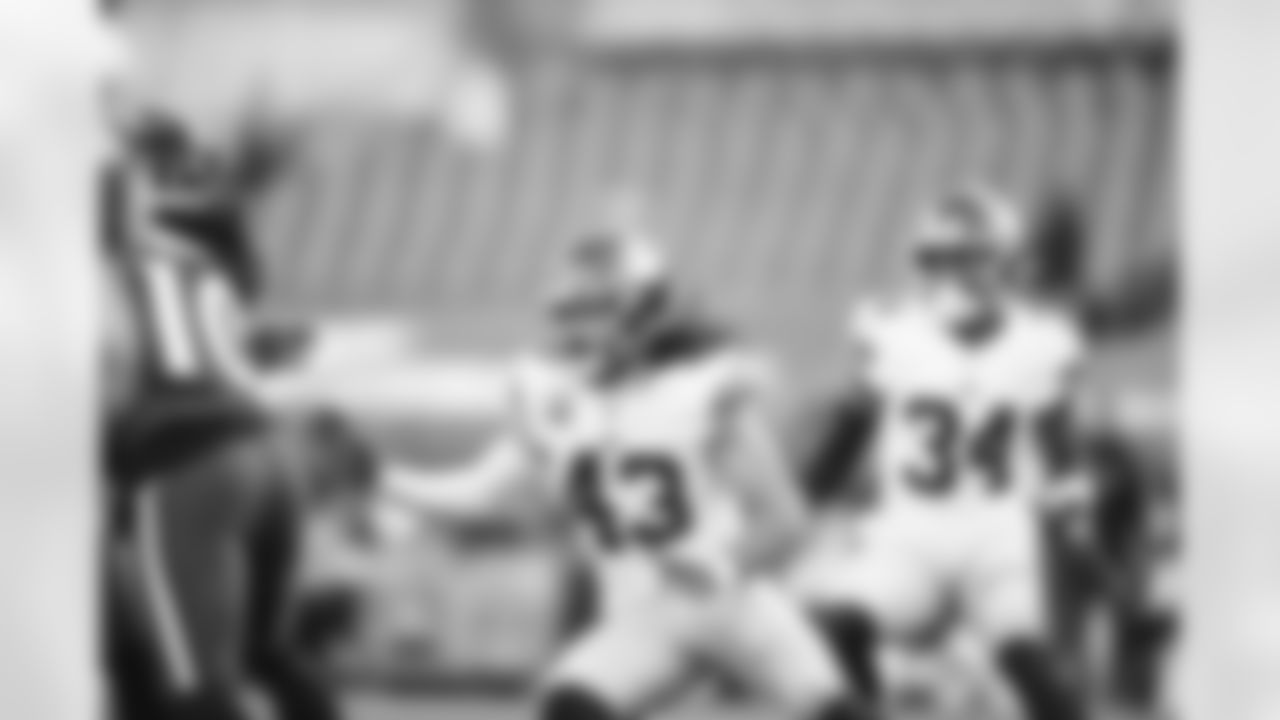
Nate Ebner (43)
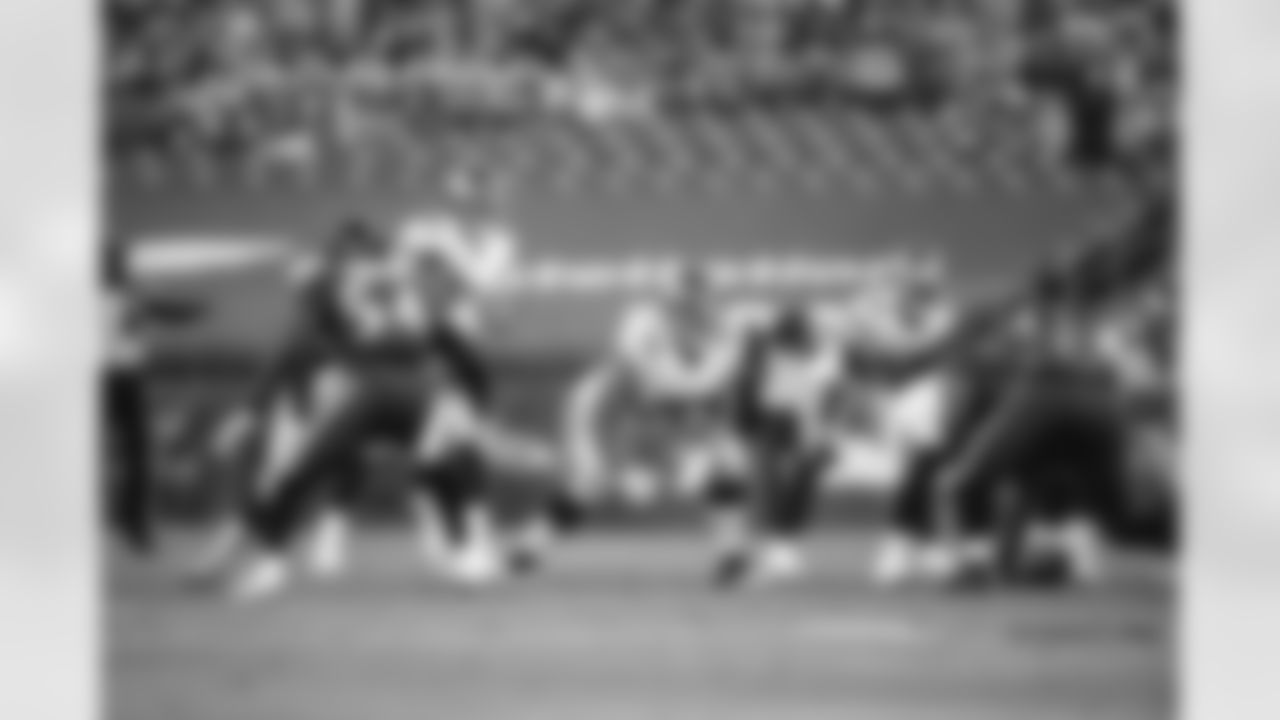
Kevin Zeitler (70),
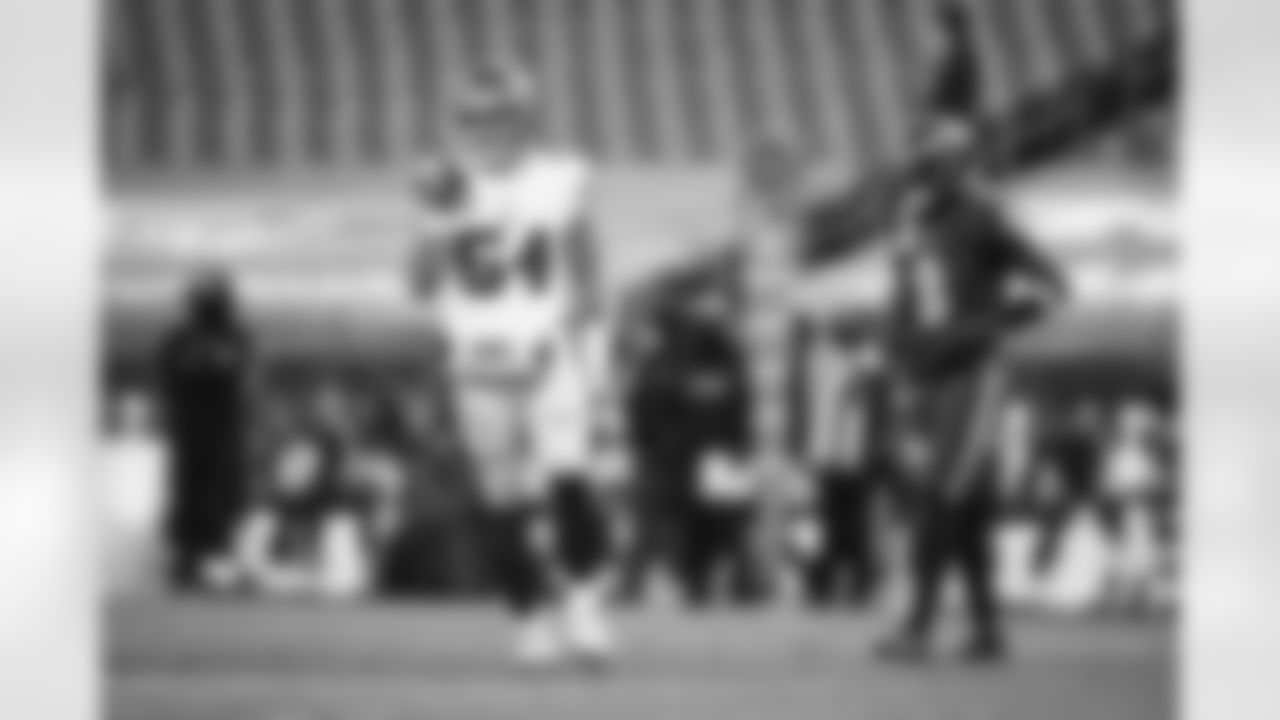
Blake Martinez (54)
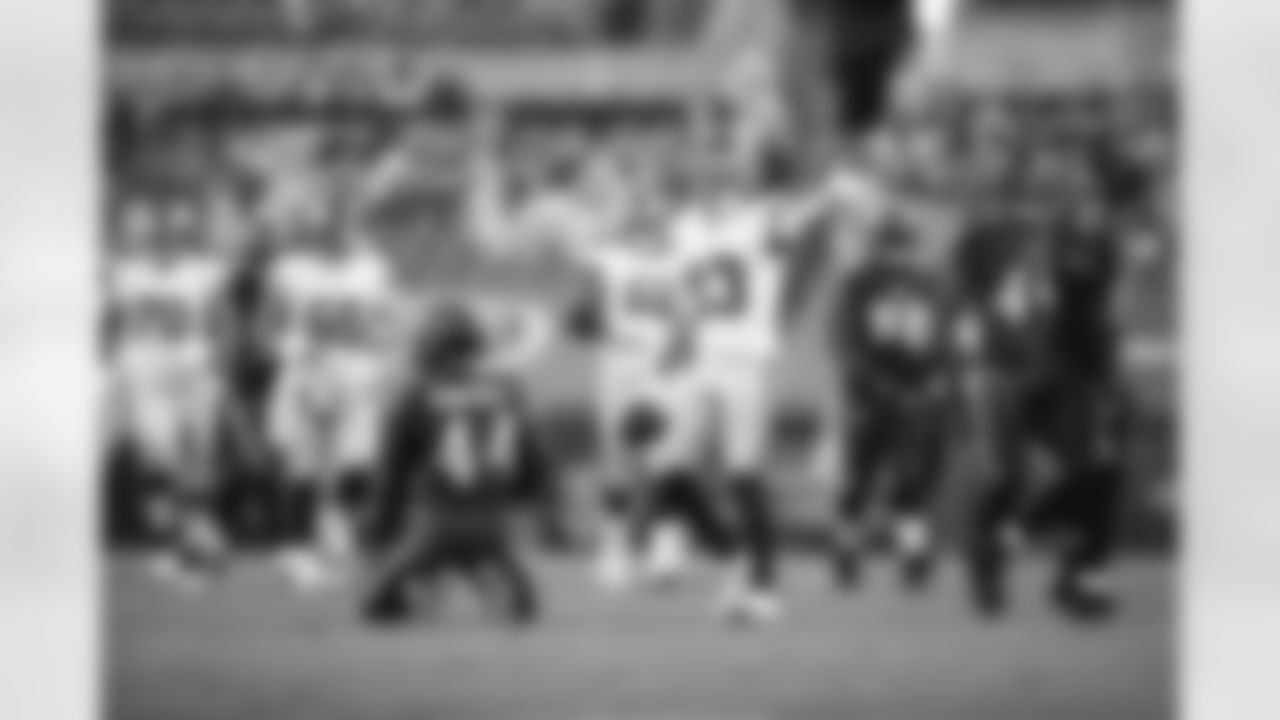
Dante Pettis (13)
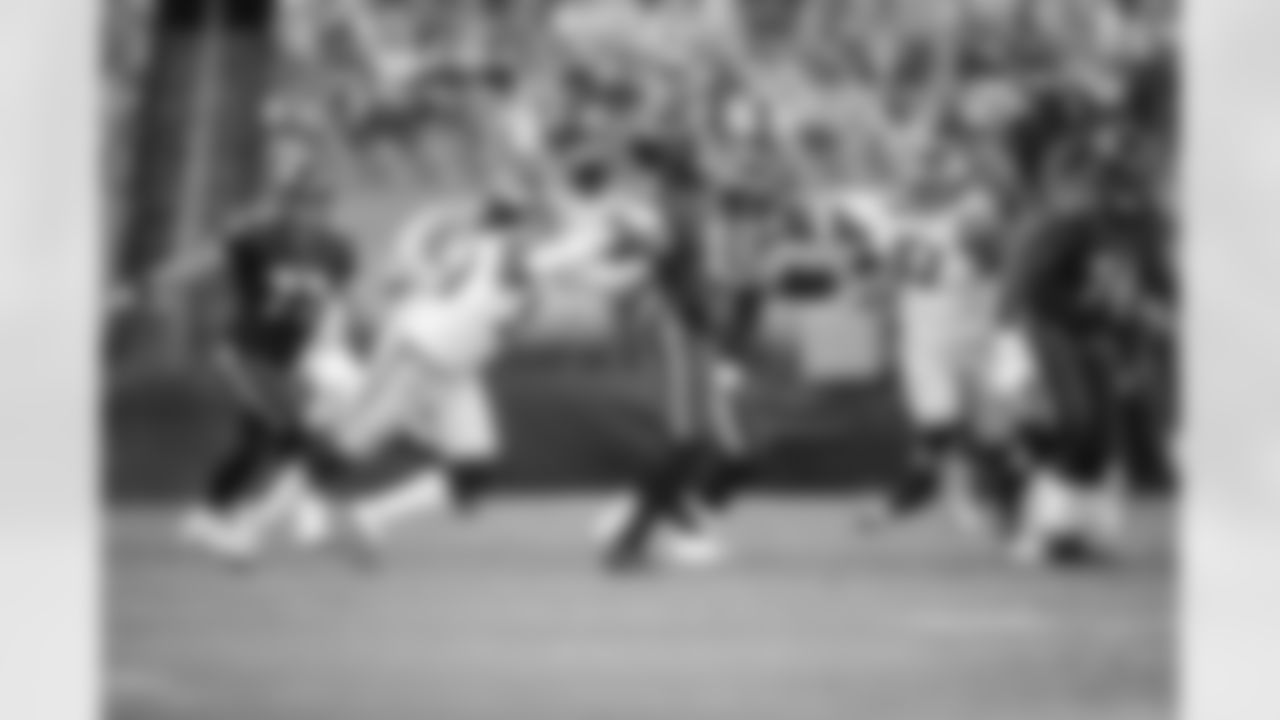
Leonard Williams (99)
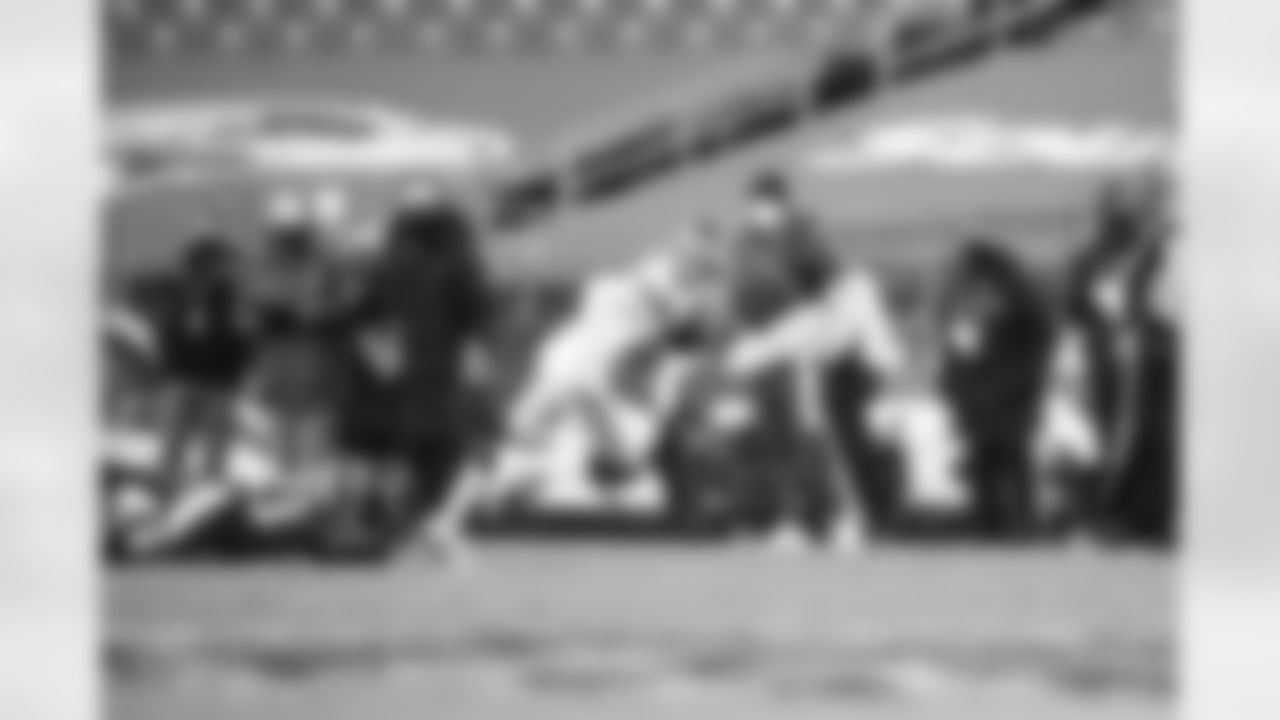
C.J. Board (18)
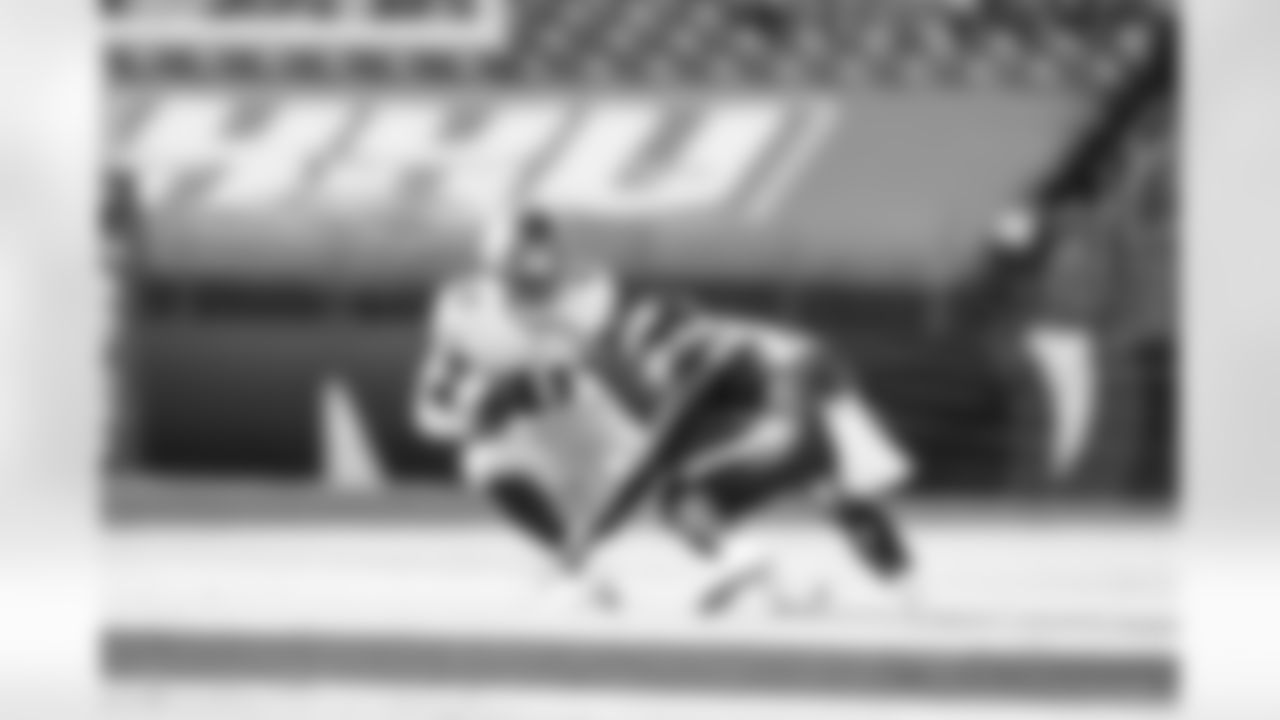
Alfred Morris (41)
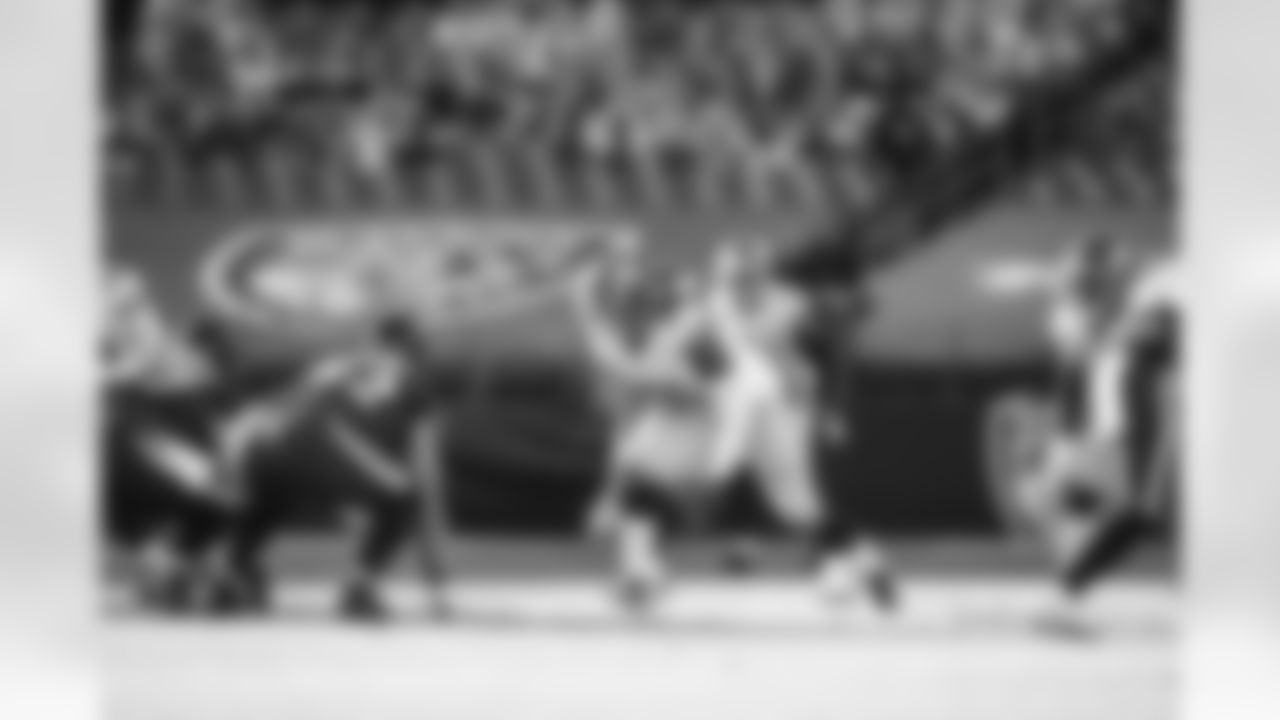
Jabaal Sheard (91)

Evan Engram (88)
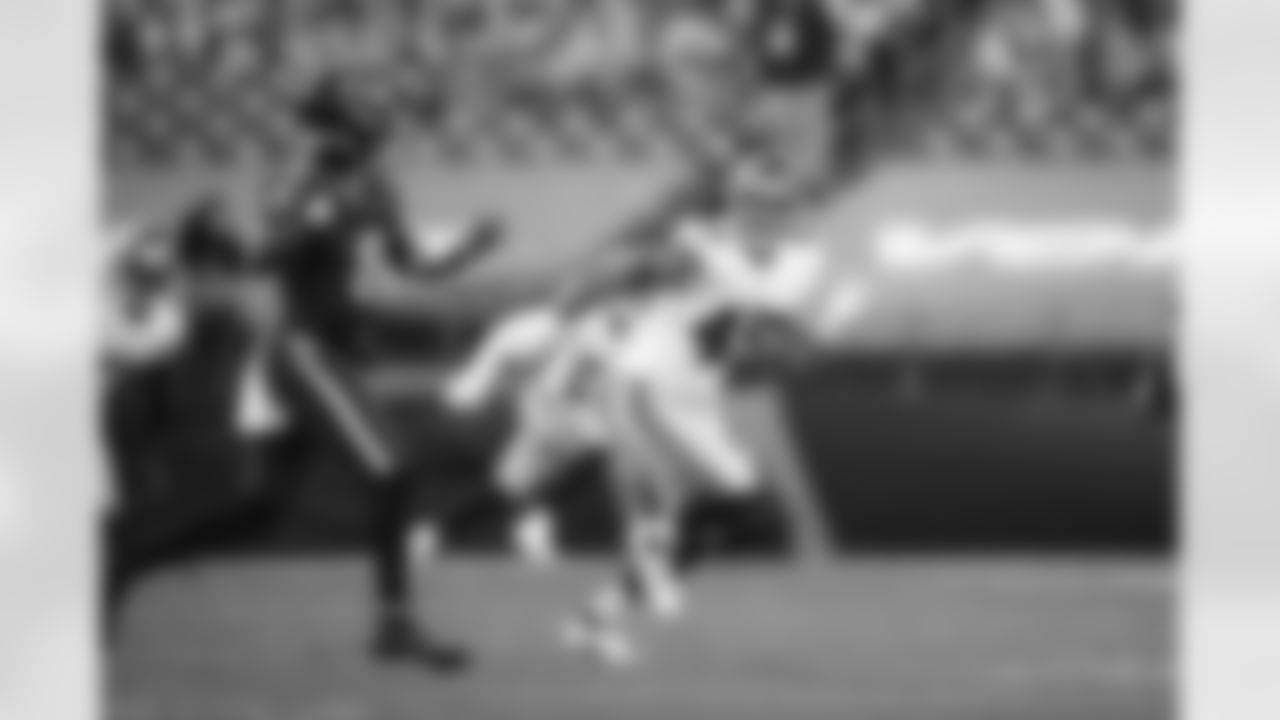
Carter Coughlin (49)
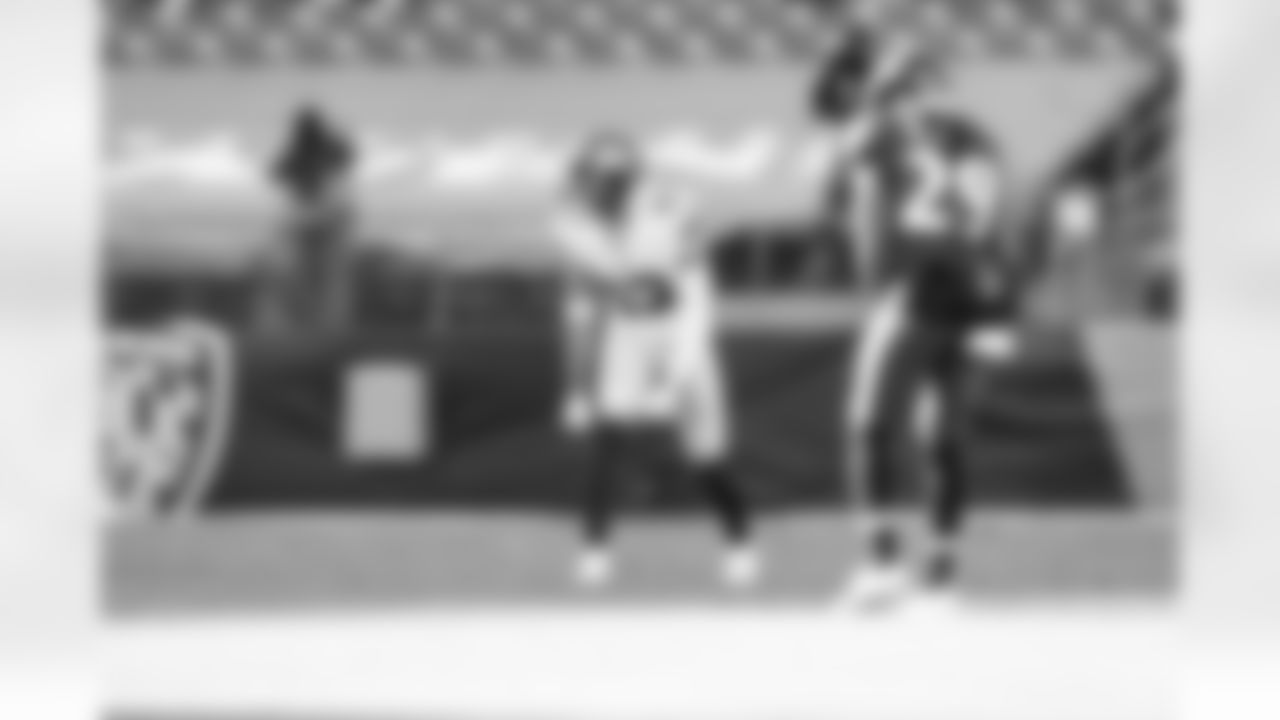
Dante Pettis (13)
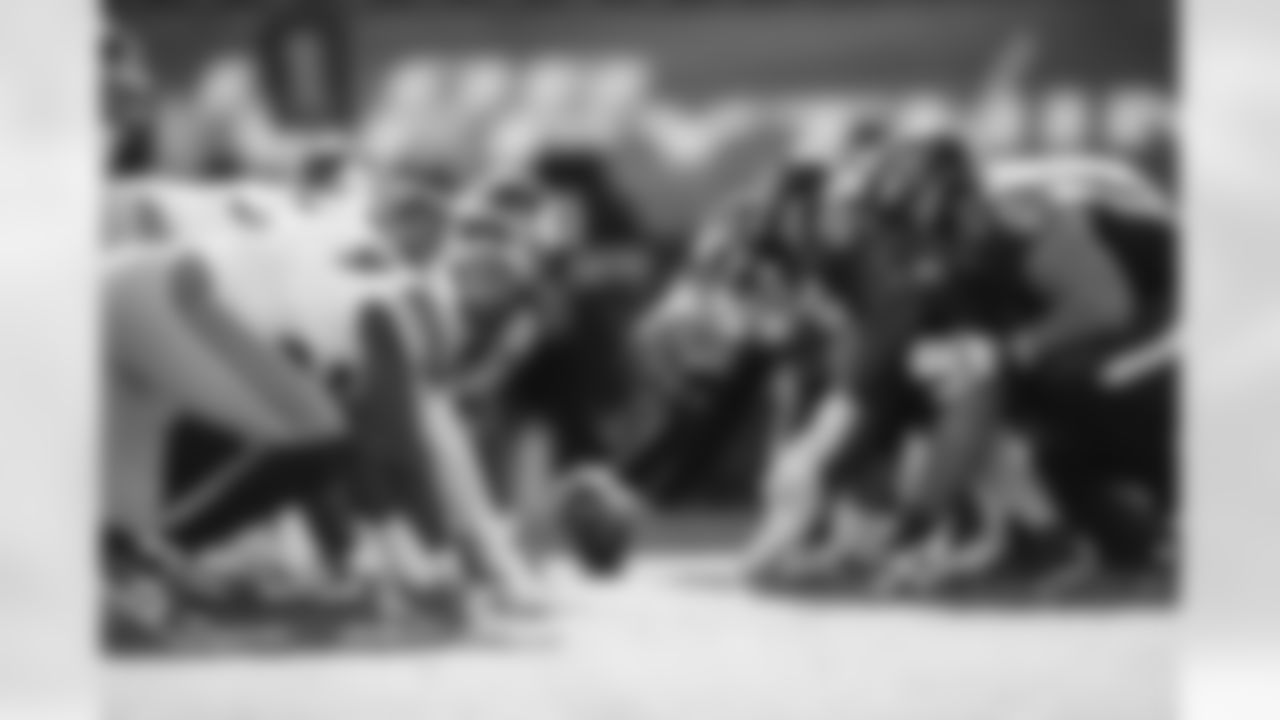
Isaac Yiadom (27)
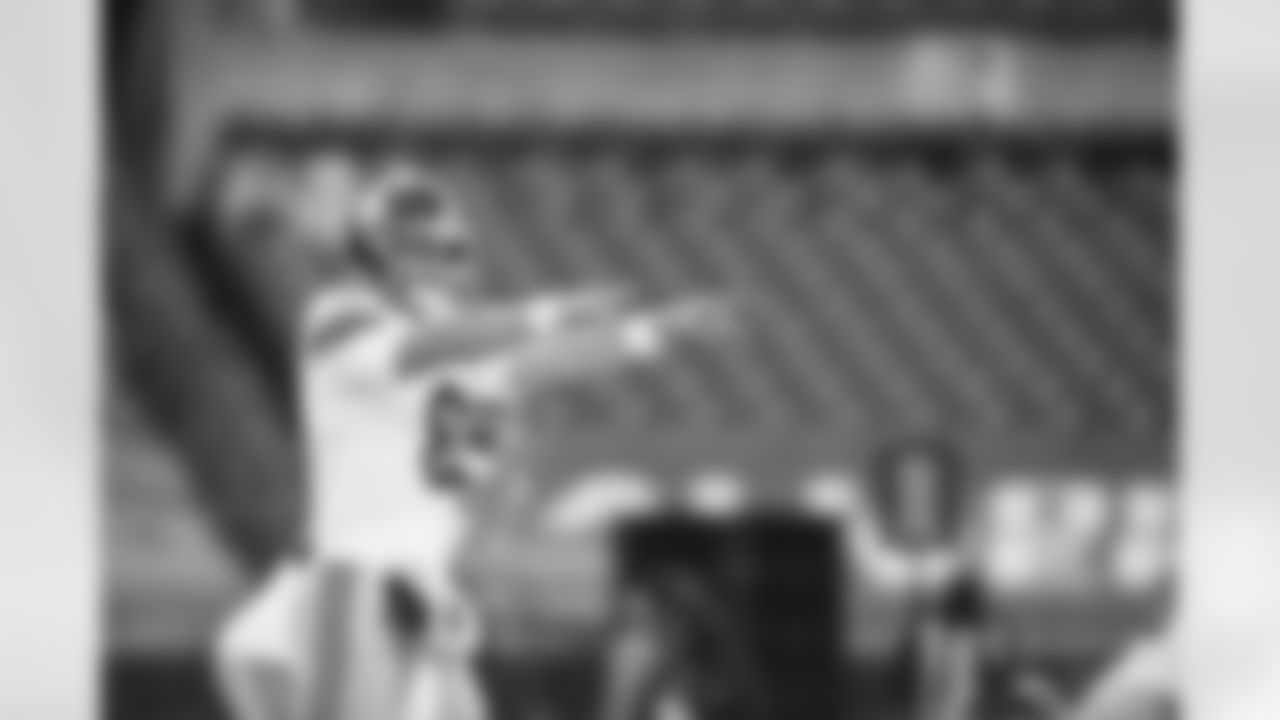
Daniel Jones (8)
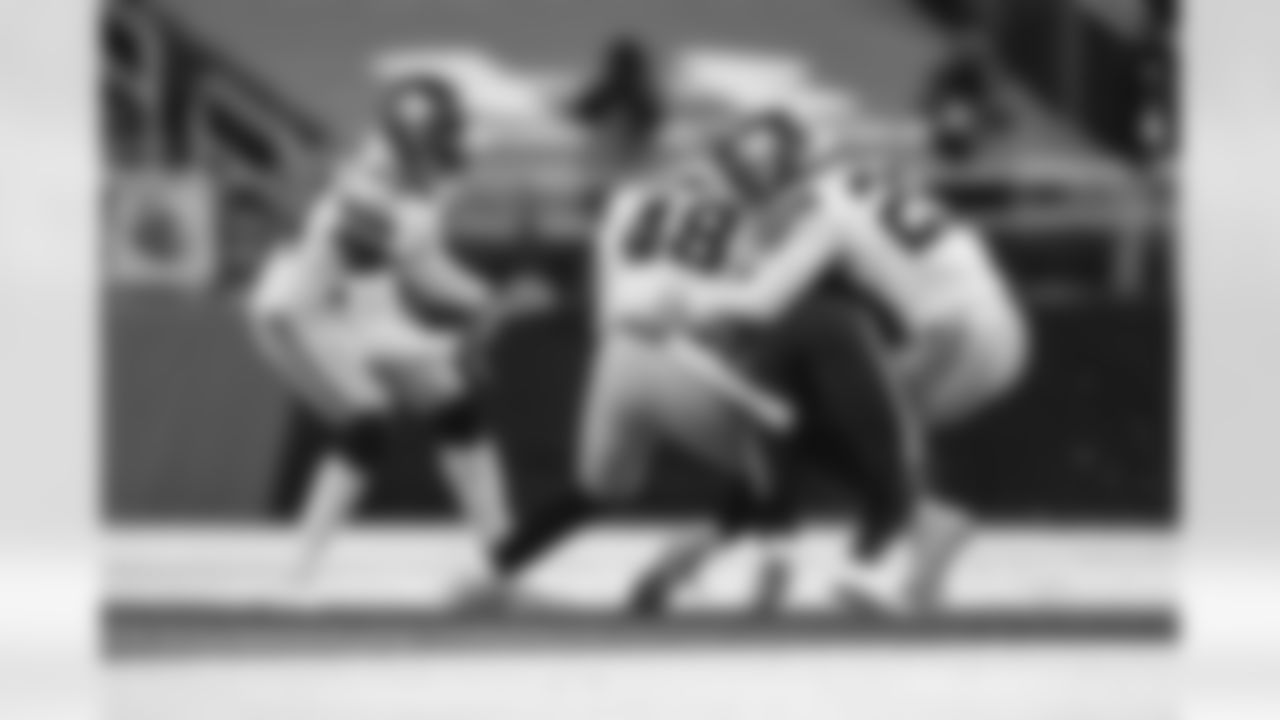
Xavier McKinney (29), Tae Crowder (48)
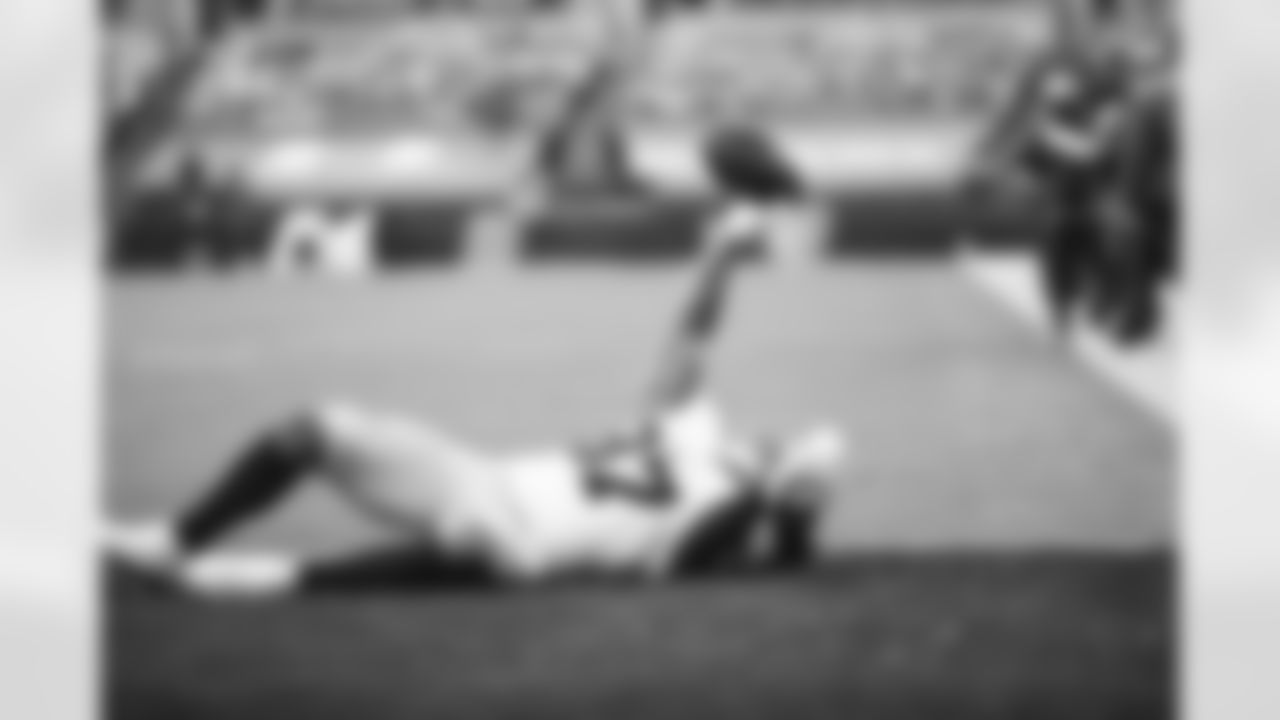
Sterling Shepard (87)
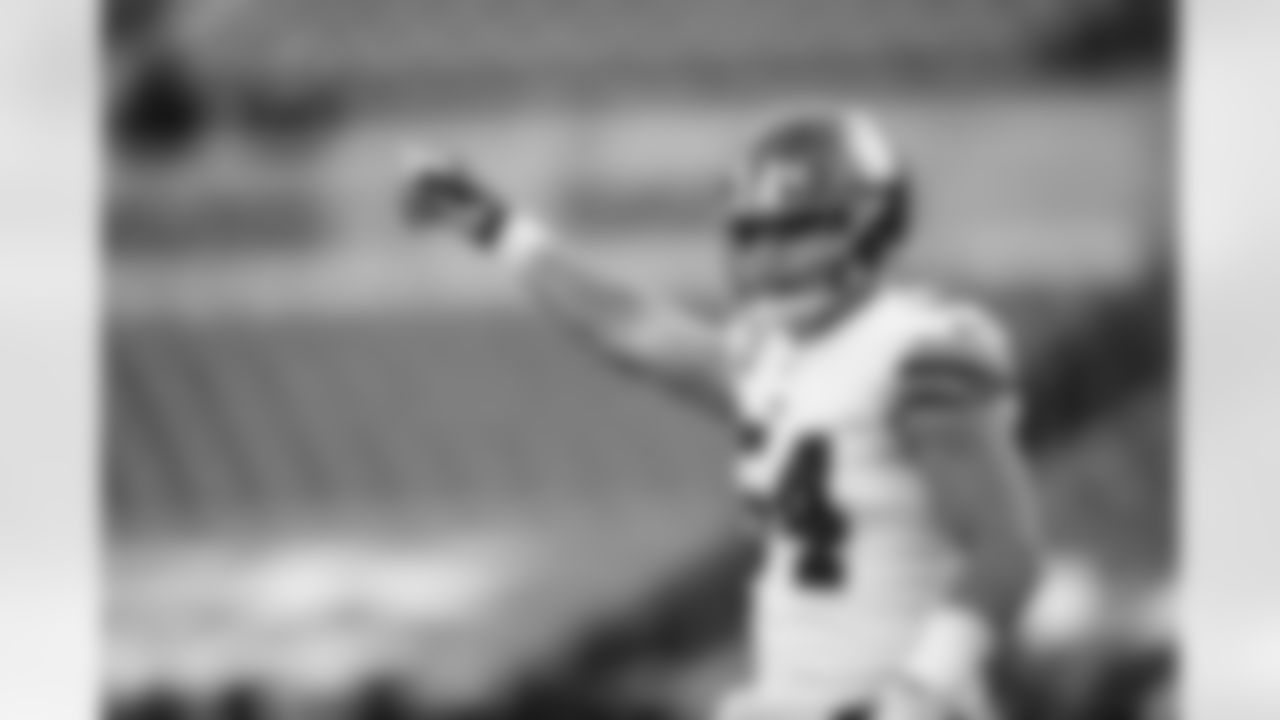
Blake Martinez (54)
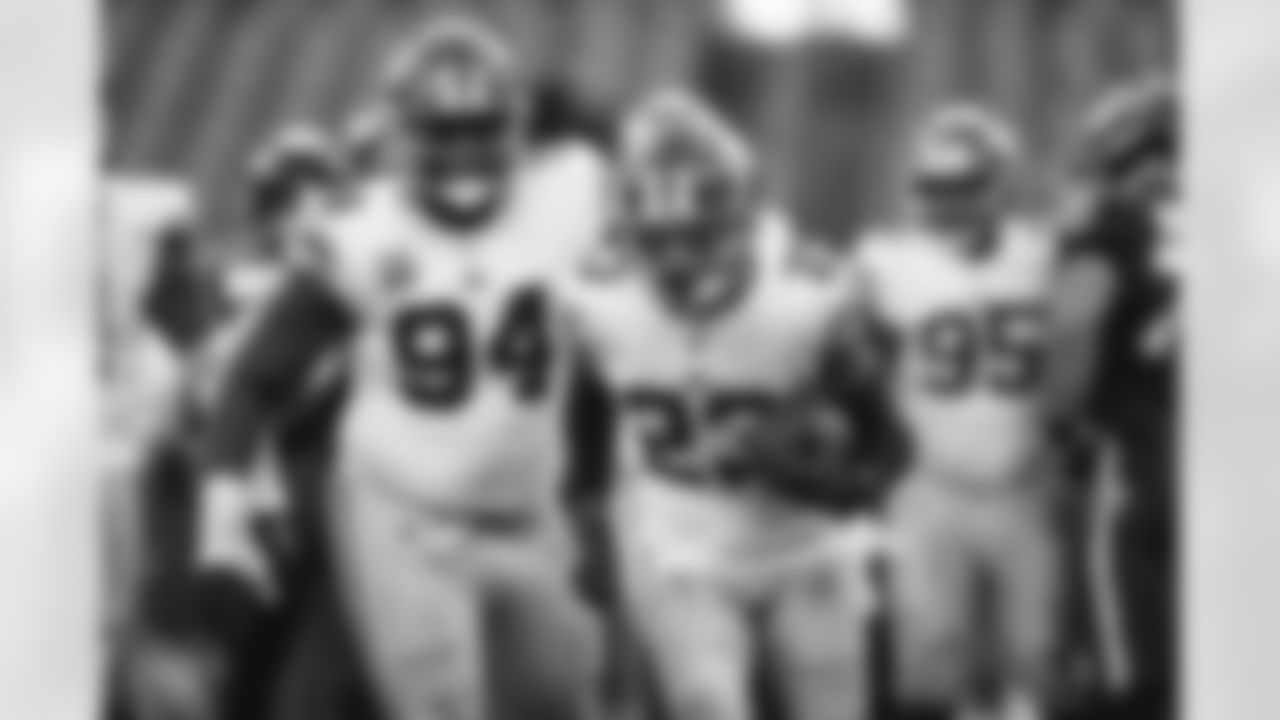
Dalvin Tomlinson (94), Logan Ryan (23)
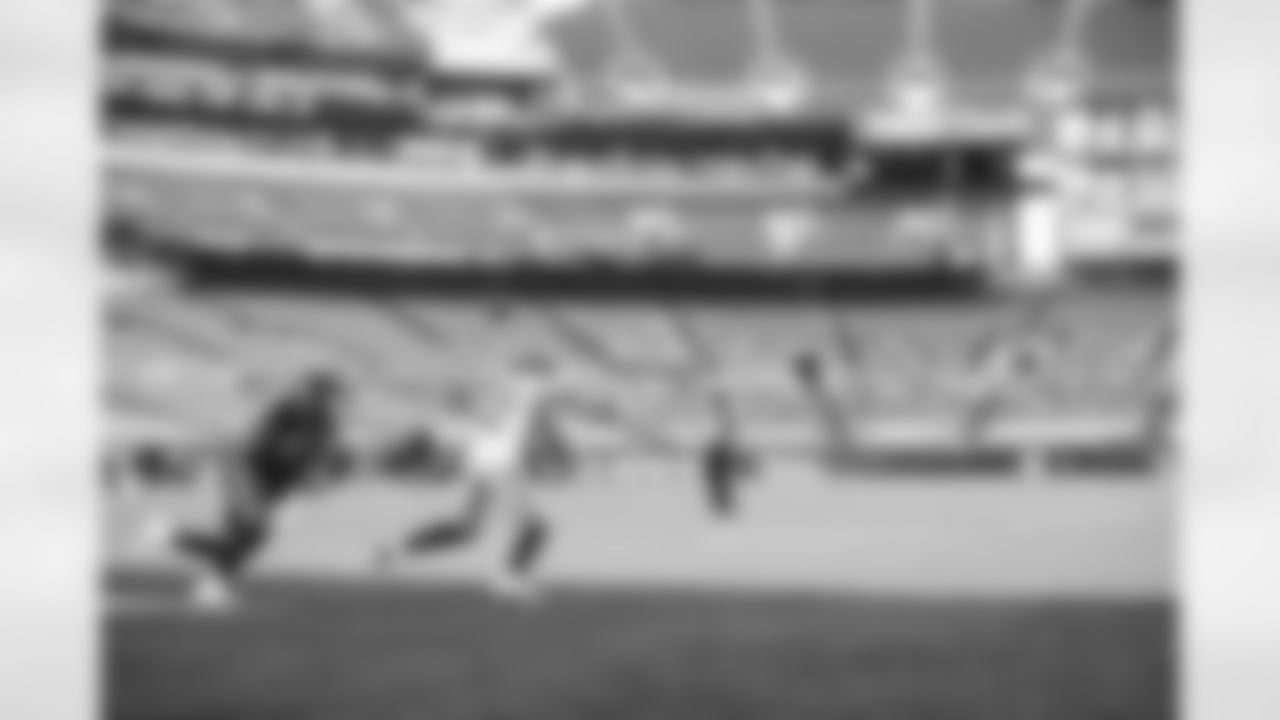
Sterling Shepard (87)
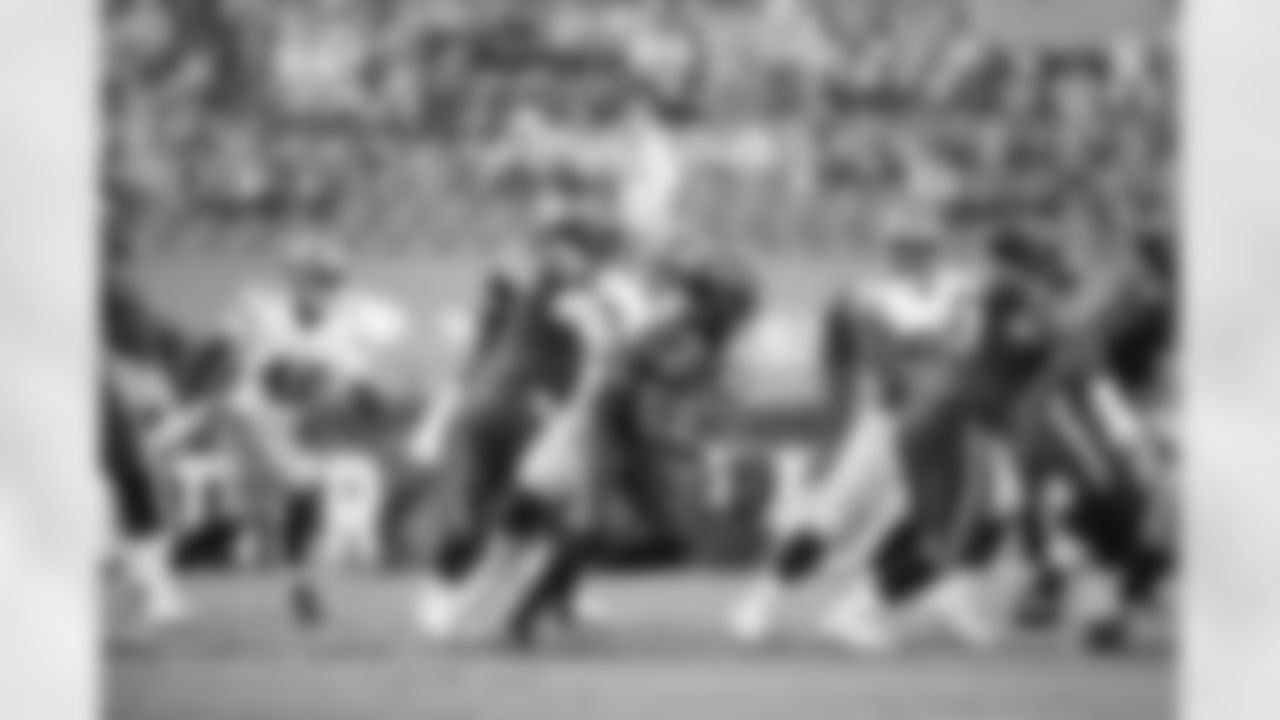
Dexter Lawrence (97)
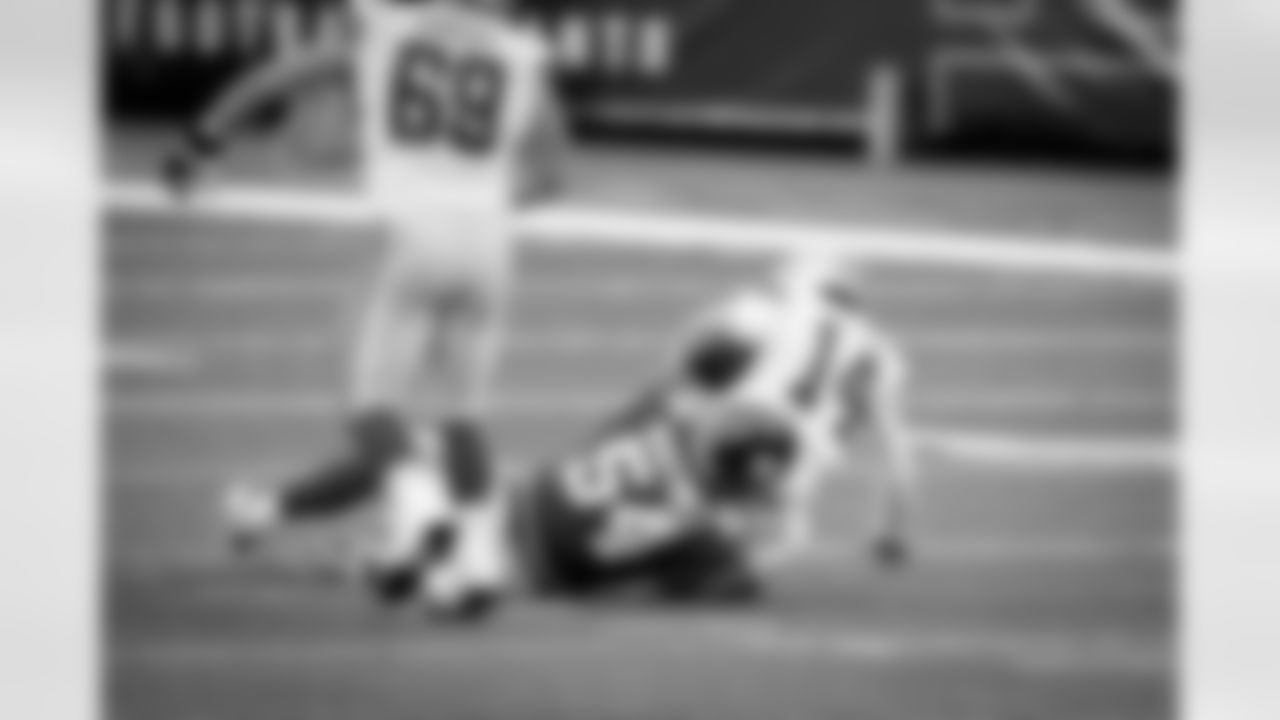
Blake Martinez (54)
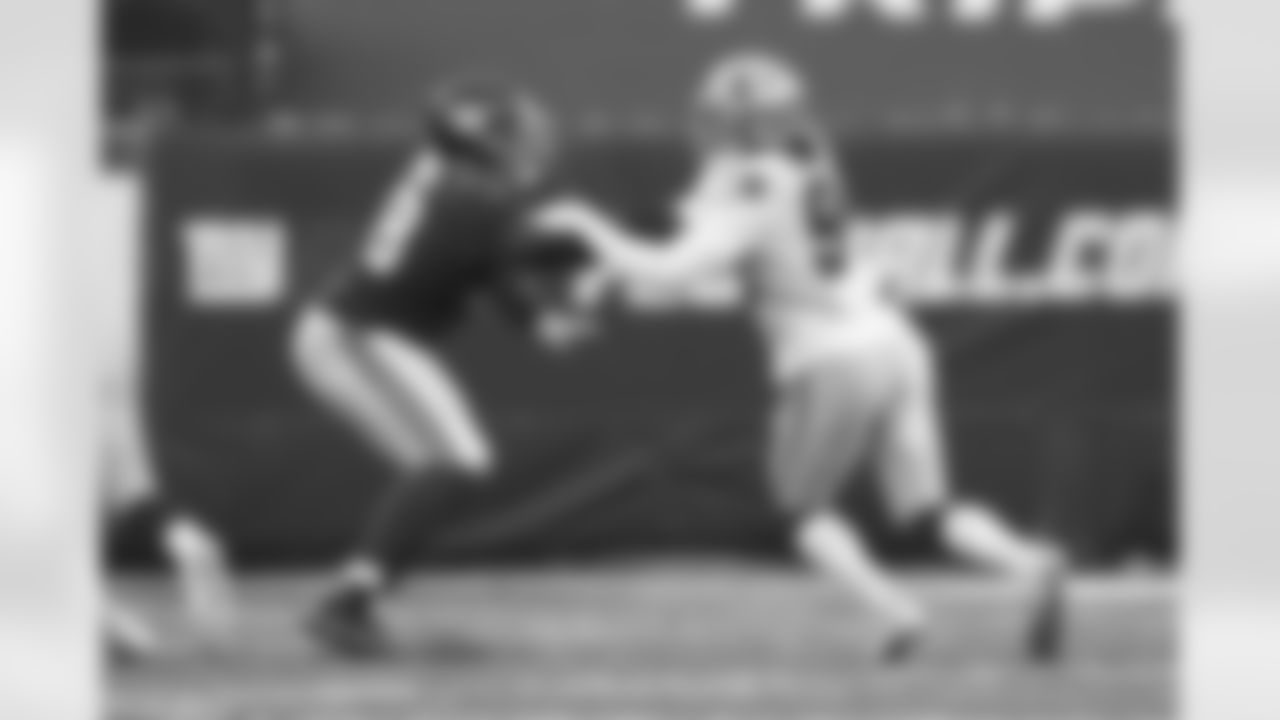
Andrew Thomas (78)
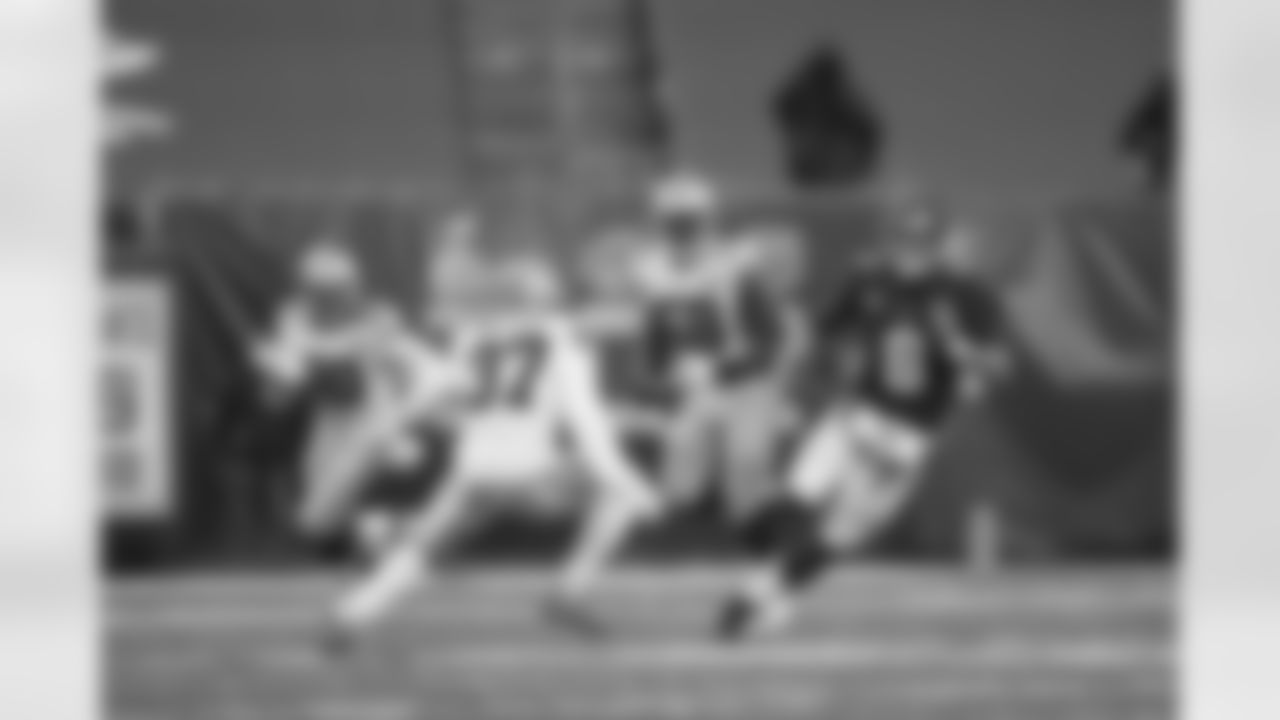
Daniel Jones (8)
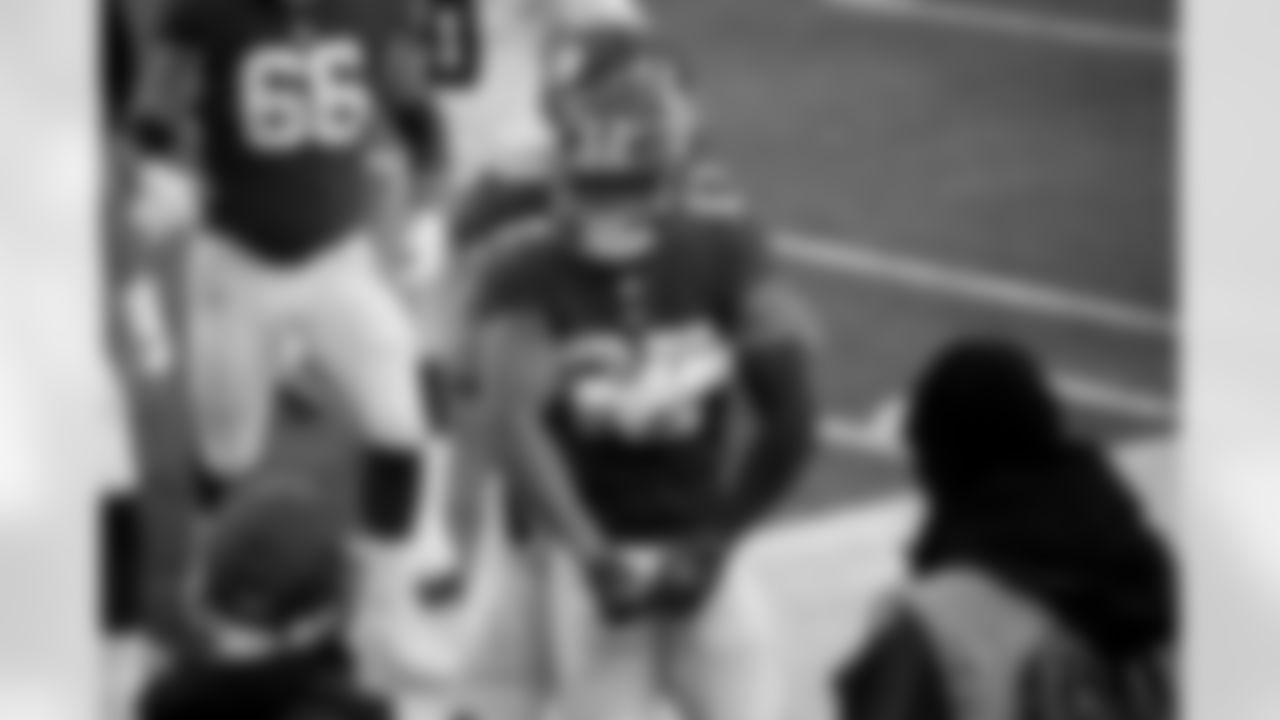
Sterling Shepard (87)
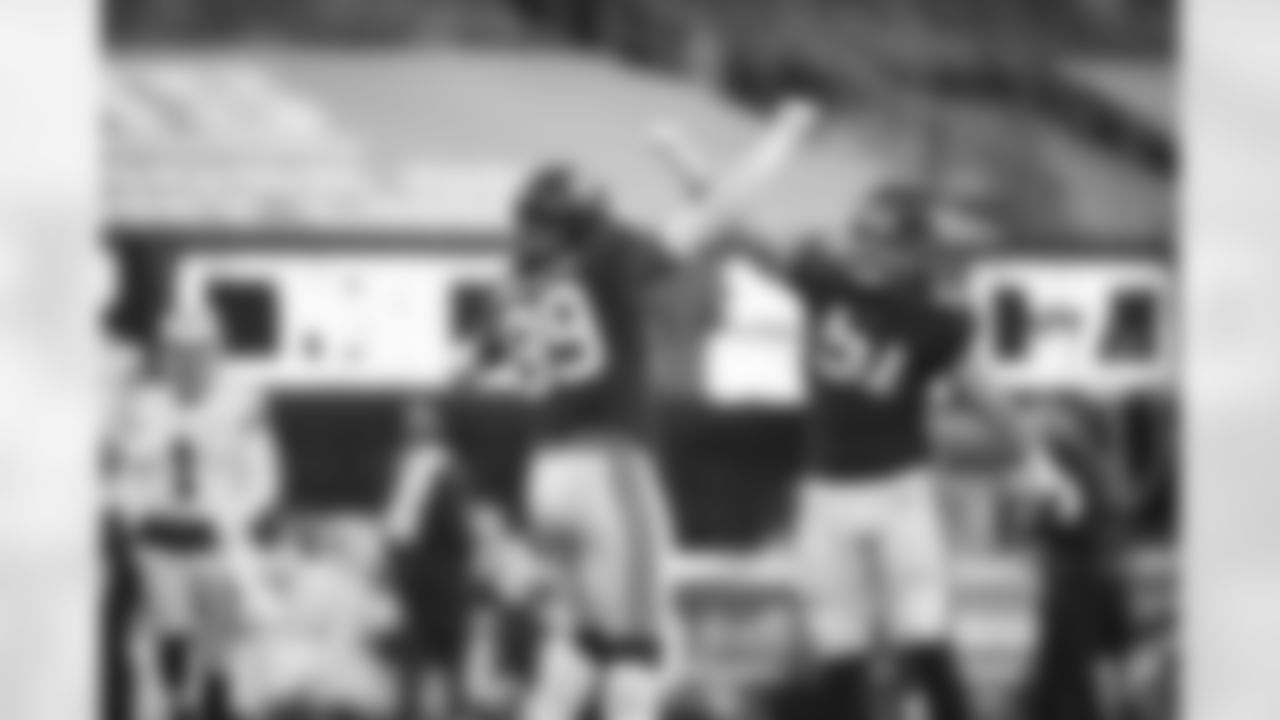
Leonard Williams (99), Kyler Fackrell (51)
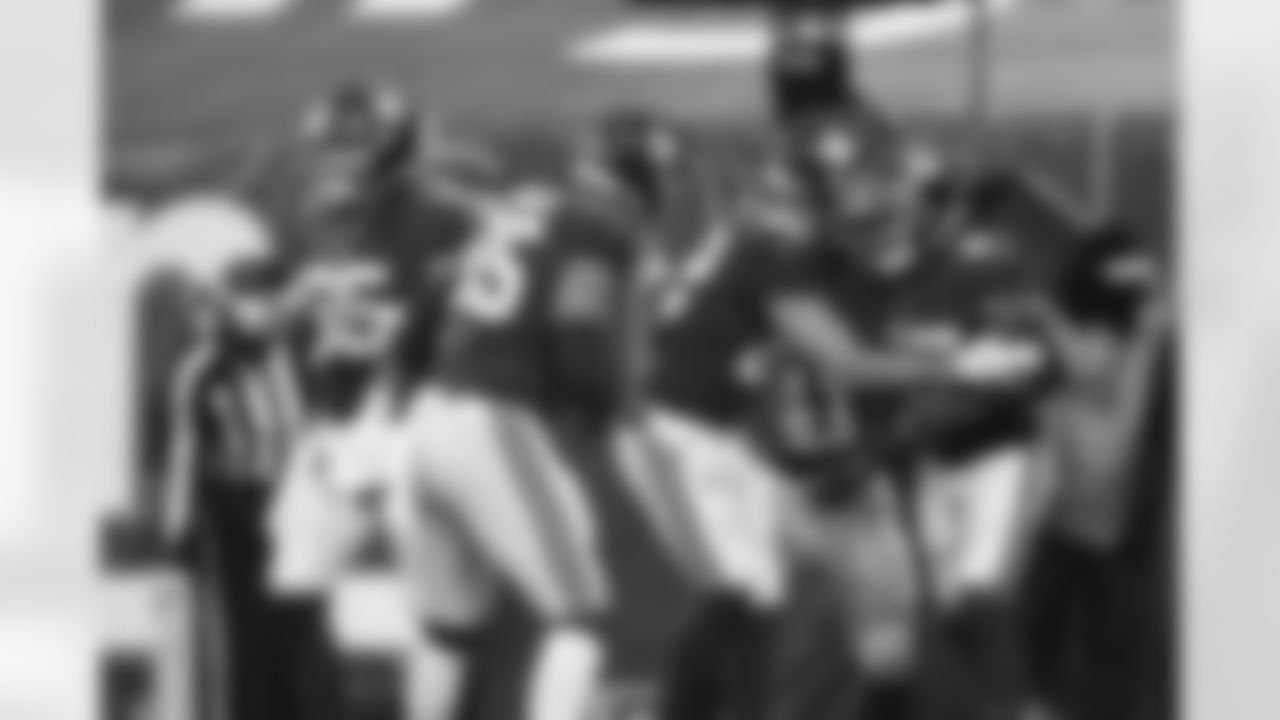
Levine Toilolo (85), Kaden Smith (82), Sterling Shepard (87)
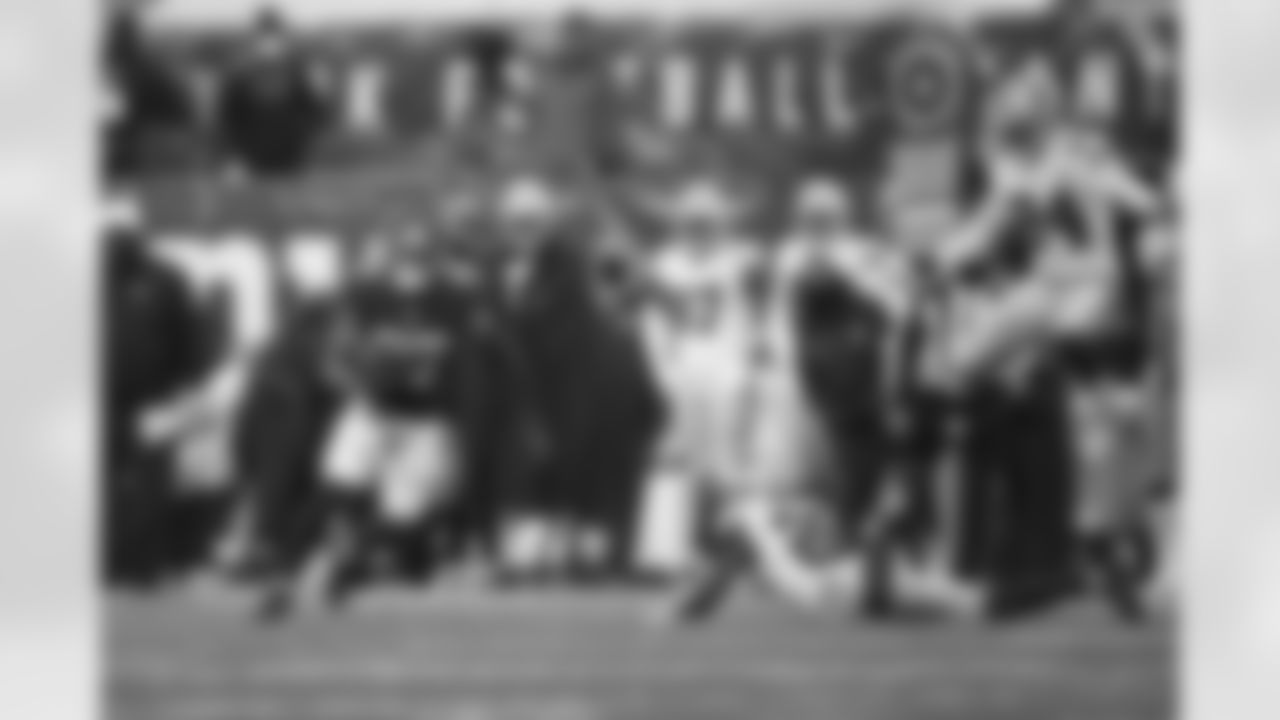
Sterling Shepard (87)
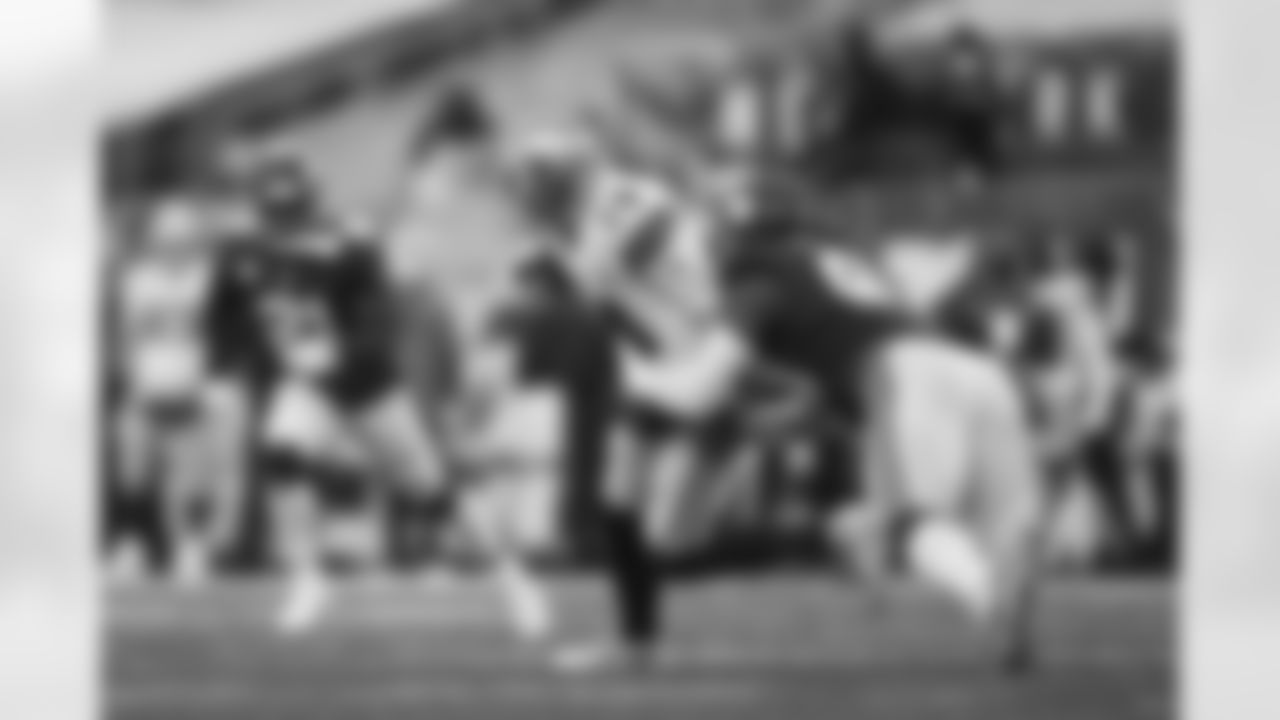
Leonard Williams (99)
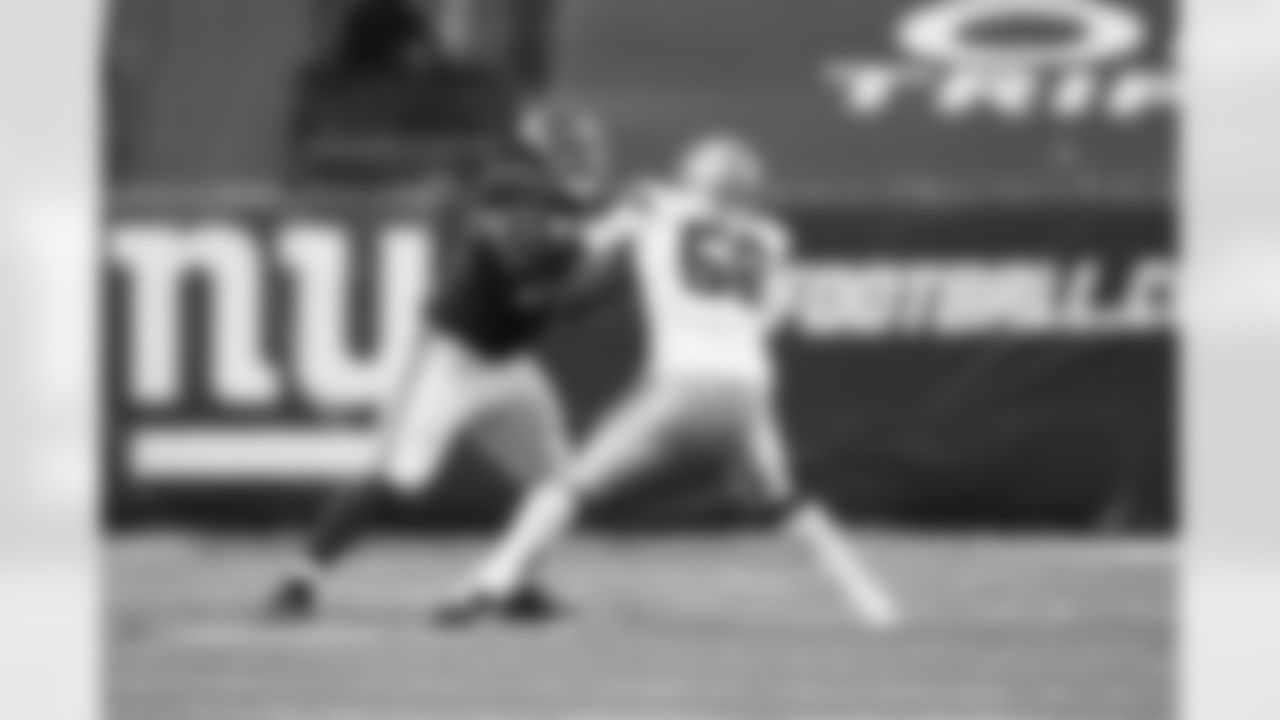
Andrew Thomas (78),
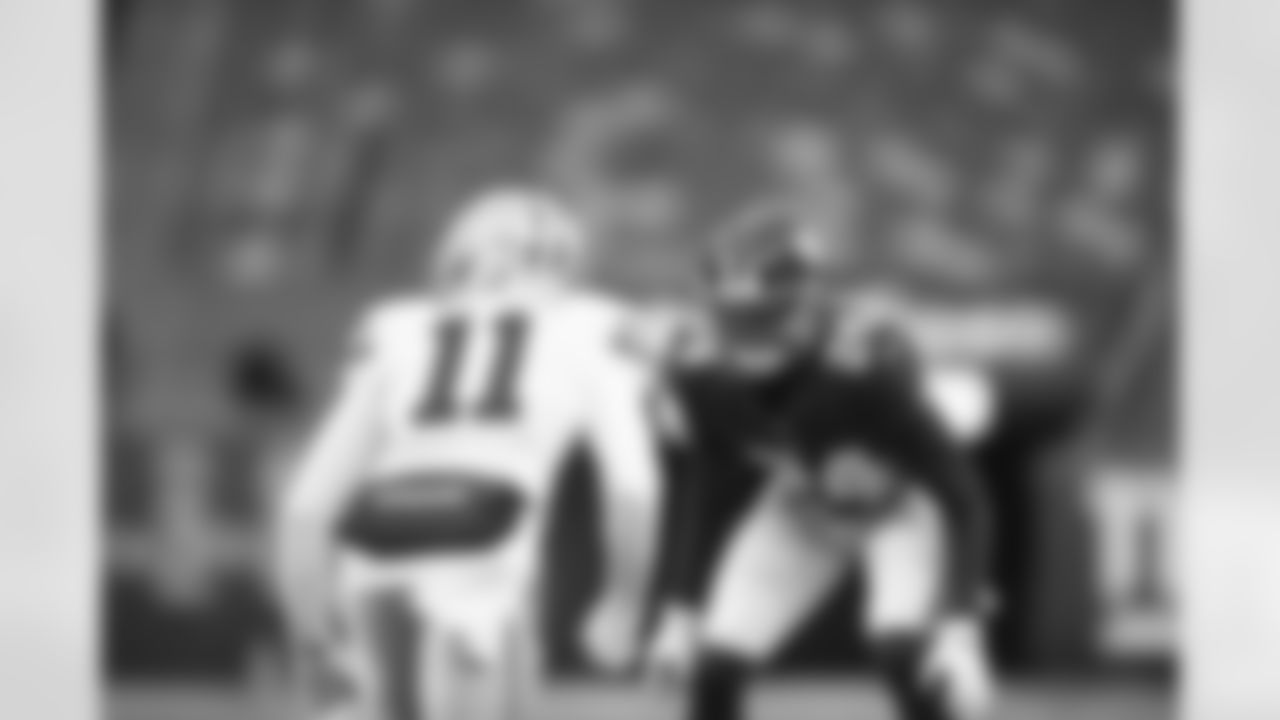
James Bradberry (24)
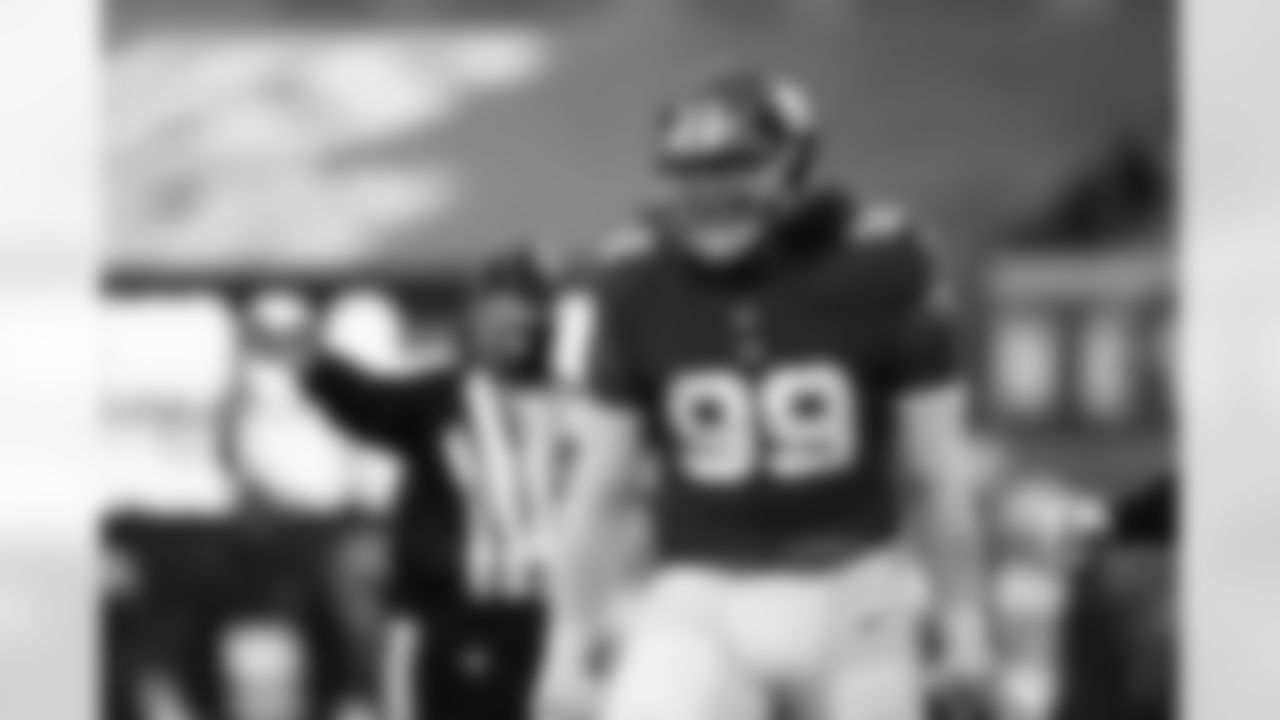
Leonard Williams (99)
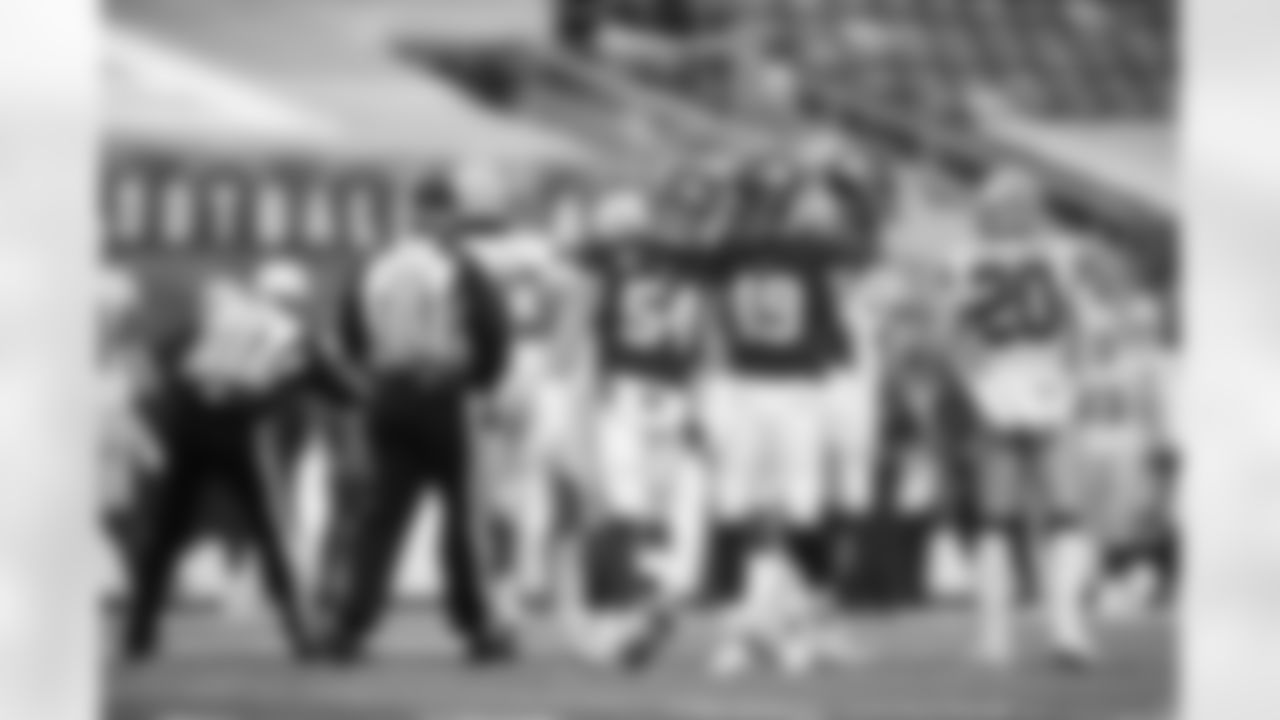
Blake Martinez (54), Carter Coughlin (49)
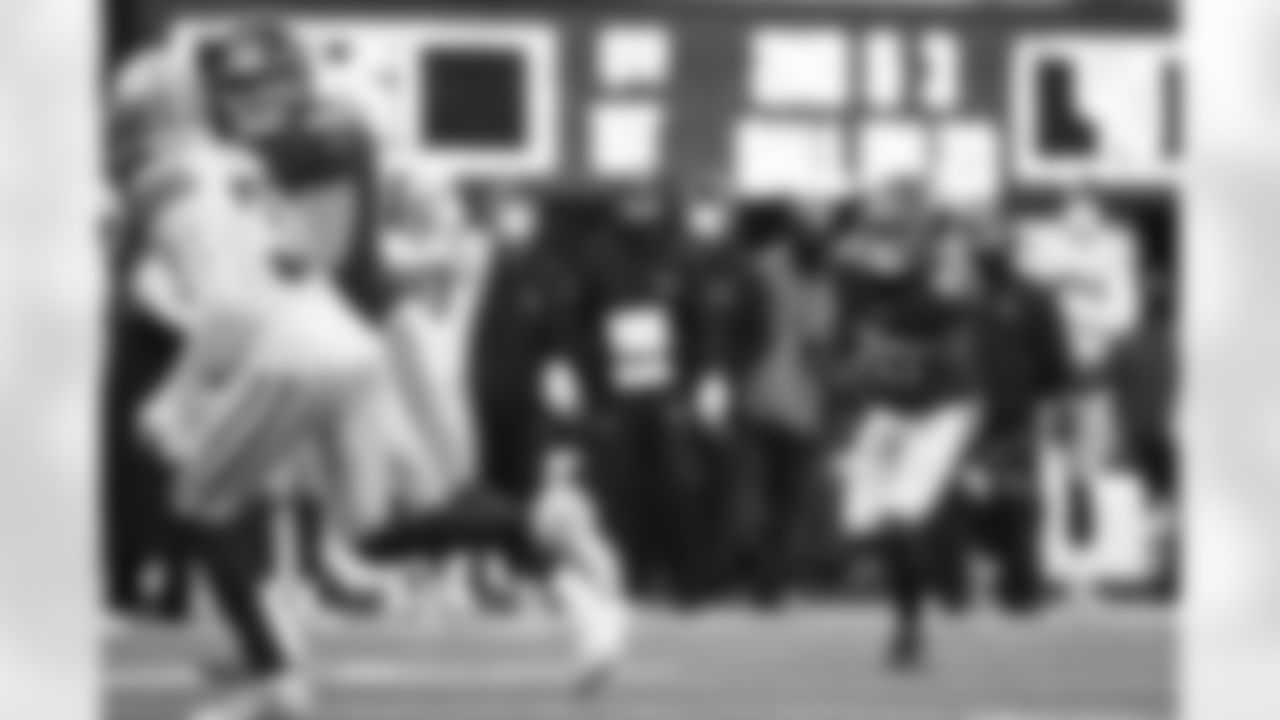
Sterling Shepard (87)
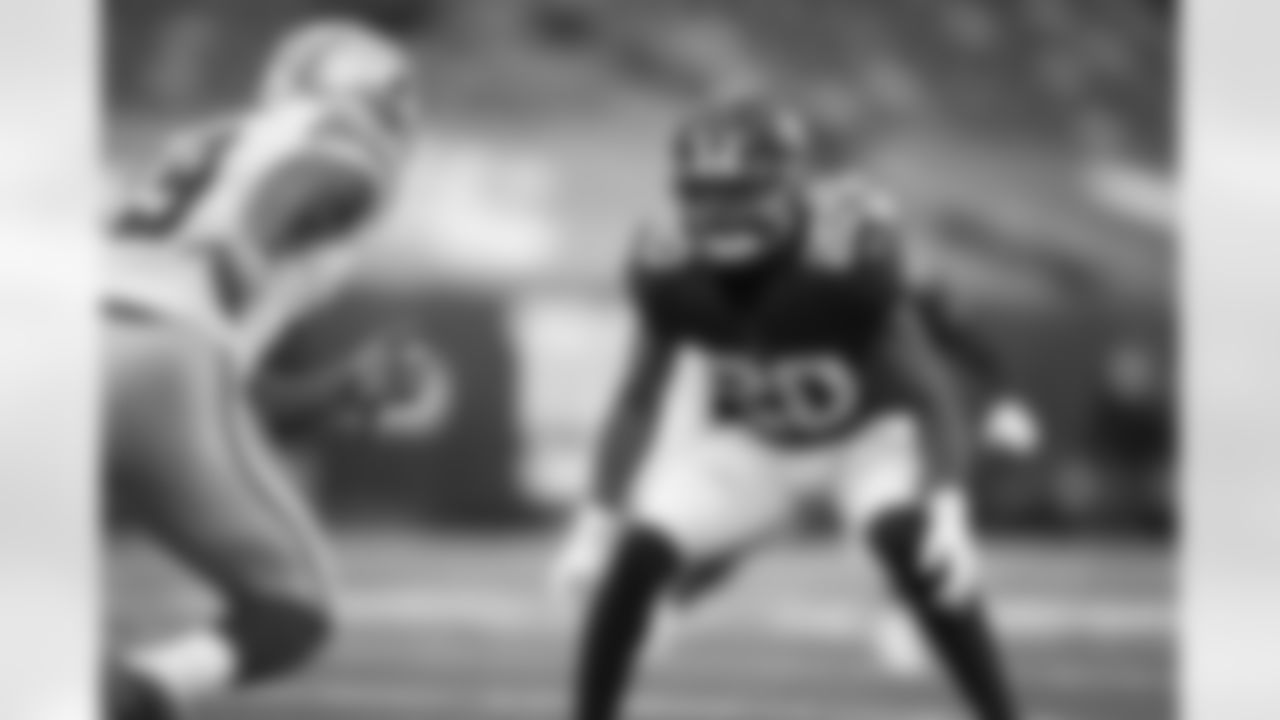
Julian Love (20)
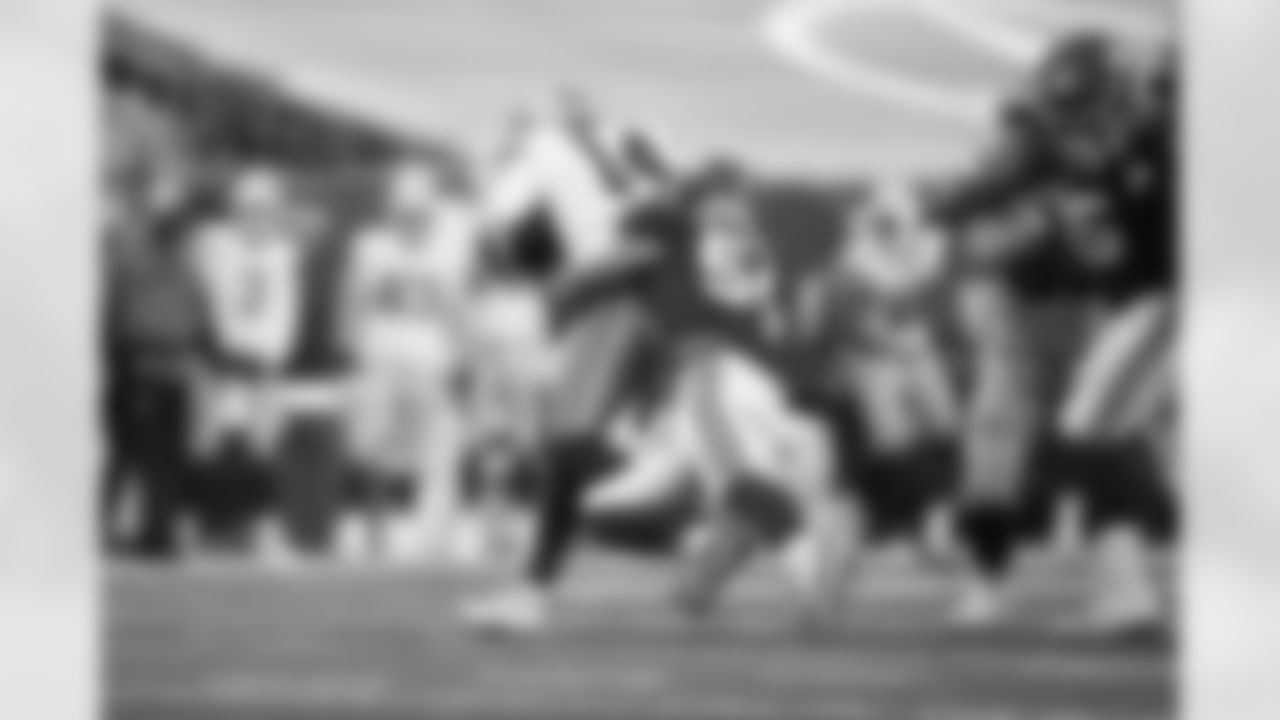
Blake Martinez (54)
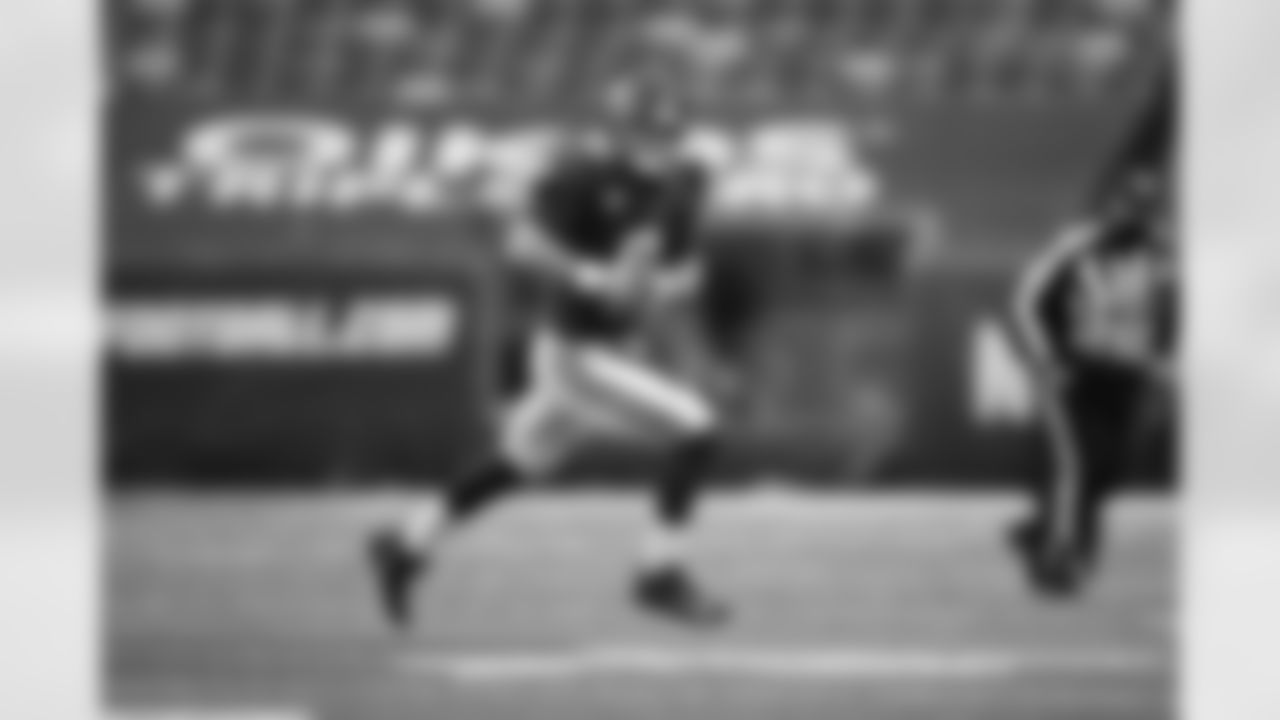
Daniel Jones (8)
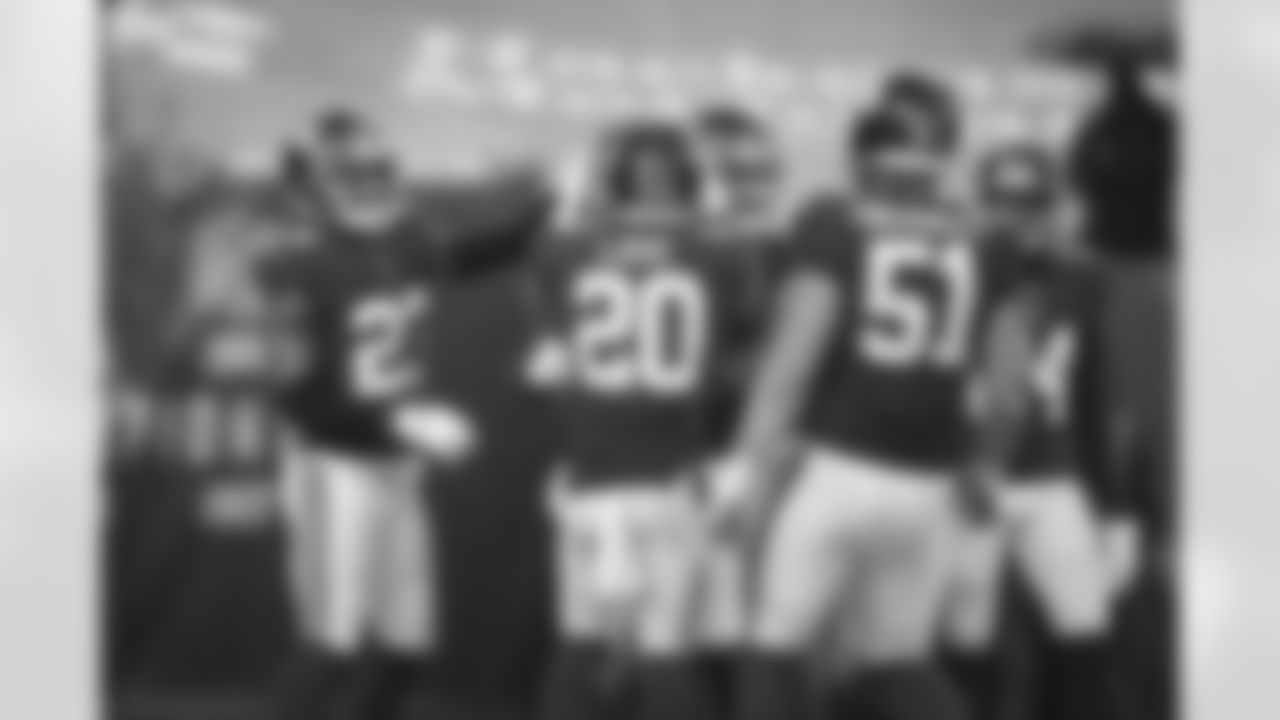
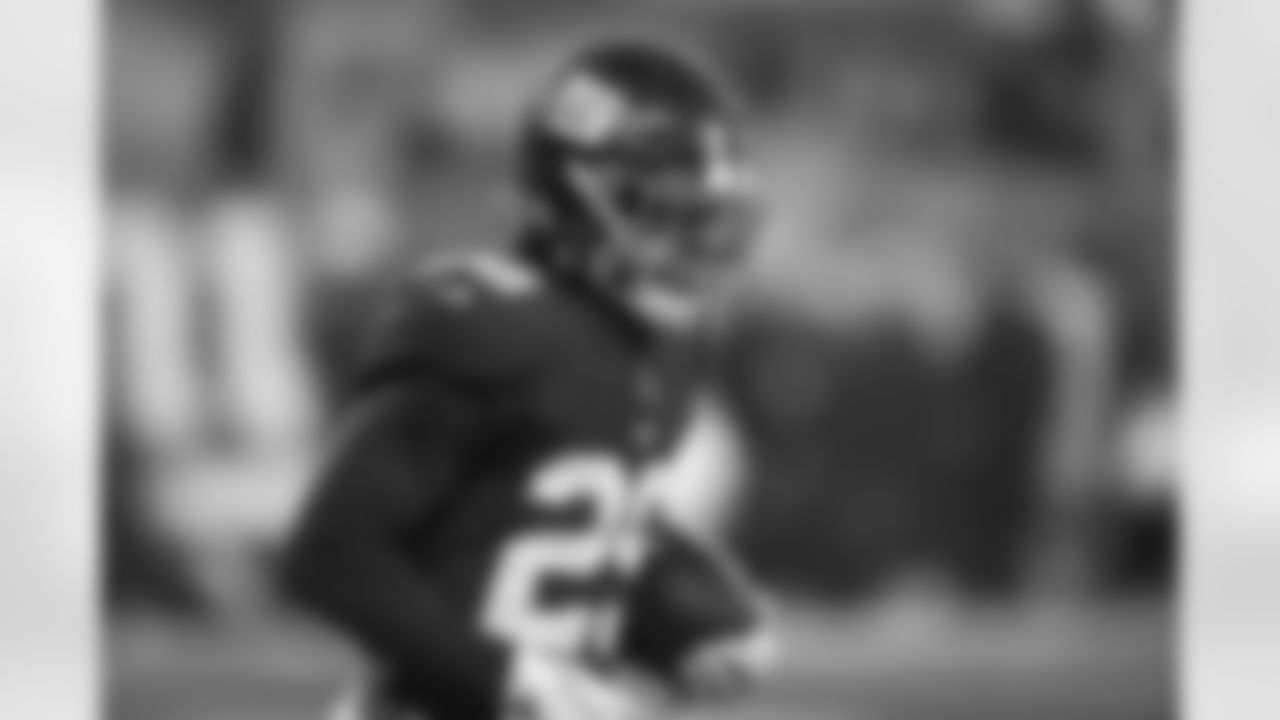
Xavier McKinney (29)
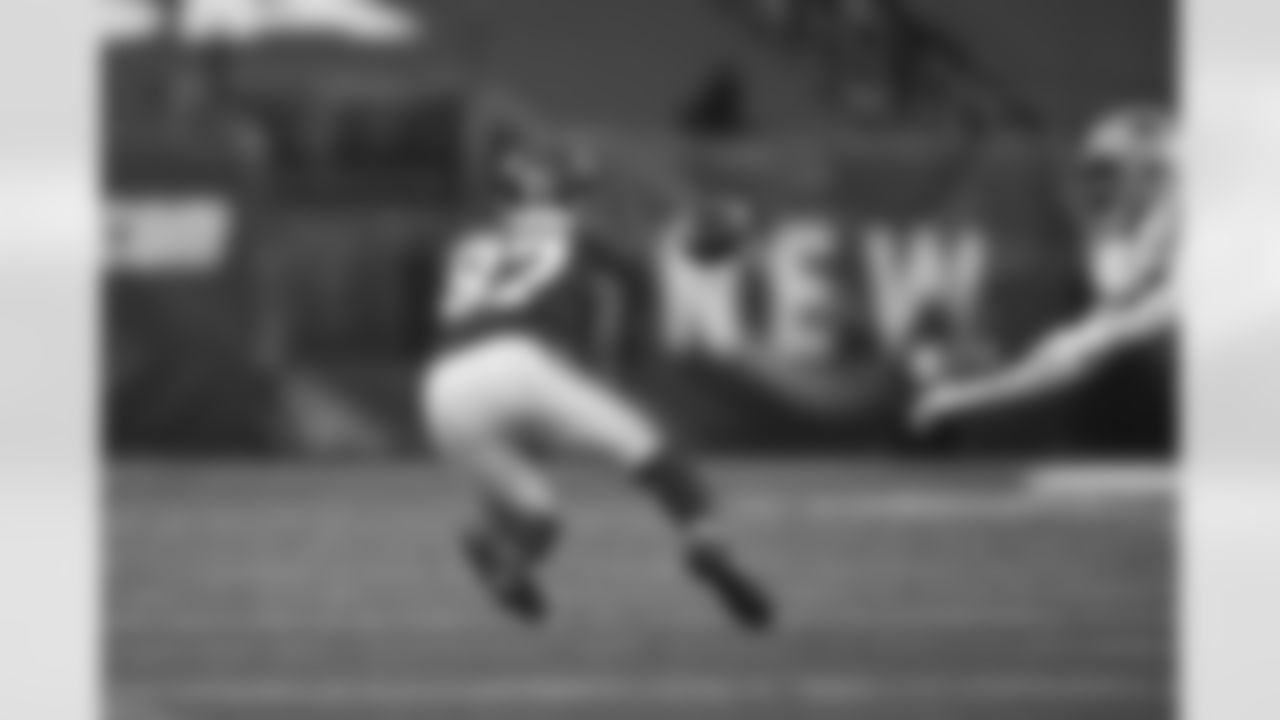
Sterling Shepard (87)
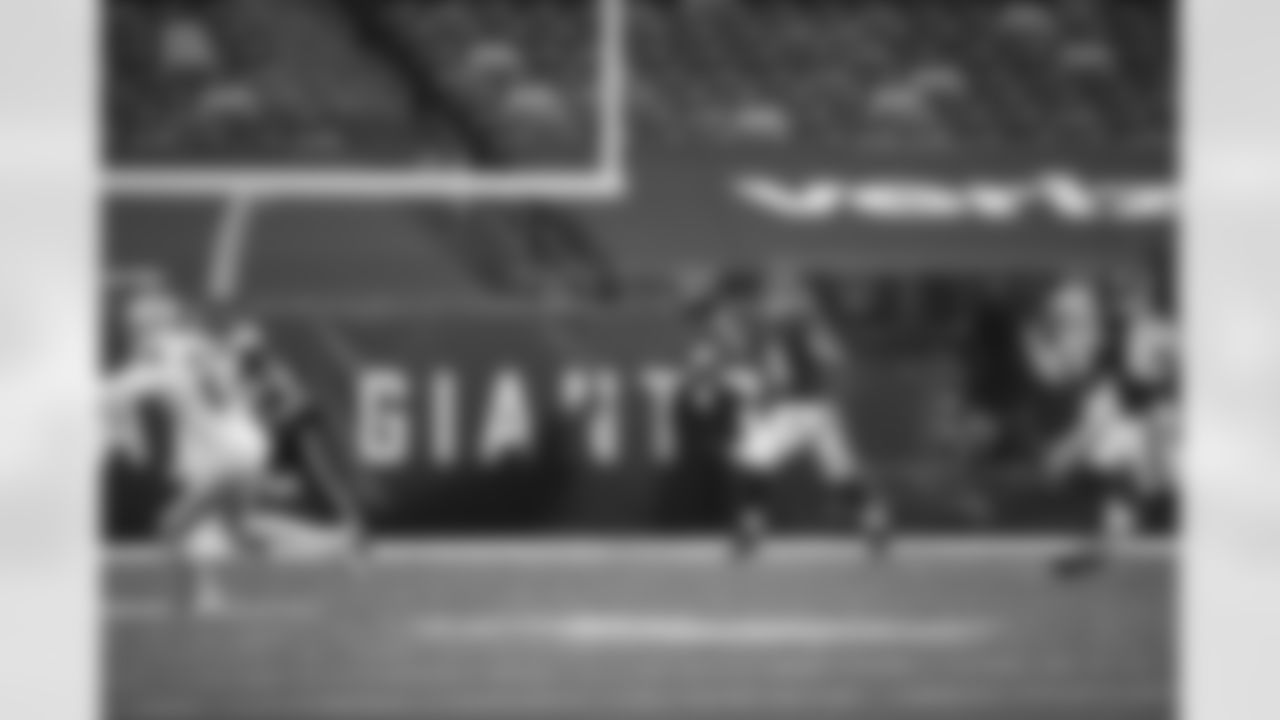
Daniel Jones (8)
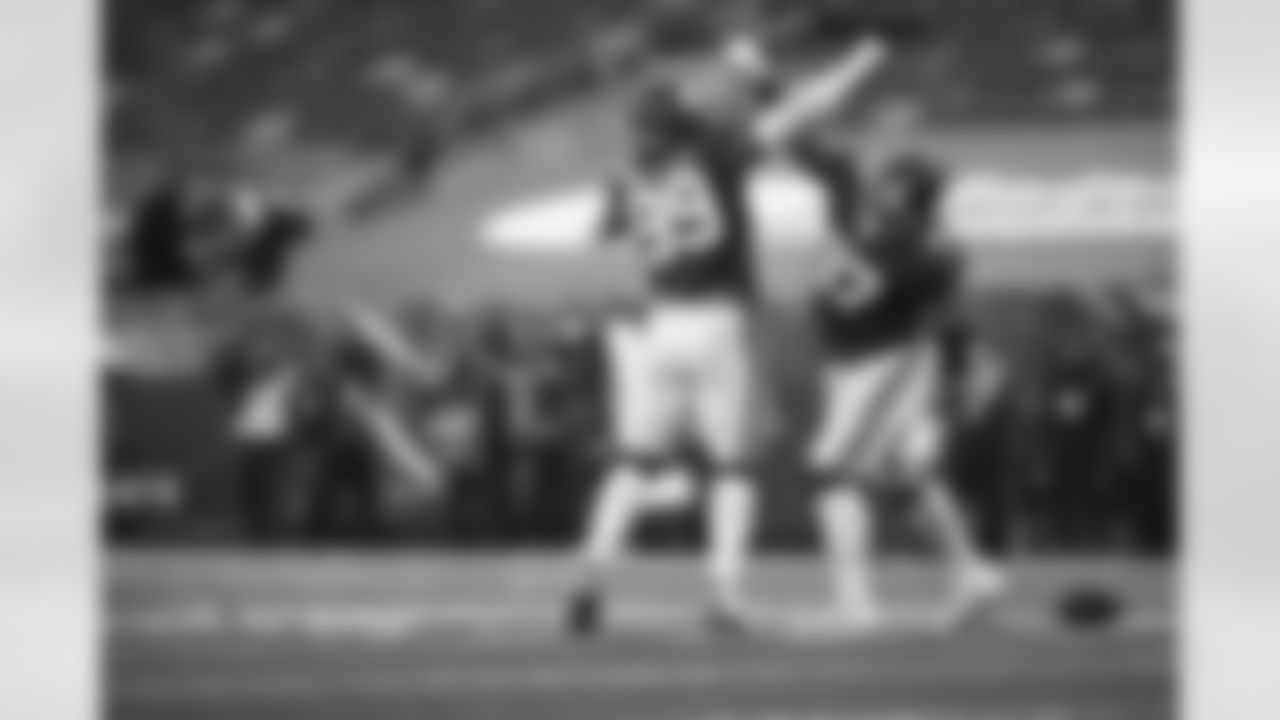
Leonard Williams (99), Dexter Lawrence (97)
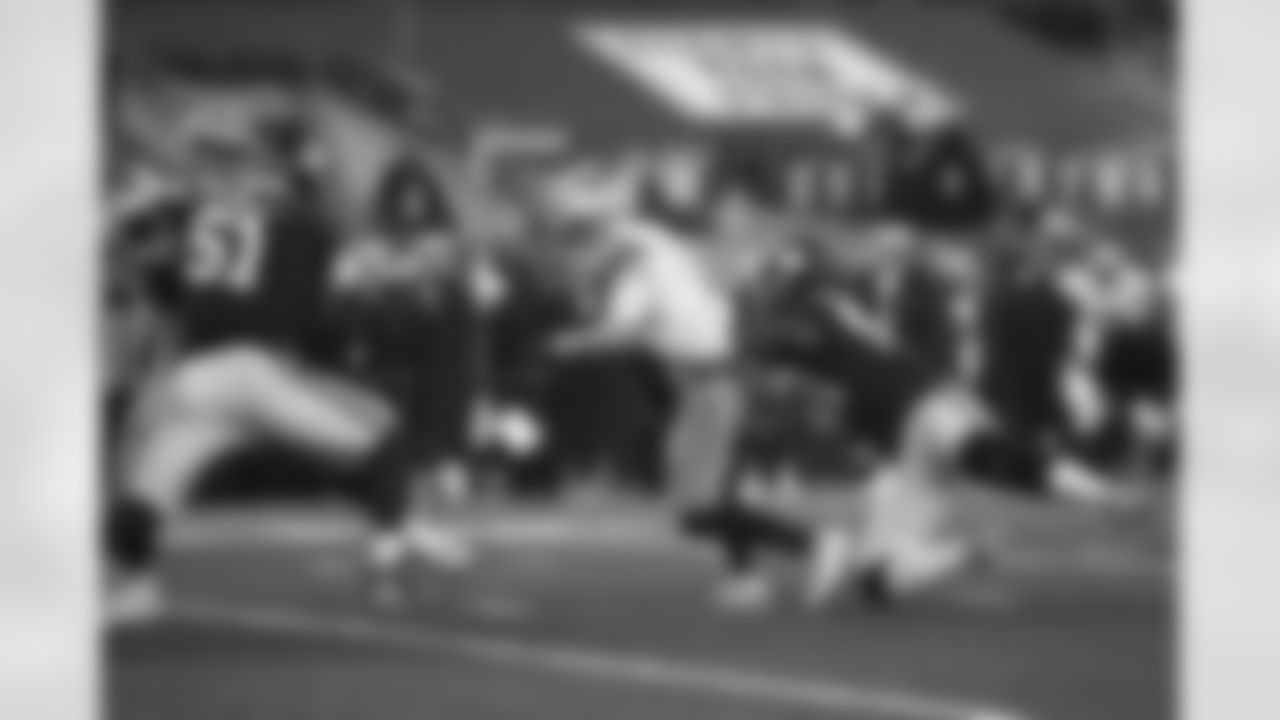
Leonard Williams (99)
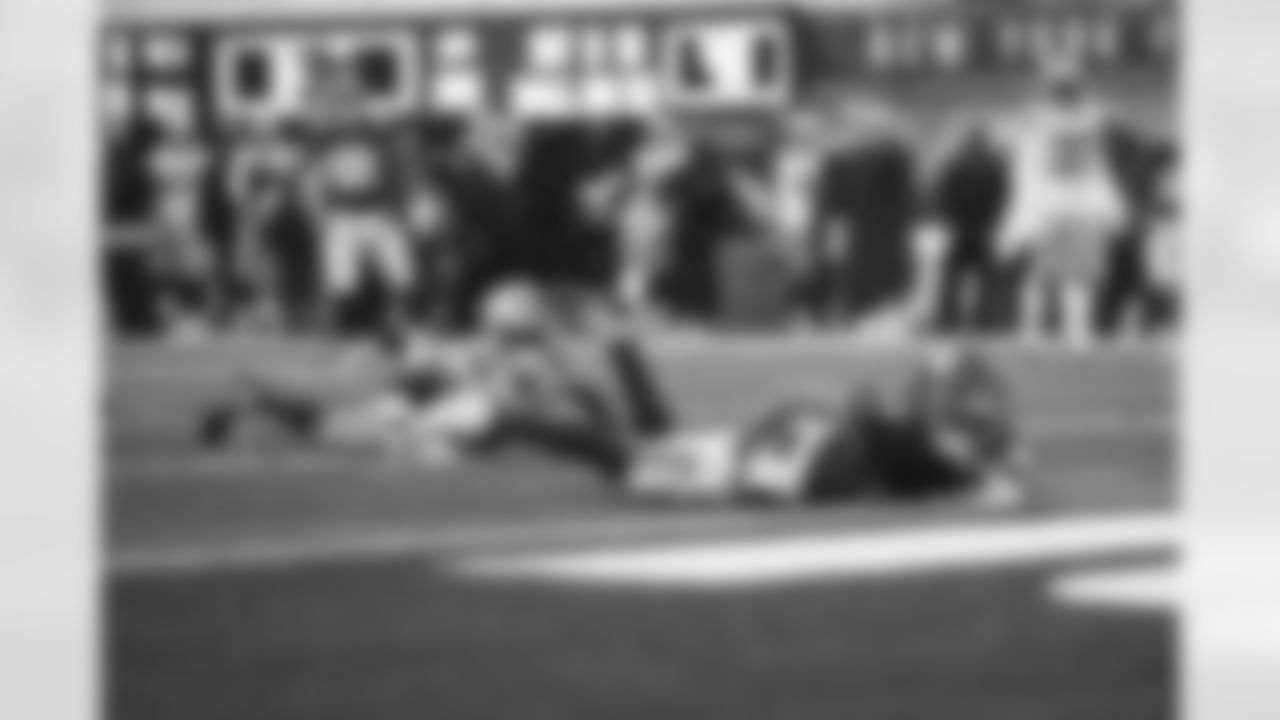
Dante Pettis (13)
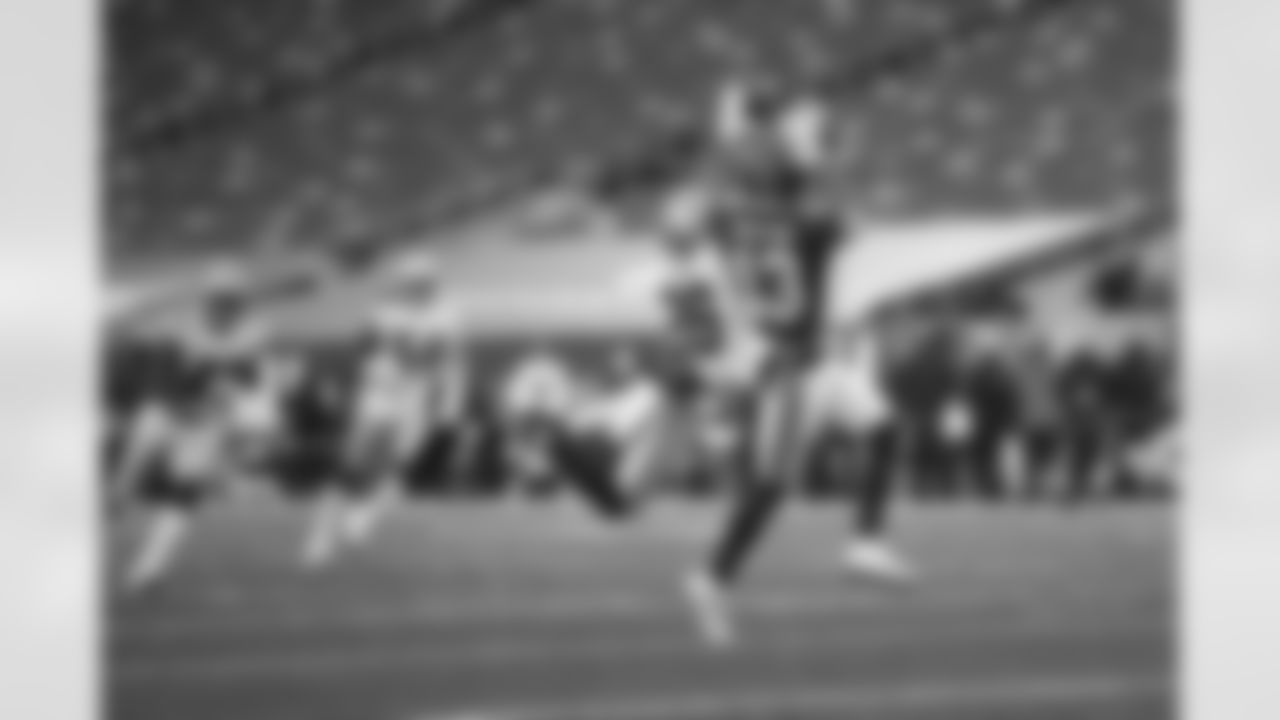
Dante Pettis (13)
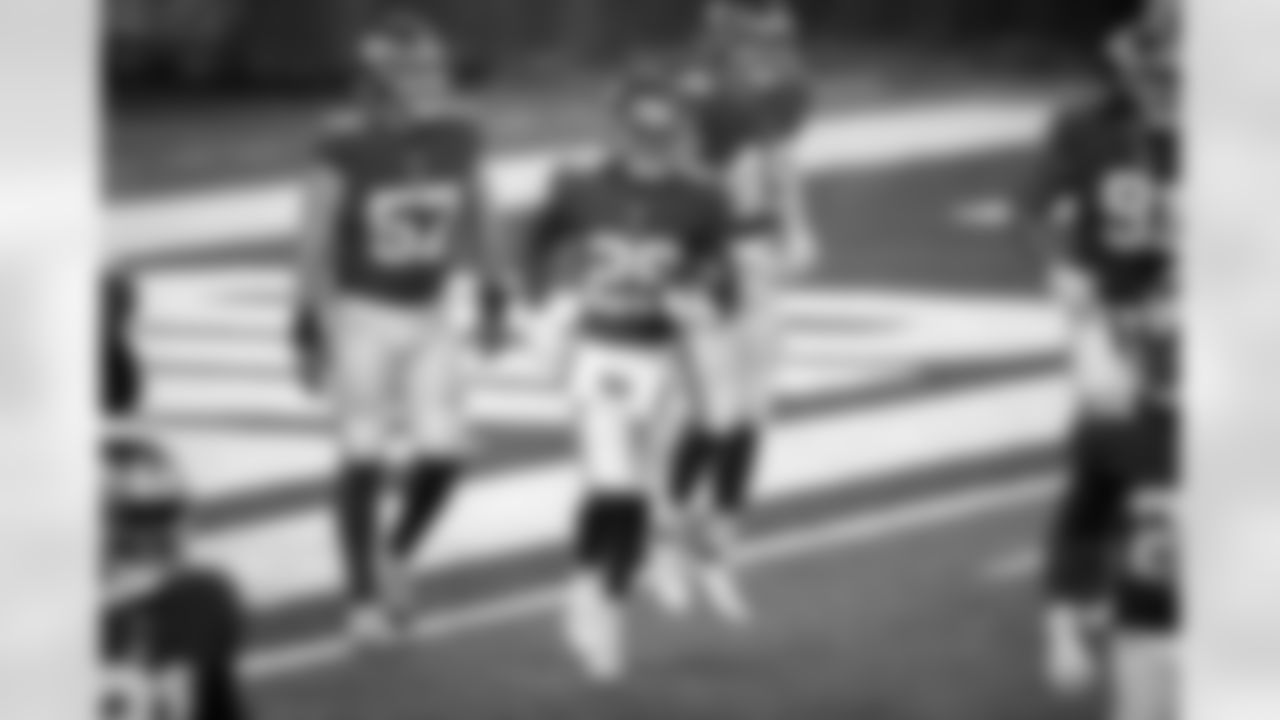
Xavier McKinney (29), Niko Lalos (57)
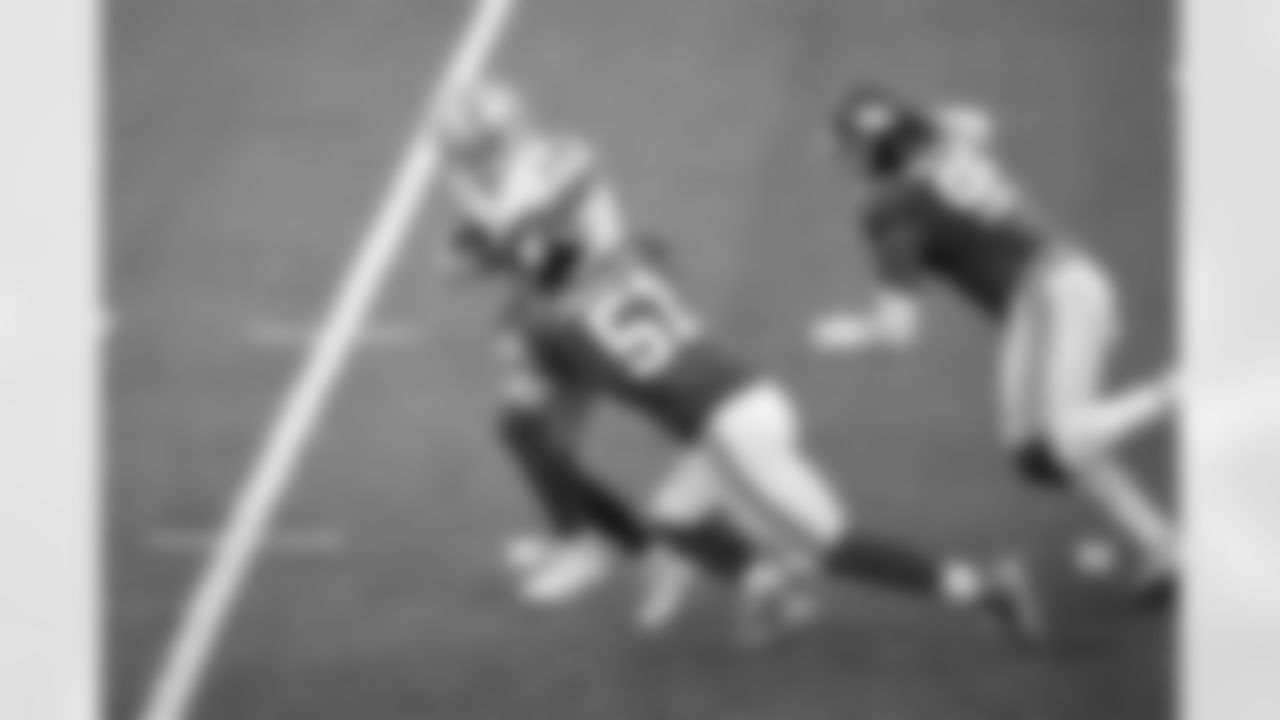
Kyler Fackrell (51)
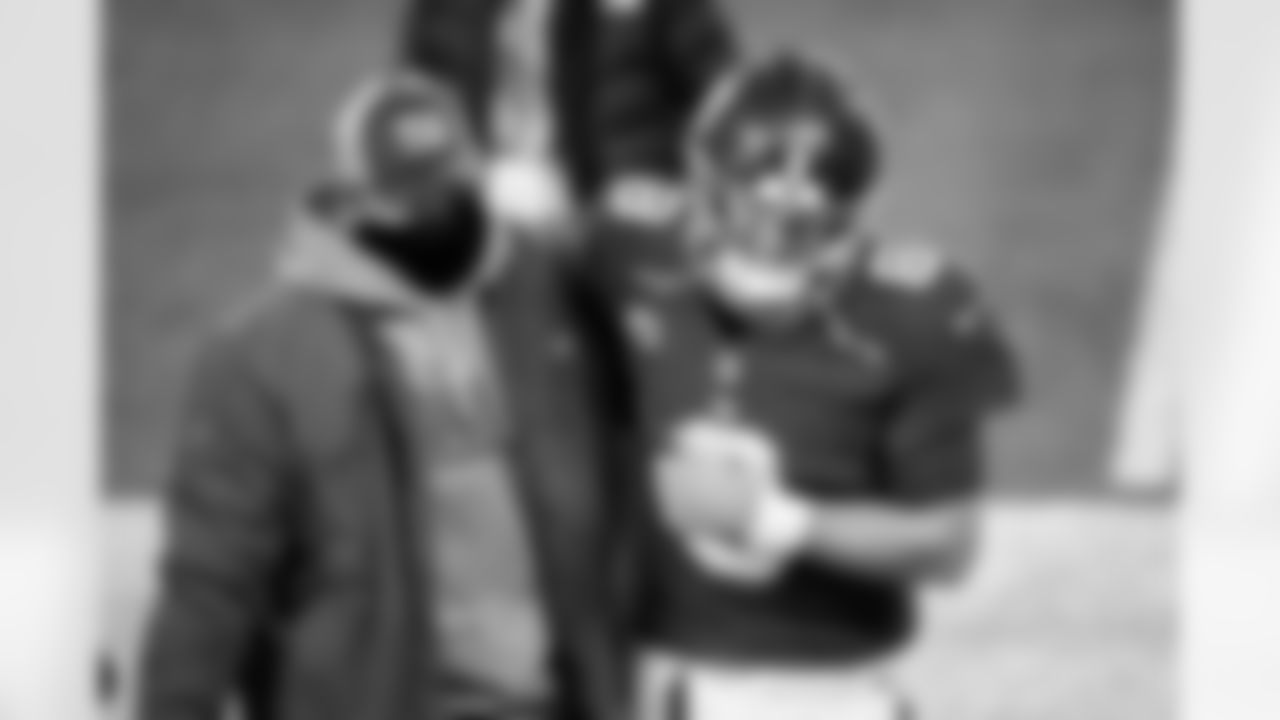
Daniel Jones (8), Head Coach Joe Judge
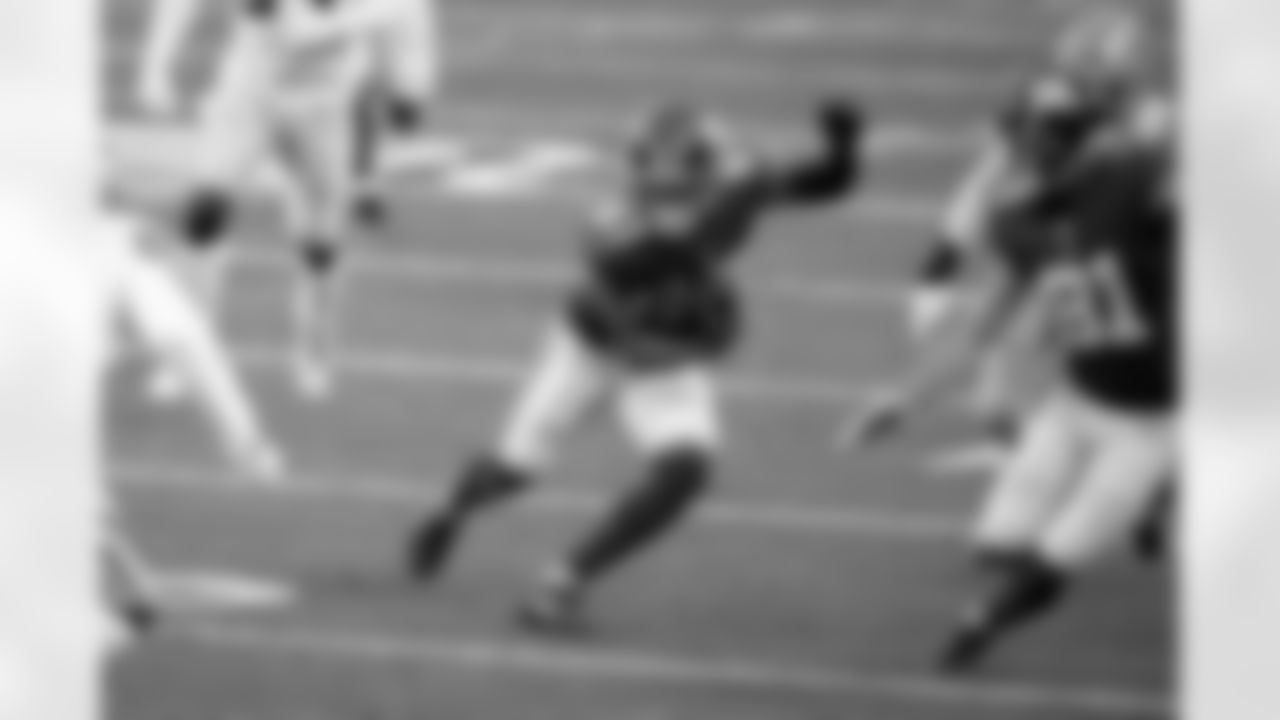
Sterling Shepard (87)
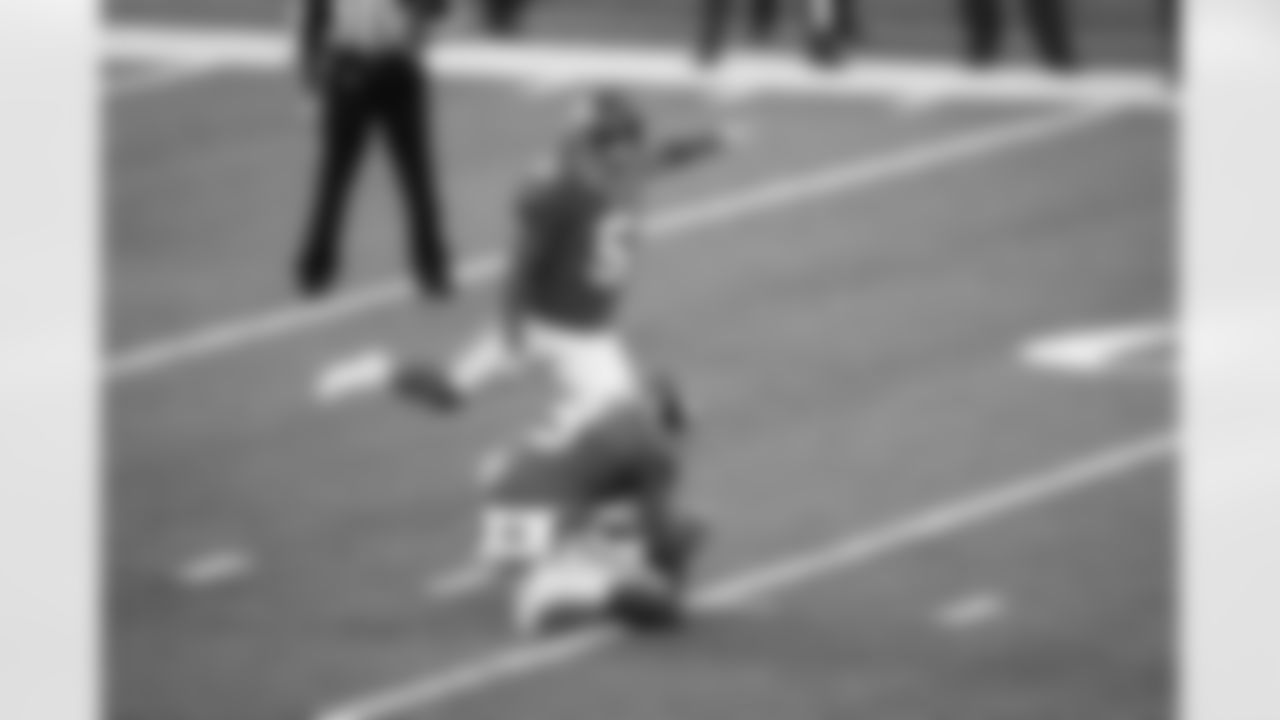
Graham Gano (5), Riley Dixon (9)
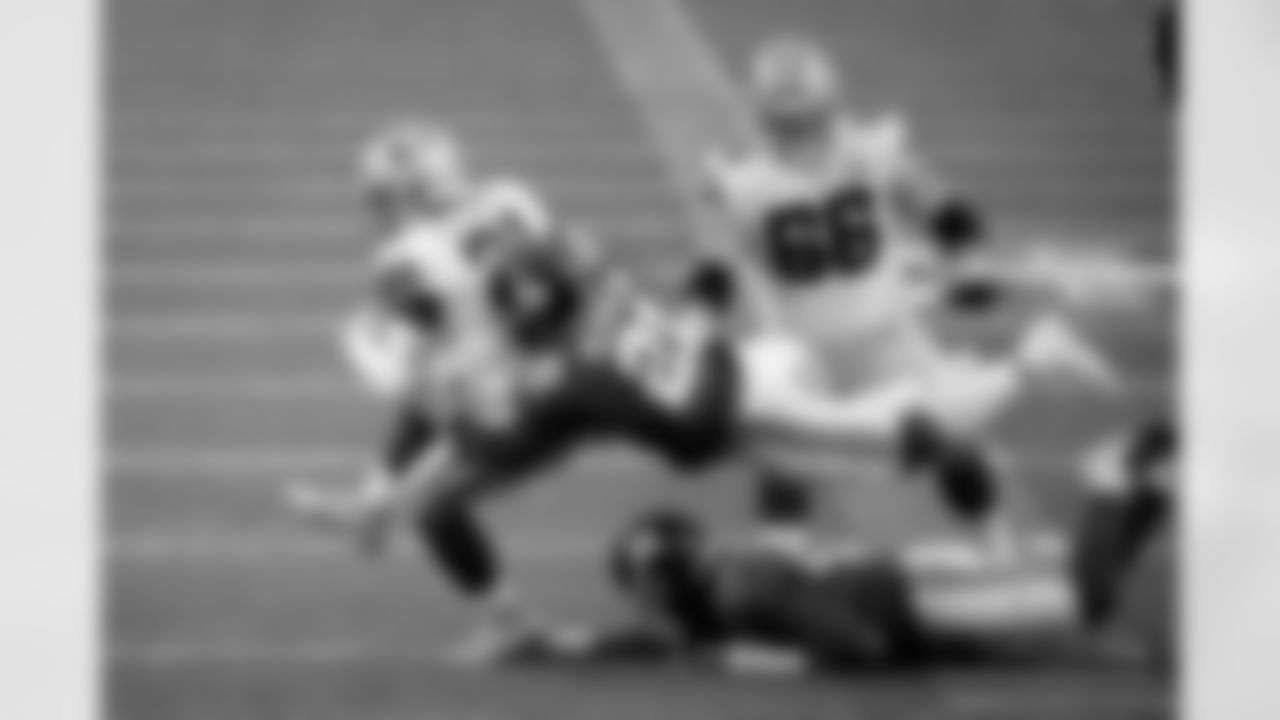
Jabrill Peppers (21)
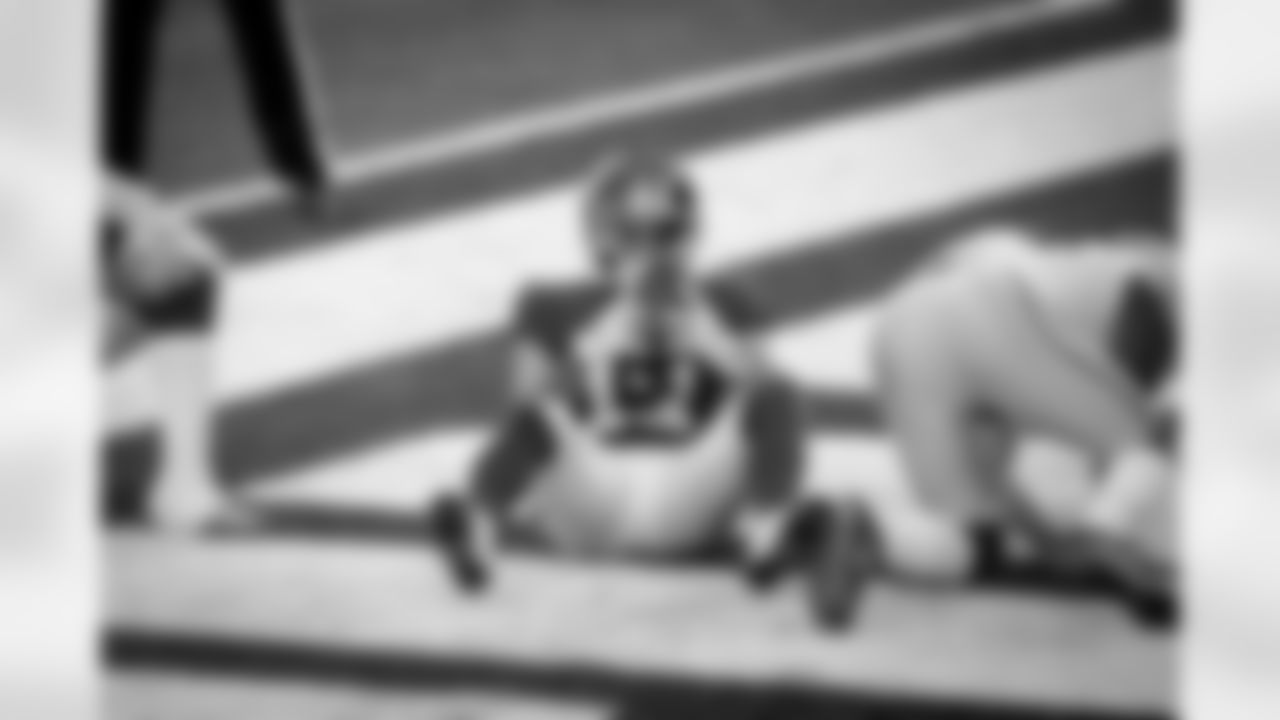
Dante Pettis (13)
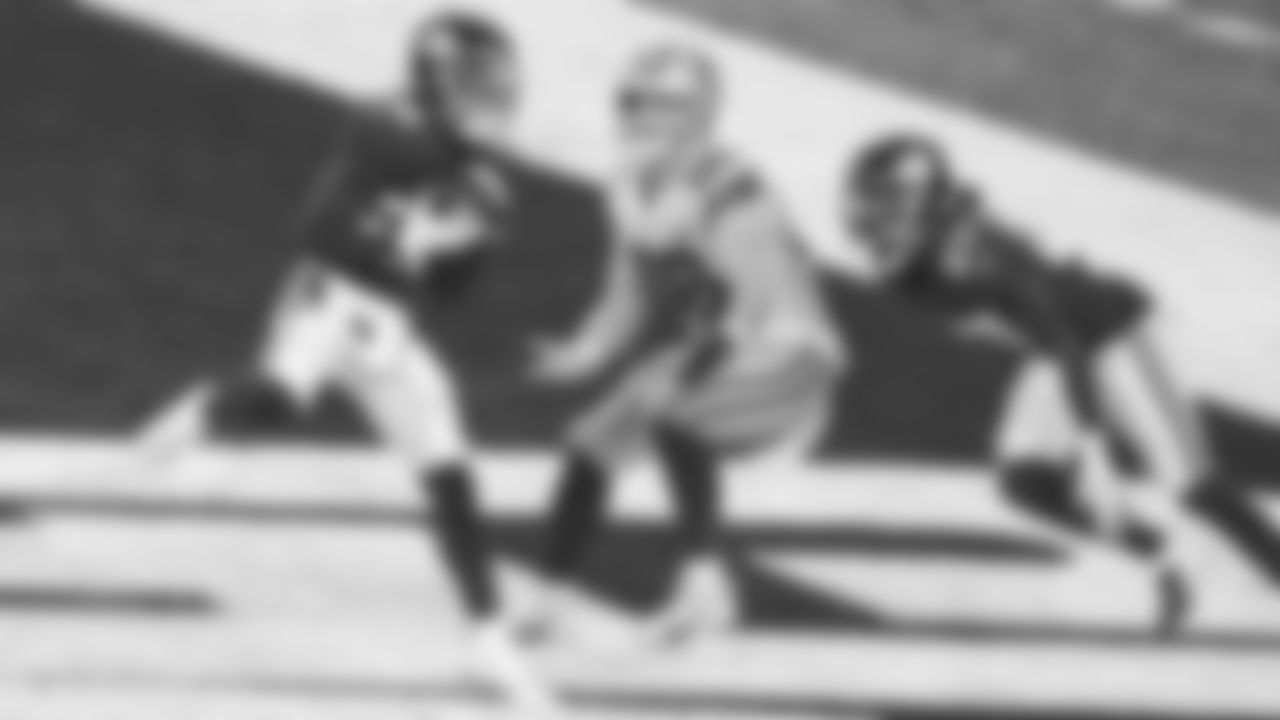
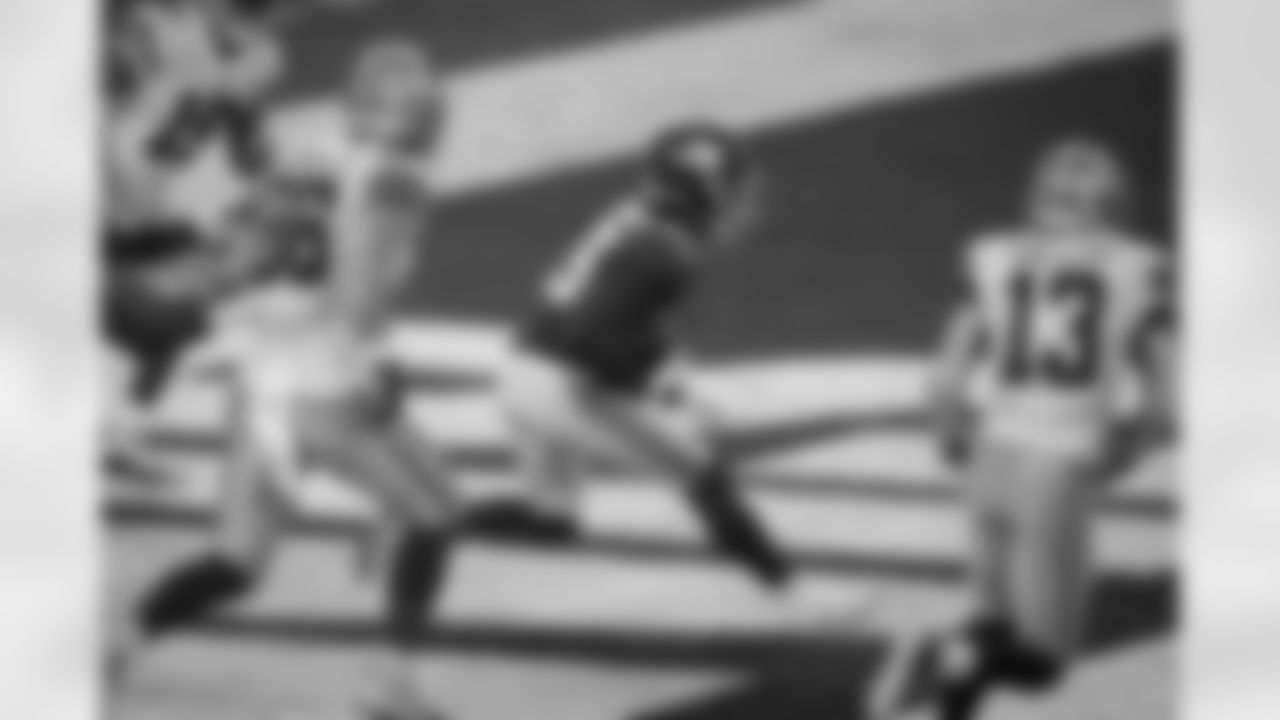
Xavier McKinney (29)








